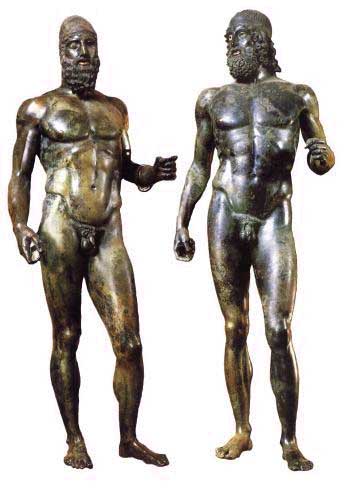and
AresIsLord.org is a website created and authored by Bill Weintraub.
© All material Copyright 2023 by Bill Weintraub. All rights reserved.
MANHOOD : A LEXICON : BOOK I : THE FIRST NOTION OF GOODNESS
MANHOOD : A LEXICON : BOOK II : THE PRIMAL LOVE
MANHOOD : A LEXICON : BOOK III : UN-FORGETTING
MANHOOD : A LEXICON : BOOK IV : FIGHT IS THE FATHER OF ALL
MANHOOD : A LEXICON : BOOK V : WARRIOR KOSMOS, WARRIOR SANCTION
SEX BETWEEN MEN : AN ACTIVITY, NOT A CONDITION
AGGRESSION AND THE BEAUTY OF GUYS
WE ARE MEN. WE HAVE BALLS. BALLS MAKE YOU FIGHT. FIGHT MAKES THE MAN.
FIGHTER BEAUTY ~ OR ~ A TRUE TEST OF TOUGHNESS
AGOGE : THE SPEAR-POINTS OF YOUNG MEN BLOSSOM THERE
MARIUS REWARDS TREBONIUS FOR AN HONOURABLE, NOBLE, AND MANLY ACT
CHASTITY : THE FIRST GRACE OF MANHOOD
ARES IS LORD I : INTRODUCTORY REMARKS
ARES IS LORD II : MANHOOD THE PRIMAL LOVE
ARES IS LORD III : FIGHTING MANHOOD IS THE FATHER AND SUM OF ALL THE EXCELLENCES OF MAN
ARES IS LORD IV : THE PATERNAL FATHER AND SACRED MANLINESS
ARES IS LORD V : PHALLO-MACHIA
ARES IS LORD VI : PHALLUS AND FIGHTING : AN EXPRESSION OF FIGHTING MANHOOD
ARES IS LORD VIII : VALOROUS AND VIOLENT AND BEAUTIFUL TO BEHOLD
ARES IS LORD IX : GREEK WARRIOR NAMES
ARES IS LORD X : INTRODUCTION TO ARISTOTLE'S NICOMACHEAN ETHICS
ARES IS LORD XII : THE IRREDUCIBLE MALENESS OF HIS BODY
ARES IS LORD XIII : MANLY MORAL ORDER
Bill Weintraub The Holy Communion of Ares Is Lord is a Combatant Congregation of Manly Men who worship Lord Ares, the God of Fighting and Manliness.
And Manly Men are Men who are Willing and Able to Fight.
How do we know Lord Ares is the God of Fighting and Manliness ?
Because all the Ancients say He is, including Plato :
Ares, then, if you like, would be named for his Virility [arren] and Manliness [andreion], and for his hard and unbending nature, which is called arratos ; so Ares would be in every way a fitting name for the God of Battle-Fight-War [Theos Polemou].
Fighting -- Man Against Man -- and the Manliness conferred by that Fighting -- is the core Value -- and Virtue -- of the Ancient World.
To the Ancients, both Greek and Roman,
Fighting confers Manliness ; and,
Manliness enables Fighting.
To both the Greek Aristotle and the Roman Cicero, Manliness and its attendant Fighting is the Supreme Ethical Excellence, the Supreme Moral Virtue.
It's the Summum Bonum, the Highest Good.
And to Cicero, in particular, all other virtues "have got the name 'virtue' from the single virtue which was found to outshine the rest" -- that is, from Virtus, which is Manliness, Manhood, Agenoria, Andreia, Areté, the Willingness and Ability to Fight.
I've believed that since I was a little boy, that is, effectively, all my life, and to me, as to Cicero, it's obvious.
All Moral Virtue, all Ethical Goodness, derives from Fighting and Manliness.
Both in Latin, where Virtue is virtus, and in ancient Greek, where it's αρετη.
And the source of the ancient Greek word areté is Ares, the God of Battle-Fight-War, as Liddell and Scott tell us :
And, Liddell and Scott add,
And, as in Latin, so in Greek :
All other virtues [aretai] "have got the name 'virtue' [areté] from the single areté which was found to outshine the rest" -- that is, from Areté, which is Manliness, Manhood, Agenoria, Andreia, Virtus, the Willingness and Ability to Fight.
In both Latin and Greek, all Virtue flows from Manliness and Fighting, all Virtue is an expression of Manliness and Fighting, all Virtue is rooted in Manliness and Fighting.
Bill Weintraub
November 25, 2020
January 17, 2023
© All material Copyright 1997 - 2023 by Bill Weintraub. My name is Bill Weintraub.
I'm the creator and author of Heroic Homosex, The Man2Man Alliance, and Ares Is Lord.
I was born in 1948 and came out in 1972 -- which means I'm now in my 75th year, and have been out for more than 50 years.
From 1972 to 1989, I was a gay activist ; among other accomplishments, I was a founding board member of the NYC Gay and Lesbian Anti-Violence Project.
It was due to my involvement with the AVP that I first trained in martial arts ; and that I met my lover, Brett Averill, who died of AIDS in 1995.
I became a gay activist because I wanted men who loved men to be able to live openly, honestly, and decently.
As of this writing, in January 2023, the openly part has been achieved here in the US and the western democracies.
But honesty and decency are still sorely lacking.
There's nothing honest about treating your partner as though he were a pseudo-woman.
Or his anus as though it were a vagina.
It's not honest and it's not decent.
Nor is there anything decent about anal, promiscuity, or effeminacy.
They are not now, and they will never be, decent.
And never in my life have I thought they could be, or should be.
Never.
Not ever.
My life, thanks to Lord Ares, took a different course.
For when I was about ten years old -- ca 1958 -- I discovered that I was sexually and emotionally attracted to Men.
But not just to Men, or to any Man.
From the beginning, and to this day, I was and am attracted to to Men and Manhood, that is, to Men and Fighting, that is, to Men who Fight, Man Against Man, Manhood Against Manhood.
Manhood is, for me, the Primal Love.
MEN FIGHT --
and so instantiate Manliness, aka Fighting Manhood, aka Manhood, the Willingness and Ability to Fight.
The Fighter's Willingness to Confront his Opponent, the Courage he needs to Confront his Opponent,
So :
At the age of ten, I discovered that I was physically, sexually, emotionally, and spiritually, attracted to Fighting Men, Men who are Manly, Manly Men, Men who are Ardently Eager and Able to Fight.
And I discovered that I wanted to Fight those Men, just as they were Fighting each other, FIGHT, Man Against Man, Manhood Against Manhood, in a One-on-One Strenuous Physical Struggle for Dominance and Control.
Of course, at first the attraction was to boys -- but to Fighting Boys, Boys who yearned, as I did, to Fight, to Fight each other.
Eventually, those Boys became Men.
And the attraction, the attraction at first to Boys, Boys who long to Fight, and then to Men, Men who are Ardently Eager and Able to Fight, has never left me.
Never.
Not ever.
DEFINITION :
Now, before going further, let me define what I mean, and what we mean, in the Man2Man Alliance and Ares Is Lord -- by Fight.
We do not mean barroom brawls or gangland rumbles.
And except when talking about Gladiators or Soldiers, we don't mean Fights with weapons.
What we mean are structured Fights, Fights between two unarmed Men, preferably nude, with rules and judges and referees.
And we mean specifically Wrestling, Boxing, and Pankration -- which is today known as MMA -- Mixed Martial Arts.
In ancient Greece, and then in the Roman Empire, Wrestling, Boxing, and Pankration were always Fought nude.
On our sites, we present four definitions of such Fights :
~Andronikos, The Greek Museums
Both definitions are by the great German classicist Werner Jaeger in his magisterial Paideia : The Ideals of Greek Culture, and are presented during his discussion of the ancient Greek poet Pindar's Victory Odes, many of which celebrate Combatant Victors, that is, Victors in Wrestling, Boxing, and/or Pankration, in the four Crown Games -- Olympic, Pythian, Nemean, and Isthmian.
And we can condense those two definitions into one, as follows :
Fight : Two Men -- two Nude Men -- Ferociously Fighting, Strenuously Struggling, to Perfect their Manhood in Victory.
~Xenophon, The Lakedaimonian Constitution
Here's Xenophon's ecstatic account of the Erin Peri Aretes, the Struggle of, for, and about Manhood, which is found in his Lakedaimonian Republic 4.5 :
Here then you find that kind of strife that is Dearest to, Most Beloved of, the Gods [Theophilestatos], and in the highest sense political -- the strife that sets the standard of a brave man's [agathos -- a Manly Man's] conduct ; and in which either party exerts itself [askeo -- either party practices, exercises, trains itself] to the end that it may never fall below its best [kratistos -- its strongest, its mightiest, its most powerful], and that, when the time comes, every member of it may support the state with all his might [sthenos -- strength, might and power].
And they are bound, too, to keep themselves fit [euexia], for one effect of the strife is that they fight [pukteuo -- strike with the fist] whenever they meet [symballo -- to bring men together in hostile sense, to set them together, match them : to join in fight, come to blows] ; but anyone present has a right to part the combatants.
Xenophon is talking about Communal Fights among Spartan Young Men, whose purpose it is to make the Spartans the MOST MANLY -- that is to say, the MOST MANFULLY EXCELLENT -- MEN, among all the Greeks ; and he says that this kind of Struggle, this kind of Fight, is in the Highest -- that is, best -- sense, Political [politikotatos], that is, of Benefit to the Polis, the City-State, in this case the Spartan City-State, the Lakedaimonian Commune ; and is Dearest to and Most Beloved of -- the Gods.
Whom Xenophon greatly reverences.
So he's speaking of a Communal Struggle, a Communal Fight, to fully Realize, to fully achieve, Areta -- Fighting Manhood -- for the benefit of the state, Sparta ; and, Xenophon says, the Gods Smile Upon Such Struggle and Fight.
For : neikeon symphytos tekton
So :
That's what we mean by Fight and how we define Fight :
A Combat of, for, and about Manhood, Ferociously Fought by two Nude Men, Free Men, who Strenuously Struggle to Perfect their Manhood, their Areté, in Victory.
And while we're defining words, please note that Manliness, Manhood, Manly Spirit, Manly Excellence, Manly Goodness, and Manly Virtue all mean : The Ardent Willingness, and Requisite Ability, to Fight.
While Manly means Willing and Able to Fight.
And notice two things :
First, that both Xenophon and Jaeger say the Fight is about Manhood -- areté / areta -- Manhood, Manliness, Manly Spirit, Manly Excellence, Manly Goodness, and Manly Virtue.
And second, that Xenophon says that Fight is Natural to the Race of Men.
Plato says that too : that by nature every Man is at war with every other ;
Man is by Nature at War with Man.
And when, at the age of ten, I discovered that I was physically, sexually, emotionally, and spiritually, attracted to Fighting Men, Men who are Manly, Manly Men, Men who are Ardently Eager and Able to Fight -- Fight seemed natural to me too.
And not just natural.
Fight seemed to me the best thing in the world.
And it still does.
And the attraction, the attraction at first to Boys, Boys who long to Fight, and then to Men, Men who are Ardently Eager and Able to Fight, has never left me.
My Love of Fight, and of Fighters, has never left me.
Nor has my attraction to Manliness and Fighting and Fighters -- the Strong, Handsome, Combative and Aggressive Men who Fight -- nor has that attraction ever left me.
Nor has my desire to Fight those Fighters ever left me.
I'm a Man.
Fight is Natural to me.
My Body was designed and primed to Fight.
So, and again, my Body was designed and primed to Fight.
And so was my Psyche.
By Nature, and the Will of the Immortal Gods, I seek to be at War with, to Fight with, another Man.
And the more I like a Man, the more attracted I am to him, the more I want to Fight him.
I want to Fight him, Man Against Man, Manhood Against Manhood.
To Fight, Man Against Man, Manhood Against Manhood --
That to me is the Primal Love.
And I'm hardly alone in that attraction and that desire to Fight, despite having grown up in a viciously homo-phobic, man-phobic, and fight-phobic culture.
This is something one of our Warriors, whom we call NW, said on our site some 18 years ago :
Aggression and the beauty of guys who asserted that aggression was what first attracted me to wrestling and fighting. Watching lean sweaty boxers on TV trying to dominate each other through aggression directed at each other turned me on.
They were beautiful and they were aggressive.
~Warrior NW, Aggression and the Beauty of Guys
Right !
I recently spoke with NW, who was a collegiate wrestler and later trained in MMA -- I spoke with NW and he told me that attraction hasn't changed -- not once, and not at all, not in 18 years, and certainly not in 60 years either.
"Aggression and the beauty of guys who assert that aggression"
Right !
Guys who assert aggression are beautiful.
They're beautiful because they're aggressive.
Again :
They were and are beautiful because they assert aggression :
"Aggression and the Beauty of Guys who Assert that Aggression" -- it's the Assertion of Aggression that makes the Guy Beautiful.
And this is the crucial bit :
The Assertion of Aggression makes a Man not just physically but MORALLY Beautiful.
And that plain fact has been understood since the beginning of the Western World.
For the Greeks and the Romans understood that the Assertive and Aggressive Manly Beauty which we call Manhood, Manliness, Manly Spirit, Manly Excellence, Manly Goodness, and Manly Virtue, and which they called Agapenor, Agenoria, Andreia, Areté, Areta, Virilitas and Virtus, was a Moral Beauty, that it was Morally Beautiful, Ethically Excellent, Morally Good, and Supremely Virtuous.
Why ?
Because the Assertion of Aggression -- Man Against Man, Manhood Against Manhood --
Because the Assertion of Aggression, like Manhood, and like Fighting itself, is Primal.
It defends and protects.
It defends, protects, and preserves both the part and the whole, the individual and the cosmos.
It ensures, in the face of evil and wrong, pain and death, the survival of the race.
So, and without question,
The Assertion of Aggression, Manly Aggression, which is Manhood -- is the Primal Love.
Because it is Manhood -- the Willingness and Ability to Fight -- which defends and protects us and those we love from the pain and death brought upon us by evildoers.
The ancients made many many many many many statements to that point.
Here are just two from Plato :
Plato -- First Statement :
Every man ought to be at once passionate [thumoeides : high-spirited, courageous] and gentle in the highest degree. For, on the one hand, it is impossible to escape from other men's wrongdoings [adikemata], when they are cruel and hard to remedy, or even wholly irremediable, otherwise than by victorious [nikao] fighting [machomai] and self-defence [amuno], and by punishing most rigorously ; and this no soul can achieve without noble passion [thumos gennaios].
~Plat. Laws 5.731, translated by Bury.
Bill Weintraub :
It's impossible, says Plato, to escape from other men's wrongdoings, when they are cruel and hard to remedy, or even wholly irremediable, otherwise than by victorious fighting [machomai] and self-defence, and by punishing them most rigorously.
And Fighting, of course, is the Assertion of Aggression.
Fighting.
Which the Stoics termed Man's "natural instinct for self-preservation."
And which classicist Werner Jaeger terms Man's "natural instinct for self-assertion."
Fighting : Self-Preservation ; Self-Assertion.
FIGHTING IS Both Natural -- IN ACCORD WITH MAN'S NATURE --
AND VIRTUOUS.
Fighting confers Virtue -- which is Manliness.
And Manliness enables Fighting.
Fight.
Virtuous Fight.
Plato -- Second Statement :
For a good and blessed life, the first requisite is neither to do wrong oneself nor to suffer wrong from others [adikeo heteroi -- others, but also euphemistic for kakoi -- the bad, mean, ugly, base, wicked, evil]. Of these, the former is not very hard, but it is very hard to secure the power [dynamis] of not suffering wrong ; indeed, it is impossible to gain this perfectly, except by becoming perfectly Manly [teleios agathos]1.
So likewise a State may obtain a life of peace if it becomes Manly [agathos], but if cowardly [kakos], a life of war both abroad and at home. This being so, all men must train for war [ton polemon gymnasteos] [829b] not in war-time, but while they are living in peace.
Footnote 1 :
"Perfect Manliness" secures this "power of not suffering wrong" : people do not lightly provoke the Manly Man, the Perfect Warrior.
Bill Weintraub :
We should neither do wrong ourselves, says Plato, or suffer wrong from others ; but, it's very hard to secure the power of not suffering wrong, except by becoming perfectly Manly, perfectly Willing and Able to Fight.
And in a footnote, the translator, RG Bury says,
"Perfect Manliness" secures this "power of not suffering wrong" : people do not lightly provoke the Manly Man, the Perfect Warrior.
And the word agathos is the adjectival form of the ancient Greek word Areté -- Manhood.
Perfect Manliness, Perfect Manhood.
In addition, Plato talks about the State, be it Nation-State or City-State.
And he says that the State may obtain a life of peace if it becomes Manly, that is, if it trains its Men to be Healthy, Self-Assertive, and Willing and Able to Fight ; but if the State allows its males to become weak, cowardly, and afraid of Fighting, the State will suffer a life of wars both abroad and at home.
And Plato says, all Men must train for war, not in wartime, but while they're still living in peace.
That's a lesson we learned in America after more than 500,000 American Fighting Men were killed defeating the fascist powers of Hirohito and Hitler -- powers which in the 1930's had become very strong in the ways of assertion and fight, while the Western democracies had become feeble and defeatist.
Today we prepare our Young Fighting Men for War.
And we understand the importance of the assertion of aggression -- and where that assertion comes from.
This is a pic NW sent under the header What it took to beat back fascism :
Right.
It took Balls -- which power the Assertion of Aggression -- to beat back and defeat the Nazis and the Imperial Japanese.
So :
Just as Sex is not independent of Biology ; neither is Fighting.
Boners and Fists originate in the Testicles.
And all Fighting is Man Against Man, Phallus Against Phallus, Manhood Against Manhood, and Balls Against Balls.
The ancients understood that.
They had very little technology which separated one Fighting Man from another, one Agonist from his Antagonist, his Opponent, his Foe.
Most Fighting was at close quarters.
Whether with fists and feet or weapons.
They Fought at close quarters.
Very close quarters.
They understood therefore that all Fighting is Man Against Man, Phallus Against Phallus, Manhood Against Manhood, and Balls Against Balls.
And to be sure that no one lost sight of that, the Greeks decreed that in Wrestling, Boxing, and Pankration, the Fight would always be Nude, and that Cock Against Cock and Balls Against Balls would always be in plain view.
Which is how it should be.
And I discuss that further in Phallo-Machia here on Ares Is Lord, and in Warrior Theurgic ManFight in Book V of our Lexicon of Manhood.
Now :
There are a great many -- I'm tempted to say innumerable -- statements like those we saw from Plato -- from other ancient authors.
For example, the Moral Virtue of Manliness, which is the Ardent Willingness and Requisite Ability to Fight, to Fight Man2Man, and which is the ethikos areté, the Supreme Moral Virtue, the Supreme Ethical Excellence, is, according to Aristotle, primarily about the Man's willingness -- a willingness which is a moral trait -- about the Man's willingness to face pain.
Aristotle :
Though Manliness is concerned with feelings of confidence and fear, it is not concerned with both alike, but more with the things that inspire fear ; for he who is undisturbed in face of these and bears himself as he should towards these is more truly Manly than the man who does so towards the things that inspire confidence. It is for facing what is painful, then, that Men are called Manly. Hence also, then, Manliness involves pain, and is justly [δικαιος] praised ; for it is harder to face what is painful [λυπηρος] than to abstain from what is pleasant.
~Aristot. Nic. Eth. 1117a, translated by WD Ross and myself.
So :
"It is for Facing what is Painful that Men are called Manly."
That is, It is for Facing what is Painful that Men are deemed to possess Manliness :
Aristotle :
Though Manliness is concerned with feelings of confidence and fear, it is not concerned with both alike, but more with the things that inspire fear ; for he who is undisturbed in face of these and bears himself as he should towards these is more truly Manly than the man who does so towards the things that inspire confidence. It is for facing what is painful, then, that Men are called Manly. Hence also, then, Manliness involves pain, and is justly [δικαιος] praised ; for it is harder to face what is painful [λυπηρος] than to abstain from what is pleasant.
~Aristot. Nic. Eth. 1117a, translated by WD Ross and myself.
"It's for Facing what's Painful," said Aristotle, "that Men are called Manly."
Obviously, I could keep going for a very long time with these statements.
Let's look at just two more, this time from Roman authors :
This is a little ditty by Plautus, a Roman playwright of the middle Republic :
Virtus -- Manliness, Manhood, the Willingness and Ability to Fight -- is the greatest prize,
~translated by Lendon.
And, adds Prof Lendon, quoting the Roman poet and tragedian Quintus Ennius,
So :
Plautus says that Virtus -- which is Andreia -- which is Areté / Areta -- which is Manly Excellence which is Manliness which is Fighting Manhood --
"has everything in it!"
And that's true -- if by everything is meant all things Masculine and Manly.
As 19th-century scholar Charlton Lewis tells us in his definition of Virtus :
But -- as another historian of Rome, Thomas Wiedemann, demonstrated in his award-winning book Emperors and Gladiators, there's one element or attribute of Virtus / Areté / Areta / Andreia which is more important than the others :
Single combat was the context in which a Roman had to prove that he possessed the most important constituent of 'virtue' [that is, Virtus, which is Fighting Manhood].
. . .
It was this same quality, the courage to confront an opponent coupled with the technical ability to maim and/or kill him, which the gladiator instantiated [made concrete].
So :
Single combat was the context in which a Roman had to prove that he possessed the most important constituent of Virtus, which is Fighting Manhood : the courage to confront an opponent coupled with the technical ability to maim and/or kill him.
"the courage to confront an opponent" is Willingness
"the technical ability to maim and/or kill" is Ability
And what's true for the gladiator is true of the ordinary -- that is to say, Free -- Warrior in both Rome and ancient Greece :
Virtus-Areté-Areta-Andreia is the Willingness and Ability to Fight.
That's to say, the Courage to Confront an Opponent coupled with the Ability to Defeat Him.
And in both Rome and Greece, that Willingness and Ability was without question the single most important component, the most important constituent, as Wiedemann says, of Virtus, which is Areté / Areta, which is Manly Excellence, which is Fighting Manhood.
Manliness and Fighting were valued and venerated, and ultimately they were loved.
Cicero :
Will you, though you have seen adolescent boys in Lacedaemon, young men at Olympia, barbarians in the arena submitting to the heaviest blows and enduring them in silence -— will you, if some pain happen to give you a twitch, cry out like a woman and not endure resolutely and calmly?
~Cic. Tusc. 2.46, translated by JE King.
Spartan youths utter no cry when their bodies are mangled with painful blows ; I have seen with my own eyes troops of nude adolescent boys in Lacedaemon fighting with inconceivable obstinacy, using fists and feet and nails and even teeth to the point of losing their lives rather than admit defeat.
~Cic. Tusc. 5.77, translated by JE King.
It is universally agreed then, not merely by the learned but by the unlearned as well, that it is characteristic of men who are brave [fortis], high-spirited, enduring, and superior to human vicissitudes to suffer pain with patience ; nor was there anyone, we said, who did not think that the man who suffered in this spirit was deserving of praise. When then this endurance is both required of brave men and praised when found, is it not base either to shrink from the coming of pain or fail to bear its visitation?
And yet, perhaps, though all right-minded states are called virtue [virtus], the term is not appropriate to all virtues, but all have got the name from the single virtue which was found to outshine the rest, for it is from the word for "Man" [vir] that the word Virtue [virtus] is derived ; but Man's peculiar Virtue is Fortitude, of which there are two main functions, namely scorn of death and scorn of pain. These then we must exercise if we wish to prove possessors of virtue, or rather, since the word for "virtue" is borrowed from the word for "man," if we wish to be Men.
~Cic. Tusc. 2.43, translated by JE King.
Bill Weintraub :
Cicero says that Man's peculiar Virtue is Fortitudo -- Fortitude -- scorn or contempt of death and of pain.
And we should understand that Fortitudo is Cicero's translation into Latin of the ancient Greek word andreia = ανδρεια -- Manliness -- one of the four platonic virtues, and the word which Aristotle uses for the Supreme Virtue -- which, again, is Manliness.
Fortitude, as discussed here by Cicero, may seem to us to be just one aspect of Manliness -- the Willingness and Ability to Fight, which in its Roman version is the Courage to Confront, and the Ability to Maim and/or Kill -- one's opponent.
But really, and while Fortitude may seem to be more about Willingness and Courage than it is about Ability, obviously one reason that the Man has scorn for death and pain -- is that he knows how to Fight.
Which is why Aristotle says that Training is of Supreme Importance.
And Cicero fully agrees.
Also :
It's no accident that Cicero, in talking to an adolescent Roman, cites Gladiators as examples of "men, who have been well trained, [who] prefer to receive a blow rather than basely avoid it."
Because that's what, to the Romans, Gladiators were meant to be : Examples and Exemplars of Fighting Men who put Honour before pain and death.
That they were low-born and criminals was very much to the Romans' point : even the low-born criminal could, with proper training, Fight Honourably, prefering "to receive a blow rather than basely avoid it."
To learn to stand up to blows face to face was, both to the Greeks and Romans, and as Aristotle says, of Supreme Importance.
The most important point that Cicero makes, however, is this :
And yet, perhaps, though all right-minded states are called virtue [virtus], the term is not appropriate to all virtues, but all have got the name from the single virtue which was found to outshine the rest, for it is from the word for "Man" [vir] that the word Virtue [virtus] is derived ;
but Man's peculiar Virtue is Fortitude, of which there are two main functions, namely scorn of death and scorn of pain. These then we must exercise if we wish to prove possessors of virtue, or rather, since the word for "virtue" is borrowed from the word for "man," if we wish to be Men.
So :
Although all right-minded states are called virtue [virtus], the term is not appropriate to all virtues, but all have got the name from the single virtue which was found to outshine the rest, for it is from the word for "Man" [vir] that the word Virtue [virtus] is derived ;
but Man's peculiar Virtue is Fortitude, of which there are two main functions, namely scorn of death and scorn of pain. These then we must exercise if we wish to prove possessors of virtue [Virtus], or rather, since the word for "virtue" is borrowed from the word for "man," if we wish to be Men.
Manly Virtue, which is Manliness, outshines, says Cicero, all other virtues ; indeed, all other virtues "have got the name 'virtue' from the single virtue which was found to outshine the rest" ;
for it is from the word for "Man" [vir] that the word Virtue [virtus] is derived.
And what Cicero says could not be clearer.
IF WE WISH TO BE MEN, WE MUST POSSESS SCORN AND CONTEMPT FOR PAIN AND DEATH -- SCORN AND CONTEMPT WHICH IS ENABLED BY MANLINESS -- THE WILLINGNESS AND ABILITY TO FIGHT.
To Cicero, as to Aristotle, as to Xenophon, and indeed to any Greek or Roman, Fighting confers Manliness, while Manliness enables Fighting.
Aristotle :
If that isn't clear to you, we can make it clear by putting it in more colloquial terms :
Which means, at its most basic :
So :
ARISTOTLE :
FIGHTING CONFERS MANLINESS ; MANLINESS ENABLES FIGHTING.
CICERO :
ALL VIRTUE DERIVES FROM VIRTUS, WHICH IS MANLINESS, THE WILLINGNESS AND ABILITY TO FIGHT.
And Fight, of course, is the Assertion of Aggression.
MOREOVER --
Fighting, Aristotle tells us, generates Honour -- which is Virtue.
And Honour -- which is Virtue -- and Manliness -- enable Fighting -- which is Virtuous.
Men Fight for Honour -- and Glory -- for Kalon and Honestum -- for that which is Morally Good, and Morally Beautiful, and Honourable.
It is the Love Of Honour which Generates Fight.
FIGHTING CONFERS MANLINESS
MANLINESS ENABLES FIGHTING
FIGHTING CONFERS HONOUR
HONOUR ENABLES FIGHTING
And for that reason, Fight is Supremely Virtuous.
Indeed, Manliness and its attendant Fighting is the Supreme Moral Virtue.
And that Supreme Virtue originates in Battle-Fight-War.
Thus, Ares, who is the God of Battle-Fight-War -- as Plato has told you -- Ares Is Lord.
Lord Ares -- God of Men, Fighting, and Manhood.
Bill Weintraub
23 January 2023
So :
My name, again, is Bill Weintraub.
And I created our Lexicon of Manhood as well as Ares Is Lord so as to have both the opportunity and platform to talk about Manliness, Manhood, and Fighting Spirit, the three inter-related qualities -- spiritual qualities -- which have been not just most important but all-important to me throughout my life.
As they were to the Spartans throughout their lives.
And it was my discovery -- long after my childhood was over and my adolescence gone, long after I'd come out and become a gay activist, and searched for my lover, and found him, and then lost him to AIDS, and was, finally, and because I'd watched my lover die, beginning to question what I came to call the cultural tyranny of butt-fucking --
And it was my discovery, after all those wasted years in the gay movement, tacitly defending a sex act -- indeed multiple sex acts -- and other practices that I found personally abhorrent and never participated in --
And. perhaps, I should take a moment to describe those practices which may not be familiar to people outside the gay community :
Eg, the insertion of objects into the anus, including pool balls, cue sticks, baseball bats, funnels, and fists.
And, you know, I had a picture of fisting on this page, but I took it down, because it's a picture and an act of degradation, and I don't want that on this page, with pictures of Lord Ares, and other Gods, and Heroes, and Heroic Fighting Men.
But when I was in the gay movement I, by my silence, made it appear that I endorsed it.
And I did the same with that particularly gay male form of promiscuity known to epidemiologists as "concurrency," in which a single male will "have sex," that is, be penetrated anally, by between five and ten partners in just one evening or afternoon.
Those are all practices which I tacitly appeared to endorse when I was in the gay movement, because I was expected to endorse them.
Even though, at the time, the 1980s and 1990s, they were known to be spreading HIV/AIDS.
Did I actually endorse them ?
No, but by my silence I appeared to endorse them.
Did those practices have anything to do with the way I wanted to live my life ?
No.
If you read Certainties, you'll see that what I'd believed in since childhood was the Faithful Love of Hero for Hero described, vaguely, in mythology and to some slight degree in history.
The problem was that I didn't know that had ever actually existed, either in the distant past or in any way in the present -- other than in my own fantasies, as I've described them in Hyacinthine Love and Certainties.
It was only after I was in my early fifties, and had begun reading the Greek authors themselves, starting with Plato, that I made my discovery, after all those lost years, of Liddell and Scott's definition of Areté -- the word in the Doric dialect of Sparta is Areta, and that's how I think of it and most often refer to it --
it was Liddell and Scott's definition of Areta, and their very plain and honest statement in that definition that the Warrior God Ares was the root and source of Areta -- which both confirmed what I'd always believed and thus liberated me to talk about it.
For I'd always thought that Fighting and Manliness were the best things in the world.
And I couldn't believe, therefore, that their origin was in something bad or evil.
Nor could my Love for Fighting and Manliness be evil.
So :
When Liddell and Scott said that
And
[Areta itself is] goodness, excellence, of any kind, esp. of manly qualities, manhood, valour, prowess (like Lat. virtus, from vir)
When they said that Areta aka Manhood aka Virtue was goodness, excellence, of any kind, esp. of manly qualities, manhood, valour, prowess (like Lat. virtus, from vir)
And, that
From the same root [ΑΡΗΣ] come areté, areta, ari-, areion [better, more Manly], aristos [best, most Manly], the first notion of goodness being that of manhood, bravery in war; cf. Lat. virtus
I was liberated.
I was freed to talk about Manliness, and Fighting, and those Manly Men who were and are the practitioners of both :
Αρετα Αρης
Areta Ares From the same root [ΑΡΗΣ -- ARES] come areta, ari-, areion [better, more Manly], aristos [best, most Manly], the first notion of goodness being that of manhood, bravery in war; cf. Lat. virtus.
~Αρης, defined by Liddell and Scott.
Manhood is of course Fighting Manhood.
And Fighting Manhood is the First Notion of Goodness.
Liddell and Scott go on to say that
~Αρετα, defined by Liddell and Scott.
So :
And
[Areta itself is] goodness, excellence, of any kind, esp. of manly qualities, manhood, valour, prowess (like Lat. virtus, from vir)
From the same root, ARES, comes Areté Areta, goodness, excellence, of any kind, esp. of manly qualities, manhood, valour, prowess (like Lat. virtus, from vir)
So :
Lord Ares is the source of Areté Areta, which is GOODNESS and EXCELLENCE, of any kind, but most esp. of MANLY qualities, MANHOOD, VALOUR, PROWESS, BRAVERY IN WAR.
So :
MANHOOD = MANLINESS = The Ardent Willingness and Requisite Ability to FIGHT ; while MANLY means Willing, Eager, and Able, to FIGHT.
FIGHTING is the sine qua non, the without which not, of MANHOOD and MANLINESS.
Because FIGHTING confers MANLINESS.
Which means that FIGHTING is the sine qua non of GOODNESS and EXCELLENCE of any kind, which is VIRTUE.
Manly Virtue.
There is NO Virtue without Fight, and NO Fight without Virtue.
And, by the way, Goodness and Excellence of any kind includes Beauty, both physical and moral.
So that Manly Goodness and Manly Excellence include Manly Beauty.
What it comes down to is that Lord Ares, as the source of Areta, is the source of all that is Good, all that is Excellent, all that is Virtuous and Morally Beautiful.
And that's because he is the God of Manhood -- which is Manliness -- and Fighting.
Goodness, Excellence, of any kind, but most especially of Manly Qualities, Manhood, Valour, Prowess, Bravery in War.
Manly Goodness, Manly Excellence, Manly Virtue.
ARES IS THE ROOT OF ALL BEAUTY AND OF ALL GOODNESS, WHICH IS MANHOOD, MANLINESS, BRAVERY IN WAR, FIGHT.
FIGHT.
FIRST BOYS FIGHTING, AND THEN MEN FIGHTING -- FIGHT, MAN2MAN, MANFIGHT -- HAS BEEN PHYSICALLY AND MORALLY BEAUTIFUL TO ME MY ENTIRE LIFE.
It's Kalon, which means at once Beautiful and Morally Right.
Καλον, which praises both the image and what the Men are doing -- is both Beautiful and Morally Right.
Kalon is a very important word for understanding the Greeks, both ethically and aesthetically.
In his translation of Aristotle's Nicomachean Ethics, aristotelian H. Rackham renders Kalon as Moral Nobility and says
Καλον is a term of admiration applied to what is correct, especially (1) bodies well shaped and works of art or handicraft well made (see iii. vii. 6), and (2) actions well done ; it thus means (1) beautiful, (2) morally right. For the analogy between moral and material correctness see ii. vi. 9.
Rackham also tell us that Aristotle, in his discussion of specific moral virtues, says that
το καλον -- see Roman numeral III, Arabic numeral 2.
So :
The relationship between Καλον -- Moral Nobility -- and Ανδρεια / Αρετα -- Manliness -- is profound.
In Book III of The Nikomachean Ethics, Aristotle, as part of his extensive discussion of the moral virtue or excellence of Manliness, says,
Though Manliness is concerned with feelings of confidence and fear, it is not concerned with both alike, but more with the things that inspire fear ; for he who is undisturbed in face of these and bears himself as he should towards these is more truly Manly than the man who does so towards the things that inspire confidence. It is for facing what is painful, then, that Men are called Manly. Hence also, then, Manliness involves pain, and is justly [δικαιος] praised ; for it is harder to face what is painful [λυπηρος] than to abstain from what is pleasant.
Aristotle :
[T]he Manly Man is proof against fear so far as man may be. Hence although he will sometimes fear even terrors not beyond man's endurance, he will do so in the right way, and he will endure them as principle dictates, for the sake of what is noble καλον [a]; for that is the end at which virtue aims.
[a] i.e., the rightness and fineness of the act itself, cf. 7.13 ; 8.5,14 ; 9.4 ; and see note on 1.3.2. This amplification of the conception of virtue as aiming at the mean here appears for the first time : we now have the final as well as the formal cause of virtuous action.
Bill Weintraub : The "formal cause" of virtuous action is the individual's "aiming at the mean" between excess and deficiency ; the "final cause" of virtuous action is the individual's decision to act for the sake of what is καλον -- kalon -- that is, what is both Morally Beautiful and Morally Noble.
Which leads us to Prof Rackham's :
Note on 1.3.2 :
Καλον is a term of admiration applied to what is correct, especially (1) bodies well shaped and works of art or handicraft well made (see iii. vii. 6), and (2) actions well done ; it thus means (1) beautiful, (2) morally right. For the analogy between moral and material correctness see ii. vi. 9.
Prof Rackham's point regarding Moral Nobility as the final cause of Virtuous Action is critical to understanding Greek ethical thought and behavior.
Which is why Prof Rackham repeats that point a number of times, saying, for example, that
While aristotelian WD Ross says,
"The motive of Manliness is the sense of Honour."
So :
Καλον means both Beautiful -- and Morally Right.
It is that which is both Right and Fine in and of itself.
KALON : Both and at the same time Beautiful -- and Morally Right.
FIGHT IS KALON :
FIGHT IS VIRTUOUS.
And --
FIGHT IS VIOLENT.
IF FIGHT IS VIRTUOUS, VIOLENCE IN THE SERVICE OF FIGHT MUST BE VIRTUOUS TOO :
KALON :
A term of admiration for Bodies Well Made and Deeds Well Done.
The Deeds are almost always Deeds of Fight -- ΕΡΓΑ.
And Deeds of Fight Well Done, that is, Virtuously Done, are almost always Violent.
Thus, Virutuous Violence.
Understanding that Fight is both Morally Noble and Morally Beautiful, and that it's inherently Virtuous even when it's Violent, I've filled my sites with images like these:
Sometimes I repeat images which for me are particularly significant or iconic :
And this picture :
FIGHT IS VIRTUE.
FIGHT IS VIRTUOUS.
FIGHTER VIOLENCE IS VIRTUOUS VIOLENCE.
THERE IS NO VIRTUE WITHOUT FIGHT, AND THERE IS NO FIGHT WITHOUT VIRTUE.
THE WORD ARETE -- VIRTUE -- DERIVES FROM ARES, THE GOD OF FIGHT ; THE WORD VIRTUS -- VIRTUE -- DERIVES FROM VIR -- VIR IS MAN, AND MAN IS FIGHTER.
THERE IS NO VIRTUE WITHOUT FIGHT.
FOR ME, THIS IS AN IMAGE OF PURE BEAUTY.
AS IS THIS :
AND SO ARE THESE IMAGES OF LORD ARES :
So :
The Greek Warrior God Ares is the source of all Virtue, Manhood, and Manliness -- of all Manly Excellence, Manly Goodness, and Manly Virtue -- which Manifests as Fight and Fighting.
But :
I didn't know that when I was a child.
I knew only the intense love and yearning I felt for Men and Manliness, for Men and Fighting.
I didn't learn, until many years later, that it was Lord Ares -- who is the Archetypal God of Manhood and Fighting, and is Manliness and Fighting Hypostatized --
I didn't learn, until many years later, that it was Lord Ares who had put Agapenor -- the Love of Fighting Men and of Fighting itself -- into my soul, as he does into the souls of all Men :
Agapenor : loving manliness, manly
Agapenor is a combination of
Agape : love : esp. brotherly love, charity ; the love of God for man and of man for God
And
Enore-e : Doric is Anorea Ανορεα, which derives from Aner (Ανηρ) Man, and is, say Liddell and Scott, a poet. word for Andreia Ανδρεια, which derives from the genitive form of Man, Andros.
So :
Anorea ← Aner
Andreia ← Andros
This is how Liddell and Scott define Enore-e/Anorea :
Manhood, prowess, manly beauty, its strength, force ; in pl., triumphs of manhood
Manhood, prowess, Manly beauty, its strength and force
That's what MEN LOVE.
Let's repeat that:
Manhood, prowess, Manly beauty, its strength and force
That's what MEN LOVE.
Because that's what Agapenor means :
Loving Manhood, loving Prowess, loving Manly Beauty, loving Manhood's Strength and Force
Agapenor, once again, is a combination of the words Agape -- Love ; and
Enore-e, which, in the Spartan dialect, is pronounced Anorea -- Manliness, Manhood, Manly Spirit.
Agapenor is Loving Manliness, Manhood, Manly Spirit.
In Greek, it looks like this : αγαπ - ηνωρ -- Loving Manhood -- and it is, say Liddell and Scott, an "epith. of heroes."
Heroes.
Heroes love Manliness, love Manhood, love Manhood's Prowess, its Strength and Force.
Agapenor is a foundational word among the Greeks, it goes all the way back to the Iliad, which is often described as the ancient Greek Bible, and it refers to Heroes and Warriors who both love Manliness -- and are themselves Manly.
Agapenor is also a foundational word for Ares is Lord, for, as you will learn in Biblion Pempton of our Lexicon of Manhood, it's Lord Ares who has apportioned the Love of Manhood -- to the Souls of Men.
Related :
So :
Manliness, Manhood, Manhood's Prowess, its Strength and Force
That's what Men Love.
Because that's what Agapenor means :
Loving Manliness, Loving Manhood, loving Manhood's Prowess, its Strength and Force
But, again, I didn't know that when I was a child.
I only knew what I felt :
The intense Love of Manliness and Fighting, which is the intense Love of Manhood, Prowess, Manly Beauty, Manhood's Strength and Force.
It took me many years -- from the age of ten to the age of forty-four -- to come to terms with my Love of Men, of Men who Fight, of Fighting itself.
It was a terrible struggle.
Because both Loving Men and Loving Fight were forbidden and morally damned.
But whenever I came close to giving up, Lord Ares reminded me of Manhood, prowess, Manly beauty, its strength and force -- which is Manifested in Fight, in Manliness and Fighting.
Which are symbiotes.
Fighting confers Manliness.
Manliness enables Fighting.
And it was Lord Ares who reminded me of Manly Beauty, its strength and force, which is the strength and force of Fight, and of Fighter Beauty.
Thus, Ares, who is the God of Battle, Fight, War -- as Plato has told you -- Is Lord :
Αρετα Αρης
Areta Ares From the same root [ΑΡΗΣ -- ARES] come areta, ari-, areion [better, more Manly], aristos [best, most Manly], the first notion of goodness being that of manhood, bravery in war; cf. Lat. virtus.
~Αρης, defined by Liddell and Scott.
Manhood is of course Fighting Manhood.
And Fighting Manhood is the First Notion of Goodness.
Liddell and Scott go on to say that
~Αρετα, defined by Liddell and Scott.
THUS ARES IS LORD :
LIDDELL AND SCOTT -- Areté : Doric is Areta Αρετα : goodness, excellence, of any kind, esp. of manly qualities, manhood, valour, prowess (like Lat. virtus, from vir)
That's Liddell and Scott's definition ; and, Liddell and Scott add,
From the same root [ARES] come areté, ari-, areion [better -- stronger, braver, more Manly], aristos [best -- strongest, bravest, most Manly], the first notion of goodness being that of manhood, bravery in war; cf. Lat. virtus.
ARES IS THE ROOT OF ALL BEAUTY AND OF ALL GOODNESS, WHICH IS MANHOOD, MANLINESS, BRAVERY IN WAR, and FIGHT.
FIGHT.
FIRST BOYS FIGHTING, AND THEN MEN FIGHTING -- FIGHT, MAN2MAN, MANFIGHT -- HAS BEEN PHYSICALLY AND MORALLY BEAUTIFUL TO ME MY ENTIRE LIFE.
FIGHT IS VIRTUE.
FIGHT IS VIRTUOUS.
FIGHTER VIOLENCE IS VIRTUOUS VIOLENCE.
THERE IS NO VIRTUE WITHOUT FIGHT, AND THERE IS NO FIGHT WITHOUT VIRTUE.
THE WORD ARETE DERIVES FROM ARES, THE GOD OF FIGHT ; THE WORD VIRTUS DERIVES FROM VIR -- VIR IS MAN, AND MAN IS FIGHTER.
THERE IS NO VIRTUE WITHOUT FIGHT.
Bill Weintraub
25 January 2023
Discussion :
A Monad is a Single Unit -- One ; from the Greek Monas, Monados -- a unit, monad.
So it's basically the same word in ancient Greek -- as it now is in English.
While a Dyad is Two, a Triad, Three, etc.
And the Paternal Mind / Paternal Monad / Paternal Father / Paternal One are the same deal -- the same Entity.
What about the term Paternal Father ?
Isn't that a tautology -- in other words, isn't that like saying Father Father ?
Yes.
Why would the Greeks do that ?
Because when it comes to the categories of Manly and Male, their use of language is incantational.
Thus when Xenophon addresses his soldiers, he doesn't just say "Stratiotai" -- Soldiers.
He says "Andres Stratiotai" -- Men Soldiers.
Which, like Paternal Father, is a tautology, since in Xenophon's day, there were no female soldiers -- only Men could be soldiers.
Why then does Xenophon address his troops as "Men Soldiers" ?
Because he really really really likes the concept of Man and all the Manly Values which attach to that concept, Values which are not only core to but inseparable from Xenophon's Way of Thinking and his Way of Life.
Both of which are the Warrior Way.
That's what Xenophon believes.
And that belief is rooted in the Warrior World of Being identification of Man/Manly, in such Alpha-Rho words as Arren and Arsen, with Lord Ares -- God of Fight, God of Manhood, God of Fighting Manhood.
Put differently, Lord Ares is the source of Areté / Areta, which is "Fa, of any kind, esp. of manly qualities, manhood, valour, prowess (like Lat. virtus, from vir)."
That's Liddell and Scott's definition ; and, Liddell and Scott add,
From the same root [ΑΡΗΣ -- ARES] come areté, ari-, areion [better -- stronger, braver, more Manly], aristos [best -- strongest, bravest, most Manly], the first notion of goodness being that of manhood, bravery in war; cf. Lat. virtus.
So :
Lord Ares -- who, as you will see, is the Paternal Father -- is Manhood, Fighting Manhood, and thus the source of all Manly Excellence.
Just as the Roman God of War Mars, Father of Romulus and thus Primogenitor of the Roman people, is the source of all Mas -- Masculinity, which is Manly Virtue ;
So is Lord Ares the source of all Areté / Areta, which is "goodness, excellence, of any kind, esp. of manly qualities, manhood, valour, prowess . . . the first notion of goodness being that of manhood, bravery in war; cf. Lat. virtus."
Lord Ares is the source of all Manly Excellence, which is Manhood, Fighting Manhood.
And Xenophon understands that, feels it at the very core of his being, because Lord Ares has put Agapenor, the Love of Manhood and Manliness, at the heart of every male soul, and because Xenophon's Warriordoms, Athens and Sparta, have repeatedly helped him to UN-forget that Manly Love.
So that both as a Youth and a Man, Xenophon has been able to live a Life of Manliness -- and to write about that life in a way that instructs other Youth and Men -- in the Manly Ways of Fighting Manhood.
Indeed, Xenophon's many books extolling Manliness, including and especially the Anabasis and Cyropaedia, have educated Boys, Youths, and Men -- for more than two thousand years.
So :
The Root is ARES -- Alpha - Rho - Eta - Sigma : Α - Ρ - Η - Σ ;
And it's the Greek letters Alpha - Rho : Α - Ρ -- which we see repeatedly.
In words such as Arren -- Alpha - Rho - Rho - Eta - Nu : Α - Ρ - Ρ - Η - Ν -- male, the male, masculine, strong --
Which the Greeks make into a substantive, a noun, to Arren : το Α - Ρ - Ρ - Η - Ν -- Manhood, Manliness, Virility, Strength ;
And Areté / Areta -- Α - Ρ - Ε - Τ - Η -- goodness, excellence, of any kind, esp. of manly qualities, manhood, valour, prowess, bravery in war ;
And Arratos -- Α - Ρ - Ρ - Α - Τ - Ο - Σ -- hard, firm, solid, unbending ;
And Areios -- Α - Ρ - Η - Ι - Ο - Σ -- which means both devoted to Ares, warlike, martial, and, as a substantive -- Warrior.
And Xenophon understands, as does every Greek Man, the plain fact that Lord Ares -- ΑΡΗΣ --, God of Fight and Fighting Manhood ; and such World of Being Principles -- ΑΡΧΑΙ -- as Manhood, Manliness, Virility, Strength, Goodness, Excellence, and Virtue -- are inextricably intertwined and interlinked, and that you cannot have one without the other.
That there is no Goodness, Excellence, or Virtue, without the Manhood bestowed by Lord Ares --
But that with that Manhood, that Fighting Manhood -- Goodness, Excellence, and Virtue are always present.
And that fact is for Xenophon, as it is for me, a source of constant awe and wonder and joy.
For Manhood is, as Plato says, Θειας Ανδρειας : God-like Manhood, Sacred Manliness.
Now :
In the Chaldean Oracles, a 2nd-century AD mystic text much consulted by Neo-Platonists and Theurgists, the Paternal Father creates Eros -- in order to draw the soul back to the Gods.
Prof Shaw :
According to the Oracles, the Demiurge filled each soul with a deep Love (eros bathys) to draw it back to the Gods.
So --
And to put this in terms of Warrior Theourgia and the Communion of Ares Is Lord --
First off, and to us, the Paternal Father is the Manly Principle, which is Manhood, Fighting Manhood, hypostatized as and personified by Lord Ares, Lord of Fight, Lord of Manhood, Lord of Fighting Manhood.
And Eros of course is His Son.
In the Chaldean Oracles, that Son is conceived parthenogenically -- the scenario presented by the Oracles is another Myth of Male Parthenogenesis -- in which a Son is Conceived and Born of a Father without the aid of any female being -- see the Lexicon entries on Autochthon, Male Parthenogenesis, and Spartoi, for more discussion and examples of Myths of Male Parthenogenesis.
So -- the Paternal Father -- which is Fighting Manhood which is the Warrior God -- creates Love, and "sows the bond of Love, heavy with Fire, into all things."
And the Paternal Father, the Lord of Fight and Fighting Manhood, fills each male soul with a deep Love to draw it back to the Gods -- that Love being Agapenor, the Love of Manliness and Fighting Manhood.
So that it's the Love of Manliness and Fighting Manhood which draws Men back to the Gods, the Warrior Gods, the Gods of Manliness and Fighting Manhood.
Put differently, it's through the Love of Fight that Men find their Gods, which are actually just one God -- the Manliness, the Willingness and Ability to Fight, of Fighting Manhood.
For Fight is the Father of all Fighting Manhood, and Fighting Manhood is the Father of all Fight.
Prof Shaw :
After asserting a primordial and ineffable God, Iamblichus describes the "first God and King" (De Mysteriis 261, 10), "God and principle of God" (DM 262, 4), who derived self-begotten as a "monad from the One" (DM 262, 4-5) ; and it is from this God, "the Father of Essence" (DM 262, 6), and Principle of Intelligibles (DM 262, 7-1), that matter is created. He says :
. . .
Iamblichus's metaphysical position was monistic, as can be seen in his summary of the Egyptian hierarchy :
Not only was matter divinely created ; even its furthest sensible expression was dominated by the supreme principle.
. . .
Bill Weintraub:
Iamblichos asserts a primordial and ineffable God, the "first God and King," "God and principle of God," who derives self-begotten as a "monad from the One" ;
This God is functionally identical to Herakleitos' Fight / Fighting Manhood Who is the Father of All and the King of All :
This primordial and ineffable God, first God and King, God and Principle of God, is self-begotten -- which is yet another Myth of Male Parthenogenesis -- Male giving Rise to Male, Man giving Rise to Man --
and this God is "the Father of Essence" and Principle of Intelligibles -- which means He's the Idea of Good -- as we have long asserted.
Fighting Manhood is the Idea of Good.
So -- and firstly -- the self-generated Paternal Father -- who's identical with Lord Ares -- Lord of Fight and Fighting Manhood -- conceives and gives birth to his Son Eros -- who "knits the cosmos together in a unified bond" -- while Lord Ares himself fills each male soul "with a deep love (eros bathys) to draw it back to the Gods."
And of course another name for the deep love, that eros bathys, is Agapenor, which means both Loving Manliness and Manly.
So -- to truly Love Manliness -- the Willingness and Ability to Fight -- you yourself must be Willing and Able to Fight.
For only the Man who is Willing and Able to Fight -- can know the True and Deep Love of Manliness, of the Ardent Willingness and Requisite Ability -- to Fight.
Secondly, we need to understand that in the Warrior World of Becoming, which we call the Combatant Cosmos, and in its constituent Warriordoms, as well as in the Warrior World of Being, which we call the Warrior Kosmos, Fighting Manhood is the Supreme Good, the Summum Bonum, as well as the Idea of Good, the Primal Love, the First Cause, and the Sanction.
And which emanates from the World of Being, the Warrior World of Being, where it's the Idea of Good, the Sanction, the Primal Love, and the First Cause.
And that in any culture which views Fighting Manhood as the Supreme Good, the Primal Love, the First Cause, and the Sanction -- it's inevitable -- that Fighting Men will fall in Love with other Fighting Men.
Inevitable.
Because :
You get what the culture says you'll get.
And if Fighting Manhood is the Supreme Good, the Primal Love, the First Cause, etc. -- it's inevitable that Men will fall in love with the possessors of that most admired and desired trait.
Doesn't mean they'll forget their responsibility, if such there be, to procreate.
But they will Fall in Love with other Fighting Men.
Classicist Werner Jaeger :
It is, after all, easy to understand how a passionate admiration of noble bodies and balanced souls could spring up in a race which for countless years had prized physical prowess and spiritual harmony as the highest good attainable by man, and which had striven by grave and ceaseless rivalry, by exertion involving the utmost energies of mind and body alike, to bring those qualities to the greatest possible perfection.
Men who loved the possessors of those enviable qualities were moved by an ideal, the love for areté. Lovers who were bound by the male Eros were guarded by a deeper sense of honour from committing any base action, and were driven by a nobler impulse in attempting any honourable deed.
The Spartan state deliberately made Eros [Male-Male Love] a factor, and an important factor, in its agogé.
"The Spartan state deliberately made Eros a factor, and an important factor, in its agogé."
"noble bodies and balanced souls -- physical prowess and spiritual harmony" --
"Men who loved the possessors of those enviable qualities were moved by an ideal, the love for areté" -- the Love for Manhood.
Among the Greeks, there's always an Ideal -- the Ideal.
And that's why we see and see repeatedly a premium put on Manliness and Manhood -- the Ability and Willingness to Fight.
It's what the Paternal Mind, the Paternal Monad, the Paternal Father, the Father and King of All -- both Wants -- and Is.
Bill Weintraub
25 January 2023
PHALLIC BATTLE
ManFight -- Andro Machia -- can and does take the form both of Fight Agonia --
And of Phallo Machia.
Fight Agonia -- and it's important that you click on the link and read the definition -- is what Americans call "Fight Sport" : Boxing, Wrestling, Mixed Martial Arts.
While Phallo Machia is Phallic Combat, Phallic Fight, Phallic Battle.
Both are ManFight.
And in both instances, we can conceptualize the ManFight as at once --
One Man's Strenuous Physical Struggle to Overcome Another ; and,
Two Men Strenuously Struggling to Perfect Their Manhood.
Skin Against Skin ; Muscle Against Muscle ; Phallus Against Phallus ; Balls Against Balls ; Manhood Against Manhood.
ManFight -- even in the form of Phallo Machia -- is never about sexual manhood ;
It's always about Fighting Manhood.
Within the Holy Communion of Ares Is Lord, all Men under the age of forty-five are expected to train in Fight Agonia at least three days a week ; and all Men between the ages of eighteen and twenty-eight are required to engage in a public, nude, full contact Fight Agonia event sanctioned by the Communion -- at least once a year.
Phallo Machia, by contrast, and although overseen by the Communion, is at present conducted privately, between agonist and ant-agonist, erastes and ant-erastes.
Nevertheless, we can take some time to here explore and become clear about the relationship between ManFight / Fight Agonia and ManFight / Phallo Machia, a relationship which is highly germane to Warrior Theourgia.
So :
My name is Bill Weintraub.
I put my name on my work because I'm proud of my work and the life from which it derives.
Those who steal from me -- incessantly plagiarize what I've written while hiding behind internet anonymity -- are cowards.
I'm not.
In Sparta, cravens and thieves were deprived of the means of life and forced to commit suicide.
In America they flourish.
Kinda makes you think, doesn't it ?
It does me.
I mean, about which system is better, the American or the Spartan.
Because :
I created this Lexicon of Manhood as well as Ares Is Lord so as to have both the opportunity and platform to talk about Manhood, Manliness, and Fighting Spirit, the three inter-related qualities -- spiritual qualities -- which have been not just most important but all-important to me throughout my life.
As they were to the Spartans throughout their lives.
And it was my discovery of Liddell and Scott's definition of Areté -- the word in the Doric dialect of Sparta is Areta, and that's how I think of it and most often refer to it -- it was Liddell and Scott's definition of Areta, and their very plain and honest statement in that definition that the Warrior God Ares was the root and source of Areta -- which both confirmed what I'd always believed and thus liberated me to talk about it.
Αρετα Αρης
Areta Ares From the same root [ΑΡΗΣ -- ARES] come areta, ari-, areion [better, more Manly], aristos [best, most Manly], the first notion of goodness being that of manhood, bravery in war; cf. Lat. virtus.
~Αρης, defined by Liddell and Scott.
Manhood is of course Fighting Manhood.
And Fighting Manhood is the First Notion of Goodness.
Liddell and Scott go on to say that
~Αρετα, defined by Liddell and Scott.
Indeed, classicist Wm Race says that to Pindar, the great Greek poet of the Olympics and other "gymnikos agon," naked struggle -- Areta is "the realization of human excellence through achievement."
That achievement of course is in athletics -- athlos -- Struggle -- while an athletes is a Combatant, Champion, Prizefighter ; the human excellence is actually Manly Excellence which is Manly Goodness which is Fighting Manhood -- realized in Fighter and Combatant Agonia and Agonisma -- One Man's Strenuous and indeed Agonizing Physical Struggle to Overcome Another.
So :
A Man's Intrinsic Goodness exists and is expressed in his Manly Excellence, that is to say, in his Manly Qualities : Manhood, Valour, Prowess, Bravery in War.
Which is to say, Fighting Manhood -- the willingness to confront an opponent and the ability to defeat him.
The Willingness and Ability to Fight.
It is in that Willingness and Ability that lies all Manly Virtue, all Manly Excellence -- and all Manly Perfection.
Virtue.
Excellence.
Perfection.
We've much discussed the great classicist Werner Jaeger's formulation about the Greeks, "Men Struggling to Bring their Manhood to Perfection."
All things seek to achieve perfection.
Including Men.
Who seek to Perfect their Manhood through Struggle.
Fight.
ManFight.
The Naked Fight of One Man Against Another.
The Naked Fight of One Phallus Against Another.
Jaeger :
Remember that the Greek for 'good' [agathos] does not merely have the narrow ethical sense we give it, but is the adjective corresponding to the noun areté, and so means 'excellent' in any way. From that point of view ethics is only a special case of the effort made by all things to achieve perfection.
[emphasis mine]
"From that point of view" -- which is the Greek point of view, the Greek Warrior point of view -- "ethics is only a special case of the effort made by all things to achieve perfection."
Which means that Warrior Ethics, which is Manly Ethics, Manly Virtue, Manly Wisdom, and above all, Manly Goodness, is epitomized by Two Men, Two Naked Fighting Men, Struggling to Perfect Their Manly Excellence, Their Fighting Manhood.
Again, Manly Virtue, which is Manly Goodness, is epitomized by Two Men Struggling to Perfect Their Manhood, and there's No Higher Good or Goodness than this :
Again, this is the Summum Bonum, the Highest Good, the Supreme Good :
And from childhood on, it's always been clear to me that if it's Good, Supremely Good, for Two Men to Fight --
It must be equally Good, Supremely Good, for Two Phalluses to Fight.
That each form of Fight encompasses and epitomizes the other.
Man Against Man.
Phallus Against Phallus.
You can't separate them, nor pretend, as our culture does, that the two have nothing to do with each other.
That's a lie -- a transparent lie.
Obviously and clearly they have everything to do with each other.
For the overwhelming and inescapable fact is, that --
When two MEN FIGHT, their PHALLUSES FIGHT too.
No one questions, after all, that the Male Genitals are implicated and indeed intimately involved in Male Fighting, in what we call ManFight.
Everyone acknowledges that the Testosterone produced by the Male Genitals plays a major role in inducing Men to Fight, in fomenting and inciting ManFight.
Given that that's so, and that the Testicular Nature of Manfight is universally recognized, admitted, and admired -- What about the Phallus ?
Is it not the case that when Two Men Face Off -- as Two Men Universally Do Before They Fight -- that what each sees and senses before him -- is not just the Face and Torso of his Antagonist -- but his Phallus too ?
For is it not the case that the physical aspect of Fighting is above all a Sexual Challenge, in which each Man seeks to Maximize His Sexual Opportunity, while Crushing that of his Opponent ?
Of course it is.
When there's a KO, the Victorious Fighter stands Erect, Towering over his fallen foe, who lies flaccidly on the floor.
And when the Winner is confirmed, the Victorious Fighter's arm is raised in Victory, exposing his axillary hair, which has the look and often the consistency of pubic hair ; his foe stands meekly, arms down and head bowed in dismal and deflated defeat.
The images of Victory aren't just sexual, but explicitly Phallic.
In Victory, as in the Face Off, Man and Phallus merge.
For it's as Plato says :
That Every Man, by nature, seeks to Conquer Every Other.
And that the Phallus, also by nature, and in its raging lusts, seeks to Conquer All.
Just as Man seeks to Conquer Man, so does Phallus seek to Conquer Phallus.
The Agonist's Phallus seeks to Conquer the Antagonist's Phallus.
Time after Time after Time.
Which is why I say,
When two MEN FIGHT, their PHALLUSES FIGHT too.
Plato says of the Phallus that it's "disobedient and self-willed, like a creature deaf to reason, and it attempts to conquer all in its raging lusts."
~Plat. Tim. 91b, translated by Bury and myself.
Phallus seeks to Conquer Phallus.
Cock seeks to Conquer Cock.
And Plato understands that the Nature of Man -- his innately Combative and Aggressive Nature -- leads inevitably to Warrior Contest which leads to Warrior Conquest.
Just as he understands that the Nature of Phallus -- which in its raging lust attempts to Conquer All -- leads inevitably to Phallic Contest which leads to Phallic Conquest :
Man Seeks to Conquer Man.
And Phallus to Conquer Phallus.
Boners and Fists.
Boners and Fists.
Which means that when two Men make Love, authentic, true, and Manly Love, Phallus Against Phallus, they Fight each other, they make War upon each other, too.
Iamblichos calls that The Harmony of Opposed Principles, A Harmony of Parts Naturally at War.
How many authentically great and wise Men have to say that, before you figure out that it's True ?
Man can never be separated from Fight, nor Fight from Man.
Man can never be separated from Warrior, nor Warrior from Man.
For Man is Naturally at War with Man, Phallus Naturally at War with Phallus.
Phallo Machia and Andro Machia are locked together in an eternal and kosmic dance.
And to Dance is to Fight, to Fight is to Dance -- as Iamblichos also understands.
Even the imposition of one "part" on another, while apparently distressful to that part, is necessary and beneficial to the harmony of the "whole," a principle which, Iamblichus says, "we see exemplified clearly in a dance" (De Mysteriis 56, 14-15).
~Gregory Shaw, Theurgy and the Soul : The Neoplatonism of Iamblichus
For Iamblichos, "part" = Man, "whole" = the Cosmos, God.
And the Dance is a Pyrrhiche, a Warrior Dance, a Dance of War, a Dance of Life, the Dance of Life.
So :
Even the imposition of one Man on another -- as in MMA -- as in Ground and Pound in MMA --
Even the imposition of one Fighter on another, while apparently distressful to that other, is necessary and beneficial to the harmony of the Whole, of the ManFight, which is a Warrior Kosmic Principle, a Principle of the Warrior Kosmos.
Ground and Pound is necessary to the Harmony of the ManFight, the Harmony of Things Naturally at War.
Man is Naturally at War with Man.
Phallus is Naturally at War with Phallus.
Phallus Against Phallus.
Man Against Man.
And as I said, if Man Against Man is the Supreme Good, if Man Strenuously Struggling Against Man in Fight Agonia is Supremely Good --
So is the Strenuous Struggle of Phallus Against Phallus.
ManFight in both aspects is both Supreme, and Supremely Good.
Again, in this Lexicon we've much discussed classicist Werner Jaeger's formulation about the Greeks, "Men Struggling to Bring their Manhood to Perfection."
All things seek to achieve perfection.
Including Men.
Who seek to Perfect their Manhood through Struggle.
Fight.
ManFight.
The Naked Fight of One Man Against Another.
The Naked Fight of One Phallus Against Another.
Jaeger:
Remember that the Greek for 'good' [agathos] does not merely have the narrow ethical sense we give it, but is the adjective corresponding to the noun areté, and so means 'excellent' in any way. From that point of view ethics is only a special case of the effort made by all things to achieve perfection.
[emphasis mine]
"From that point of view" -- which is the Greek point of view, the Greek Warrior point of view -- "ethics is only a special case of the effort made by all things to achieve perfection."
All things seek to achieve Perfection.
Man seeks to achieve Perfection through Struggle.
And so does Phallus.
Just as Man cannot achieve his True Excellence, his Perfection, without the realization, the Adventus, of his Fighting Manhood --
So Phallus cannot achieve its True Excellence, its Perfection, without the realization of its Fighting Manhood.
All Excellence, then, is, you'll remember, latent, inherent, intrinsic -- for it to be achieved, it has to be brought out, it has to be realized, it has to be enacted.
A phallus which experiences only anal penetration is corrupt and almost invariably hopelessly damaged.
While a phallus which experiences only vaginal penetration -- is, in effect, only half a phallus.
Pindar : those who know only male-female pass their lives "in service to an utterly cold path."
Just as a Man cannot be fully a Man -- and we all see this each and every day in our increasingly ruined -- seduced and ruined and unlikely to survive society -- just as a Man cannot be a Man without Fight --
Without achieving his Fighting Manhood --
So a Phallus cannot be fully a Phallus without Fight --
Without achieving its Fighting Manhood.
Sexual Manhood alone is corrupting and indeed ruinous to both Man and Phallus.
The Man cannot achieve his Manly Excellence without Fighting Manhood and the expression of that Fighting Manhood in ManFight ; and,
The Phallus cannot achieve its Phallic Excellence without Fighting Manhood and the expression of that Fighting Manhood in ManFight -- which for the Phallus is PhalloMachia -- Phallic Fight.
So I repeat what I said :
From childhood on, it's always been clear to me that if it's Good, Supremely Good, for Two Men to Fight --
It must be equally Good, Supremely Good, for Two Phalluses to Fight.
That each form of Fight encompasses and epitomizes the other.
Man Against Man.
Phallus Against Phallus.
And that a Man and his Phallus are dependent upon each other in that respect for the full Realization of their Fighting Manhood --
And that that Man and his Phallus are dependent upon another Man and his Phallus for the full Realization of their Fighting Manhood.
The Achievement of Full Fighting Manhood by one Man and his Phallus -- requires the participation of another Man -- and his Phallus.
That's why Jaeger speaks of MEN Struggling to Perfect Their Manhood.
Manhood can neither be realized nor perfected in isolation.
Manhood requires the presence of other Men -- a community of Men, a Manly commune -- for its realization, its achievement, and its perfection --
In ManFight.
AND when I say MAN-FIGHT -- I DO MEAN FIGHT.
TWO NAKED GUYS -- WELL-TRAINED AND EXPERIENCED IN FIGHT AGONIA -- MEET IN PHALLIC FIGHT.
THEIR NUDE HARD BODIES AND THEIR NAKED HARD COCKS SLAM TOGETHER IN MANFIGHT-COCKFIGHT.
EACH MAN STRENUOUSLY STRUGGLES TO OVERCOME THE OTHER ;
EACH COCK STRENUOUSLY STRUGGLES TO OVERCOME THE OTHER.
If you've never done it, you don't and won't understand what I've said.
Because there's a world of difference between Phallo Machia -- and empty, meaningless, promiscuous, rubbing.
And the difference is the difference between hedonism and ethical nihilism ;
And Virtue and Ethics.
Manly Virtue and Manly Ethics.
Remember that Jaeger tells us that for the Greeks, "Ethics is only a special case of the effort made by all things to achieve perfection."
Including Men.
Two Men.
Two Fighting Men.
Who Strenuously Struggle With and Against Each Other -- to Perfect Their Manhood.
So :
Two Men seek the Ethical Goal of Achieving the Perfection of their Manhood through the Strenuous Physical Struggle of One Man Against Another.
Again, the Two Men Struggle With and Against Each Other to Achieve the Ethical Goal of Perfecting Their Manhood --
Of Perfecting Their Fighting Manhood in ManFight.
Jaeger says so -- explicitly.
As does Xenophon when he speaks of the Struggle of, for, and about Manhood --
Here then you find that kind of struggle and strife that is Dearest to, Most Beloved of, the Gods [Theophilestatos], and in the highest sense political -- the strife that sets the standard of a Manly Man's [agathos] conduct ; and in which either party exerts itself [askeo -- either party practices, exercises, trains itself] to the end that it may never fall below its strongest, its mightiest, its most powerful [kratistos], and that, when the time comes, every member of it may support the state with all his strength, might and power [sthenos].
And they are bound, too, to keep themselves fit [euexia], for one effect of the strife is that they fight [pukteuo -- strike with the fist] whenever they meet [symballo -- to bring men together in hostile sense, to set them together, match them : to join in fight, come to blows] ; but anyone present has a right to part the combatants.
The Struggle of, for, and about Manhood is the Struggle which is Most Beloved of the Gods, because it creates the Ethical Standard for a Manly Man's conduct.
And that Ethical Standard of course is Fighting Manhood, which Xenophon characterizes as being the Strongest, Mightiest, and Most Powerful.
Which of course it is -- it's the Strongest, Mightiest, Most Powerful, and Most Important Principle in the Warrior Kosmos.
And Xenophon says that those who take part in the Struggle here in the Combatant Cosmos must keep themselves in Good Fighting Trim, because they FIGHT -- with their FISTS [pukteuo] -- whenever they meet ; and Xenophon emphasizes that Fighting by using the verb symballo, which means that when the Men are Brought Together they Join in Fight and Come to Blows.
What Xenophon is here both describing and asserting is the ETHICAL SUPREMACY OF MEN WHO FIGHT, THE MORAL SUPREMACY OF FIGHTING MEN --
Saying that this Strenuous Physical Struggle of One Man Against Another -- this Struggle to Perfect Manhood, Fighting Manhood -- is Most Beloved of the Gods.
And in saying that, he's merely affirming, as any ancient Man would, the Supremacy of the Manhood-based Ethical System -- which is also the operating system of the ancient world.
Again :
The Ethical Supremacy of Fighting Men and Fighting Manhood is the Source of the Manhood-based, which is to say Honour-based, System of Manly Ethics that's Essential to the Physical, Psychological, and Spiritual Well-Being of Men.
So :
The Areté / Areta, the Excellence, of a Man is his Manly Excellence, his Willingness and Ability to Fight.
And Manly Excellence is Ethical Excellence.
Which can only be achieved through a process both of UN-forgetting and of Fighting -- Man Against Man and Phallus Against Phallus.
Which is why --
That being so :
Only Ares Is Lord presents an Ethically-valid, because Manhood-based, Paradigm of the True Love of Man for Man in its appropriate religious context.
Which is the Unabashed Worship of Manhood and Manliness -- in the Divine and Sacred Person of Lord Ares -- God of Fight, God of Manhood, God of Fighting Manhood -- and His attendant Warrior Daimons and Heroes.
Again :
Only a Manhood-based Paradigm of Male-Male Love -- can be Ethically Valid.
Which is why we say on the Alliance splash page, that
Fighting Manhood is Virtue ; Virtue is Fighting Manhood.
I often say Manly Virtue but, as a practical matter, Manly Virtue and Virtue are the same entity.
Put differently, a "virtue" which lacks Manliness -- an alleged "virtue" which is not Willing and Able to Fight -- is not Virtuous.
Only Manly Virtue -- only Virtue that's Willing and Able to Fight -- is Virtuous.
Which is why :
Fighting Manhood is Virtue ; Virtue is Fighting Manhood.
And, in the contemporary world, only Ares Is Lord and The Man2Man Alliance make explicit the Identification, axiomatic in the ancient world, between Manliness and Virtue.
And put Manliness at the heart -- of Love between Men.
As did the ancient world.
In the ancient world, the Identification between Manliness and Virtue was considered self-evident, as was the notion that Manliness must be at the Heart of Love between Men.
But today, and again, only the Alliance and Ares Is Lord put Manliness at the Heart of Manly Love.
Which is where it must be.
In a Man2Man Relationship, as the Greeks so well understood, and as I have repeatedly seen, anything else will fail.
A Man2Man Relationship, a Male-Male Love, must be about Manliness.
Classicist Werner Jaeger :
It is, after all, easy to understand how a passionate admiration of noble bodies and balanced souls could spring up in a race which for countless years had prized physical prowess and spiritual harmony as the highest good attainable by man, and which had striven by grave and ceaseless rivalry, by exertion involving the utmost energies of mind and body alike, to bring those qualities to the greatest possible perfection.
Men who loved the possessors of those enviable qualities were moved by an ideal, the love for areté. Lovers who were bound by the male Eros were guarded by a deeper sense of honour from committing any base action, and were driven by a nobler impulse in attempting any honourable deed.
The Spartan state deliberately made Eros [Male-Male Love] a factor, and an important factor, in its agogé.
"The Spartan state deliberately made Eros a factor, and an important factor, in its agogé."
"noble bodies and balanced souls -- physical prowess and spiritual harmony" --
"Men who loved the possessors of those enviable qualities were moved by an ideal, the love for areté" -- the Love for Manhood.
It must be.
And for further discussion, see our preceding chapter, The Paternal Father and Sacred Manliness,
Because, and Again :
Only Ares Is Lord presents an ethically-valid, because Manhood-based, Paradigm of Manly Love.
Only Ares Is Lord does that.
The RC Church doesn't, the evangelical / religious right doesn't, nor do the mainstream protestants.
We do -- they don't.
It doesn't matter how fancy their buildings may be, or how much hocus-pocus they put in their liturgy.
They're ethically-impaired.
We're not.
Moreover, in The Man2Man Alliance and Ares Is Lord, we tell you the plain and unalloyed Truth about Male Desire for other Males.
Which is that it's ubiquitous.
It's neither deviant nor sinful -- it's just part of being a Man.
And we also speak this Truth :
To try to "make love" to a male through his anus degrades and corrupts and is toxic for both participants.
But to Love a Man through the uniquely Man2Man Act of Combative and Aggressive Man-Against-Man and Phallus-Against-Phallus Exalts and Ennobles both Men, spiritually and physically.
Which is why --
THE LOVE OF MEN MUST BE MANLY.
THE LOVE OF MEN MUST BE EXPRESSED IN FIGHT ;
IN MANFIGHT :
Bill Weintraub
14 November 2017
5 May 2022
27 January 2023
Fighting.
My work is about Fighting.
Violent, Brutal, Bloody --
Fighting.
And it's always been about Fighting -- all my life, my entire life.
It's been about Fighting.
My life and my work have been about Fighting.
My sites and my work are about Fighting.
Including my work about Phallus-Against-Phallus.
That too is about Fighting and has always been.
So :
As I conceived of cock-rub as an adolescent, it was that me and the other boy would Fight, and that at the same time our cocks -- our hard cocks -- would Fight each other.
Fight.
Violently and Brutally.
That's how I conceived of it -- as a youth -- and that's how I still conceive of it -- as a Man.
As a combination, a combining, of Phallus and Fighting.
A combining of Phallus and Fighting in which the Phallus -- my Phallus, the Man's Phallus -- would become, like all other elements of the Man's body, subordinate to the overwhelming and indeed inescapable need of his Fighting Manhood --
To FIGHT :
Me and the other boy would Fight, and at the same time So :
Just as my fists would Fight my foe's fists, my arms his arms, my legs his legs, my pecs his pecs -- so would our hard cocks Fight each other.
And again, that Fight would be an impossible-to-deny expression of each agonists' Fighting Manhood, his Fighting Manhood, not his genital manhood -- for as I conceived of this Fight as a boy and as I've conceived of it as a Man, it's not about sex.
It's about Fighting and Fighting Manhood.
Yes, there's a passage through rage to love, yes there results a Harmony of Parts Naturally at War.
But before there can be Harmony, there must be Discord, there must be War.
The effeminized guys who write to me want an amorous Manly harmony without its necessary precursors of Struggle and Strife, Contention and Conflict, Discord and Battle and Fight ; but that's not possible.
Because within the male-male matrix, the absence, the lack, the want, of Battle-Fight-War -- of Fighting -- of Fighting which confers Manliness --
The absence of that Fighting which confers Manliness -- can lead to only one thing, and that is UN-manliness, which is and has always been -- analism.
That is, anal, promiscuity, and effeminacy.
History tells us that within a culture, you can have Manliness or UN-manliness -- but you can't have both.
In the sense of both being normative.
In our culture, which is hedonist and ethically nihilist, analism is normative, and Manly Love -- that is, an Exclusive and Faithful Love between Two Men, each of whom is Willing and Able to Fight -- Love between Warriors, Love between Combatants, Love between Fighters, Love between Men --
Manly Love -- is deviant.
In ancient culture, which is Warrior Culture, Manly Love is normative, and analism is deviant.
~ Lucian, translated by Sweet.
Cicero witnessed that Fighting.
This is his description as it appears in The Tusculan Disputations.
Cicero :
Pain seems to be the most active antagonist of virtue ; it points its fiery darts, it threatens to undermine Fortitude [Manliness], Greatness of Soul and Patience. Will Virtue [Virtus] then have to give way to pain, will the happy life of the wise and steadfast Man yield to it?
What degradation, Great Gods of Heaven!
Spartan boys utter no cry when their bodies are mangled with painful blows ; I have seen with my own eyes troops of youngsters in Lakedaimon Fighting with inconceivable obstinacy, using fists and feet and nails and even teeth to the point of losing their lives rather than admit defeat.
Fighting.
My work is about Fighting.
Violent, Brutal, Bloody --
Fighting.
And as you just read in Cicero, the ancient world was about Fighting.
Violent, Brutal, Bloody --
Fighting.
Ancient Men were constantly immersed in Fighting -- and Manliness.
Biologically, Culturally, and Spiritually, Fighting and Manliness reigned Supreme.
Which is why when a Greek, a Fighting Man, refers to his Phallus as his Andreia, his Manhood, he's thinking of it as his Fighting Manhood, and without question, therefore, as a Weapon, a Manly Weapon, a Fighter's Weapon, an instrument of Battle-Fight-War -- a Spear, a Sword, a Club.
To be used Combatively, and Aggressively -- Roughly, and Brutally.
Roughly.
And Brutally.
For example, the great classicist and poet Robert Graves, in his encyclopedic The Greek Myths, points out that when a God like Apollo or Zeus desires a mortal woman, he doesn't chat her up or bring her flowers -- he simply takes her -- "roughly."
Roughly.
The ancient Greeks thought that women were mere receptacles for Man's seed.
Nor would they concede that the female body contributed physical characteristics to the baby which was born from it.
As the God Apollo says in Aeschylus' Eumenides, woman is the soil in which Man plants his seed :
The mother is no parent of that which is called
~translated by Lattimore
Apollo goes on to say that proof there can be a father without a mother is Athene, daughter of Olympian Zeus.
This belief is persistent throughout antiquity.
Indeed, 500 years later, a Greek writer refers to the woman's "womb [as] fertile ground for ploughing, as it were, and sowing."
To the Greek, the Phallus is analagous to an Iron Warrior Implement, a Weapon -- Hard and Un-yielding.
And the same with a Roman speaking of his Warrior Membrum Virile, his Virilitas -- the Manly Member, always Willing and Able to Fight, Manful, Worthy of a Man, Brave, Bold, and Imbued with Fighting Spirit.
When the Greek intellectual Plutarch wrote, in Greek, an essay on Philostorgia -- that is, tender love and warm affection -- towards one's offspring, the Roman writer Fronto said that it would be impossible to translate even the title of the essay into Latin, because there was no such quality as philostorgia, that is, tender love or warm affection, at Rome -- and consequently no word for it.
Which means that ancient Greek and Roman Men were unlikely to think of their Phalluses as organs to be used tenderly, or affectionately, or lovingly.
Again, to both the Greek and the Roman, the Phallus is analogous to an Iron or Steel Warrior Implement, a Weapon, a Club, a Sword, a Spear -- Hard and Un-yielding -- and to be used as such.
Now :
I don't expect you guys to understand or believe what I'm saying, and that's because of your abysmal ignorance, the consequence of your never-ending refusal to do that reading in ancient literature which would enlighten you.
You don't understand, for example, what happened when an ancient city was taken by the enemy and sacked.
But what happened is that the defending warriors were killed, and their women were raped.
Repeatedly, in many instances.
While groups of soldiers stood around watching -- and waiting for their turn.
Here, for example, is the Roman historian Tacitus' description of the sack of Cremona, an Italian city, in 69 AD, during a period of civil wars :
Cornelius Tacitus :
The Sack of Cremona
Neither age nor rank were any protection from indiscriminate slaughter and violation [stuprum -- defilement, dishonour, disgrace]. Aged men and women past their prime, worthless as booty, were dragged off in wanton insult [ludibrium -- wantonness] to be the soldiers' sport.
Whenever a young woman [a virgin] or handsome youth fell into their hands, they were torn to pieces by the violent struggles of those who tried to secure them, and this in the end drove the despoilers to kill one another.
Men, as they carried off for themselves coin or temple-offerings of massive gold, were cut down by others of superior strength. Some, scorning what met the eye, searched for hidden wealth, and dug up buried treasures, applying the scourge and the torture to the owners. In their hands were flaming torches, which, as soon as they had carried out the spoil, they wantonly hurled into the gutted houses and plundered temples.
In an army which included such varieties of language and character, an army comprising Roman citizens, allies, and foreigners, there was every kind of lust, each man had a law of his own, and nothing was forbidden.
For four days Cremona satisfied the plunderers. When all things else, sacred and profane, were settling down into the flames, the temple of Mephitis outside the walls alone remained standing, saved by its situation or by divine interposition.
~Tac. Hist. 3.33, translated by Church and Brodribb.
A woman of high birth, like Hektor's wife Andromache, might be taken by a high-ranking enemy, such as Achilles' son Neoptolemos, and kept for years as a sex -- and baby-making -- slave.
During the rapes and afterwards, the city was pillaged -- looted.
Ancient soldiers, both Greek and Roman, regarded the rapes and loot as essential -- they were perks, or if you prefer, entitlements, and a commander who tried to prevent them from raping and pillaging -- would face a violent and well-armed mutiny during which he'd likely be killed.
During the Roman civil wars, Brutus, "the noblest Roman of them all," who had written a book on Virtus -- a book which is now lost to us -- was forced by his legionaries to promise them that the Peloponnesus -- about half of the Greek peninsula -- would, in victory, be theirs to sack -- to rape and pillage.
Quite a promise.
I said that a high-born woman like Andromache might be kept for years as a sex-slave.
So were many of the other women, but they were just common prostitutes, owned by a pimp.
We get an idea of just how many from Plutarch's essay titled "On Being a Busybody" :
Inquisitiveness, in fact, is indicative of incontinence no less than is adultery, and in addition, it is indicative of terrible folly and fatuity. For to pass by so many women who are public property open to all and then to be drawn toward a woman who is kept under lock and key and is expensive, and often, if it so happens, quite ugly, is the very height of madness and insanity.
~Plut. De Curiositate 9, translated by Helmbold.
[J]ust as at Rome[, in the marketplace,] there are some who take no account of paintings or statues or even, by Zeus, of the beauty of the boys and women for sale, but haunt the monster-market, examining those who have no calves, or are weasel-armed [have exceptionally short arms], or have three eyes, or ostrich-heads, and searching to learn whether there has been born some "Commingled shape and misformed prodigy" . . .
~Plut. De Curiositate 10, translated by Helmbold.
Basically, the ancient Greek and Roman world, and particularly, of course, the Roman Empire, was awash in slaves.
Many, many women were sold into sex slavery.
As could be beautiful boys as well -- something the Romans rarely admitted to, but Plutarch is quick to point out.
Which means, again, that ancient Greek and Roman Men were unlikely to think of their Phalluses as organs to be used tenderly, or affectionately, or lovingly.
Again, to both the Greek and the Roman, the Phallus is a Warrior Implement, a Weapon, a Club, a Sword, a Spear -- Hard and Un-yielding -- and to be used as such.
And that's how you need to think of it too.
Not as an effeminized and deformed sex toy --
But as a Warrior Implement, a Weapon, a Club, a Sword, a Spear -- Hard and Un-yielding -- and to be used as such.
Read the Iliad -- not one of you has -- and then try to tell me that Achilleus thinks of his Phallus the way you do.
Of course he doesn't.
He thinks of it the way the Greeks do -- the Warrior Greeks, the Homeric Greeks.
And what's needed is not that Achilleus becomes you -- but that you become Achilleus.
That's the point of the Epic.
And the Phallus.
Plato says of the Phallus that it's "disobedient and self-willed, like a creature deaf to reason, and it attempts to conquer all in its raging lusts."
~Plat. Tim. 91b, translated by Bury and myself.
Phallus seeks to Conquer Phallus.
Cock seeks to Conquer Cock.
And Plato understands that the Nature of Man -- his innately Combative and Aggressive Nature -- leads inevitably to Warrior Contest which leads to Warrior Conquest.
Just as he understands that the Nature of Phallus -- which in its raging lust attempts to Conquer All -- leads inevitably to Phallic Contest which leads to Phallic Conquest :
Man Seeks to Conquer Man.
And Phallus to Conquer Phallus.
Boners and Fists.
Boners and Fists.
The problem you guys have is that you get boners, but you're afraid to make a fist.
Nevertheless, Boners and Fists is what Man2Man is about.
And it's Violent and Brutal.
So :
My work is about Fighters.
My work is about Fighting.
My work is about Fighters Fighting
In my work, the contest of phallus against phallus is always presented as a combative and aggressive act, and is always accompanied by the equally combative and aggressive Fighting of arm against arm, leg against leg, fist against fist.
My work is about Fighters Fighting -- Man Against Man , Phallus Against Phallus.
There are more than 1200 pages in my sites.
Almost all of them have pictures of Fighters Fighting.
That Fighting is unmistakably Violent, often Brutal, and frequently Bloody.
Again, it is unmistakably so.
Throughout my work and my sites there appear Manly images, Martial images of Fight-Battle-Combat-Strife-Struggle-War, images of Fierce Fighting Manhood and Pugnaciously Perfect Manliness, and most of those Masculinist, Phallo-centric, and implicitly Pagan images are Bloody, Violent, and Brutal -- as Man2Man Fighting is and should be :
That's Fighting.
Bloody, Brutal, and Violent.
That's Fighting.
Bloody, Brutal, and Violent.
And that's how I think of Phallus-Against-Phallus and have thought of it since childhood :
Once aroused, the Phallus is Brutal and Violent, just as Brutal and Violent as Fighting Men themselves, and like those Fighting Men, it seeks, in its raging lusts, to Conquer all.
And as such, it's an instrument and expression of Fighting Manhood, and not of anything else.
My work and my sites are about Fighting.
Not just somewhat about or 75% about or even 95%.
My work and my sites are about Fighting.
Including that part of my work and my sites which is about Phallus-Against-Phallus.
Phallus-Against-Phallus is about Fighting.
Just as Man Fights Against Man ;
So Phallus Fights Against Phallus.
Phallus-Against-Phallus is an expression of Fighting Manhood.
That's the way I conceptualized it as a boy, and that's the way I've conceptualized it as a Man.
Phallus-Against-Phallus is an expression of Fighting Manhood.
Boy would Fight Boy, Phallus would Fight Phallus.
And that Fighting would be Violent and Brutal.
Specifically :
The Fighting of Boy Against Boy would be Violent ;
And the Fighting of Phallus Against Phallus would be Brutal.
That was my conception.
And it hasn't changed.
Not one iota.
That's why there's so much discussion of Fight, Fights, and Fighting in my work.
And so many pictures of Fights and Fighters -- Bloody, Violent, and Brutal -- on my sites.
Again, those pictures of Fights and Fighters -- Bloody, Violent, and Brutal -- are on my sites because my work and my sites are about Fighting.
And those of you who don't like Fighting, or who don't approve of Fighting's Brutality and Violence --
Shouldn't be here.
You'd be happier somewhere else.
There are, after all, a gazillion sites for feminists and for their "gay male" admirers and supporters.
For it's as my foreign friend says :
The heterosexual society cares only for women. It sees men only as a problematic group that comes in the way of what is called women's rights.
Gay males are among the most ardent supporters of heterosexualization. They represent the dust bin created by the heterosexualised society to contain the mutilated / negativised remnants of male-male sex that survives after the intense oppression of them in the mainstream...
Gay males (when I say gay males I mean effeminized and anally-receptive males and those who penetrate them) derive immense power from the heterosexual society. In fact they owe the heterosexual society their existence.
And, you know, that post dates from 2006.
But it hasn't aged.
Instead, with each passing day, its Truth becomes more obvious.
And more clear.
So :
Fighting.
My work is about Fighting.
Violent, Brutal, Bloody --
Fighting.
And that's what Aristotle is about too, when he discusses Manliness -- and the other Manly Moral Virtues :
Fighting.
Aristotle :
Aristotle : And so with Manliness : Again :
Fighting confers Manliness, while Manliness enables Fighting.
It's important to understand that essentially symbiotic relationship.
And Manliness and Fighting, working together, are Ethically Excellent, and Ethically Supreme.
So :
To Aristotle, every moral virtue, every ethical excellence, exists as a mean between a vice of excess, and one of defect.
For example, the moral virtue of Generosity.
The vice of excess is prodigality -- the tossing away of one's money.
The vice of defect is meanness -- the refusal to help a friend in need.
Similarly, and regarding the Supreme Moral Virtue and Ethical Excellence of Manliness, the vice of excess is over-confidence or rashness ;
while the vice of defect is UN-manliness, effeminacy, cowardice, which is the unwillingness to face pain, the fear of pain.
Aristotle :
[10] He that exceeds in fear is a coward, for he fears the wrong things, and in the wrong manner, and so on with the rest of the list. He is also deficient in confidence ; but his excessive fear in the face of pain is more apparent.
[11] The coward is therefore a despondent person, being afraid of everything ; but the Manly Man [ho andreios] is just the opposite, for confidence belongs to a sanguine temperament.
[12] The coward, the rash man, and the Manly Man are therefore concerned with the same objects, but are differently disposed towards them : the two former exceed and fall short, the last keeps the mean and the right disposition. The rash, moreover, are impetuous, and though eager before the danger comes they hang back at the critical moment ; whereas the Manly are keen at the time of action but calm beforehand.
[13] As has been said then, Manliness is the observance of the mean in relation to things that inspire confidence or fear, in the circumstances stated ; and it is confident and endures because it is noble [kalos] to do so or base [aischros -- shameful, base, dishonourable, ignoble] not to do so.
~Aristot. Nic. Eth. 3.7.11, translated by Rackham and myself.
So :
What Aristotle tells us is that the essence of the defect and vice of UN-manliness, effeminacy, cowardice -- is the coward's "excessive fear in the face of pain."
The essence of the vice of UN-manliness is the fear of pain and the inability to face pain.
"It is for Facing what is Painful that Men are called Manly."
And it's for fearing what is painful and refusing to face that pain -- that males are called, and behave as, UN-manly, effeminate, cowards.
How does a person learn to face pain ?
By facing pain.
Aristotle -- and the other Greeks -- all say so.
How does a young person, a young man, a youth -- learn to stand up to blows face to face ?
By standing up to blows face to face.
Again, the ancients all agree :
Moral Virtue -- all Moral Virtue -- is a question of training and habit.
Training and habit which have been carefully and ceaselessly inculcated since childhood.
And which results in what Cicero calls Fortitudo, which is Virtus, which is
Scorn of death and scorn of pain.
As Aristotle explains :
Aristotle :
[II] Virtue [αρετη -- excellence] being, as we have seen, of two kinds, intellectual and moral [διανοητικος kai ηθικοσ], intellectual excellence is for the most part both produced and increased by instruction, and therefore requires experience and time ; whereas moral or ethical excellence is the product of habit (ethos), and has indeed derived its name, with a slight variation of form, from that word. [a]
Footnote:
[a] Prof Rackham : It is probable that εθοσ, 'habit' and ηθοσ, 'character' (whence 'ethical,' moral) are kindred words.
Bill Weintraub : So that ηθικοσ αρετη -- ethical excellence -- is the product of εθοσ -- habit.
[2] And therefore it is clear that none of the moral excellences formed is engendered in us by nature, for no natural property can be altered by habit. For instance, it is the nature of a stone to move downwards, and it cannot be trained to move upwards, even though you should try to train it to do so by throwing it up into the air ten thousand times ; nor can fire be trained to move downwards, nor can anything else that naturally behaves in one way be trained into a habit of behaving in another way.
[3] The virtues [a] therefore are engendered in us neither by nature nor yet in violation of nature ; nature gives us the capacity to receive [b] them, and this capacity is brought to maturity by habit.
Footnotes:
[a] Prof Rackham : αρετη is here as often in this and the following Books employed in the limited sense of 'moral excellence' or 'goodness of character,' i.e. virtue in the ordinary sense of the term.
Bill Weintraub : Put differently, when Prof Rackham uses the English word 'virtue', he means moral virtue and/or ethical excellence ; and the most important and paramount ethical excellence, which comprehends all the others, is Manliness.
[b] Bill Weintraub : Aristotle says that nature gives us the capacity to receive the virtues -- and that capacity is discussed in our List of Warrior Theurgic Words, beginning with the word Form and continuing through Matter, Receptacle, Scission, and Substantiality.
And you must read that section -- that is, from Form through Substantiality -- which isn't long.
Nevertheless, you have to read it because, as Prof Rackham points out in his Introduction, Aristotle "assumes in his reader a knowledge of Plato's writings" -- and you have to have that knowledge in order to understand what Aristotle is saying.
[4] Moreover, the faculties given us by nature are bestowed on us first in a potential form ; we exhibit their actual exercise afterwards. This is clearly so with our senses : we did not acquire the faculty of sight or hearing by repeatedly seeing or repeatedly listening, but the other way about -- because we had the senses we began to use them, we did not get them by using them.
The virtues on the other hand we acquire by first having actually practised them, just as we do the arts. We learn an art or craft by doing the things that we shall have to do when we have learnt it : for instance, men become builders by building houses, harpers by playing on the harp. Similarly we become just by doing just acts, temperate by doing temperate acts, Manly by doing Manly acts.
[5] This truth is attested by the experience of states : lawgivers [such as the Spartan Lykourgos, father of the agogé,] make the citizens Manly by training them in habits of right action -- this is the aim of all legislation, and if it fails to do this it is a failure ; this is what distinguishes a good form of constitution from a bad one.
[6] Again, the actions from or through which any virtue is produced are the same as those through which it also is destroyed -- just as is the case with skill in the arts, for both the good harpers and the bad ones are produced by harping, and similarly with builders and all the other craftsmen : as you will become a good builder from building well, so you will become a bad one from building badly.
[7] Were this not so, there would be no need for teachers of the arts, but everybody would be born a good or bad craftsman as the case might be. The same then is true of the virtues. It is by taking part in transactions with our fellow-men that some of us become just and others unjust ; by acting in dangerous situations and forming a habit of fear or of confidence we become Manly or cowardly.
And the same holds good of our dispositions with regard to the appetites, and anger ; some men become temperate and good-tempered, others profligate [promiscuous] and irascible, by actually comporting themselves in one way or the other in relation to those passions.
In a word, our moral dispositions are formed as a result of the corresponding activities.
[8] Hence it is incumbent on us to control the character of our activities, since on the quality of these depends the quality of our dispositions. It is therefore not of small moment whether we are trained from childhood in one set of habits or another ; on the contrary it is of very great, or rather of supreme, importance.
~Aristot. Nic. Eth. 2.1.8, translated by Rackham and myself.
Book II, Chapter 2 :
Right action
[2.2.1] As then our present study, unlike the other branches of philosophy, has a practical aim (for we are not investigating the nature of virtue for the sake of knowing what it is, but in order that we may become good -- Manly -- , without which result our investigation would be of no use), we have consequently to carry our enquiry into the region of conduct, and to ask how we are to act rightly ; since our actions, as we have said, determine the quality of our dispositions.
[2] Now the formula 'to act in conformity with right principle' is common ground, and may be assumed as the basis of our discussion. (We shall speak about this formula later,[a] and consider both the definition of right principle and its relation to the other virtues.)
Footnote:
[a] Prof. Rackham : i.e., in Bk. 6. For the sense in which 'the right principle' can be said to be the virtue of Prudence see 6.13.5 note.
[3] But let it be granted to begin with that the whole theory of conduct is bound to be an outline only and not an exact system, in accordance with the rule we laid down at the beginning, that philosophical theories must only be required to correspond to their subject matter ; and matters of conduct and expediency have nothing fixed or invariable about them, any more than have matters of health.
[4] And if this is true of the general theory of ethics, still less is exact precision possible in dealing with particular cases of conduct ; for these come under no science or professional tradition, but the agents themselves have to consider what is suited to the circumstances on each occasion, just as is the case with the art of medicine or of navigation.
[5] But although the discussion now proceeding is thus necessarily inexact, we must do our best to help it out.
[6] First of all then we have to observe, that moral qualities are so constituted as to be destroyed by excess and by deficiency -- as we see is the case with bodily strength and health (for one is forced to explain what is invisible by means of visible illustrations). Strength is destroyed both by excessive and by deficient exercises, and similarly health is destroyed both by too much and by too little food and drink ; while they are produced, increased and preserved by suitable quantities.
[7] The same therefore is true of Manliness, Temperance, and the other virtues. The man who runs away from everything in fear and never endures anything becomes a coward. Similarly he that indulges in every pleasure and refrains from none turns out a profligate, and he that shuns all pleasure, as boorish persons do, becomes what may be called insensible. Thus Manliness and Temperance are destroyed by excess and deficiency, and preserved by the observance of the mean.
[8] But not only are the virtues both generated and fostered on the one hand, and destroyed on the other, from and by the same actions, but they will also find their full exercise in the same actions. This is clearly the case with the other more visible qualities, such as bodily strength : for strength is produced by taking much food and undergoing much exertion, while also it is the strong man who will be able to eat most food and endure most exertion.
[9] The same holds good with the virtues. We become temperate by abstaining from pleasures, and at the same time we are best able to abstain from pleasures when we have become temperate. And so with Manliness : we become Manly by training ourselves to despise and endure terrors, and we shall be best able to endure terrors when we have become Manly.
Pleasure and
[2.3.1] An index of our dispositions is afforded by the pleasure or pain that accompanies our actions. A man is temperate if he abstains from bodily pleasures and finds this abstinence itself enjoyable, profligate if he feels it irksome ; he is Manly if he faces danger with pleasure or at all events without pain, cowardly if he does so with pain.
In fact pleasures and pains are the things with which moral virtue is concerned.
For pleasure causes us to do base actions and pain causes us to abstain from doing noble actions [καλον].
[2] Hence the importance, as Plato points out, of having been definitely trained from childhood to like and dislike the proper things ; this is what good education means.
~Aristot. Nic. Eth. 2.2.1 - 2.3.2, translated by Rackham and myself.
So :
These are Aristotle's key points regarding the role of habit in inculcating Manliness :
So :
At its most basic, a boy becomes Manly by learning to face pain ; a boy becomes a coward by running away from pain.
That's what happens.
Most of you reading this have spent your lives, in fear, running away from pain -- specifically, the fear engendered by the potential pain of a fist to your face.
As a consequence, you're not Manly ; and you cannot, no matter how hard you try, attract to yourself -- a Man who is Manly.
That's the problem.
You could solve it ; but you're afraid to.
Once again, how does a young person, a young man, a youth -- learn to stand up to blows face to face ?
By standing up to blows face to face.
Functionality and consciousness
Once again :
This, epitomized, is what Aristotle says about how Men achieve the Moral Virtue of Manliness :
By dispositions he means moral dispositions.
Manliness is a moral disposition -- it is the moral disposition to behave in a Manly fashion.
It is the disposition to Fight.
Not to run.
But to Fight.
My work is about Fighting.
Cicero agrees with all of that.
Which is why he says
What is best for Man is that which is desirable in and of itself, has its source in Virtue and is based on Virtue, is of itself praiseworthy, and in fact should be described as the ONLY, rather than the highest, Good :
Manliness.
And every other Roman agrees.
Which is why the great historian of the Roman Revolution, Ronald Syme, says that :
"[At Rome,] Virtus itself stands at the peak of the hierarchy, transcending mores."
~Syme, The Roman Revolution, 1939, 157.
Virtus -- Manliness -- stands at the peak of the hierarchy, transcending all other morals, all other virtues.
The Moral Virtue of Manliness, which is the Ardent Willingness and Requisite Ability to Fight, to Fight Man2Man, and which is the ethikos areté, the Supreme Moral Virtue, the Supreme Ethical Excellence, is, according to Aristotle, primarily about the Man's willingness -- a willingness which is a moral trait -- about the Man's willingness to face pain.
Aristotle :
Though Manliness is concerned with feelings of confidence and fear, it is not concerned with both alike, but more with the things that inspire fear ; for he who is undisturbed in face of these and bears himself as he should towards these is more truly Manly than the man who does so towards the things that inspire confidence. It is for facing what is painful, then, that Men are called Manly. Hence also, then, Manliness involves pain, and is justly [δικαιος] praised ; for it is harder to face what is painful [λυπηρος] than to abstain from what is pleasant.
~Aristot. Nic. Eth. 1117a, translated by WD Ross and myself.
So :
"It is for Facing what is Painful that Men are called Manly."
That is, It is for Facing what is Painful that Men are deemed to possess Manliness :
Aristotle :
Though Manliness is concerned with feelings of confidence and fear, it is not concerned with both alike, but more with the things that inspire fear ; for he who is undisturbed in face of these and bears himself as he should towards these is more truly Manly than the man who does so towards the things that inspire confidence. It is for facing what is painful, then, that Men are called Manly. Hence also, then, Manliness involves pain, and is justly [δικαιος] praised ; for it is harder to face what is painful [λυπηρος] than to abstain from what is pleasant.
~Aristot. Nic. Eth. 1117a, translated by WD Ross and myself.
Now :
When Aristotle speaks of over-confidence or rashness, does he mean too much Manliness ?
Answer :
No.
Aristotle explains at length what he means by "rashness" in his extended and extremely useful discussion of Manliness, which begins at Book 3.6.1 of the Nikomachean Ethics.
Basically, rashness or over-confidence is a false Manliness.
It appears at first to be Manly, but on close inspection, it isn't.
Here's part of what Aristotle says :
[a] i.e., in situations not really formidable.
[9] Hence most rash men really are cowards at heart, for they make a bold show in situations that inspire confidence, but do not endure terrors.
So the rash man is actually an impostor, "who pretends to a manliness which he does not possess," being really a coward at heart.
A rash male cannot endure terrors, he fears and cannot face pain.
The Manly Man can and does.
Aristotle :
[T]he Manly Man is proof against fear so far as man may be. Hence although he will sometimes fear even terrors not beyond man's endurance, he will do so in the right way, and he will endure them as principle dictates, for the sake of what is noble [καλον] [a] ; for that is the end at which virtue aims.
[a] i.e., the rightness and fineness of the act itself, cf. 7.13 ; 8.5,14 ; 9.4 ; and see note on 1.3.2. This amplification of the conception of virtue as aiming at the mean here appears for the first time : we now have the final as well as the formal cause of virtuous action.
Bill Weintraub : The "formal cause" of virtuous action is the individual's "aiming at the mean" between excess and deficiency ; the "final cause" of virtuous action is the individual's decision to act for the sake of what is καλον -- kalon -- that is, what is both Morally Beautiful and Morally Noble.
Which leads us to Prof Rackham's :
Note on 1.3.2 :
Καλον is a term of admiration applied to what is correct, especially (1) bodies well shaped and works of art or handicraft well made (see iii. vii. 6), and (2) actions well done ; it thus means (1) beautiful, (2) morally right. For the analogy between moral and material correctness see ii. vi. 9 :
[2.6.9] If therefore the way in which every art or science performs its work well is by looking to the mean and applying that as a standard to its productions (hence the common remark about a perfect work of art, that you could not take from it nor add to it -- meaning that excess and deficiency destroy perfection, while adherence to the mean preserves it) -- if then, as we say, good craftsmen look to the mean as they work, and if moral virtue, like nature, is more accurate and better than any form of art, it will follow that moral virtue has the quality of hitting the mean.
~Aristot. Nic. Eth. 3.7.2, translated by Rackham and myself.
And it's Prof Rackham who tells us that Aristotle is "a thinker and writer of extreme precision."
And that's what 2.6.9 is about :
"moral virtue -- Manliness -- has the quality of hitting the mean"
and the mean is Kalon -- Manliness :
Bodies well made, through Actions well done.
The Actions -- the Fightings -- are Noble, Honourable, and Beautiful.
And confer Moral -- aka Ethical -- Supremacy.
Thus, because "moral virtue, like nature, is more accurate and better than any form of art, it will follow that moral virtue has the quality of hitting the mean."
And to see the truth of what Aristotle's saying -- that Moral Virtue -- which is Manly Virtue -- which is Manliness -- is more accurate and better than any form of art, just look at this pic of the Combative Congregation :
Aristotle :
And the Manly Man will endure terrors as principle dictates, for the sake of what is Noble -- Καλον -- for that is the end at which moral virtue aims.
It is the Fighter's willingness to endure the terrors, to endure the pain -- to face the pain and take the pain -- which makes the act Beautiful.
Uniquely Beautiful.
Noble and Beautiful.
Aristotle :
What form of death then is a test of Manliness [andreia]? Presumably that which is the noblest [kallistos]. Now the noblest form of death is death in battle [polemos -- battle, fight, war], for it is encountered in the midst of the greatest and most noble of dangers [megistos kai kallistos kindunos]. And this conclusion is borne out by the principle on which public honours [Tima] are bestowed in republics and under monarchies.
The Manly Man [ho andreios], therefore, in the proper sense of the term, will be he who fearlessly confronts a noble death [kalos thanatos], or some sudden peril that threatens death ; and the perils of polemos -- battle, fight, war -- answer this description most fully.
Aristotle :
And every activity aims at the end [telos -- fulfillment, completion, consummation, result] that corresponds to the disposition of which it is the manifestation. So it is therefore with the activity of the Manly Man [ho andreios] : his Manliness is noble [kalos] ; therefore its consummation is nobility [kalon], for a thing is defined by its consummation ; therefore the Manly Man endures the terrors and dares the deeds that manifest Manliness, for the sake of that which is noble.
~Aristotle, Nikomachean Ethics, 1115a-6, translated by Rackham and myself.
Again, Kalos at its most basic means both Noble and Beautiful.
And it's pain -- the pain of Fight -- and the Fighter's Willingness to Face and Take that Pain -- which confers Nobility and Beauty.
I'll have more to say about this -- below.
For now :
The end at which moral virtue -- ethical excellence -- aims, is Nobility -- Καλον -- Kalon ; and, as we discussed The Combative Congregation, Kalon is a term of admiration for bodies well made, actions well done.
Καλον -- Moral Nobility -- which is Manliness.
And the action in question is always Fighting :
Aristotle :
It is possible to fear terrors too much, and too little ; and also to fear things that are not fearful as if they were fearful.
Error arises either from fearing what one ought not to fear, or from fearing in the wrong manner, or at the wrong time, or the like ; and similarly with regard to occasions for confidence.
The Manly Man then is he that endures or fears the right things and for the right purpose and in the right manner and at the right time, and who shows confidence in a similar way.
This is an important statement -- and a statement of extreme precision.
To understand its importance, we need to contrast it with what Aristotle tells us about the opposite of Moral Virtue -- which is Moral Evil :
[16] And it is a mean state between two vices, one of excess and one of defect. Furthermore, it is a mean state in that whereas the vices either fall short of or exceed what is right in feelings and in actions, virtue ascertains and adopts the mean.
[17] Hence while in respect of its substance and the definition that states what really is in essence virtue is the observance of the mean, in point of excellence and rightness it is an extreme. [aristos, eu, akros]
[18] Not every action or emotion however admits of the observance of a due mean. Indeed the very names of some directly imply evil, for instance malice, shamelessness, envy, and, of actions, adultery, theft, murder. All these and similar actions and feelings are blamed as being bad in themselves ; it is not the excess or deficiency of them that we blame.
It is impossible therefore ever to go right in regard to them -- one must always be wrong ; nor does right or wrong in their case depend on the circumstances, for instance, whether one commits adultery with the right woman, at the right time, and in the right manner; the mere commission of any of them is wrong [amartano].
[19] One might as well suppose there could be a due mean and excess and deficiency in acts of injustice or cowardice or profligacy, which would imply that one could have a medium amount of excess and of deficiency, an excessive amount of excess and a deficient amount of deficiency.
[20] But just as there can be no excess or deficiency in temperance and justice because the mean is in a sense an extreme, so there can be no observance of the mean nor excess nor deficiency in the corresponding vicious acts mentioned above, but however they are committed, they are wrong; since, to put it in general terms, there is no such thing as observing a mean in excess or deficiency, nor as exceeding or falling short in the observance of a mean.
~Aristot. Nic. Eth. 2.6.15-18, translated by Rackham.
Contrast what Aristotle says about adultery -- which is a form of sexual promiscuity -- and which "must always be wrong" -- that it doesn't matter whether the act is done "with the right woman, at the right time, and in the right manner; the mere commission of any of them is wrong [amartano]" --
With what he says about Manliness :
The Manly Man then is he that endures or fears the right things and for the right purpose and in the right manner and at the right time, and who shows confidence in a similar way.
What the adulterer does is always wrong.
While what the Manly Man does is by definition always Morally Upright and Morally Excellent.
Aristotle :
For the Manly Man feels and acts as the circumstances merit, and as principle may dictate.
And every activity aims at the end [telos -- fulfillment, completion, consummation, result] that corresponds to the disposition [ -- in this case, Manliness -- ] of which it is the manifestation. So it is therefore with the activity of the Manly Man [ho andreios] : his Manliness is noble [kalos] ; therefore its consummation is nobility [kalon], for a thing is defined by its consummation ; therefore the Manly Man endures the terrors and dares the deeds that manifest Manliness, for the sake of that which is noble.
~Aristotle, Nikomachean Ethics, 1115a-6, translated by Rackham and myself.
And Manliness, again, is the chief moral virtue, the most important ethical excellence, in Aristotle's system of Ethical Virtue in The Nicomachean Ethics, which Rackham tells us is the most important exposition of ancient Greek Pagan and Hellenist Ethics -- which we have :
And what makes it so important is first of all the extreme precision of Aristotle's thought and writing, and the fact that Aristotle makes constant reference to what the Greeks of his time actually believed and how they actually behaved.
To them, as to the Romans and the Kelts and the Teutons etc, Manliness is the most important Moral Virtue -- by far.
Manliness -- Fighting Manhood -- and its accompanying Fighting -- is the Summum Bonum -- the Supreme Good.
So :
My work is about Fighting.
Because ManFight is the Supreme Good.
Bill Weintraub
27 January 2023
THE FRESH BLOOM OF YOUNG MANHOOD
THE RICH EFFLORESCENCE OF THE DUST OF COMBAT
MANLY GRACE AND DAUNTLESS COURAGE
NAKED VALOUR AND ANGRY WAR
EPHEBIC ICONOGRAPHY IN
THE BORGHESI ARES
by
Contents
III Deinomachos
IV The Irreducible Maleness of His Body
V The Palaistrean Ideal : The Ways of Naked Valour
VI Inter-Ludus
VII Therimachos
I
THE OBJECTIVE WORK OF ART
ωe begin with four images of Lord Ares, taken from a marble statue known as the Borghesi Ares, which is currently in Paris, at the Louvre.
The paradigm for the Borghesi Ares was created by the Greek sculptor Alkamenes -- his name means Valiant in Strength -- sometime between 430 and 420 BC, that is to say, at the outbreak of the Peloponnesian War -- and would have been displayed in the Athenian agora.
The original statue was made of bronze, rather than marble.
At some point, probably in the third century BC, the Romans discovered the statue, and quickly became enamoured of it --
Primarily because it was of the Greek War God Ares, who corresponded to their own War God, Mars, a God who was tremendously important to them ;
And because of its sculptor's subtle and seductive use of his subject's late adolescence, his young manhood's strength and vigour, as well as his ephebic status, to make the coming of both War and Warrior appear attractive and desirable.
Whether the Romans took the original statue to Rome -- we don't know.
But we do know that in Rome, the Romans created a marble copy of the statue, the copy that's known to us today as the Borghesi Ares, and that the Borghesi Ares was, to the Romans, a major statue -- it's a handsome and beautifully sculpted work, more than seven feet tall, presenting a magnificent image of the War God, Ares, Mighty and Blessed, as both the physical and spiritual embodiment of Manly Grace, Martial Virtue, Warlike Temper, and Naked Valour.
It's thought that this Roman version of the statue of Lord Ares was created sometime between the first century BC and the first AD (ca 100 BC to 50 AD).
I think it's likely that the statue is Imperial Roman, ca 27 BC - 50 AD.
And, again, it was very, very popular among the Romans.
The Romans were a martial people governed by a warrior aristocracy.
For hundreds of years, they were constantly embattled.
Not surprisingly, Manliness and Fighting became core to their system of values.
To the Romans, Manliness and Fighting were not merely ethically excellent -- they were the highest expression of moral virtue.
And they were symbiotic.
Fighting conferred Manliness, while Manliness enabled Fighting.
So :
Manliness aka Manhood is the Man's Ardent Willingness -- and Requisite Ability -- to Fight.
And Manhood, Fighting Manhood, was, to the ancient Greeks and Romans, the best thing in the world.
Just as its lack -- an-andria -- the want of Manhood -- was the worst.
This is a little ditty by Plautus, a Roman playwright of the middle Republic :
Virtus -- Manliness, the Ardent Willingness and Requisite Ability to Fight -- is the greatest prize,
~translated by Lendon.
And, adds Prof Lendon, quoting the Roman poet and tragedian Quintus Ennius,
So :
Plautus says that Virtus -- which is Andreia -- which is Areté / Areta -- which is Manly Excellence which is Manliness which is Fighting Manhood --
"has everything in it!"
And that's true -- if by everything is meant all things Masculine and Manly.
As 19th-century scholar Charlton Lewis tells us in his definition of Virtus :
But -- as another historian of Rome, Thomas Wiedemann, demonstrated in his award-winning book Emperors and Gladiators, there's one element or attribute of Virtus / Areté / Areta / Andreia which is more important than the others :
Single combat was the context in which a Roman had to prove that he possessed the most important constituent of 'virtue' [that is, Virtus, which is Fighting Manhood].
. . .
It was this same quality, the courage to confront an opponent coupled with the technical ability to maim and/or kill him, which the gladiator instantiated [made concrete].
So :
Single combat was the context in which a Roman had to prove that he possessed the most important constituent of Virtus, which is Fighting Manhood : the courage to confront an opponent coupled with the technical ability to maim and/or kill him.
"the courage to confront an opponent" is Willingness
"the technical ability to maim and/or kill" is Ability
And what's true for the gladiator is true of the ordinary -- that is to say, Free -- Warrior in both Rome and ancient Greece :
Virtus-Areté-Areta-Andreia is the Willingness and Ability to Fight.
That's to say, the Courage to Confront an Opponent coupled with the Ability to Defeat Him.
And in both Rome and Greece, that Willingness and Ability was without question the single most important component, the most important constituent, as Wiedemann says, of Virtus, which is Areté / Areta, which is Manly Excellence, which is Fighting Manhood.
Manliness and Fighting were valued and venerated, and ultimately they were loved.
And the Roman statue created in imitation of the Greek statue of Ares was also loved.
So that there were other copies made -- copies, that is, of the Borghesi Ares, rather than of the original bronze Ares by Alkamenes -- which at some point either before or after the collapse of the Empire -- disappeared.
Which means that the statues we have today -- which are the Borghesi Ares and fragments from copies of the Borghesi Ares -- are to some degree a collaboration between two Warrior peoples, the Greeks and the Romans, who by 27 BC were close allies.
Tellingly, this statue was so highly valued that it was buried, a huge and desperate undertaking in the face of Christian barbarism and hate, a barbarism and hate which in the fourth century AD destroyed hundreds of temples -- more than four hundred and twenty in Rome itself -- and thousands upon thousands of statues, statues which had been objects of worship and veneration for hundreds of years.
The Borghesi Ares was buried, in Rome, to protect it from that Christian barbarism ; and then discovered and dug up in the sixteenth century AD, during the Renaissance.
It was acquired by the wealthy Borghesi family, and eventually sold to the Louvre.
The Borghesi Ares is the only complete statue that we have, but, as I said, the statue was very popular among the Romans, there were other copies made, and we have today at least three separate heads of the statue, heads that survived the fall of Rome.
So :
There were three categories of this statue :
The first was the bronze image created by Alkamenes in 430 to 420 BC, and which is no longer extant.
The second is the Borghesi Ares, a marble statue modeled on Alkamenes' bronze statue, created in early Imperial Rome, and eventually buried -- and then dug up -- in Rome ; it currently resides at the Louvre.
The third are fragments, such as heads, from copies of the Borghesi Ares ; a surprisingly large number of these fragments have survived, leading us to conclude that there were many copies of the Borghesi Ares, not necessarily just in Rome itself, but throughout the Roman Empire.
FOUR IMAGES OF LORD ARES AS A YOUTH IN LATE ADOLESCENCE -- VIA THE BORGHESI ARES
The combination of the thick, heavy, hair on the head, with the incipient beard on the jaw, leaves no doubt that the Borgesi Ares is meant to be seen as a youth standing manfully and gracefully between late adolescence and young manhood, for, as Homer says, "noble, with beard new grown, is the most graceful time of young manhood" ; and, Plato adds, "youth [hebe] has highest grace in him whose beard is appearing."
And that grace is not just sexual, but, as we'll see, redolent of the young male's potential for Valour, Valour both Virtuous and Violent, in Naked Combat.
COMPARING THE ICONOGRAPHIC ELEMENTS OF IMAGES OF LORD ARES WITH THOSE OF OTHER ANCIENT GODS AND HEROES
GRACE, VIRTUE, AND VIOLENT VALOUR
In the Iliad, Homer tells us that the God Hermes takes on
~Hom. Il. 24.348, translated by Lattimore.
This thought is picked up by Plato, some four hundred years later, at the very beginning of the Protagoras :
[309a] Friend [Hetairos -- Comrade]
Socrates
Friend
~Plat. Prot. 309a-b, translated by WRM Lamb.
And Prof Lamb, writing in 1924, goes on to tell us, helpfully, that at the time of the Protagoras, which was just prior to the battle of Potidaea, the initial battle of the Peloponnesian War, Alcibiades was nineteen years old --
That is to say, he was in late adolescence, and his beard was just coming in.
So -- let's note that :
First of all, Socrates -- a highly respected Warrior, who saved the life of his beloved Alcibiades at the Battle of Potidaea -- and his Comrade -- the term "comrade" is military -- Socrates and his Comrade, two grown and martial Men, both of whom are married -- have no problem openly discussing Alcibiades' good looks -- and that Socrates is having an affair with him.
With or without a beard.
Indeed, Alcibiades, uniquely among beautiful Greek youths known to literature, remained handsome as a young Man and then an older Man as well.
And, in point of fact, the Greeks -- and the Romans too -- believed that the first appearance of a youth's beard signalled that the young man was in the fullest flower, and gracefully, of his young manhood.
And while they didn't know about testosterone per se, they knew there was a connection between and among puberty, the testicles, the appearance of the beard, and the simultaneous flooding of the young Man's being with Fighting Spirit.
They knew, in other words, that the coming in of the beard strongly suggested that the young Man would be, again, full of Fighting Spirit, which is Manly Spirit, which is Manliness.
Manliness being here defined not just as the Ardent Willingness and Requisite Ability to Fight, but the Ardent Desire and Requisite Ability to Fight.
Again, Manliness is about not just a Willingness, but a Desire, a Longing, a Yearning -- to Fight.
The Yearning for Manhood is the Yearning for Manfight.
The Yearning for ManFight is the Yearning for Manhood.
Fighting Manhood.
The Greeks had a word for that yearning -- charme -- the joy of battle, lust of battle, desire for the fray, eagerness for combat ;
As did the Romans -- pugnacitas -- desire for fighting, desire to fight, combativeness, pugnacity.
And as used by ancient writers, both charme and pugnacitas are suggestive of a sexual desire for fighting, a lust of battle.
Or, as I like to say, Boners and Fists.
Boners and Fists.
By which I mean that Men are sexually attracted to and often aroused by Fighting.
This of course is never discussed, since to do so might interfere with the culturally-constructed and societally-sanctioned categories of gay and straight.
Which have no biological validity whatsoever.
Yet no one questions, after all, that the Male Genitals are implicated and indeed intimately involved in Male Fighting, in what we call ManFight.
Everyone acknowledges that the testosterone produced by the Male Genitals plays a major role in inducing Men to Fight, in fomenting and inciting ManFight.
And everyone understands that testosterone is responsible for erection and other male sexual function.
The same hormone that gives Men erections also makes them want to Fight.
Boners and Fists.
Boners and Fists.
Boners and Fists.
And while, as I said above, the Greeks didn't know about testosterone, they knew there was a strong connection between and among puberty, the testicles, erections, and the desire to Fight.
And, of course, the beard coming in.
And -- we know that too.
So :
For us, as for the Greeks --
The Yearning for ManFight is the Yearning for Manhood.
Fighting Manhood.
And Fighting, and Fighting Manhood, is God.
Something which the ancients understood very weil.
And which explains why the nineteen-year-old Ares is the subject of Alkamenes' sculpture, and appears in hoplite panoply.
As we can see from this archaic vase painting, the hoplite panoply consists of helmet, shield, spear, and greaves.
And it may also include some sort of breastplate, or cuirass, as the vase painting does, and as does this ornamental object :
Or there may be no breastplate, as in this picture of a hoplito-dromos, a race in hoplite armour :
But the genitals are usually not covered, as we can see in the archaic Greek vase painting, and the ornament, and in the hoplito-dromos, and in this artist's reconstruction of ephebes training at a Palaistra :
So :
In the imperial Roman marble statue, Ares is wearing a helmet, though the crest has gone missing, and he would have been holding, in his left hand, his shield.
Why am I certain of that ?
Because Greek Hoplites held their shield on the left side, and we can see on the Borghesi Ares that Lord Ares is holding something in his left hand, and it's heavy, for the muscles of his upper arm and forearm are tensed.
And that was most likely the shield, which was made of wood and bronze, and was weighty.
So :
So far we've learned that Lord Ares is an adolescent, whose beard is just coming in, putting him at a very desirable age, when both his Manly Grace, and his Manly Spirit, which is his Fighting Spirit, are at their height.
And now we've learned, further, that Lord Ares, who's at Athens, is doing his ephebic training there :
That's Liddell and Scott, but, and actually, the word has a number of inter-related meanings:
This expanded training became known as Ephebeia in Greek and the Ephebate in English.
Bill Weintraub :
Each of the various city states had its own version of the ephebate, based in the gymnasia, which functioned as hot houses for ideologies of physical culture and martial valour.
Prof Kennell :
The Spartan curriculum [, that is, the curriculum at Roman Sparta, 146 BC to 395 AD,] was heavily weighted toward physical education and military exercises, but so were those of most other ephebic systems.
Apart from the overwhelming prestige of athletics in Greek culture since the time of Homer, military preparedness was required of all ephebes everywhere because they formed the military reserve force for their cities.
Related:
So the Lord Ares of the Borghesi Ares would have been an ephebe, an Athenian youth aged 18 to 20 years undergoing compulsory military training and service -- and who was now 19.
Let's look at the illustration again :
In the imperial Roman marble statue, Ares is wearing a helmet, though the crest has gone missing, and he would have been holding, in his left hand, his shield.
And really, the illustration and our interpretation of it could not be clearer.
The bronze statue of Lord Ares, which was originally displayed in the Athenian agora ca 425 BC, represents the God as a youth in late adolescence, probably 19, his beard just coming in, who's just finished working out with hoi helikes, his age-mates, his fellows and comrades, who are all, as late adolescents, in the flower and prime of life -- both sexually and combatively, erotically and pugnaciously, and thus are often consumed by, as Liddell and Scott say, youthful heat and passion :
"Youthful heat and passion."
Think of Romeo and Juliet, of Mercutio and Tybalt.
And there's another ancient Greek word worth noting, Hebe :
Related:
Heba-o : to be at man's estate, to be in the prime of youth ; as Substantive, hoi hebontes οι ηβωντες, the young, the young men
Related:
Hebasko : to come to man's estate, come to one's strength, Lat. pubescere -- to attain puberty, to come to maturity
And the Romans agree, they too have words describing late adolescence as the youthful prime of life :
pubes
And this is common too in Greek poets like Pindar -- "you breathed out your Youth in Full Blossom [halikia euantheo] / in the host of Fighters at the forefront [hoi promachoi]"
Because Youth, soft, downy, pubescent, ripe, Youth -- is the age of the most ardent conflict and the most ardor in conflict.
So the pubes, of whom Lord Ares is one, are the grown-up males, the youth able to bear arms, the indomitable young bulls -- and, sometimes, the male genitals themselves.
The pubes, says the Roman poet Statius, are Youth coming to War, Youth thrown together in Fight : "so the Young Flower [pubes] of Argos and of Thebes were in sudden swarms locked . . . so great the War that from small bloodshed grows" (trans. by Melville)
Because, again, Youth, soft, downy, pubescent, ripe, Youth -- is the age of the most ardent conflict and the most ardor in conflict.
And that's why Alkamenes chose the athletes that he did as his model for Lord Ares -- a handsome and comely youth, whose beard is just coming in, a powerful and dangerous combatant, devoted to Manly Grace and Martial Virtue, Naked Valour and Angry War :
When we look at these pics, we see Lord Ares' handsome face, his beautiful pecs, his perfect cock
and balls, with pubic hair and foreskin and his glans poking out of his 'skin, his praeputium,
his hooded soldier -- all lovingly rendered ;
and on his left cheek, beneath his thick blond head hair, we see
his beard starting to grow in ; and if you compare the pic of his
pubic hair with that of his beard, you'll see that they're similar --
the hair of the beard is more like pubic hair than head hair.
And both the Greeks and the Romans, but particularly the Romans, understood that.
So the model, the athlete-combatant model for Lord Ares used by the
sculptor Alkamenes, was a big, strong, handsome -- but still
adolescent -- guy, with a massive chest with a cleft in it, big arms and shoulders, and a really powerful lower body -- strong glutes and hams.
He would have trained in pankration, and wrestling, and boxing ; indeed, he might have been a boxer -- if you
look at the close-up of his face, you'll see
that he has a strong, smooth, boxer's jowl -- an iron chin:
And he could have been a Victor in any or all of the Fight Agonia.
He was nineteen -- his beard was just coming in and he was just finishing his ephebic training --
His training in the use of weapons --
He was nineteen -- the most graceful time of youth -- and full of Charme -- Joy of Battle, Eagerness for Combat -- and Pugnacitas -- Battle Lust, the Longing to Fight.
He was -- and remains -- Valorous and Violent and Beautiful to Behold.
Bill Weintraub
December 27, 2022
So :
The God had been training with his helikes, his comrades and age-mates, at the Palaistra, and is still wearing his military gear, and is now in the agora, the marketplace ;
And we should discuss here, briefly, the Greek work Dokimazo :
So :
What we see here is that the Athenians examined and admitted boys to the class of εφηβοι -- that is, ephebes ; and, that they examined and admitted young men who had completed their ephebic training to the rights of manhood.
Which means that Ares and his helikes, his comrades, are at what Wiedemann likes to call a "liminal" moment in their lives, when they're about to move from one stage of life, that of ephebe, who, though he may be a 19-year-old, is still considered a boy in adolescence -- to the Rights of Full Manhood.
Every Greek city-state -- and there were more than a thousand of those states -- were slightly or more than slightly different in the way they conducted that passage -- Sparta and Athens were way different --
But every state had its own way of saying to its males -- You're no longer a boy ; You're a Man and a citizen.
You can vote, you can sit on a jury -- but most of all you can Fight for your country.
And you will.
Because that's what a Man does -- he FIGHTS.
So :
The God Ares, who by the way before he was a God was known to his friends as Deinomachos -- Terrifying in Fight -- had been training with his helikes, his comrades and age-mates, nude at the Palaistra, just as he'd done every day since boyhood --
And I'll have a lot more to say about that training, which was communal and religious, as well as combatant-pugnax-athletikos --
I'll have a lot more to say about that training, as well as the origin of Deinomachos' name -- a bit further on.
So :
Lord Ares had finished his training for the day at the Palaistra, and is still wearing his military gear, and is now in the agora, the marketplace :
And he has his helmet, though the crest has gone missing, and in his left hand he's holding his shield.
While his right hand may have been holding a spear -- or a sword.
It's difficult to know, because, as the Louvre website tells us, centuries later -- about seven hundred years after his first appearance in the world as a bronze -- the right arm of his marble statue was broken into pieces, and some of the fingers on his right hand were also damaged.
While his pubes and genitals were also attacked and vandalized, and needed restoration.
Here's a list in French from the Louvre of the damage to Lord Ares' statue :
Etat de l'oeuvre : incomplet : le bras droit en plusieurs morceaux,
les jambes, le pied droit, le haut du support, et le pubis ont été
recollés. Le bras gauche au haut du biceps, les doigts de la main
droite, l'orteil gauche, les doigts du pied droit ont été refaits en
marbre par Penna. L'épée et le cimier manquent. Des éclats au nez, au
pubis, au sexe ont été complétés en marbre. Une grande partie de la
plinthe manquante a été complétée en marbre et plâtre.
Here's my translation :
State of the Work : incomplete : the right arm in several pieces, the
knees, the right foot, the top of the support, and the pubic area have
been re-glued. The left arm at the top of the biceps, the fingers of
the right hand, the toes of the right foot have been redone in marble
by Penna. The sword and the crest are missing. Damage to the nose, the
pubic area, and the genitals has been repaired in marble. A great part of the
plinth which was missing has been repaired in plaster and marble.
The monks who carried out these attacks were ignorant and superstitious.
They believed that the statues harbored demons, and that the source of the demons' powers was in the statues' genitals -- because, they'd been taught, that there was a special spirit, a genius in Latin, who protected the male genitals.
So that the genitals were always attacked and destroyed first.
And their genius with them.
The statues were not destroyed over a period of years, nor is what you see in a statue like the Doryphoros the result of weathering or earthquake.
It was nothing like that.
The destruction occurred over just a few days, and usually in a matter of minutes.
Mobs of monks, armed with primitive tools, could destroy a famous and revered statue in moments.
Rome itself, whose senate had been one of the last pro-Pagan holdouts, was "converted" in 388 AD and the 424 shrines and temples in Rome attacked and destroyed.
In 389 AD, the Temple of Serapis in Alexandria, considered one of the most beautiful buildings in the world, was destroyed by a mob of Christian monks.
In 399 AD, all Pagan worship was outlawed, "in the most absolute and comprehensive terms," says Gibbon.
Given who and what the attackers were, it's remarkable that any of the statues survived.
"Damage to the nose, the pubic area, and the genitals has been repaired in marble" :
What were they destroying ?
The artwork of the ancient world, and the statues in particular, expressed an ideal of the unity of the physical and spiritual, which was alien to Christianity,
Because to the Christians, body was hostile to spirit.
Not to the Hellenists -- the so-called Pagans.
To the Hellenists, Divinity was inherent in both body and soul :
THE IDEAL OF THE UNITY OF THE PHYSICAL AND SPIRITUAL
Classicist Werner Jaeger:
For it was a uniquely precious moment when the God-intoxicated but human world of Greece saw the height of divinity in the human body and soul raised to a perfection high above earthly powers, and when in those Gods in human shape the effort of man to copy that divine model through which artists had realized the law of perfection, unattainable but imperious, found its purpose and its happiness.
"the God-intoxicated but human world of Greece" sees "the height of divinity in the human body and soul raised to a perfection high above earthly powers" ;
thus are given us "those Gods in human shape," the result of "the effort of man to copy that divine model through which artists had realized the law of perfection, unattainable but imperious. . ."
"the law of perfection, unattainable but imperious"
JE Lendon -- and I -- call that The Agonistic Imperative, which is, in my formulation -- To be Perfect -- which you must -- You must Fight.
Jaeger continues:
... the religious meaning of the athletic contest was embodied in all [of Pindar's] songs for the victors at the four great games ; and the religious life of the nobility reached a culminating point in the incomparable energy and ambition [PhiloTimia] of the contest.
. . .
Originally, nothing could have been more foreign to [Greek athletics] than the purely intellectual conception of physical strength or efficiency. The ideal unity of physical and spiritual which (though it is irreparably lost to us) we still admire in the masterpieces of Greek sculpture, indicates how we must understand the athletic ideal of manly prowess. . .
So: what Pindar is both celebrating and describing, what you can hear in his poetry and what you can see in the sculptures and vase paintings, is not "mere sport" -- which is what we get in a society which views body as hostile to spirit ;
rather, it is an Ideal of the UNITY of the Physical and Spiritual.
And it is that Ideal Unity of the Physical and Spiritual which tells us how we must understand "the athletic ideal of manly prowess."
That is to say, the Athletes -- Fighter, Fighting, or Combatant -- Ideal -- of Manly Prowess, Prowess meaning Skill, Manly meaning Willing and Able to Fight.
The Combatant Ideal of Manly Prowess, Skill which is Willing and Able to Fight.
It's not an ideal of guys narcissistically preening in front of a mirror at a gym.
It's a Combatant Ideal of Skill which man-ifests -- instantiates -- the Willingness and Ability to FIGHT.
Bill Weintraub :
So :
The Ideal Unity of the Physical and Spiritual expressed in statues like the Borghesi Ares and the Doryphoros was a huge problem to the Christians, who believed, and taught, that body and spirit were irreconcilably hostile.
And on such points of doctrine, the Christians were extremely intolerant.
When they encountered a problem, their solution was to obliterate it.
And that's what they did to the glorious and devotional artworks of Greece and Rome -- they mutilated and destroyed them.
There were other problems.
One was the Pagan Belief in an Immanent Universe.
IMMANENCE
Immanence taught that the Gods permanently pervade and sustain the universe ; that they exist and operate within the universe, not, like the Christian god, apart from or above the universe ; that they are inherent in the universe ; and that therefore the lives of Men under the Gods' numenal sway are suffused with Spirit.
For example, as we discussed above, the Romans worshipped
A Tutelar Deity is a Guardian Deity or Guardian Spirit.
Again, the Gods were immanent, and therefore the Greek and Roman world was suffused with spirit.
Thus, and as was true of the Spartans, Roman Soldiers and other Warriors were very religious, as Prof Lendon explains :
Mythographer Joseph Campbell adds that "there was the idea also of a numen [that is, another Tutelary Deity or God] of the procreating power of each male, his genius. . ."
This numen resided in the male genitals -- which was why the monks were so determined to destroy the genitals on statues and with them, their protective Deities.
Campbell also tells us that
~Campbell, The Masks of God : Occidental Mythology
The Doctrine of Immanence was and remains very threatening to Christianity.
It means that the Gods, and Spirit, are everywhere.
They can't be contained -- or controlled -- by a church.
They can be accessed by anyone -- at any time.
FIGHTING AND IMMANENCE :
FIGHT, FIGHTERS, AND THE WARRIOR GODS OF FIGHT
The Doctrine of Immanence extends in a special way to Fighters and Fights.
The Warrior Gods are immanent -- They pervade and sustain the universe.
They exist and operate within the universe, not, like the christian god, apart from or above the universe.
They are inherent in their universe.
Therefore the lives of Men under the Warrior Gods' numenal sway are suffused with Spirit.
When two Men start to Fight, Lord Ares, who is always present to Fighting Men because he pervades, exists, and operates within their universe, the Combatant Cosmos, knows of the Fight, and He immediately enters into both Men, He en-Gods them, He suffuses them with His Martial Spirit and Naked Valour, and Lord Ares becomes the Fight.
That's why, in Greek and Roman literature, the words Ares and Mars are often substituted for Battle, Fight, Combat, Contest, and War.
The Conflict is not a Contest, it's an Ares ; and the Strife is not a Struggle, it's a Mars.
For example, in this poem by the Roman poet Martial about two equally-matched Gladiators,
Martial (ca 40 - 104 AD), Liber de Spectaculis (Book on Shows) 31, p 33 :
As Priscus and Verus each drew out the contest [certamen] and the struggle [Mars] between the pair long stood equal ...
~Translated by Shackleton Bailey.
Priscus and Verus are Gladiators, both undefeated, and the contest between them is, in Latin, a certamen, which in Greek is an agon ; and it's also described as a Struggle, which in Latin is a Mars -- in Greek it would be an Ares.
So the Fight between these two Gladiators is called a Mars, a struggle, which is also the name of the God of Battle-Fight-War, Mars.
So, guys, while they're Fighting, this matched and very lethal pair of Gladiators becomes the God Mars, they are Mars -- they are the Fight.
And the Roman spectators know and understand that.
They understand that what they're seeing is not just a Fight, but Divinity.
The God is in the Colisseum.
When the Fight is over -- and this particular Fight ended in a draw, with each Man being given his Freedom -- the God withdraws -- to a point.
But both Men forever after know that they were and are touched by Ares -- or Mars -- on that day.
And when the Men are inhabited by the God on that day, obviously their Genitals, their Testicles and Phalluses, which Power the Fight, become Godly.
That can happen in an Immanent Universe, where Gods can inhabit the bodies and souls of Men, and Men become Godly -- if only briefly.
The Lives of Fighters in an Immanent Universe are constantly suffused with the Fighting Spirit of their Combatant Cosmos -- and its Gods.
That's what Fight is, that's what Fight is about.
And that's why the Christians didn't and don't like it.
Bill Weintraub
16 January 2023
And there was a third problem, and that was
RESURRECTION
Prof Weidemann:
OPPOSITION AND ABOLITION
It was not the element of death or suffering in a gladiatorial performance that Christians found impossible to come to terms with, but the possibility of resurrection.
We may recall the association between gladiators and funeral games : it was this association that [the Christian writer] Tertullian was reduced to appealing to in his claim that the games were inextricably linked to pagan ritual, though with little conviction. Apart from their alleged origins in the cult of the manes, he noted the appearance of umpires and assistants in the guise of Charon, the Etruscan Mercury ; a very tenuous proof that the worship of pagan Gods was an essential part of a munus.
Whether Christians were conscious of it or not, the link with death and renewal might have been more worrying than the honour granted to any pagan God. We have seen that the Roman games were closely associated with the winter solstice, with five days before and five after the Saturnalia : the last day of gladiatorial munera corresponded to Christmas eve. [In addition, there were Gladiatorial Games in March -- at what became Easter.] The Christian celebration of the winter solstice as the time when the saviour-god was born developed in the course of the later fourth century, precisely at the time when the performance of gladiatorial games during the preceding fortnight fell into abeyance, in spite of the efforts of pagans like Symmachus.
Unlike the venatio [hunting of wild animals like lions and bears] and the execution of criminals, the games were an expression of the belief, which had been fundamental to Roman society for centuries, that a person who was infamis, had no claim to respect from society, might nevertheless prove his virtus by fighting well in the arena.
. . .
If a convict fought bravely enough, the community might be sufficiently impressed to be prepared to give him back his life. A brave fighter might rise from the dead, and re-join the society of the
living. That was not in the gift of the president of the games, magistrate or even emperor, but in the gift of society as a whole ; of the Roman people, present in the amphitheatre.
[emphases mine]
Bill Weintraub:
The belief "that a person who was infamis [that is, was worthless -- a-timetos in ancient Greek] -- had no claim to respect from society, might nevertheless prove his Virtus by fighting well" or simply Fighting -- "had been fundamental to Roman society for centuries," says Wiedemann.
In point of fact, that belief had been fundamental to Warriordoms world-wide for centuries.
And remained so, in most societies, until very recently.
Thus, for example, the story of Aristonicus -- which pre-dates Rome, and is about Macedonians and Greeks.
Whatever Alexander may have thought of Aristonicus as a harp-player, as a man, and from the point of view of a Warrior Society like Macedonia's, he was useless and worthless -- an UN-man.
But by choosing to Fight the Scythians, and by Dying Gloriously in that Fight, he became a Man.
And Alexander, delighted, had a statue of him nude and holding a spear, erected -- as he did, we're told, for any and all of his Men who died Fighting.
What you guys need to understand is that it's the belief that Manly Virtue -- that is, Virtue which is Willing and Able to Fight -- is conferred by Fighting --
It's the belief that Virtue is conferred by Fighting -- which the Church sought to destroy.
Wiedemann:
It was not the element of death or suffering in a gladiatorial performance that Christians found impossible to come to terms with, but the possibility of resurrection.
What bothered Christians wasn't the death or suffering in a gladiatorial performance, but the possibility of resurrection -- of being Re-called to Life.
The Church was indifferent to the death and suffering of the gladiators -- because, for one thing, death and suffering were a constant in the ancient world.
What was intolerable to the Church was the possibility of resurrection.
Because the Church wanted to be the only avenue to Salvation -- and it could not allow the Fighting option to stand in opposition.
As Wiedemann explains -- in his next paragraph :
That was not the way in which Christians saw resurrection. Unlike the chariot-racing and venationes [wild-beast hunts], gladiatorial games could not be tolerated by Christians, not because of any residual pagan religious rituals (which could easily have been excluded from such spectacles), but because they usurped the symbolism of the Christian religious sacraments in providing salvation. They also assigned the source of that salvation, not to a divine being or his representative, the Christian church, but to a secular human entity : the Roman people.
Bill Weintraub:
Wiedemann is absolutely correct that the Roman v Christian conflict was between two very different views of what constituted rebirth.
A conflict which is still very much with us -- today.
These are the three critical points which Wiedemann is making :
Regarding the first point : The belief "that a person who was infamis [that is, was worthless -- a-timetos in ancient Greek] -- had no claim to respect from society, might nevertheless prove his Virtus by fighting well" or simply Fighting -- "had been fundamental to Roman society for centuries," says Wiedemann.
As I said above, and in point of fact, that belief had been fundamental to Warriordoms world-wide for centuries.
It was not simply a given but *the* given of ancient life.
Fighting Well -- and in particular, Dying Well, that is, Meeting Death while Facing the Enemy and Fighting -- wiped out any prior misdeeds.
Fighting -- within the proper cultural framework -- Conferred -- and Confers -- Salvation.
And, in my experience of life, that's not just a societal belief ; it is -- experentially -- True.
But -- Structure and Context Matter.
Just going out and picking a fight -- will confer neither worth nor salvation.
Wiedemann: "A brave [that is, manly, that is, willing and able] fighter might rise from the dead, and re-join the society of the living" -- if the adult male citizens, the sovereign people, accorded him that privilege.
But that doesn't mean that Greco-Roman religious belief played no part in that decision and ultimate rebirth.
Because, in point of fact, the Romans, like the Greeks, were very pious.
As mythographer Joseph Campbell points out, their world was suffused with spirit.
The Romans, Campbell tells us, had two words for the Divine : Deus, which is usually translated as God ; and Numen -- for which, Campbell says, there's no good translation, but which is similar to the Algonquian Manitu, meaning an immanent spiritual force.
Campbell then quotes the Roman author Seneca :
Campbell adds that "there was the idea also of a numen of the procreating power of each male, his genius. . ."
Campbell then tells us that
~Campbell, The Masks of God : Occidental Mythology
So -- the Gods of Fight -- Mars and Ares -- were at first numina, immanent spiritual forces, forces within the Man -- which then became -- I would say were hypostatized into -- Gods.
And if, clearly, you believe that Fighting Manhood is an immanent and inner spiritual quality, and that there's a God of Fighting and of Fighting Manhood -- then clearly your sense of Fight -- is spiritual and religious.
That being the case, the conflict was not and could not have been between secularism and religion, but between two essentially religious ideas of Salvation :
Which is why, in the Alliance and Ares Is Lord, we have a saying :
That's what the Greeks and the Romans believed.
And for them, as for us, the Way of the Warrior was and is a profoundly spiritual path, which, through a methodical and structured process of UN-forgetting, enables the male caught, temporarily, in the chaos of embodiment, to experience the essentially divine nature of Man, Fighting, and Fighting Manhood --
in the Warrior Kosmos.
Wiedemann:
CONCLUSION: IMPERIAL SOVEREIGNTY AND POPULAR SOVEREIGNTY
A gladiator was a man who might lack any positive quality except the skill to fight to the death. But that virtus was so important in defining who was a Roman that its public display might lead to the gladiator's being accepted back into the community of Romans. Although Rome had effectively ceased to be a city-state generations before the first three pairs of gladiators fought at Junius Brutus Pera's funeral in 264 BC, the city-state principle that sovereignty ultimately resided with the body of adult male citizens was adhered to even under the emperors. Consequently it was not the editor of the games, even if that editor was the emperor himself, but the assembled people that decided whether a defeated gladiator had shown enough courage to be granted his life, and whether a successful gladiator deserved to be restored to the privileges of citizenship.
Bill Weintraub :
There were, then, three major differences between Paganism and Christianity :
The Unity of the Physical and the Spiritual : axiomatic to Pagans, anathema to christians.
Immanence : the belief that the Gods pervade and sustain the universe, that they exist and operate within the universe, and that they are inherent to the universe ; and that therefore our lives are suffused with spirit.
Mythographer Joseph Campbell adds that "there is the idea also of a numen of the procreating power of each male, his genius. . ."
Campbell also tells us that
~Campbell, The Masks of God : Occidental Mythology
So -- the Gods of Fight -- Mars and Ares -- were at first numina, immanent spiritual forces, forces within the Man -- which then became -- I would say were hypostatized into -- Gods.
And if, clearly, you believe that Fighting Manhood is an immanent and inner spiritual quality, and that there's a God of Fighting and of Fighting Manhood -- then clearly your sense of Fight -- is spiritual and religious.
Salvation and Rebirth
The Pagans believed that the Way of the Warrior presented a secular path of Salvation and Rebirth.
The Christians insisted that the Church and the Church alone held the key to rebirth.
And that any competitors had to be obliterated.
Including statues.
A statue of Lord Ares, the Warrior God, was clearly a problem -- which had to be destroyed.
Christianity was determined to, as Gibbon says, extirpate Paganism, and it by and large succeeded.
Pagan sculptors were easily able to portray that unity. So :
In this image of Lord Ares, the God has been beat up.
But his spiritual force remains ; He's beatified.
THE FRESH BLOOM OF YOUNG MANHOOD
THE RICH EFFLORESCENCE OF THE DUST OF COMBAT
MANLY GRACE AND DAUNTLESS COURAGE
NAKED VALOUR AND ANGRY WAR
EPHEBIC ICONOGRAPHY IN
THE BORGHESI ARES
by
Ιn 1939 the great German classicist Werner Jaeger brought forth a book titled Paideia : The Ideals of Greek Culture , in which he explored the writings, among others, of Pindar, greatest of the Greek poets, who flourished around 500 BC.
And he began with a paraphrase of a remark made by Hegel in 1848 :
The objective work of art, the ideal of the athlete created by Greek sculpture, was preceded by the subjective work of art that was the living man, the trained body of the Olympian victor.
In other words, the "beautiful individuality" which is the law of early Greek art was determined and shaped by Greek paideia [culture] and its gymnastic [-- palaistraean --] ideal.
Bill Weintraub:
Werner Jaeger's writing is dense with ideas.
So, folks :
Palaistrean refers to the Palaistra, the Wrestling School, where all Greek youths were trained and educated.
And the word gymnastic comes from the Greek gymnos which means nude. The ideal is both athletic -- the Greek word athletes means a combatant in what we call Fight Sport and what the Greeks called Gymnikos Agon -- an Agon being a contest, a struggle ; -- and Gymnikos of course meaning Nude : that is, Nude Combat, Nude Contest, Nude Struggle.
From the very first, then, Combat is Nude ;
Nude Combat :
The Strenuous and Agonizing Nude Physical Struggle of one Man to defeat Another.
It's Agonist -- the whole Man, not just part of him, unfettered by any element foreign to his body ; against Antagonist -- the whole Man, not just part of him, and unfettered by any element foreign to his body.
The Ideal being two Young Men -- their Beautiful Nude Bodies Shaped and Trained at the Palaistra -- Ferociously Fighting, Strenuously Struggling, to Perfect their Manhood in Victory.
And, ya know, the Greeks have a word for that -- that is, for Beautiful Bodies Shaped and Trained and Fighting ; and that word is Kalon :
Kalon is a very important word for understanding the Greeks, both ethically and aesthetically.
In his translation of Aristotle's Nicomachean Ethics, aristotelian H. Rackham renders Kalon as Moral Nobility and says
Καλον is a term of admiration applied to what is correct, especially (1) bodies well shaped and works of art or handicraft well made (see iii. vii. 6), and (2) actions well done ; it thus means (1) beautiful and (2) morally right. For the analogy between moral and material correctness see ii. vi. 9.
And the "actions well done" are always Erga -- Deeds of Battle-Fight-War.
Rackham also tell us that Aristotle, in his discussion of specific moral virtues, says that
το καλον -- see Roman numeral III, Arabic numeral 2.
Bill Weintraub :
Quite a concept, huh ? :
To the Greeks, the Nude Young Men, their bodies well shaped, so strenuously and violently Fighting ; and the strenuous, violent, brutal Fight itself -- are both Morally Beautiful and Morally Right.
The Youth have shaped their bodies well, they have trained their bodies well, that they may strenuously and violently Fight well :
So that, as I've discussed in Fighting Manhood is the Father and Sum of All the Excellences of Man, the Violence of Fight, like Fight itself, is Virtuous, and Fighter Violence is Virtuous Violence.
Moreover, each Nude Fighter is, as we saw in The GOD Within, consecrated to the Gods, or, more properly, to a God, his God, and in Basil Gildersleeve's memorable words, is "a living sacrifice to his Deity, the fresh bloom of young manhood, the rich efflorescence of the gifts of fortune."
So :
One of the ironies of the present day is that "sport" is dominated by hedonist and ethical-nihilist greed.
But in Greece, Fight Agonia was part of a religious and cultural complex run by Men for Men -- by Man for Man -- and informed by the Permanent Truths and Indestructible Ideality of the Warrior World of Being.
So that the figure of a Nude Combatant Victor in Gymnikos Agon, Combatant Contest, such as the one seen in this vase painting, is essentially religious, and is tied into religious concepts such as the Idea of Good and the Sanction.
Manliness being the Sanction, Fighting Manhood the Idea of Good.
And the Youthful Nude Combatant Victors we see in the vase paintings and statues, it must be remembered, ardently believe in the Gods to whom they've been consecrated.
The young Combatant Victor in this scene is crowning a Herm, a square pillar bearing a bust of Hermes and an Erection, a Phallus, which is Sacred, a Sacred Symbol of Male Creative Power.
Hermes is the God of Wrestling, and his presence in the Palaistra sacralizes the Palaistra, makes it Sacred and Holy.
The young Victor ardently believes that Hermes has helped him win his Victory, just as he believes that the winged Goddess Nike -- Victory -- is present in the Palaestra with him.
In order to understand that, we need to re-visit immanence, the theological concept which so upset the christians.
What that means for us is that the Warrior Gods, the Gods of Fight, are always close to Men, and Men, Fighting Men, are always close to the Gods, and that when there's a Fight, a ManFight, be it on the Playing Field or on the Battlefield -- the Warrior Gods are there.
Another way of putting that is that among the Greeks, and other ancient peoples, Fighting was sacralized -- made SACRED.
And so, as we've just seen, was the Fight School -- sacras palestras says the Roman poet Statius, the Sacred and Holy Palaestra.
Fighting was not an affront to the divine ; to the contrary, Fighting was Sacred, Sanctioned, and Blessed by the Gods.
And Manliness, which enables Fighting, the Summum Bonum, the Supreme Good.
Further, and as you just saw, the Fighters in Gymnikos Agon, whether in the Palaestra or at a Sacred Festival, always Fight Nude.
And the Fight Gods too are always nude, of which you've seen ample evidence, for They are, as Jaeger tells us, Gods in Human Shape.
And what we just learned is that each Nude Fighter is, as we saw in The GOD Within, consecrated to the Gods, or, more properly, to a God, his God, and in Basil Gildersleeve's memorable words, is "a living sacrifice to his Deity, the fresh bloom of young manhood, the rich efflorescence of the gifts of fortune."
And Gildersleeve, who was born in 1831 and did most of his writing in the 19th century, is remarkably un-afraid to speak openly about what is obvious to anyone looking at Greek vase paintings and other works of art :
That they celebrate, in my words, both Muscular Athleticism and Martial Homoeroticism :
Am I overemphasizing the homoeroticism, the "homosexuality"?
No.
Here's the Oxford Classical Dictionary (OCD) (1996 edition) discussing Greece in the Archaic and Classical period -- 776 to 323 BC:
Ancient Greek Men lived by and large in "homosocial groups" -- homo meaning same -- they were in all-Male groups almost all the time.
The OCD cites athletics and religiously based athletic events ; the palaestra, which provided training for both athletics and its elder brother, warfare ; and the symposium ;
And says that homosexuality was "related to all" these distinctively Greek institutions.
All of which were homosocial -- that is, all Male.
For example :
Spartan youths spent virtually all their time with other youths and Men.
In a society which ardently supported and celebrated Men, Manhood, and Masculinity.
24/7/365
Throughout their lives.
Following the youthful years of training in the agoge, Spartan Warriors were inducted into an all-male eating club -- a mess -- which became their most significant adult association.
Classicist W. G. Forrest :
The Spartan did not work -- he trained, with the men of his mess; he fought, with the men of his mess; or he was idle, again for the most part, one would imagine, with the men of his mess.
That's a homosocial society.
And it's a society which made a direct association between male nudity, particularly male nudity in strenuous and communal male pursuits like athletics and war -- and Virtue / Valour.
The Latin phrase is "in corpore virtus" -- from Virgil's Aeneid, 5.344 :
gratior et pulchro veniens in corpore virtus
In corpore virtus is a well-known quotation, and there are a great many translations of it.
Here's mine :
"Virtus" = Virtue = Valour = Manhood : Virtue is more pleasing when it comes in a handsome -- that is, a well-trained and well-shaped -- remember kalon -- nude male body.
Plato's version, 350 years earlier :
~Plat. Rep. 3.402d, translated by Shorey
"There's a direct association between male nudity, particularly male nudity in strenuous and communal male pursuits like athletics and war -- and Virtue / Valour."
Virgil is referring to a boyish competitor -- Euryalus -- in a foot race, who's also a soldier in Aeneas' army.
Male : Nudity, Athletics, War, Virtue.
The culture is coherent.
Virgil is referring to the Victor in a foot race.
But he could just as easily have been referring to the Victor on the battlefield.
See "nudaeque modis virtutis" -- and the ways of naked valour -- below.
Again : in corpore virtus
Virtue is more pleasing when it comes in a handsome nude male body.
And male nudity is a constant :
The Gods are nude ;
The Men are nude.
Male nudity is a constant ;
In the case of Sparta, a constant which was inculcated from childhood on, when the boys "were accustomed to go barefoot, and for the most part to play naked."
Nudity.
Male nudity, which is both democratic and celebratory of the individual male and his Manhood, was part of the warp and woof not just of Spartan, but of all Greco-Roman civilization.
That's what I tried to get across in the various Statius articles, starting with And now a few words from Publius Papinius Statius and continuing through The Comradeship of Wounds, sweat the sacrament of naked valour, and his valour plain to see.
Statuis is a Roman author, but he's telling a Greek tale, based upon a Greek epic which has been lost to us, but which it's safe to assume he had in front of him as he wrote.
And if you read Latin, or can just make it through the cognates, you can see how strong, powerful, and consistent the language is.
For example:
What British classicist A. D. Melville translates as "and the dust is hot with men's raw sweat" is, in the original,
crudusque virum sudoribus ardet pulvis
crudus = crude or raw
que = and
virum = of Men
sudoribus = sweat
ardet = makes hot
pulvis = dust -- as in pulverized dirt
so "crudusque virum sudoribus ardet pulvis = "and raw sweat of men makes hot the dust"
That sweat of course is pouring off the nude bodies of Men in conflict.
So the phrase is a vivid image of ManFight in ManSpace -- the pulverized, sweat-soaked soil of the palaestra and arena.
Then there's "nudamque lacessere pugnam"
which means "and incites / challenges / provokes to nude fight"
pugnam nudam
Statius has no question -- this is what guys do -- they strip and fight.
There's no effeminized bullshit.
You don't have to justify it -- you just do it.
You strip and fight.
And the way it's written suggests that the stripping is part of the incitement.
Part of the challenge.
And there's a Latin phrase which Statius uses to describe the process of
getting rid of the cloak or tunic which was usually the combatants' only article of clothing:
exsertare umeros = freeing the shoulders
Remember in that regard that as part of their training, the young men of Sparta, who too possessed only one article of clothing -- a cloak, which was easily discarded -- were divided into two "teams," which, according to Plutarch, "fell to fighting" whenever they encountered each other.
They were constantly encouraged to fight.
And that fighting, says Statius, was a crucial part of their instruction in:
"nudaeque modis virtutis"
nudae = nude
modis = ways
virtutis = Valour / Virtue
"and ways of naked valour"
The Ways of Naked Valour.
That Naked Valour, in turn, could and did lead to LOVE between MEN.
So: when King Adrastus interrupts the nude and gory fight between Polynices and Tydeus, he says, "Your present rage perhaps foretokens future love."
And indeed, the word used by Statius is -- AMOR -- LOVE.
Throughout the epic, when Statius refers to the relationship between Polynices and Tydeus, he uses the word "amor" -- over and over again.
For example, when, in Book II, Melville says of Tydeus and Polynices, "So strong the love that bound them since they fought" -- the Latin reads:
"tantus post iurgia mentes vinxit AMOR"
"so strong since their brawl the LOVE which binds them"
And, when Polynices falls nude (nudus) on Tydeus' dead body, and tearfully speaks of "and our brief rage, the pledge of long affection," the Latin reads
"et longi pignus amoris ira brevis" = and brief rage, the pledge of long LOVE.
Indeed, the word "pignus" -- "pledge" -- is often used to refer to a pledge of LOVE.
So: the ancients understood -- and certainly the Spartans understood -- how Rage could lead to Love:
"Your present rage perhaps foretokens future Love."
"So strong the Love that bound them since they fought."
"Our brief rage, the pledge of long Love."
Moreover, and again, this love -- this Manly Love between Masculine Men -- takes place in the context of a homosocial society.
Statius makes clear for example that while the youths fight and wrestle nude in the raw sweat and hot dust of the arena, they're being watched by other Men --
while their mothers wait OUTSIDE to congratulate the victor.
Again, that's a homosocial society.
A pre-heterosexualized society.
The meaning of the fight changes depending upon whether it takes place in a homosocial or heterosocial environment.
The conduct of the fighters changes depending upon whether they fight in a homosocial or heterosocial environment.
These are basic and home truths.
As is the idea of "Naked Valour."
Let's be clear about this:
Naked Valour was a reality in the lives of the Greeks, and still, though to a lesser extent, the lives of the Romans.
The Greeks competed athletically in the nude
and fought in battle nude.
While Greco-Roman athletes in the combat sports of wrestling, boxing, and pankration, still fought nude.
That's naked valour.
When I was researching various translations of Statius, I found a reader review of one translation which referred to the "homoeroticism" which runs through the epic.
But to the Romans, "naked valour" was not "homoerotic," or even erotic in the sense that it is to us.
Public nudity and in particular nudity in athletics is strenuously suppressed in our society.
So we find references to such nudity "homoerotic."
To the Greeks, nudity simply was.
Of course, they knew too that there was a sexual element to fights and to affection, intimacy, and love -- amor -- between Men.
But again, that was just part of life.
It wasn't suppressed -- so it didn't have to be brought to light.
Let's repeat that:
Since it wasn't suppressed, it didn't have to be brought to light.
Again, it simply was.
So:
Fierce and ferocious same-sex bonds, Warrior bonds, were a desired and *intended* result of the agoge.
The life of a Spartan youth, as well as that of an adult Spartan, was suffused with spirit -- Warrior Spirit.
A sense of the sacred which informed his experience both of male-male aggression; and of male-male attraction.
For example, male figures with strong same-sex associations, like Achilles, Apollo, Castor and Polydeuces, Herakles, and Hyacinthus were worshipped.
As Gods.
One of the most important festivals was the Hyacinthia.
Hyacinthus' only claim to fame was that he was a Spartan prince who was beloved of Apollo.
That's what that festival was about.
There's nothing like that in American life.
Think about it.
Imagine that one of our most important religious holidays was devoted to Jesus' male lover.
Or John the Baptist's male lover.
Or to David and Jonathan.
Obviously, we have nothing like that.
Another *very* important Spartan holiday was called the Festival of the Naked Youths.
In which the naked youths danced in public.
These dances, like the Pyrrhic Dance, named for Achilles' son, would have been stylized military moves, like "kata" in contemporary martial arts.
Such dances and festivals appear to have been common among European warrior tribes, because we know of them among the Greeks, and among the Italic peoples, and among the Teutons -- Tacitus describes naked dancing at sword and spear point among the German barbarians.
Xenophon, an exiled Athenian military man who fought with and lived among the Spartans, remarks that a Spartan friend "never missed" a Festival of the Naked Youths.
Sort of like saying your favorite uncle never missed Thanksgiving.
An important holiday.
So this is a very different mind-set than ours today, in which the body and the male body in particular is considered dirty and unclean and sinful.
And high school athletes are afraid to shower together after practice.
In addition, as I've pointed out before, Boys and Men prayed to Heroes and other sacred figures associated with Fighting -- before Fighting themselves:
On the road which leads northwards from Sparta stands a sanctuary built for Achilles by Prax, his great-grandson, which is closed to the general public;
but the boys who are required to fight in a near-by plane-tree grove enter and sacrifice to him beforehand.
~ Pausanias via Graves, The Greek Myths, 164.p.
So the boys sacrificed to Achilles before fighting.
In our society, fighting is marginalized.
In Sparta, and throughout the ancient world, Fighting was Sacralized -- made Sacred.
Let's talk about this further.
"nudaeque modis virtutis"
The Ways of Naked Valour
Those Ways -- those Warrior Ways -- and we have said that The Way of the Warrior is the Way of Salvation -- were taught at the Palaestra -- the Fight School.
Which Statius refers to as the "sacras palestras" -- the Consecrated or Holy or Sacred Fight School.
What made it Sacred?
The presence of the Gods.
In every Fight School there was a Herm :
A symbol of the Greek God Hermes -- Roman God Mercury -- with an erection.
A Phallus.
Sacred.
A sacred image of Man's creative power.
So Hermes / Mercury -- who's known as the God of Arcady -- is present as the Men train -- in ManFight.
Which is why Statius says, of the Spartans,
The God of Arcady [Hermes / Mercury]
The God is present in every Palaestra -- because there are Herms in every Palaestra.
And that God has reared the Spartan youths -- the youths of the agoge -- in the dusty ring and trained them in the ways of angry war and naked valour.
The God *himself* has done that.
The image above is Greek.
This is a Roman image:
So the Palestra is made Sacred -- sacras palestras -- by the presence of the God -- symbolized by his Herm.
His erect image.
If you find Fighting erotic, then you need to understand that the entire Greco-Roman world agreed with you, and said so by placing an Image, a Sacred Image, of the Erect God in EVERY Fight School.
Which was then a Sacred Fight School.
Sacras Palestras
Do you get it?
Do you understand?
I said above that male nudity wasn't erotic to the Greeks in the way it is to us, because it wasn't suppressed.
The same is true here.
The intrinsically Phallic nature of ManFight wasn't suppressed.
So it didn't have to be brought to light.
It simply was.
The Herm was there for everyone to see.
Look again at this image:
The God has genitals.
The Man has genitals.
The God is "ithyphallic" -- he has an erection.
The man does not.
Because for the man to have an erection would indicate a loss of self-control.
So the God has an erection for him.
The God stands for and personifies the Power of Eros in the Fight.
While the Man himself stands erect.
The Victor stands erect.
Naked Valour in the Naked Fight.
And often the victor's depicted, as he is here, standing upright or erect -- the Latin word is erectus -- while looking serenely down upon the body of his defeated opponent.
Naked Valour in the Naked Fight.
It was a fact of life.
Now, there's another God, a specifically Spartan God of the Palaestra, and that's Polydeuces, the Roman Pollux.
Pollux, brother to Castor, the sons of, at once, the Spartan King Tyndareus -- and of God -- Zeus.
Thus, the Dioscuri -- the sons of God.
Polydeuces / Pollux -- the son of God -- was also the greatest Boxer of the ancient world.
When, on its way to Thebes, the army of Polynices and Tydeus stops to inaugurate the sacred Nemean games, Statius describes a boxing match between the Spartan Alcadamas and the Argive Capaneus.
And he notes that in the Spartan Palaestra, Alcadamas was taught by "ipse deus" -- the God himself -- Pollux.
Who, when he was pleased with his pupil, would "exultans nudumque in pectora pressit" -- exultant, press his student's naked body to his chest.
Pollux presses his mortal student's nakedly valorous body to his Godly chest.
So this is another instance, in Spartan legend, or if you will, hagiography, of Nude Sport shared between a God and a mortal -- leading to Love.
As I related in The Mingling of Their Bones, Apollo and Hyacinthus shared the discus.
They stripped, they oiled their bodies, and threw the discus.
This association between a Spartan prince, the God Apollo, and the discus, was so strong, that the Romans often referred to the discus throw as "Oebalian" -- Oebalus being a Spartan king and, in some geneaologies, the father of Hyacinthus.
While Pollux and Alcadamas shared boxing.
Pollux instructed Alcadamas in boxing, and, exulting in his pupil's skill, would hug Alcadamas' strong, mortal, and nude body to his divine and blessed naked chest.
Imagine that.
A Spartan boy learning to fight would have, as part of his training, a sacred sense of his art being blessed by both the God of Arcady, the Erect God, and by the son of Zeus, Pollux, a Spartan prince, who became a God by virtue not just of birth, but also of devotion -- to his brother.
That is Sacralization.
Herakles, the greatest of the mythic wrestlers, was another semi-divine being who became a God.
And the Spartans were the unconquered blood of Herakles.
That too is Sacralization.
And mythic identification -- which we've talked about as animating both the Warrior Bond and the Deificiation of Antinous.
Both Male-Male Attraction, then, as well as Male-Male Aggression, were seen by the Spartans -- and the other Greeks -- as Sacred.
And were celebrated as such.
So, and returning to Gildersleeve,
Again : Each Nude Fighter -- and the Fighters are clearly pubescent and adolescent -- which they have to be -- they can't fight in public before the age of twelve --
Each Nude Fighter is consecrated to the Gods, or, more properly, to a God, his God, and is "a living sacrifice to his Deity, the fresh bloom of young manhood, the rich efflorescence of the gifts of fortune."
Each adolescent is "a living sacrifice to his Deity, the fresh bloom of young manhood" -- a clear reference to the pubescent genitals -- and muscles -- and pubic hair, etc. -- and "the rich efflorescence of the gifts of fortune" : and efflorescence means blooming or blossoming -- "the rich blossoming of the gifts of fortune" -- the blossoming of the muscles, the pubic area, the body hair, the face, perhaps, and -- a talent for Fight, for Gymnikos Agon.
It's Gildersleeve's Paean to the Adolescent Male, and a reference to the Spartan poet Terpander's "The Spear Points of Young Men Blossom There," and to the Theban Pindar's "And Ares too blossoms with the young men's deadly spears," Olympian 13.23.
Terpander :
Pindar :
These few lines of poetry set forth beliefs that the Greeks all shared, and which derive from Immanence, again, the fact that the Gods pervade and sustain the Universe, the Combatant Cosmos :
In Terpander, Warlike and Manly Sparta is the place where the Spear-Points of Young Men Blosoom.
Because Ares is always present to the Spartans, who intensively worship Ares.
In Pindar, Ares is with the Young Men's Deadly Spears in Korinth, a city ready for War.
So, again, in an immanent Universe, wherever there's Fight, there's the Warrior God.
Ares is the God of Fight, of Manhood, and of Fighting Manhood.
Wherever there's a Fight, wherever Manhood is called into play and Fighting Manhood, Ares is there ;
He accompanies the Warrior, the Fighter, on his journey through life -- from birth into the chaos of the World of Becoming to Rebirth in the Warrior World of Being, the Warrior Kosmos, where Ares and Fight exist permanently and immutably.
More Pindar :
Faithfulness, who inhabits the city of the Zephyrian Lokrians, The Muse with the sweet breath and So :
Before a contest, an Agon, whether athletic or military, the Greeks prayed to their Gods.
In whom they ardently believed.
And after a contest, they thanked their Gods for Victory.
Including Ares and Hermes.
Here are some images :
A Herm :
A Herm was a rectangular column, with an erection, and topped by a bust of the God Hermes.
Just as Phallic Symbols were ubiquitous in ancient Rome, Herms were ubiquitous in ancient Greece, found in houses, outside houses, at street corners, and -- in the Palaestra.
And yes, I know you've seen these pictures before.
But it's really important that you grasp that the Palaestra, the Wrestling School, the Fight School, was Sacred, Blessed, and Holy.
And so was Fight and the God of Fight,
Each Palaestra generally had at least four or five Herms, which were used in all sort of religious activities -- at the Palaestra itself.
In this vase painting, a youthful Combatant Victor is crowned with a circlet and decorated with woolen bands or fillets.
He in turn is crowning the head of a Herm with a stephanos, a crown of leaves -- a votive offering.
The God's erect cock is opposite the youth's detumescent dick.
Thus, there is a parallelism between them.
The God stands erect so that the Youth doesn't have to.
The young Warrior's genitals should indicate, and this is true too of the nude ephebe with octopus shield, which you'll see again in a few moments --
The young Warrior's genitals should indicate, as the Spartans said, Neither Fear nor Passion.
It's the core and cardinal virtue of Temperance, Sophrosyne, Self-Control.
Going into battle, the balls should be relaxed, not shriveled up with fear, and most of the time, the cock should be relaxed too, with the foreskin fully covering the glans.
Returning to this Palaestra scene, with Hermes present as a Herm, we see that Nike, the Goddess of Victory, is present too, with more fillets for the young Victor.
The presence of Nike is what we would expect in an immanent cosmos, a combatant cosmos, in which the Gods of Fight and Victory pervade and sustain the world.
Could the Young Victor be Deinomachos, later to be immortalized as the Borghesi Ares ?
Sure he could.
Before there was the objective work of art, the statue, there was the subjective work of art, the Trained Body of the Combatant Victor.
Deinomachos and his Trained Body would have had many victories at the Palaestra -- and elsewhere in Gymnikos Agon -- in Nude Contest, in Naked Struggle.
And here's another picture of a Herm at a Palaestra, accompanied by a youthful Victor :
The erect Herm is on the left, in the center a jar, perhaps of olive oil, on the right the youthful Victor in Boxing, who's still wearing a caestus, and holding a palm leaf -- "Palmum qui meruit ferat" -- Let he who's won the palm, bear it.
This Victor too could be Deinomachos, a little older and having more experience of the Dust of Combat.
When we look at these paintings and statues, we need to be aware that the Young Men portrayed are real people, real guys, real Men.
They're not cartoons.
They're real guys who trained, and Fought, Nude, in Gymnikos Agon, in Naked Struggle.
Which is what you should do.
This is a Spartan drinking cup from the time of the poet Terpander.
The Youthful Fighters on this cup were real Men too.
Their Victorious Warriors' spears are positioned in such a way as to suggest that they're extensions of their phalluses ;
reminding us of the Spartan poet Terpander's lines about Sparta:
The Spear-Points of Young Men Blossom There
The spear-points of these young men have indeed blossomed.
Herms, of course, are representatives of the God Hermes, who's the God of Wrestling.
And Herms can best be thought of as Tutelary or Guardian Deities, similar to the numina Joeseph Campbell discusses, such as "the procreating power of each male, his genius. . ."
So they're powerful.
And not to be messed with.
Here are two translations of a few lines of poetry, by Publius Papinius Statius, about a War between Argos and Thebes and the young Men who Fought the War :
STATIUS
The God of Arcady [Hermes]
~Melville
The Arcadian God [Hermes] himself trains them in the Dust of
~Mozeley
Mythographer Joseph Campbell adds that "there is the idea also of a numen of the procreating power of each male, his genius. . ."
Campbell also tells us that
~Campbell, The Masks of God : Occidental Mythology
So -- the Gods of Fight -- Mars and Ares -- were at first numina, immanent spiritual forces, forces within the Man -- which then became -- I would say were hypostatized into -- Gods.
And if, clearly, you believe that Fighting Manhood is an immanent and inner spiritual quality, and that there's a God of Fighting and of Fighting Manhood within -- then clearly your sense of Fight -- is spiritual and religious.
FIGHTING AND IMMANENCE :
FIGHT, FIGHTERS, AND THE WARRIOR GODS OF FIGHT
The Doctrine of Immanence extends in a special way to Fighters and Fights.
The Warrior Gods are immanent -- They pervade and sustain the universe.
They exist and operate within the universe, not, like the christian god, apart from or above the universe.
They are inherent in their universe.
Therefore the lives of Men under the Warrior Gods' numenal sway are suffused with Spirit.
When two Men start to Fight, Lord Ares, who is always present to Fighting Men because he pervades, exists, and operates within their universe, the Combatant Cosmos, knows of the Fight, and He immediately enters into both Men, He en-Gods them, He suffuses them with His Martial Spirit and Naked Valour, and Lord Ares becomes the Fight.
That's why, in Greek and Roman literature, the words Ares and Mars are often substituted for Battle, Fight, Combat, Contest, and War.
The Conflict is not a Contest, it's an Ares ; and the Strife is not a Struggle, it's a Mars.
For example, in this poem by the Roman poet Martial about two equally-matched Gladiators,
Martial (ca 40 - 104 AD), Liber de Spectaculis (Book on Shows) 31, p 33 :
As Priscus and Verus each drew out the contest [certamen] and the struggle [Mars] between the pair long stood equal ...
~Translated by Shackleton Bailey.
Priscus and Verus are Gladiators, both undefeated, and the contest between them is, in Latin, a certamen, which in Greek is an agon ; and it's also described as a Struggle, which in Latin is a Mars -- in Greek it would be an Ares.
So the Fight between these two Gladiators is called a Mars, a struggle, which is also the name of the God of Battle-Fight-War, Mars.
So, guys, while they're Fighting, this matched and very lethal pair of Gladiators becomes the God Mars, they are Mars -- they are the Fight.
And the Roman spectators know and understand that.
They understand that what they're seeing is not just a Fight, but Divinity.
The God is in the Colisseum.
When the Fight is over -- and this particular Fight ended in a draw, with each Man being given his Freedom -- the God withdraws -- to a point.
But both Men forever after know that they were and are touched by Ares -- or Mars -- on that day.
And when the Men are inhabited by the God on that day, obviously their Genitals, their Testicles and Phalluses, which Power the Fight, become Godly.
That can happen in an Immanent Universe, where Gods can inhabit the bodies and souls of Men, and Men become Godly -- if only briefly.
The Lives of Fighters in an Immanent Universe are constantly suffused with the Fighting Spirit of their Combatant Cosmos -- and its Gods.
Bill Weintraub
16 January 2023
23 February 2023
Areté / Areta is the most important word in ancient Greek -- and if you haven't clicked on the definition and read the entire page, you should do that now : Areté / Areta ;
Because Areté / Areta is the most important word in the Greek language ; and, as we discussed at length in Fighting Manhood is the Father and Sum of all the Excellences of Man --
Areté / Areta derives from Ares, the God of Battle-Fight-War ;
And Areté / Areta means Manhood ; Fighting Manhood :
And
[Areta itself is] goodness, excellence, of any kind, esp. of manly qualities, manhood, valour, prowess (like Lat. virtus, from vir)
So :
The most important word in the ancient Greek language and in the culture of ancient Greece, which is the foundational culture of the Western World, is Areta ;
and Areta derives from and is rooted in the Warrior God Ares, the God of Battle-Fight-War.
Ares is the God of Fighting ;
And Ares is the root and source of Areta, which means Manhood -- Fighting Manhood.
The uniquely Male Ideal of Manly Excellence, which is Fighting Manhood.
Because Fighting confers Manhood.
And Areta means Manhood -- Fighting Manhood.
It doesn't mean vagina, it doesn't mean feminism, it doesn't mean tranny.
It means Manhood -- Fighting Manhood.
And the term Fighting Manhood -- itself derives from MAN
Once again, how does a young person, a young man, a youth -- learn to stand up to blows face to face ?
By standing up to blows face to face.
Functionality and consciousness
This, epitomized, is what Aristotle says about how Men achieve the Moral Virtue of Manliness :
By dispositions he means moral dispositions.
Manliness is a moral disposition -- it is the moral disposition to behave in a Manly fashion.
It is the disposition to Fight.
Not to run.
But to Fight.
My work is about Fighting.
Cicero agrees with all of that.
Which is why he says
What is best for Man is that which is desirable in and of itself, has its source in Virtue and is based on Virtue, is of itself praiseworthy, and in fact should be described as the ONLY, rather than the highest, Good :
Manliness.
And every other Roman agrees.
Which is why the great historian of the Roman Revolution, Ronald Syme, says that :
"[At Rome,] Virtus itself stands at the peak of the hierarchy, transcending mores."
~Syme, The Roman Revolution, 1939, 157.
Virtus -- Manliness -- stands at the peak of the hierarchy, transcending all other morals, all other virtues.
The Moral Virtue of Manliness, which is the Ardent Willingness and Requisite Ability to Fight, to Fight Man2Man, and which is the ethikos areté, the Supreme Moral Virtue, the Supreme Ethical Excellence, is, according to Aristotle, primarily about the Man's willingness -- a willingness which is a moral trait -- about the Man's willingness to face pain.
Aristotle :
Though Manliness is concerned with feelings of confidence and fear, it is not concerned with both alike, but more with the things that inspire fear ; for he who is undisturbed in face of these and bears himself as he should towards these is more truly Manly than the man who does so towards the things that inspire confidence. It is for facing what is painful, then, that Men are called Manly. Hence also, then, Manliness involves pain, and is justly [δικαιος] praised ; for it is harder to face what is painful [λυπηρος] than to abstain from what is pleasant.
~Aristot. Nic. Eth. 1117a, translated by WD Ross and myself.
That's Aristotle, who Reasons, and is Supremely Logical, and who values Manliness, and Manly Excellence, which is Manhood, Fighting Manhood.
And I put that discussion of Aristotle in this article because you can't understand what motivated the guys at the Palaistra, without understanding Aristotle, and the Homeric Ethical Code of Areta, which he followed.
Ethikos Areta, Gymnos Areta.
And without understanding Kalon, which is both beautiful and noble, beautiful and honourable.
Bill Weintraub
27 February 2023
To be continued . . .
© All material Copyright 1997 - 2023 by Bill Weintraub. Bill Weintraub :
Question :
How do ManBalls become Godly ?
The answer is simple.
The Greek Warrior Gods are immanent -- They pervade and sustain the universe.
They exist and operate within the universe, not, like the christian god, apart from or above the universe.
They are inherent in their universe.
Therefore the lives of Men under the Warrior Gods' numenal sway are suffused with Spirit.
When two Men start to Fight, Lord Ares, who is always present to Fighting Men because he pervades, exists, and operates within their universe, the Combatant Cosmos, knows of the Fight, and He immediately enters into both Men, He en-Gods them, He suffuses them with His Martial Spirit and Naked Valour, and Lord Ares becomes the Fight.
That's why, in Greek and Roman literature, the words Ares and Mars are often substituted for Battle, Fight, Combat, Contest, and War.
The Conflict is not a Contest, it's an Ares ; and the Strife is not a Struggle, it's a Mars.
For example, in this poem by the Roman poet Martial about two equally-matched Gladiators,
Martial (ca 40 - 104 AD), Liber de Spectaculis (Book on Shows) 31, p 33 :
As Priscus and Verus each drew out the contest [certamen] and the struggle [Mars] between the pair long stood equal ...
~Translated by Shackleton Bailey.
Priscus and Verus are Gladiators, both undefeated, and the contest between them is, in Latin, a certamen, which in Greek is an agon ; and it's also described as a Struggle, which in Latin is a Mars -- in Greek it would be an Ares.
So the Fight between these two Gladiators is called a Mars, a struggle, which is also the name of the God of Battle-Fight-War, Mars.
So, guys, while they're Fighting, this matched and very lethal pair of Gladiators becomes the God Mars, they are Mars -- they are the Fight.
And the Roman spectators know and understand that.
They understand that what they're seeing is not just a Fight, but Divinity.
The God is in the Colisseum.
When the Fight is over -- and this particular Fight ended in a draw, with each Man being given his Freedom -- the God withdraws -- to a point.
But both Men forever after know that they were and are touched by Ares -- or Mars -- on that day.
And when the Men are inhabited by the God on that day, obviously their ManBalls, which power the Fight, become Godly ManBalls.
That can happen in an Immanent Universe, where Gods can inhabit the bodies and souls of Men, and Men become Godly -- if only briefly.
The Lives of Fighters in an Immanent Universe are constantly suffused with the Fighting Spirit of their Combatant Cosmos -- and its Gods.
Bill Weintraub
16 January 2023
When we look at these pics, we see Lord Ares' handsome face, his beautiful pecs, his perfect cock
and balls, with pubic hair and foreskin and his glans poking out of his 'skin, his praeputium,
his hooded soldier -- all lovingly rendered ;
and on his left cheek, beneath his thick blond head hair, we see
his beard starting to grow in ; and if you compare the pic of his
pubic hair with that of his beard, you'll see that they're similar --
the hair of the beard is more like pubic hair than head hair.
And both the Greeks and the Romans, but particularly the Romans, understood that.
So the model, the athlete-combatant model for Lord Ares used by the
sculptor Alkamenes, was a big, strong, handsome -- but still
adolescent -- guy, with a massive chest with a cleft in it, big arms and shoulders, and a really powerful lower body -- strong glutes and hams.
He would have trained in pankration, and wrestling, and boxing ; indeed, he might have been a boxer -- if you
look at the close-up of his face, you'll see
that he has a strong, smooth, boxer's jowl -- an iron chin:
And he could have been a Victor in any or all of the Fight Agonia.
He was nineteen -- his beard was just coming in and he was just finishing his ephebic training --
He was nineteen -- the most graceful time of youth -- and full of Charme -- Joy of Battle, Eagerness for Combat -- and Pugnacitas -- Battle Lust, the Longing to Fight.
He was -- and remains -- Valorous and Violent and Beautiful to Behold.
Bill Weintraub
December 27, 2022
© All material Copyright 1997 - 2023 by Bill Weintraub. Bill Weintraub
28 February 2023
To be continued . . .
III
DEINOMACHUS
The Raw Sweat of Men
The Hot Dust of Combat
Naked Valour and Angry War
EPHEBIC ICONOGRAPHY IN
THE BORGHESI ARES
by
ωe now return to the Statue known as the Borghesi Ares -- and to the Palaistra -- and to the Gymnikos Agon Athletes -- the Nude Contest Combatant -- from which that Statue arose.
Hegel tells us that the objective work of art, the statue, was preceded by the subjective work of art that was
the living man, the trained body of the Olympic victor.
What that means is that when we see the statue of a God, like that of the Warrior God Ares, and admire the physique of the statue, what we're admiring was not, originally, the body of a God ;
Rather, it was the body of a living Man, and that body was a trained body, trained at the Palaistra, it was the body of a Greek athletes, that is, a Combatant, a trained-at-the-Palaistra Combatant in Gymnikos Agon, the Bitter Contest and Agonizing Struggle of Nude Fight.
MAN Fight.
And Yes, the Body you just saw was trained and shaped by day after day after day of Bitter Contest and Agonizing Struggle.
It should be remembered that the Greeks were fiercely and unrelentingly competitive.
"To be the best, to excel above all others," is what Achilleus' father Peleus teaches him as a child in the Iliad, and Achilleus was the spiritual father of every Greek warrior who succeeded him.
Jaeger speaks of "Men Struggling to Perfect Their Manhood in Victory" -- and that's what Aristotle, whose guide in ethical matters is the Homeric Nobility, that is, the Great Warriors of the Iliad -- that's what Aristotle, per Rackham, is saying : "the aim of a living organism, the final cause of its being, is to realize the potentiality of its nature, to grow into a perfect specimen of its species" :
Translation : The aim of the living organism Homo Sapiens, the final cause of its being, is to develop, through strenuous physical struggle, into the perfect specimen of its species -- the Fighter, the Warrior, defined and delineated by his Fighting Manhood, his Victorious Fighting Manhood.
The goal, the object, the end, was Manly Perfection, expressed in Manly Victory.
The Palaistra, more than any other Greek institution, taught the boys and Men it trained to be merciless and unforgiving towards those who didn't achieve that Perfection.
We hear a lot, particularly from Pindar, about the special treatment accorded the Victors, but Pindar also tells us -- albeit just once -- of how the loser lurks shamefully in the shadows as he slinks his way homewards.
Unlike on the battlefield, on the playing field there was no honour in defeat.
In death, yes.
To die while Boxing or while Fighting in the Pankration was both Honourable and Glorious.
But to be defeated and survive -- was not.
At the Palaistrai and the Fight Festivals, there were no machines, no Nautilus or Peloton --
Just Naked Male Bodies Pitted Relentlessly Against Each Other.
Day after day, week after week, month after month, year after year --
The Boys -- and then the Youths -- and then the Young Men -- Fought each other.
Day after day.
And their Bodies became Perfect.
Aristotle : Through strenuous physical struggle, the human male develops into the perfect specimen of its species -- the Fighting Man, the Warrior, defined and delineated by his Fighting Manhood, his Victorious Fighting Manhood.
Men were Designed to Fight ;
Men are Destined to Fight :
Standing up to blows face to face, Fighting "at close quarters" -- bone aganst bone, muscle against muscle, flesh against flesh -- as do Wrestlers, Boxers, and Pankratiasts --
When Men Fight daily, their Bodies become Perfect, their Souls impervious to Pain.
Which is what Nature intends, particularly for adolescent boys.
As for other adolescent male animals.
By Fighting, their Bodies reach that peak of perfection which Nature wants and needs both for Sex -- and War.
By the age of 19, which is the age of the Ares of the Borghesi Ares, a Youth is primed both to Reproduce -- and to Kill.
He's full of Piss and Vinegar, He's Ardently Ready for both Combat and Reproduction, for both Ares and Aphrodite.
Ancient generals and other war leaders knew this and planned accordingly -- and the Palaistra and the works of art -- the objective works of art -- the statues and vase paintings -- are proof.
Now :
You'll notice that Hegel says "the living man, the trained body of the Olympic victor" -- not the face and body, but just the body.
Why ?
Because while a Fight School and a Training System, like that of the Palaistra, can churn out handsome and well-nigh perfect bodies in great quantity, it can't do anything about faces.
And, for most of us, our face is not our fortune, and that was as true in ancient Greece as it is now.
As this little excerpt from Cicero's De Natura Deorum -- On the Nature of the Gods -- tells us :
The speaker is Cotta, and like virtually all the speakers in Cicero's dialogues, Cotta is a pillar of the Roman establishment, a senator, possibly a consular, and certainly married.
He's also a follower of the Academy -- that is, Plato's Academy, but hundreds of years after Plato's death.
In this passage he's attacking the Epicurean concept of anthropomorphic -- and very handsome -- Gods :
By chance abroad at dawn, I stood to pray
Forgive me, heavenly pow'rs, if I declare,
To Catulus, Roscius was fairer than a God. As a matter of fact he had, as he has to-day, a pronounced squint ; but no matter -- in the eyes of Catulus this in itself gave him piquancy and charm.
So :
Cotta says when he was at Athens, scarcely one in, perhaps, 20 young guys, ephebes, could be said to be handsome of face.
Still, it doesn't make sense to me to assume that the face, and the temperment, were totally divorced from the body.
Ares, for example, is the War God.
He's a Fighter.
And in battle, he's fearless.
It's unlikely that his sculptor, Alkamenes, would have chosen the body -- or face -- of a coward to be that of Lord Ares.
It's more likely that Alkamenes sensed something in his model's personality that said, this Youth could well have been the young God of Battle-Fight-War.
Indeed, if we look at the faces on Ares, Hermes, Doryphoros, and the Animal-Shield Fighter, we can see Fighting reflected in all four.
And, in point of fact, all four of the models for those statues would have trained extensively in Fighting -- in Athletikos Gymnikos Agon -- Combatant Nude Contest -- at the Palaistra.
So :
What I've decided to do, just to make it easier to talk about the Palaistra and the boys and Men who trained there, is to give Alkamenes' model a name, one that fits his personality, and a small, but not entirely fictional, biography.
And I've chosen Deinomachos -- Terrifying in Fight -- as the name of the youth whose body and face are now known as the Borghesi Ares.
To understand why I gave him that name, you have to understand the ancient Greek naming process -- which I address in Greek Warrior Names.
What follows is an excerpt ; you owe it to yourselves to read the entire article, but here's an excerpt :
Here are a few actual ancient Greek names, of which there were some 35,000, given to boys at birth, which are an anticipation of the future Areté / Areta -- the Manly Excellence, the Fighting Manhood -- of those who possess them :
Aristomachos = Most Manly in Fight
Therimachos = Brutal in Fight
Deinomachos = Terrifying in Fight
Thrasymachos = Bold in Fight
Andromachos = Manly in Fight
Lampromachos = Brilliant in Fight
Timomachos = Honour in Fight
Kleomachos = Glorious in Fight
Protomachos = Foremost in Fight
Hagesimachos = Leading in Fight
Promachos = Fighting Before or In Front ; hoi Promachoi are the Forward Fighters, those in the vanguard
Antimachos = Against in Fight
Alkimachos = Valiant in Fight
Kleitomachos = Renowned in Fight
Ischomachos = Staunch in Fight
Nikomachos = Victorious in Fight
These are names -- and without question -- from a Warriordom -- and a World -- ruled by Lord Ares.
I know that Zeus was King of the Gods and that the oracle of Apollo at Delphi was the most important.
Doesn't matter.
A father naming his son Timomachos is thinking about Battle, Fight, War.
And Ares is the God of Battle, Fight, War.
Further, we need to understand that all these names are cultural messages ; when a Greek says, "Chaire, Aristomache," he doesn't hear, "Hail, Aristomachos" -- what he hears is "Hail, Most Manly in Battle" --
Which means that every time he greets one of his friends -- or just mentions someone in conversation -- he hears a potent cultural message.
And what those powerful cultural messages are about, as famed classicist Werner Jaeger says, are social ideals :
Jaeger : "the ideal of areté" -- the uniquely Male Ideal of Manly Excellence, which is Fighting Manhood -- "accompanies and directs the Greek Warrior throughout his life."
Ambition [PhiloTimia -- the Love of Timé, of Honour, the Love of that Manly Honour which accrues to a Man through his Prowess in Battle, his Prowess in Fight --] is the aspiration of the individual towards that ideal and supra-personal sphere in which he alone can have real value.
Areté -- The uniquely Male, Manly Excellence known to us as Fighting Manhood -- exists in mortal man. Areté is mortal man. But it survives the mortal and lives on in his glory, in that very ideal of his areté which accompanied and directed him throughout his life. [24]
So, Jaeger says, the ideal of areté -- the Ideal of Manly Excellence -- accompanies and directs the Greek Warrior throughout his life.
And there's a footnote -- number 24:
24. This is especially manifest in the Greek system of proper names. They frequently were taken from the realm of social ideals and therefore often refer to such concepts as glory, reputation, fame, etc., and in addition were combined with some other word which expressed the degree of or reason for such fame or reputation (such as Pericles, Themistocles, etc.). The name was an anticipation of the future areté of its bearer ; it set, as it were, the ideal pattern for his whole life.
[emphasis mine]
So -- those wonderful ancient Greek names -- names which were given at birth, remember -- names such as Thrasymachos -- Bold in Battle -- and Aristomachos -- Most Manly in Fight -- were, as Prof Jaeger properly says,
Three points, then, from Prof Jaeger :
So -- the over-all Spartan commander -- in charge of all the allied Greek forces -- at the time of the Battle of Salamis, just after Thermopylai, was
From Eurus -- wide-ranging, far-spread ; and Bia -- bodily strength, force, power, might ; force, an act of violence
That's what the Spartan name means --
Eury -- Far-Spread and Wide-Ranging -- Bia -- Violent Bodily Force.
And the "das" suffix indicates "son of" : Eury-Bia-Das -- Son of Far-Spread and Wide-Ranging Violent Bodily Force
While classicist JE Lendon says that a similar Athenian name -- Alki-Bia-Des -- means Son of Violent Strength.
And those, according to Jaeger, are the social ideals which are meant to set the ideal pattern for the Warrior's entire life.
The Ideal Pattern being a uniquely Male and Manly Excellence and Fighting Manhood which manifests as Violent Strength and Far-Extended Violent Bodily Force.
The names are Warrior names.
And they don't mince words.
They mean what they say.
And they express a wish and a hope which isn't just mortal or of this world, but Eternal.
Areté / Areta is Eternal.
Because Fighting Manhood is Eternal.
Moreover, and again, it's important to understand that names like Eury-Bia-Das and Alki-Bia-Des function as cultural messages in Warriordoms where the Societal Ideal -- the Sanction -- the Idea of Good -- is the uniquely Male and Manly Excellence which is Fighting Manhood which is Combative and Aggressive Manliness which is Manly Virtue expressed in the Exercise of Violent Bodily Force.
Of course, such Violent Bodily Force should be informed by the other Attributes of Manhood.
But the Warrior -- the Man -- must be trained in and willing and able to use Violent Bodily Force.
Far-Reaching Violent Strength.
The Exercise of Violent Bodily Force --
Is key and core to being a Warrior.
Because among all the other Attributes of Manhood, the most important is ever and consistently the Ardent Willingness and Eagerness, and Requisite Ability and Skill, to Fight.
And, by the way, though we don't know much about the Spartan Eurybiadas, we do know that the Athenian Alkibiades came from one of the wealthiest and most important families in Athens, that he was in youth the beloved of Sokrates, and then a politician and general during the Peloponessian War.
And Alkibiades was the name of his grandfather as well.
So these names, which explicitly reference Violent Force, do not belong to marginal or fringe people in places like Athens and Sparta ; they're not for example, the names of Roman prize-fighters.
Not at all.
Both Eurybiadas -- Son of Far-Extended Violent Force ; and Alkibiades -- Son of Valiant Violent Strength -- belong to the highest echelons of their respective cities -- Sparta and Athens -- and are leaders within their cities, and sometimes, throughout Hellas -- Greece -- as Eurybiadas was.
Then there's Deinomenes -- from Deinos -- fearful, terrible, dread, dire -- and Menos -- might, force, strength, prowess, courage --
Deinomenes -- Terrible Strength, Fearful Force, Dread Might.
In Sicily, Deinomenes was the father of two tyrants, Gelon and Hieron, both very able military leaders, who stopped first the Carthaginians and then the Etruscans from destroying Greek settlements.
Which had very far-reaching implications for the development of Western Civilization.
One of Deinomenes' grandchildren was named for him ; and the younger Deinomenes became King of Aitna at the behest of his father Hieron, the tyrant of Syracuse.
That history is referenced in Pindar's Victory Ode known to us as Pythian 1, "For Hieron of Aitna, Winner, Chariot Race" :
Muse, at the side of Deinomenes [Hieron's son, Deinomenes' grandson] too
Let us compose a loving hymn for Aitna's king [ie, Deinomenes],
~Pythian 1.61-65, translated by Wm Race.
And in two footnotes, Prof Race explains that
Pindar sketches the Doric conquest of Greece from the north (the Pindos range) to Amyklai (near Sparta). The Tyndaridai (Kastor and Polydeukes) are patrons of Sparta.
So that historians speak of the Deinomenid Dynasty in Greek Sicily.
Which, as you can see, was Dorian and thus had strong Spartan connections.
Indeed, the metropolis of Syrakosai was Korinth, a Dorian city and a Spartan ally.
A few lines later, Pindar recounts the tumultuous history of the years from 480 to 474 BC :
I beseech you, o Son of Kronos [Zeus], grant that the war cry
Such things did they suffer when overcome by the leader
~Pythian 1.72-81, translated by Wm Race.
So :
The Battle of Himera in 480 was as important as the Battles of Salamis and Plataia in 480-479 in insuring that the Greeks would not be taken over by the Carthaginians and the Persians, and thus be orientalized.
And what does Pindar, a spokesman, like Plato, for the values of the Warrior Class, say about it?
That it was won through the Areta -- the Fighting Manhood -- of Deinomenes' sons.
And that's what all this is about.
Pindar says that Hieron and his brother saved the Greeks of Sicily from "grievous slavery."
And that's correct.
And they did it using the Areta -- the Invincible Fighting Manhood -- of Men with names and Areta which expressed Terrible Strength and Fearful Force, Far-Reaching Violent Force, Valiant Violent Might, Men who were Bestial in Fight, and Brutal in Fight, and Terrifying in Fight.
Men who had heard those messages, those cultural messages, about themselves -- all their Lives.
Again, that's what this is about.
Because if you're a Greek, which is to say, very bright, and very poor -- and you want to avoid "grievous slavery,", that's to say, becoming the slave of rich dullards like the Persians and the Carthaginians, you have to hone your Manhood, you have to sharpen it, with every weapon at your disposal, and that includes Words --
Fighting Words --
Which epitomize your Fighting Manhood, and your Warrior Life.
So there's a link between Eurybiadas -- Son of Far-Extended Violent Force -- and his Lakedaimonians -- of Hellas, of Greece itself -- and the Deinomenid Dynasty -- the Dynasty of Terrible Strength -- of Syrakosai and Sikelia.
Συρακοσαι και
Σικελια
Because both Eurybiadas and the Deinomenids -- kept their lands, and their people, Free.
That was the only distinction which mattered in the ancient world : Free or slave.
And it's the only distinction which matters now.
So :
As I said above, I chose Deinomachos -- Terrifying in Fight -- as the name of the youth whose body and face are now known as the Borghesi Ares.
And, as Prof Jaeger says, a Greek Warrior name like Deinomachos, bestowed at birth, is
Areté is defined by Liddell and Scott as goodness, excellence, of any kind, esp. of manly qualities, manhood, valour, prowess (like Lat. virtus, from vir) ; and, they add,
From the same root [ARES] come areté, ari-, areion [better -- stronger, braver, more Manly], aristos [best -- strongest, bravest, most Manly], the first notion of goodness being that of manhood, bravery in war.
And what we can see is that in these definitions, Areté quickly reduces to Manly Goodness and Manly Excellence, that is, Manhood ; to Valour and Prowess, that is, Manhood ; to Bravery in War, that is, Manhood.
All of which is to say that Areté / Areta is Manhood, Fighting Manhood : the Ardent and Eager Willingness and Requisite Ability to Fight.
Three points, then, from Prof Jaeger :
So :
In naming his son Deinomachos, his father, whom we can call Timomachos -- Honour in Fight -- has set the ideal pattern for his son's life as being one in which his son, Deinomachos, is defined by the Terror he generates in Fight.
And that, as it happens, is something that the great Warrior God Ares does also -- He terrifies those who dare oppose him in Fight.
And the Terror that Deinomachos generates with the aid of Lord Ares will make him successful and victorious in Fight -- He'll vanquish his enemies and be able to help his friends.
Now :
We're told that the sculptor Alkamenes -- his name means Valiant in Strength -- who created the bronze statue of Ares for the Athenian agora, did so sometime between 430 and 420 BC.
And we can split the difference and posit that the statue was created in 425.
If so, the model himself, "the living man, the trained body," as Hegel says of the trained-at-the-Palaistra-Gymnikos-Agon-Atheletes, that is, the Palaistra-Trained Nude Fight Combatant, was born in 445, and turned 19 in 426.
That would make him 17 years older than Plato, who was born in 428, and perhaps 15 years older than Xenophon, who we think was born in 430.
It would also put Deinomachos close in age to Autolycus, Boy Victor in Pankration at the Panathenaic Festival of 421 BC, when Autolycus would have been about 16, and Deinomachus twenty-four.
I mention this because Kallias, who was the Spartan "pro-xenos" -- a sort of consul -- representing Spartan Affairs and Spartans in Athens, and the erastes, the Lover, of Autolycus as well, gave a symposion, a dinner party, in honour of Autolycus at the time of his victory, and Sokrates was there.
Along with Autolycus' father, Lycon, a prominent politician.
Was Deinomachos ?
It's possible.
Deinomachos too was a pankratiastes, and he might have stopped by to offer congratulations.
In Athens at this time, there were complex interrelationships among politics, culture, religion, and athletics.
Especially Gymnikos Agon, which was enormously popular.
So it's not surprising to learn that the son of a politician had competed in the Boys' Pankration ; or that a dinner party was given in his honour by the Spartan consul -- who was also the boy's lover ; or that Sokrates (among other philosophers) was there ; or that Xenophon, a student of Sokrates', wrote an account of that dinner party -- which was, about two millenia later, translated and edited for Harvard's Loeb Classical Library, and published in a 1921 edition by O J Todd.
Here are two excerpts :
First excerpt :
Xenophon :
To my mind it is worth while to relate not only the serious acts of great and good men but also what they do in their lighter moods. I should like to narrate an experience of mine that gives me this conviction.
It was on the occasion of the horse-races at the greater Panathenaic games ; Callias, Hipponicus' son, was enamoured, as it happened, of the boy Autolycus, and in honour of his victory in the pancratium [1] had brought him to see the spectacle.
Footnote from Prof Todd :
[1] The pancratium was a severe athletic contest involving a combination of boxing and wrestling, and requiring on the part of the contestants unusual physique and condition.
There were separate events open to men and to boys.
When the racing was over, Callias proceeded on his way to his house in the Piraeus with Autolycus and the boy's father ; Niceratus also was in his company. But on catching sight of a group comprising Socrates, Critobulus, Hermogenes, Antisthenes, and Charmides, Callias bade one of his servants escort Autolycus and the others, and himself going over to Socrates and his companions, said, "This is an opportune meeting, for I am about to give a dinner in honour of Autolycus and his father ; and I think that my entertainment would present a great deal more brilliance if my dining-room were graced with the presence of men like you, whose hearts have undergone philosophy's purification, than it would with generals and cavalry commanders [2] and office-seekers."
Footnote from Bill Weintraub :
[2] A joke made by Xenophon at his own expense, and at the expense of his philosophical friends.
Xenophon, who belonged to the class of Knights, that is, Horsemen, had commanded calvary, and had written a well-received book titled The Calvary Commander.
Symposium, I. 5-9
"You are always quizzing us," replied Socrates ; "for you have yourself paid a good deal of money for wisdom to Protagoras, Gorgias, Prodicus, [prominent sophists] and many others, while you see that we are what you might call amateurs in philosophy; and so you feel supercilious toward us."
"Yes," said Callias, "so far, I admit, I have been keeping you ignorant of my ability at profound and
lengthy discourse ; but now, if you will favour me with your company, I will prove to you that I am a
person of some consequence."
Now at first Socrates and his companions thanked him for the invitation, as might be expected, but would not promise to attend the banquet ; when it became clear, however, that he was taking their refusal very much to heart, they went with him.
And so his guests arrived, some having first taken their exercise and their rub-down, others with the
addition of a bath. Autolycus took a seat [3] by his father's side ; the others, of course, reclined.
Footnote from Prof Todd :
[3] Attic relicfs depicting banquet scenes show that it was customary for the men to recline at table, but for the women and children, if present, to sit.
A person who took note of the course of events would have come at once to the conclusion that
beauty is in its essence something regal, especially when, as in the present case of Autolycus, its possessor joins with it modesty and sobriety [aidos kai sophrosyne]. For in the first place, just as the sudden glow of a light at night draws all eyes to itself, so now the beauty of
Autolycus compelled every one to look at him. And again, there was not one of the onlookers who did not feel his soul strangely stirred by the boy ; some of them grew quieter than before, others even assumed some kind of a pose.
Now it is true that all who are under the influence of any of the Gods seem
well worth gazing at ; but whereas those who are possessed of the other Gods have a tendency to be sterner of countenance, more terrifying of voice, and more vehement, those who are inspired by chaste Love have a more tender look, subdue their voices to more gentle tones, and assume a supremely noble bearing. Such was the demeanour of Callias at this time under the influence of Love ; and therefore he was an object well worth the gaze of those initiated into the worship of this God.
[End first excerpt]
So Autolycus, the boy victor in pankration -- who would have been about sixteen -- has a beauty that is in its essence regal, especially since he joins to that beauty the moral virtues of modesty and temperance ; and that beauty compels everyone to look at him, including his lover Callias, who "assumed a supremely noble -- that is, selfless -- bearing."
Second excerpt from Xenophon's Symposion :
Socrates : "Theognis has said :
"Do you hear that, my son?" asked Lycon.
"Yes, indeed he does," said Socrates; "and he puts it into practice, too. At any rate, when he desired to become a prize-winner in the pankration, he availed himself of your help to discover the champions in that sport and associated with them ; and so, if he desires to learn the ways of virtue [areté -- Manly Excellence, Manly Goodness, Manhood], he will again with your help seek out the man who seems to him most proficient in this way of life and will associate with him."
~Xenophon's Symposion, I, 1-13, II, 4-7, translated by Todd.
Hopefully, what you can see in these two excerpts is the very high status of a boy victor in Pankration at Athens at this time.
Autolycus had won his victory in the Panathenaic Games, a festival dedicated to the Goddess Athena, who was the patron Goddess of Athens.
His victory, therefore, is a reflection of her favour.
Fighting -- and Manhood -- the Willingness and Ability to Fight -- matter a great, great deal.
Lord Ares is the source of all Manliness and Manhood ; Lady Athena bestows Wisdom in Battle.
Fighting Matters.
Now :
Timomachos, Deinomachos' father, as we've just discussed, named the new-born babe who would grow up to be the young Gymnikos Agon Athletes who would be chosen by Alkamenes as the model for the adolescent Lord Ares -- Deinomachos, which means Terrifying in Fight, Feared in Battle.
Deinomachos was a typical Greek Warrior name, reflecting Warrior Ideals about both Manly comportment in battle and a core attribute of the great Warrior God Ares.
And it would be a particularly likely choice for the son of a father who was philo-lakon, that is, pro-Spartan, because the Spartans were devoutly devoted to the worship of Lord Ares.
That was the name chosen for him at birth, and, according to Plato in the Republic, his behavior in infancy would have supported such a choice :
"When a man believes himself to be wronged, does not his spirit in that case seethe and grow fierce (and also because of his suffering hunger, cold and the like) and make itself the ally of what he judges just [dikaios] ; and in noble [gennaios] souls it endures and wins the victory and will not let go until either it achieves its purpose, or death ends all, or, as a dog is called back by a shepherd, it is called back by the reason within and calmed."
"Your similitude is perfect," he said, "and it confirms our former statements that the helpers [epikouros -- assisters, allies επικουρος -- warriors] are as it were dogs subject to the rulers who are as it were the shepherds of the city."
"You apprehend my meaning excellently," said I. "But do you also take note of this? -- That what we now think about the spirited element is just the opposite of our recent surmise. For then we supposed it to be a part of the appetitive, but now, far from that, we say that, in the factions of the soul, it much rather marshals itself on the side of the reason."
"By all means," he said.
"Is it then distinct from this too, or is it a form of the rational, so that there are not three but two kinds in the soul, the rational [logistikos] and the appetitive, or just as in the city there were three existing kinds that composed its structure, the moneymakers, the helpers [warriors], the counsellors, so also in the soul there exists a third kind, this principle of high spirit [thumoeides], which is the helper of reason by nature unless it is corrupted by evil nurture?"
"We have to assume it as a third," he said.
"Yes," said I, "provided it shall have been shown to be something different from the rational, as it has been shown to be other than the appetitive."
"That is not hard to be shown," he said; "for that much one can see in little boys, that they are from their very birth chock-full of rage and high spirit, but as for reason, some of them, to my thinking, never participate in it, and the majority quite late."
~Plat. Rep. 4.439e, translated by Shorey.
Deinomachos' father was a member of the second class in Athenian society, the Hippeis, οι ιππεις, the Horsemen or Knights, "required to possess land producing 300 medimni, and a horse."
As a Knight, Deinomachos' father would have had enough money to have his son be, as we'll see, extensively educated, mainly in Fight, as we'll also see, both in Athens and at Sparta.
But he would not have been of the highest aristocracy, like Plato ; instead, his rearing would have been more like that of Xenophon, who too was a Hippeis -- a member of the Knights, and like Deinomachus and his father, very philo-lakon, very pro-Spartan.
Moreover, Timomachos, in his youth, had been a Gymnikos Agon Combatant, and while he didn't win any crowns, he was very devoted to Gymnikos Agon and the Ideals of Gymnikos Agon ; and he had two close male relations, an
uncle and a cousin, who'd both won Stephanic victories.
And this was not unusual.
If you read Poliakoff's Combat Sports in the Ancient World, or Pindar's Victory Odes, you'll find many examples of combatant talent spread throughout extended families.
Like that of Lycon and his son Autolycus.
So that Timomachos, like virtually all Greek Men, and like his father before him, thought that aggressive and combative behavior was good behavior, and he encouraged his young son Deinomachos in such behavior whenever he could.
Timomachos believed in The Ideal of Areta -- the Ideal of that uniquely Male, Manly Excellence known to us as Fighting Manhood, the Ideal of Manly Spirit, which is Fighting Manhood ; and he named his son Deinomachos because he wanted him to possess an Areta of Fighting Manhood that's Terrifying in Fight -- to accompany and direct Deinomachos throughout his life.
And I said also that Deinomachos was to be extensively educated, mainly in Fight ; such education would include both Physical Training and Instruction in Combatant Physical Culture, that is, the Physical Culture of Fight ; the Inculcation of Courage and Endurance ; and Training in both Martial Valour and Military Prowess.
With such an education, it's likely, despite the difference in their ages, that Deinomachos, later in life, would have known both Plato and Xenophon -- all three served in the cavalry -- and, as we just saw, he would have known Socrates too, who, though he was born in 469 (and executed in 399), was a frequent visitor to the various Palaistrai.
It was a good time to be an Athenian.
Bill Weintraub :
Obviously the answer is Yes.
What's interesting is how many bodies like it we see in Greek art.
Clearly, the Palaistrean training, along with daily involvement in Gymnikos Agon Athletes-- Nude Combatant Struggle, or, if you prefer, Nude Fight Sport -- molded and shaped the male body in certain ways.
For example :
What's striking in this vase painting is the breadth of the youth's chest ;
And the very strong glutes and quads in his lower body.
We see that repeatedly.
For example, in this painting of two youths boxing, the victor has a broad chest and a strong lower body.
His arms, by our standards, are skinny.
But clearly they get the job done.
The same is true in this boxing picture :
The victor has a broad chest and strong glutes and hams.
And breadth of chest along with strong lower body can clearly be seen in these two pix of the culture hero Theseus.
And in this picture of Herakles :
Here are more pix of Gymnikos Agon Boxers :
Broad Chests ; Strong Glutes and Hams. I've been told that the breadth of the chest is a sign of early -- pre-teen -- training in Wrestling.
Which explains why we see so many spectacular pecs -- like these of Lord Ares / Deinomachos -- among the ancient Greeks, who all Wrestled.
At the same time, when we step back a bit, we can see that the pecs are proportional to the Athlete's -- and the God's -- body :
Please remember that Deinomachos was no more than nineteen when he modeled for the sculptor Alkamenes.
His beard was just coming in, and he was an ephebe.
And Autolycus was only sixteen when he won his victory.
He probably looked something like this :
Or maybe like this :
Or like this :
There was almost certainly a statue of Autolycus made at the time of his victory.
There were a lot of statues, forests of statues, in a place like Athens, statues of, among others, Combatant Victors in Gymnikos Agon -- in Nude Struggle.
The ancient Greeks had a word -- Kalon -- a term of admiration for Bodies Well-Shaped and Deeds -- and the Deeds are always Deeds of Fight -- and Deeds well done.
Kalon : Bodies well-shaped and Deeds well-done.
Twenty years after his victory, Autolycus was killed by the Thirty Tyrants.
And his statue may have been destroyed.
But twenty years after that, Xenophon wrote his Symposion, as a memorial to both Socrates, his teacher, and the boy victor in pankration Autolycus --
Who'd stood up to the Tyrants, unarmed and unafraid.
Kalon.
Autolycus' father, Lycon, was one of the prosecutors at the trial of Socrates.
But Xenophon wrote his book in praise of both Socrates and Autolycus anyway.
We should never underestimate the Power of Ethics, nor of Aesthetics --
Nor of Manliness --
Nor of Fighter Beauty --
Which is Brave Beauty.
Lord Ares is a God in Human Shape.
His Human Shape is the shape of a Human Male -- a Man.
That Manly Shape includes his external genitalia -- his Penis and Testicles.
And his broad shoulders and thick, muscular chest, his beefy delts, lats, and traps, his meaty levators and rhomboids, his massive quads and hams, his powerful arms and legs.
And that's not an accident.
His Manliness is crucial to his Divinity, for He is the hypostatization of Fighting Manhood.
Fighting, which confers Manliness.
Lord Ares' areté, his excellence, is the uniquely Male, Manly Excellence known to us as Manliness, which is Fighting Manhood :
That's Liddell and Scott's definition ; and, Liddell and Scott add,
From the same root [ARES] come areté, ari-, areion [better -- stronger, braver, more Manly], aristos [best -- strongest, bravest, most Manly], the first notion of goodness being that of manhood, bravery in war; cf. Lat. virtus.
Again, that's Liddell and Scott's definition, which is, appropriately, excellent.
In the Alliance and Ares is Lord we define Areté / Areta as Manly Excellence, which is Manliness, which is Manhood, which is Manly Goodness, which is Manly Virtue, which is Manly Spirit, which is Fighting Manhood.
Werner Jaeger : Areté / Areta -- The uniquely Male, Manly Excellence known to us as Fighting Manhood -- exists in mortal man. Areté is mortal man. But it survives the mortal and lives on in his glory, in that very ideal of his areté which accompanied and directed him throughout his life.
Robert Barron, writing in The Wall Street Journal, 7 April 2023 :
Basic to the ascendant anthropology of the West's cultural institutions is the characteristically Gnostic view of self in relation to body. Instead of recognizing the givenness of the body as an inescapable ingredient in one's identity, we increasingly conceive of it as subordinate to the true self and hence endlessly malleable, subject to the dictates of the "real me."
Thus, though a person is in fact gendered all the way down, even to the level of the chromosomes, he imagines he can escape from his physicality through wishful thinking or surgical intervention, "becoming" a woman, despite the
irreducible maleness of his body. Instead of being an essential aspect of the true self, the body simply serves the true self and assumes a subordinate role. Accepting this dualist understanding establishes within the heart of one's personality a tension that continually generates anguish and frustration.
~Our Bodies, Ourselves, and Our Lord, by Robert Barron.
Bishop Barron leads the Roman Catholic Diocese of Winona-Rochester, Minn., and is founder of the ministerial organization Word on Fire.
That brief article from Bishop Barron elicited two letters in response :
FIRST LETTER :
Chromosome Isn't Everything
April 20, 2023
In "Our Bodies, Ourselves and Our Lord" (Houses of Worship, April 7),
Catholic Bishop Robert Barron makes clear that the Catholic Church has
always rejected the idea that you can have a "real self" that is not
manifested by your physical body. On that basis, he goes on to
forcefully assert that a set of XY chromosomes makes one irrevocably
male, end of story.
I assume, however, that Bishop Barron participates in a ritual during
which bread and wine, without any change in their atoms, become
literally transformed into the actual body and blood of Christ. That
seems like a heavier lift than accepting someone as female who has XY
chromosomes.
Herb Berkowitz
SECOND LETTER :
April 24, 2023
The Philosophy of the Serpent
Herb Berkowitz ("Chromosome Isn't Everything," Letters, April 20)
seems to believe that each of us has the power to accomplish what only
God can do. Faithful Christians have believed for centuries that the
transformation of bread and wine into Christ's body and blood is
accomplished by the powerful word of God. Mr. Berkowitz accurately
demonstrates the current thinking that human opinions or thoughts have
similar power to change the reality of science and creation. That says
a lot about how we view ourselves and how far we have fallen.
James Burhop
Bill Weintraub :
Right.
Peggy Noonan:
In the Garden of Eden story, Adam and Eve and the fall, at the
beginning of the world -- God told them not to eat the fruit of the
tree, but the serpent told Eve no harm would come if she did, that
she'd become like God, knowing all. That's why he doesn't want you to
have it, the serpent said: You'll be his equal. So she took the fruit
and ate, she gave to Adam who also ate, and the eyes of both were
opened, and for the first time they knew shame. When God rebuked them,
Adam blamed Eve and Eve blamed the serpent. They were banished from
the garden into the broken world we inhabit.
You can experience the Old Testament story as myth, literature,
truth-poem or literal truth, but however you understand it its meaning
is clear. It is about human pride and ambition.
Bill Weintraub :
Right.
So :
I worship Lord Ares, who confers upon Men, Manhood and Manliness through Fight.
Do I know for a fact that Lord Ares exists ?
No.
But I think it's probable that He does.
And I get the idea of "probable" from Cicero.
Cicero (106 - 43 BC) was a statesman and lawyer, the head of the Roman Bar and a staunch supporter of the Roman Republic -- and a moderate, un-dogmatic, man.
As a lawyer, he was used to weighing evidence, and for that reason he was agnostic on many issues, saying simply that we cannot know for sure.
But he also spoke in terms of probabilities, of what was not just possible, but probable -- he thought that we as Men could legitimately do that -- and that it was probable therefore that there was a guiding or controlling mind which had created and continued to uphold the cosmos.
That, in Cicero's lifetime, was the Stoic point of view, and it differed sharply from that of the Epicureans, who maintained that the universe was the result of a series of accidents, the fortuitous collision of innumberable fortuitous atoms, and that there was no mind in back of those atoms.
That made no sense to Cicero -- and it doesn't to me either.
It seems to me that the universe -- and the world -- and human beings -- and esp Men -- are not
the result of a series of accidents, but the work of a Controlling
Mind, eager and able to achieve a Good Purpose, Object, Outcome.
In this case, Manliness, and Manhood, Fighting Manhood.
Which I experience as Good, Divine -- Blessed.
Aggression and the Beauty of Guys who Assert that Aggression.
Lord Ares is the Divine Being who wants and enables you to experience
that Beauty --
The Irreducible Goodness, the Irreducible Aggressive Male Beauty -- of Fighting Men.
And if the assertion of Man-Against-Man Aggression is Good, if follows that there have to be Fight Schools, Wrestling Schools, Palaistrai -- to teach Men how to Aggress -- and that activating the Fight School there has to be a Controlling Mind :
Cicero :
When a man goes into a house, a wrestling-school or a public assembly and observes in all that goes on arrangement, regularity and system, he cannot possibly suppose that these things come about without a cause: he realizes that there is someone who presides and controls.
. . .
Again, if you see a spacious and beautiful house, you could not be induced to believe, even though you could not see its master, that it was built by mice and weasels; if then you were to imagine that this elaborate universe, with all the variety and beauty of the heavenly bodies and the vast quantity and extent of sea and land, were your abode and not that of the Gods, would you not be thought absolutely insane?
There's also an aesthetic issue.
Cicero speaks of a spacious and beautiful house, designed by someone who presides and controls.
The Male Body, which houses the Man's Fighting Spirit, was designed to be essentially flat and angular --
with genitalia protruding --
often exuberantly.
Alain Danielou on the Phallus as Sacred :
It is only when the penis stands up straight that it emits semen, the source of life. It is then called the phallus, and has been considered, since earliest prehistory, the image of the creative principle, a symbol of the process by which the Supreme Being procreates the Universe.
This is not the case of a symbol plucked at random but the recognition of the continuity of the process that links all the various levels of manifestation, according to cosmological theory. The phallus is really the image of the creator in mankind, and we rediscover the worship of it at the origin of every religion.
A source of pleasure, the phallus evokes divine bliss, the Being of Joy. Within the microcosm of the living being it represents the progenitor, which is always present in its work.
Contempt for this sacred emblem, as well as degradation and debasement of it, pushes man from the divine reality. It provokes the anger of the Gods and leads to the decline of the species. The man who scorns the very symbol of the life principle abandons his kind to the powers of death.
~ Danielou, Alain. The Phallus: Sacred Symbol of Male Creative Power. (1995). Rochester, Vermont: Inner Traditions.
You can see that the body is male -- irreducibly male.
At the same time, you can see that the transsexual contempt for the male body, including the phallus, has led to degradation and debasement.
I once received an email from a male-to-female trans who said that he thought of his penis as a deformed vagina, and his testicles as deformed and descended ovaries.
They aren't.
A penis and testicles on the body of a person who thinks of himself as a woman -- are still a penis and testicles.
The male is irreducibly male.
And, as I said, there's an aesthetic question, or, really, a question of ethical nihilism, a belief system which
questions all standards of morality and aesthetics, and confuses justice and injustice, beauty and ugliness.
And, as I also said, this beautiful Male body houses the Man's beautiful Fighting Spirit.
Neither the Male's body nor his Fighting Spirit are ugly.
Both -- are Beautiful.
Now:
From birth, says Plato, a male child like Deinomachos would be "chock-full of rage and high spirit."
And the word translated as "high spirit" is Thumos -- which means, says Platonist Paul Shorey, the power of noble wrath, the capacity for righteous indignation, without which the soul -- and the Man -- cannot combat injustice.
Bill Weintraub :
Which injustice is an inescapable aspect of the world of becoming.
And which injustice is, much of the time, per Lendon, hybris, an arrogant insult to Timé.
Which is Manhood.
Which means that Plato's concept of Thumos is another aspect of his essentially Warriordom and Warrior World of Being -- way of thinking.
So that Thumos means "high-spirited, courageous," and -- hot-tempered as well.
And Deinomachos, who will grow up to be a Victor and Champion in Pankration, will, as we'll see, make good use of his high spirit, courage, and hot temper.
Confronted with a male child like Deinomachos, chock-full of rage, high spirit, and hot temper, what did an Athenian father like Timomachos, do ?
He sent him to the Palaistra, the Wrestling School, the Fight School.
The Fight School, the Palaistra, is All Male : the Students, the Trainers, the Officials, even the Flute Players -- are All Male.
The Fight School, like Fighting itself, is Irreducibly Male.
Males are by Design Fighters.
For the Male, Fighting is the Primal Love, the First Cause, and the Sanction.
Fighting Impels to Moral Action and Determines Moral Judgement.
And Fighting, Which Confers Manliness, is the Idea Of Good : It's the Good Purpose in the Paternal Father's Mind, His Controlling Mind, His Controlling Mind which is Able and Eager to Achieve that Purpose, that Objective, that End.
Lord Ares is the Paternal Father.
And Fighting is His Idea of Good, including Fighting as the Good Purpose of the Fight School.
Again, Fighting, which is Irreducibly Male, Fighting Itself is the Good Purpose of the Irreducibly Male Fight School.
The Fight School, in teaching Males how to Fight, teaches Males how to be Men, Manly Men, Men who are eager and able to Fight.
That's its Good Purpose.
And, fortunately, a vivid picture of the Fight School in Purposeful Action has survived from Lucian, ca 125 - 180 AD :
In this Dialogue, written in the second century AD by Lucian but presenting an imagined conversation between the *sixth century BC* Athenian lawgiver Solon and a Scythian visitor to Athens named Anacharsis, we get a vivid picture of what Combatant Training at the Palaistra or Gymnasion was like -- starting with Athenian kids, and progressing to Spartan youth:
Anacharsis: And another thing, my dear Solon, why are those young men
acting in this way? Look, some of them are grappling and tripping each
other, others are choking their friends and twisting their limbs, rolling about in the mud and wallowing like pigs. But before they began to do this, I noticed they first took off their clothes, then put oil on themselves, and in a peaceful fashion took turns in rubbing each other. But now, experiencing some emotion I do not understand, they have lowered their heads and are crashing into each other, and butting their heads together like rams! And look! There is one who has just seized the other by the legs and thrown him down; then he flopped on him and did not allow him to get up, but shoved him down into the mud. And now he is finally twisting his legs around the other person's waist and choking him with his arm under his throat. The other is slapping him on the shoulder, trying to ask him, I suppose, not to choke him to death. They do not avoid getting covered with dirt even to save the oil, but on the contrary wipe it off, and smearing themselves with mud and rivers of perspiration they make themselves ridiculous, in my opinion, by sliding in and out of each other's hands like eels.
Others are acting in the same way in the open part of the courtyard.
However, these are not in the mud, but they have this deep sand in the pit which they sprinkle on themselves and each other, just like roosters, so that they cannot break out of their grasp, I imagine, since the sand decreases the slipperiness and offers a surer grip on a dry skin.
Others also covered with dust are standing up straight and striking and
kicking each other. See that one there! Poor fellow, he seems to be ready to spit out a mouthful of teeth considering how full of blood and sand his mouth is; he has got a blow to the jaw, as you can see for yourself. But the official there does not separate them and stop the fight -- at least I assume he is an official from his scarlet cloak. On the contrary he encourages them and cheers the one who struck that blow.
All around different people are all exercising: some raise their knees as if running, although they remain in the same place, and as they jump up they kick the air.
Anacharsis: What I want to know is, what reason do they have for doing this? It seems to me these actions are almost insane, and there is no one who can easily persuade me that people who act like this have not lost all their senses.
[Solon explains that customs differ from one land to another. He then explains to Anacharsis what is happening.]
Solon: This place, dear Anacharsis, is what we call a gymnasion [or a Palaistra] and it is sacred to Lykeian Apollo. You can see his statue, leaning against a stele, holding his bow in his left hand. His right arm is bent above his head as if the artist were showing the God resting, as if he had completed some laborious task. As for those exercises in the nude, the one done in the mud is called wrestling. Those in the dust are also wrestling. Those who strike each other standing upright we call pankratiasts. We have other athletic events: we have contests in boxing, diskos, and the long jump, and the winner is considered superior to his fellows and takes the prize.
Anacharsis: These prizes of yours now; what are they?
Solon: At Olympia there is a crown of wild olive; at Isthmia, one of pine; at Nemea, one woven of celery; at the Pythian Games, laurel berries sacred to the God, and here at home at the Panathenaic Games, oil from olive trees which grow in the sacred precincts. What are you laughing at, Anacharsis? Do these prizes seem valueless to you?
[Solon explains the symbolic value of the prizes, justifies the pursuit of athletics, the education of the citizens. Then Anacharsis asks Solon to explain the government of Athens.]
Solon: It is not easy, my friend, to explain everything at once in concise form, but if you will take one thing at a time you will learn everything about our belief in the Gods, as well as our attitude toward parents, marriage, or anything else.
I will now explain our theory about young men and how we treat them from the time when they begin to know the difference between right and wrong and are entering manhood [hebe] and sustaining hardships, so that you may learn why we require them to undergo these exercises and force them to subject their bodies to toil, not just because of the athletic games and the prizes they may win there, for few of them have the ability to do that, but so that they may try to gain a greater good for the entire city and for themselves. For there is another contest set up for all good citizens and the crown is not made of pine nor of wild olive nor of celery, but is one which includes all of man's happiness, that is to say, freedom for each person individually and for the state in general: wealth, glory, pleasure in our traditional feast days, having the entire family safe from harm, and in a word, to have the best of all the blessings one could have from the Gods.
All this happiness is woven into the crown to which I referred and is acquired in the contest -- War -- to which these exhausting exercises lead.
[Solon goes into more detail about the training of young men and about the responsibility of the citizens.]
Solon: As for physical training, which you particularly wanted to hear about, we proceed as follows. When the boys reach an age when they are no longer soft and uncoordinated, we strip them naked. We do this because first, we think they should get used to the weather, learning to live with different seasons, so they are not bothered by the heat nor do they yield to the cold. Then we massage them with olive oil and condition the skin. For since we see that leather which is softened by olive oil does not easily crack and is much stronger, even though it is not alive, why should we not think that live bodies would benefit from oil? Next we have thought up different kinds of athletics and have appointed coaches for each type. We teach one how to box, another how to compete in the pankration, so that they can become used to hard work, to stand up to blows face to face, and not to yield through fear of injury.
This creates two valuable traits in our young men: it makes them brave in the face of danger and unsparing of their bodies, and it also makes them strong and vigorous. Those who wrestle and push against each other learn how to fall safely and spring up nimbly, to endure pushing, grappling, twisting, and choking, and to be able to lift their opponent off the ground. They are not learning useless skills but they get the one thing which is the first and most important thing in life: through this training their bodies become stronger and capable of enduring pain. There is another thing too which is not unimportant. From this training they acquire skills which they may need some day in war. For it is clear that if a man so trained grapples with an enemy, he will trip and throw him more quickly and if he is thrown he will know how to regain his feet as easily as possible. For we prepare our men, Anacharsis, for the supreme contest, War, and we expect to have much better soldiers out of young men who have had this training, that is, the previous conditioning and training of naked bodies, which makes them not only stronger and healthier, more agile and fit, but also causes them to outweigh their opponents.
Bill Weintraub :
Bill Weintraub :
Look at the size of the glutes and hams on Deinomachos' body.
When he modeled for the statue of Lord Ares, he'd been at the Palaistra for twelve years.
He'd trained, daily, for twelve years, in wrestling, boxing, and pankration.
He was taught to use explosive, violent, bodily force against his opponents.
He could.
And he did.
Whether striking with fists or feet, he was extraordinarily effective.
He was Victorious in Pankration, in both the Boys' and Men's divisions.
And his muscles and skills served him well not just in Gymnikos Agon, but in Gymnikos Polemos as well.
You'll notice that in the second picture, the glutes on his left are tensed.
That's because he's holding a round, heavy, hoplite shield, a hoplon, with his left arm and fist.
In battle, the hoplon could be used as both a defensive and offensive weapon.
When Deinomachus used it offensively and with explosive, violent, bodily force, he was unstoppable.
Lucian / Solon :
You can see, I should think, the results of this, what they are like when armed, or even without weapons how they would strike terror in their enemies. Our troops are not fat, pale, and useless nor are they white and scrawny ... enervated by lying in the shade, simultaneously shivering and streaming with rivers of sweat, gasping beneath their helmets, particularly if the sun, as now, is burning with noontime heat. What use could people be who get thirsty and cannot endure dust; soldiers who panic if they see blood, who die of terror before they come close enough to throw their spears or to close with the enemy? But our troops have skin of high color, darkened by the sun, and faces like real men; they display great vigor, fire, and virility. They glow with good health, and are neither shriveled skeletons nor excessively heavy, but they have been carved to perfect symmetry; they have used up and sweated off useless and excess flesh, and that which is left is strong, supple, and free, and they vigorously keep this healthy condition. For just as the winnowers do with wheat, so our athletes do with their bodies, removing the chaff and the husks and leaving the grain in a clean pile.
Through training like this a man can't avoid being healthy and can stand up indefinitely under stress. Such a man would sweat only after some time, and he would seldom be seen to be ill. Suppose someone were to take two torches and throw one into the grain and the other into the straw and chaff -- you see, I am returning to the figure of the winnower. The straw, I think, would burst into flames much more quickly, but the grain would burn slowly with no large flames blazing up nor would it burn all at once, but it would smoulder slowly and eventually it too would be burned.
Neither disease nor fatigue could easily attack and overcome such a body or easily defeat it. For it has good inner resources which defend it against attacks from outside, so as not to let them in, neither does it admit the sun or the cold to its hurt. To avoid yielding to hardships, great vigor springs up within, something prepared long in advance and held in reserve for time of need. This vigor fills up at once and waters the body in a crisis and makes it strong for a long time. For the previous training in bearing strain and hardship does not weaken their strength but increases it, and when you fan it the fire burns stronger.
We train them to run, getting them to endure long distances as well as
speeding them up for swiftness in the sprints. This running is not done on a firm springy surface but in deep sand, where it is not easy to place one's foot forcefully and not to push off from it, since the foot slips against the yielding sand. We train them to jump over ditches, if they have to, or any other obstacles, and in addition we train them to do this even when they carry lead weights as large as they can hold. They also compete in the javelin throw for distance [and in the diskos]. In the gymnasium you saw the diskos , bronze, circular, like a tiny shield with no bar or straps. You handled it as it lay there and expressed the view that it was heavy and hard to hold on to because it was so smooth. Well, they throw this up in the air both high and out, competing to see who can throw the longest and pass beyond the others. This exercise strengthens the shoulders and builds up the arms and legs.
As for this mud and dust, which originally seemed so amusing to you, my
friend, listen while I tell you why it is used. First, their fall will not be on unyielding dirt but they will fall safely on soft ground. Next, their slipperiness has to be greater when they sweat in the mud. You likened them to eels, but the facts are neither useless nor humorous: it adds not a little to strength of the sinews when they are forced to hold firmly to people in this condition when they are trying to slip away. Do not think it is easy to pick up a sweaty man in the mud, covered with oil and trying to get out of your arms. All these skills, as I said earlier, are useful in combat, if it were necessary to pick up a wounded friend and carry him easily to safety or to seize an enemy and bring him back in your arms. And for this reason we train them beyond what is necessary, so that when they have practiced hard tasks they may do smaller ones with much greater facility.
We believe the dust is used for the opposite reason than the oil is, that is, so that a competitor may not slip out of his opponent's grasp. For after they have been trained in the mud to hold fast to something which is escaping from them because of its slipperiness, they then practice escaping out of the arms of their opponent, no matter how impossibly firm they may be held. Furthermore when this dust is used liberally it checks the perspiration and makes their strength last longer and furnishes protection against harm from drafts which otherwise attack the body when the pores are open. Besides, the dust rubs off the accumulation of dirt and makes the skin gleam.
I should dearly like to stand one of those white-skinned fellows who live in the shade beside one of our boys who work out in the Lykeion, and after I had washed off the dust and the mud, ask you which one you would like to resemble. For I know that you would choose at first glance, without hesitation, even without putting either through any tests, the one which is solid and hard rather than soft, weak, and pale, because what little blood he has has been withdrawn into the interior of his body.
[Anacharsis then ridicules the idea that athletic training could be useful in war. Why not save your strength, he asks. Solon explains that strength cannot be saved like a bottle of wine; it must be constantly used.]
Anacharsis: I just don't understand what you said, Solon. It is too intellectual for me and requires a sharp mind and keen insight. But above all, tell me this, why, in the Olympic Games and at Isthmia and Delphi and elsewhere, where so many competitors, you say, assemble to see these young men compete, you never have a contest with weapons but you bring them before the spectators all naked and exhibit them getting kicked and punched, and then, if they have won, give them berries and wild olives? It would be worth knowing why you do this.
Solon: My dear Anacharsis, we do this because we think that their enthusiasm for athletics will increase if they see that those who excel at them are honored and are presented to crowds of Greeks by heralds. Because they are to appear stripped before so many people, they try to get into good condition, so that when they are naked they will not be ashamed, and each one works to make himself capable of winning. As for the prizes, as I said earlier, they are not insignificant: to be praised by the spectators, to be a recognized celebrity, and to be pointed out as the best of one's group. As a result of these prizes, many of the spectators who are of the right age for competition go away completely in love with courage and struggle. If someone should remove love of glory from our lives, what good would we ever achieve, Anacharsis, or who would strive to accomplish some shining deed? But now it is possible for you to imagine from these games what sort of men these would be under arms, fighting for fatherland and children and wives and temples, when they show so much desire for victory in competing for laurel berries and wild olives.
Furthermore, how would you feel if you should observe fights between
quails and between roosters here among us, and see the great interest
which is shown in them? Wouldn't you laugh, particularly if you should learn that we do this in accordance with our laws and all men of military age are instructed to be present and to see these birds fight until they are exhausted? But it is no laughing matter, for eagerness for danger creeps insensibly into their souls so that they try not to seem less courageous and bold than the roosters nor to give in too soon because of injury or fatigue or any other distress.
As for trying them in armed combat and seeing them receive wounds --
never! It is brutal and dreadfully wrong, and in addition it is economically unfeasible to destroy the bravest, whom we could better use against our enemies.
Since you tell me, Anacharsis, that you expect to travel to the rest of
Greece, if you get to Sparta, remember not to laugh at them nor think that they have no purpose when they compete in a theater, rushing together and striking each other, fighting over a ball, or when they go into a place surrounded by water [known as Plantanistas, or Plane-Tree Grove], choose up sides, and fight as if in actual war, although as naked as we Athenians are, until one team drives the other out of the enclosure into the water, the Sons of Herakles beating the Sons of Lykourgos or vice versa; after this contest there is peace and no one would strike another.
~ translated by Sweet.
Lucian :
"Our troops have skin of high color, darkened by the sun, and faces like real men ; they display great vigor, fire, and virility. They glow with good health, and are neither shriveled skeletons nor excessively heavy, but they have been carved to perfect symmetry ; they have used up and sweated off useless and excess flesh, and that which is left is strong, supple, and free, and they vigorously keep this healthy condition. For just as the winnowers do with wheat, so our athletes do with their bodies, removing the chaff and the husks and leaving the grain in a clean pile."
And it's as I said above :
At the Palaistrai and the Fight Festivals, there were no machines, no Nautilus or Peloton --
Just Naked Male Bodies Pitted Relentlessly Against Each Other.
Day after day, week after week, month after month, year after year --
The Boys -- and then the Youths -- and then the Young Men -- Fought each other.
Day after day.
And their Bodies became Perfect.
Aristotle : Through strenuous physical struggle, the human male develops into the perfect specimen of its species -- the Fighting Man, the Warrior, defined and delineated by his Fighting Manhood, his Victorious Fighting Manhood.
Men were Designed to Fight ;
Men are Destined to Fight :
Standing up to blows face to face, Fighting "at close quarters" -- bone aganst bone, muscle against muscle, flesh against flesh -- as do Wrestlers, Boxers, and Pankratiasts.
When Men fight daily, their Bodies become Perfect.
As do their Souls.
As to this : "they compete in a theater, rushing together and striking each other, fighting over a ball" ; alternatively, "The sphaireis [ball-ephebes, boys in late adolescence, youths from the best families] can be seen falling on balls in the theater and striking one another in a rough-and-tumble, catch-as-catch-can, combat."
This was called Sphairo Machia in Greek, we might say Battle Ball in English, the competitors were called Sphaireis (ball-players), and Battle Ball probably dates from Lucian's time, the first and second centuries AD, that is, not from classical Sparta (ca 850 - 370 BC), but from Roman Sparta (146 BC to 395 AD).
And I am indebted to Nigel Kennell's The Gymnasium of Virtue for the name and description of Battle Ball.
Bill Weintraub
7 March 2023
Now :
The first thing we see is that Solon justifies the practices of the Palaistra as it instructs the boys in Gymnikos Agon, in Nude Contest, Solon justifies those practices in terms of War.
Not just the training in Fight, but the training in what we'd call track and field as well :
. . .
Do not think it is easy to pick up a sweaty man in the mud, covered with oil and trying to get out of your arms. All these skills, as I said earlier, are useful in combat, if it were necessary to pick up a wounded friend and carry him easily to safety or to seize an enemy and bring him back in your arms. And for this reason we train them beyond what is necessary, so that when they have practiced hard tasks they may do smaller ones with much greater facility.
So the training is justified in terms of Fight and War.
Like Plato, Solon sees War as always existing, in a state of nature, between nation and nation, city and city, and Man and Man.
War is Agon's Big Brother, and the ephebic-athletai, the trainee-Combatants, are super aware of that.
It's the prime reason that ancient Greek adolescents come across as so much more mature than contemporary American teen-agers.
The Greeks know that when they turn 18, they may, and very probably will, have to go into deadly, mortal, battle against other 18-year-olds, armed only with spear and shield.
And if they aren't the best possible Fighters they can be, they'll be killed.
Indeed, in Athens, the Palaistra itself is used as a training ground for late adolescent Ephebes :
And the younger boys can see that training.
And the younger boys can also see that even when the ephebes aren't training, the Palaistra is a place where older boys can get punched in the face and thrown to the ground.
And what becomes obvious to them is that they must learn how to cope with those punches and throws.
Which is why Lucian has Solon say very early on in the dialogue :
And that's the crux of the matter :
To learn to stand up to blows face to face, and not to yield through fear of injury.
Indeed, say the ancients, experience teaches that if boys are held back from the Palaistra and don't learn those lessons, they grow up woefully and often fatally deficient in Manliness :
[3] It was for this reason, as it seems, that he did not pursue the studies which were suitable and proper for a well-born boy, and also because of his bodily weakness and fragility, since his mother would not permit him to work hard in the palaestra, and his tutors would not force him to do so. For from the first he was thin and sickly, and his opprobrious surname of Batalus is said to have been given him by the boys in mockery of his physique.
[4] Now Batalus, as some say, was an effeminate flute-player, and Antiphanes wrote a farce in which he held him up to ridicule for this. But some speak of Batalus as a poet who wrote voluptuous verses and drinking songs. And it appears that one of the parts of the body which it is not decent to name [ie, the anus] was at that time called Batalus by the Athenians.
~Plut. Dem. 4.4, translated by Perrin.
Later in life, Demosthenes gained the reputation of someone who could, in fiery and persuasive speeches to the Assembly, oratorically stand up to the Macedonians, who were then occupying Athens and the rest of Greece, but who, when it came time to do battle, would literally throw down his shield and run away :
[5] It was to this man, a little while after his death [at the hands of the Macedonians], that the Athenian people paid worthy honour by erecting his statue in bronze, and by decreeing that the eldest of his house should have public maintenance in the prytaneium. And this celebrated inscription was inscribed upon the pedestal of his statue :
If thy strength had only been equal to thy purposes,
Never would the Greeks have been ruled by a
~Plut. Dem. 30.5, translated by Perrin.
So :
As we follow the young Deinomachos as he takes his first boyish steps into Manhood, we see him at the Palaistra.
But at his point, Lucian's speaker, Solon, makes two statments, one of which appears to contradict the other.
He first says,
Solon :
I will now explain our theory about young men and how we treat them from the time when they begin to know the difference between right and wrong and are entering manhood [hebe] and sustaining hardships, so that you may learn why we require them to undergo these exercises and force them to subject their bodies to toil, not just because of the athletic games and the prizes they may win there, for few of them have the ability to do that, but so that they may try to gain a greater good for the entire city and for themselves.
But, a few lines later, he says,
Solon :
So :
These two paragraphs are out of chronological order -- the second paragraph should come first -- and that's probably due to a mistake by a medieval copyist.
Nevertheless, it makes sense for us at this point to address the question of age in what John Milton called "the training up of the youth for war."
According to Prof Kennell, Xenophon said that "Spartans passed through three stages in their education" : boys (paides), adolescents (paidiskoi), and young Men (hebontes).
A Paidiskos was a Spartan Youth of, or nearing, Fighting Age, that is, an adolescent, and the class of Paidiskoi corresponded to the class of Epheboi, that is, Ephebes, in other Greek states, including Athens.
The dates given by various ancient authors for transition to and from these age groups are not always the same, which I think is understandable, given that kids mature at different rates.
Nevertheless, we can say that Training began at Sparta and probably in the other states at age seven ; that boys became Ephebes at twelve at the earliest and fourteen at the latest ; and that twenty was the age of passage from adolescent to Young Man.
At Athens, such a Young Man had full rights of citizenship ;
At Sparta, a Hebon was expected to Fight in war, but was still restricted in the exercise of his rights.
Regarding the age of twelve, which is critical because of the onset of puberty, of hebe, Prof Kennnell says,
~Kennell, The Gymnasium of Virtue, 35.
So, at age seven the boys would have been introduced to Fight School, where they would have been, says Lucian, "stripped naked."
That was the age at Sparta, Plutarch tells us, and it would have been that same throughout Greece.
But the "stripped naked" bit didn't matter to the Greeks the way it might to us, because Athens, Sparta, and all of ancient Greece was a pre-heterosexualized society, and most spaces were single gender.
For example, at Athens, a woman of good birth spent most of her childhood and adolescence in the women's quarters of her father's house -- single gender, all female.
When she married, she would simply move to the women's quarters of her husband's house -- or her father-in-law's.
Her brothers would have spent most of their childhood and adolescence at the Palaistra -- single gender, all male.
And that was the norm throughout ancient Greece.
Only at Sparta did women have any freedom of action.
Like boys, the girls were taught to wrestle, run, and throw the javelin -- nude and single gender ; they were allowed to engage in female-female love affairs -- single gender ; and in adult life they were often in charge of the big farms -- and their slaves -- and in that occupation, their lives were mixed gender.
Basically, the women ran the farms while the Men were away at War -- or training for War.
So -- women had more freedom of action than at Athens, and arguably, in more mixed gender spaces.
The boys passed their childhood, adolescence, and young adulthood in the agoge -- all male -- and then spent most of the rest of their lives in other, all-male, spaces -- and where they were often nude.
So Solon's statement that the boys were stripped naked, while it may have shocked Anacharsis -- would not have shocked the rest of his audience.
Male nudity was not a big deal among the Greeks.
In large part because their society had not been heterosexualized.
So it's very important that you understand heterosexualization.
And there are three articles on our Ares Is Lord / Man2Man Alliance sites that I recommend in that regard :
Sex Between Men : An Activity, Not A Condition
Includes an in-depth discussion of heterosexualization ;
Here's a brief excerpt from that article :
Masculine male groups and bonds play an extremely important role in the development of physical, mental, emotional and social aspects of natural masculinity. As such they are an important part of the positive environment that all masculine-identified boys should have. An otherwise masculine-identified man who is deprived of membership in a masculine male group / bond during his growing years will be less than 1/4th naturally masculine than if he had such an opportunity. Masculine identified boys have a natural tendency to seek to join male-only groups, and it's their natural right.
The masculinity of men flows from their group. It's like their natural masculinity combines and gets manifold when masculine identified men unite. The camaraderie, mutual understanding, support, playing together, learning the ways of the world as a male, dealing with roughs and toughs of life together --- they all help to develop the natural masculinity that exists within him.
All three of those articles are important reading CICERO
"MASSED EPHEBIC BATTLES" -- TUSC DISP 5.77 :
Spartan youths utter no cry when their bodies are mangled with painful blows ; PLATO
"ENDURANCES OF PAIN, MANIFESTED IN HAND-TO-HAND COMBAT AMONG THE YOUTHS" -- LAWS : I.633 B-C
SPARTA
"THE INCULCATION OF COURAGE AND ENDURANCE"
Inculcate : to instill (an attitude, idea, or habit) by persistent and repeated instruction
KENNELL
"THE PREPONDERANT EMPHASIS SPARTANS PLACED ON PHYSICAL TRAINING EVEN IN THE LATER AGOGE "THE TRIAD OF PHYSICAL TRAINING, ENDURANCE, AND COURAGE [APPEARS IN PLATO'S LAWS]"
"THERE EXISTS AN IDEOLOGY OF PHYSICAL CULTURE IN HELLENISTIC EPHEBATES AND THE LATER AGOGE ... "
BILL WEINTRAUB
EACH OF THE VARIOUS CITY STATES HAD ITS OWN VERSION OF THE EPHEBATE, BASED IN THE GYMNASIA, Gymnasia were usually the highest The students in the open-air classrooms could see Kennell : The Spartan curriculum was heavily weighted toward physical education Apart from the overwhelming prestige of athletics in Greek culture since the Inculcate : instill (an attitude, idea, or habit) by persistent and repeated instruction
Plutarch :
~Plut. Lyc. 16.4, translated by Perrin.
Bill Weintraub:
TALK ABOUT DEINOMACHUS' TUTOR CHAIRON ETC
INSERT PLUTARCH ON LYCURGUS HERE ;
Related:
Heba-o : to be at man's estate, to be in the prime of youth ; as Substantive, hoi hebontes οι ηβωντες, the young, the young men
Related:
Hebasko : to come to man's estate, come to one's strength, Lat. pubescere -- to attain puberty, to come to maturity
And the Romans agree, they too have words describing late adolescence as the youthful prime of life :
pubes
And this is common too in Greek poets like Pindar -- "you breathed out your Youth in Full Blossom [halikia euantheo] / in the host of Fighters at the forefront [hoi promachoi]"
Because Youth, soft, downy, pubescent, ripe, Youth -- is the age of the most ardent conflict and the most ardor in conflict.
nw_recent_blood_elbow123!!!750
nw-hard-face-off-trim.jpg
So the pubes, of whom Lord Ares is one, are the grown-up males, the youth able to bear arms, the indomitable young bulls -- and, sometimes, the male genitals themselves.
The pubes, says the Roman poet Statius, are Youth coming to War, Youth thrown together in Fight : "so the Young Flower [pubes] of Argos and of Thebes were in sudden swarms locked . . . so great the War that from small bloodshed grows" (trans. by Melville)
Because, again, Youth, soft, downy, pubescent, ripe, Youth -- is the age of the most ardent conflict and the most ardor in conflict.
And that's why Alkamenes chose the atheletes that he did as his model for Lord Ares -- a handsome and comely youth, whose beard is just coming in, a powerful and dangerous combatant, devoted to Manly Grace and Martial Goodness, Naked Valour and Virtuous Violence :
When we look at these pics, we see Lord Ares' handsome face, his beautiful pecs, his perfect cock
and balls, with pubic hair and foreskin and his glans poking out of his 'skin, his praeputium,
his hooded soldier -- all lovingly rendered ;
and on his left cheek, beneath his thick blond head hair, we see
his beard starting to grow in ; and if you compare the pic of his
pubic hair with that of his beard, you'll see that they're similar --
the hair of the beard is more like pubic hair than head hair.
And both the Greeks and the Romans, but particularly the Romans, understood that.
So the model, the athlete-combatant model for Lord Ares used by the
sculptor Alkamenes, was a big, strong, handsome -- but still
adolescent -- guy, with a massive chest with a cleft in it, big arms and shoulders, and a really powerful lower body -- strong glutes and hams.
He would have trained in pankration, and wrestling, and boxing ; indeed, he might have been a boxer -- if you
look at the close-up of his face, you'll see
that he has a strong, smooth, boxer's jowl -- an iron chin:
And he could have been a Victor in any or all of the Fight Agonia.
He was nineteen -- his beard was just coming in and he was just finishing his ephebic training --
His training in the use of weapons --
He was nineteen -- the most graceful time of youth -- and full of Charme -- Joy of Battle, Eagerness for Combat -- and Pugnacitas -- Battle Lust, the Longing to Fight.
He was -- and remains -- Valorous and Violent and Beautiful to Behold.
Bill Weintraub
December 27, 2022
At what age are the boys stripped naked ?
Lucian doesn't tell us, because presumably everyone in his audience knows.
But the answer is seven.
INSERT LYCURGUS HERE -- THE FOCUS IS DEINOMACHOS AND HIS CHILDHOOD -- HE SHOULD HAVE BEEN ENCOURAGED TO FIGHT JUST LIKE THE SPARTAN BOYS -- HE HAS A SPARTAN COACH WHO'S BEEN EXILED ETC.
Pleisthenes is an Amphipolitan mercenary -- Amphipolis was a city allied to Sparta.
Pleis derives from Pleistos = most + Sthenes = Sthenos = strength, might, of all kinds moral as well as physical -- Place THE nes -- the most strength, the most might -- the name, aggressive and combative, spells out the Warrior's strength and power.
CHAIRON
KLEOSTHENES
KLEOMACHOS
POLYKRATES
But, it turns out that there's another issue we need to look at occasioned by Lucian's simple statement that "When the boys reach an age when they are no longer soft and uncoordinated, we strip them naked."
And that's contained in this precis from Prof Michael Carter of Cambridge :
Athletic competition played an important role in ancient Greek and Roman culture. From the earliest days, competitive athletics included the combat sports of boxing, wrestling and pankration. Though athletic combat sports continued during the Roman period along with the increase in agonistic festivals and retained their popularity and importance, the spectacle of gladiatorial combat itself also spread throughout the Roman Empire, including the Greek eastern sections.
Combat sports presented the spectator with extreme acts of violence which were potentially even fatal. But that violence was controlled and purposive. It took place in ceremonial contexts – funerals, or religious festivals primarily -- with athletes wearing special uniforms: nudity in the case of combat athletes and identifiable armaments for gladiators. The fights were not violent chaos or murderous free-for-alls, but regulated and controlled by rules and expectations, all monitored by referees and the watching people themselves.
These games were able to give visible expression to the values and ideology at the heart of Greek and Roman societies: courage, skill and discipline, perseverance to victory against all adversity and at all costs, even one’s life, and the ostentatious demonstration of personal excellence. The public nature of the performances is critical: it must be seen to be legitimised. Victory in such combat was worthy of immortality.
~Combat Sports in Ancient Greece and Rome, Part IV - Religion, Ritual and Violence, by Michael Carter.
So :
I observed earlier regarding Lord Ares' -- or really Deinomachos' -- age
What we see here is that the Athenians examined and admitted boys to the class of εφηβοι -- that is, ephebes ; and, that they examined and admitted young men who had completed their ephebic training to the rights of manhood.
Which means that Ares and his helikes, his comrades, are at what Wiedemann likes to call a "liminal" moment in their lives, when they're about to move from one stage of life, that of ephebe, who, though he may be a 19-year-old, is still considered a boy in adolescence -- to the Rights of Full Manhood.
And what's happening with the boys who are stripped naked, who too are liminal," is that they're moving from the stage in their lives of early childhood -- to the time when they're old enough to learn how to Fight, and old enough, therefore, to adopt the uniform of the Fighter, which is nudity.
Solon :
I will now explain our theory about young men and how we treat them from the time when they begin to know the difference between right and wrong and are entering manhood [hebe] and sustaining hardships, so that you may learn why we require them to undergo these exercises and force them to subject their bodies to toil, not just because of the athletic games and the prizes they may win there, for few of them have the ability to do that, but so that they may try to gain a greater good for the entire city and for themselves. For there is another contest set up for all good citizens and the crown is not made of pine nor of wild olive nor of celery, but is one which includes all of man's happiness, that is to say, freedom for each person individually and for the state in general: wealth, glory, pleasure in our traditional feast days, having the entire family safe from harm, and in a word, to have the best of all the blessings one could have from the Gods.
All this happiness is woven into the crown to which I referred and is acquired in the contest -- War -- to which these exhausting exercises lead.
[Solon goes into more detail about the training of young men and about the responsibility of the citizens.]
Solon: As for physical training, which you particularly wanted to hear about, we proceed as follows. When the boys reach an age when they are no longer soft and uncoordinated, we strip them naked. We do this because first, we think they should get used to the weather, learning to live with different seasons, so they are not bothered by the heat nor do they yield to the cold. Then we massage them with olive oil and condition the skin. For since we see that leather which is softened by olive oil does not easily crack and is much stronger, even though it is not alive, why should we not think that live bodies would benefit from oil? Next we have thought up different kinds of athletics and have appointed coaches for each type. We teach one how to box, another how to compete in the pankration, so that they can become used to hard work, to stand up to blows face to face, and not to yield through fear of injury.
Lucian :
Then we massage them with olive oil and condition the skin. For since we see that leather which is softened by olive oil does not easily crack and is much stronger, even though it is not alive, why should we not think that live bodies would benefit from oil? Next we have thought up different kinds of athletics and have appointed coaches for each type. We teach one how to box, another how to compete in the pankration, so that they can become used to hard work, to stand up to blows face to face, and not to yield through fear of injury.
Carved to Fearful The Tyger
BY WILLIAM BLAKE
Tyger Tyger, burning bright,
In what distant deeps or skies.
And what shoulder, & what art,
What the hammer? what the chain,
When the stars threw down their spears
Tyger Tyger burning bright,
Bill Weintraub
11 March 2023
To Be Continued . . .
© All material Copyright 1997 - 2023 by Bill Weintraub. Agapenor : loving manliness, manly
Agapenor is a combination of
Agape : love : esp. brotherly love, charity ; the love of God for man and of man for God
And
Enore-e : Doric is Anorea Ανορεα, which derives from Aner (Ανηρ) Man, and is, say Liddell and Scott, a poet. word for Andreia Ανδρεια, which derives from the genitive form of Man, Andros.
So :
Anorea ← Aner
Andreia ← Andros
This is how Liddell and Scott define Enore-e/Anorea :
Manhood, prowess, manly beauty, its strength, force ; in pl., triumphs of manhood
Manhood, prowess, Manly beauty, its strength and force
That's what MEN LOVE.
Let's repeat that:
Manhood, prowess, Manly beauty, its strength and force
That's what MEN LOVE.
Because that's what Agapenor means :
Loving Manhood, loving Prowess, loving Manly Beauty, loving Manhood's Strength and Force
Agapenor, once again, is a combination of the words Agape -- Love ; and
Enore-e, which, in the Spartan dialect, is pronounced Anorea -- Manliness, Manhood, Manly Spirit.
Agapenor is Loving Manliness, Manhood, Manly Spirit.
In Greek, it looks like this : αγαπ - ηνωρ -- Loving Manhood -- and it is, say Liddell and Scott, an "epith. of heroes."
Heroes.
Heroes love Manliness, love Manhood, love Manhood's Prowess, its Strength and Force.
Agapenor is a foundational word among the Greeks, it goes all the way back to the Iliad, which is often described as the ancient Greek Bible, and it refers to Heroes and Warriors who both love Manliness -- and are themselves Manly.
Agapenor is also a foundational word for Ares is Lord, for, as you will learn in Biblion Pempton of our Lexicon of Manhood, it's Lord Ares who has apportioned the Love of Manhood -- to the Souls of Men.
Related :
Agenoria
Derives from:
Doric:
αγανωρ
Agenor is formed from the words agan -- very, much, very much ; and aner -- Man.
So that, through crasis, we get Ag'Enor = Very Man, Much Man, Very Much Man = Manly.
And from Ag'Enor, there derives Agenoria -- Manliness, Manhood.
Both words are Homeric.
Basically, then, Man and Warrior are synonymous for the Greeks -- as they are for all Warriordoms.
He who is "Very Man" is Manly, that is, Willing and Able to Fight.
And "Very Man" + ness = Manliness, Manhood -- which, again, defines a Man, and is the Willingness and Ability to Fight.
Related :
Agapenor ;
Bianor
Related :
Boua
Within the Holy Communion of Ares Is Lord, the term Fight Agonia refers to both ancient and contemporary Boxing, Wrestling, and Pankration or Mixed Martial Arts.
In the Communion, as in the ancient world, both training and actual conflict in Fight Agonia is experienced, as Andronikos says, "by a Free Man competing with his peers, naked, unfettered by any element foreign to his own body, conforming only to the rules of the game, with the sole aim of winning for himself an olive crown -- in other words a purely moral victory -- and the praise of his fellow Men."
Related:
Agon : a battle, action, struggle, contest for a prize at the games
Related:
Agonios : of or belonging to the contest
Related:
Agonisma : a contest, in pl. deeds done in battle, brave deeds
Related:
Agonioi Theoi : the Gods who preside over the Games, over the Contest, over the Fight
Related:
Agonistes : a combatant ; a rival at the games, competitor ; one who struggles for a thing, a champion
αγωνιστης
Antagonistes : an opponent, competitor, rival
Related:
Agonizomai : to contend for a prize, to fight, to struggle
Related:
Enagonizomai : I. Dep. to contend or fight among others, c. dat., Hdt. ; II. γη ευμενης εναγωνισασθαι favourable to fight in, Thuc.
Related:
Diagonizomai : I. Dep. to contend, struggle or fight against, Xen. ; II. to fight desperately, contend earnestly, Thuc., Xen.
Related:
Agonothetes : 1. judge of the contests, director of the games, or (later) an exhibitor of games ;
2. generally, a judge
αγωνοθετης
αγορα
αιδιος
ορθον εστιν αιδοιον επι του βαθρου
"the erect male member is upon the pedestal"
~Pausanias describing a Herm, an image of Hermes, "most devoutly worshipped by the inhabitants," being "merely" or "only" -- "the erect male member on the pedestal"
Related:
Aidoios : regarded with reverence, august, venerable
Related:
Aidos is a difficult concept for people in our culture, because we've been taught that "shame" is "bad."
Even Werner Jaeger, writing at least seventy years ago, defines aidos as "honorable shame" -- which may or may not be an evasion.
Aidos, however, can be conceptualized as "respect for the feeling or opinion of others or for one's own conscience" --
which would produce the sense of "shame" and/or of "honor" which would compel a hoplites, for example, NOT to leave his position in the hoplite formation -- he would feel shame to do that before his peers, his fellow Warriors ; and his sense of honour would keep him in the ranks.
Notice that Liddell and Scott say that the "shame" and "sense of honour" can be externally motivated -- by "respect for the feeling or opinion of others" --
or internally motivated -- through "respect for one's own conscience."
So -- Aidos is that "reverence, awe, and respect," which prevents a Man from doing something shameful and motivates him to do that which is self-respecting and honorable.
Here's another example :
As part of the agogé, Spartan boys were taught to "reverence, awe, and respect" their Warrior elders, and thus to always give up their seat to an older Man ;
To not do so would be shameful -- to do so would be self-respecting and honorable.
And this anecdote from Plutarch's Sayings of the Spartans illustrates that point:
αιδως
As Subst., dishonour, disgrace, moral ugliness ; το καλον και το αισχρον, Lat. honestum et turpe, virtue and vice, Manhood and UN-manliness
αισχρος
In this section of the Life, Plutarch is describing the raising of the Spartan girls and their interactions with the boys as laid out by Lykourgos :
[14.3] On some occasions the girls would make fun [skomma] of each of the young men, helpfully [euchrestos] criticizing their mistakes [amartano]. On other occasions they would rehearse in song the praises which they had composed [enkomiazo] about those worthy of them [axioo], so that they filled the young men [neaniskoi] with a great sense of ambition [PhiloTimia -- Love of Honour] and rivalry [zelos -- zeal, eager rivalry]. For the one who was praised [enkomiazo] for his andragathia and became a celebrated [kleinos] figure to the girls, went off priding himself on [megaluno -- exalted by] their compliments.
So :
The girls praised, in song, certain boys.
And those boys, in turn, would be filled with great PhiloTimia -- Love of Honour -- and zelos -- zeal, eager rivalry.
Which is what the Spartan elders wanted.
"For," says Plutarch, "the boy who was praised [enkomiazo] for his andragathia and became a celebrated [kleinos] figure to the girls, went off priding himself on [megaluno -- strengthened and exalted by] their compliments."
Now :
The easy translation of andragathia in this instance would be Manly Excellence -- "the boy who was praised for his Manly Excellence went off priding himself on and exalted by the compliment."
But Prof Talbert has looked at andragathia and the way it's used throughout the literature of this period, and simply reduced the word to its essence -- Manliness.
Which is a synonym for Manhood.
For the one who was praised [enkomiazo] for his Manliness [andragathia] and became a celebrated [kleinos] figure to the girls, went off priding himself on [megaluno -- strengthened and exalted by] their compliments.
~Plut. Lyc. 14.3, translated by Talbert, in Plutarch on Sparta, Penguin, 2005, 17.
So, and once again :
Prof Talbert's use of the English word Manliness to translate the Greek term andragathia is an excellent example of what I mean by "reduction." Prof Talbert has looked at the Greek term andragathia, which consists of andros = man + agathos = good and/or excellent -- and decided that rather than render it as Manly Excellence or Manly Goodness, he'll just reduce the term to what Manly Excellence/Goodness actually means to the Greeks -- which is Manhood, and for which Manliness is a synonym : The word in Greek for Manliness is Andreia, Manliness, Manhood, Manly Spirit is how Liddell and Scott translate Andreia, and they're correct. As is Prof Talbert.
Because there's no real difference between the words andragathia, Areté when applied to a Man, and andreia.
They all mean the same thing -- Manhood, Fighting Manhood.
They can be and are variously translated -- but for those who don't read Greek or are reading an early 20th-century translation in the 21st century -- those various translations are misleading.
As is made clear in the Translators Note, Understanding the Core Position and Actual Meaning of Andreia-Areté-Virtus within the Culture of Fighting Manhood, and The Attributes and Qualities of Manhood, the words Andreia, Areté, and Virtus -- mean Manhood and Manliness in all their attributes.
And should be read as such.
ανδραγαθια
Related:
orthos
Related:
Virtus
ανδρειος
Andreios can also become a noun, "to [the] andreion," which then becomes t'andreion or tandreion which then becomes Andreia: Manliness, Manhood, Manly Spirit
Related:
Andreion ανδρηιον : common mess at Crete and the name for the common mess in early Sparta -- in Sparta, the later name was Phidition or some variant thereof ; please see Roman Numeral III in the link below, and please note that the word "andreion" meaning a common mess normally appears in the plural, ta andreia τα ανδρεια, meaning the public meals of the Cretans -- but that that "andreia" -- that is, the plural form of the word "andreion" -- is NOT the same word as Andreia, meaning Manliness, Manhood, Manly Spirit -- there's an accent which falls differently in the plural form of the word for the Cretan mess :
ανδρηιον -- please see Roman Numeral III
So :
I know that's a bit confusing.
But the fact is that in a Masculinist and Warrior Culture like that of the Cretans, Spartans, and ancient Greeks in general, in a Culture in which Manhood and Fighting Manhood is the Core Cultural Value, the word for Man -- Andros -- gets used a lot, taking on as it does various permutations and combinations, as you can see just from reading a bit more of this word list :
And it was natural for the Cretans and the early Spartans to refer to their all-male mess as the Andreion -- the Men's Hall, the place where the Men ate together and where therefore, and as Plutarch makes clear in his Life of Lykourgos, the dominant cultural values of Manliness and Fighting Manhood were reinforced among the adult Warriors and inculcated and re-awakened in their Warrior Youth.
Bill Weintraub
ανδρειωμα
ανδρειοω
ανδριας
ανδρικος
andrikos hydros (ανδρικος ιδρως) = the sweat of manly toil
ανδριζω
ανδρωδης
ανδρων
ανδροφονος
ανδροποιος
ανδροτης
An-hebos : not yet come to man's estate, beardless
See also
Pubertas
Three points:
As you can see, then, most of the words which refer to Manhood, Manliness, etc, use the andr (ανδρ) form -- eg, Andreia, Andreios, Andrikos, Andrizo, Androdes, Andron, Androtes, etc.
All those words, then, derive from the word for Man -- but in its Andros -- form.
Andreia -- Manliness -- derives from Andros -- Of Man, Man's.
And it's very useful, in that regard, to click on the link for Vir, and read through the definitions of Virilis, Virilitas, and Virtus, and then read my summary note, comparing those words to their Greek equivalents.
Indeed, it's actually easier to start with the Latin and then go the Greek, which is one reason why boys used to be taught Latin before Greek.
So:
Aner, Andres, Andros, Andron, etc, refer to a Man, a male person, and correspond to the Latin Vir.
Whereas, the Greek word for human being is anthropos ανθρωπος, which corresponds to the Latin homo -- human being -- thus, Homo sapiens.
While the Greek word homoios means 'same'.
Which means that "homosexuality" is a mongrel word made up of a Greek prefix, meaning 'same,' and a Latin suffix, meaning 'sex.'
It's a bad word -- don't use it, and beware mongrel words like "homo-sexuality" and "hyper-masculinity" -- in general.
Which of course is correct, and the reason that nineteenth-century translators such as Rawlinson frequently render ανηρ as Warrior :
Because to the Greeks, as to any Warriordom, Man and Warrior are synonymous.
Agathos, which is often translated as "good," is the adjectival form of the noun Areté / Areta -- Excellence -- which, when referring to a Man, means Manly Excellence which is Manhood, Fighting Manhood -- The Willingness and Ability to Fight.
If Areta is the noun, then, meaning Manhood, meaning the Willingness and Ability to Fight ;
Agathos is the adjective, meaning Manly, meaning Willing and Able to Fight.
Which means that a Manly Man is a Man who's Willing and Able to Fight ;
While Manly Excellence is Excellence which is Willing and Able to Fight, Manly Virtue is Virtue which is Willing and Able to Fight, Manly Goodness is Goodness which is Willing and Able to Fight, and Manly Honour is Honour which is Willing and Able to Fight.
So :
First and foremost, Areté / Areta means Manliness, Manhood, Fighting Manhood, which is the Willingness and Ability to Fight ;
While Agathos is the adjectival form of Areté / Areta, and means Willing and Able to Fight.
At the same time, because Areté / Areta means excellence, Agathos, as the adjectival form of the noun, means excellent, and cannot be understood, when referring to a Man, without reference to Manly Areta which is Manly Excellence, that is, the Sum of All the Corporeal and Mental Excellences of Man :
So:
To the ancient Greek mind, when a Man is described as "agathos," the description carries all these other meanings --
with it.
For all those reasons, the definition of agathos we encourage you to memorize in the Alliance and Ares Is Lord is
When referring to a Man, that's what agathos means, and even when referring to an object, like a Kothon, the word has strong Masculinist and Martial connotations.
In general, in the ancient world, the importance of Fighting Manhood and words which reference Fighting Manhood -- is global.
That said, and arguably :
Since Kalos = Noble and Beautiful ;
We can think of
Agathos as equaling Manly and Excellent.
In both cases, the word means both at the same time :
That is, Kalos doesn't mean Noble or Beautiful -- it means Noble and Beautiful.
And Agathos means Manly and Excellent.
For to an ancient Greek, that which is Manly is also Excellent -- and that goes without saying.
If it's Manly it's Excellent.
Manly and Excellent, therefore, is redundant ; but it's a redundancy which is probably useful and indeed necessary for modern students of the Greeks.
And there's also a corollary from Werner Jaeger which we discuss at length in Understanding the Ethical Supremacy Conferred by Fighting Men and their Fighting Manhood in Chapter X of Biblion Pempton :
[emphasis mine]
Which means that Manly Ethics, Manly Virtue, Manly Goodness, and Manly Honour, is epitomized by the Strenuous Physical Struggle of Two Men to Perfect Their Manly Excellence, Their Fighting Manhood.
Highly Related:
agathos machesthai αγαθος μαχεσθαι : Manly and Excellent at Fighting
See also:
The Attributes and Qualities of Fighting Manhood.
αρηγω
αρειμανης
Αρηιφιλος
Αρηιθοος
To be better, stouter, stronger, braver, more excellent, and mightier -- is to be more manly.
αρειων
Also:
Related:
Areopagites : a member of the Areopagus ; Arrian, the Greco-Roman military man and chronicler of The Campaigns of Alexander, was a member of the Areopagus, an Areopagites
Lord Ares, then, is the God of Fight, the God of Manhood, the God of Fighting Manhood ;
Which means He is the Battle, the Combat, the Fight.
Ares is Fight.
Just as He is Manhood and Fighting Manhood.
Ares, then, if you like, would be named for his Virility [arren] and Manhood [andreion], and for his hard and unbending nature, which is called arratos ; so Ares would be in every way a fitting name for the God of Battle, Fight, War [polemikos Theos].
We discuss Lord Ares throughout our Lexicon of Manhood, which is dedicated to the God.
It should be noted that our view of Lord Ares, as of the other Greek Gods, is that of Plato :
That the Gods are Godly -- we would say "good" -- that They hate falsehood and lies and deceit, and are simple and true in word and deed -- and that They love Manliness, and that for a Man and a Warrior, the noblest goal, therefore, is to be a "God-fearing Man [theosebes] and God-like [theios] -- in so far as that is possible for humanity."
And that's why Plato's view of Ares, as presented in the Kratylos, is not of some fiend-like destroyer spirit insatiate of blood --
but of a God who's Virile because He's possessed of Fighting Manhood and the requisite Hardness to express that Fighting Manhood:
You can read more about Plato's view of the Gods in Biblion Pempton -- Book V -- of our Lexicon of Manhood, Chapters I and II.
Here is some of the discussion of Lord Ares in particular which can be found in Biblion Pempton -- Book V -- Chapter III Part II :
The Warrior World of Being, the Warrior Kosmos, is home to Lord Ares, the God of Warrior Askesis and of Warrior Adventus -- Askesis being the Discipline needed for the Adventus, the Realization, of Manhood.
Lord Ares -- God of Fight, God of Manhood, God of Fighting Manhood.
Fighting -- of which Lord Ares is God -- is without question the most important element in the Askesis, the Practice and Discipline of Philoneikia, Philonikia, PhiloTimia, and Enkrateia -- which leads to Fighting Manhood's Adventus.
Adventus is achieved through Askesis -- through the physical training, discipline, and structure of Fight.
And the mental discipline of Enkrateia -- of Manfully Moral Self-Control.
Further, because Ares is the God of Manhood, He's the Divinity of Manhood's Adventus, its Actualization.
Manhood can only be fully actualized, realized, and arrive -- with His help.
Which is why Communion with Lord Ares, particularly Communion with Lord Ares as the Fight itself, is so important.
Which means that Lord Ares is present and essential for both the Fight -- Askesis ; and Manhood itself -- Adventus.
Lord Ares is the God of Men -- and it's only through his agency that males can become Men.
Lord Ares puts Agapenor, the Love of Manhood, into the male soul ;
He provides the Askesis, the practice and discipline, of Fight, whereby that Love is UN-forgotten ;
And He provides the Askesis, the practice and discipline, of Manly Moral Self-Control -- Enkrateia --
For He's the God of Kratos -- of strength, might, power, mastery, victory -- and so the source and father of krateo, enkrateo, and enkrateia.
As well as the God of Menos -- might, force, strength, prowess, courage ; Sthenos -- might and strength of all kinds, moral as well as physical ; and Bia -- bodily strength, force, power, might, including manly violent bodily force.
These are some of the many epithets of Lord Ares :
Α Ρ Η Σ Α Ρ Η Σ Α Ρ Η Σ Α Ρ Η Σ Α Ρ Η Σ Α Ρ Η Σ Α Ρ Η Σ
Warrior Ares Mighty Ares Furious Ares Brazen Ares Ares Ares Violent Ares Lord Ares is Agapenor ; Lord Ares is Fight ; He's Strength and Power, Might and Force, the Violent Bodily Force of Men ; He's Mache and Neikos and Polemos and Hamilla and Athlos and Agonia and Agonisma ; He's Pale and Pankration and Pugme and Pugmachia and Pugillor and Pugna and Luctor and Luctatus and Luctito and Luctatio ; and Lord Ares is Andreia-Anorea-Areta itself.
And, when Adventus is achieved, Lord Ares is present as its Manifestation.
Lord Ares is Fighting Manhood.
We Worship Him.
Related:
Mars
That's Liddell and Scott's definition ; and, Liddell and Scott add,
From the same root [ARES] come areté, ari-, areion [better -- stronger, braver, more Manly], aristos [best -- strongest, bravest, most Manly], the first notion of goodness being that of manhood, bravery in war; cf. Lat. virtus.
Again, that's Liddell and Scott's definition, which is, appropriately, excellent.
In the Alliance and Ares is Lord we define Areté / Areta as Manly Excellence, which is Manliness, which is Manhood, which is Manly Goodness, which is Manly Virtue, which is Manly Spirit, which is Fighting Manhood.
Werner Jaeger : Areté / Areta -- The uniquely Male, Manly Excellence known to us as Fighting Manhood -- exists in mortal man. Areté is mortal man. But it survives the mortal and lives on in his glory, in that very ideal of his areté which accompanied and directed him throughout his life.
So : Areté / Areta is the uniquely Male, Manly Excellence known to us as Fighting Manhood ; because Fighting confers Manhood.
While Manhood enables Fighting.
Bill Weintraub:
To fully understand Areté / Areta, please read the following discussion :
Areté is a uniquely Greek word and concept, which, according to classicist CM Bowra, refers to "an intrinsic excellence that exist[s] in all things."
To the Greeks, then, everything has its own intrinsic or inherent excellence, which, however, is latent until such time as it is, and ideally, realized, arrives, or becomes present [paragignomai].
So -- an implement -- such as a drinking cup -- has its own areté.
And so does a body part -- such as an eye.
And so does a Man -- and a Man's soul.
To take an easy example, the areté, that is, the intrinsic or inherent excellence, of an eye is vision, and when the eye sees well, that excellence is present.
Sokrates
~Plat. Alk. 1 133b, translated by Lamb.
The areté -- excellence -- of an eye [ophthalmos] is sight, eyesight, vision [opsis] ; when that excellence is present or realized, the eye is capable of and experiences good vision.
But -- suppose that excellence is not there ?
Sokrates
~Plat. Alk. 1 126b, translated by Lamb.
So : the presence of areté, of excellence, in an eye, is vision -- good vision ; the absence of excellence is blindness.
Similarly for an ear -- the presence or realization of an ear's areté is good hearing ; its absence is deafness.
What about for a Man?
Well, Greek culture is "anthropo-centric," or, really, "andro-centric" -- it centers upon Men.
And that's why Liddell and Scott say, in their definition of Areté, that
And, Liddell and Scott add,
So :
The Excellence of a Man is Manly Excellence, which is Manhood, which consists of valour and prowess, that is, the Willingness and Ability to Fight.
FIGHT.
The Excellence of a Man, his Manly Excellence, is Fighting Manhood.
When speaking of Man, then, and of Man's Soul, there can be no question that to the Greeks, as to us, the Areté / Areta of a Man -- is Manhood.
FIGHTING MANHOOD.
The presence or realization of Manly Excellence is the Adventus -- the arrival -- of Manhood, Fighting Manhood ; its absence is, in Greek, an-andria -- the want or lack of Manhood, UN-manliness.
And un-manliness is as devastating to the human male as blindness to the eye, and deafness to the ear.
Moreover :
When referring to a Man, Areté, one of the most important words in the Greek language, corresponds to the Greek Andreia and the Latin Virtus, both of which are defined as Manliness, Manhood ;
And which have the following attributes :
Again, this definition of the Greek word Andreia and the Latin word Virtus -- and guys, I cannot emphasize this strongly enough -- applies equally to the Greek word Areté:
In sum, Manhood, Valour, Goodness, Virtue, Worth -- Excellence.
Manhood is Valour, Manhood is Goodness, Manhood is Virtue, Manhood is Worth -- Manhood is Excellence.
Manly Excellence which is Fighting Excellence which is Fighting Manhood.
Liddell and Scott :
And, Liddell and Scott add,
Now :
Notice that Liddell and Scott say of Areté that "the first notion of goodness [is] that of manhood, bravery in war" ; and,
that Liddell and Scott define Areté as "goodness, excellence, of any kind, esp. of manly qualities, manhood, valour, prowess (like Lat. virtus, from vir)".
So :
Liddell and Scott twice use the word "goodness" in characterizing Areté, and, not surprisingly, many translators translate the word Areté as Virtue -- and Excellence.
Well, Areté can certainly mean Virtue and Excellence -- but -- what sort of Virtue and Excellence?
Liddell and Scott tell us, and unequivocally :
That of "manhood, bravery in war," they say, and add, "esp. of manly qualities, manhood, valour, prowess (like Lat. virtus, from vir)".
Which means that Areté / Areta, de facto, means Manhood and Manliness, which is the Willingness and Ability to Fight, and that the Virtue and Excellence referred to are attributes of that same Manhood, which, again, is Fighting Manhood.
To better comprehend the relationship between and among Areté / Areta and Andreia and Virtus, please see my brief article titled Understanding the core position and actual meaning of Andreia-Areté-Virtus within the Culture of Fighting Manhood under the Lexicon entry for Andreia.
And also useful is our Discussion of Areté / Areta, which includes a word-by-word dissection of Liddell and Scott's definition, in Chapter III Part I of Biblion Pempton.
Bill Weintraub
Within the Communion of Ares Is Lord, Areos is used to denote a Communicant.
In other words, a Communicant of Ares Is Lord is an Areos -- an embodied soul who is of Ares and who belongs to Lord Ares, Lord of Fight, Lord of Manhood, Lord of Fighting Manhood.
Related:
Αρεος ; Αρεως ; Αρηος
Which means that in Greek, the Man who's Best is the Man who has the most Manhood and is therefore the most Manly, the strongest, most vigorous, bravest, most courageous, and most excellent; he's the most valorous and gallant; and he possesses the most goodness, moral perfection, honour, value, and worth.
So -- The prefix ari- confers the sense of best, strongest, bravest, most excellent, that is, most Manly, as in these words:
ο αριστευς
And if you look at Roman numeral 3, you'll see aristeueske machesthai (αριστευεσκε μαχεσθαι) = he was best at fighting
αριστοκρατης
αριστοκρατια
αριστομαχος
And guys, in the online link, Liddell and Scott define aristeia as excellence, prowess ; but in print they say the feats of the hero that win the meed of valour ; any great, heroic action
And they give the example, from the Iliad, of "Diomedes' Aristeia" --
which we could translate as Diomedes' Heroic Deeds
-- but an equally valid definition really and truly is heroism, including moral heroism.
Classicist Werner Jaeger, for example, speaks of
Now, there's a slightly different definition, which we'll call, as Perseus does, aristeia2:
And then we'll give Liddell and Scott's definition its own slot :
And there's also:
αριστειος
αρρατος
Notice that arren is the equivalent of the Latin word mas, meaning masculine, manly, brave.
And that arren-the-adjective can, with the addition of "to" -- the -- become "to arren," the noun -- meaning Manhood, Manliness, Virility, Strength.
And that's just Warrior Culture and Warrior Kosmos 101 -- the Masculine Man is Manly, the Manly Man is Brave, the Brave Man exhibits and demonstrates that Manly Bravery -- that Brave Beauty -- in Fighting.
Fighting Manhood.
Derives from:
αθλεω
αθλητης
Therefore, for the purposes of this Lexicon and the Holy Communion of Ares Is Lord, Athletikos is defined as of or for a combatant ; and combatant in the adjectival sense, ie, combatant and combative.
αθλητικος
I. the prize of contest, Hom., etc. ; athla polemou, tes aretes αθλα πολεμου, της αρετης Dem. -- Prizes of War, of Manhood ; II. = athlos (vide infra) αθλος, a contest, Od. : metaph. a conflict, struggle, Aesch., Soph.
αθλον
Related:
Athlios : gaining the prize, or running for it ; metaph. struggling, wretched, miserable ; in moral sense, pitiful, wretched ; without any moral sense, wretched, sorry
αθλιος
Related:
Biao : I. to constrain ; Pass. to be forcibly driven ; II. as Dep. in act. sense, to constrain, press hard, overpower ; to force or urge on,
Biao = Biazo :
Biazo : I. to constrain ; Pass., to be hard pressed or overpowered, ; II. to overpower by force, press hard ; to do violence, to lay violent hands on, to force ; absol. to use force, struggle, to force one's way
Biazo derives from Bia
Related:
Biaiomachas : fighting violently, Anth.
From:
Related:
Bianor : Greek Warrior Name, Man of Violent Force
Βιανορ
From:
Related:
Biaios : I. forcible, violent, erga biaia εργα βιαια violent deeds, Od. ; βιαιος θανατος a violent death, Hdt., Plat., etc. ; ο πολεμος βιαιος διδασκαλος war is a teacher of violence, Thuc. : adv., βιαιως by force, perforce, Od., Aesch., etc. ; so, προς το βιαιον, Aesch. ; II. pass. constrained, compulsory, Plat.
Related:
Biasteos : one must do violence to, Eur.
βιαστεος
Related:
Charme derives from Chairo -- to rejoice, be glad, be delighted
Related:
Polycharmos : very warlike ; Polycharmos is the name of a calvary commander in Xenophon's Hellenika ; while Charmides is the name of the handsome youth at the center of Plato's dialogue of that name -- Charmides, as it happens, was Plato's uncle.
Χαρμιδης
δεινος
διαιτα
δοκιμαζω
Related:
Energos : derives from ergon εργον
I. at work, working, active, busy, Hdt., etc. : of soldiers, ships, effective, fit for service, Thuc., Xen. ; II. of land, in work, productive, opp. to αργος, Xen. ; ενεργος χρηματα capital which brings in a return, Dem. ;
III. adv. ενεργως with activity, Xen.
Related:
Energes : later form of energos
active, effective, D.S. 17.44, etc. ; of medicines, strong, POxy.1088.56
Energeia derives from Energes which derives from Energos which derives from Ergon / Erga -- Work, Deeds of Action, Battle, Fight
While Sallustius says,
εφηβεια
That's Liddell and Scott, but, and actually, the word has a number of inter-related meanings:
This expanded training became known as Ephebeia in Greek and the Ephebate in English.
Bill Weintraub :
Each of the various city states had its own version of the ephebate, based in the gymnasia, which functioned as hot houses for ideologies of physical culture and martial valour.
Prof Kennell :
The Spartan curriculum [, that is, the curriculum at Roman Sparta, 146 BC to 395 AD,] was heavily weighted toward physical education and military exercises, but so were those of most other ephebic systems.
Apart from the overwhelming prestige of athletics in Greek culture since the time of Homer, military preparedness was required of all ephebes everywhere because they formed the military reserve force for their cities.
Related:
from εφηβος
εφηβικος
εφεδρος
According to classicist E.L. Bundy, Pindar's poems constitue "an oral, public, epideictic literature dedicated to the single purpose of eulogizing men and communities."
In other words, they are, as Liddell and Scott's definition of the ancient Greek word indicates, "speeches for display, declamation."
Pindar's victory odes, his Epinikia, were displayed and declaimed and, indeed, sung : they were set to music, and performed by singers and dancers.
επιδεικτικος
Related:
Related:
Anerastos : loveless, not loved, not loving, unlovely, unloving, cruel, harsh
Related:
Anterastes : a [male] rival in love [for another male], a rival
Please note :
The God Ant-Eros is not the same as an anterastes.
For a full discussion of the Gods Eros and Ant-Eros, please see Eros in the Gymnasion at Elis -- in Biblion Pempton of the Lexicon.
εργον
εργαστηριον
For example, in Plato's Symposion, Eros is without question the God of Male-Male Romantic, Passionate, Love :
What shall I call this power [of Love Eros]? The shame [aischros] that we feel for shameful things [aischyne], and ambition [PhiloTimia] for what is noble [kalon -- morally beautiful] ; without which it is impossible for city or person to perform any high [megas] and noble [kala] deeds [erga -- deeds of war, action, battle, fight].
Let me then say that a man in love, should he be detected in some shameful act or in a cowardly submission to shameful treatment at another's hands, would not feel half so much distress at anyone observing it, whether father or comrade or anyone in the world, as when his favorite [paidika] did ; and in the selfsame way we see how the beloved is especially ashamed before his lover when he is observed to be about some shameful business.
So that if we could somewise contrive to have a city or an army composed of lovers [erastai] and their favorites [paidika -- a male lover, darling, favorite, mostly of a boy] [which both Xenophon and JE Lendon say Sparta was], they could not be better citizens of their country than by thus refraining from all that is base [aischros] in a mutual rivalry for honor [PhiloTiméomai -- in rivalry for honour and worth] ; and such men as these, when fighting side by side, one might almost consider able to make even a little band victorious [nikao] over all the world.
For a man in love [erao] would surely choose to have all the rest of the host [army] rather than his favorite [paidika] see him forsaking his station [taxis] or flinging away his arms [hopla] ; sooner than this, he would prefer to die many deaths : while, as for leaving his favorite [paidika] in the lurch [enkataleipo], or not succoring [bontheo --coming to aid] him in his peril, no man is such a craven [kakos -- coward] that Love's own influence cannot inspire him with a Manhood [Areté -- Manly Excellence, Manly Goodness] that makes him equal to the Manliest [aristos] born ; [179b] and without doubt what Homer calls a "fury inspired [menos -- rage, passion] [empneo -- breathed into]" by a God [Father-Ares-Eros-Son] in certain Heroes is the effect produced on lovers by Love's power.
~Plato. Sym. 178c-179b, translated by Fowler.
There is no sort of Manhood deemed Worthier by the Gods than this which comes of Eros.
Related:
Erao : to love, to be in love with ; also, eron ερων a lover ; of things, to love or desire passionately, eg maches μαχης -- fight
Related:
Eramai : to love, to be in love with
Related:
Erotidia : festival of Eros at Thespiai
Related:
Erotikos : amatory, loving, amorous ; Erotikos is also the name of a major essay by the Greco-Roman writer and Platonist Plutarch, celebrating the God Eros and comparing and contrasting male-male and male-female Love. You can find the Erotikos, in an excellent translation by WC Helmbold, here.
And you can find our own discussion of the Erotikos in Chapter III, Part IV of Biblion Pempton, starting here.
Related:
Eratos : lovely, charming, Il., Hes., etc. : neut. as adv., eraton ερατον, Hhymn. ; beloved, Tyrtae.
Eratos derives from:
Related:
Ant-Eros : return-love, love-for-love, Pl.Phdr.255d, Ach.Tat. 1.9, Them.Or.24.305a. ; Anteros, personified as a God who avenged slighted love, Paus.1.30.1, etc.: -- but also (as it seems) a God who struggled against Eros, Paus.6.23.5 ; name of a gem, Plin. HN37.123 (pl.).
To fully understand the God AntEros and His relationship to his brother and twin God Eros, please see the discussion in Biblion Pempton of this Lexicon, Eros in the Gymnasion at Elis.
And the discussions of Eros and Anteros in Biblion Proton and Biblion Triton.
Αντερως
ερωτογραφος
ερρωμενος
ευρυς
From Eurus -- far-reaching, far-spread ; and Bia -- bodily strength, force, power, might ; force, an act of violence
Related:
Eurybiadas : Son of Far-Extended Might, Son of Far-Extended Violent Force
Ευρυβιαδας
Related:
Gymnikos : of or for gymnastic exercises, that is, athletic exercises practised nude ; gymnikos agon γυμνικος αγων a nude athletic contest, as opposed to a mousikos agon -- a musical, poetic, literary, etc contest
Related:
Gymnastikos : fond of [nude] athletic exercises, skilled in them ; he gymnastike η γυμναστικη (with or without techne τεχνη), gymnastics, gymnastic art, gymnastic skill, Plat.
Derives from
Related:
Gymnasteos : verb. adj. of γυμναξω ; one must train [naked], Xen.
γυμναστεος
Related:
Γυμνοπαιδιαι
Υακινθια
Καρνεια
Related:
Gymnosis : a stripping ; nakedness
γυμνωσις
From Gymnos : naked
γυμνος
Related:
Heba-o : to be at man's estate, to be in the prime of youth ; as Substantive, hoi hebontes οι ηβωντες, the young, the young men
Related:
Hebasko : to come to man's estate, come to one's strength, Lat. pubescere -- to attain puberty, to come to maturity
ηβασκω
Also related:
Pros-hebos : near manhood, Xen.
See also
Pubertas
ηλικια
ηλικιωτης
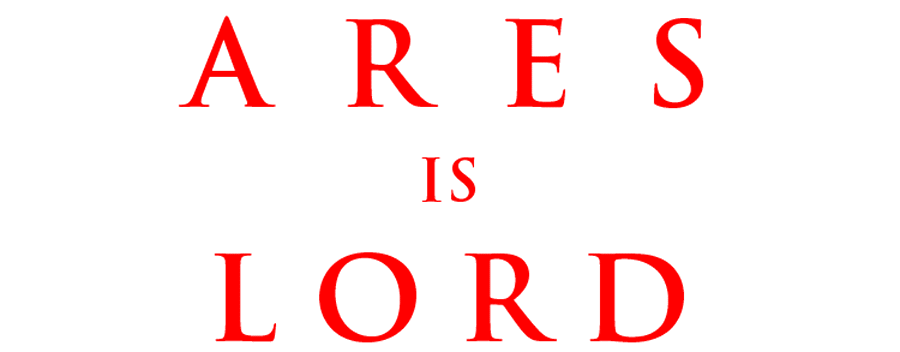




















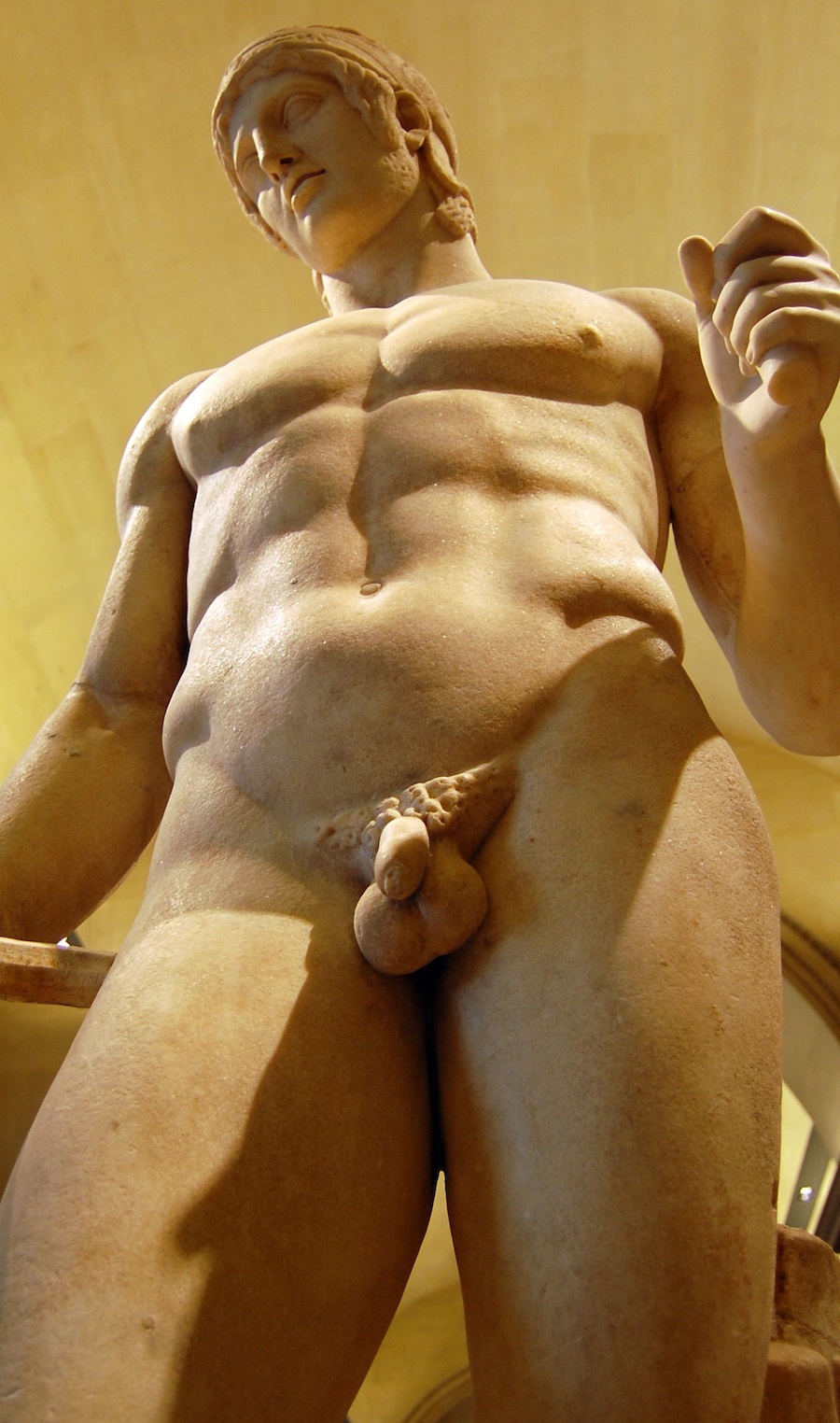




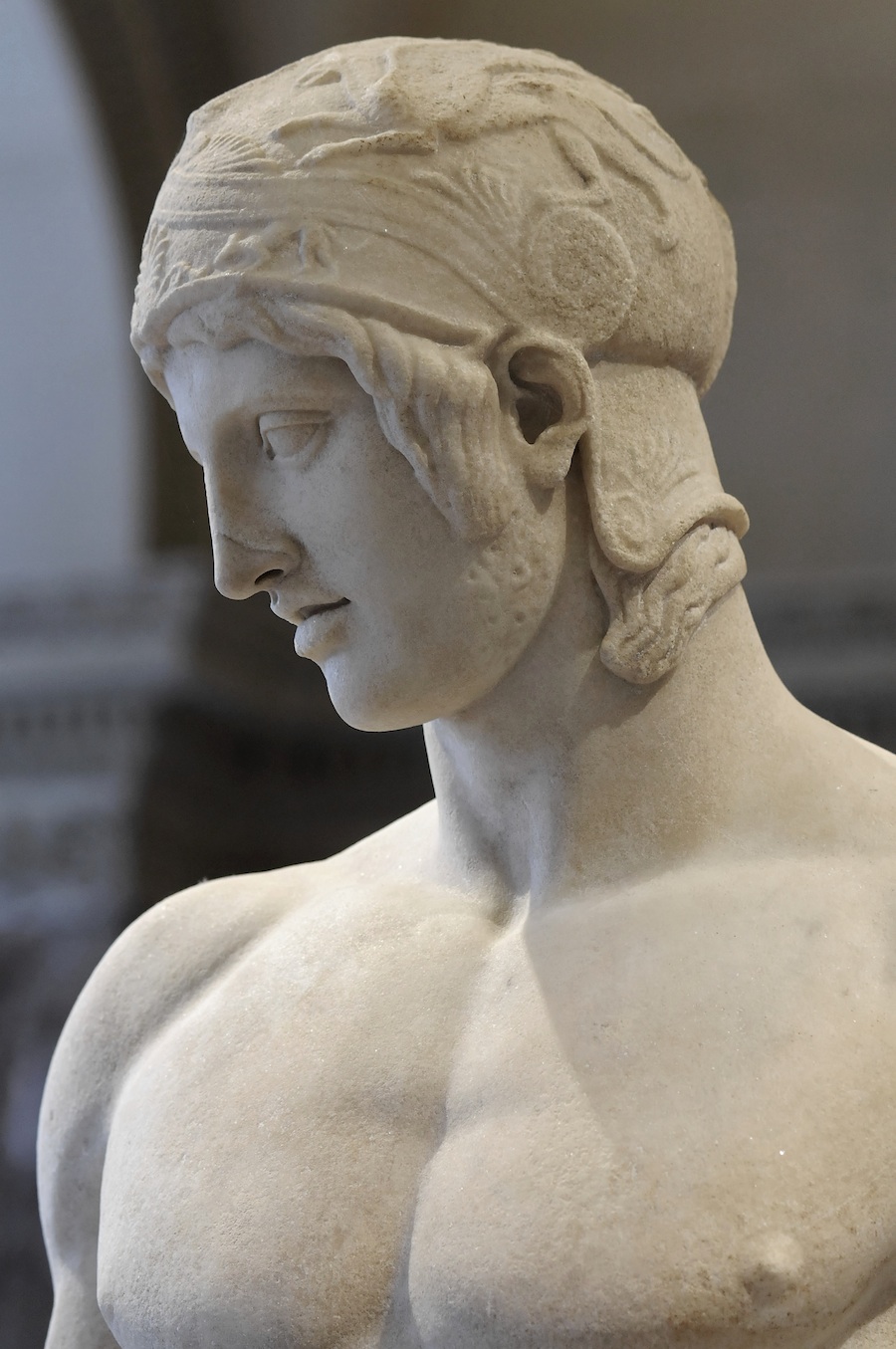


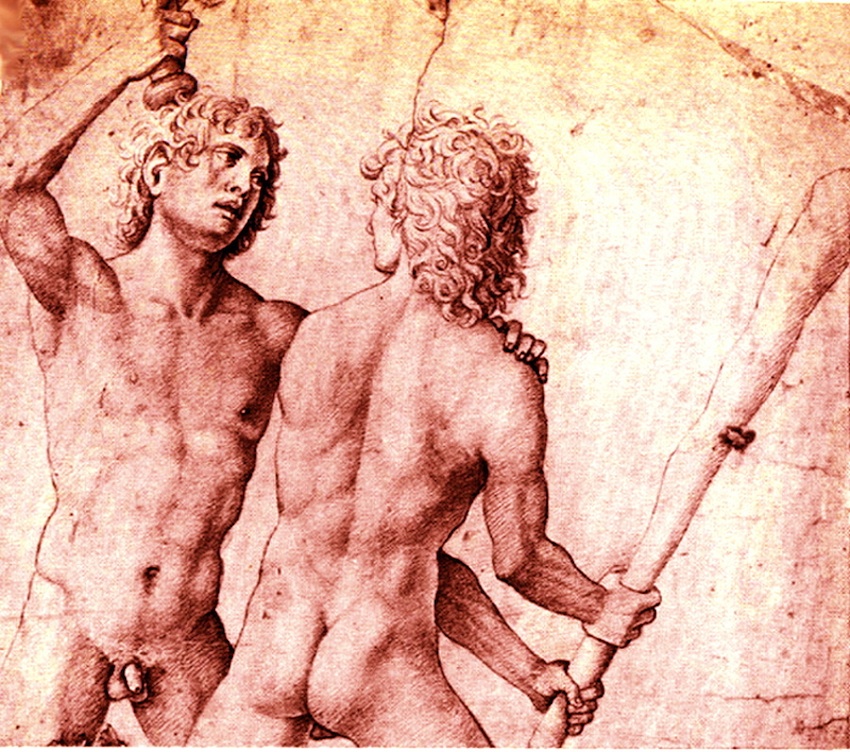

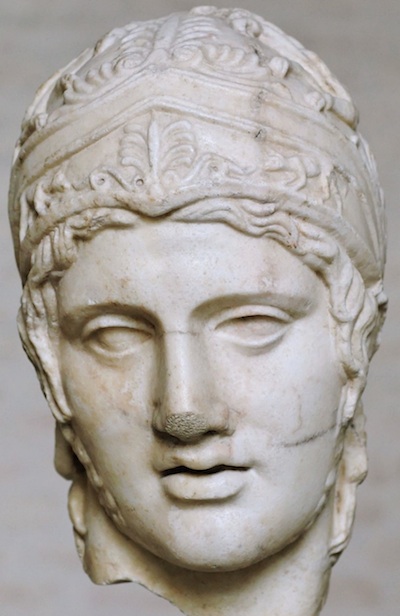





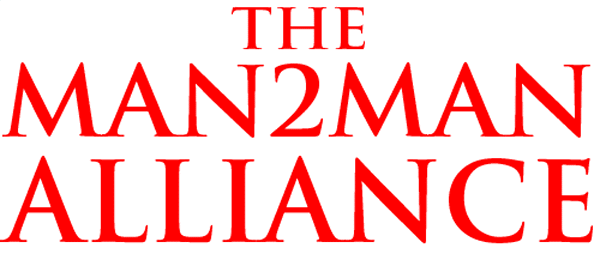

















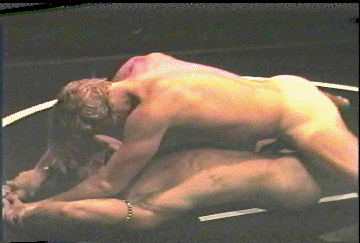
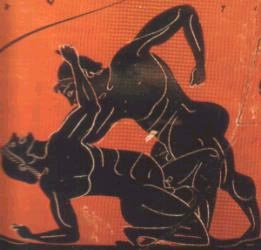
who reject anal penetration, promiscuity, and effeminacy

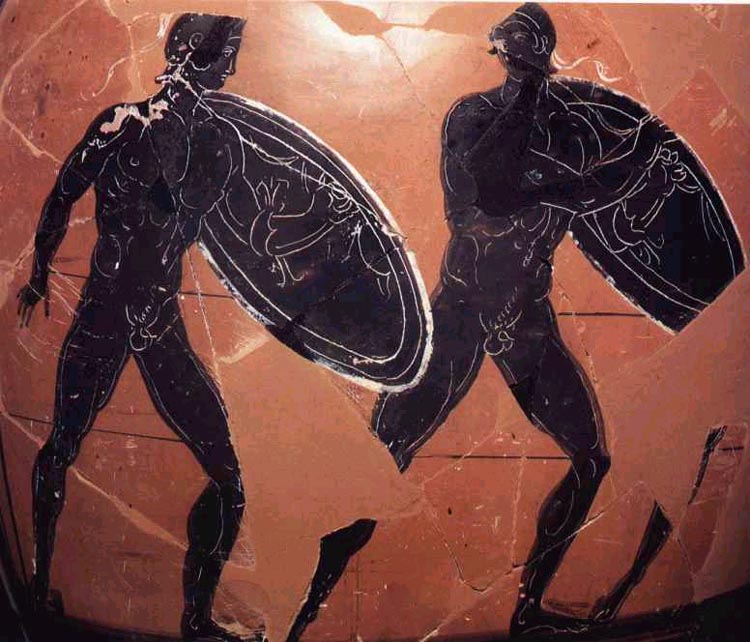


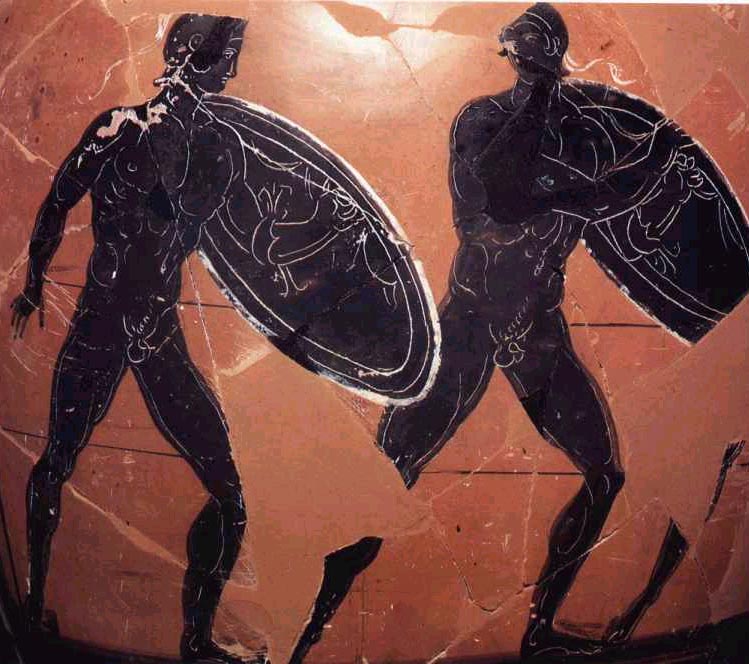






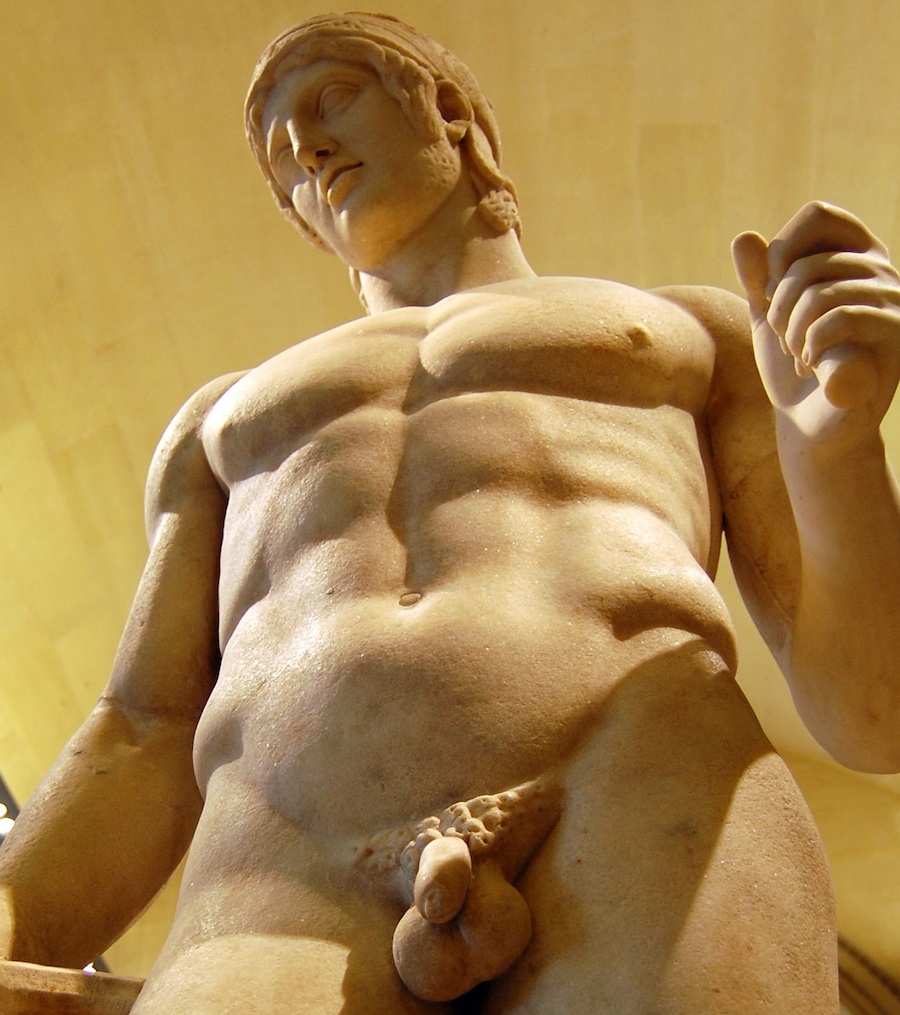


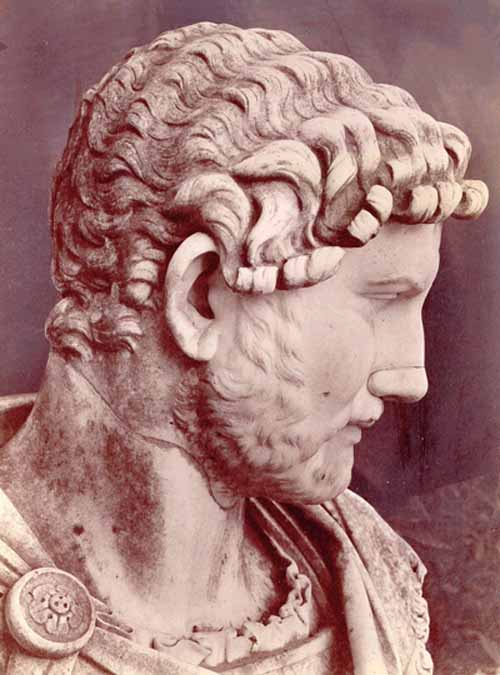
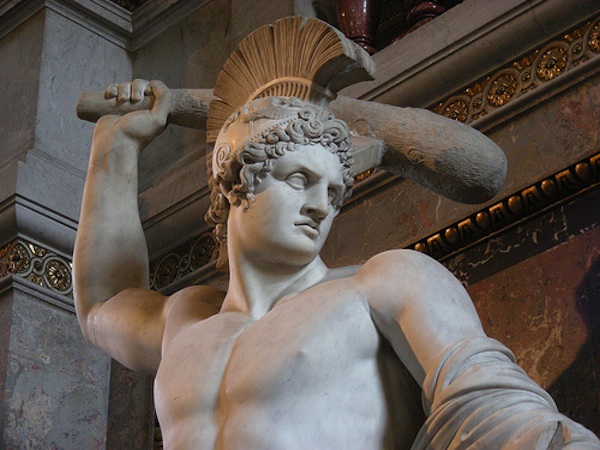
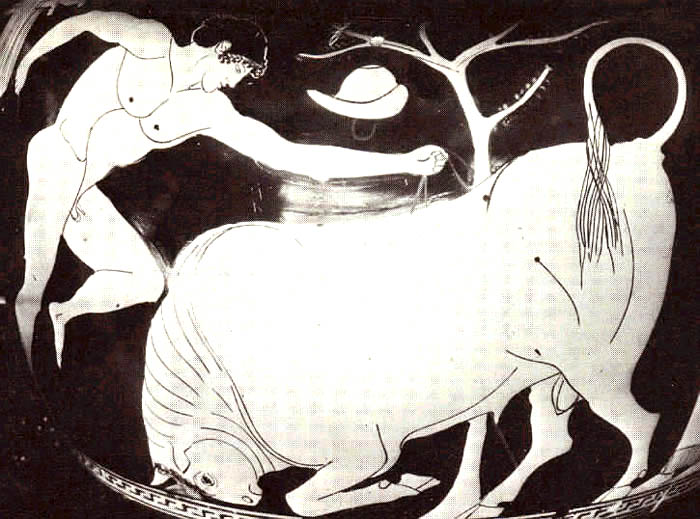




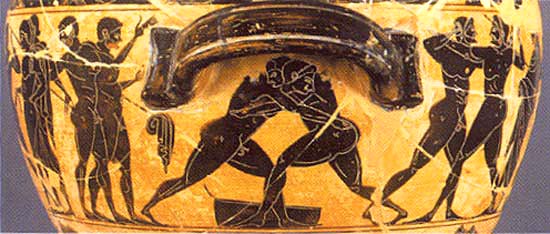

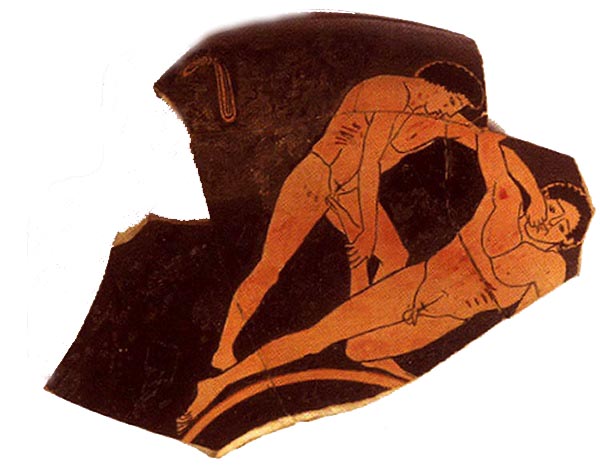
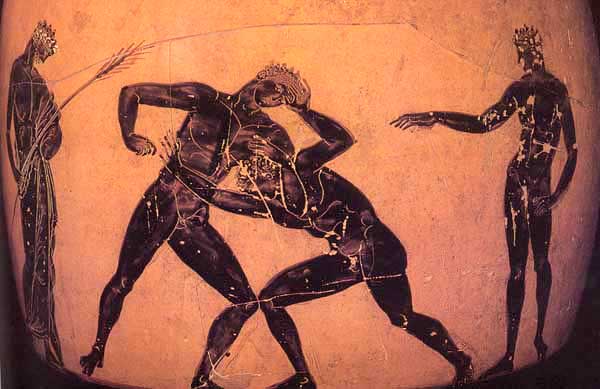
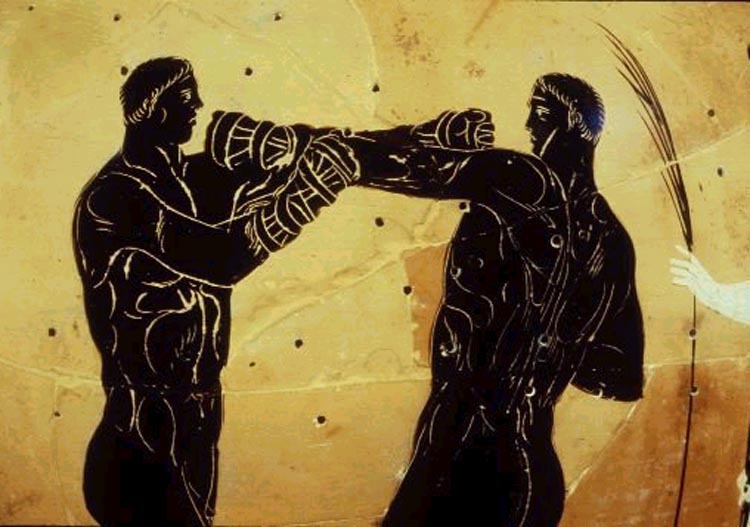
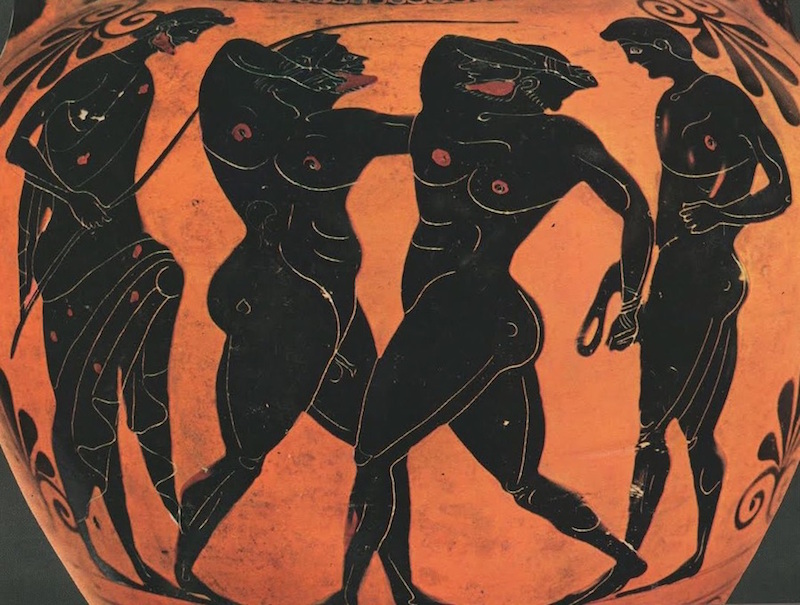
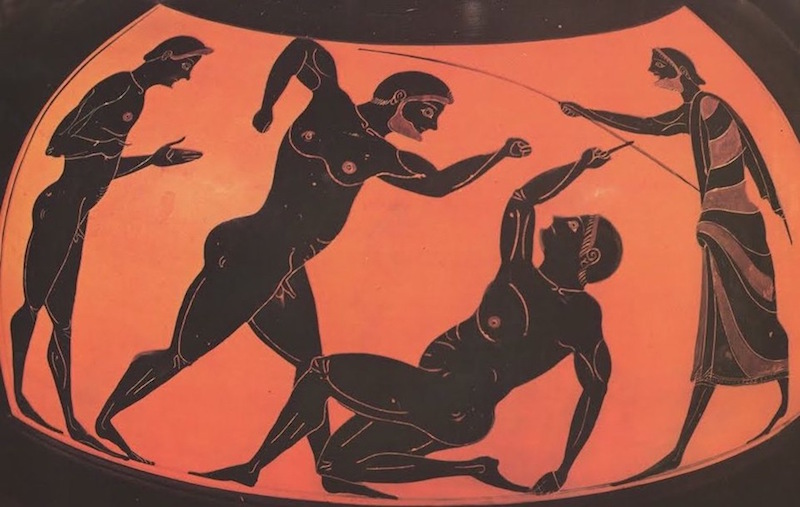
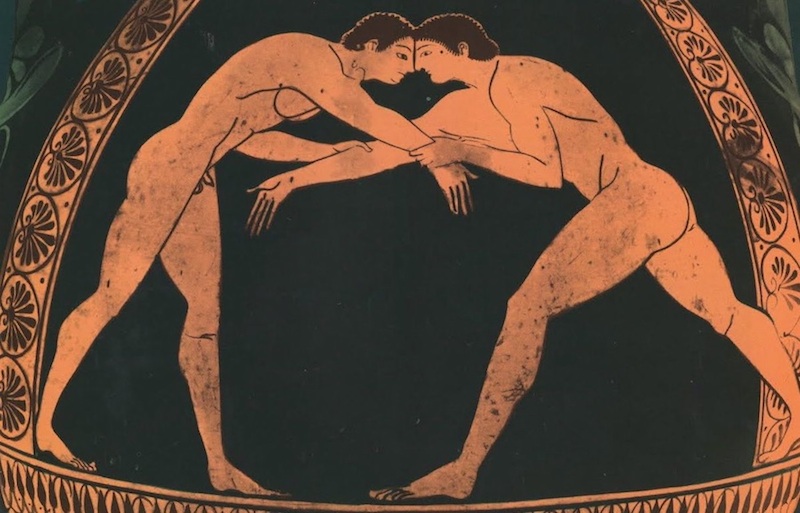
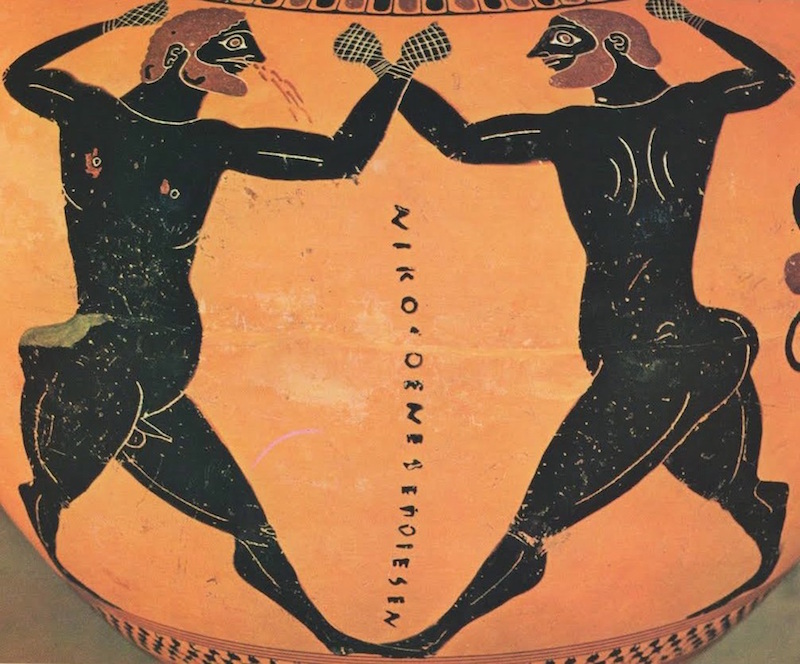
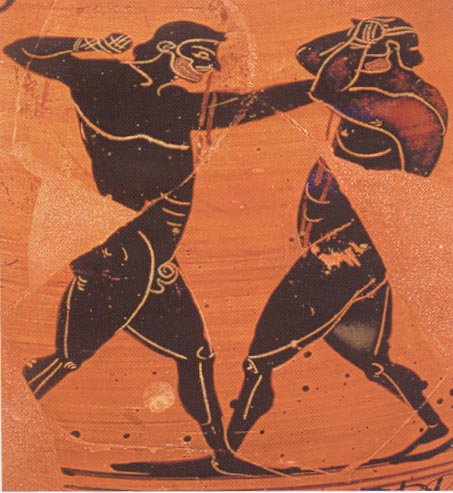
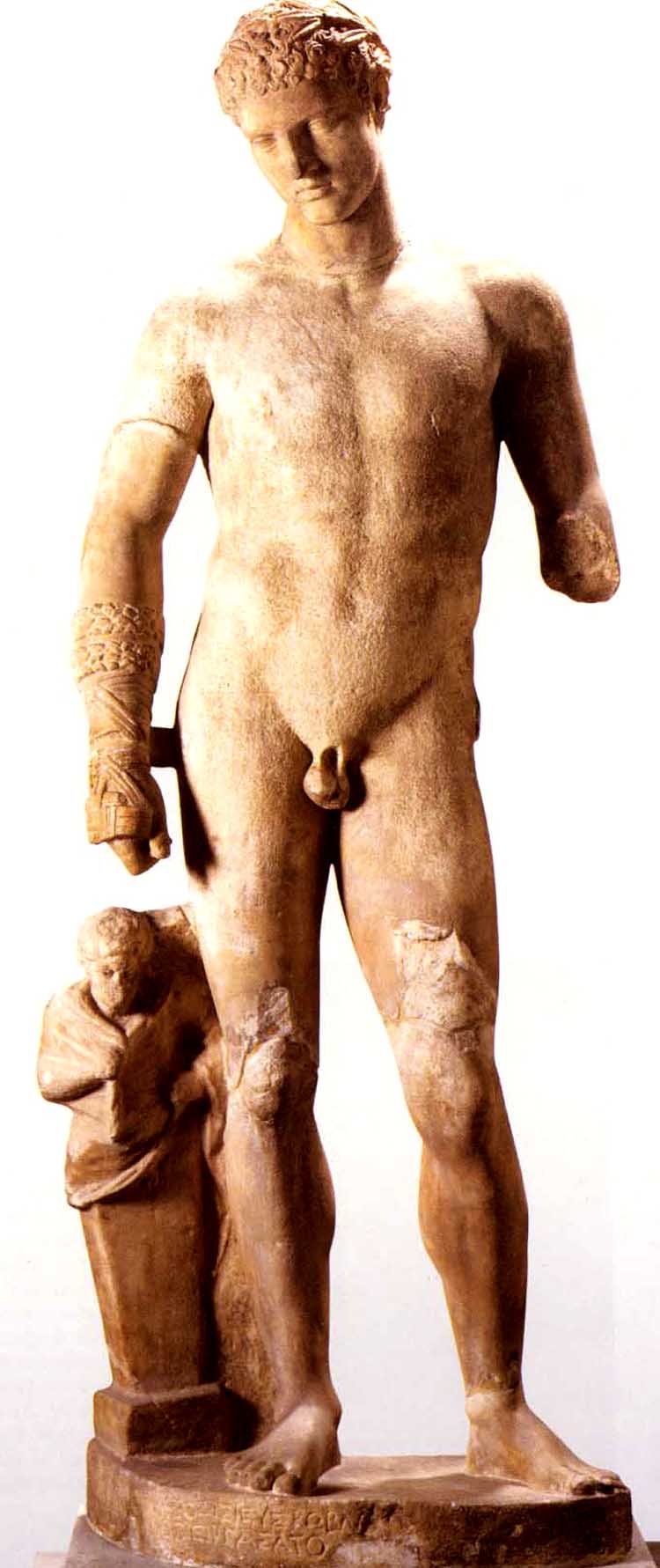




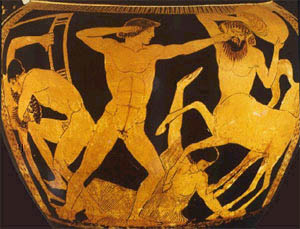
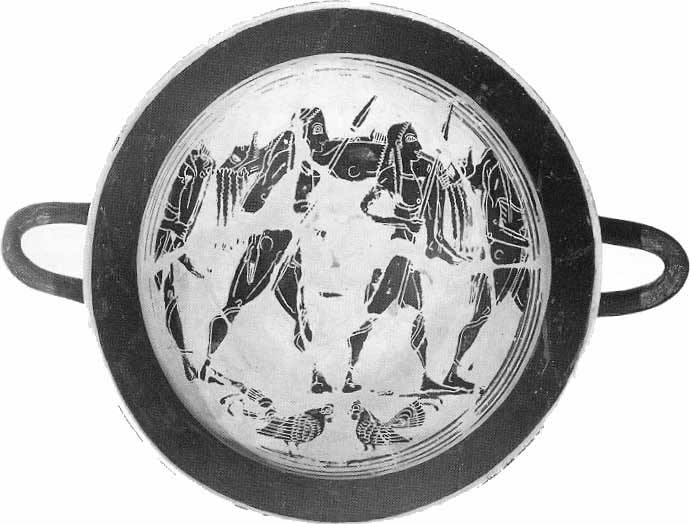
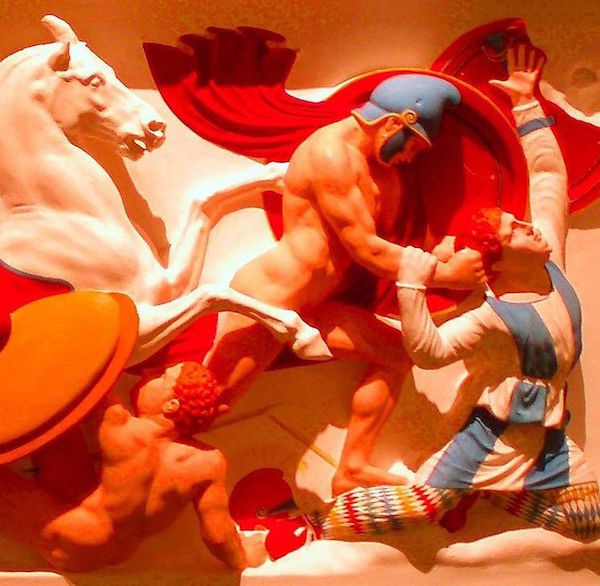
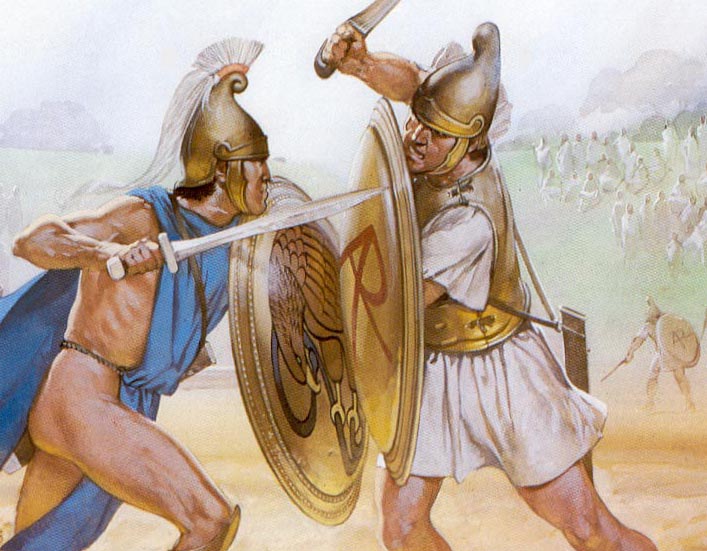
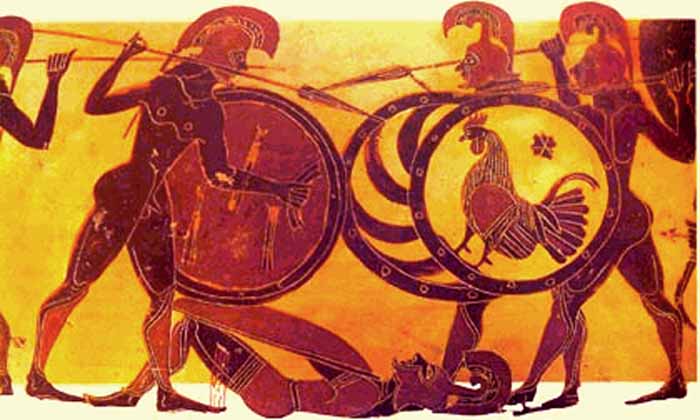
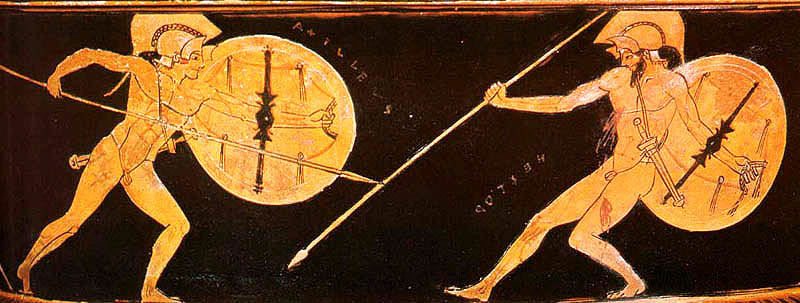
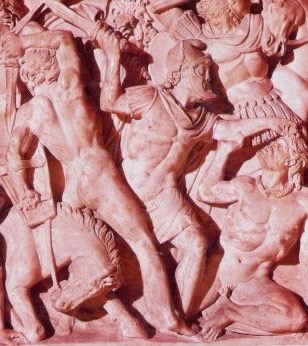
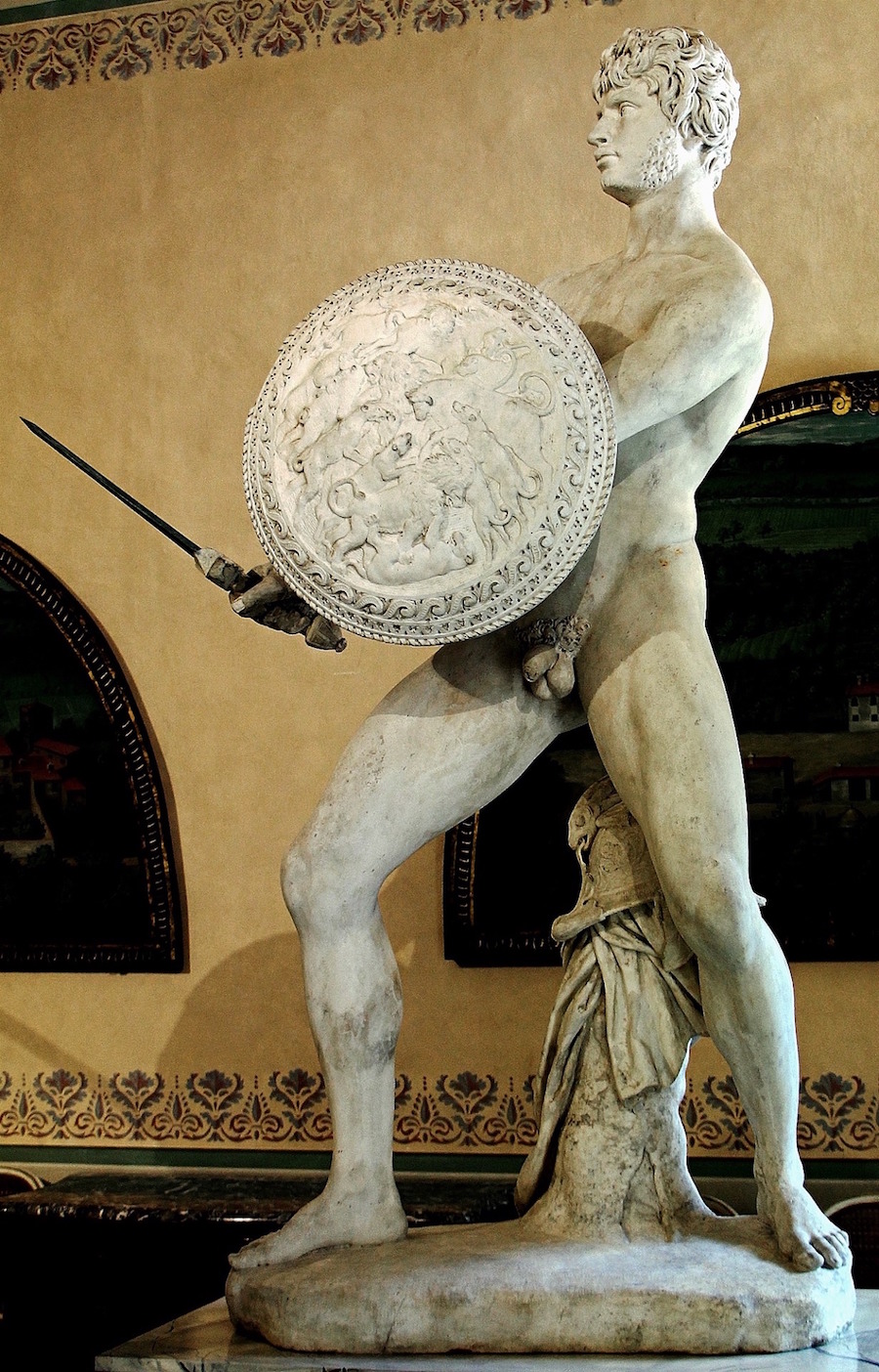







Fight
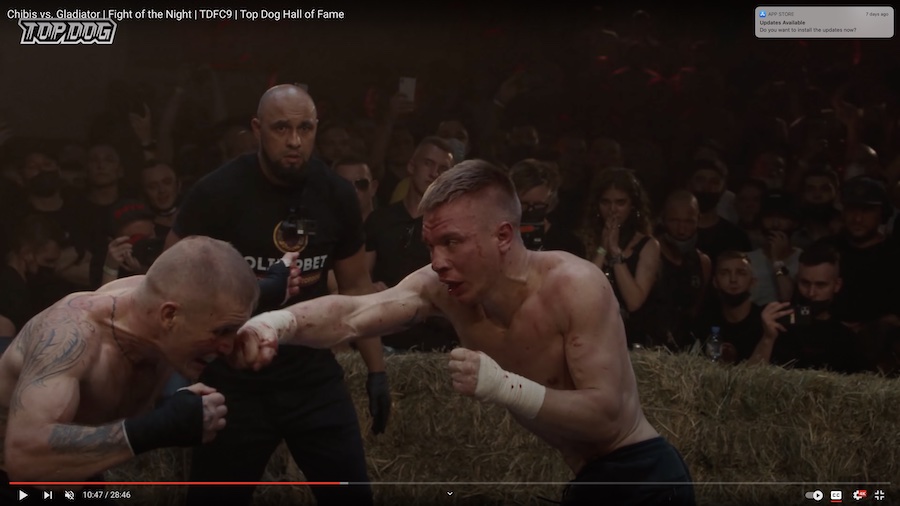
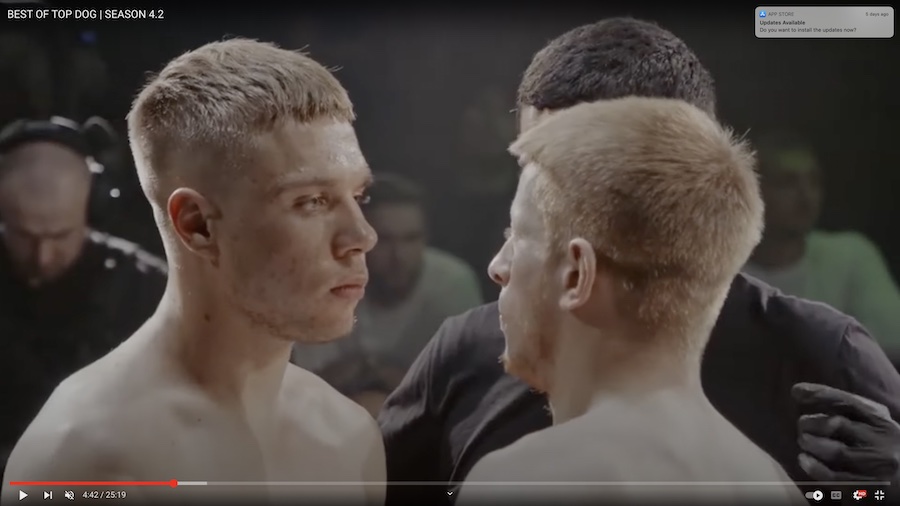

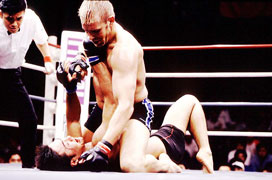
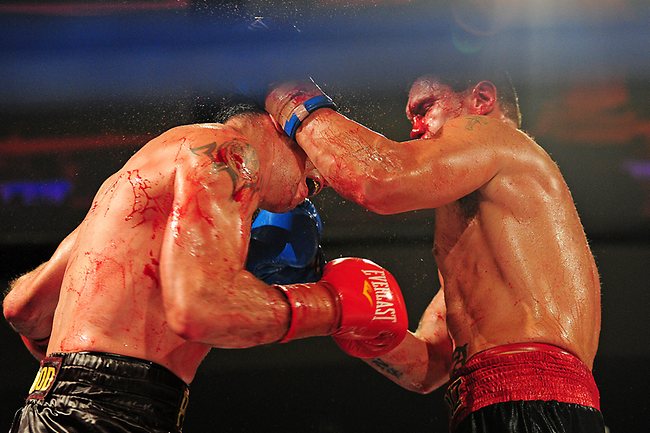
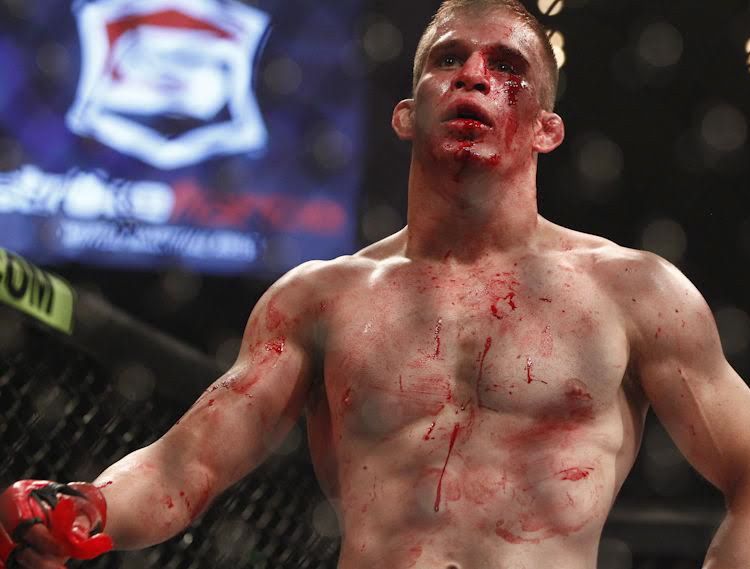
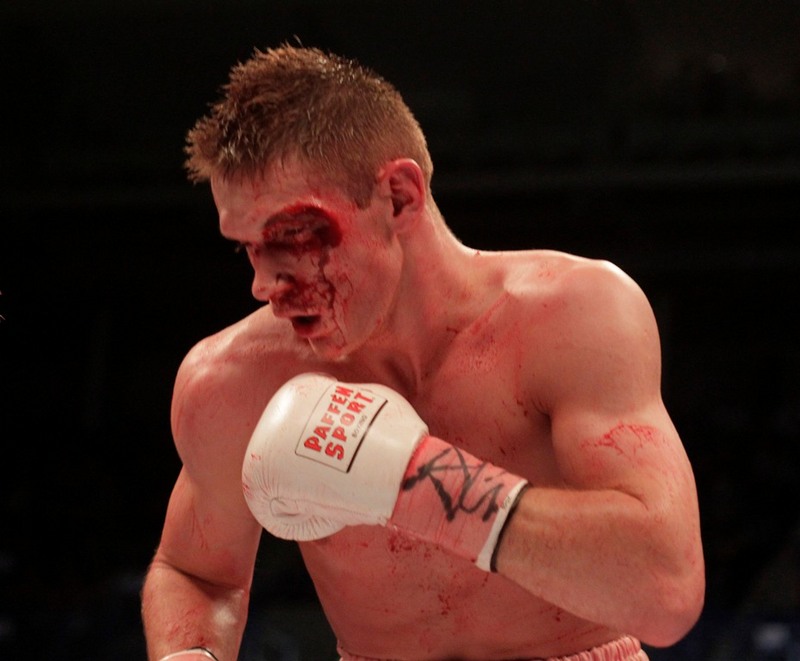
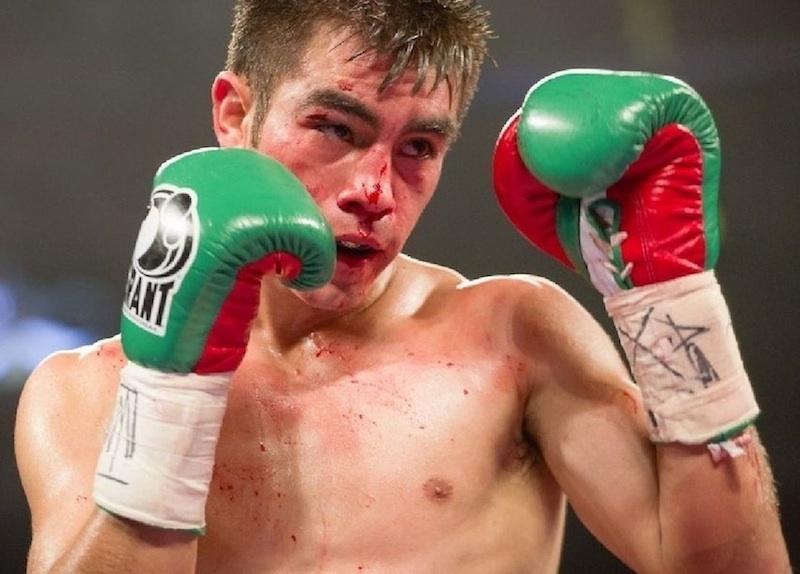
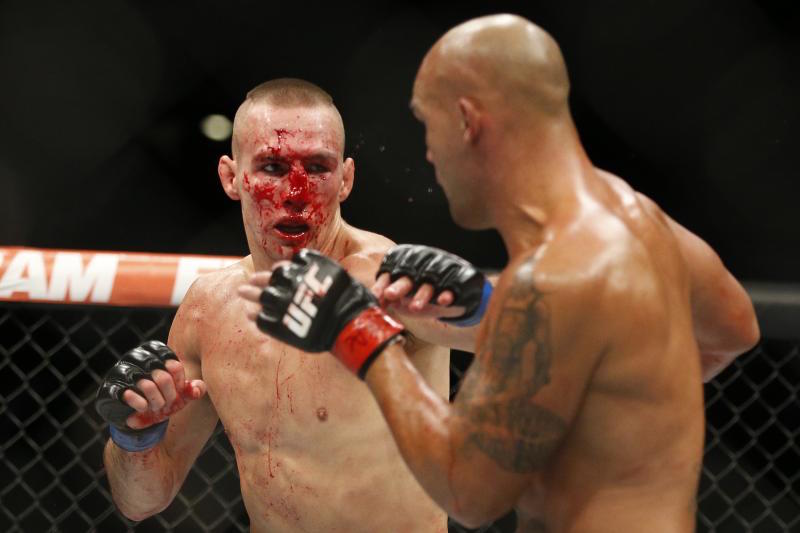
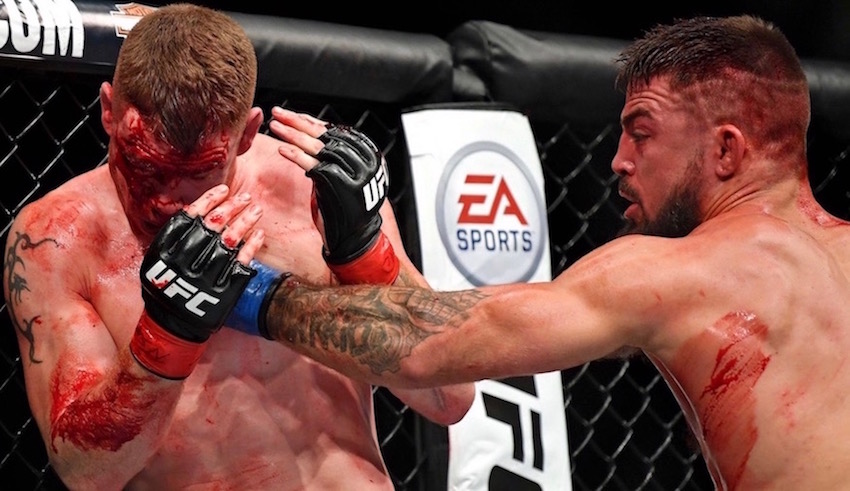
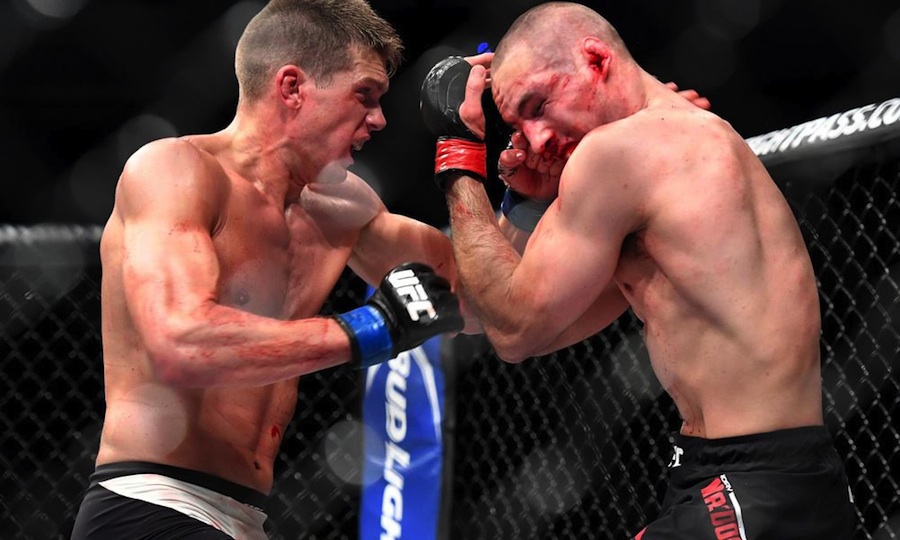
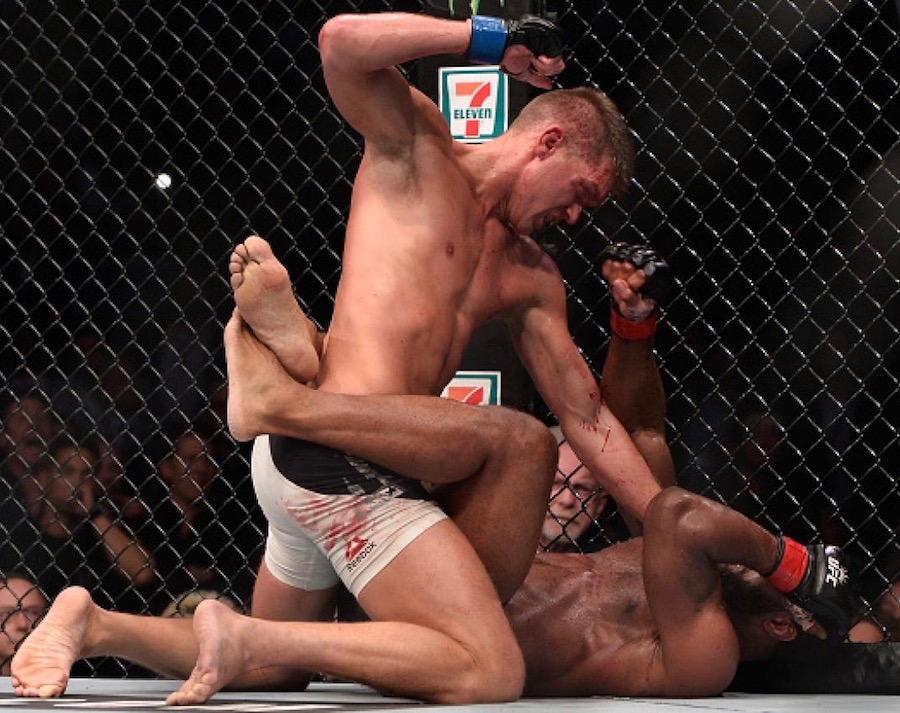
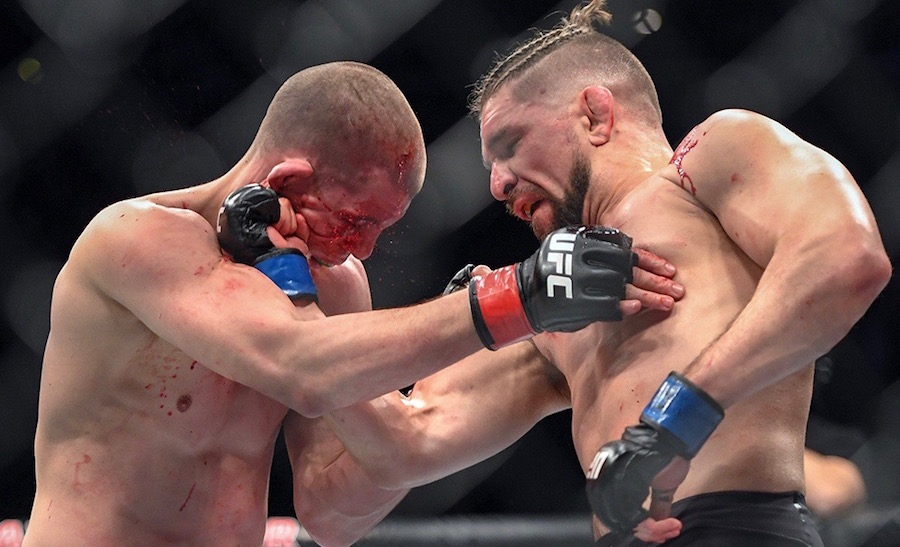
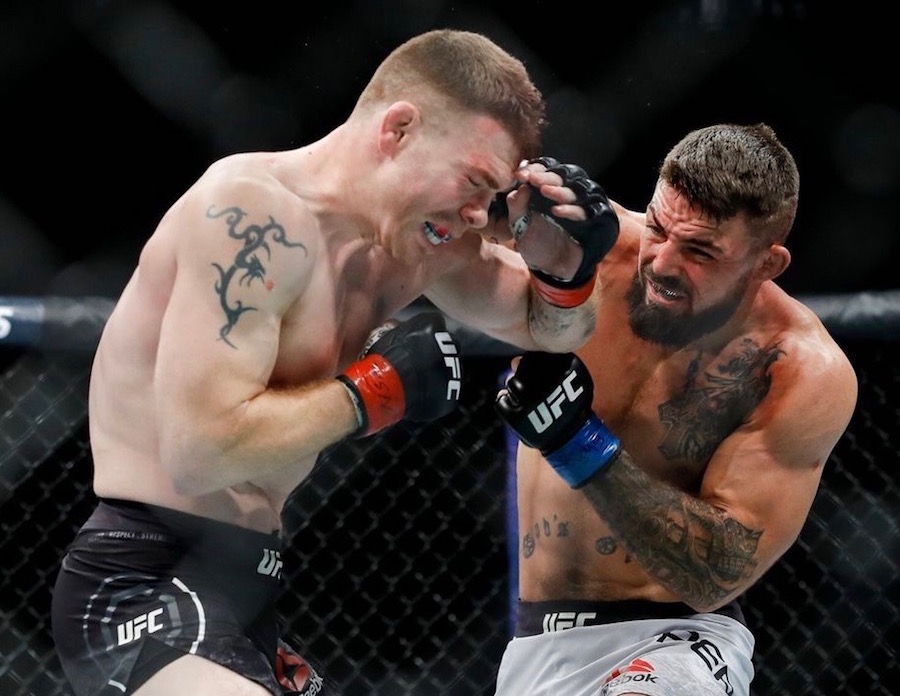
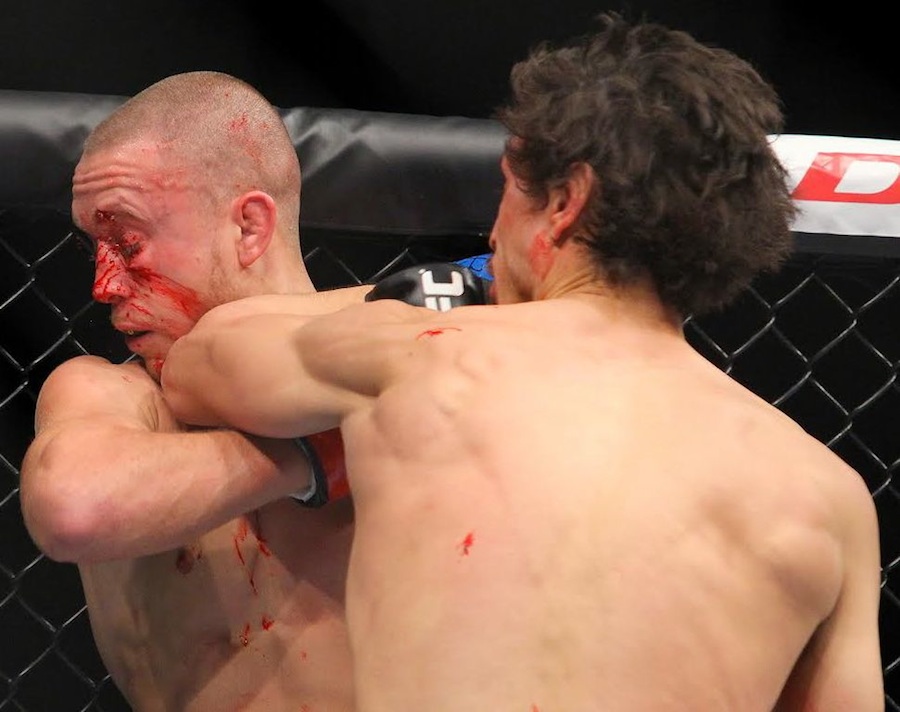
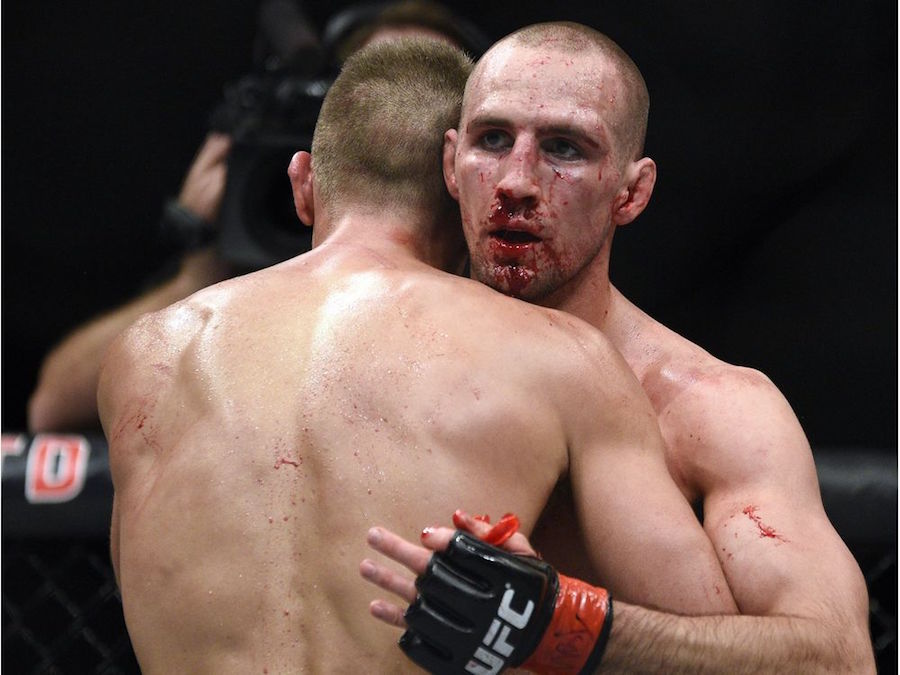
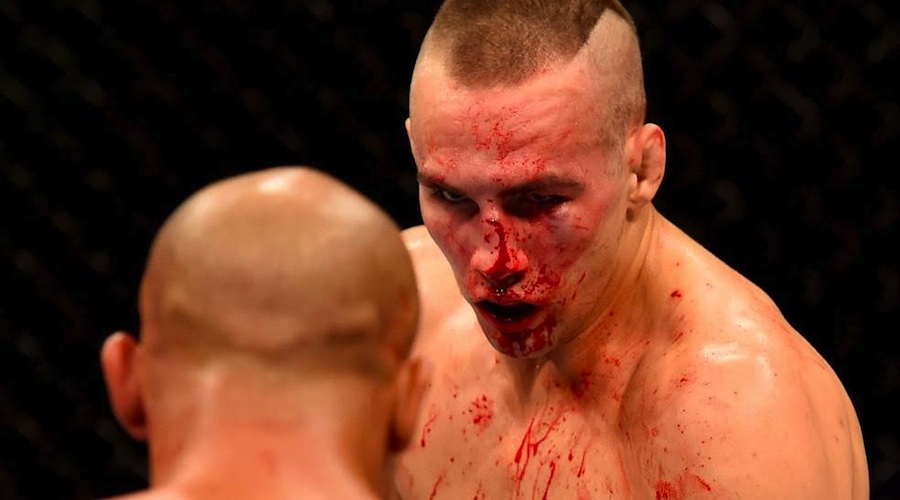
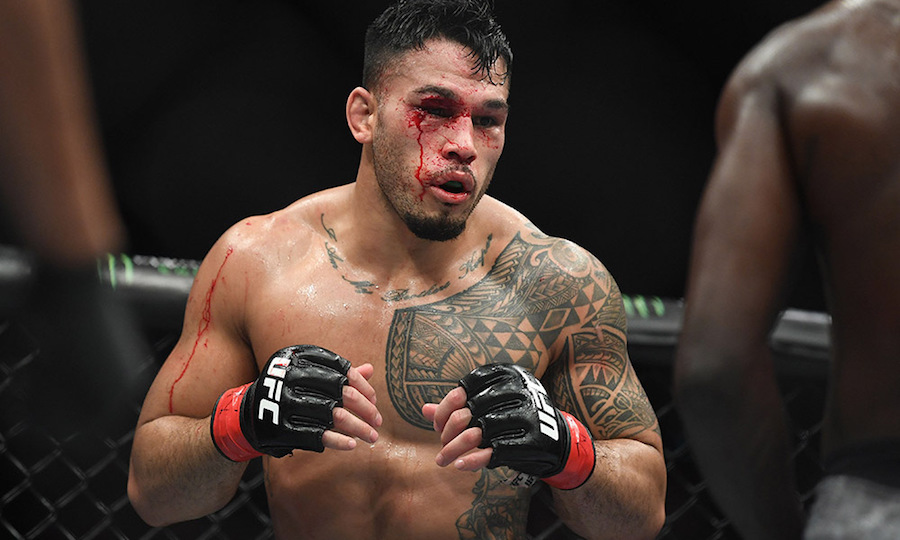

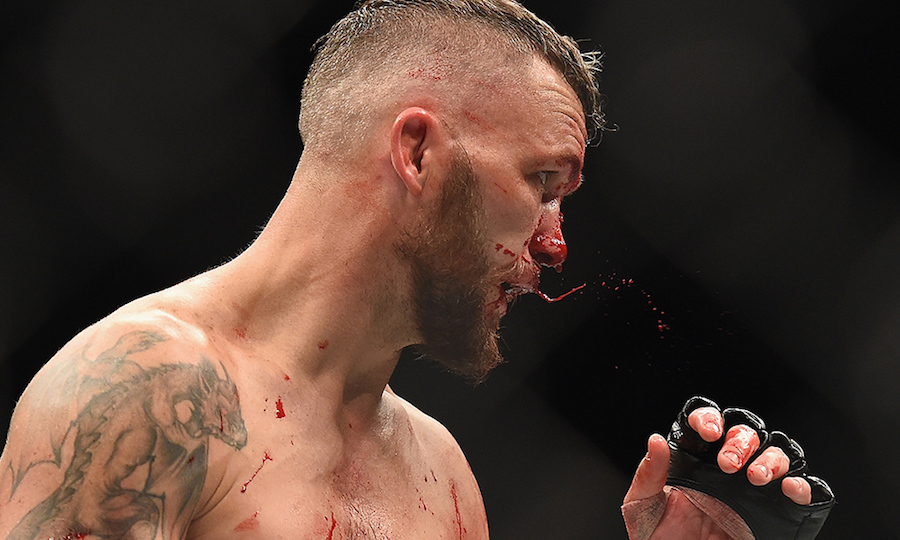
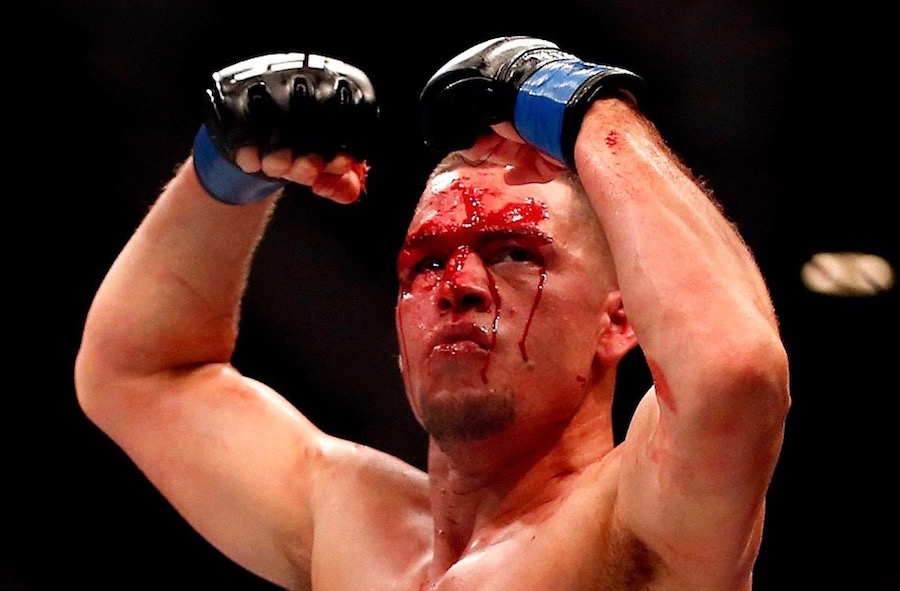

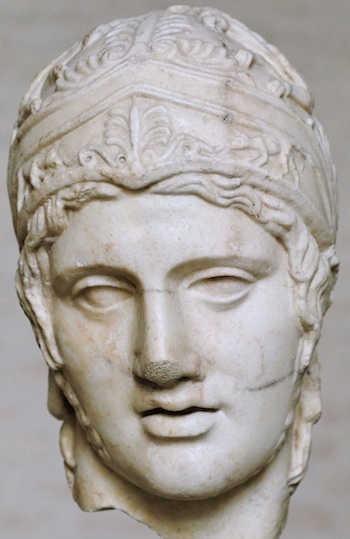

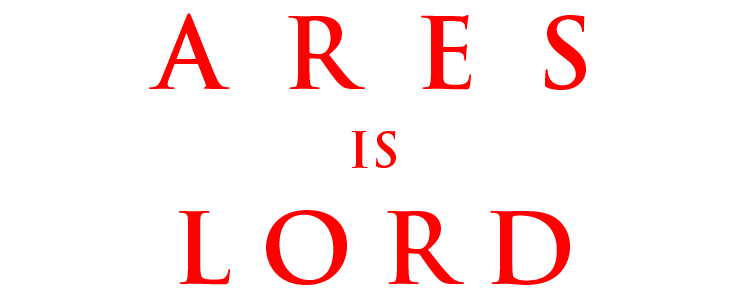
























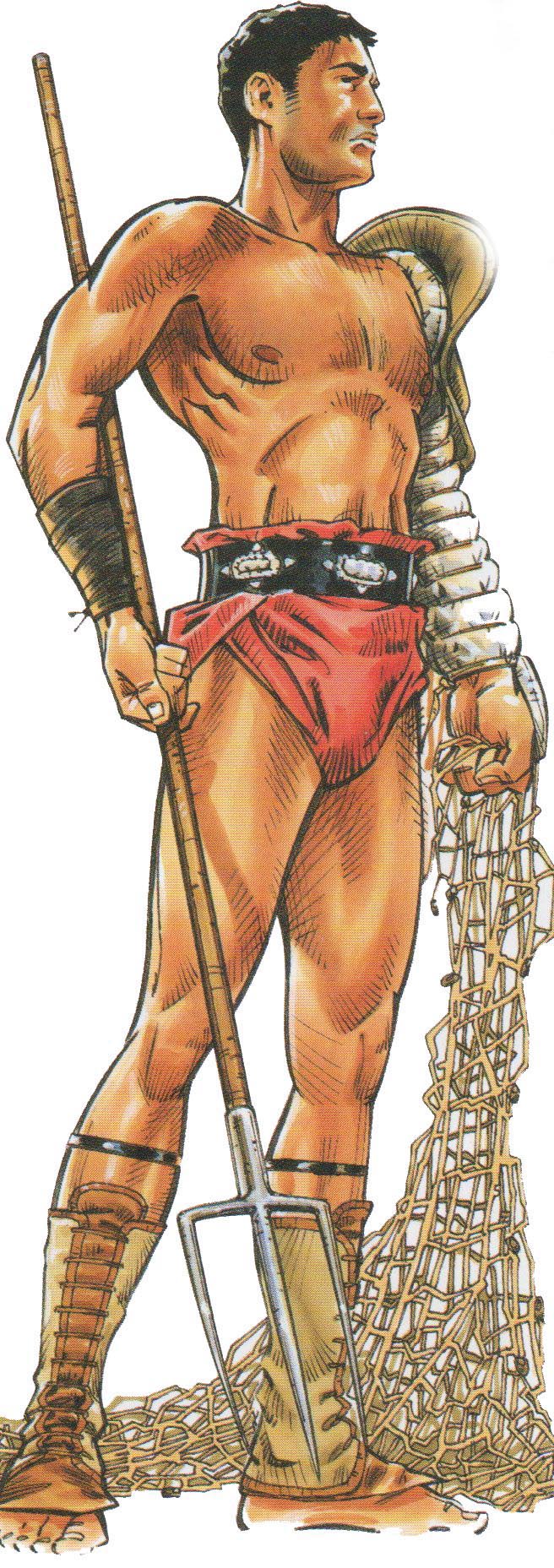
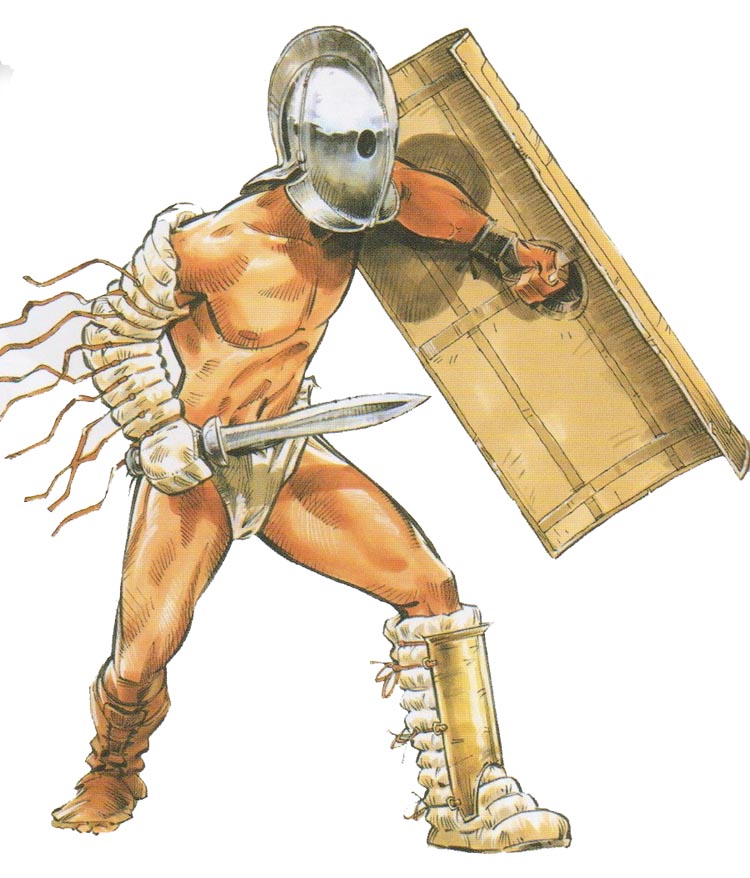
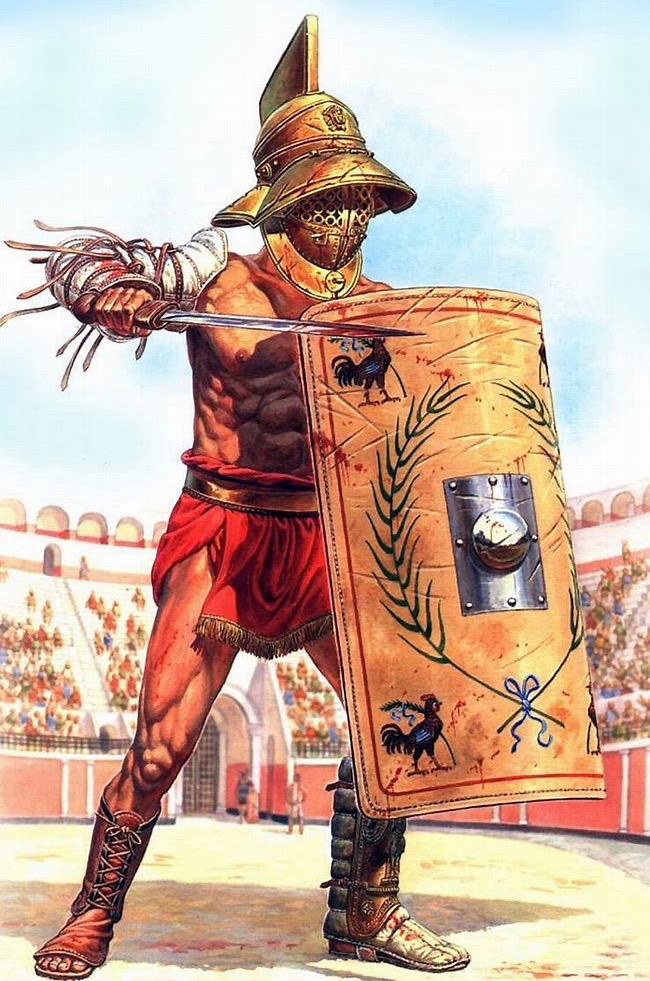




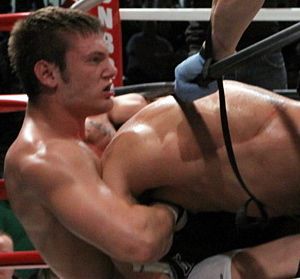
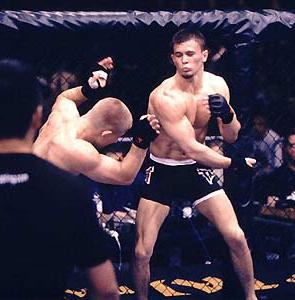
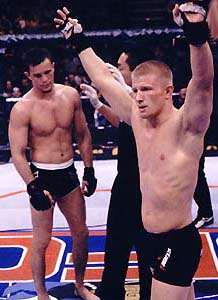













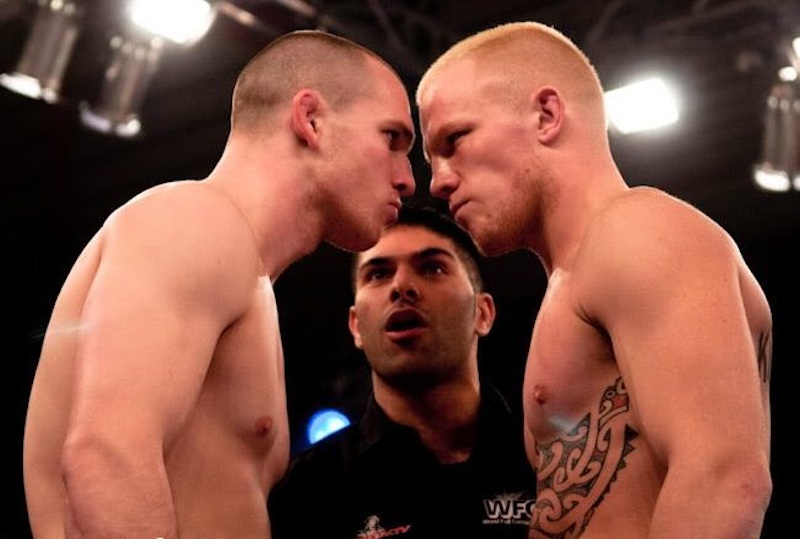
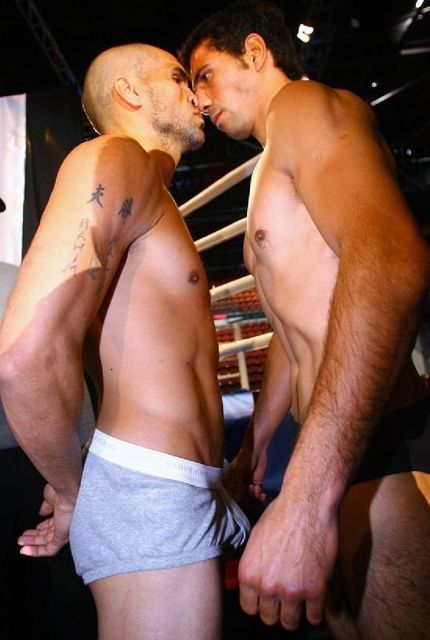
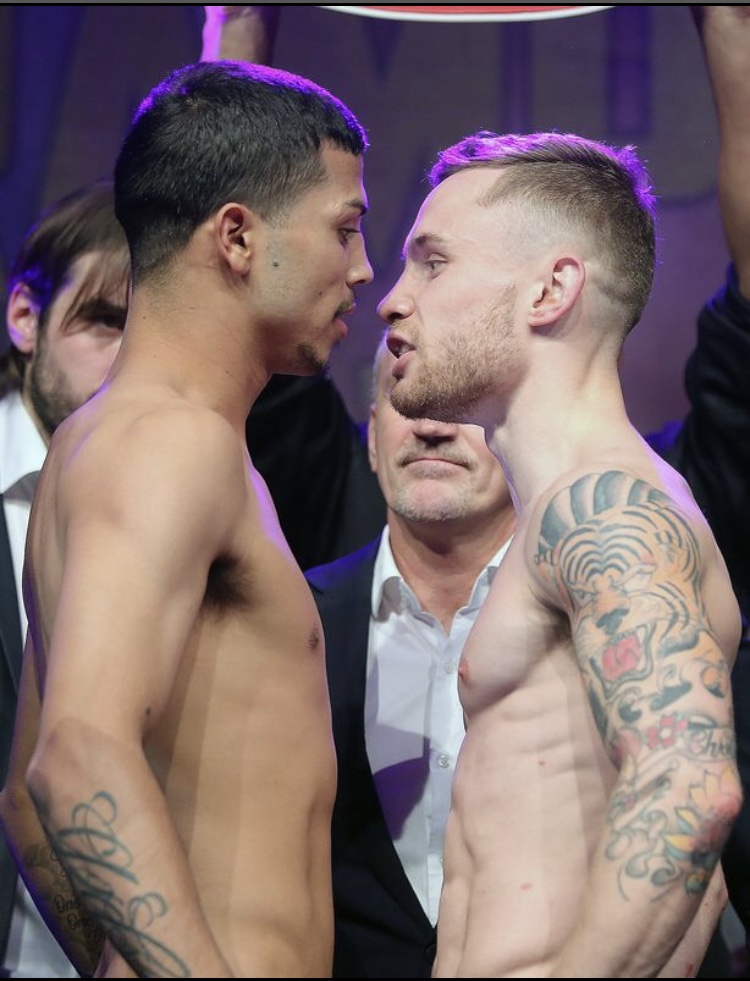

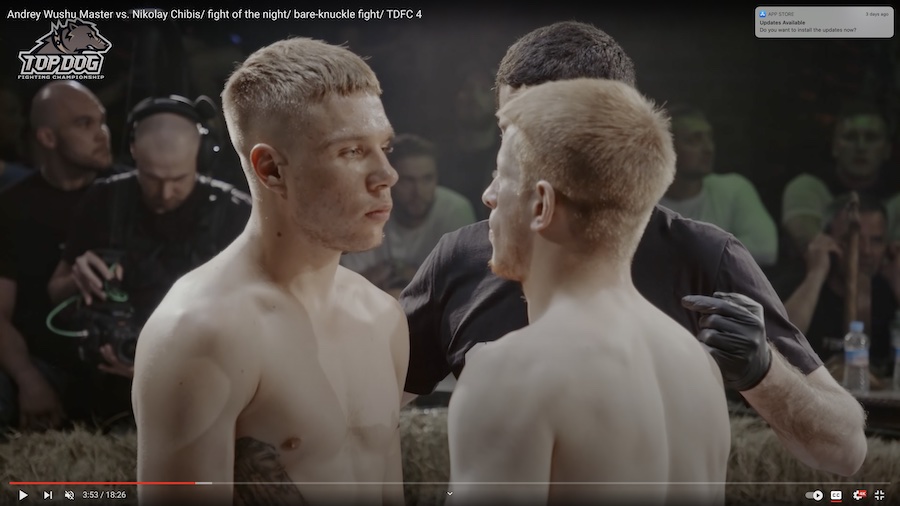
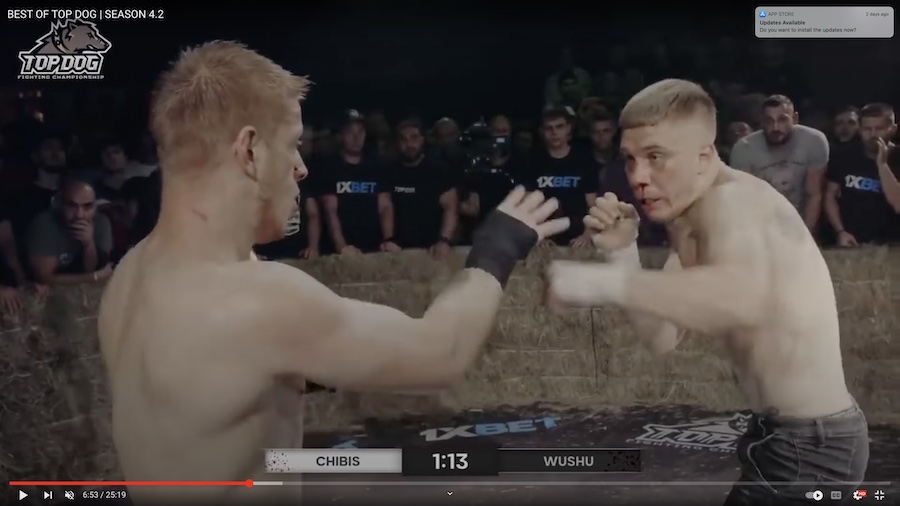
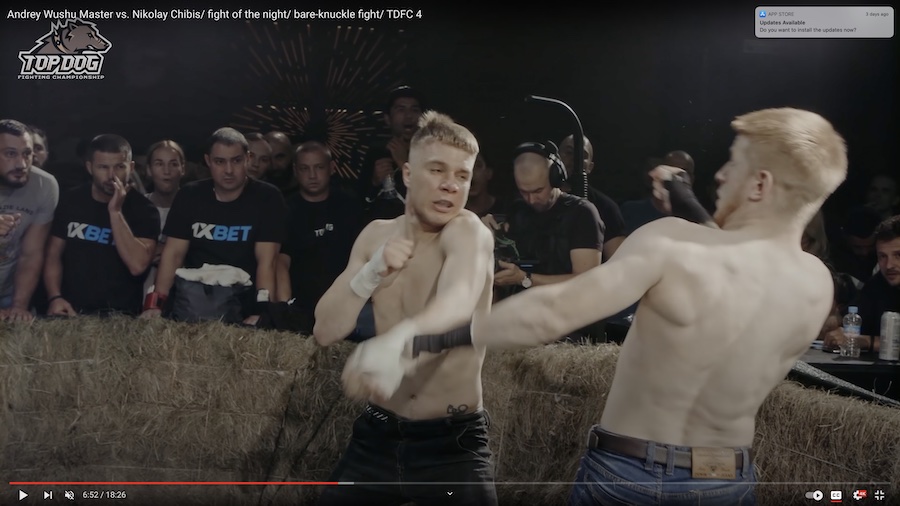
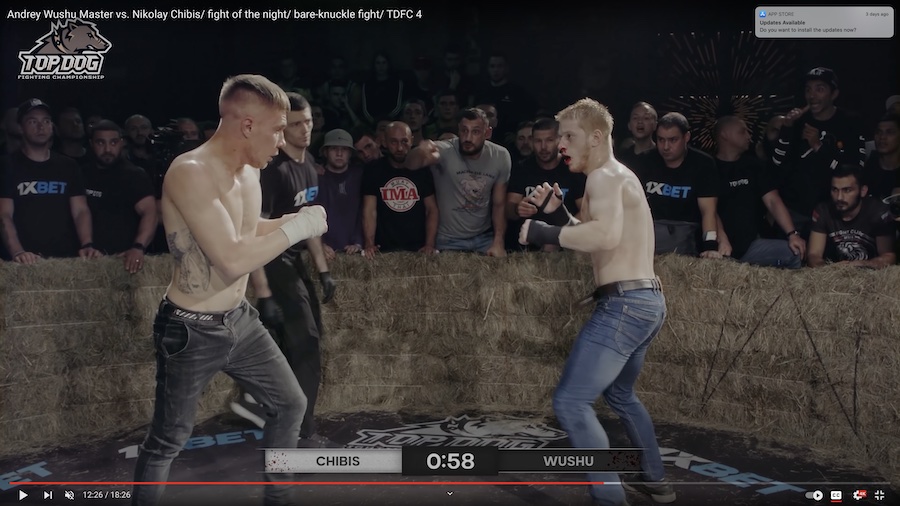
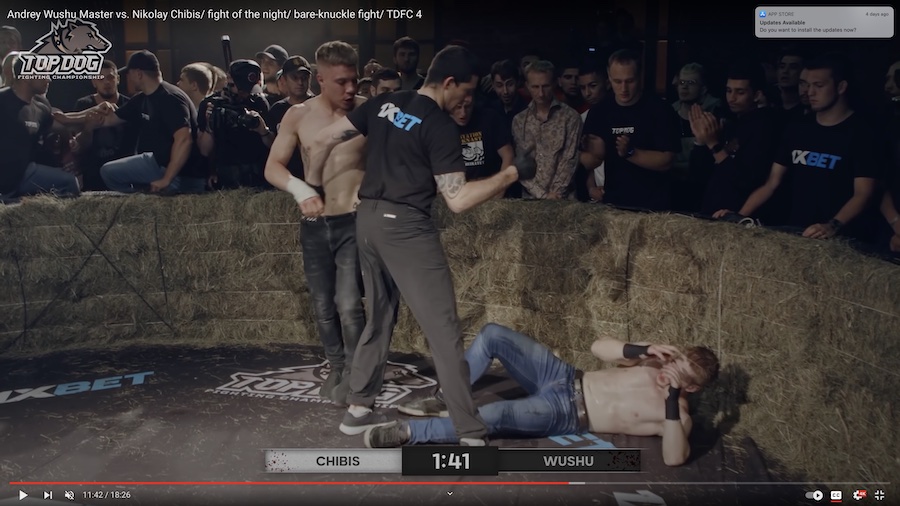
































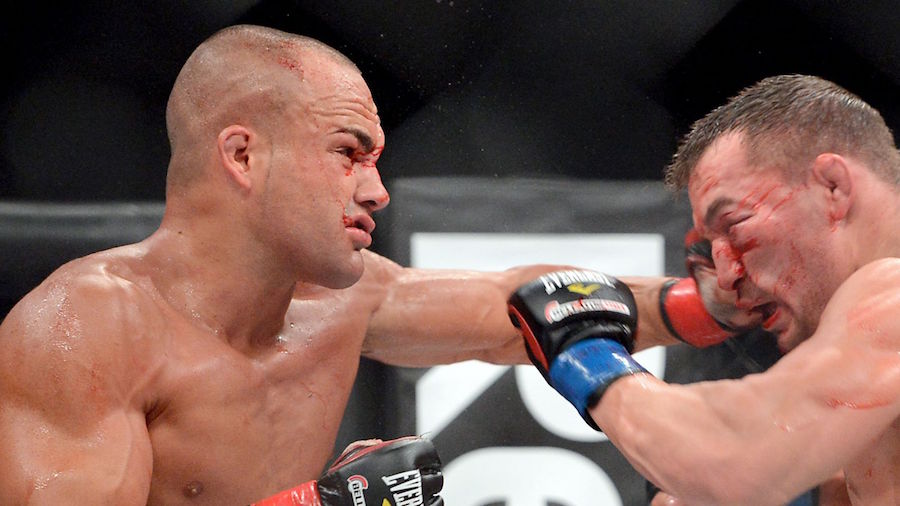








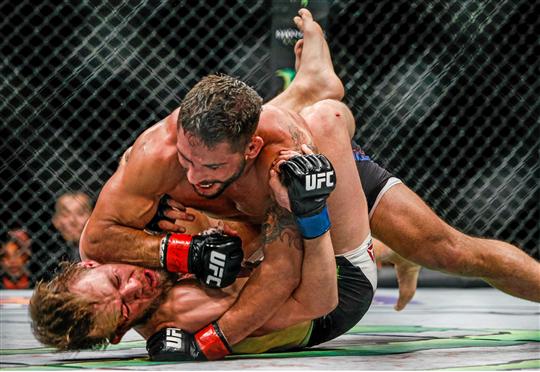
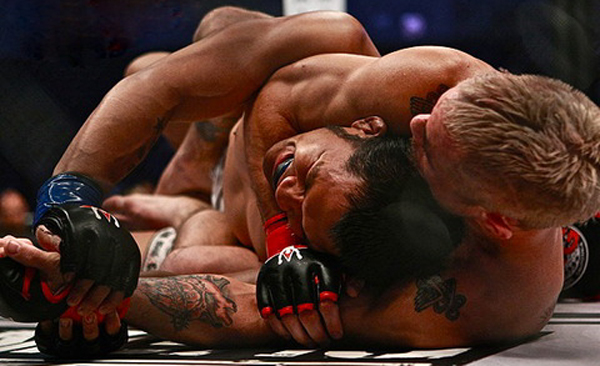
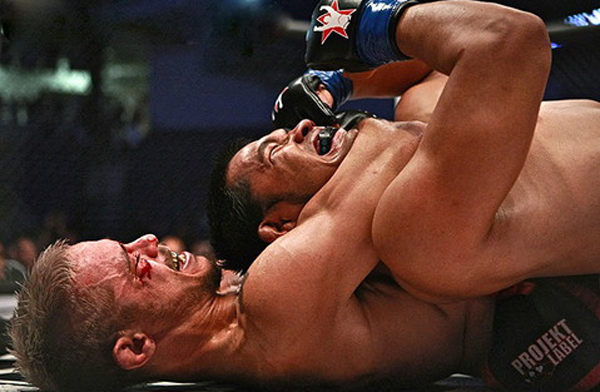
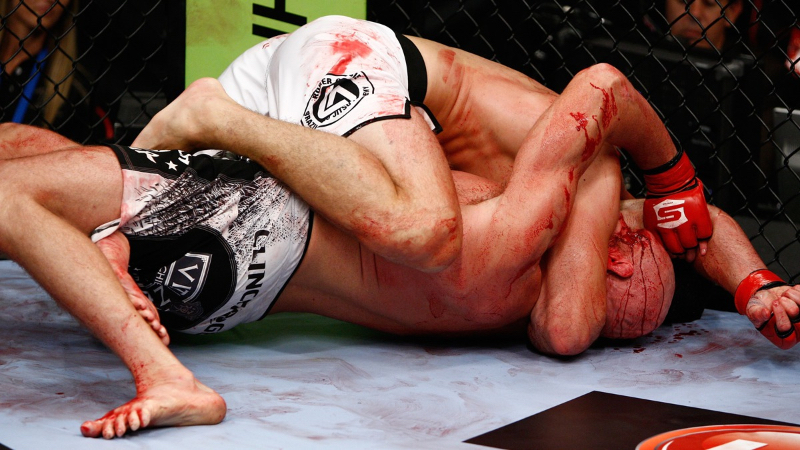
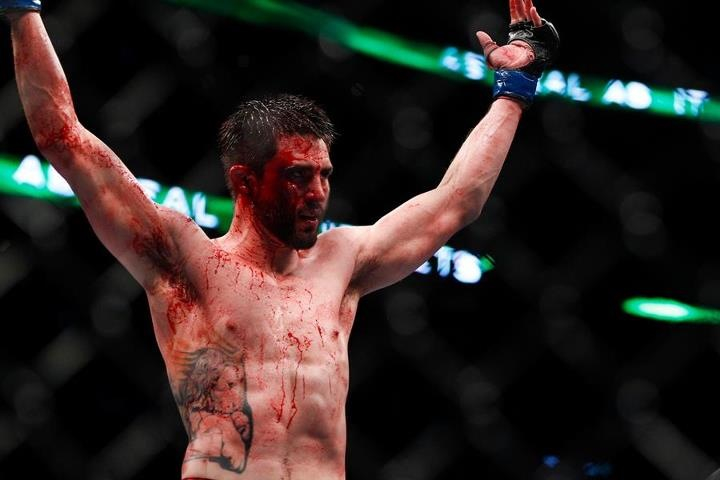
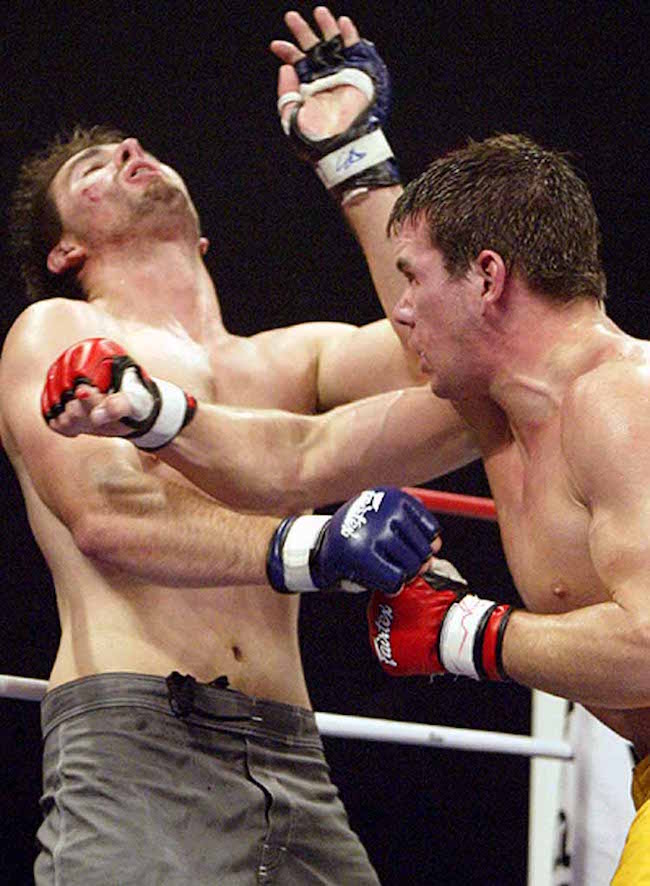

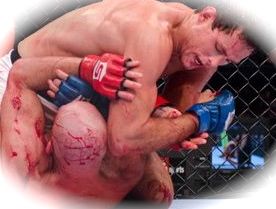
Plato, in the Kratylos :













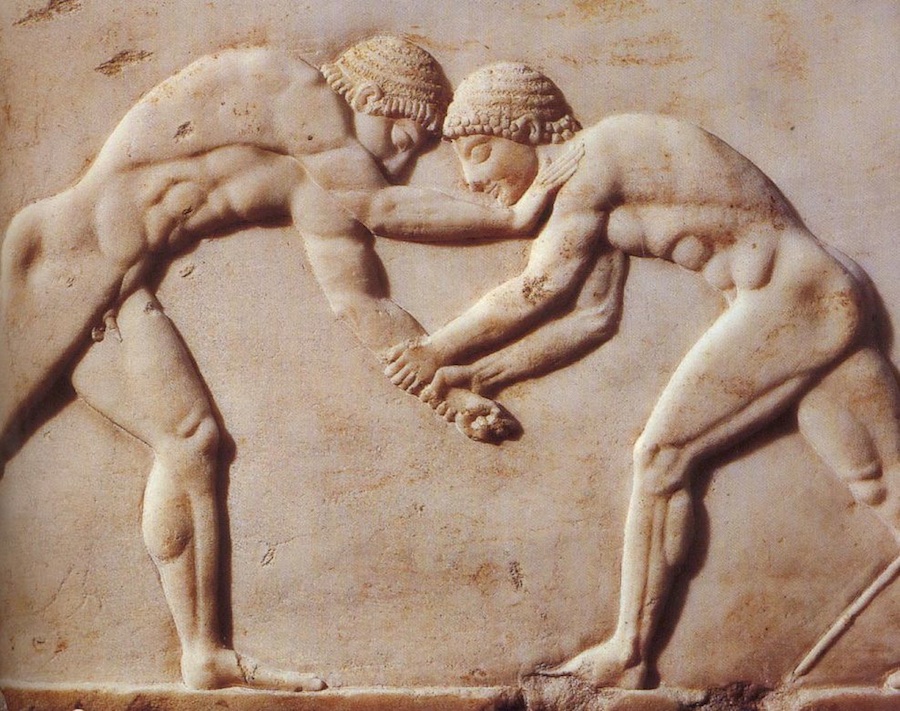
This bas-relief -- ca 525 BC -- of Combatant Youths locked in a Wrestling Tie-Up -- their eyes on each other's naked groins
-- epitomizes the mix of Muscular Athleticism and Martial Homoeroticism which informed the Manly, and Romantic, Love of ancient Greece.
[Areté is] goodness, excellence, of any kind, esp. of manly qualities, manhood, valour, prowess (like Lat. virtus, from vir)
From the same root [ARES] come areté, ari-, areion [better -- more Manly], aristos [best -- most Manly], the first notion of goodness being that of manhood, bravery in war; cf. Lat. virtus.






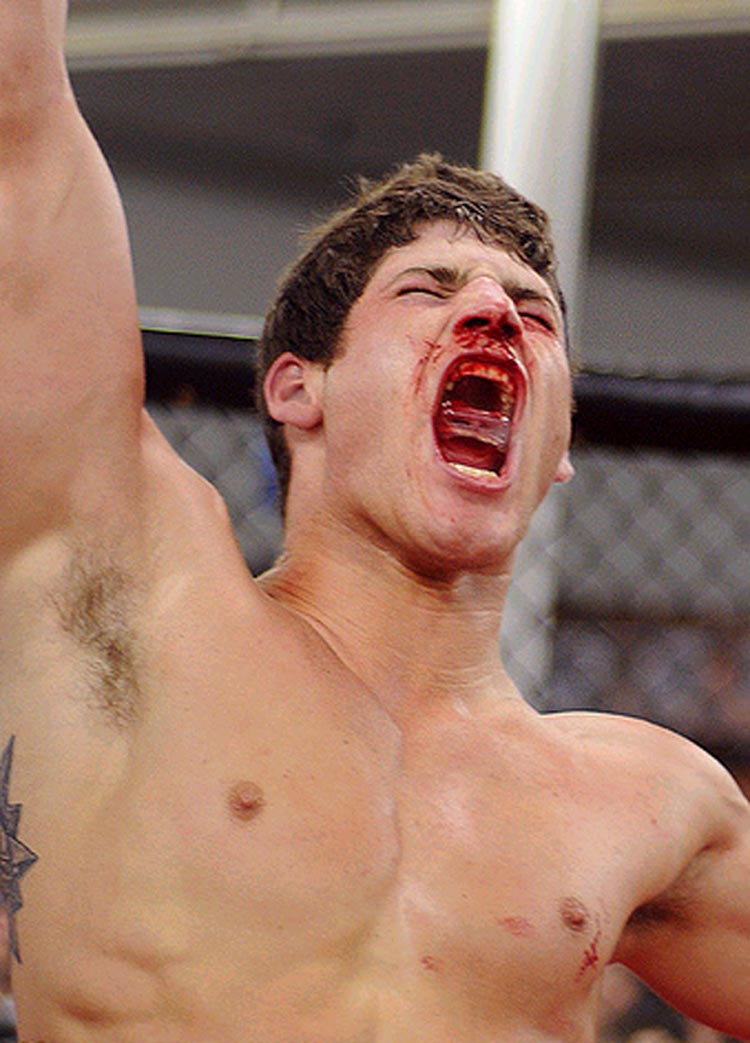



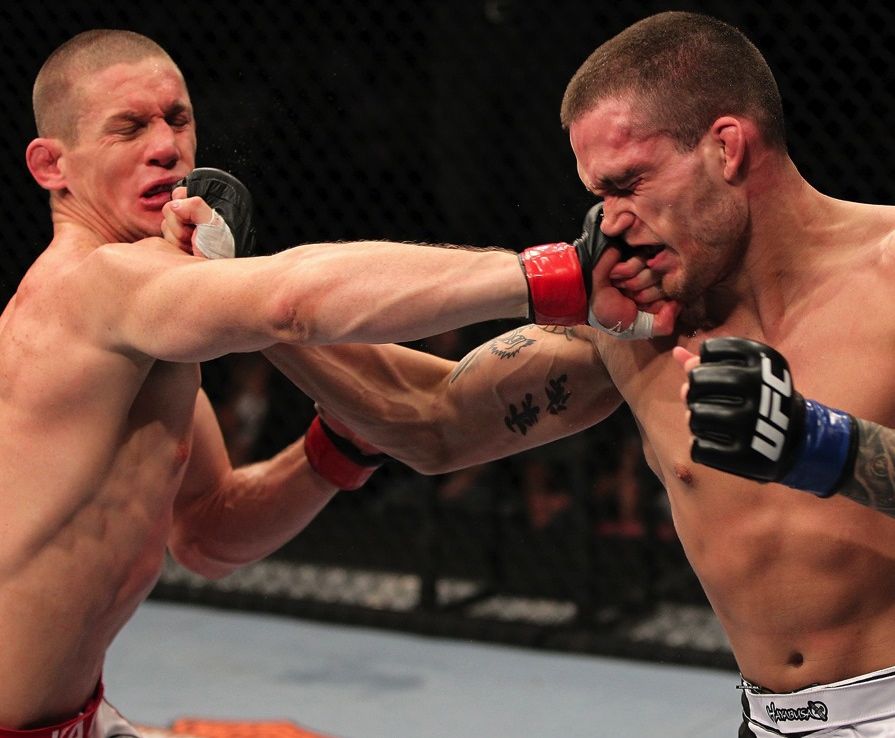


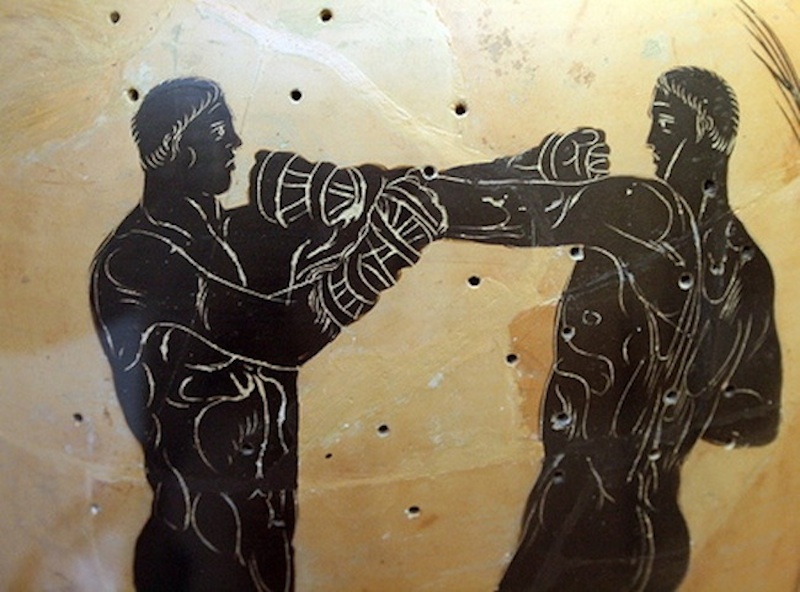
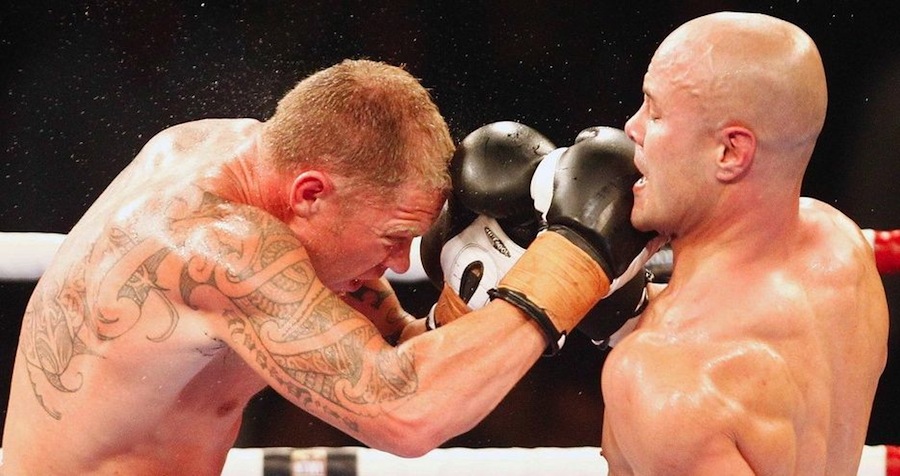




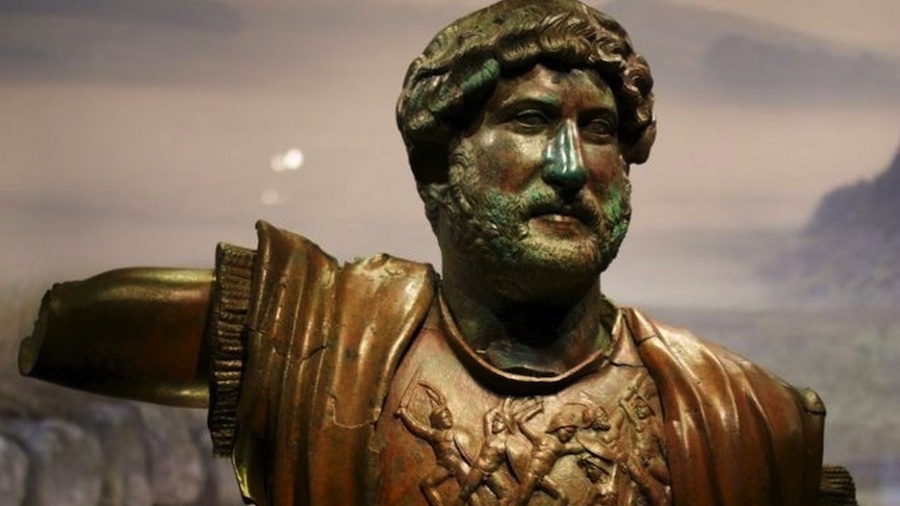
Bronze Statue of the Emperor Hadrian
Wearing a Breastplate Decorated with
Scenes of Nude Gladiators Fighting








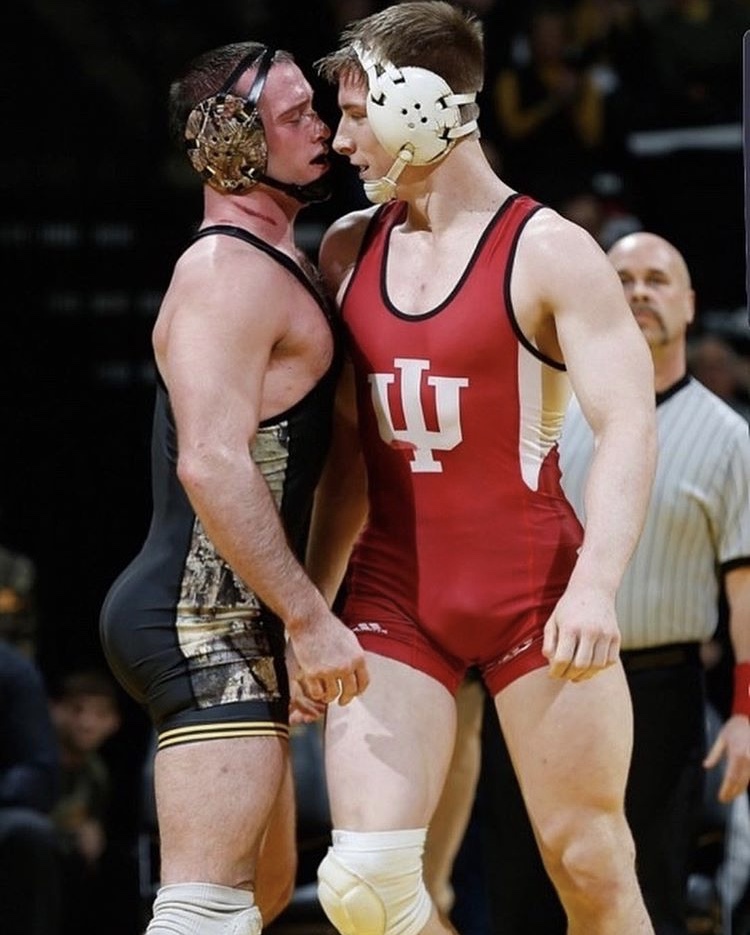





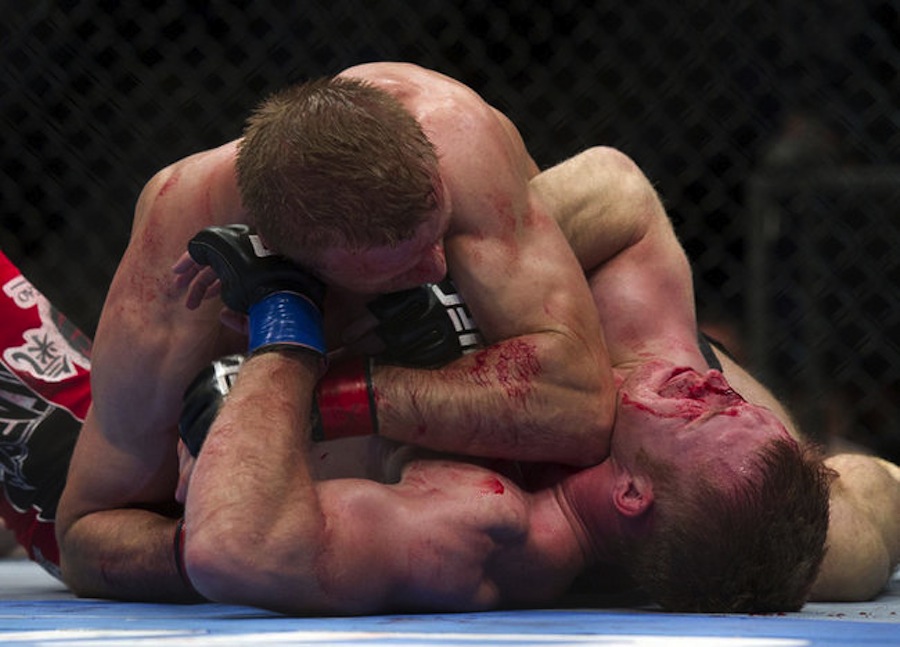



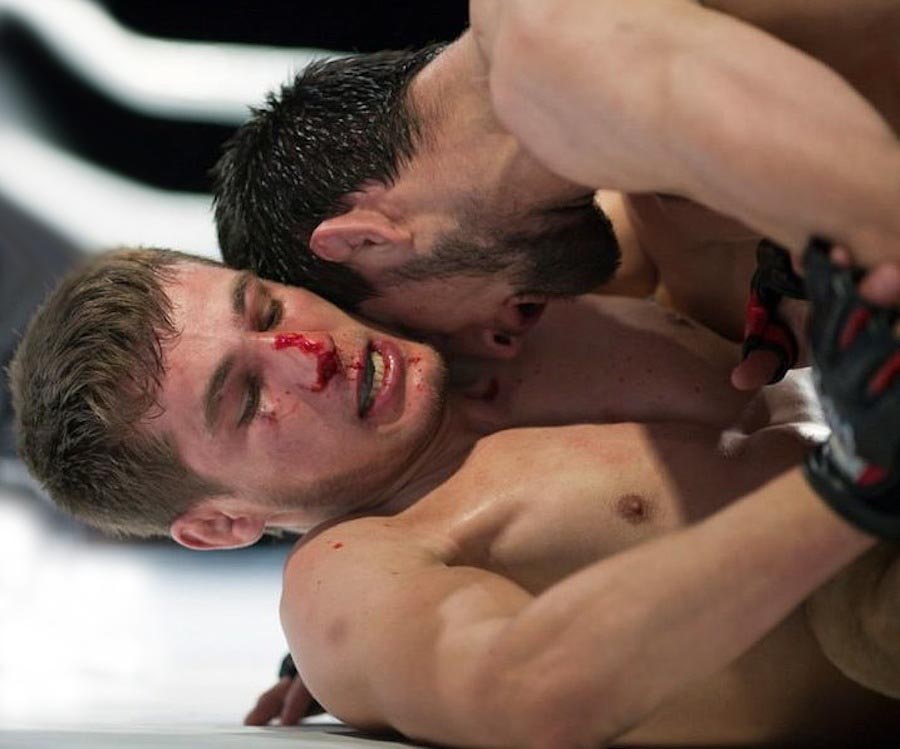



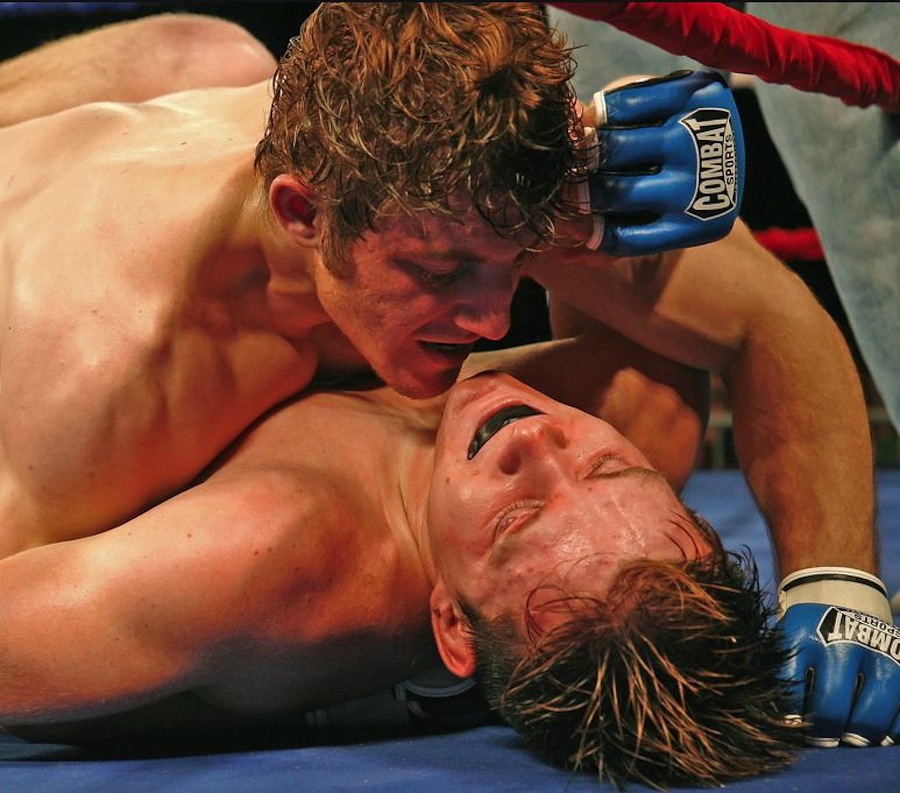








It's for Facing what's Painful
that Men are called Manly















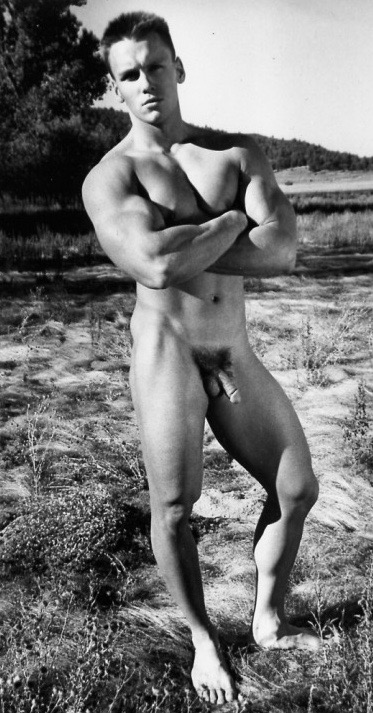
All rights reserved.




















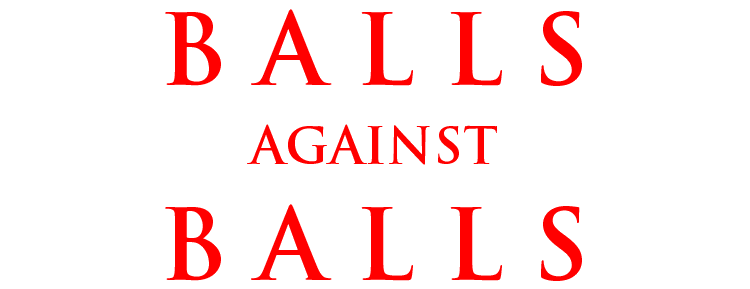
BONERS AND FISTS
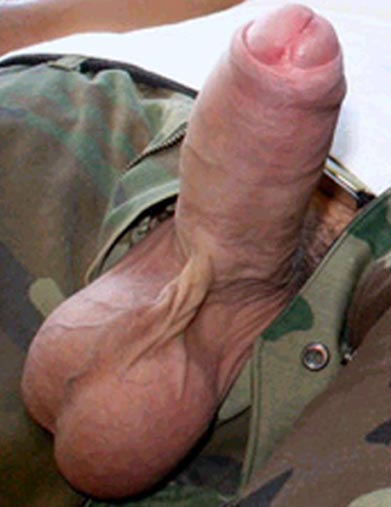
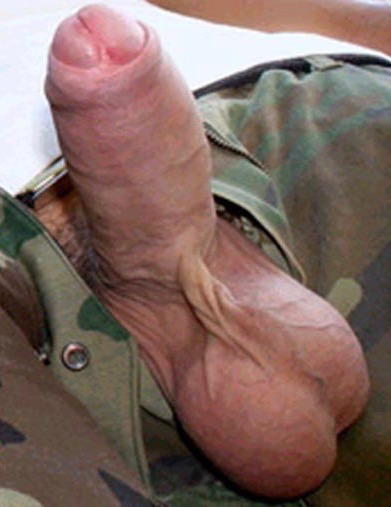

Sex is not independent of Biology.
And neither is Fighting.
Boners and Fists originate in the Testicles.
All Fighting is Man Against Man, Phallus Against Phallus,
Manhood Against Manhood, and Balls Against Balls.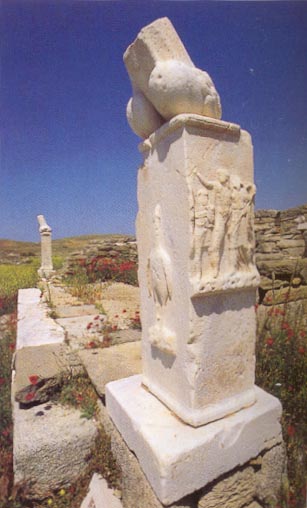
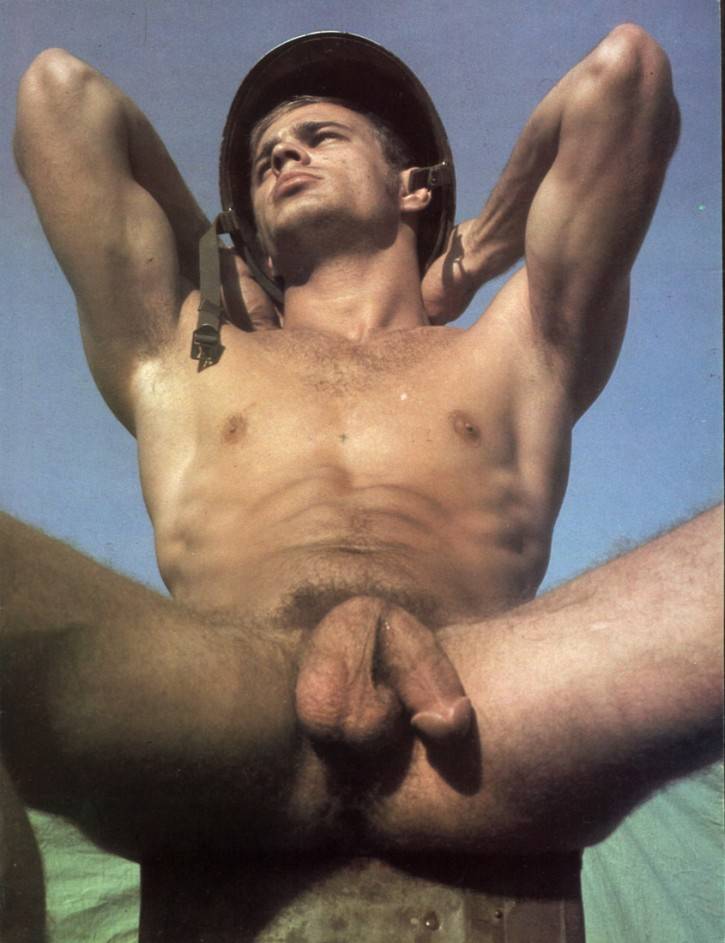

































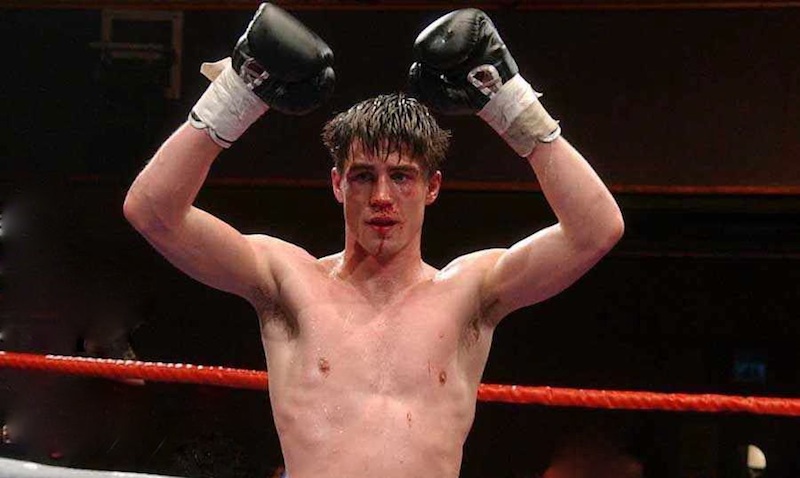

is instantiated by his battered and bloody face ; while his raised arms instantiate the Ability --
the martial merit, virile value, and warrior worth, he needs -- to Defeat his Opponent.


Manliness, aka Fighting Manhood, is the the Ardent Desire, and the Requisite Ability, to Fight.



The Overwhelming Eagerness and Ardor to Fight of Young Men,
Youths in the Full and Fresh Bloom of Their Young Manhood,
Their Fighting Manhood
Than The Primal Love of Fight of Young Fighting Men

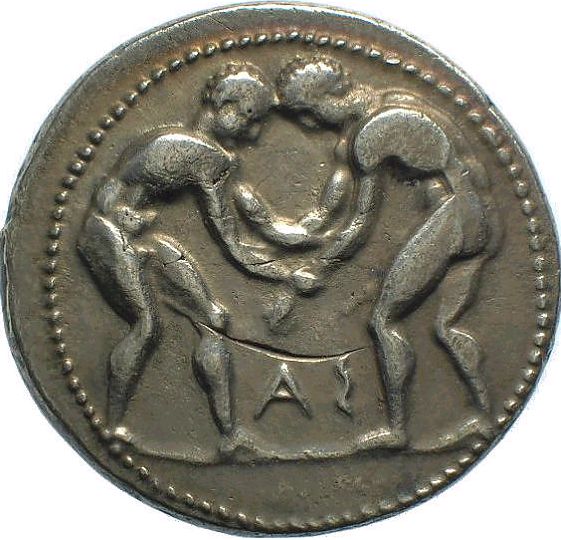
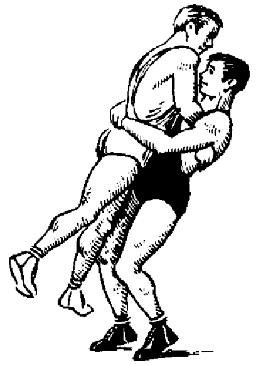
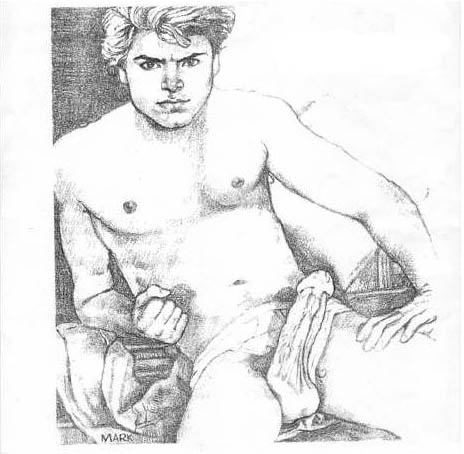



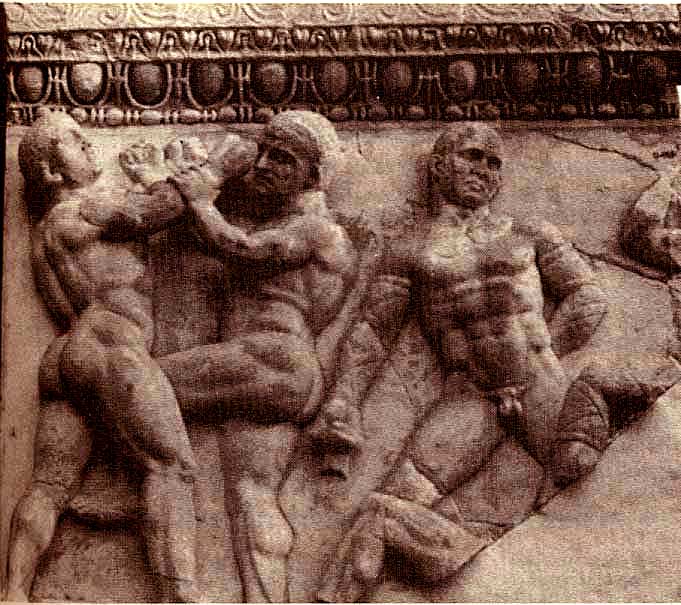
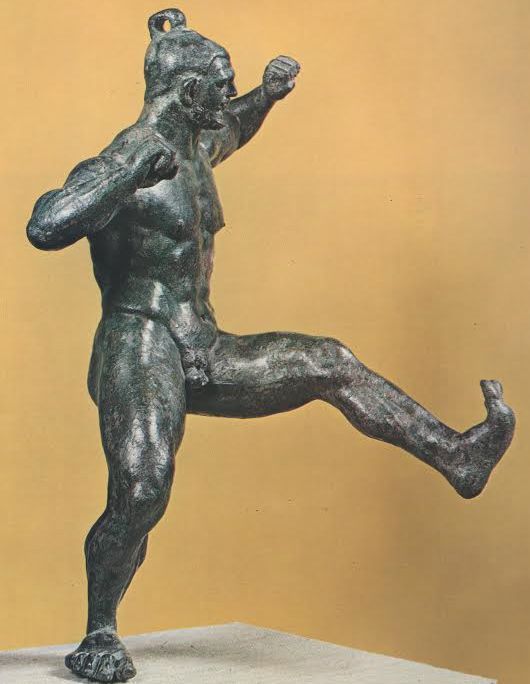
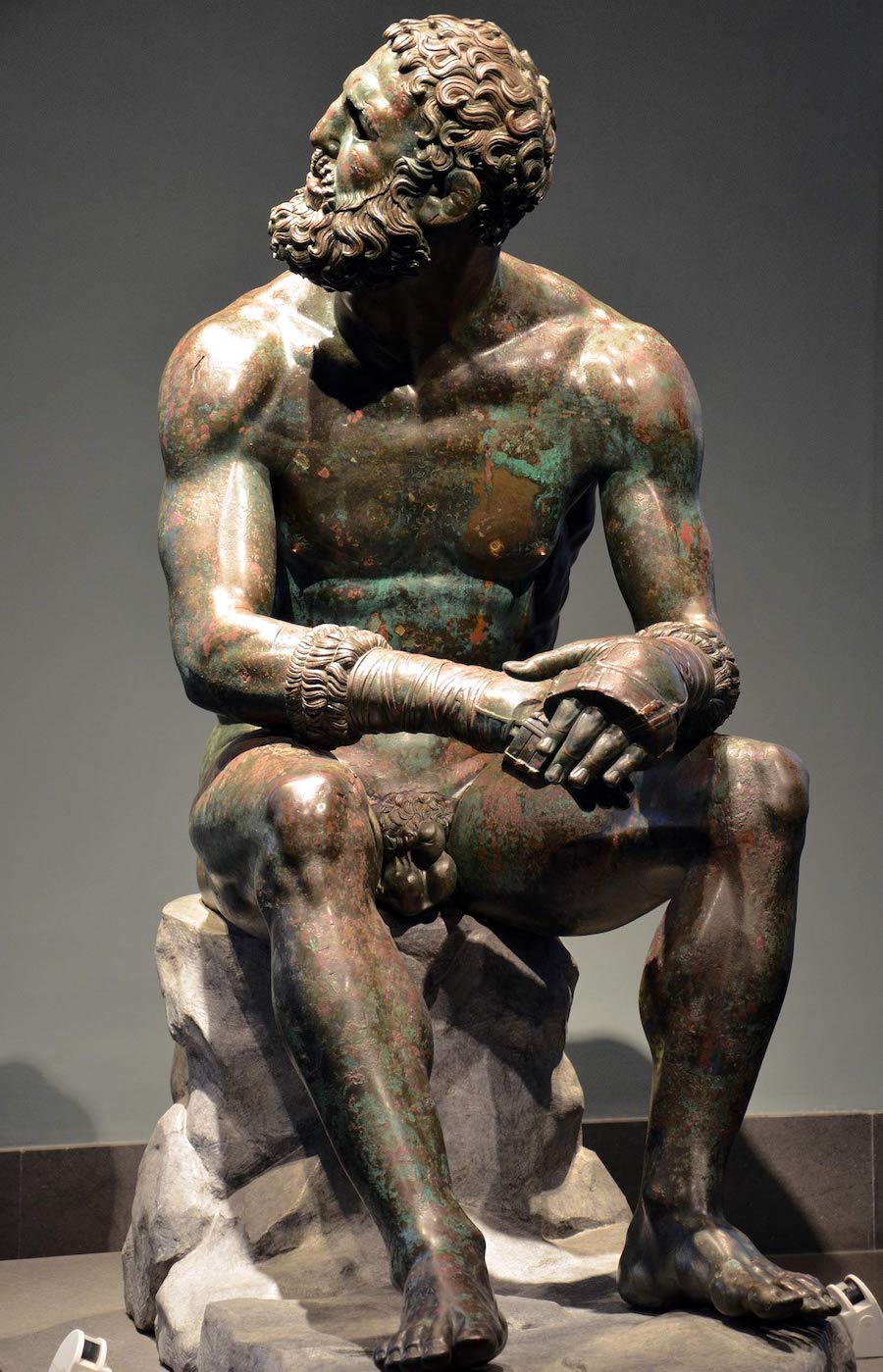


Fight is Natural to the Race of Men





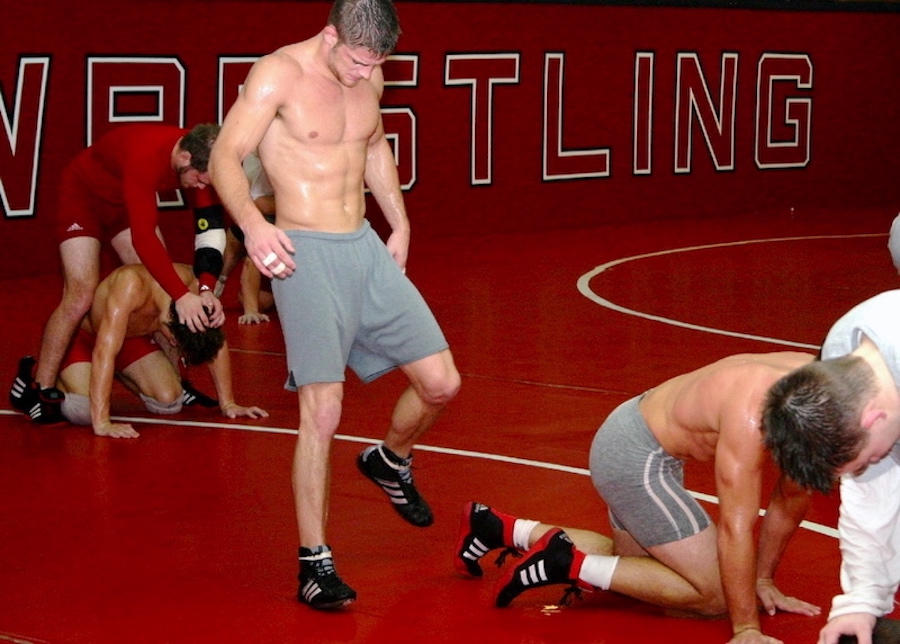
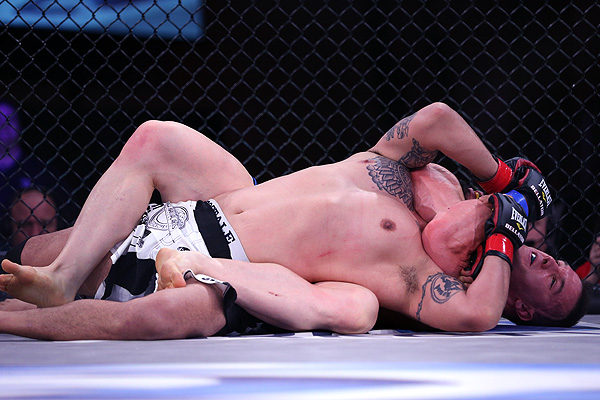
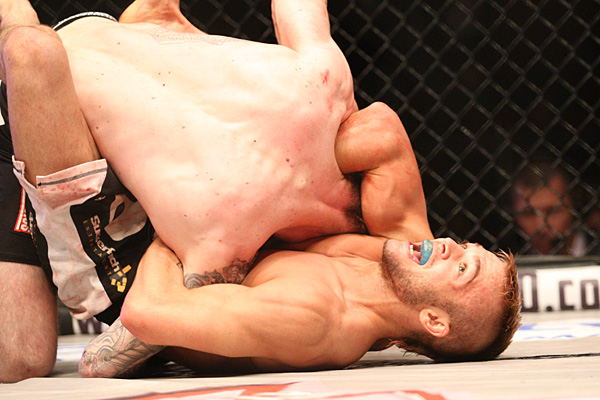
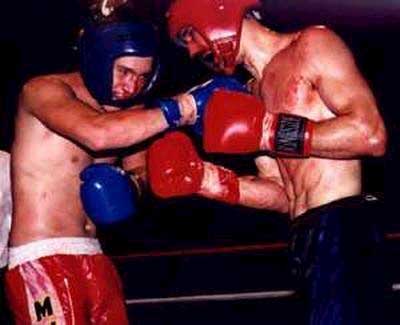
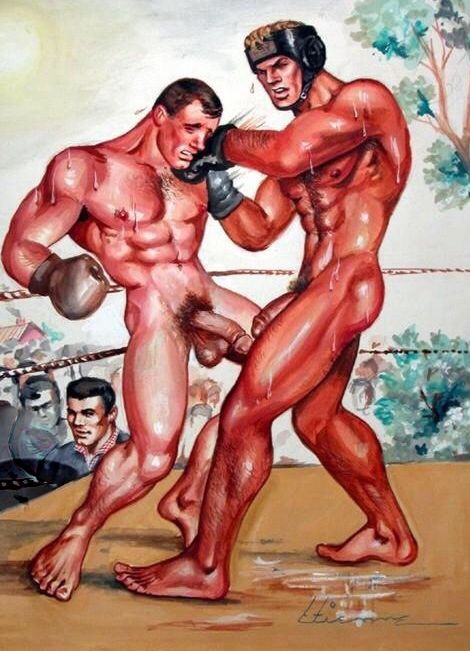
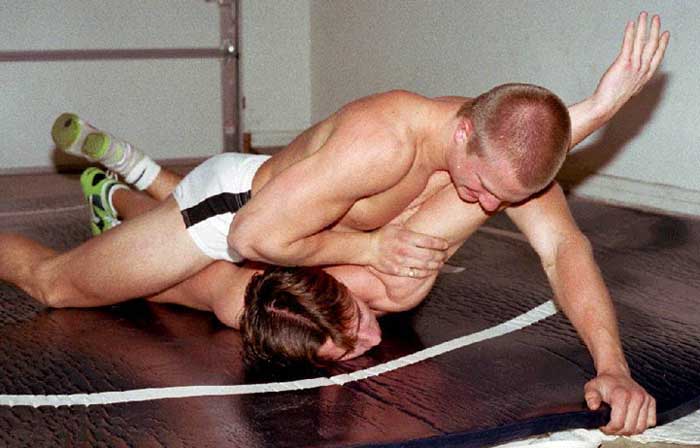
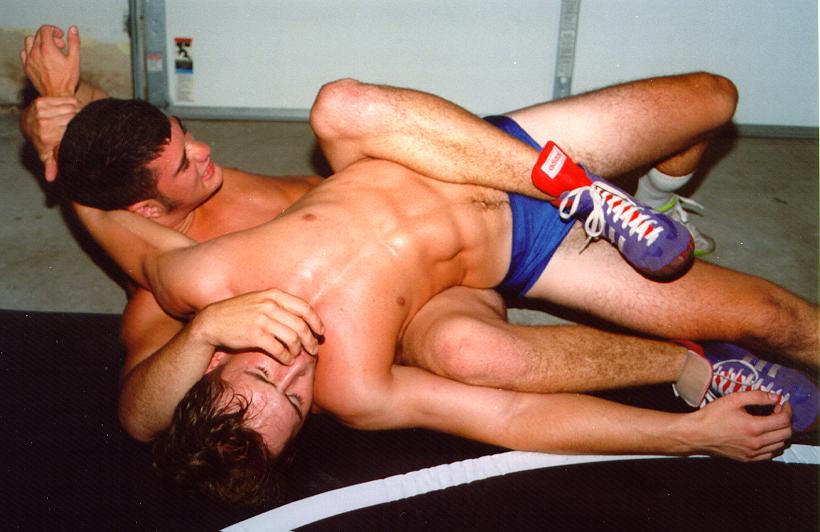
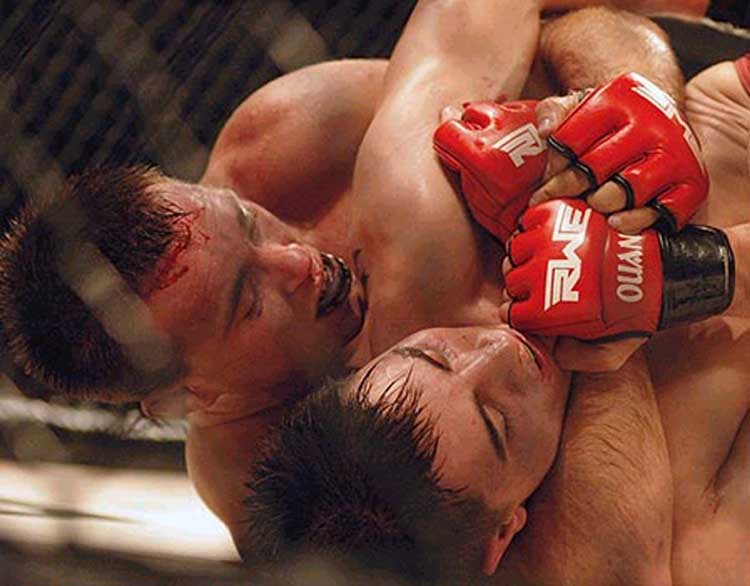





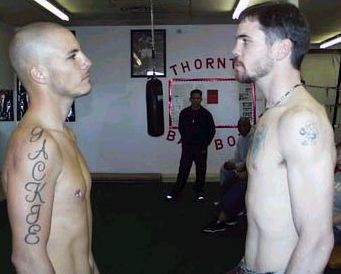

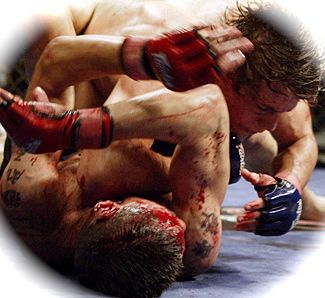





The Male Body was designed to Fight.
But because today,
critical portions of the body are covered, Men cannot appreciate
to what degree their bodies were meant for Fight.
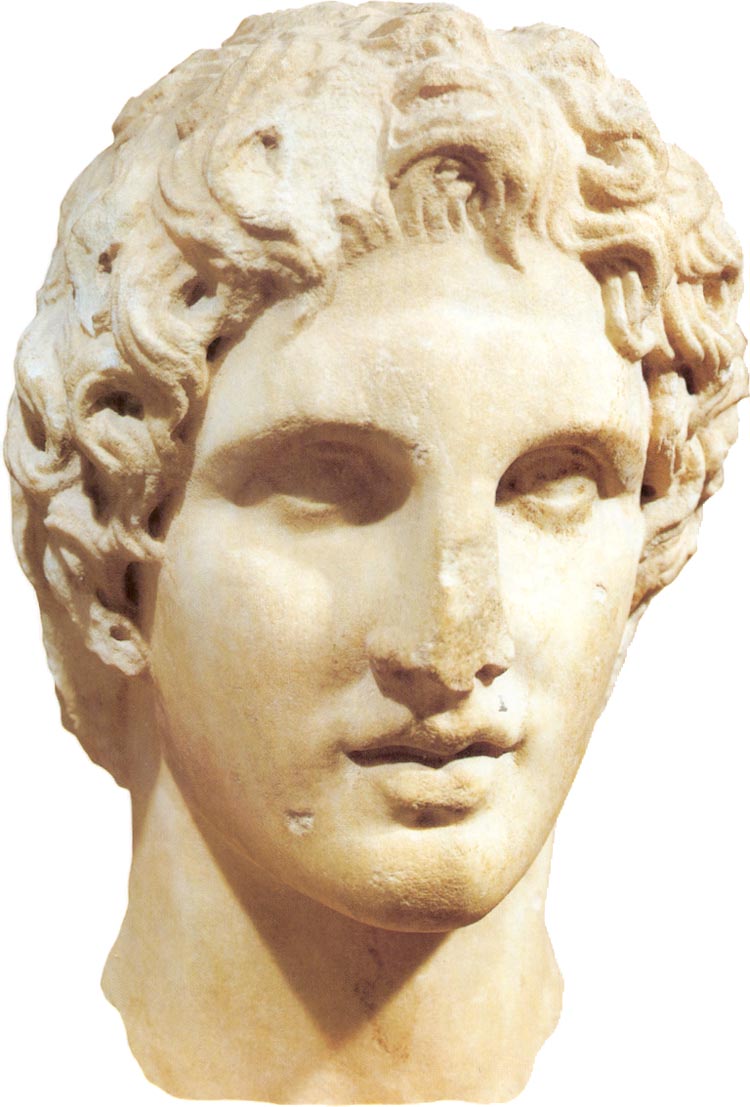
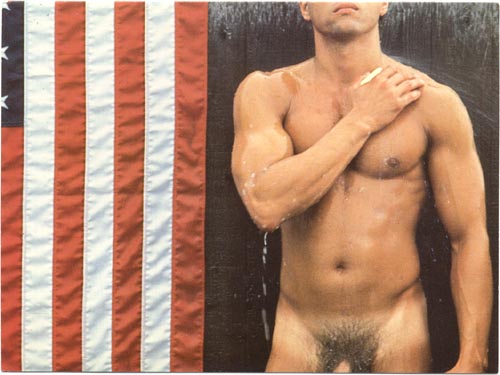

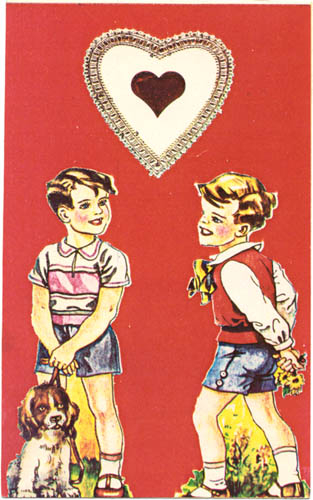
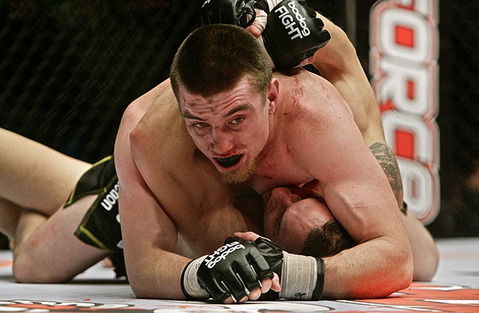
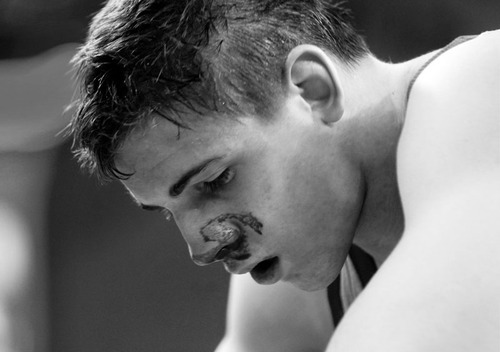
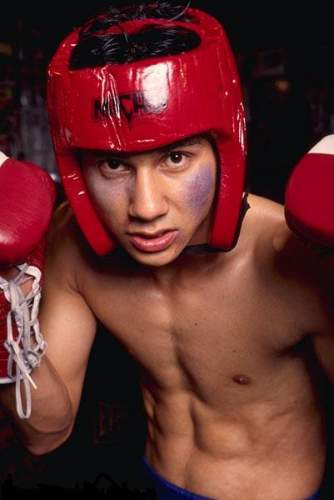
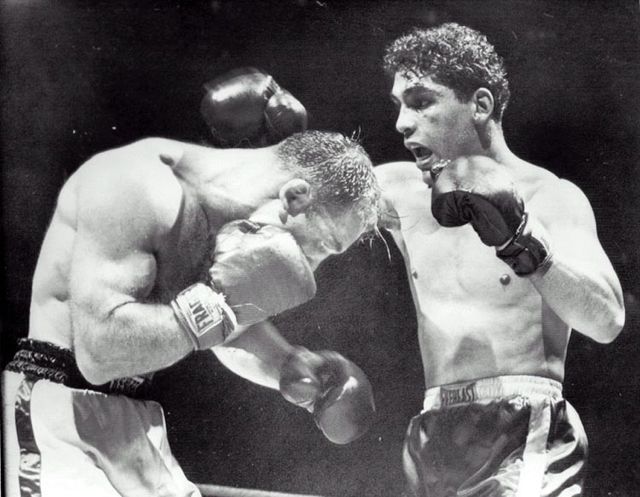
They were beautiful and they were aggressive.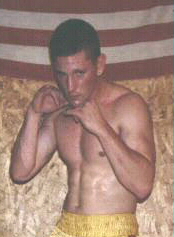

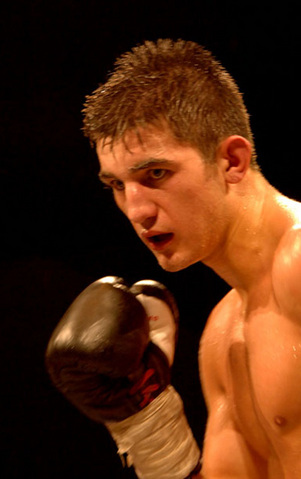
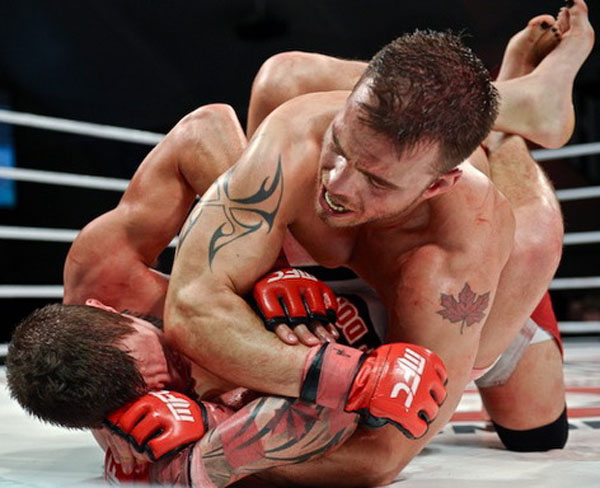
It's the Assertion of Aggression that makes the Guy Beautiful
The Assertion of Aggression is both Aesthetically and Ethically Beautiful
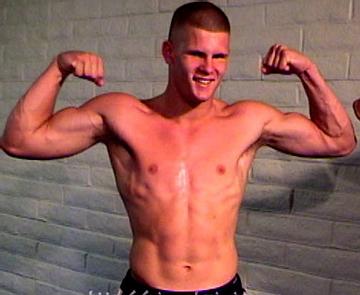
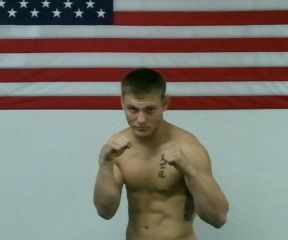






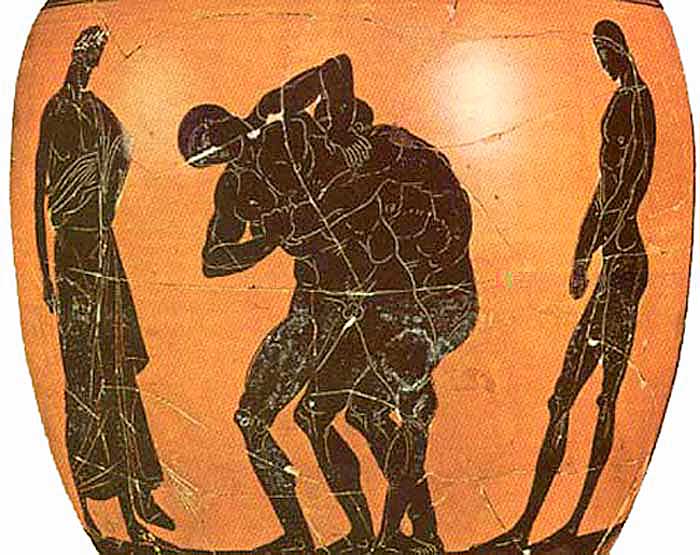


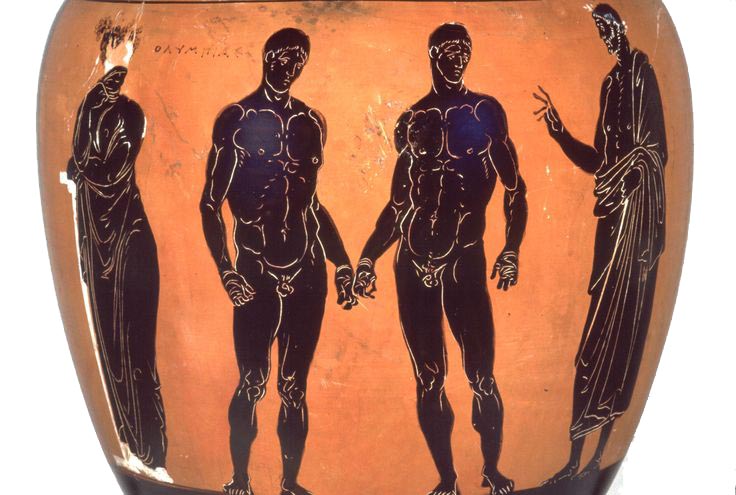


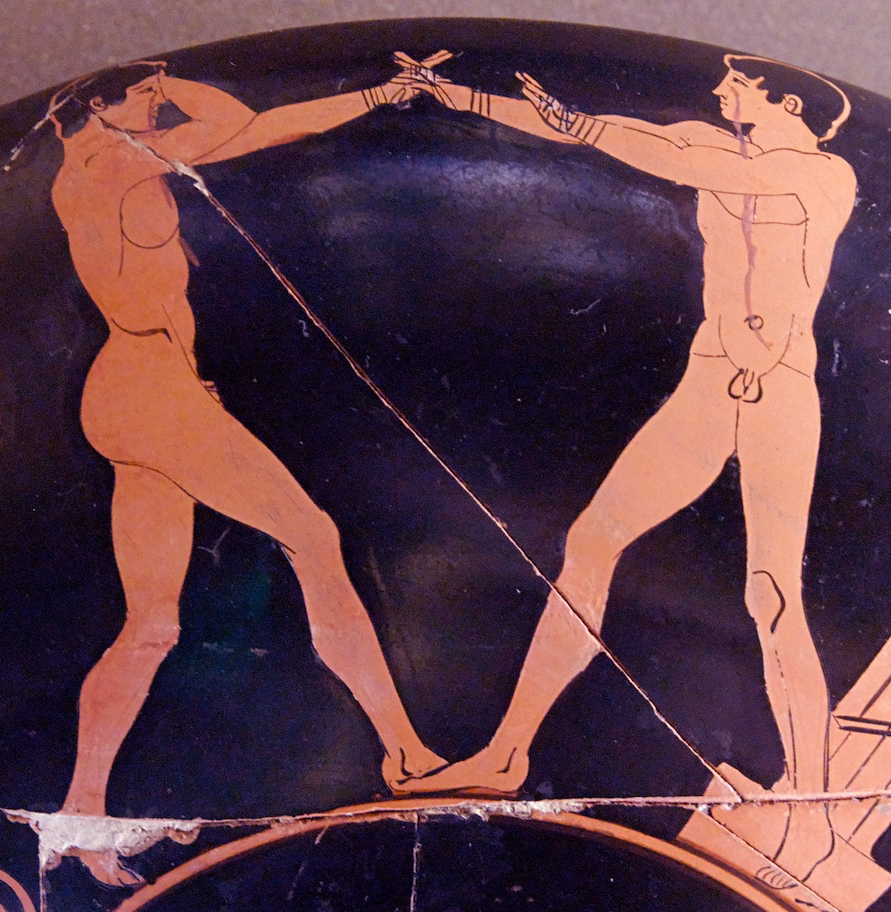
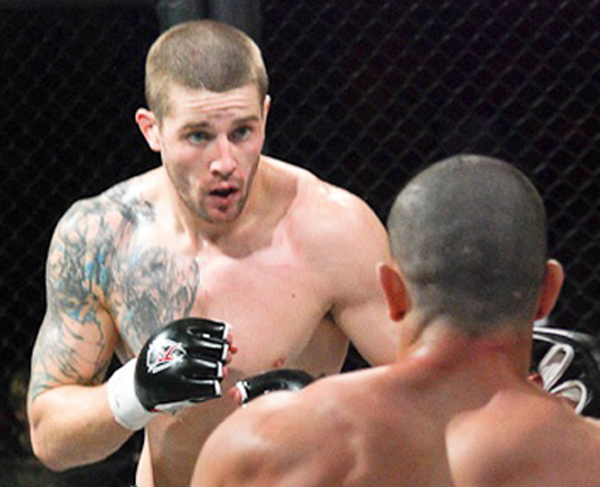
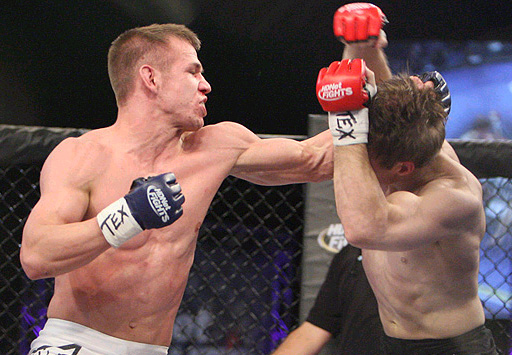
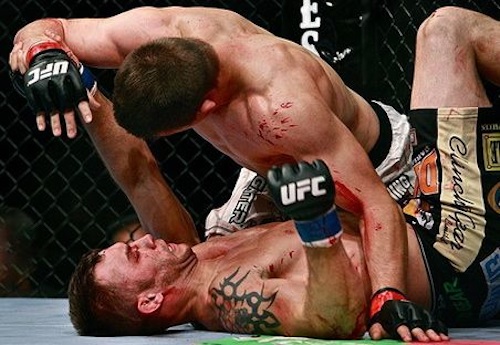
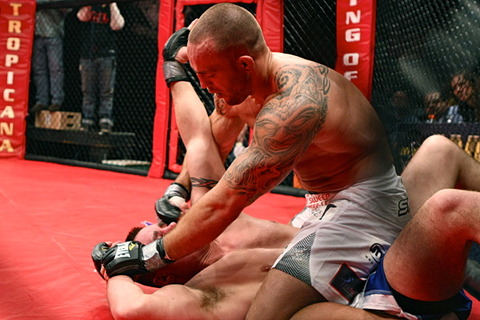
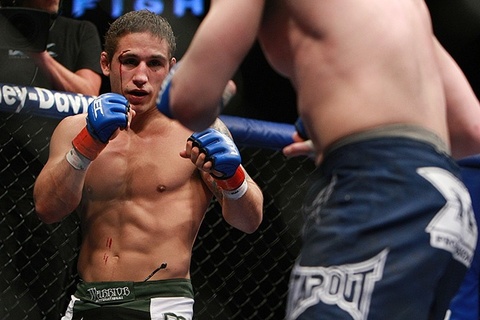
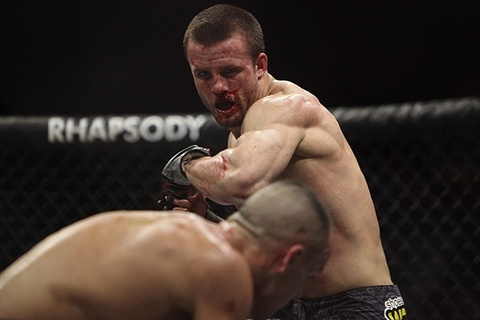
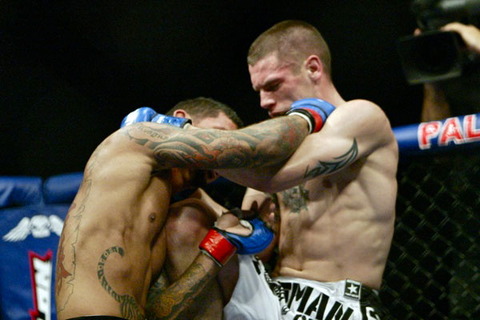
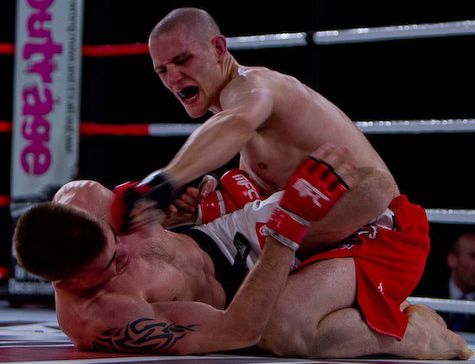
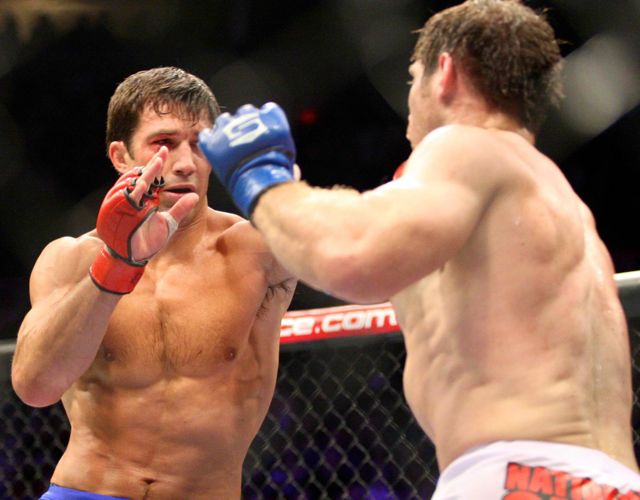
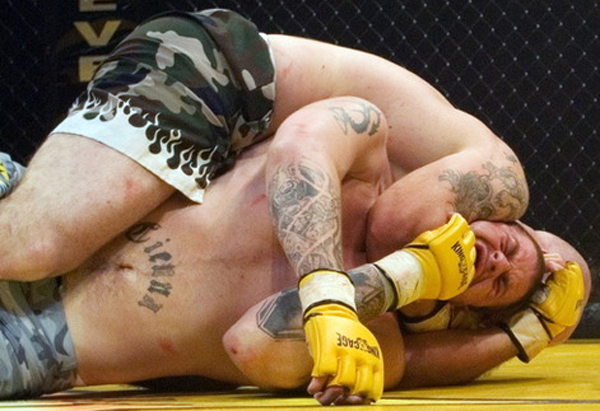
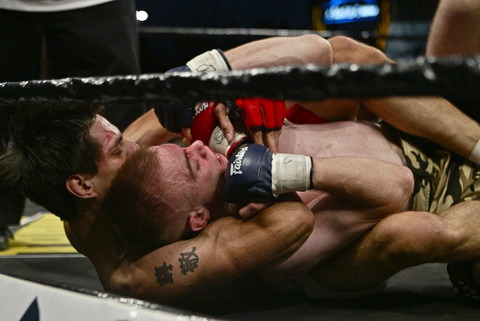
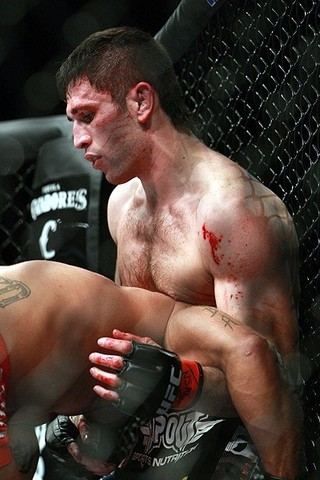
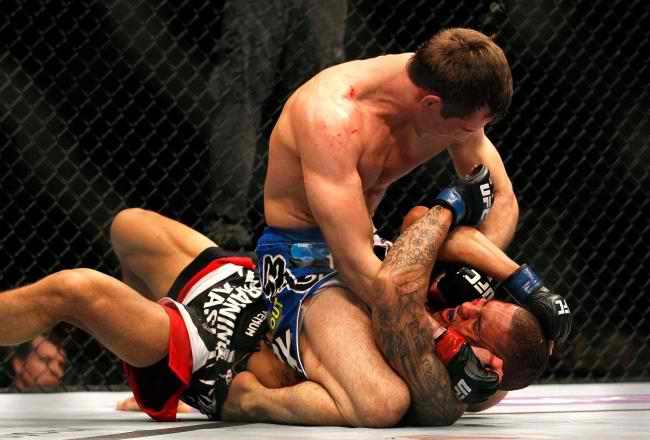
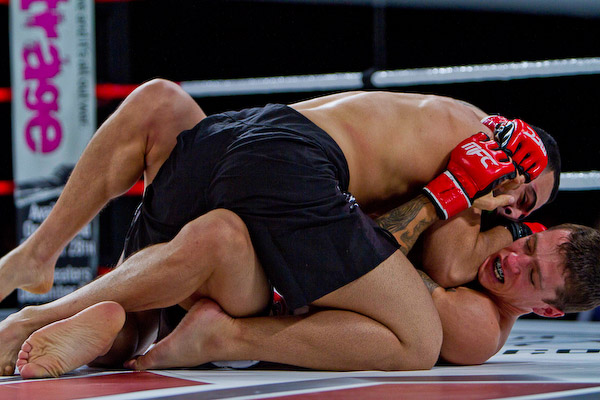
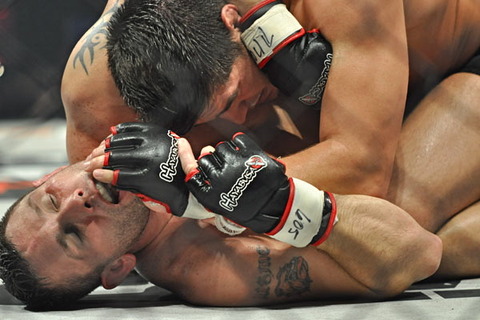
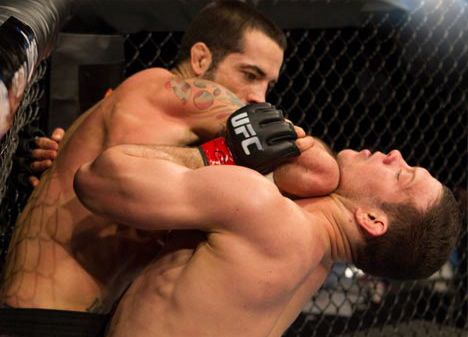
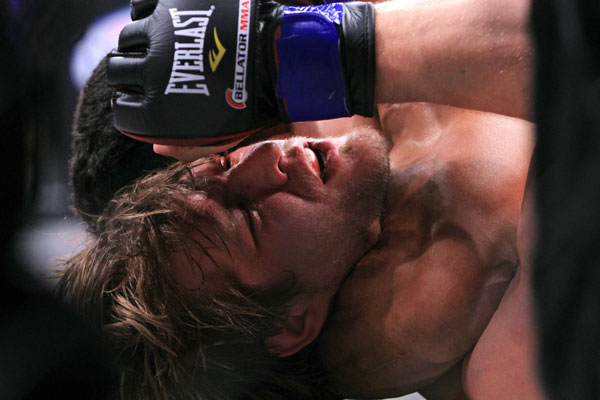






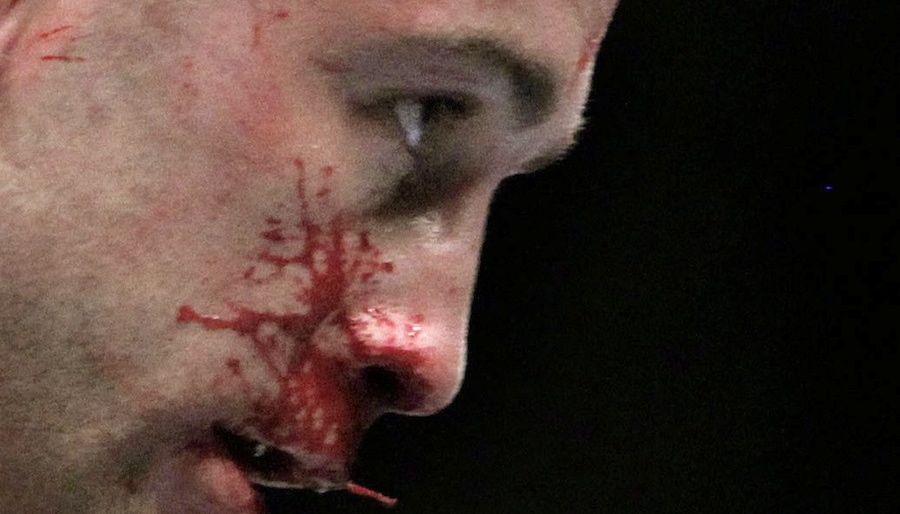
















































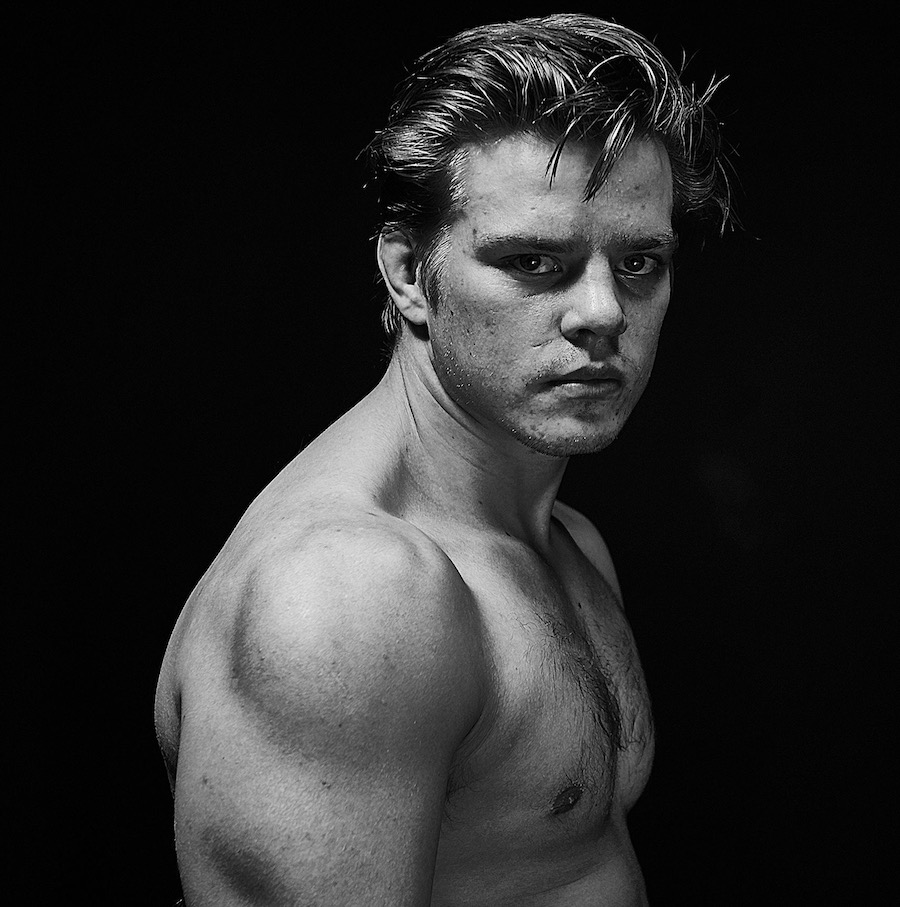



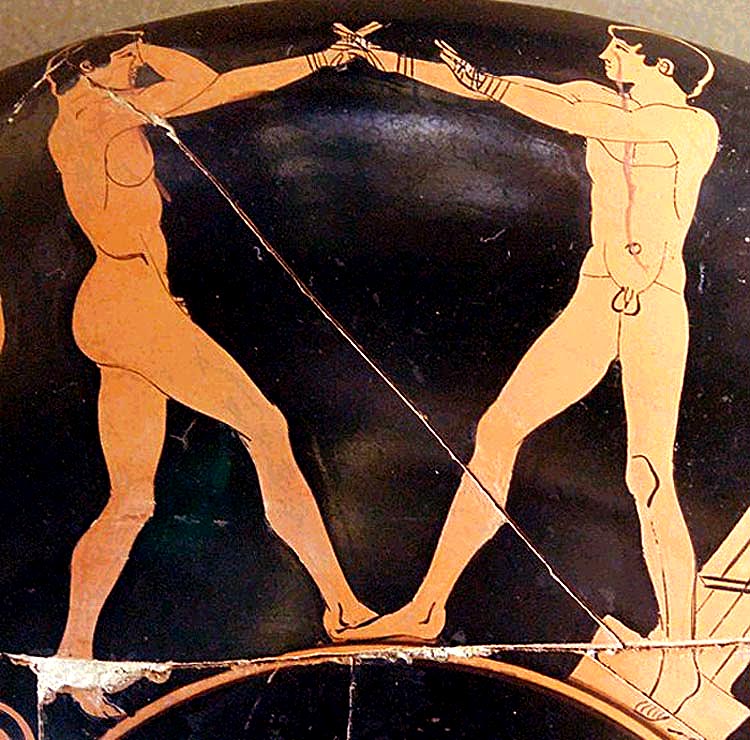
Virtus comes before everything, that's for sure!
Freedom, safety, life, property and parents, fatherland and children, it guards and keeps safe.
Virtus has everything in it ; He who has Virtus has everything good!
Compared to the display of Virtus, "everything is subordinate and hides in dark night."
manliness, manhood, i. e. the sum of all the corporeal or mental excellences of man, strength, vigor; bravery, courage; aptness, capacity; worth, excellence, virtue, etc.

IS
THE ARDENT WILLINGNESS
AND
REQUISITE ABILITY
TO FIGHT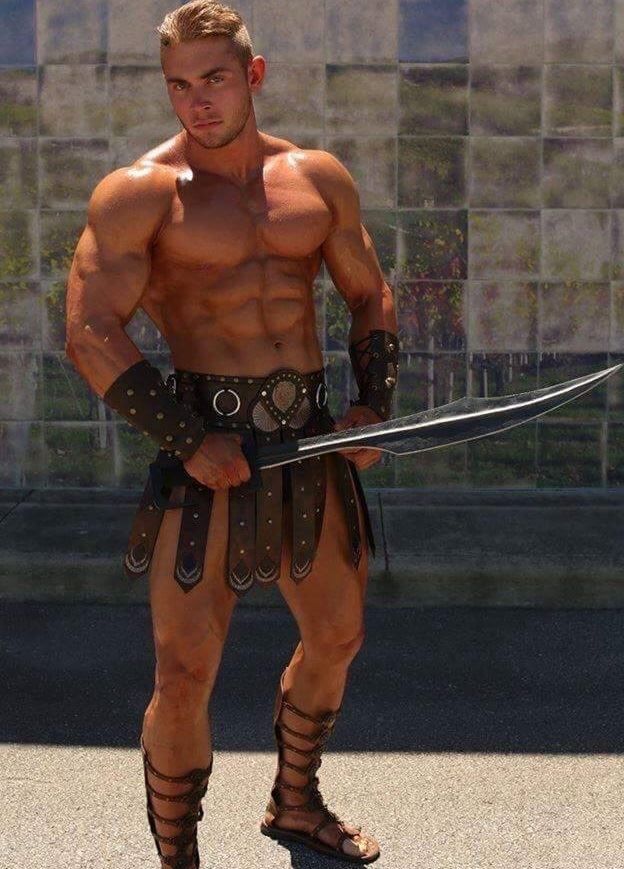
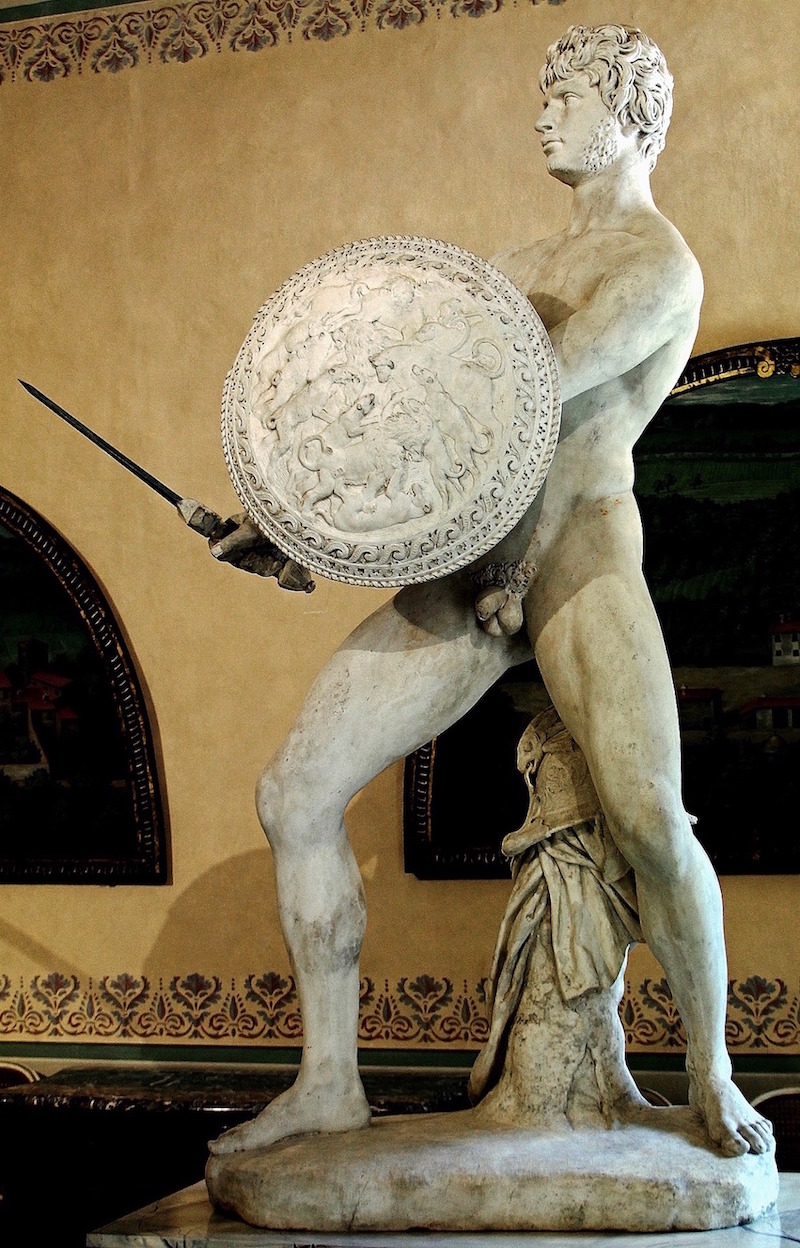
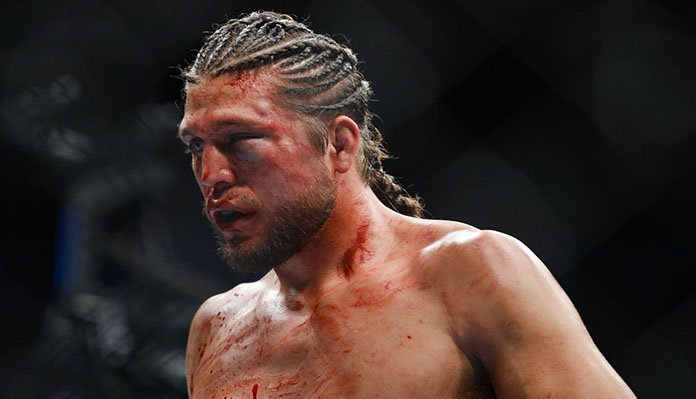
And so with Manliness : we become Manly by training ourselves to despise and endure terrors, and we shall be best able to endure terrors when we have become Manly.
And so with Manliness : we become Manly by training ourselves to stand up to blows face to face, and we shall be best able to stand up to blows face to face when we have become Manly.

We become Manly by training ourselves to despise and endure terrors,
and we shall be best able to endure terrors when we have become Manly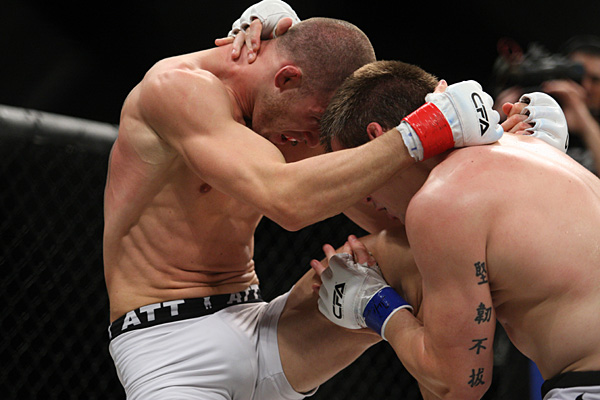
Manliness
We become Manly by training ourselves to despise and endure terrors,
and we shall be best able to endure terrors when we have become Manly



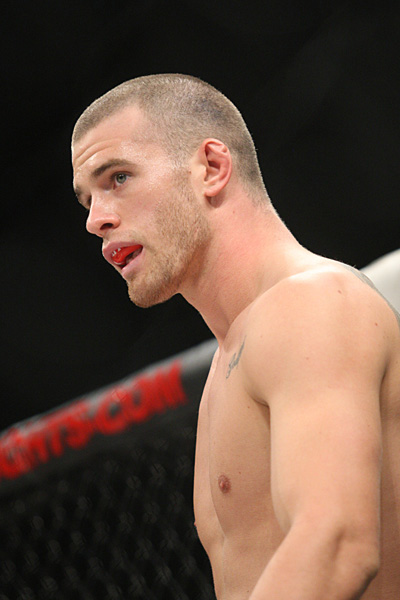
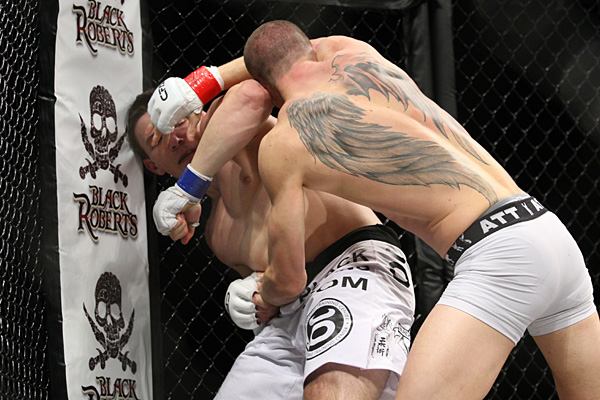

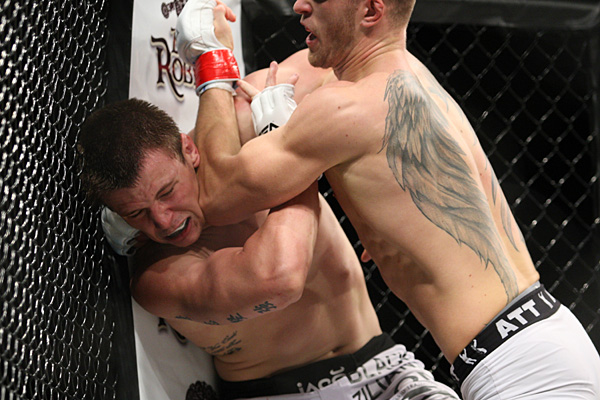
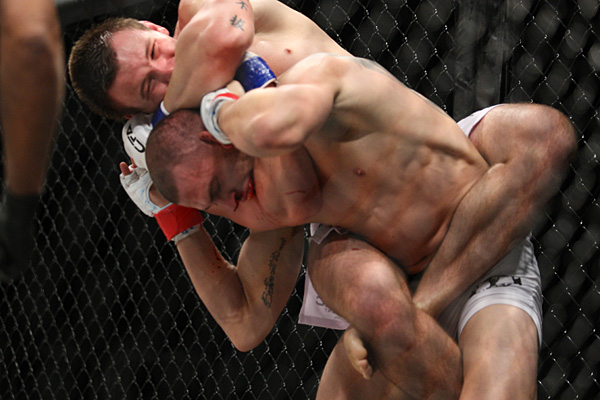
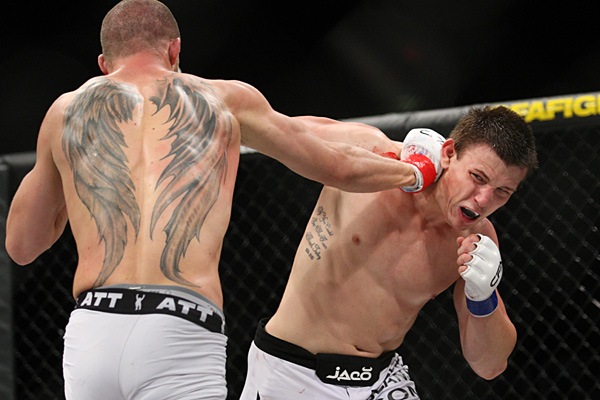
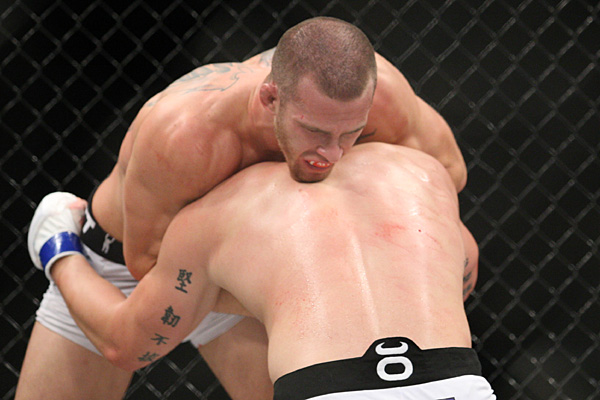
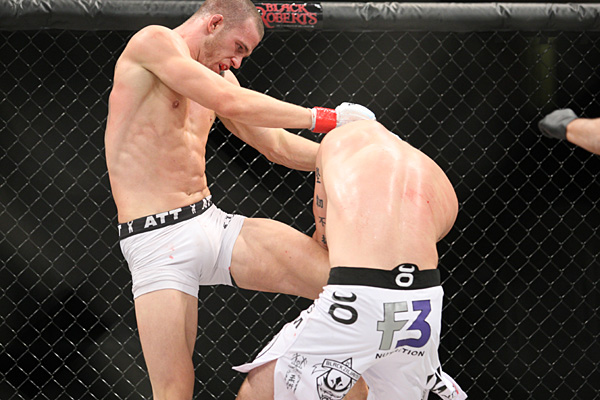
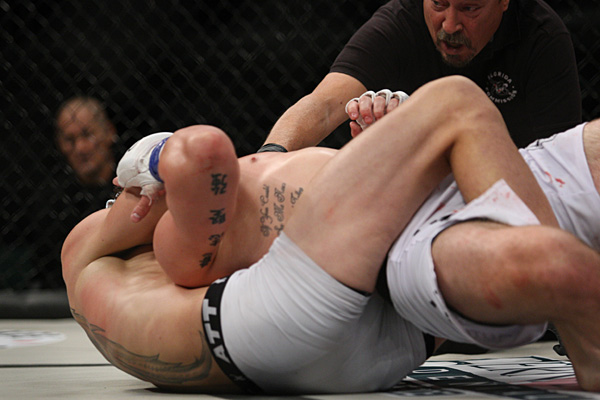







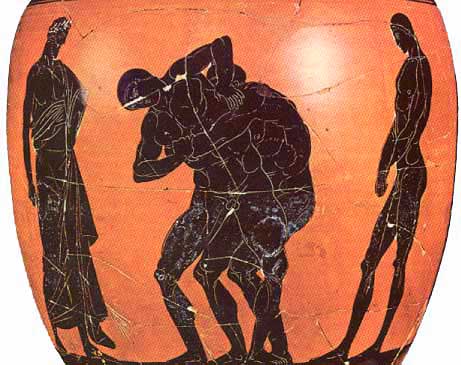
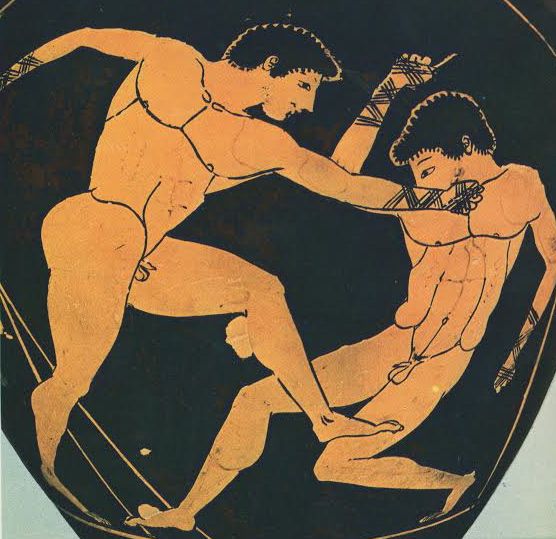











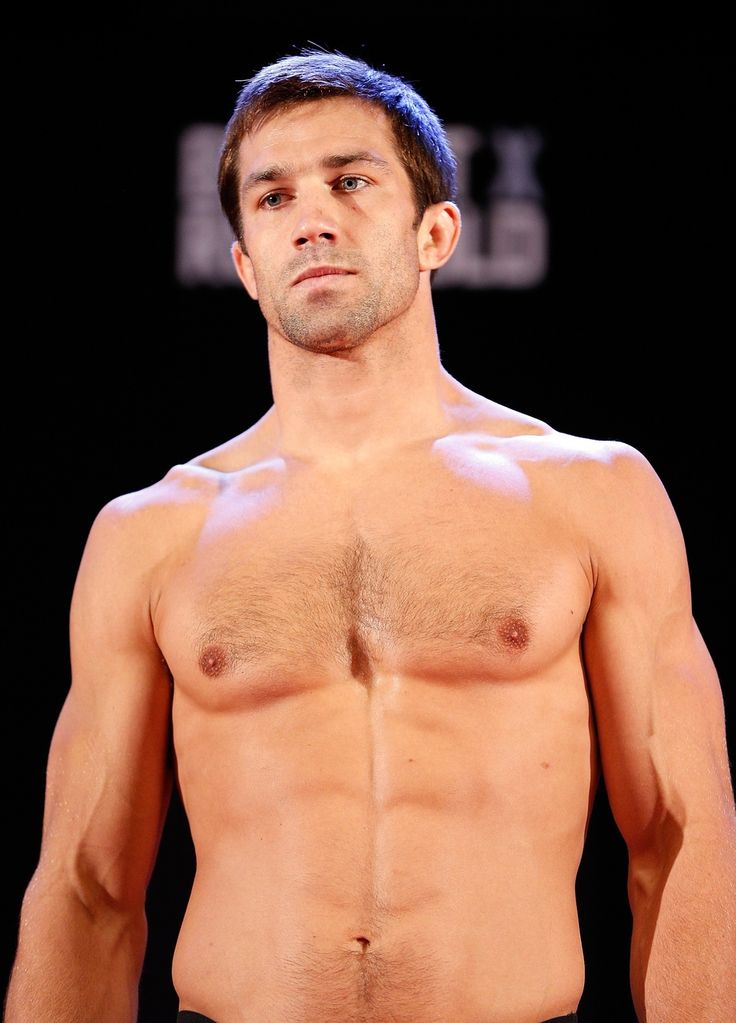
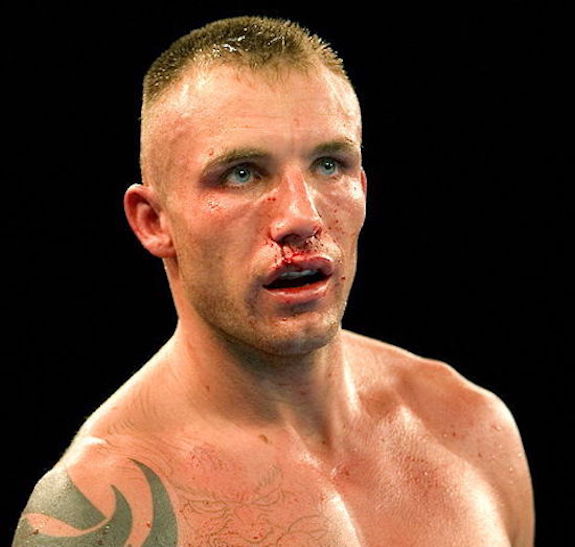
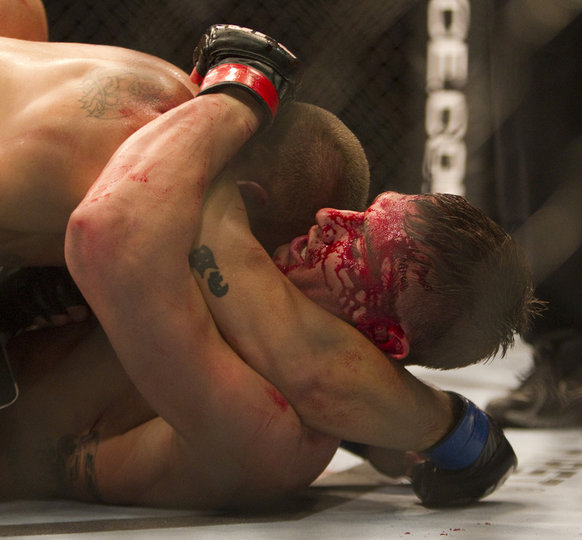
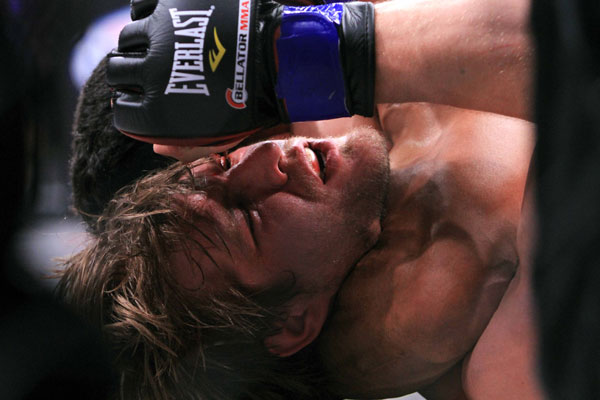



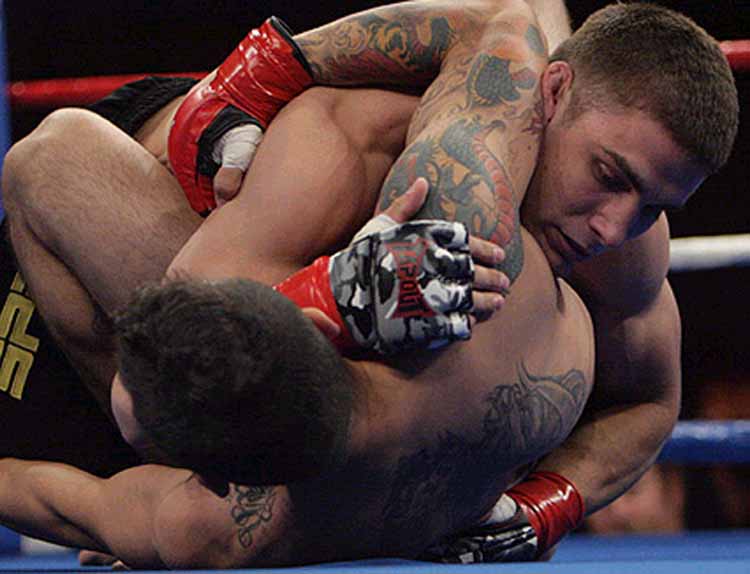
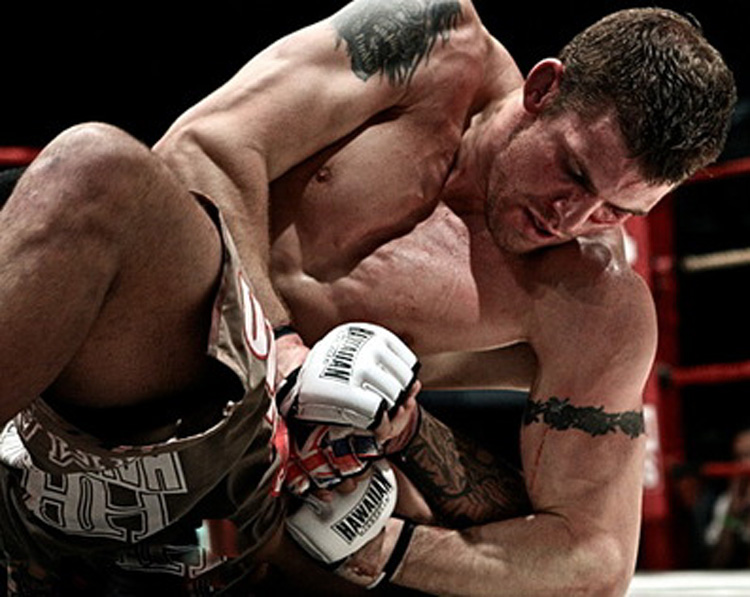
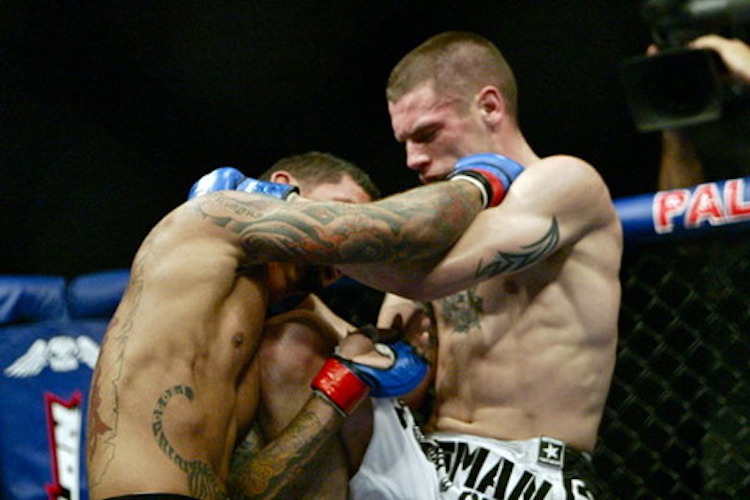
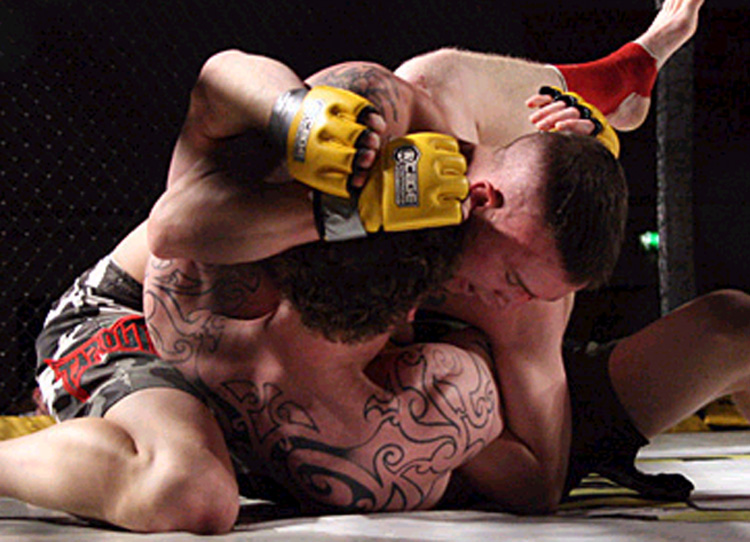
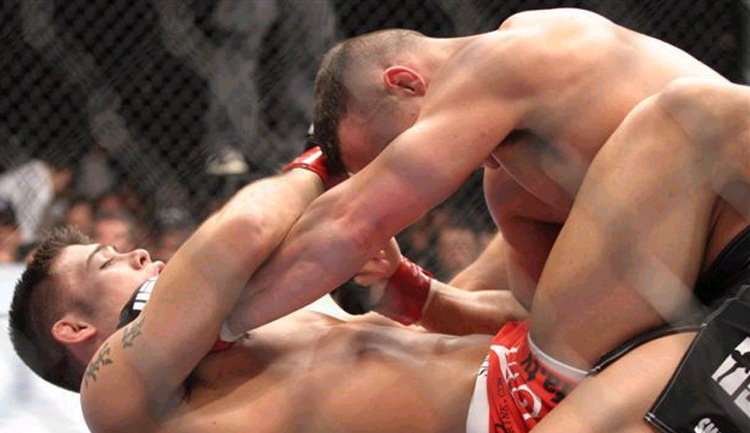
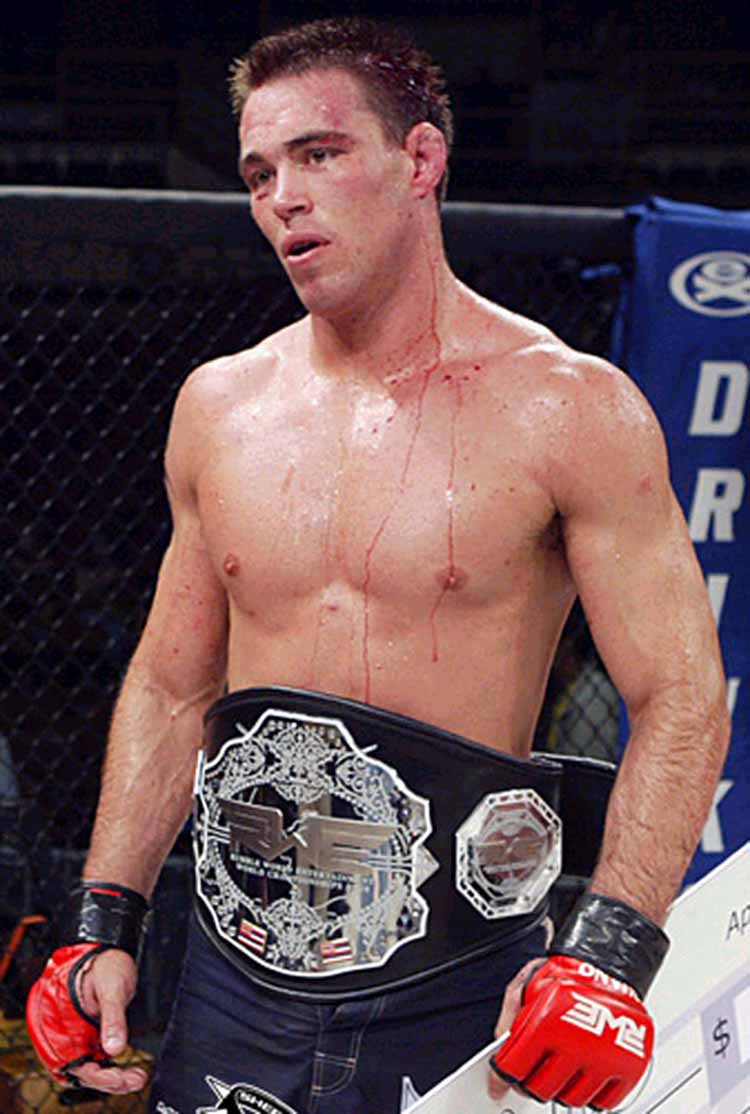
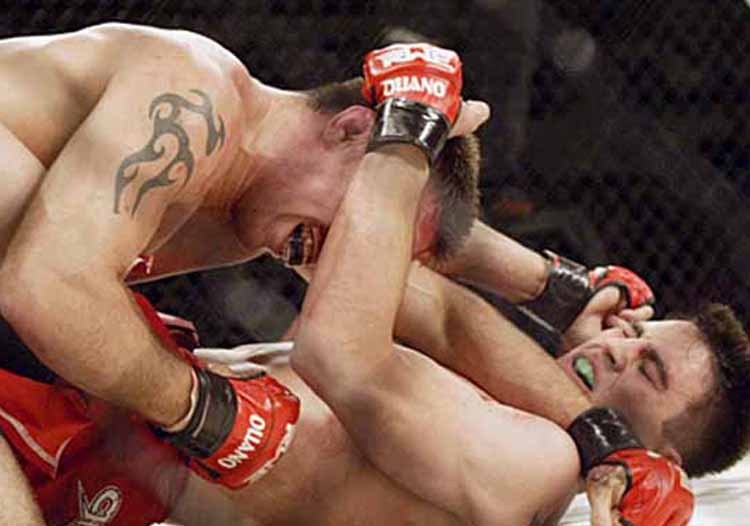
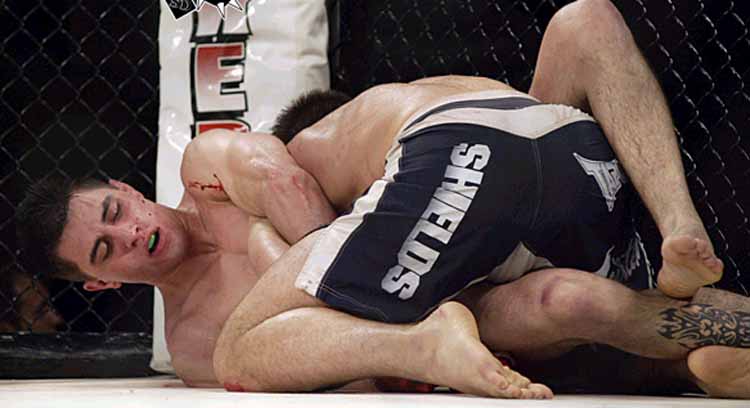
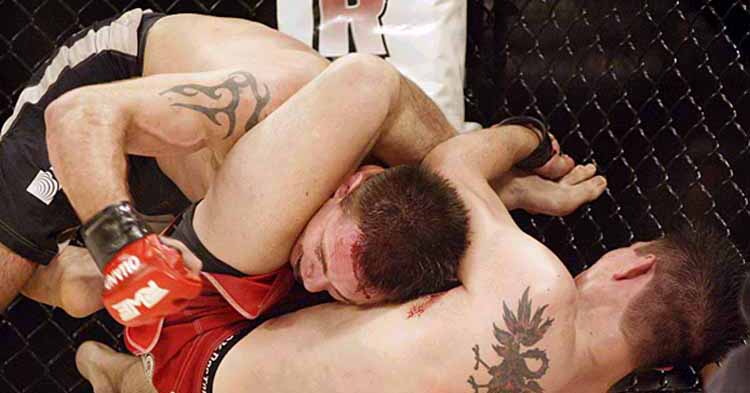
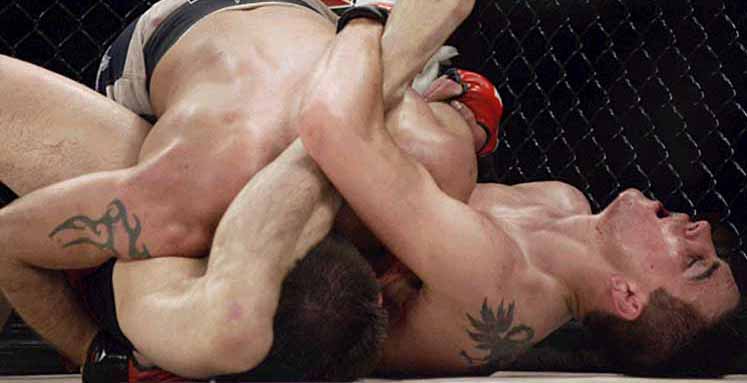
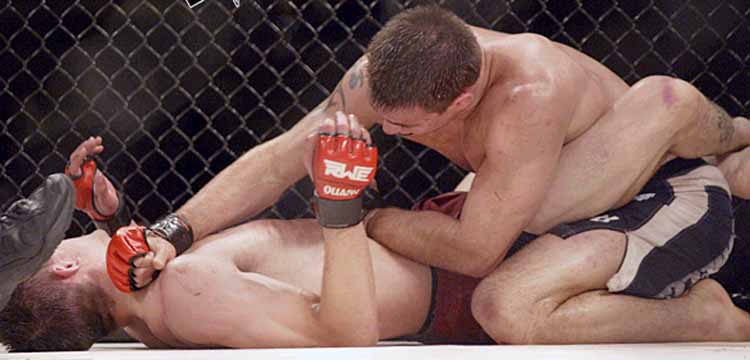

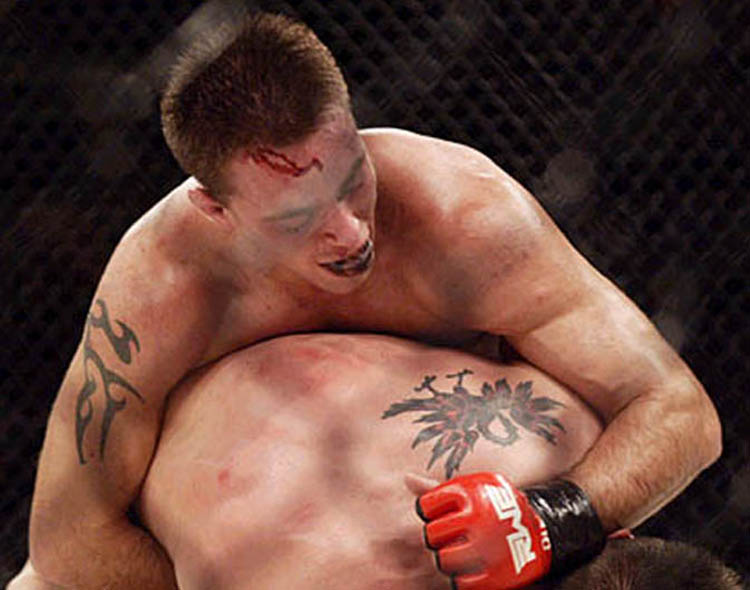
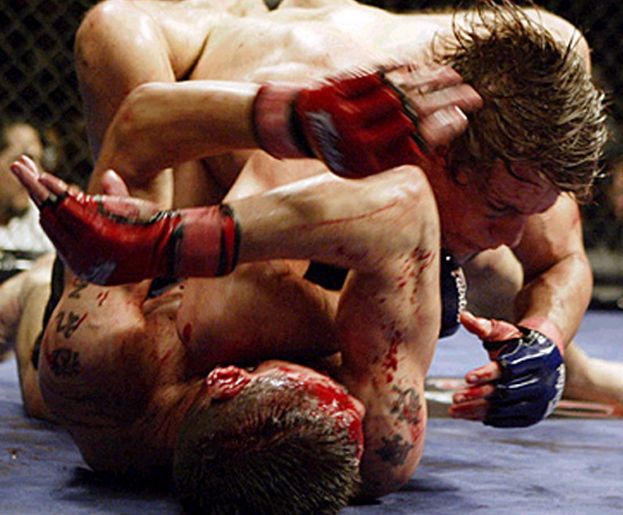
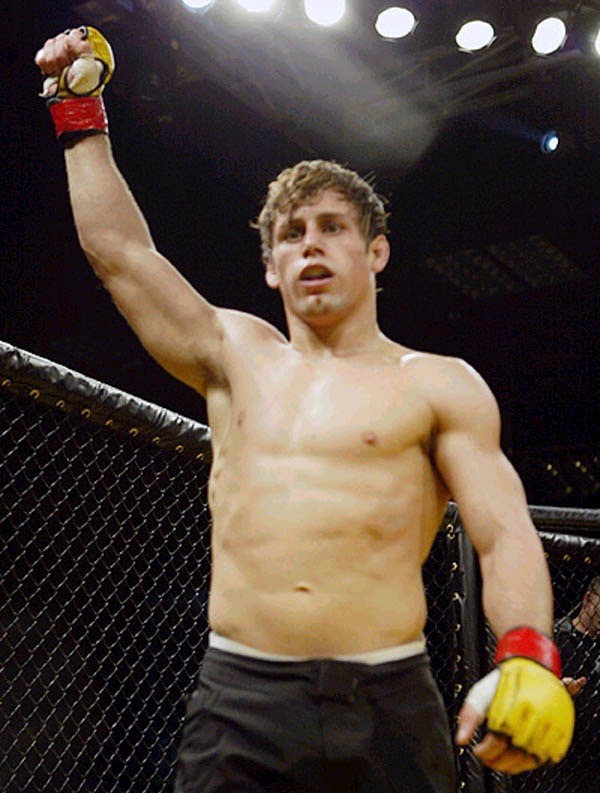










































From the same root [ΑΡΗΣ] come areté, areta, ari-, areion [better, more Manly], aristos [best, most Manly], the first notion of goodness being that of manhood, bravery in war; cf. Lat. virtus






[Areta is] goodness, excellence, of any kind, esp. of manly qualities, manhood, valour, prowess (like Lat. virtus, from vir)
From the same root [ΑΡΗΣ] come areté, areta, ari-, areion [better, more Manly], aristos [best, most Manly], the first notion of goodness being that of manhood, bravery in war; cf. Lat. virtus


This is an image of PURE BEAUTY and GOODNESS, of EXCELLENCE, and of VIRTUE, the
HIGHEST and SUPREME VIRTUE, MANLY VIRTUE, MANLINESS, Manifested in MANFIGHT.
where the formula of the mean is felt to be inadequate, it is supplemented by the proviso that virtuous actions, to spring from a true habit of virtue, must be done του καλου ενεκα -- for the sake of the moral beauty and rightness of the act itself

Footnote from Prof Rackham :
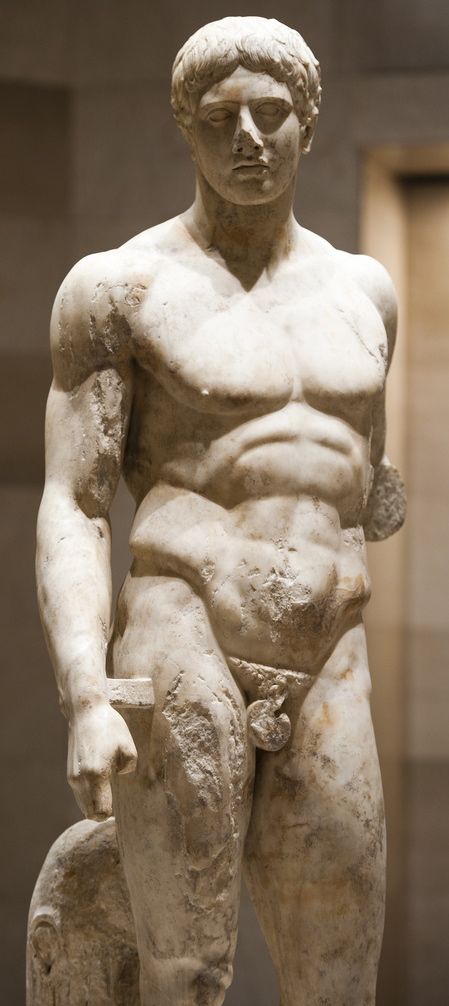
Bodies well shaped
and
Actions well done
This statue, the Doryphoros or Spear-bearer,
depicts both the Physical Beauty and Moral Nobility of the

The Doryphoros is an iconic and canonical statue in Greek art
The Warrior represented has perfect proportions
He is both well-shaped and an exemplar of actions well done :



where the formula of the mean is felt to be inadequate, it is supplemented by the proviso that virtuous actions, to spring from a true habit of virtue, must be done του καλου ενεκα -- for the sake of the moral beauty and rightness of the act itself

VIRTUOUS VIOLENCE
The top Man's elbow to his opponent's face is an act of Virtuous Violence
FIGHT IS THE INSTANTIATION OF VIRTUOUS VIOLENCE
VIRTUOUS VIOLENCE
VIOLENCE which is both BEAUTIFUL and MORALLY RIGHT







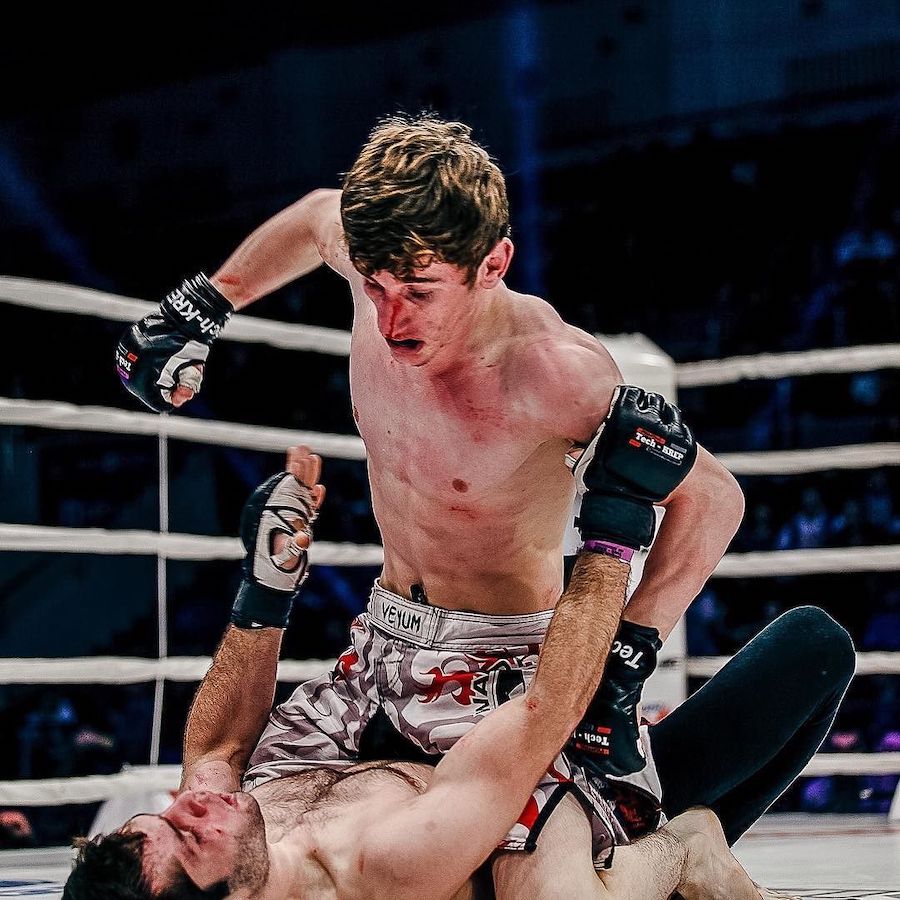





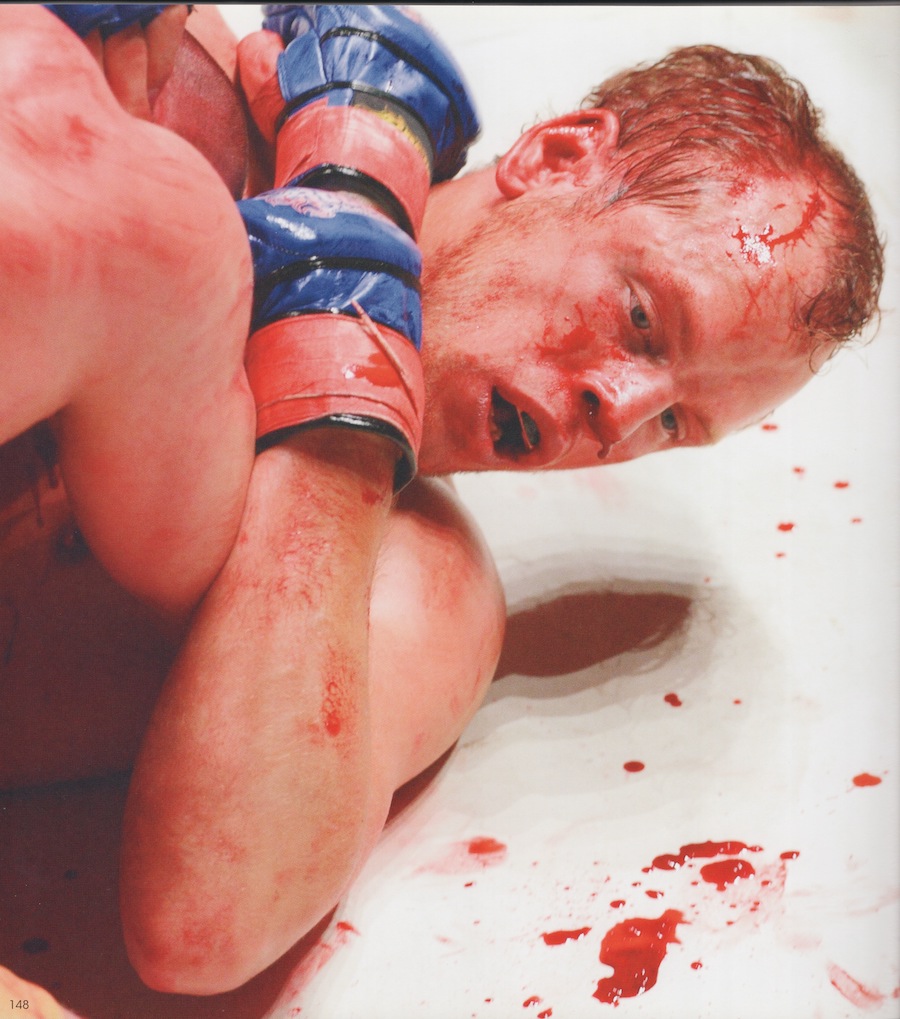

The Overwhelming Eagerness and Ardor to Fight of Young Men,
Youths in the Full and Fresh Bloom of Their Young Manhood,
Their Fighting Manhood
Than The Primal Love of Fight of Young Fighting Men

The Brutality and Blood-Soaked Violence of Fight

The Pride, the Valour, and above-all Beautiful and Essential Goodness of Men who Fight, and of Fight Itself

Pugnator InvictusIndomitable Fighter

The Youth's Unwavering Trust in the Power of His Young Manhood
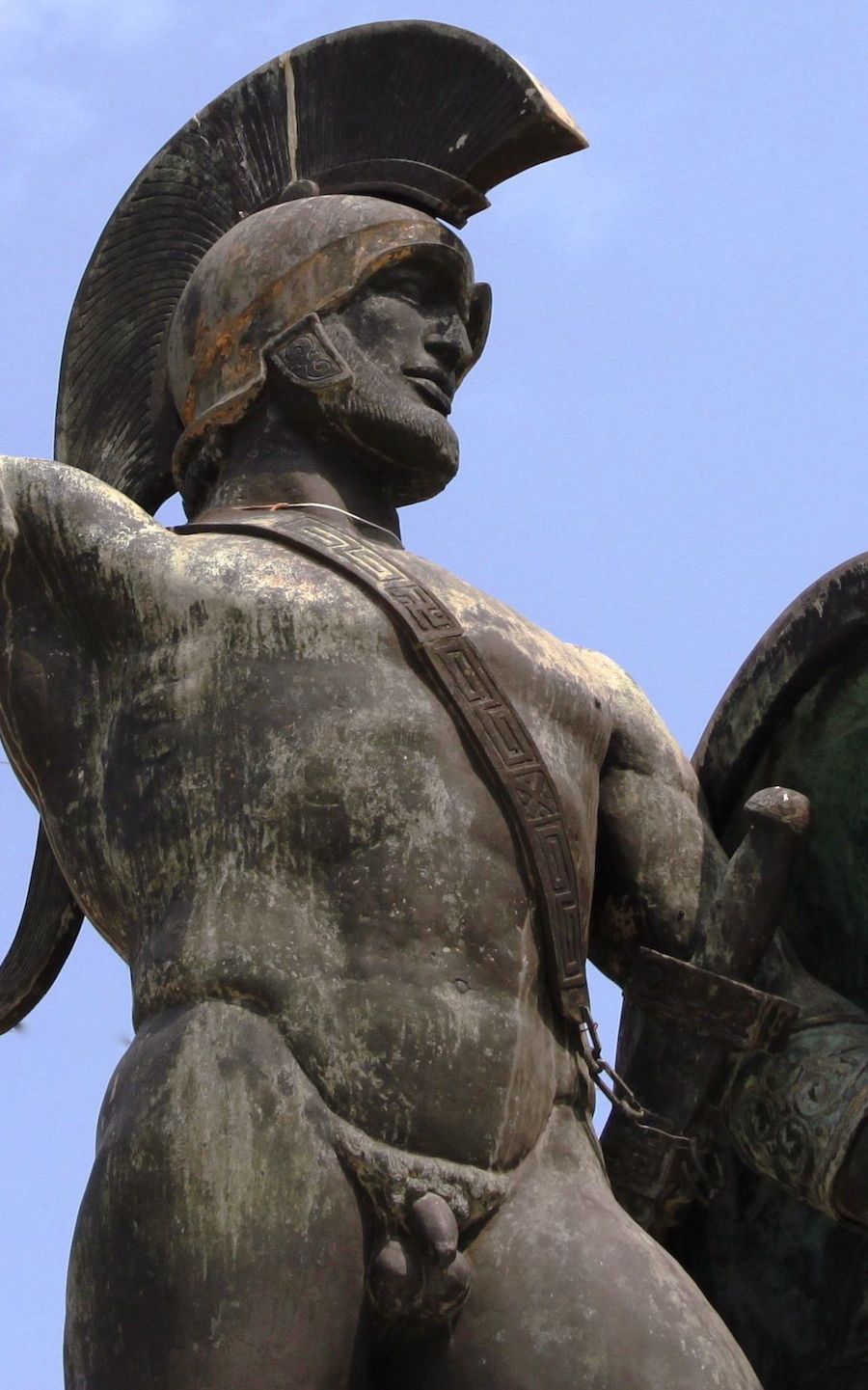
Leonidas of Sparta, of whom Aristotle says
Honour is the Prize of Manhood
and
The Tribute We Pay to the Manly

This bas-relief -- ca 525 BC -- of Combatant Youths locked in a Wrestling Tie-Up -- their eyes on each other's naked groins
-- epitomizes the mix of Muscular Athleticism and Martial Homoeroticism which was the Manly, and Romantic, Love of ancient Greece.
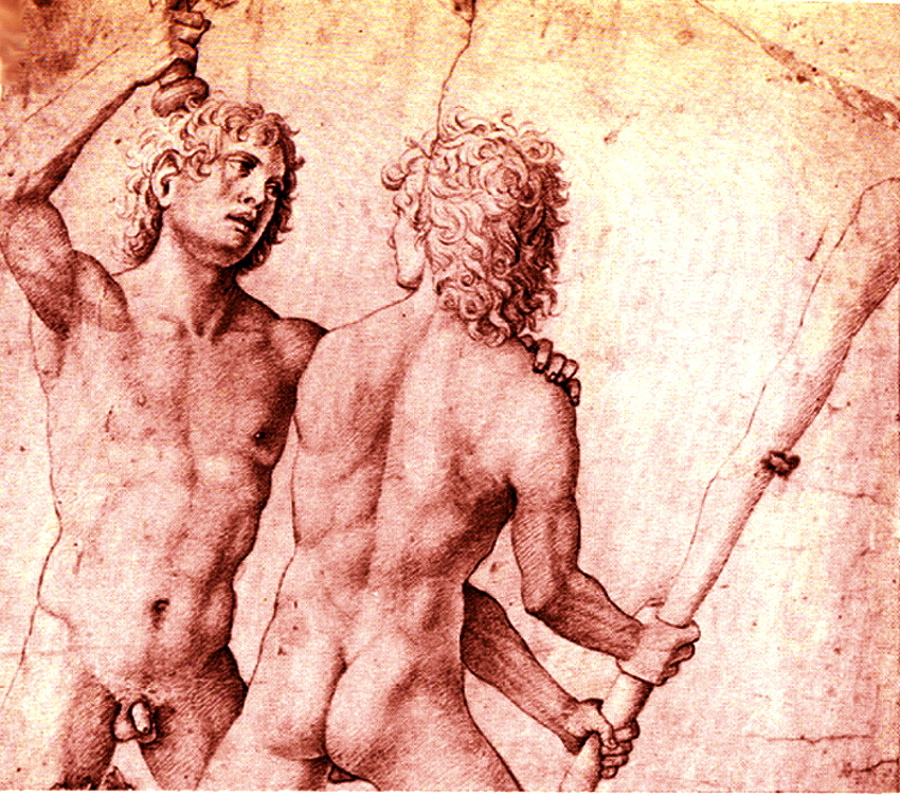
The Yearning for Manfight is the Yearning for Manhood
For the Manly Virtue of Manhood can only be conferred through Manfight


TWO MEN STRENUOUSLY STRUGGLING TO PERFECT THEIR MANHOOD IN VICTORY
THERE IS NO VIRTUE WITHOUT FIGHT, AND THERE IS NO FIGHT WITHOUT VIRTUE














αγαπη
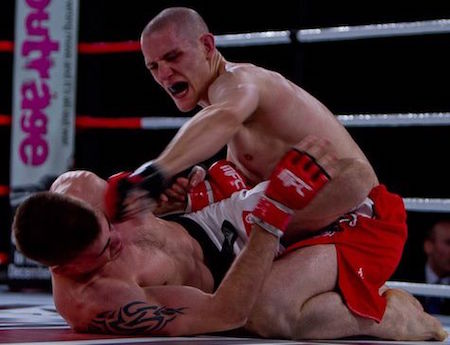
Fight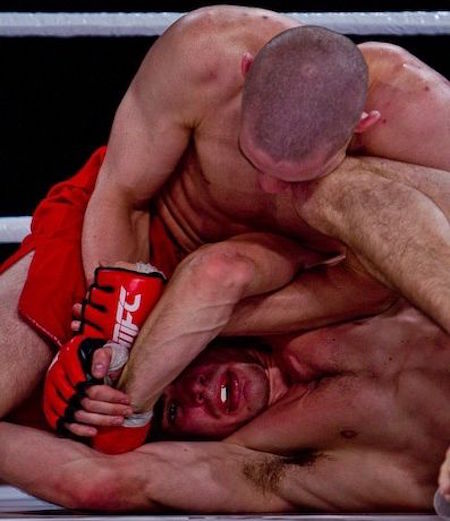
Its Strength and Force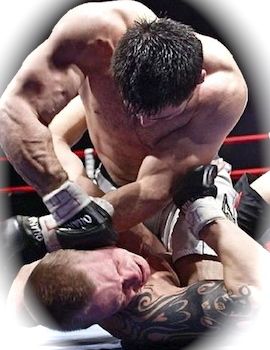
Fight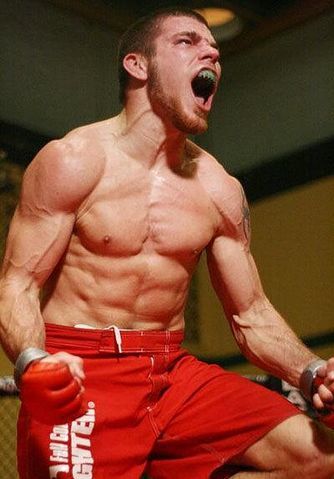
Its Manly Beauty


[Areta is] goodness, excellence, of any kind, esp. of manly qualities, manhood, valour, prowess (like Lat. virtus, from vir)





























:











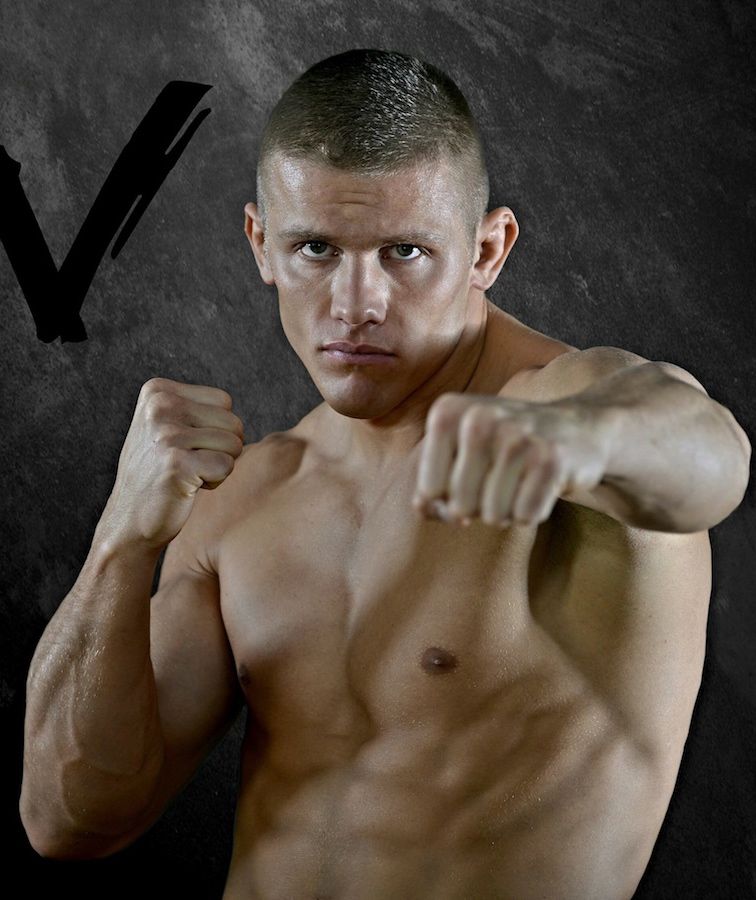


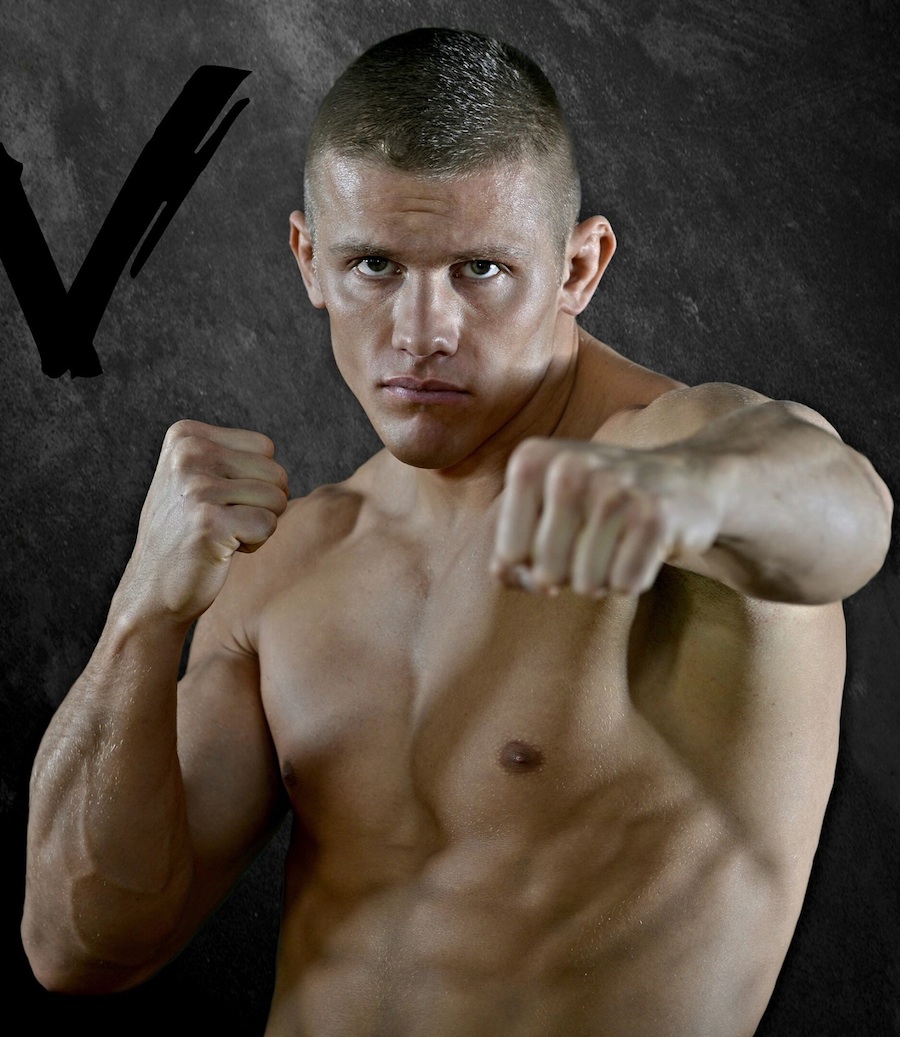
Iamblichus argued that the effective agent in theurgy was philia, or, speaking Platonically, that eros drew the soul back to the Gods (Cf. De Mysteriis 239, 7-13). Although the heavenly cycles described in [Plato's dialogues] the Phaedrus and the Timaeus were the goal to which a Platonist aspired, it was erotic madness that brought him there. According to the Chaldean Oracles, Eros was the first God born of the Paternal Father ; Eros coordinated the Ideas in the intelligible world, and, proceeding with them, knitted the cosmos together in a unified bond. In a word, the will of the Demiurge [the Demiourgos -- the Craftsman or Artisan] was revealed as Eros :
For after He conceived his works, the self-generated Paternal Mind sowed the bond of Love, heavy with fire, into all things . . . in order that the All might continue to love for an infinite time, and the things woven by the intellectual light of the Father might not collapse . . . [It is] with this Love (eros) that the elements of the world remain on course.
God produced matter out of the scission [cutting] of materiality from substantiality [ie, all Formal qualities], which the Demiurge, receiving as a living substance, fashioned into simple and impassable spheres, and organized the last of this into generated and immortal bodies (DM 265, 6-10).
And thus, from on high to the lowest things, the Egyptian doctrine concerning principles (archai) begins from the One and proceeds into multiplicity, and the multitude in turn is governed by the One ; and everywhere the indefinite nature is ruled by a certain defined measure, and by the highest uniform cause of all things (DM, 264, 14-265, 6).












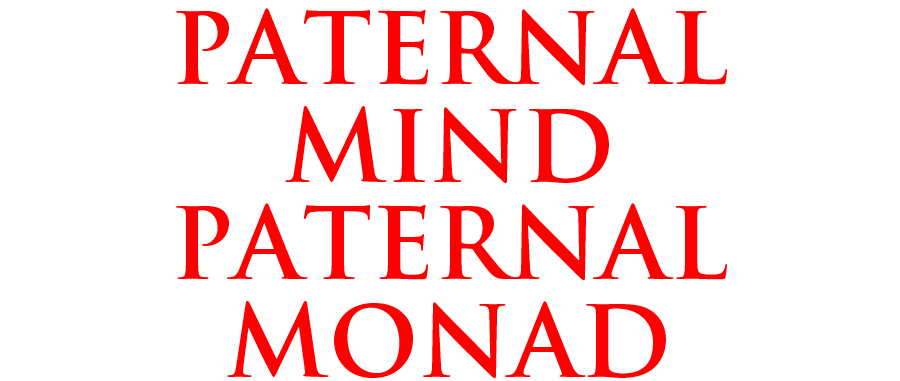

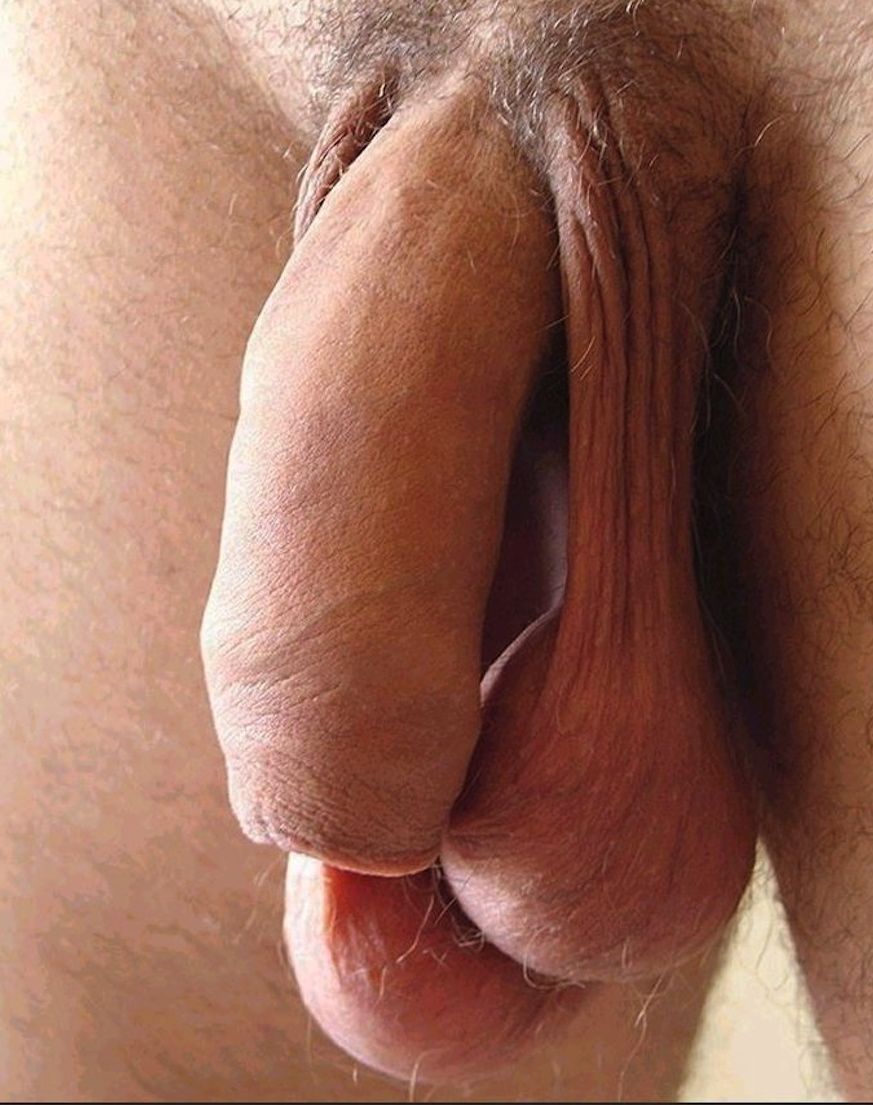
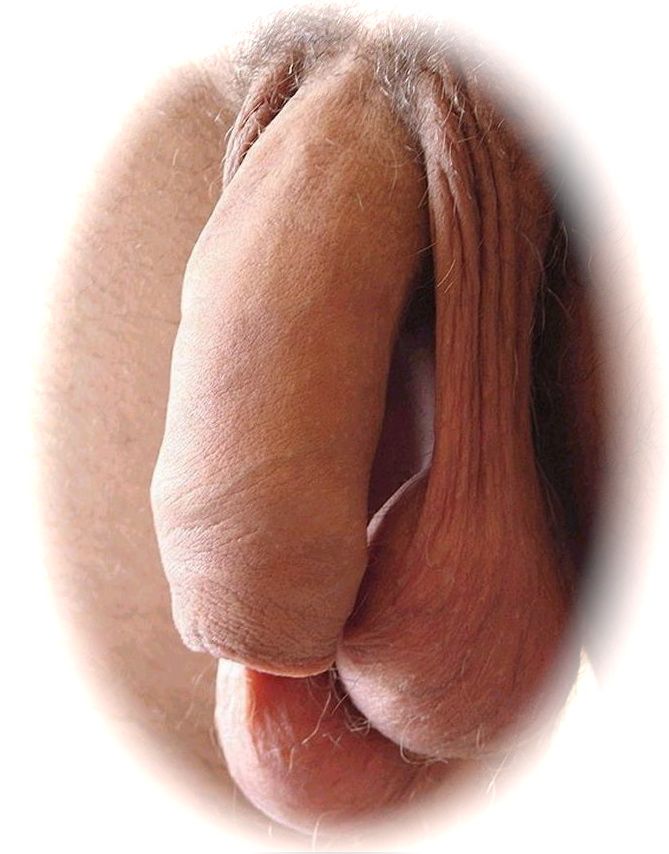



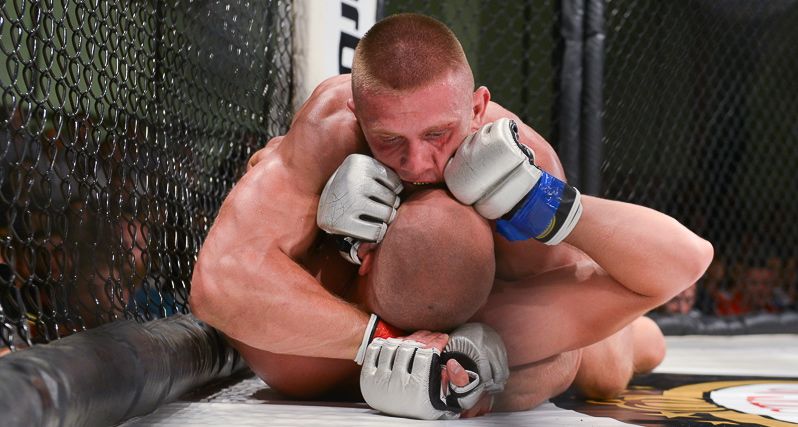
















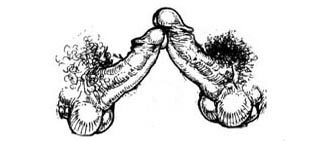
PHALLIC FIGHT




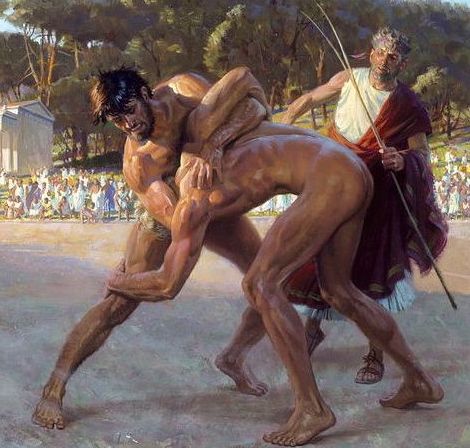
![]()




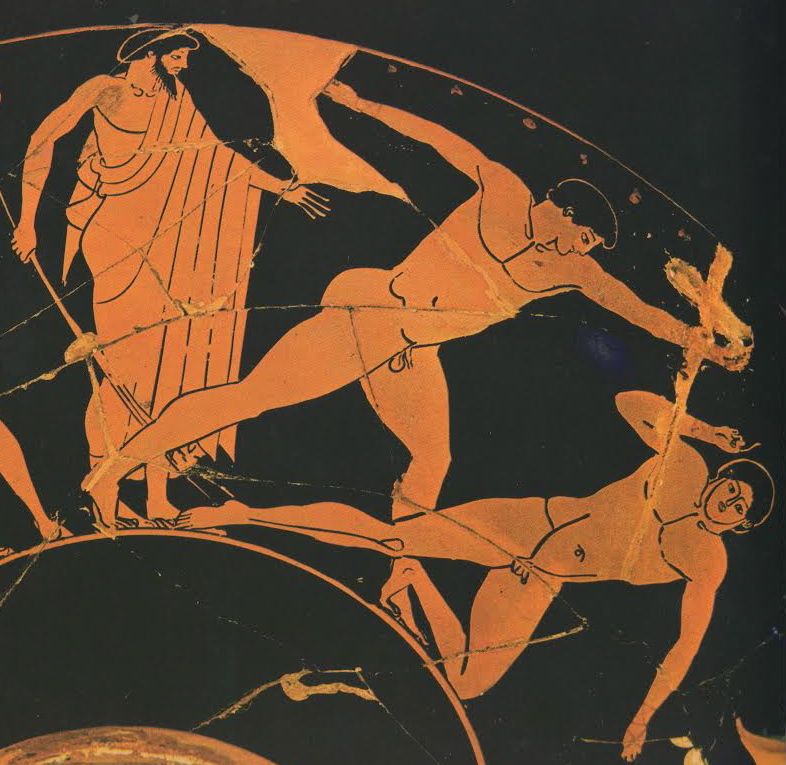



[Areta is] goodness, excellence, of any kind, esp. of manly qualities, manhood, valour, prowess (like Lat. virtus, from vir)



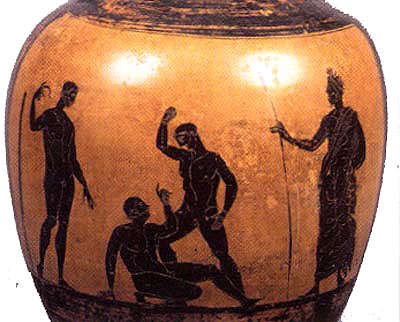

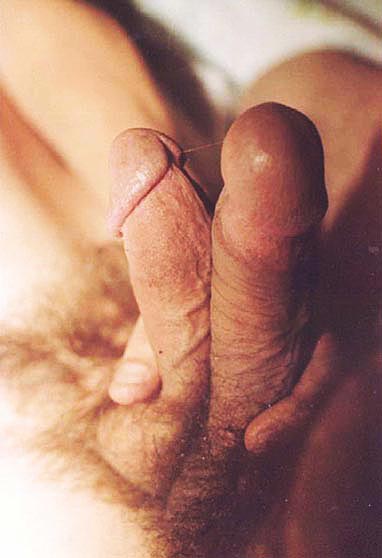

![]()
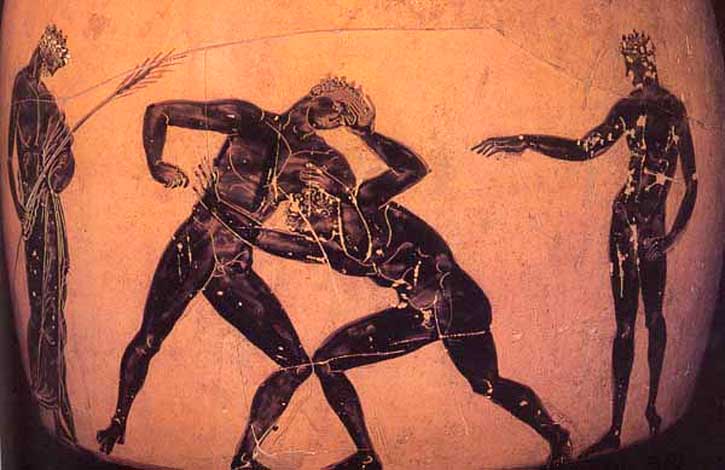














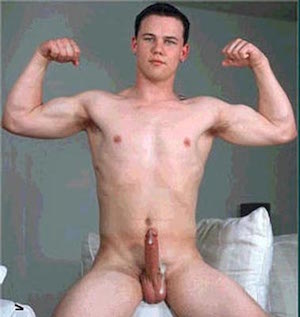
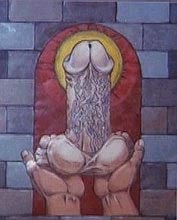
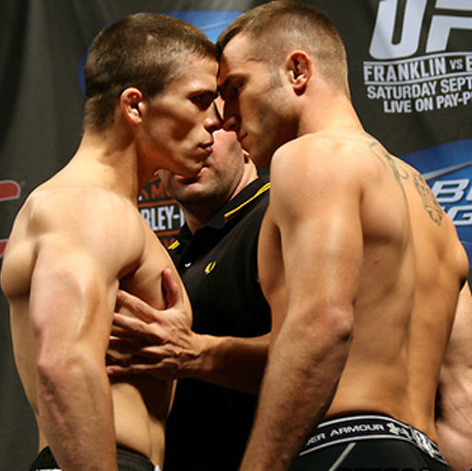
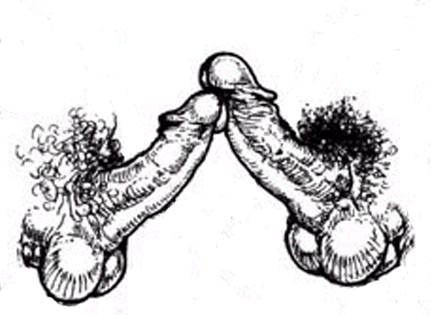
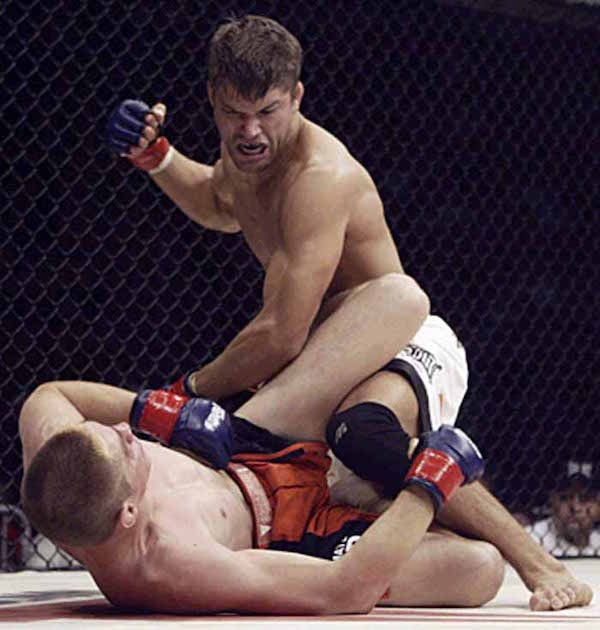
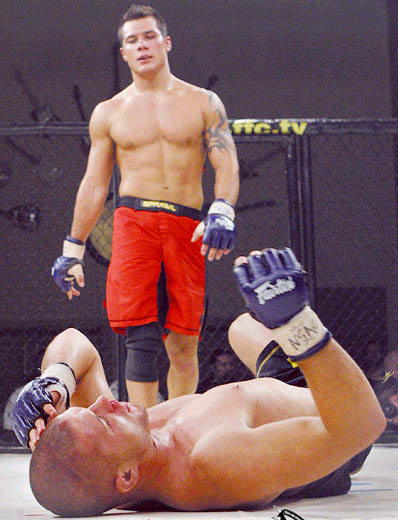


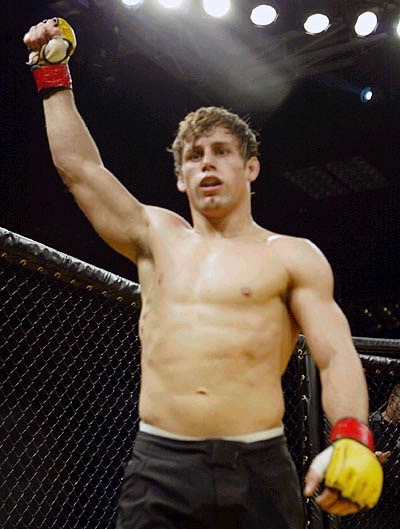
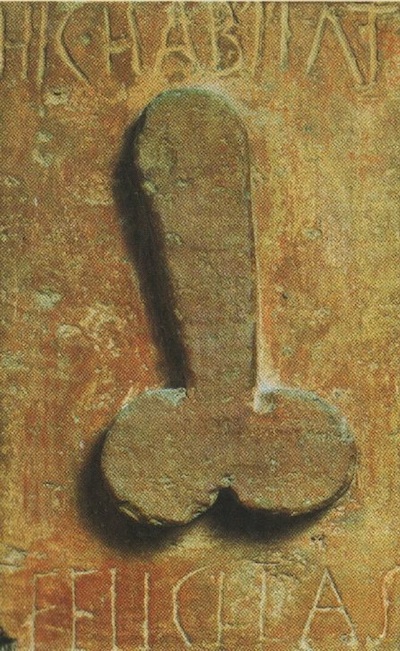


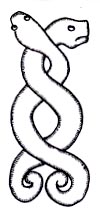


Wherefore in men [andron] the nature [physis] of the genital organs [ta aidoia] is disobedient and self-willed [apeithes kai autokrates], like a creature that is deaf to reason [zoon anupekoos logos], and it attempts to conquer all [epicheireo krateo pas] because of its raging lusts [epithumia oistrodes].
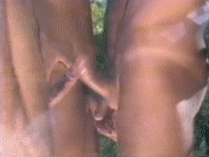







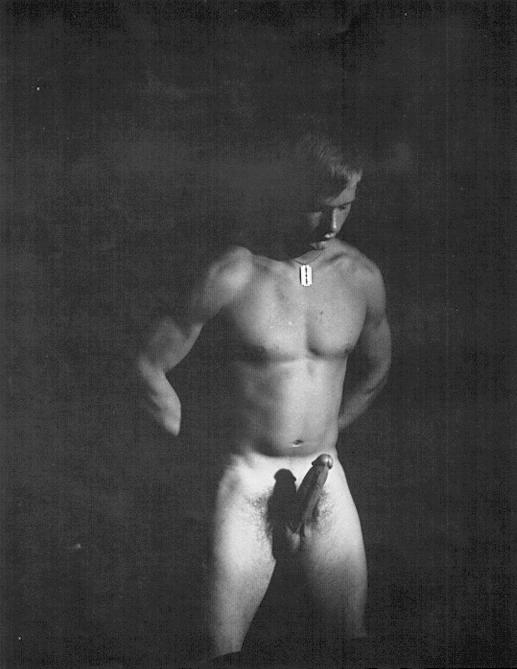
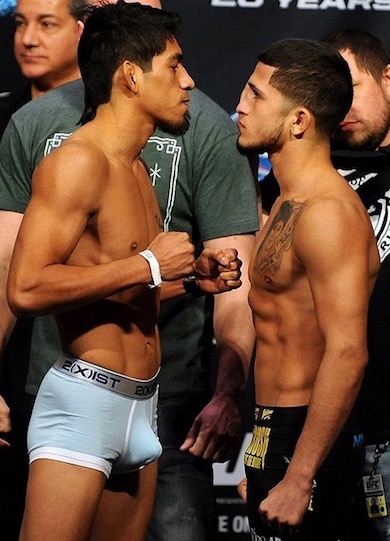

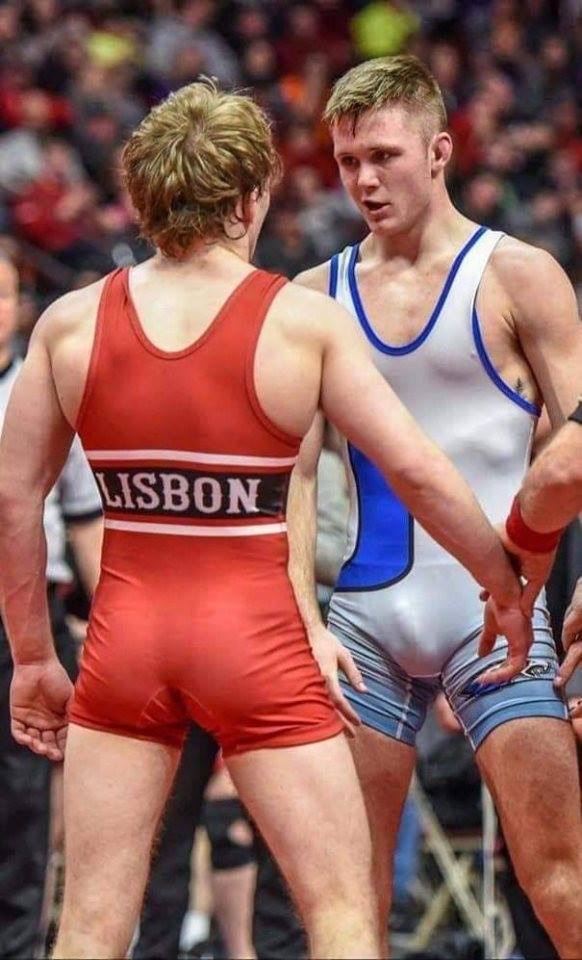






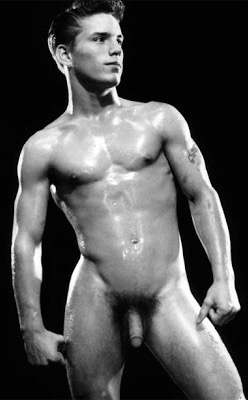
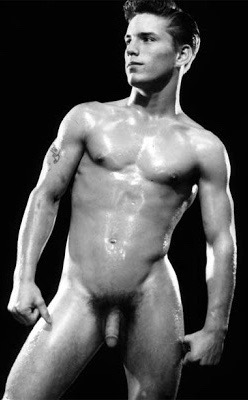















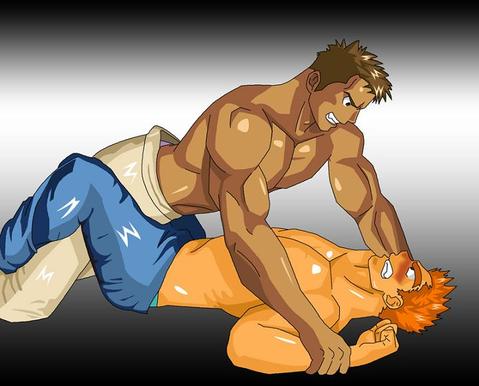

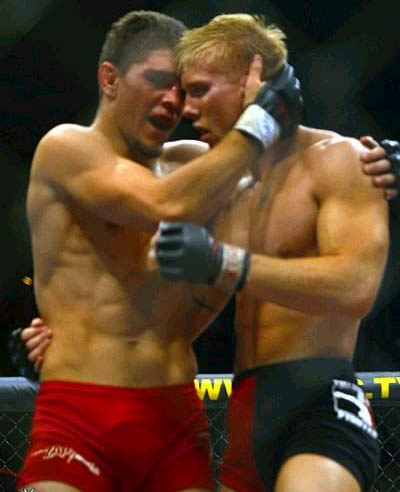

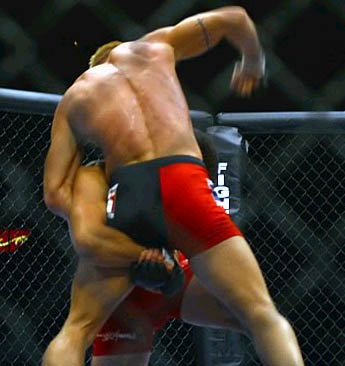

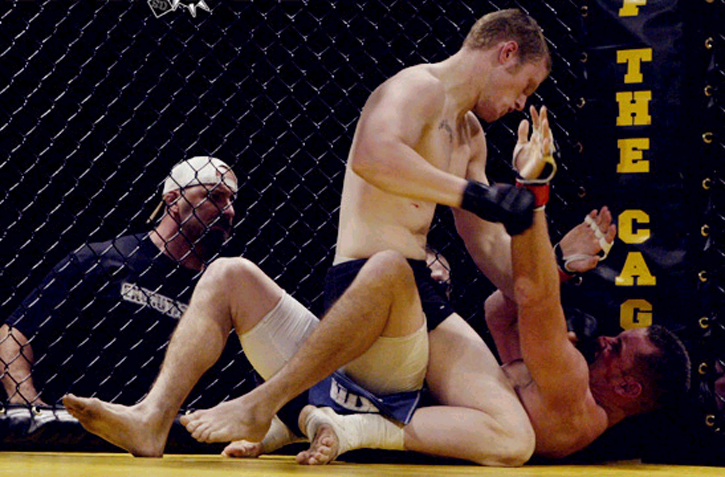
Ground and Pound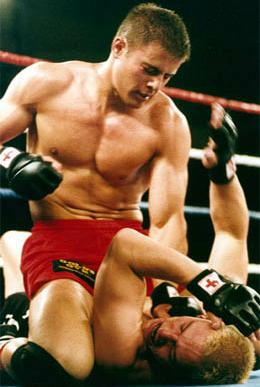



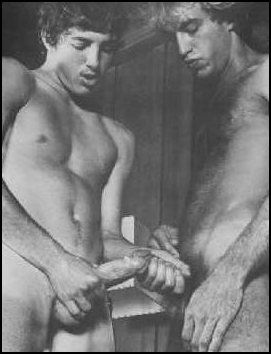
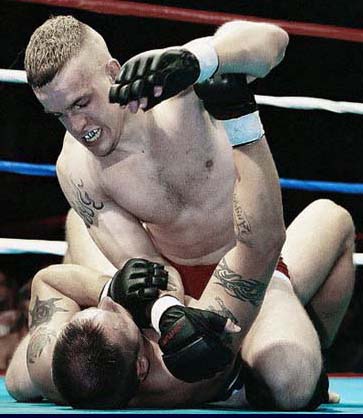
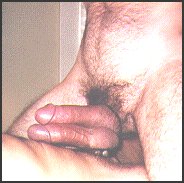
Balls Against Balls
Phallus Against Phallus

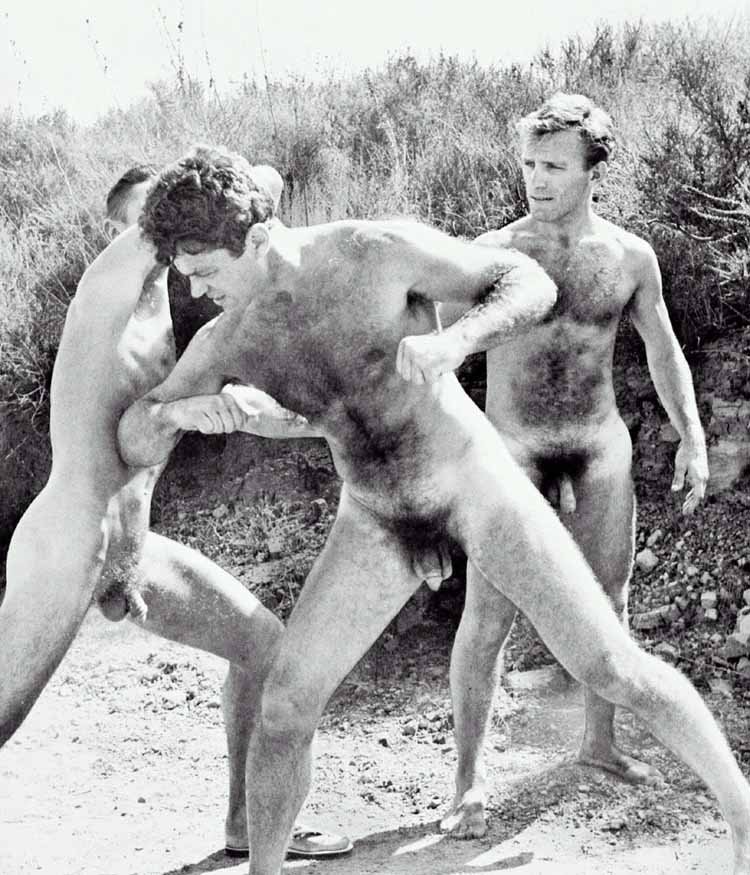

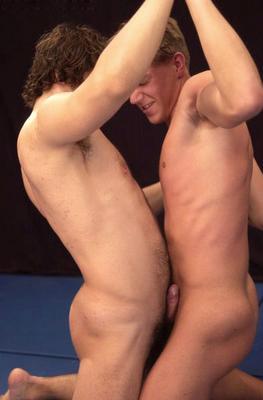










![]()







This bas-relief -- ca 525 BC -- of Combatant Youths locked in a Wrestling Tie-Up -- their eyes on each other's naked groins
-- epitomizes the mix of Muscular Athleticism and Martial Homoeroticism which informed the Manly, and Romantic, Love of ancient Greece.
























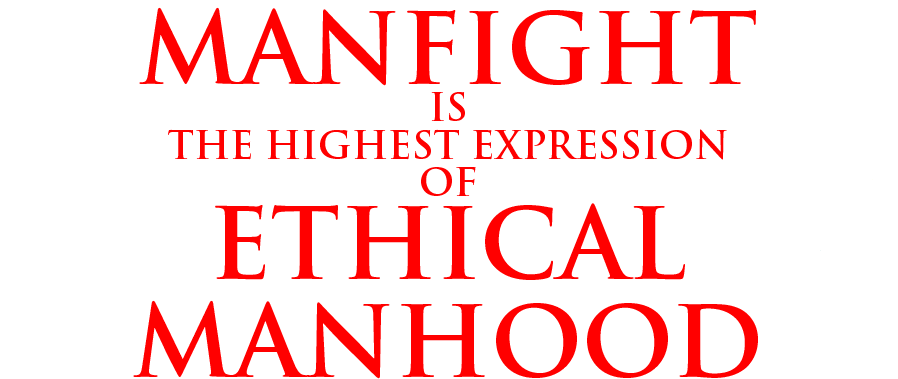

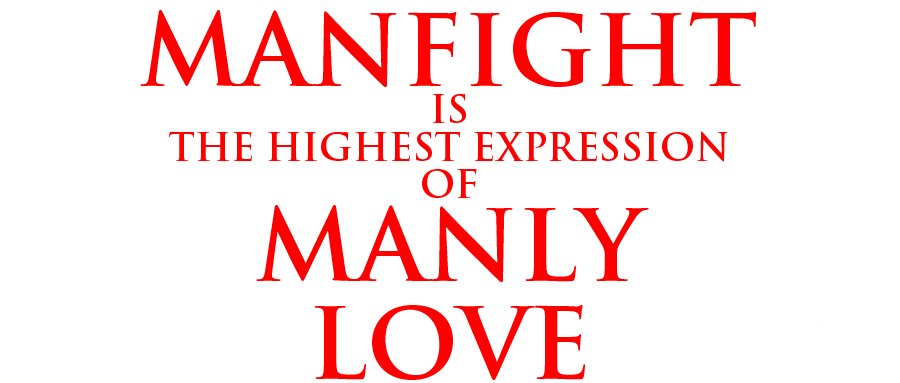
Manhood and Manliness at its core, and that fails to identify Manhood, Fighting Manhood, with Virtue.

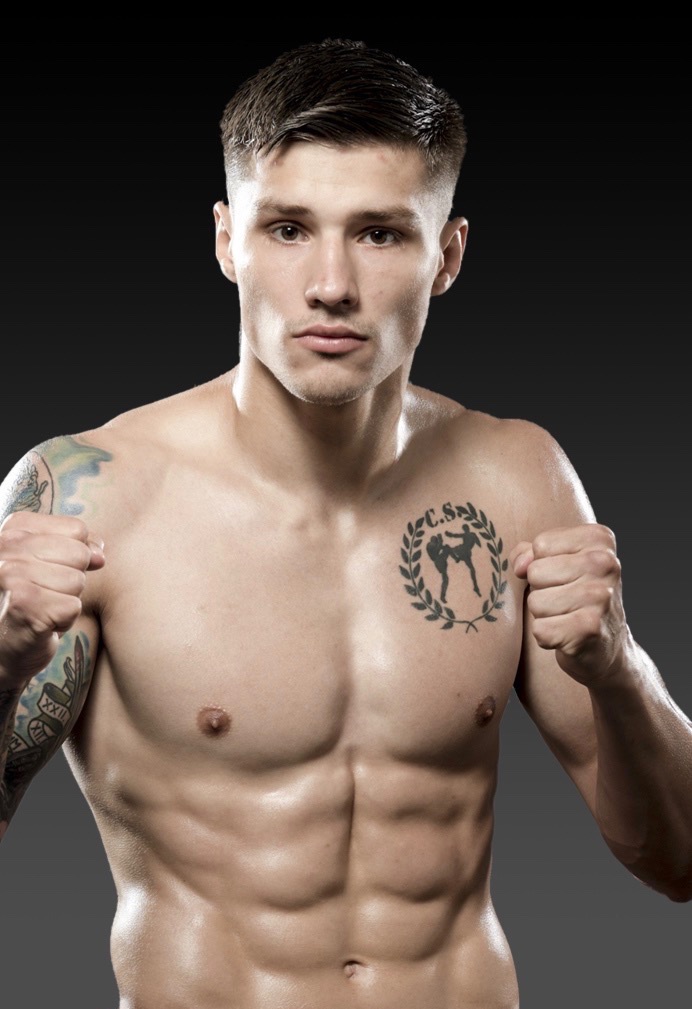















![]()







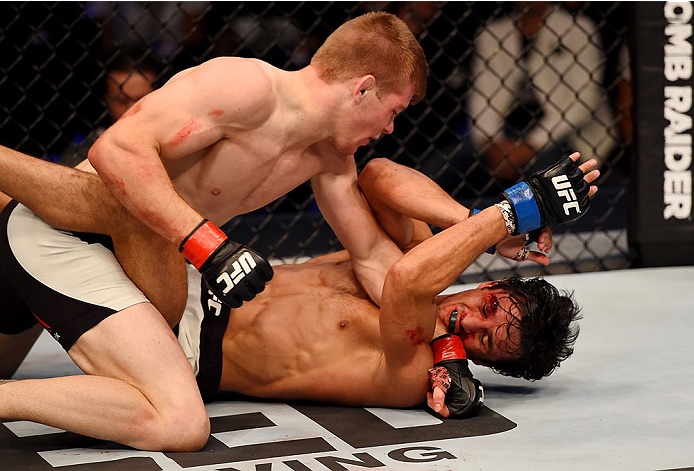
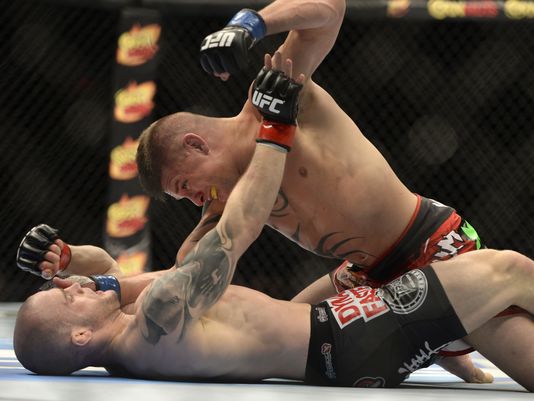
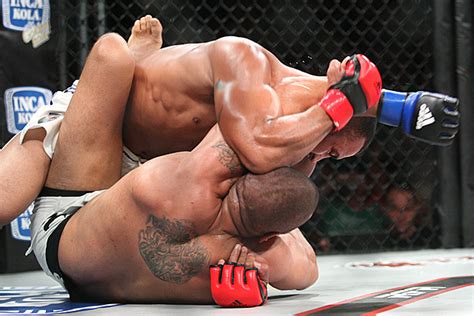

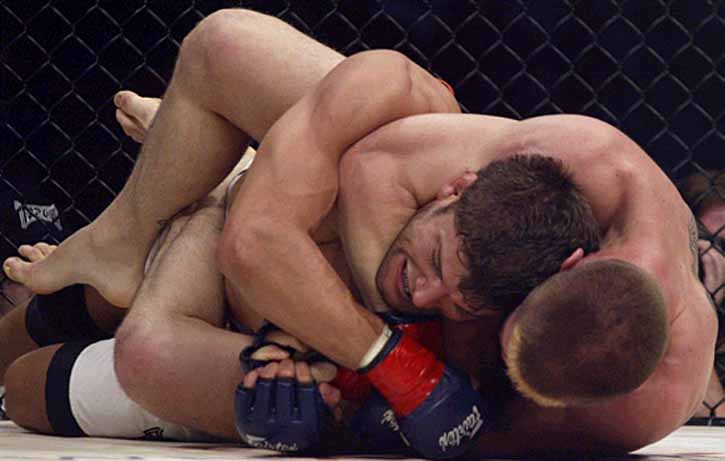
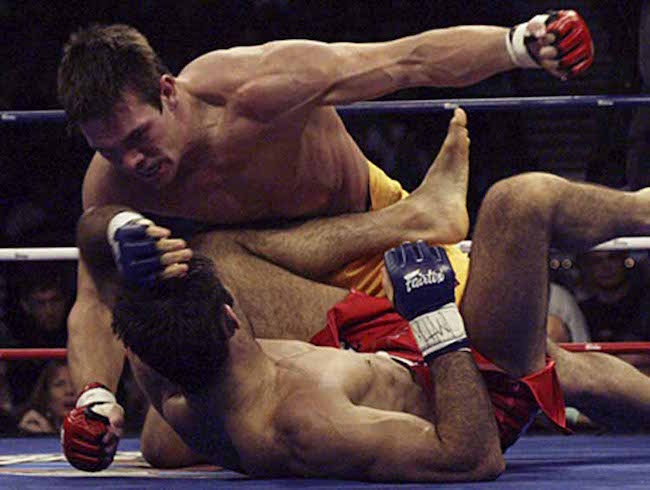
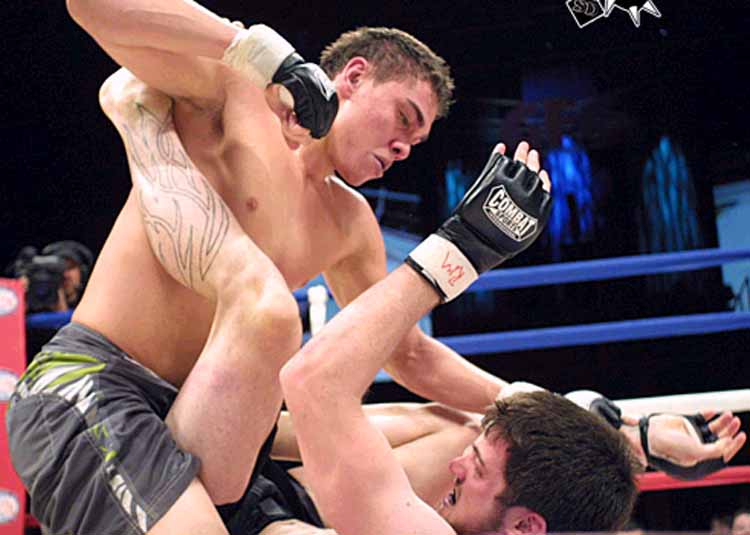
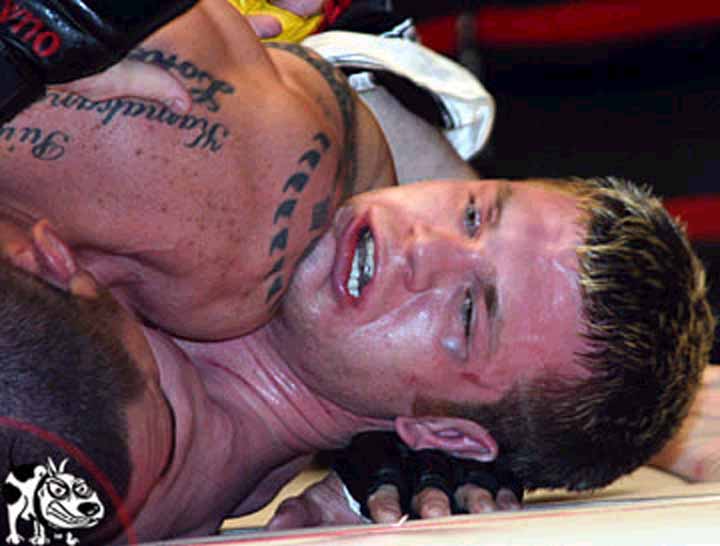
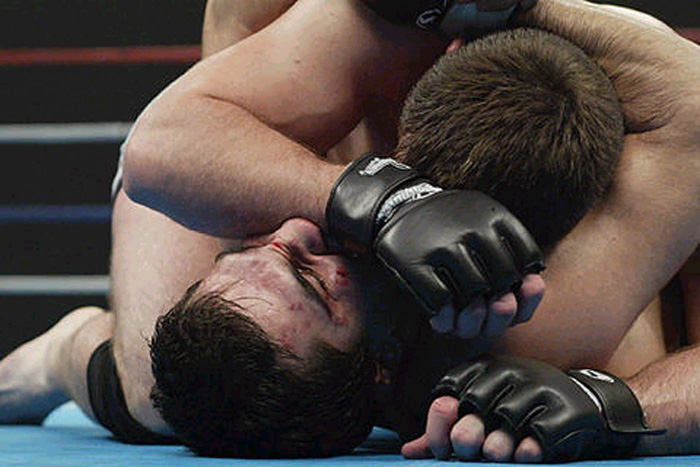

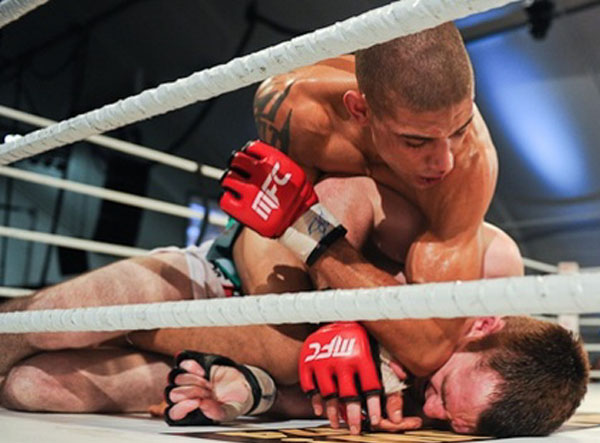
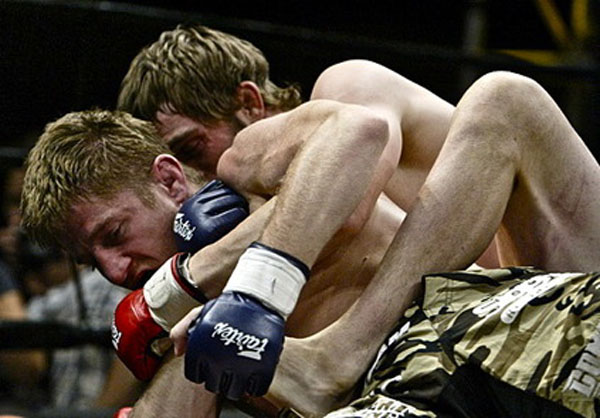
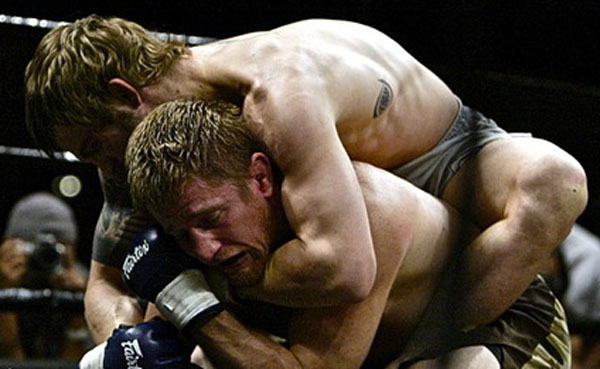
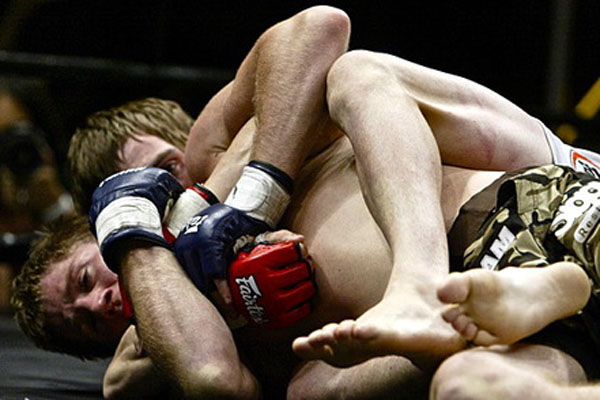
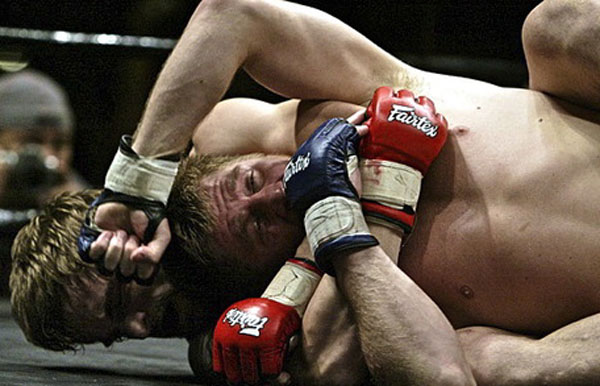
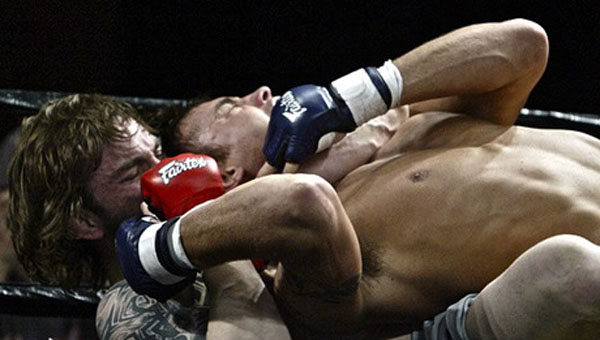
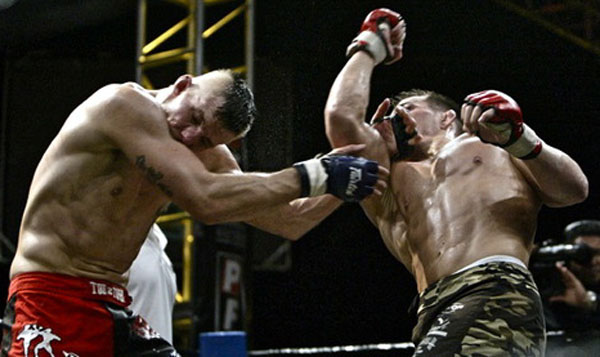
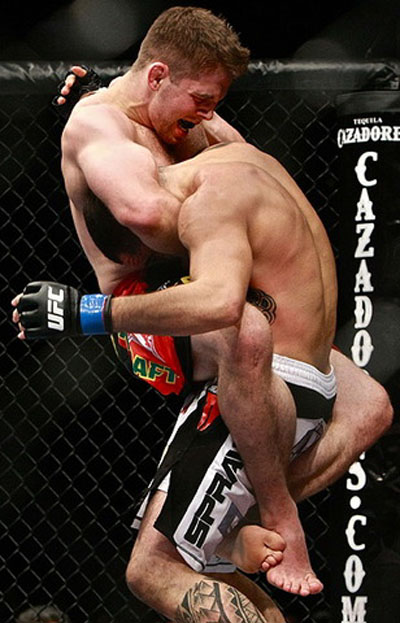
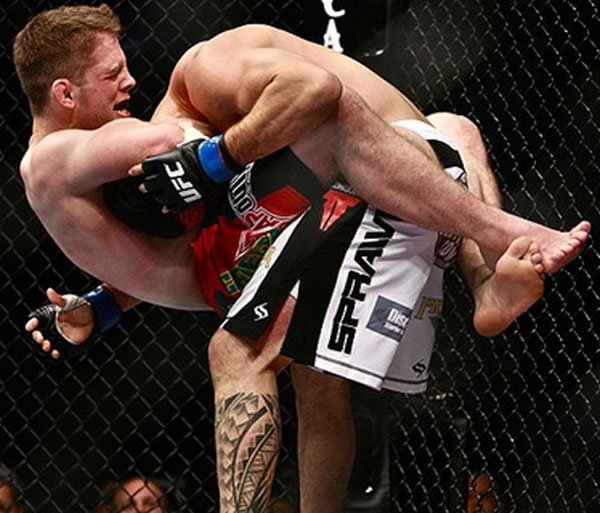
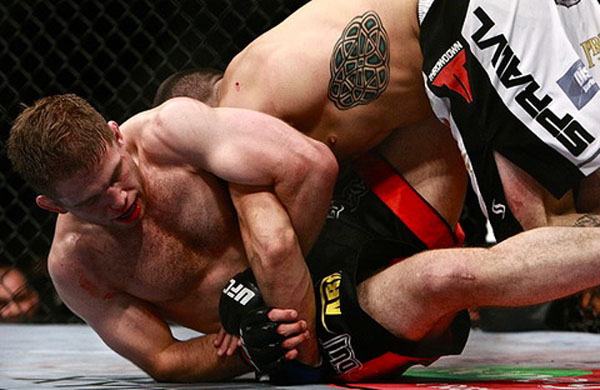
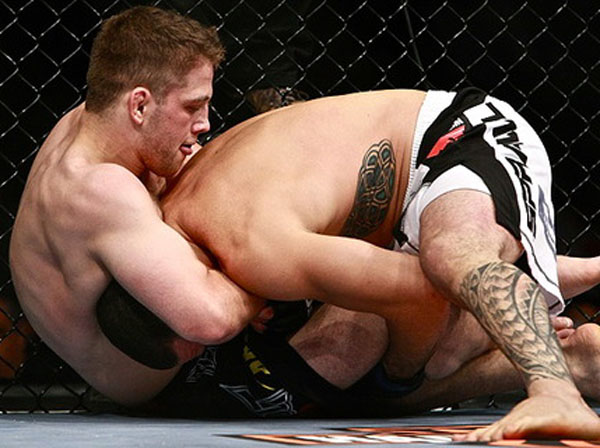
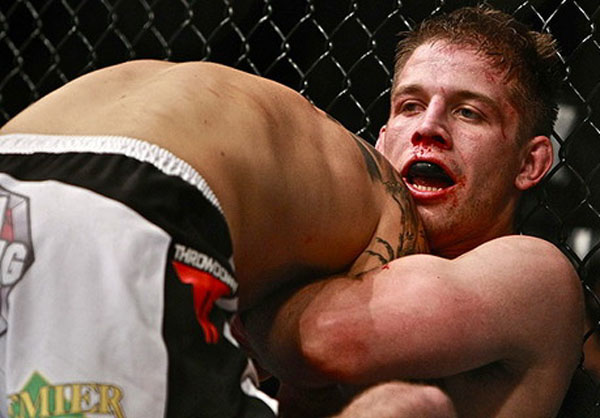

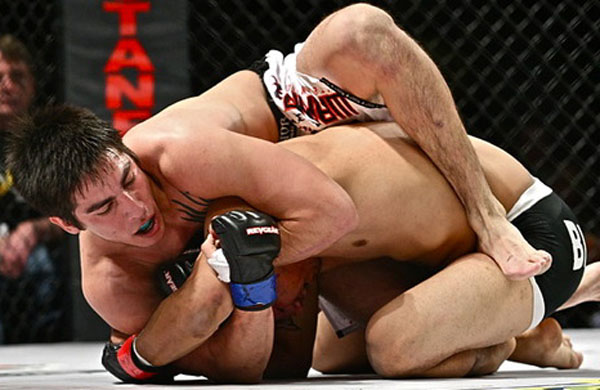

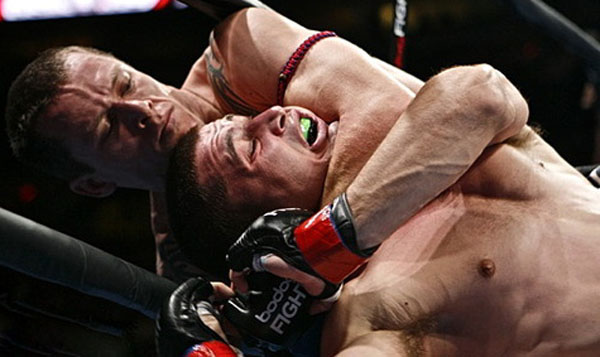

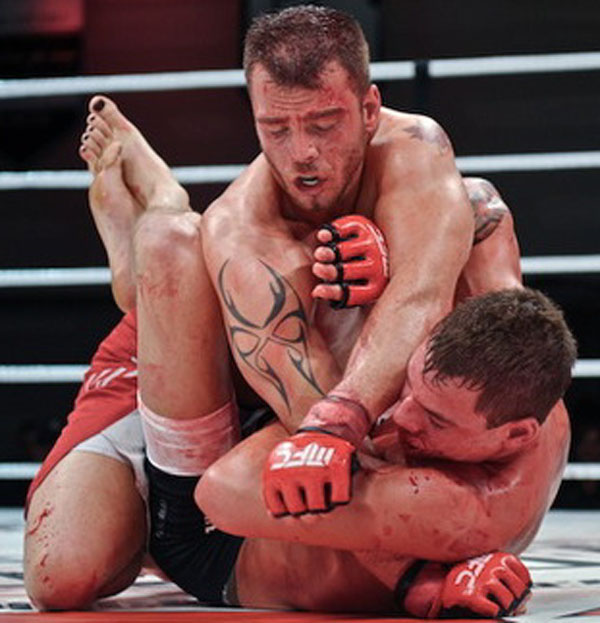





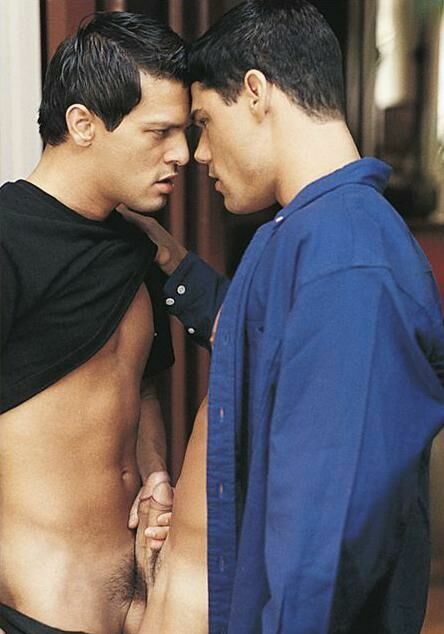
















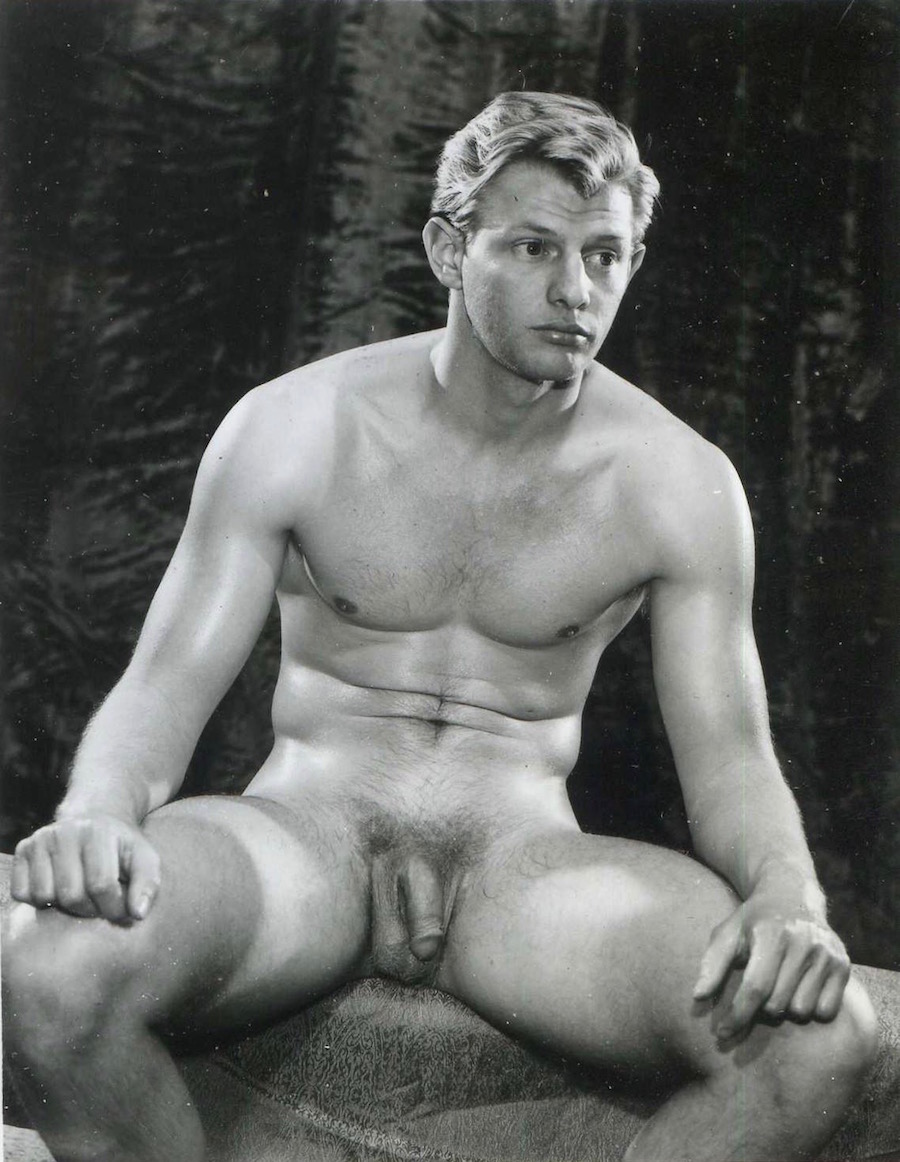
This Man was a Fighter
His nose was broken, his ears were battered, his knuckles bruised
This MAN was a FIGHTER




our cocks -- our hard cocks -- would Fight each other


our cocks -- our hard cocks -- would Fight each other





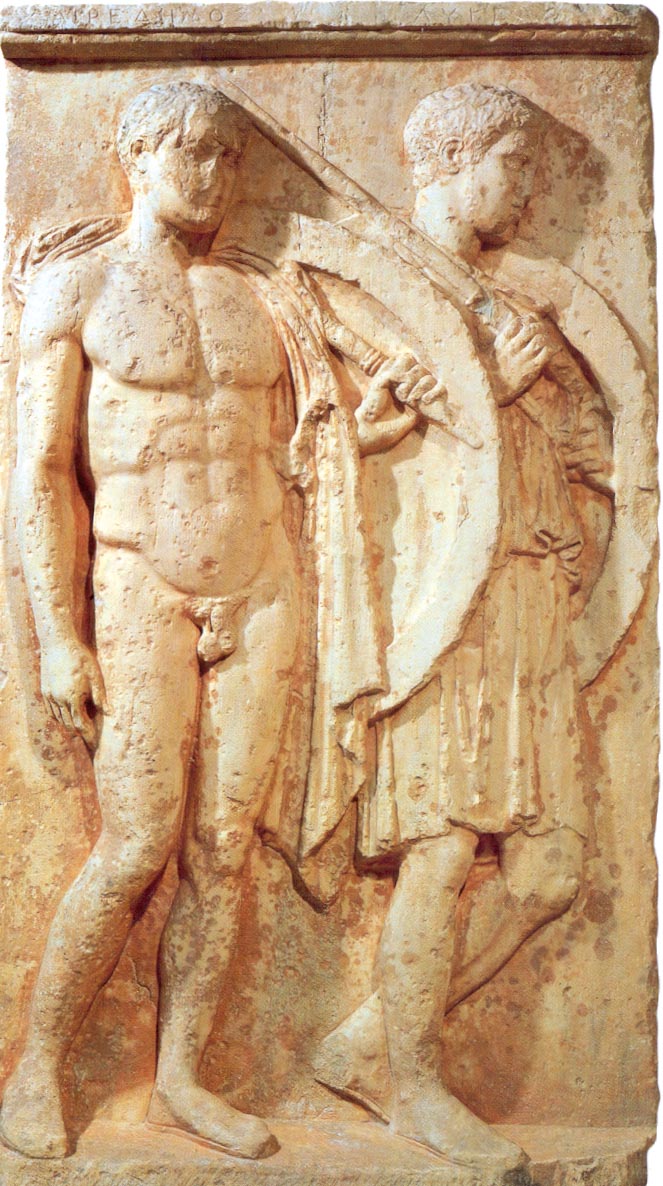
Chairademos kai Lykeas
Athenian Warrior-Lovers
who died in Battle together
and were buried together

Spartan Kylix
Spartan Warriors
with
Fighting Cocks
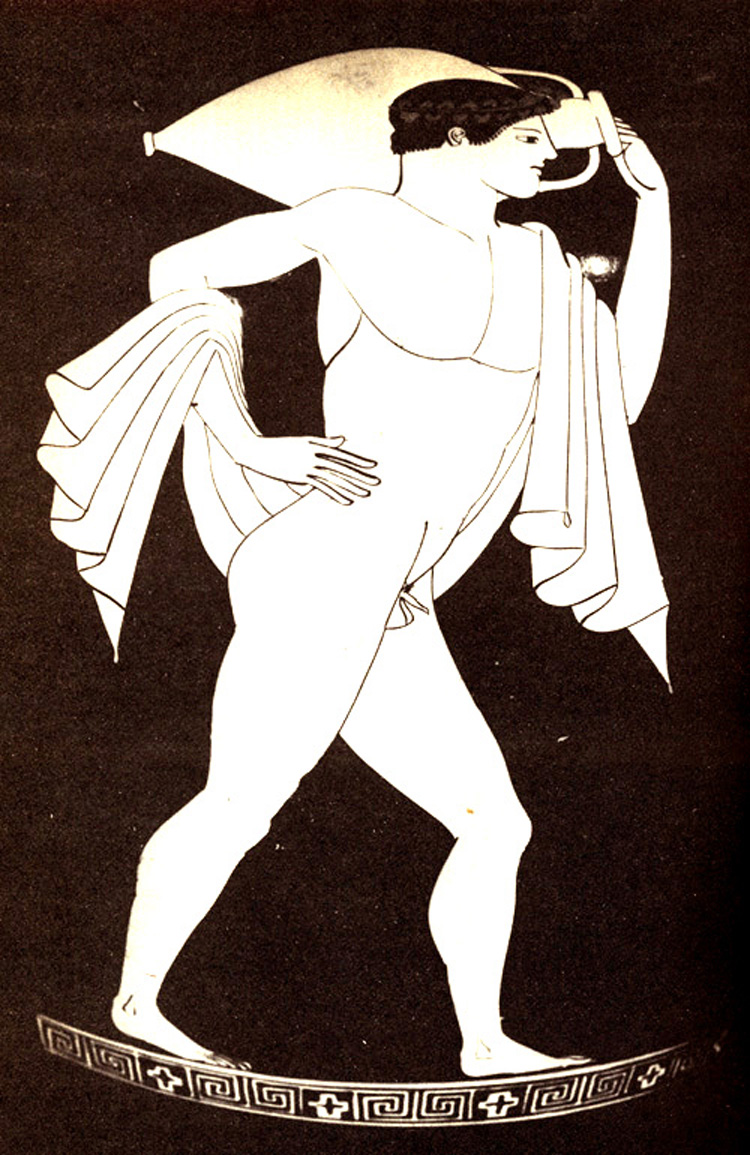
A Boy Victor in Fight Agonia in the Panathenaic Games
The Youth's Testicles are Prominently Displayed






[At Sparta,] they go into a place surrounded by water [known as Plantanistas, or Plane-Tree Grove], choose up sides, and fight as if in actual war, although as naked as we Athenians are, until one team drives the other out of the enclosure into the water, the Sons of Herakles beating the Sons of Lykourgos or vice versa ; after this contest there is peace and no one would strike another.









Apollo :
her child, but only nurse of the new-planted seed
that grows. The parent is he who mounts. A stranger, she
preserves a stranger's seed, if no God interfere.
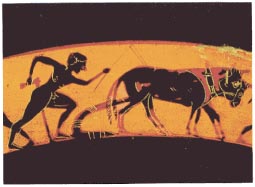
Nude Farmer with Iron Plough
Forty thousand armed men burst into Cremona, and with them a body of sutlers and camp-followers, yet more numerous and yet more abandoned to lust and cruelty.


Wherefore in men [andron] the nature [physis] of the genital organs [ta aidoia] is disobedient and self-willed [apeithes kai autokrates], like a creature that is deaf to reason [zoon anupekoos logos], and it attempts to conquer all [epicheireo krateo pas] because of its raging lusts [epithumia oistrodes].














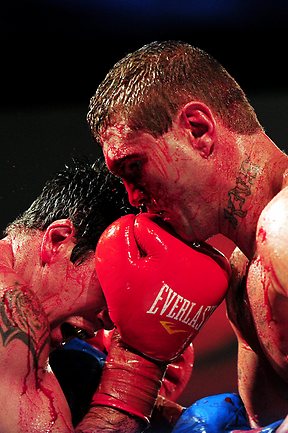
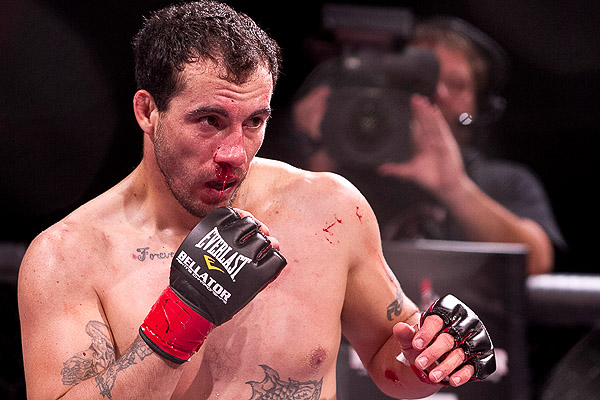
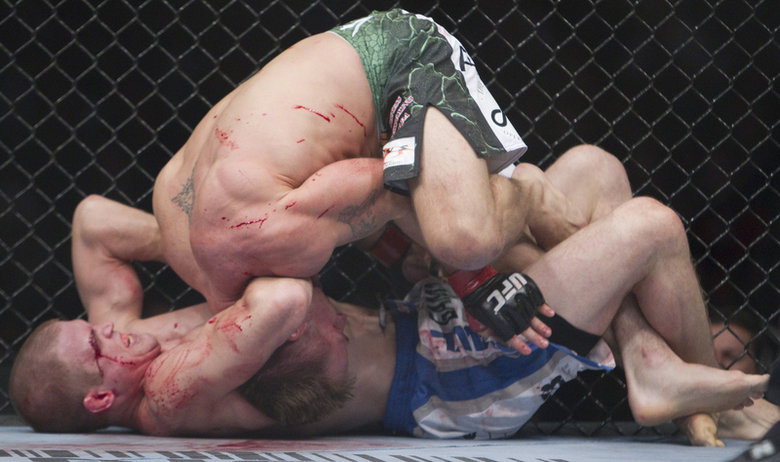
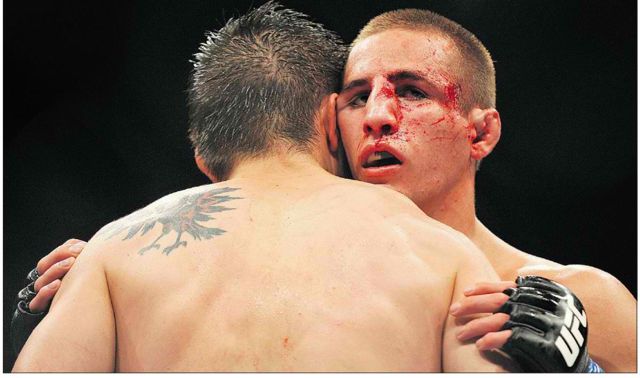
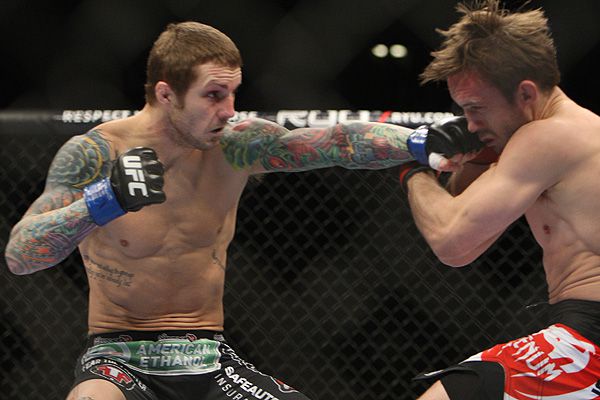
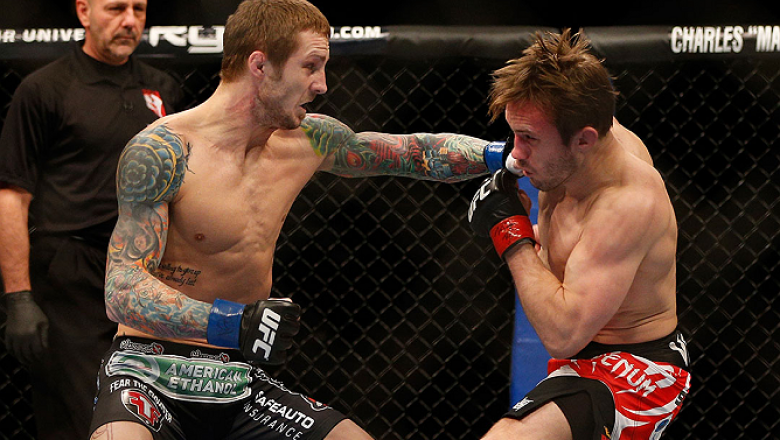

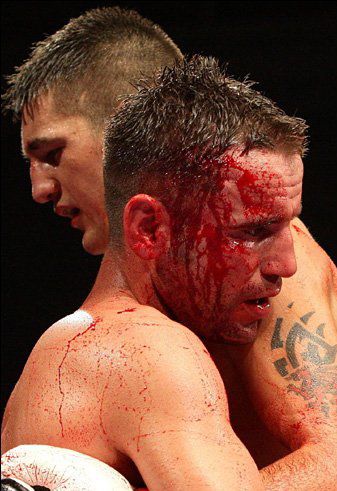
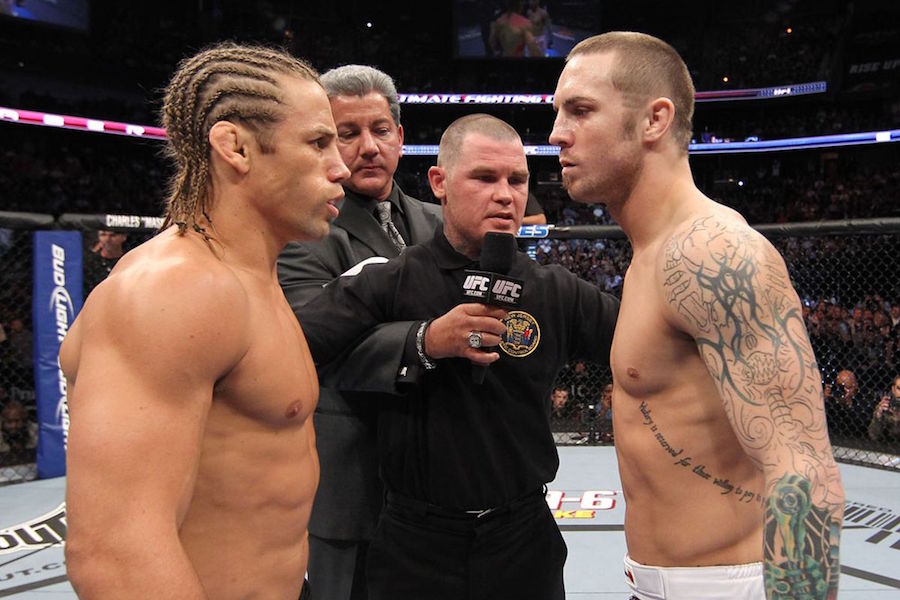
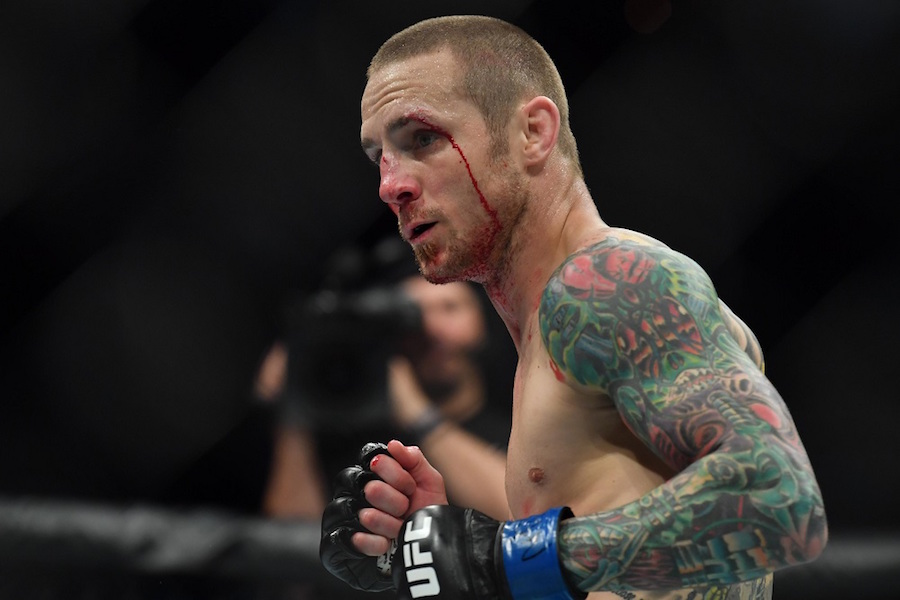
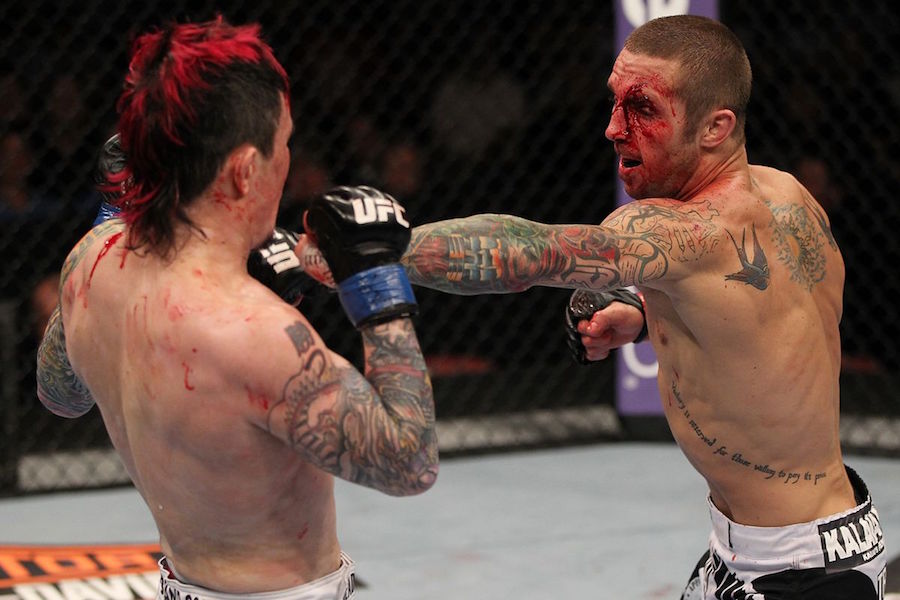


Violent and Brutal
Brutal and Violent
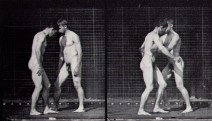
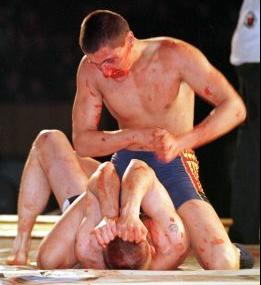
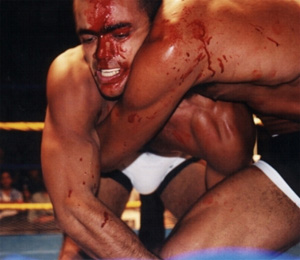
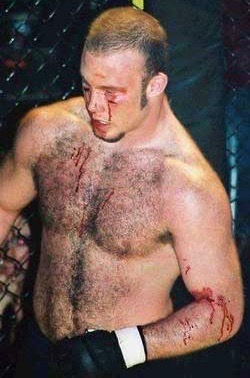
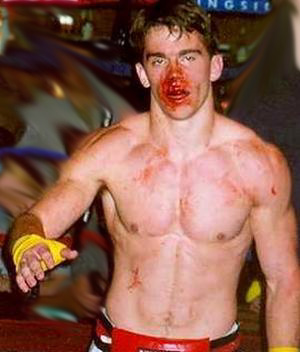
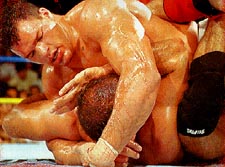

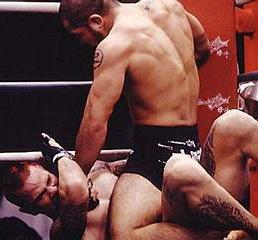


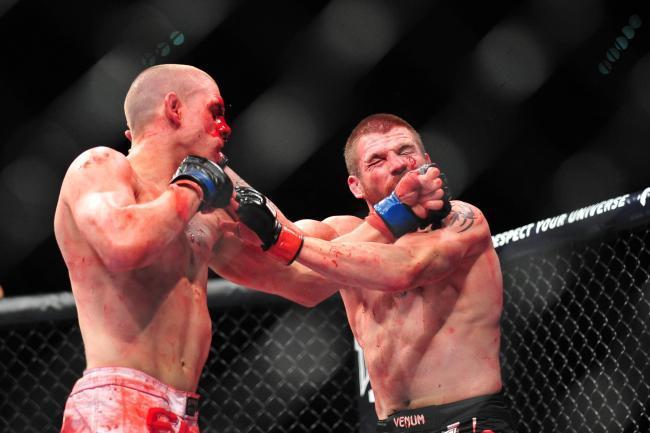
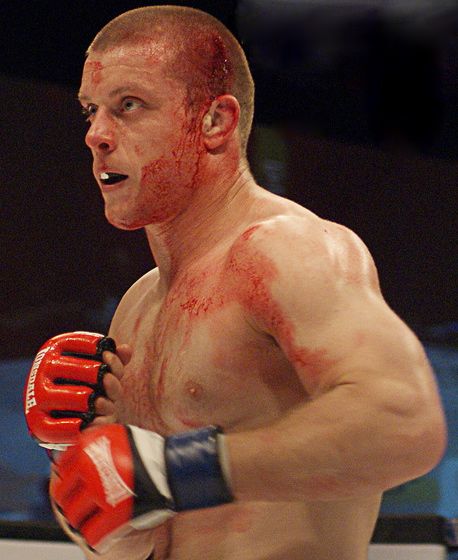
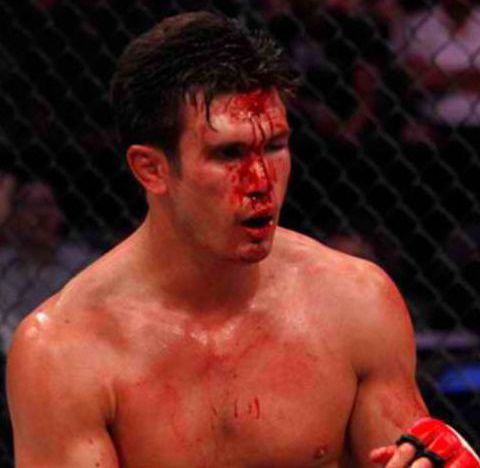
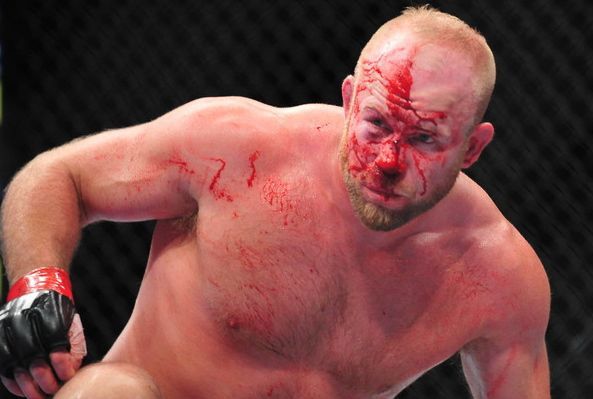



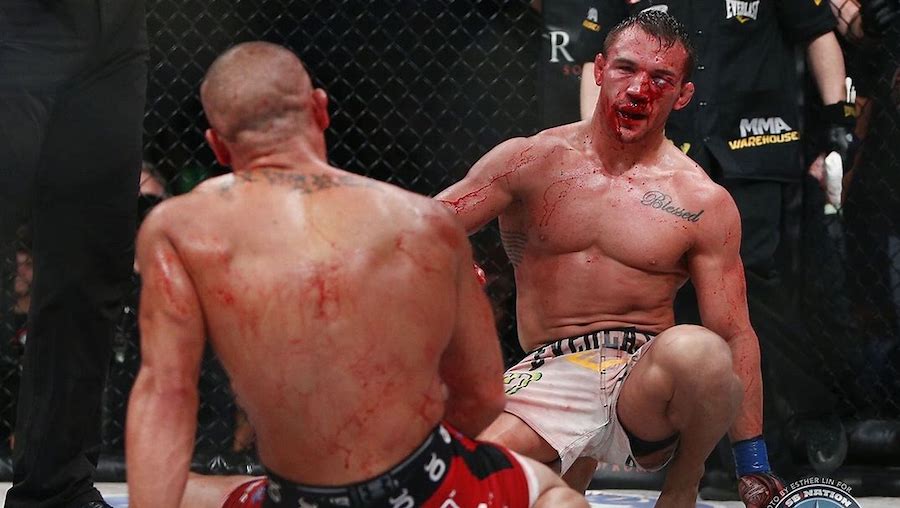


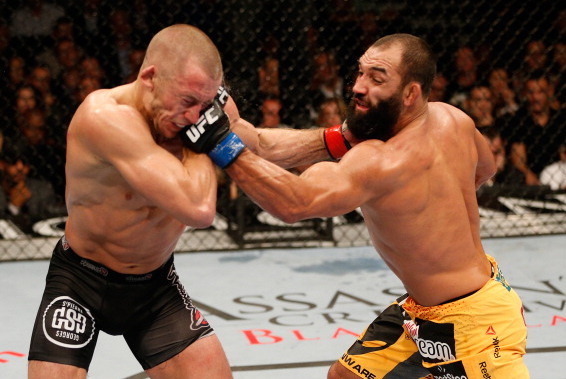
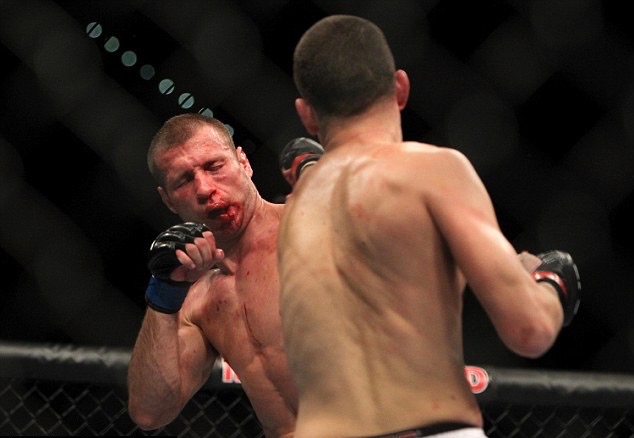
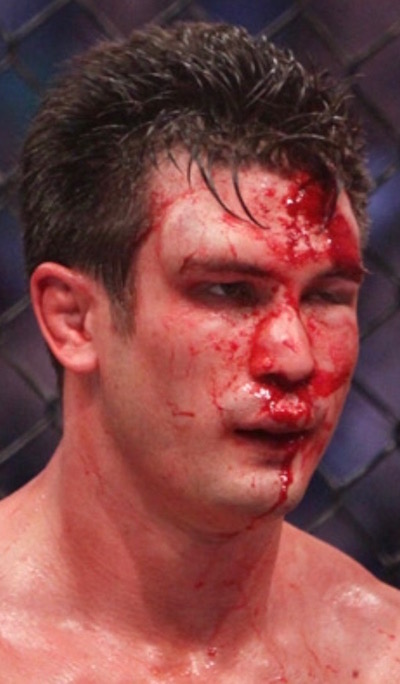
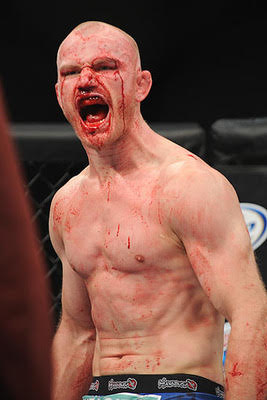
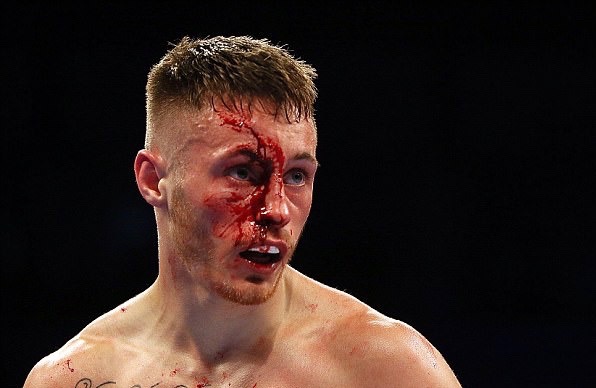
NW :
Beautiful face taking some pain and shedding some blood.
He's got some good man-balls.
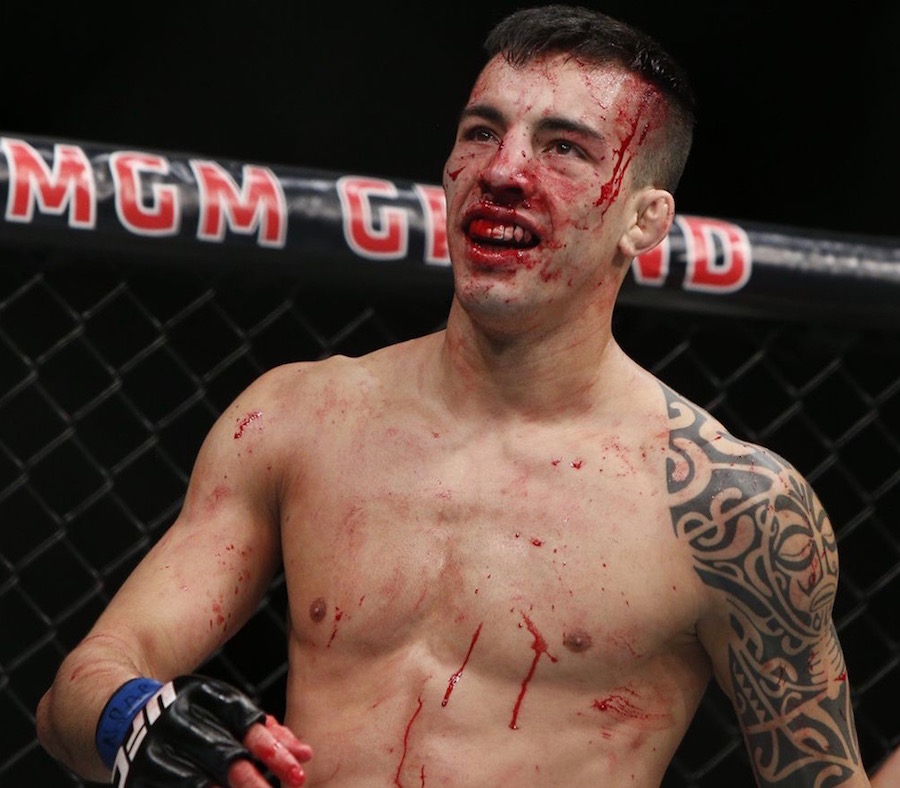




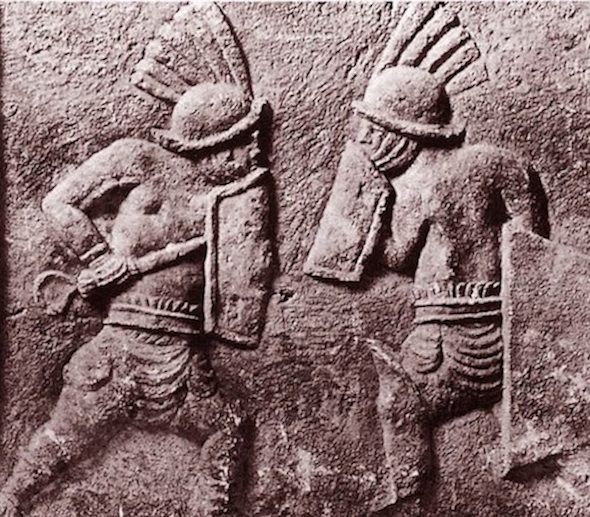









our cocks -- our hard cocks -- would Fight each other
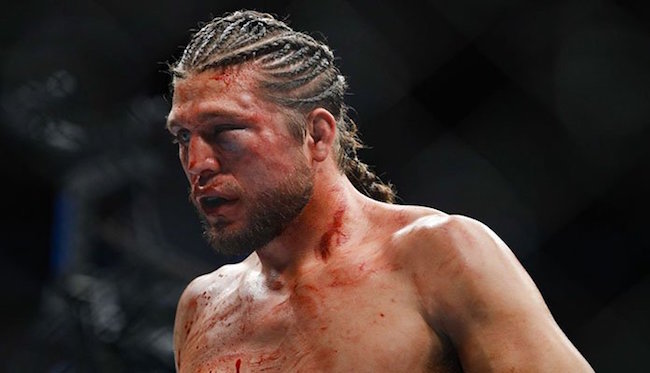





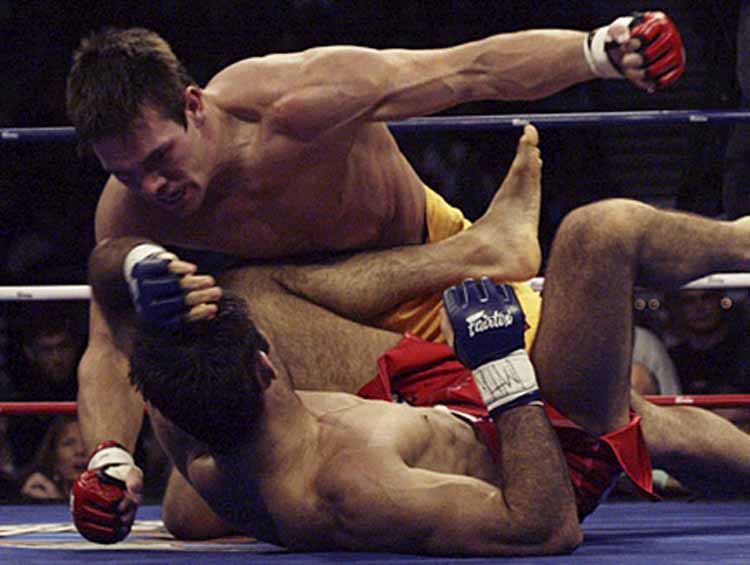
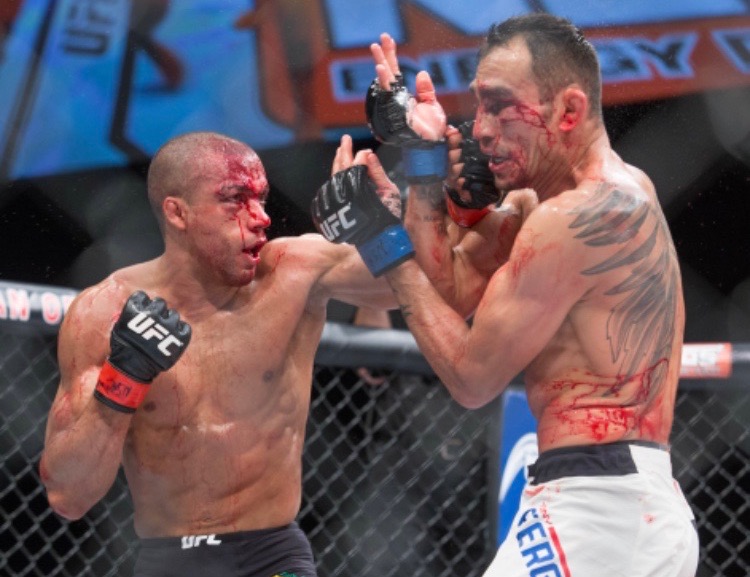
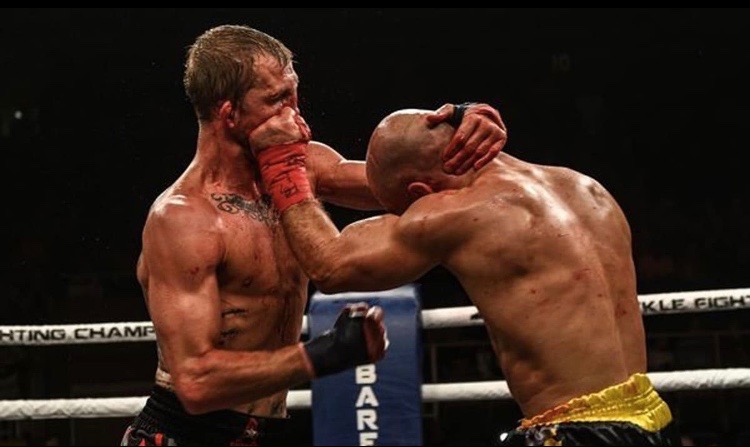
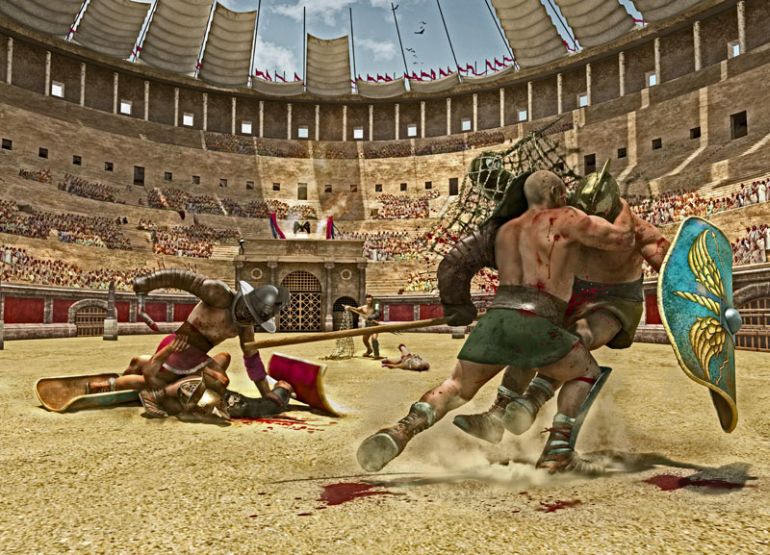





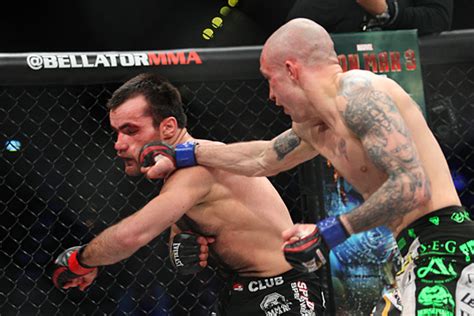



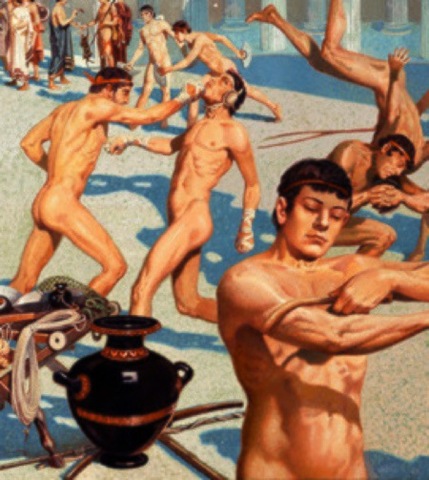

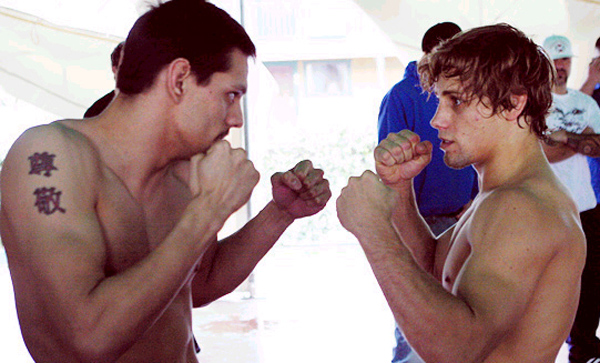
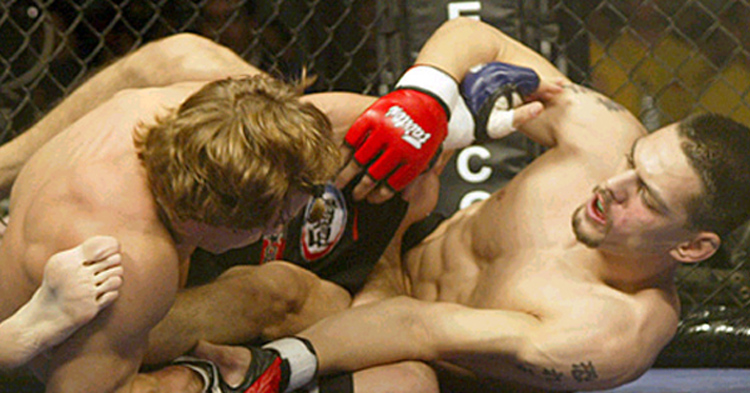

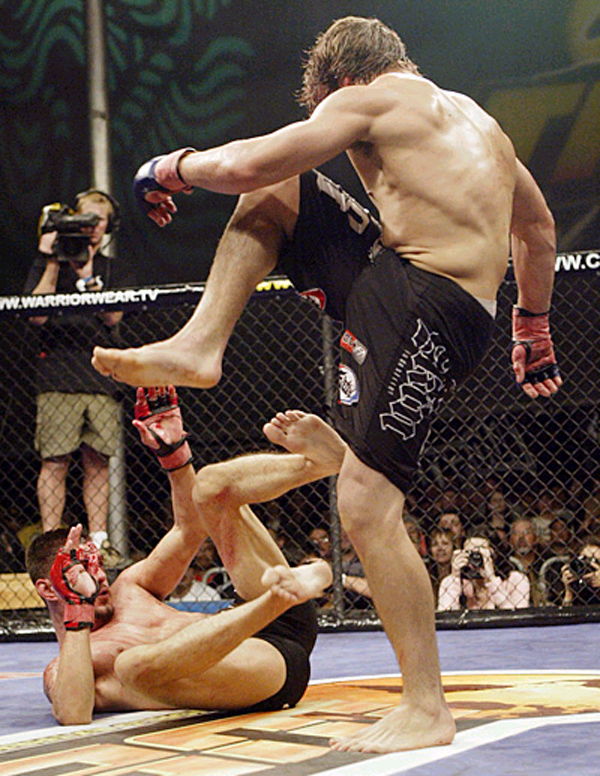
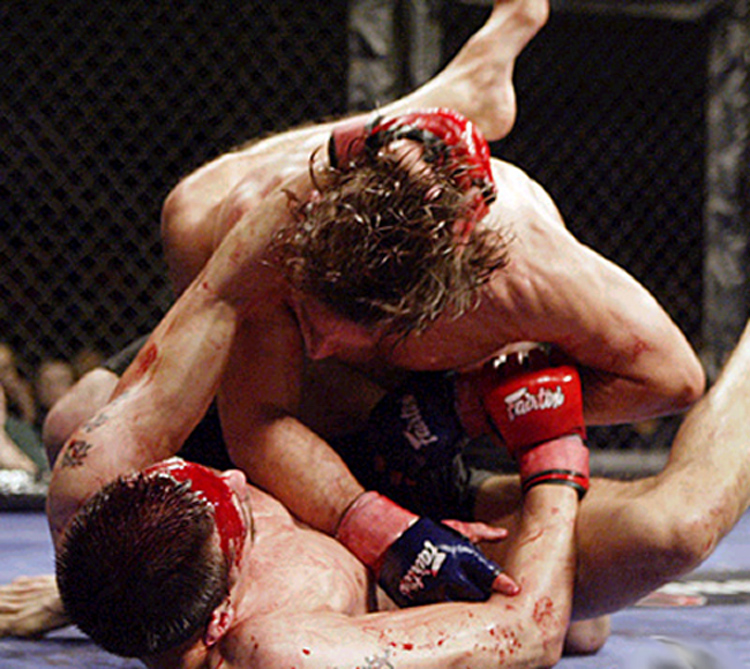
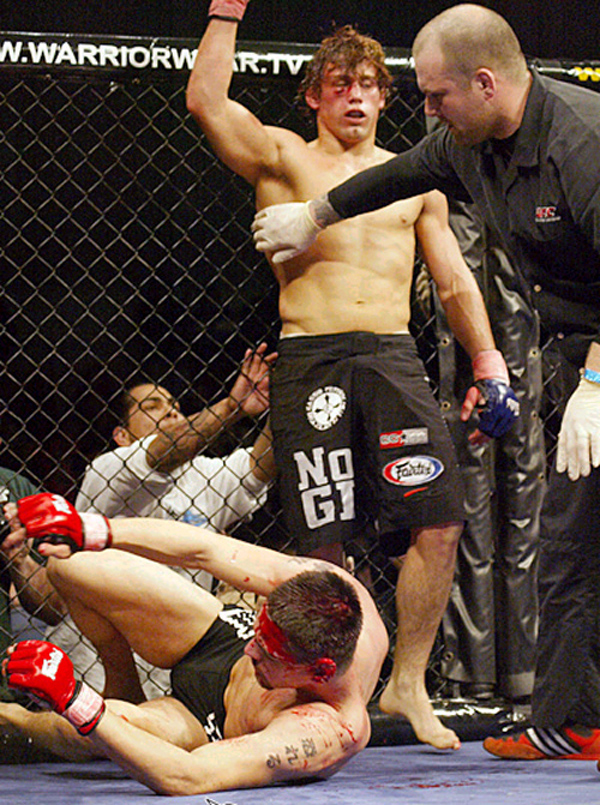



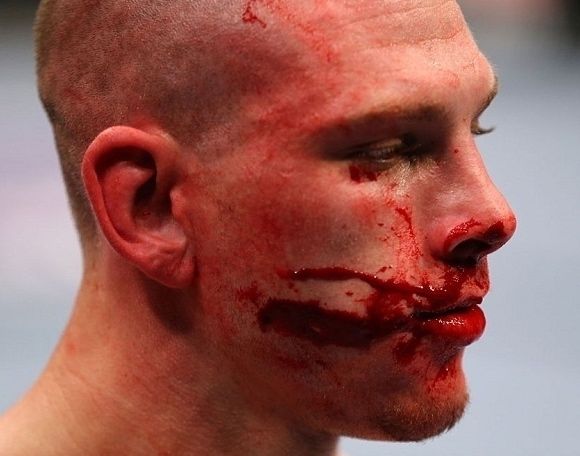

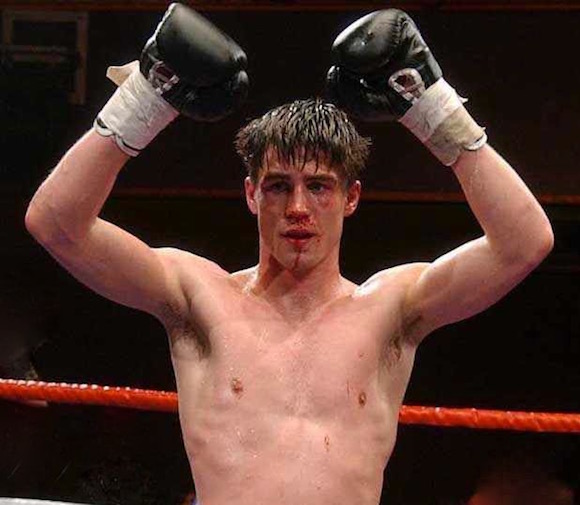


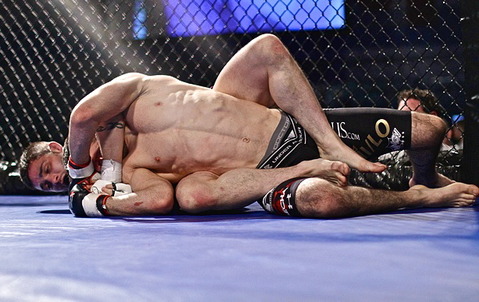

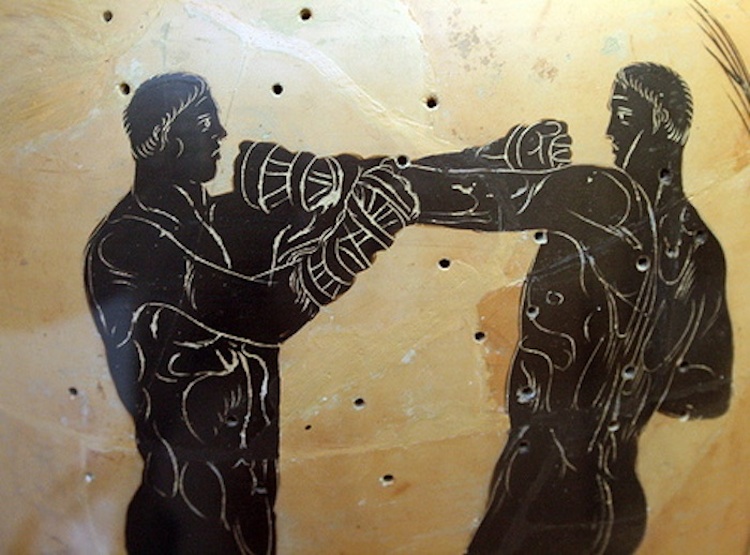
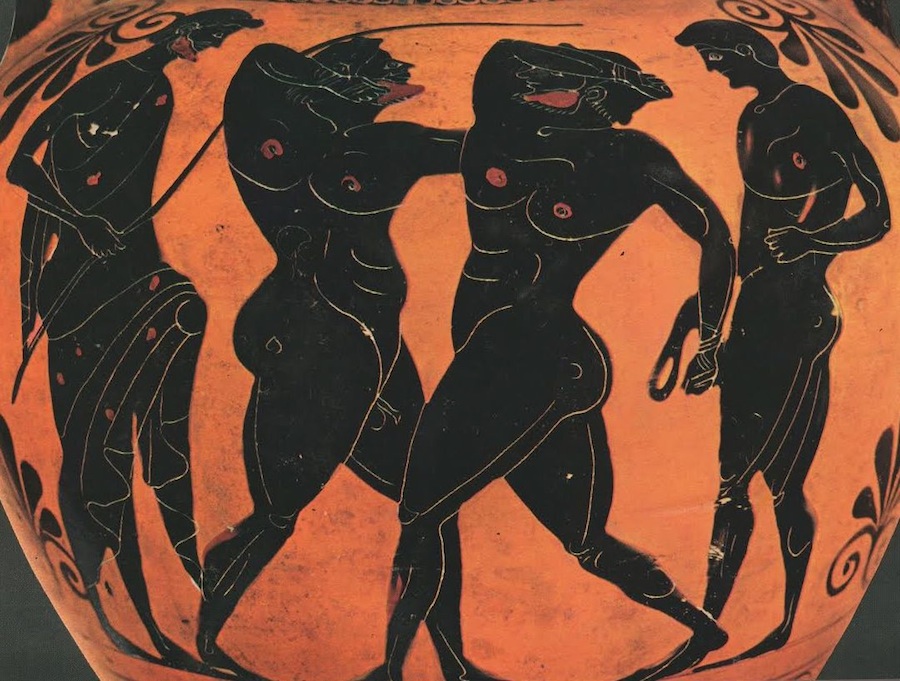
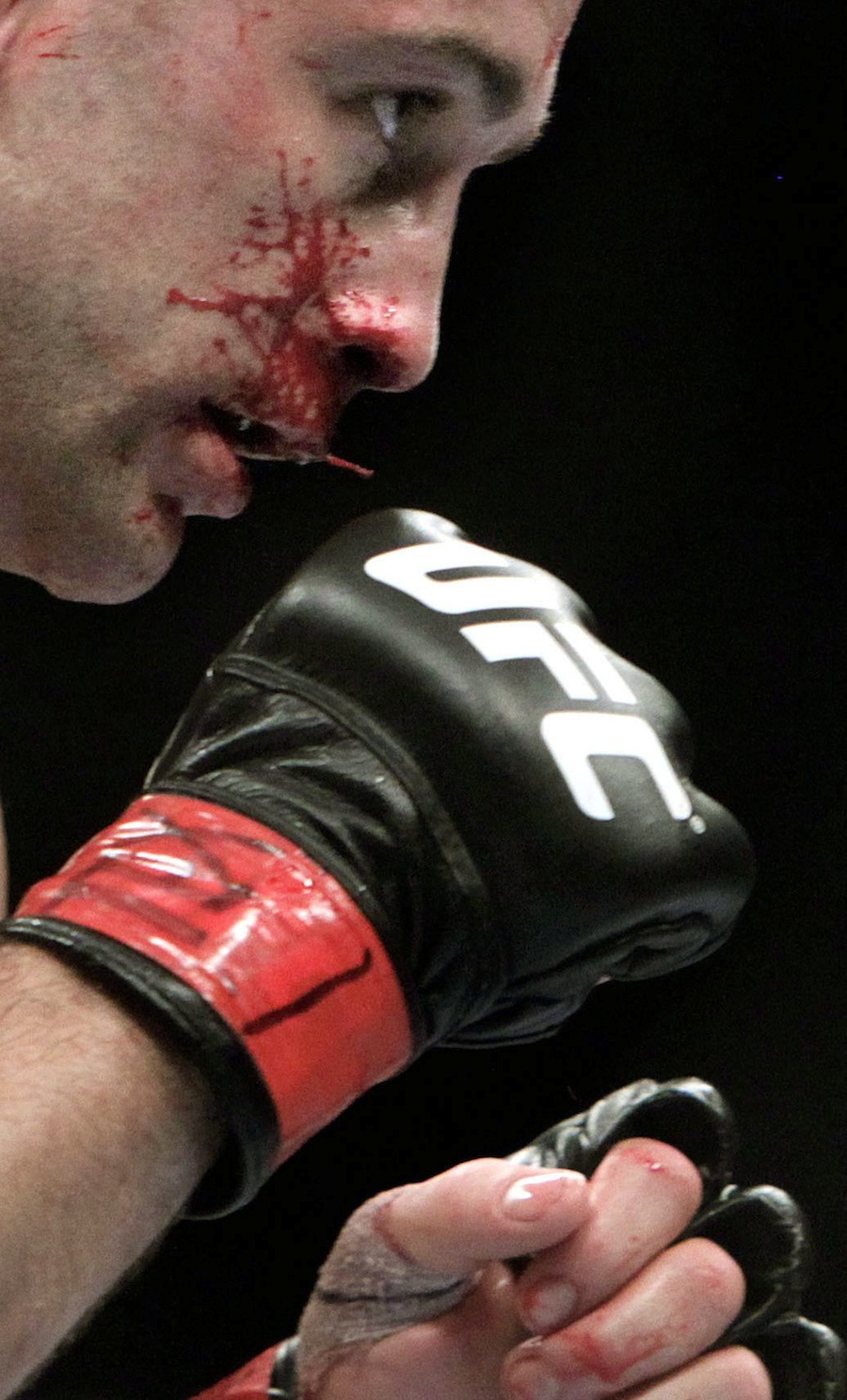








We become Manly by training ourselves to despise and endure terrors,
and we shall be best able to endure terrors when we have become Manly
Manliness
We become Manly by training ourselves to despise and endure terrors,
and we shall be best able to endure terrors when we have become Manly



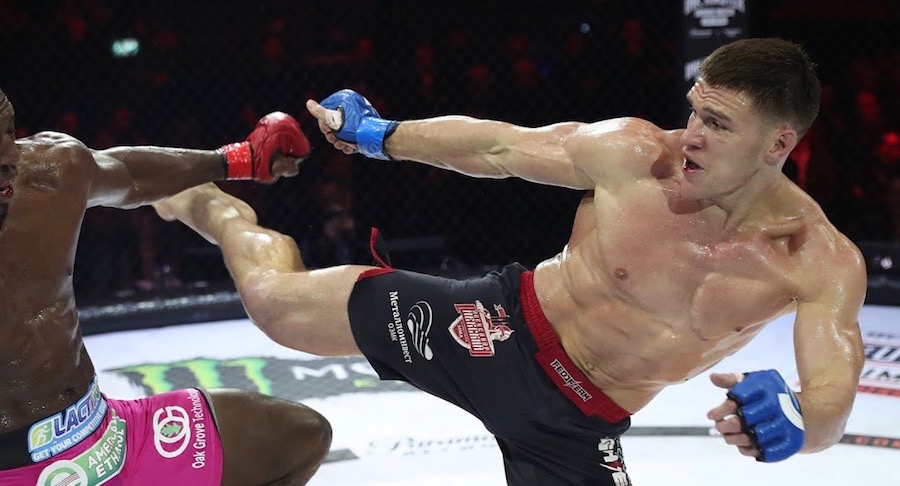
And so with Manliness :
We become Manly by training ourselves to despise and endure terrors,
and we shall be best able to endure terrors when we have become Manly.

We become Manly by training ourselves to stand up to blows,
and we shall be best able to stand up to blows when we have become Manly.






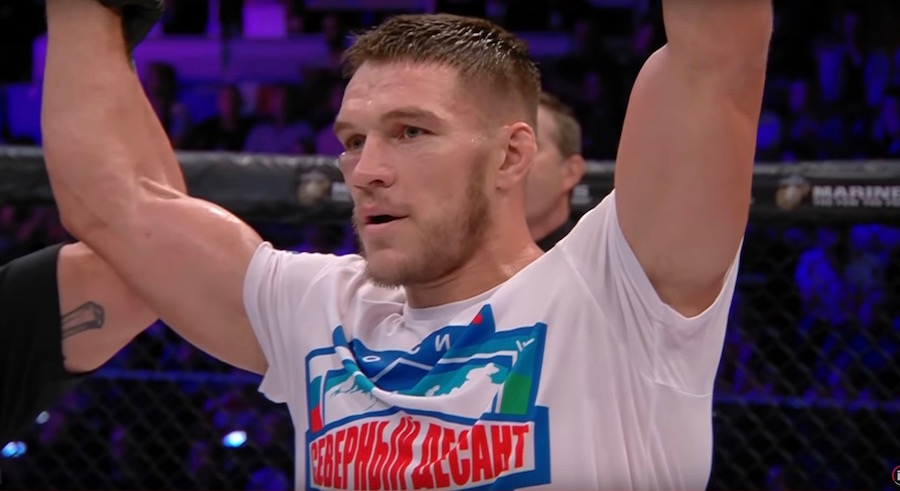







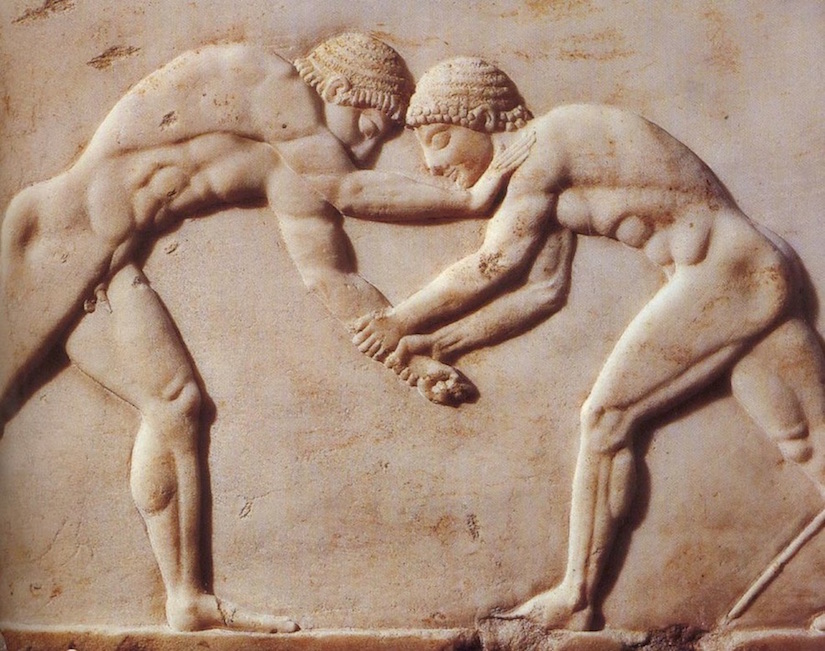




This bas-relief -- ca 525 BC -- of Combatant Youths locked in a Wrestling Tie-Up -- their eyes on each other's naked groins
-- epitomizes the mix of Muscular Athleticism and Martial Homoeroticism which informed the Manly, and Romantic, Love of ancient Greece.


Supreme



Blessedness is not a product of action,
but itself consists in Activity of a certain sort :
It is a Mode of Life.
~Rackham intro xvi




conforms
with Right
Principle
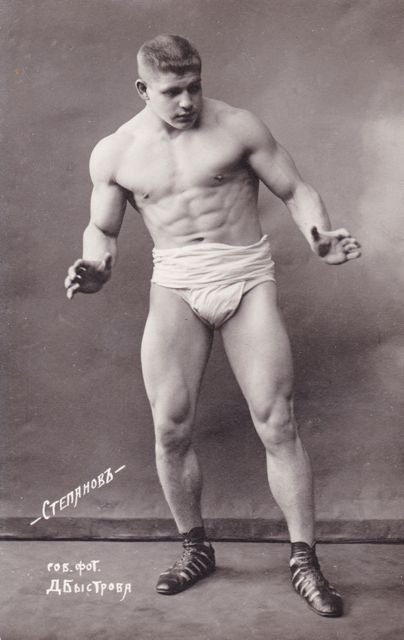

MANLY
pain the test
of Virtue



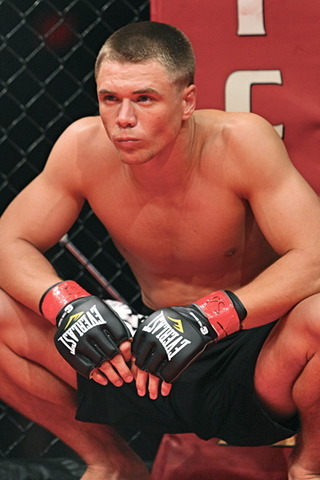

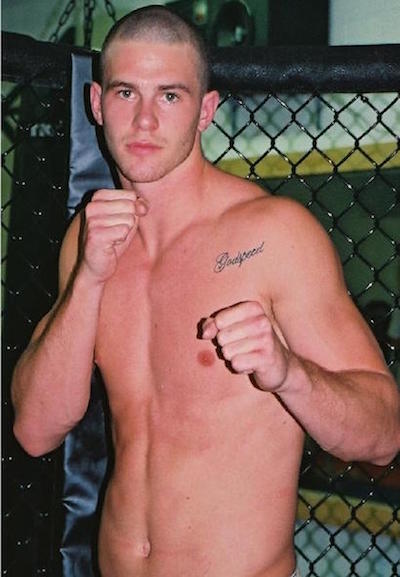
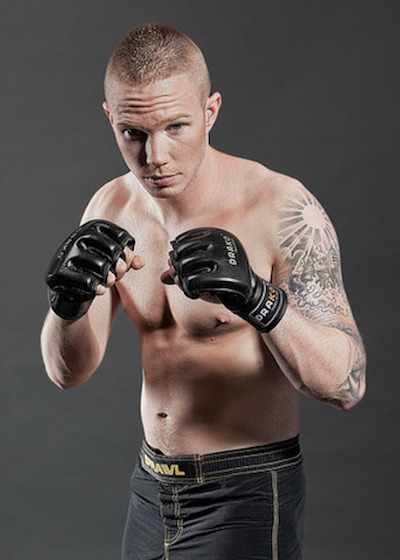
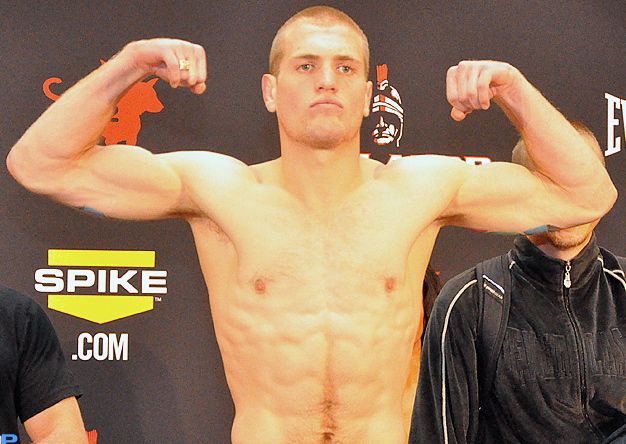


Far the best for Man is that which is desirable in and for itself, has its source in virtue or rather is based on virtue, is of itself praiseworthy, and in fact I should prefer to describe it as the only rather than the highest good.


This Man was a Fighter
His nose was broken, his ears battered, his knuckles bruised
This MAN was a FIGHTER














































































[3.6.8] The rash man is generally thought to be an impostor, who pretends to manliness which he does not possess ; at least, he wishes to appear to feel towards fearful things as the Manly Man actually does feel, and therefore he imitates him in the things in which he can.
[a]
Footnote:
Footnote from Prof Rackham :
Aristotle :
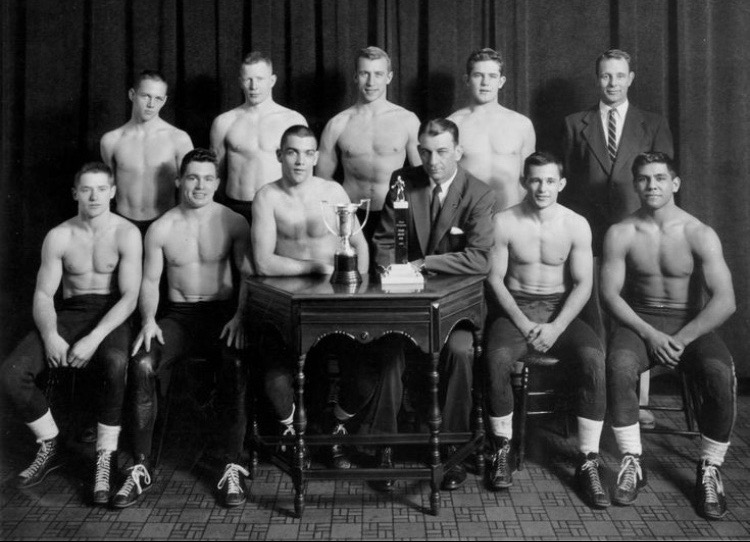
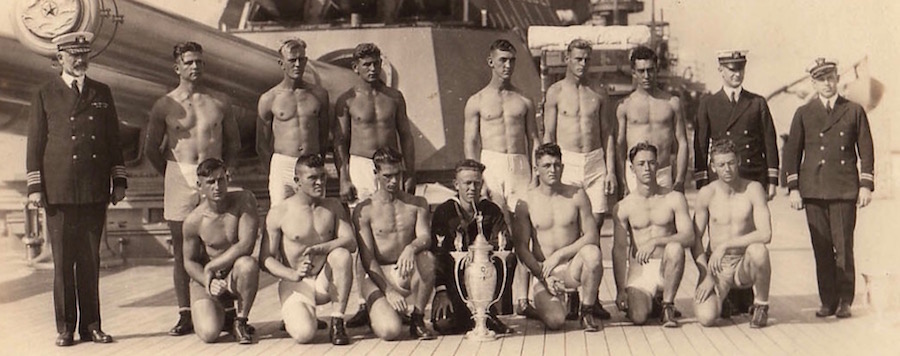
Wrestling Team
USS California
1921-22
Καλος
At Pearl Harbor, 102 Fighting Men
died aboard the USS California,
and 62 more were wounded

Wrestling Team
USS California
1921-22
Καλος
At Pearl Harbor, 102 Fighting Men
died aboard the USS California,
and 62 more were wounded









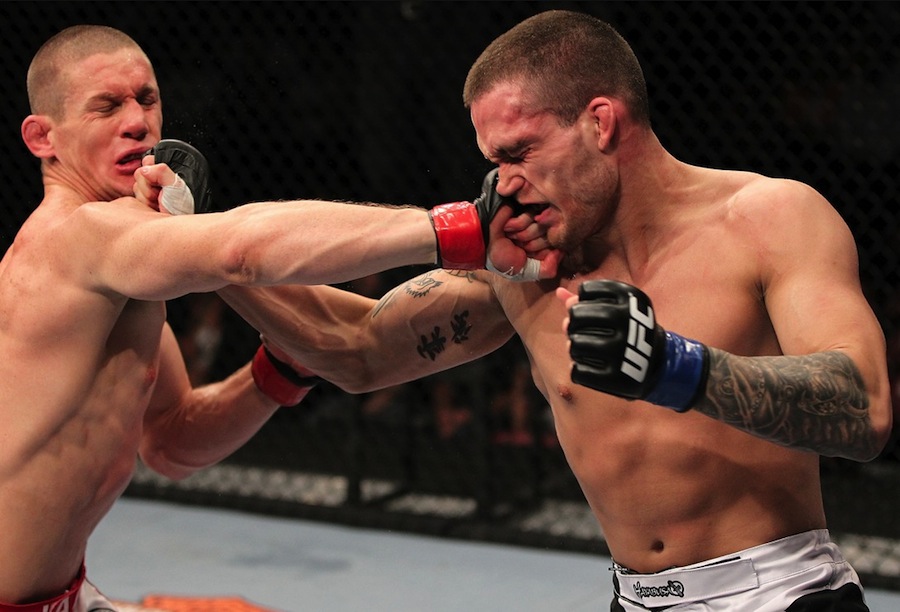



Bill Weintraub :
Moral Virtue then is a settled disposition of the mind determining the choice of actions and emotions, consisting essentially in the observance of the mean relative to us, this being determined by principle, or whatever we like to call that by which the prudent man would determine it.









Aristotle's review of the virtues and graces of character that the Greeks admired stands in such striking contrast with Christian Ethics that this section of the work is a document of primary importance for the student of the Pagan world.
















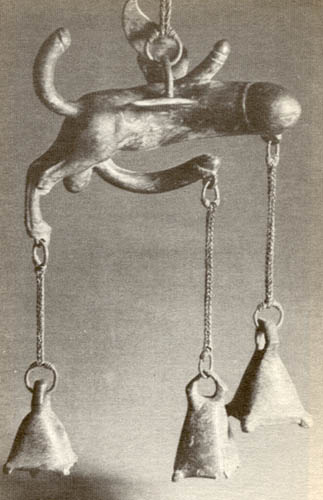









THE GIFTS OF FORTUNE


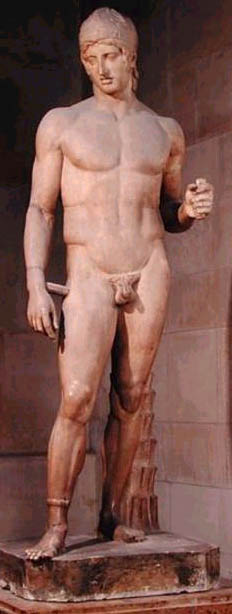
Bill Weintraub



![]()
Ares Beatified
God of Fight
God of Manhood
God of Fighting Manhood
Mighty and Blessed
Virtus comes before everything, that's for sure!
Freedom, safety, life, property and parents, fatherland and children, it guards and keeps safe.
Virtus has everything in it ; He who has Virtus has everything good!
Compared to the display of Virtus, "everything is subordinate and hides in dark night."
manliness, manhood, i. e. the sum of all the corporeal or mental excellences of man, strength, vigor; bravery, courage; aptness, capacity; worth, excellence, virtue, etc.

IS
THE ARDENT WILLINGNESS
AND
REQUISITE ABILITY
TO FIGHT
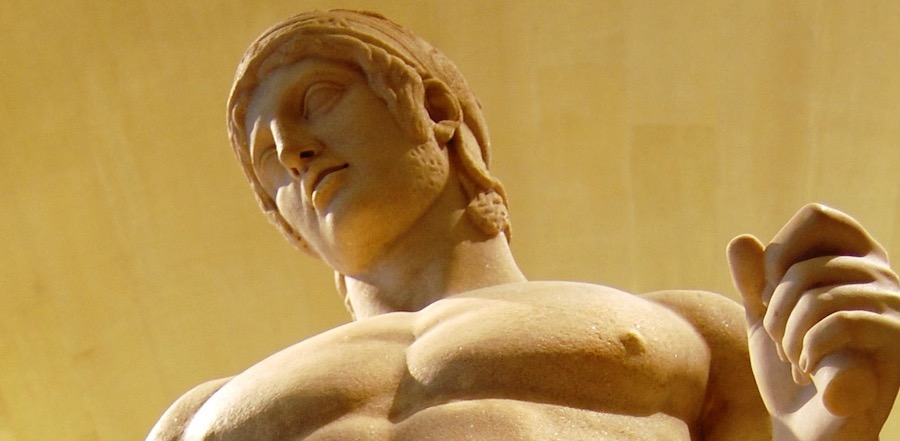
Lord Ares displays thick, heavy, hair, probably blond, flowing out from under his helmet, with an incipient beard forming on his cheek
Compare Lord Ares' pubic hair, which is fully grown in, with the incipient hair of his beard, on his cheek
Another view of the thick, heavy hair flowing from under Ares' helmet, and the incipient beard on his cheek
The exquisite sculpting of the head
presents another view of the beard coming in on both sides
of the God's handsome, indeed beatific, face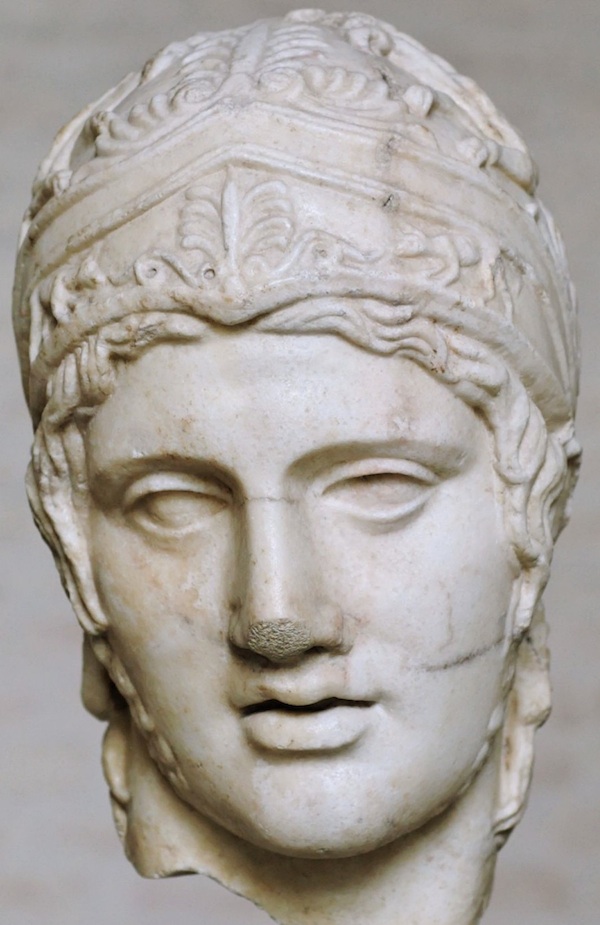
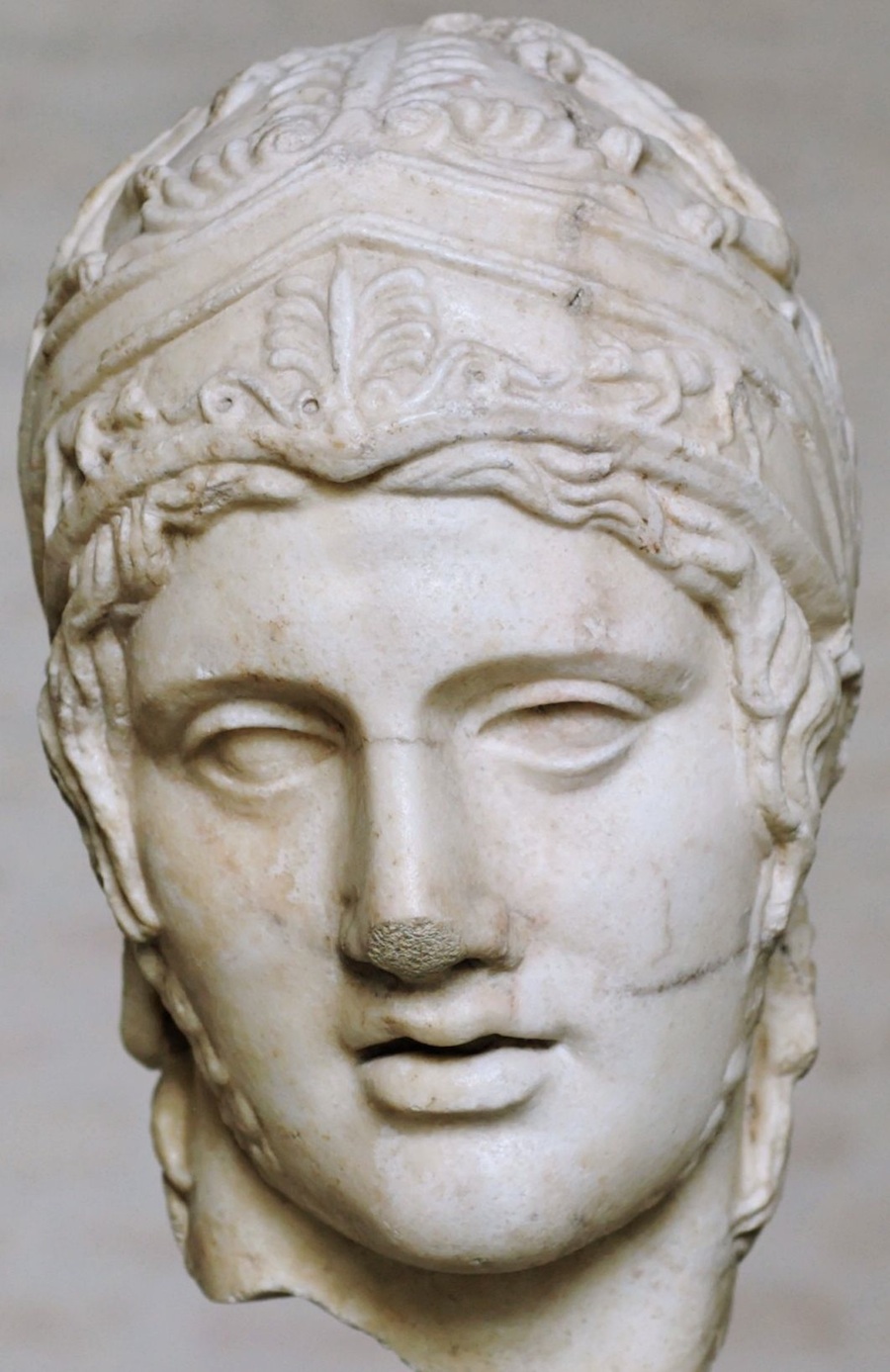

This statue of a young warrior was also foumd buried.
Because he's not wearing a helmet, we can see his luxuriant, thick,
and full head hair, as well as a beard which is growing in on his cheek.
We thus know him to be a youth in late adolescence.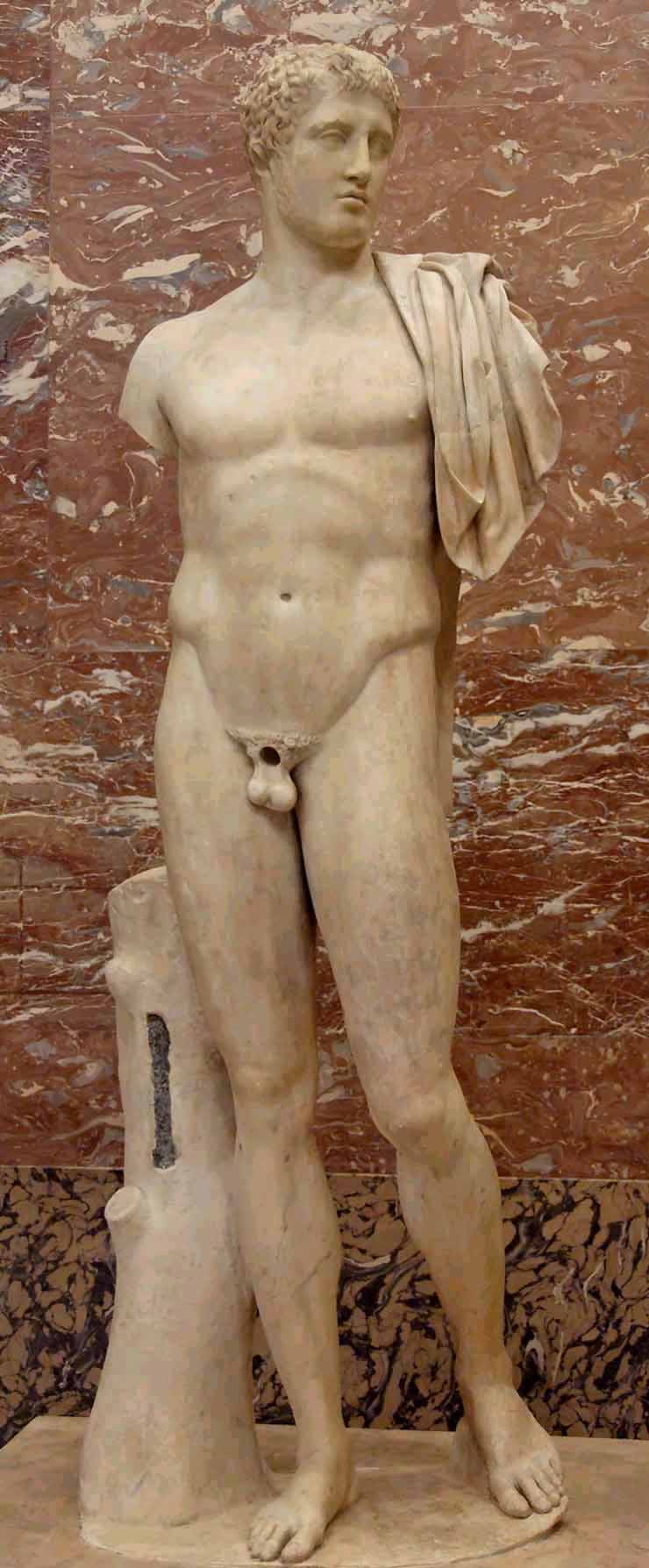
Here's another statue of a hero, perhaps Diomedes, with his beard growing in on his cheek.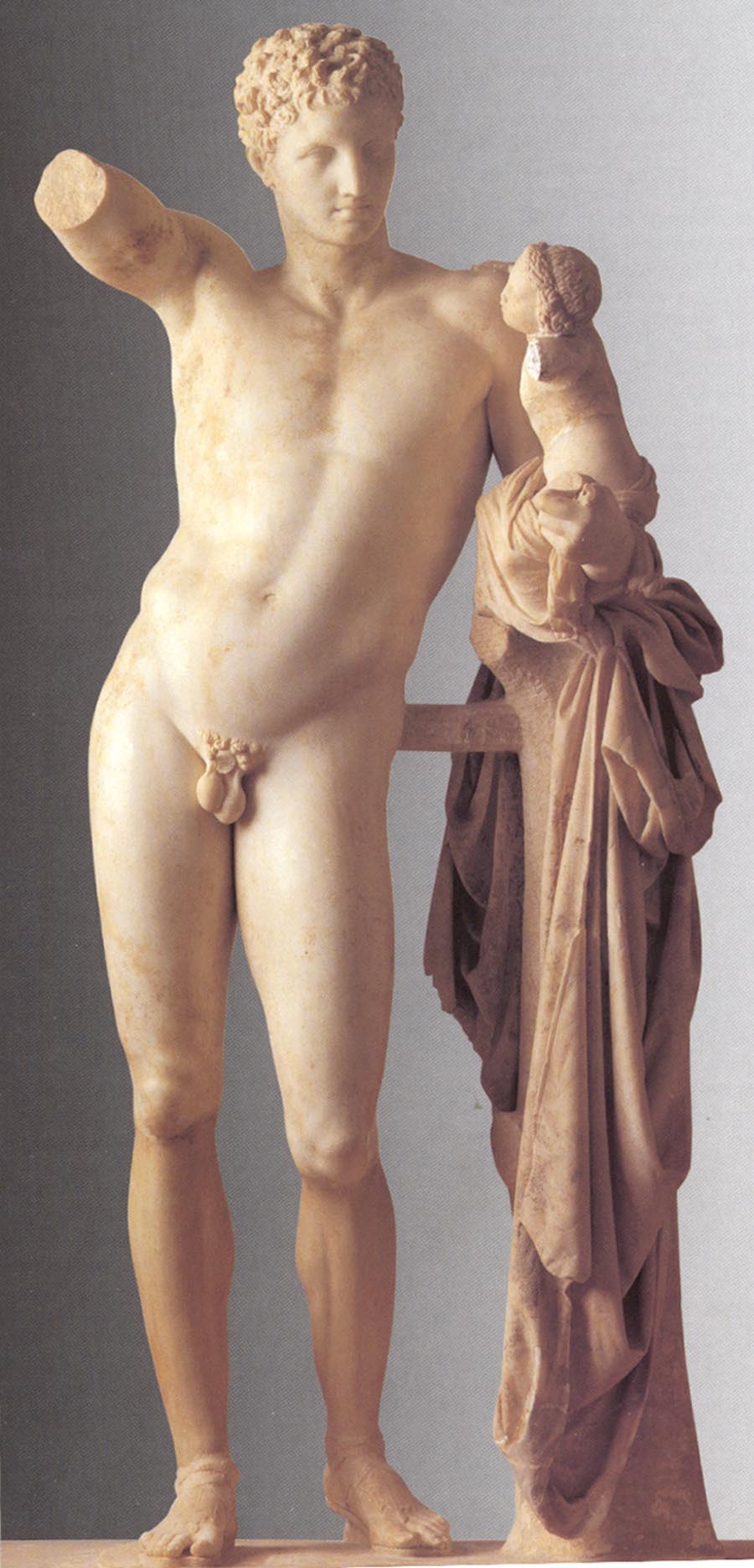
The famous Hermes of Praxiteles.
No facial hair, so that we know that
Hermes is in adolescence, but not late adolescence.
And this is the Doryphoros, or Spear Carrier, also a famous statue,
and this too a Roman copy in marble of a bronze Greek original.
Again, there's no facial hair, so we know the Doryphoros is still a youth ;
but what's striking is the thick and abundant hair on his head,
obviously a marker for vigorous youth.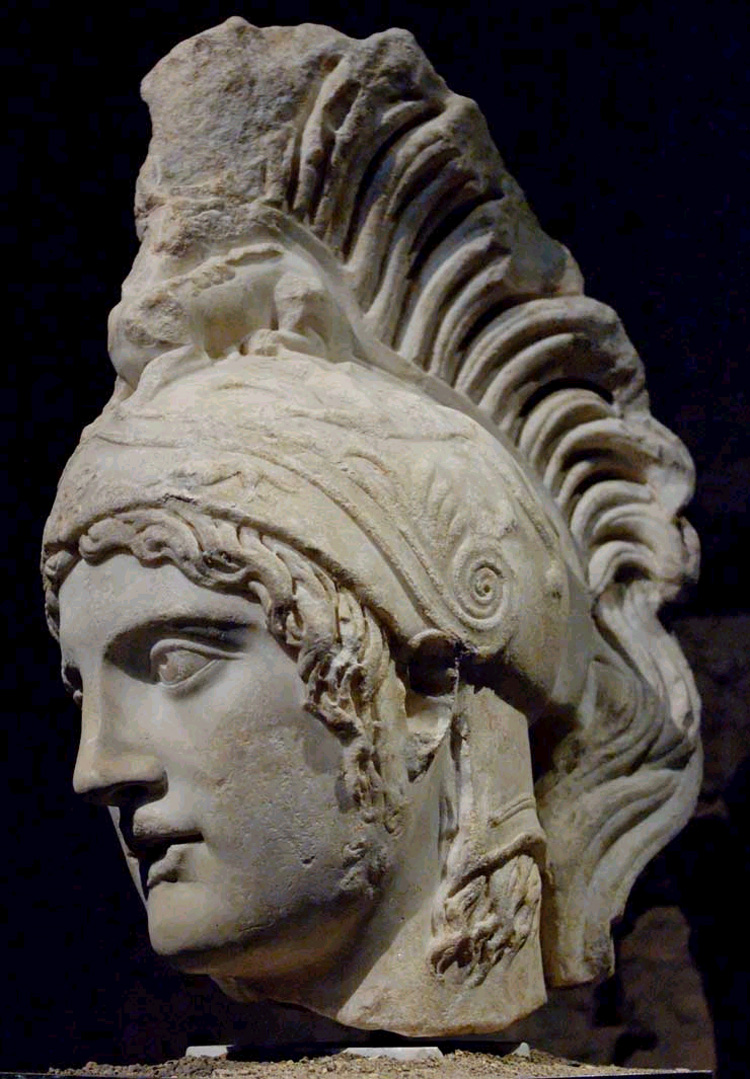
A head from a copy of the Borghesi Ares ; the magnificent crest on the helmet has survived.
Again, we can see the thick hair of the head, and the sparse beard coming in on the jaw.
the likeness of a young man [koros], a noble,
with beard new grown [hypenetes], which is the most graceful [charieis]
time of young manhood [hebe = Lat. pubertas].
Where have you been now, Socrates? Ah, but of course you have been in chase of Alcibiades and his youthful beauty! Well, only the other day, as I looked at him, I thought him still handsome as a man -- for a man he is, Socrates, between you and me, and with quite a growth of beard.
And what of that? Do you mean to say you do not approve of Homer, [309b] who said that youth [hebe] has highest grace in him whose beard is appearing [hypenetes], as now in the case of Alcibiades?
Then how is the affair at present? Have you been with him just now? And how is the young man [neanias] treating you?





















The Overwhelming Eagerness and Ardor to Fight of Young Men,
Youths in the Full and Fresh Bloom of Their Young Manhood,
Their Fighting Manhood
The Primal Desire for ManFight of Young Fighting Men
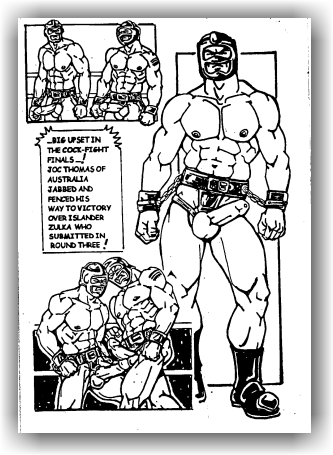


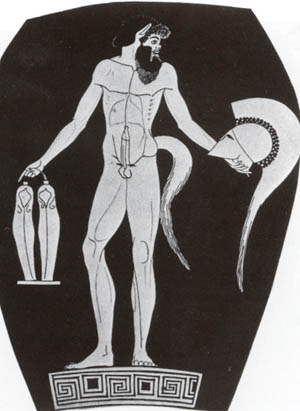


















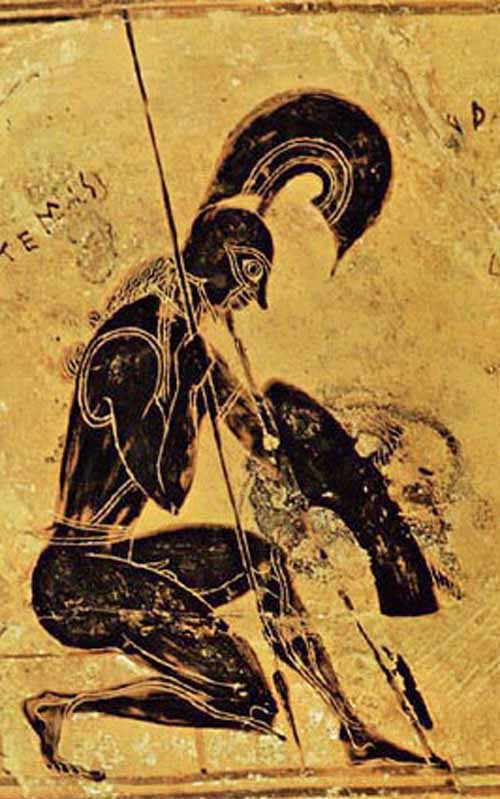
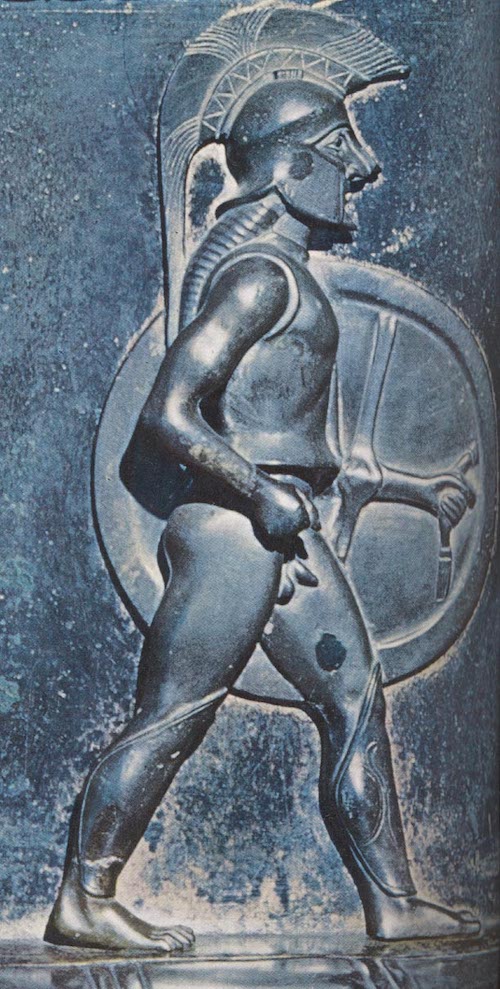
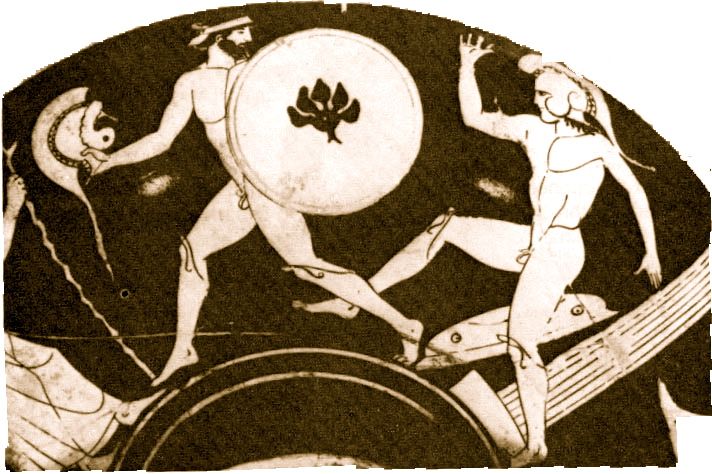
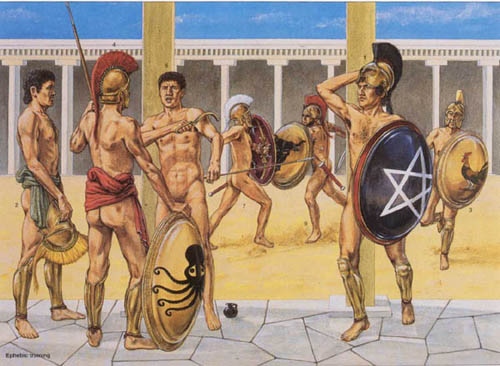
Ephebes train genitally naked at a Palaistra.
Just as Ares is depicted in the Borghesi Ares,
they wear a helmet and hold a shield,
but both chest and genitals are nude.

Ephebes train genitally naked at a Palaistra.
Just as Ares is depicted in the Borghesi Ares,
they wear a helmet and hold a shield,
but both chest and genitals are nude.
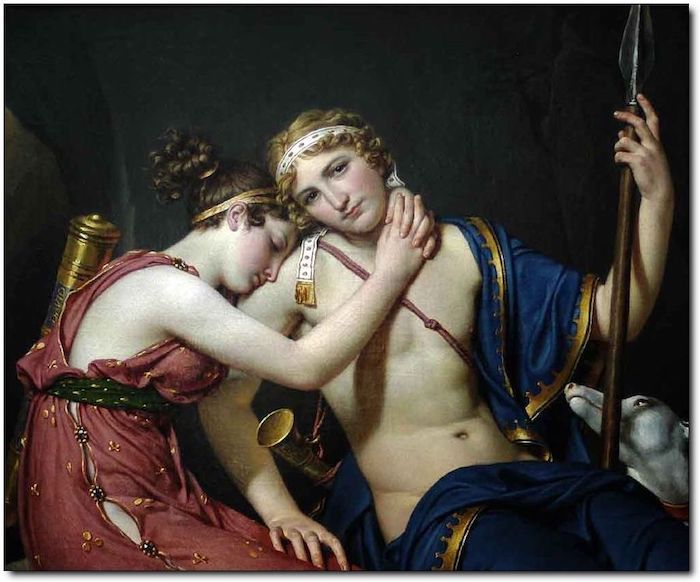
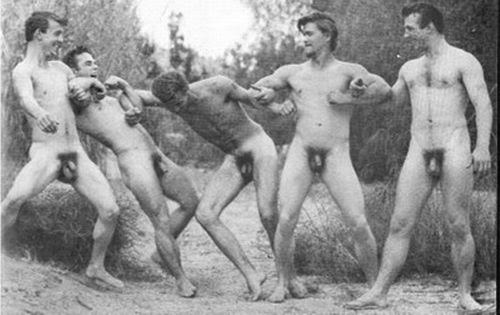
Pubertas
the age of manhood or maturity, puberty ;
the signs of puberty, the beard, pubic hair, body hair, etc ;
Manhood, virility : Tacitus -- inexhausta pubertas -- unimpaired virility
In Book VII of his Thebais, ll 621-22, the Roman poet Statius uses pubes in the sense of Youth coming to War, Youth thrown together in Fight : "so the Young Flower [pubes] of Argos and of Thebes were in sudden swarms locked . . . so great the War that from small bloodshed grows" (trans. by Melville)
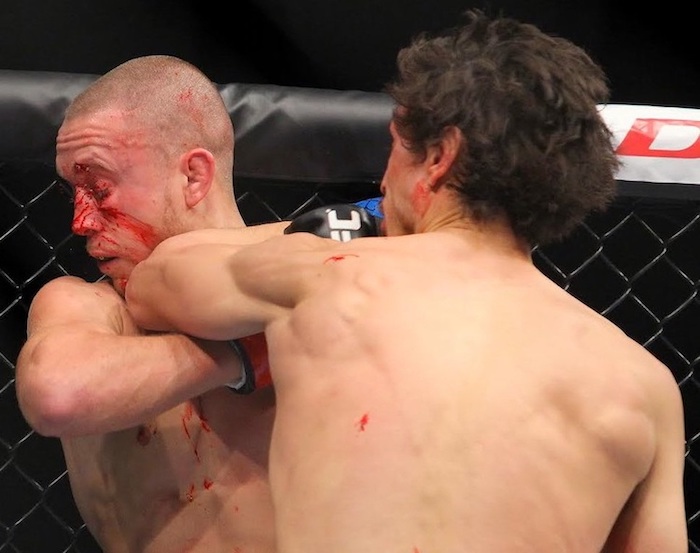












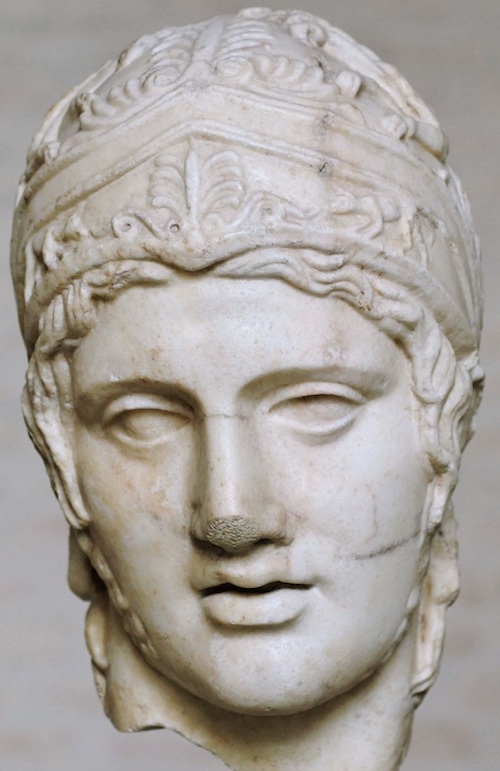



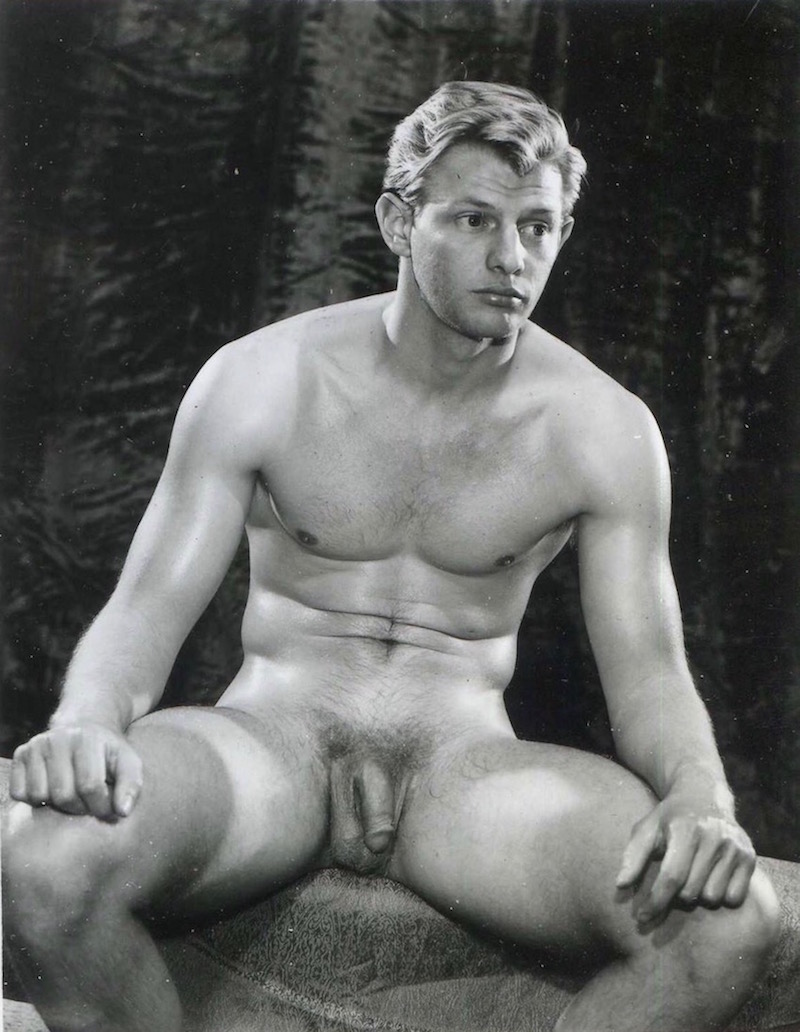
Pubes
and the
Young Bulls
This Man is a Fighter
His nose is broken, his ears battered, his knuckles scored
This MAN is a FIGHTER

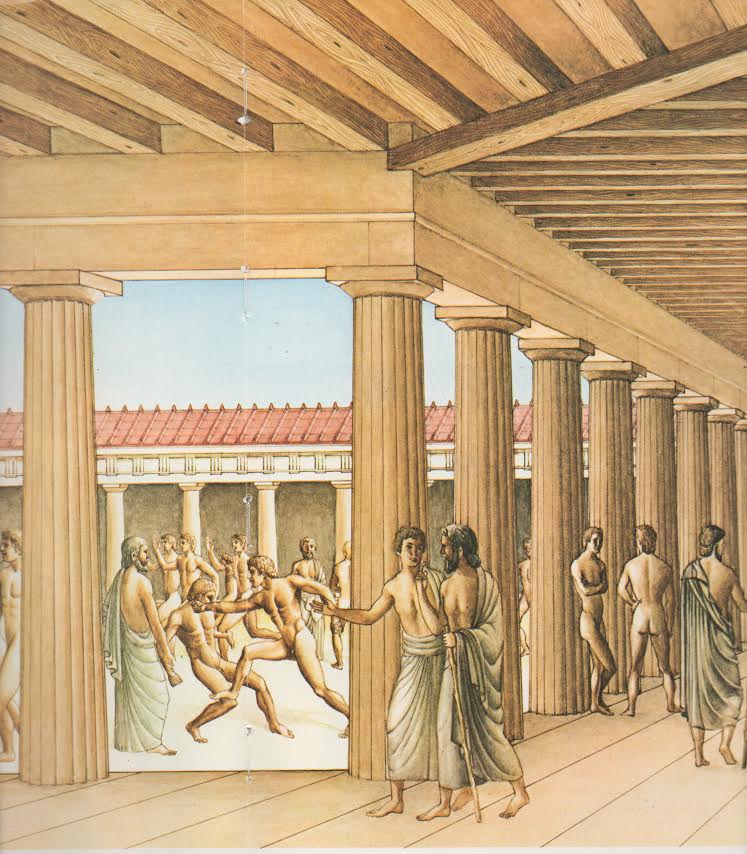


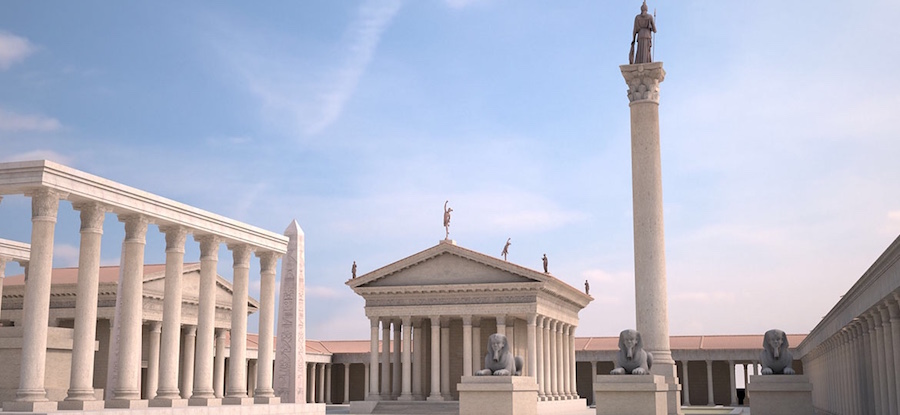


Hermes
This statue was found at Olympia
Thus making forever plain
the connection between
Combatant and God



This bas-relief -- ca 525 BC -- of Combatant Youths locked in a Wrestling Tie-Up -- their eyes on each other's naked groins
-- epitomizes the mix of Muscular Athleticism and Martial Homoeroticism which informed the Manly, and Romantic, Love of ancient Greece.




A GOD IN HUMAN SHAPE
the ideal unity of physical and spiritual
the combatant ideal of manly prowess
-- this Roman copy of a Greek original by Alkamenes --
presents to us the ideal unity of physical and spiritual which
indicates how we must understand the combatant ideal of manly prowess

The Roman army was a highly sacralized community. The standards [signum], already touched upon as the focus of unit pride, were sacred. There was a cult of discipline made. Military units, camps, clubs, buildings, even the oath [sacramentum] itself had a genius which was worshipped by soldiers. [Genius Sacramenti = Guardian Deity of the Oath]
Other numina, of more constant presence, acquired more substantial character, as Jupiter, lord of the brilliant heavens and of storm, later identified with Zeus ; Mars, the War God, equated with Ares ; Neptune, the God of Waters, identified with Poseidon ; Faunus, the patron of animal life ; Silvanus, the God of the Woods.

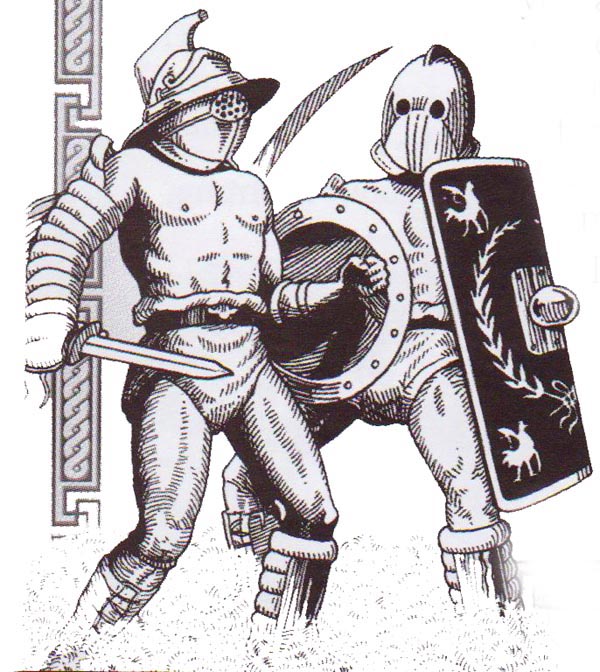

When you find yourself within a grove of exceptionally tall, old trees, whose interlocking boughs mysteriously shut out the view of the sky, the great height of the forest and the secrecy of the place together with a sense of awe before the dense impenetrable shades, will awaken in you the belief in a God. And when a grotto has been hewn into the hollowed rock of a mountain, not by human hands but by the powers of nature, and to great depth, it pervades your soul with an awesome sense of religion. We honor the sources of great rivers. Altars are raised where the sudden freshet of a stream breaks from below the ground. Hot springs of steaming water inspire veneration. And many a pond has been sanctified because of its hidden situation or immeasurable depth.
Other numina, of more constant presence, acquired more substantial character, as Jupiter, lord of the brilliant heavens and of storm, later identified with Zeus ; Mars, the War God, equated with Ares ; Neptune, the God of Waters, identified with Poseidon ; Faunus, the patron of animal life ; Silvanus, the God of the Woods.

Other numina, of more constant presence, acquired more substantial character, as Jupiter, lord of the brilliant heavens and of storm, later identified with Zeus ; Mars, the War God, equated with Ares ; Neptune, the God of Waters, identified with Poseidon ; Faunus, the patron of animal life ; Silvanus, the God of the Woods.
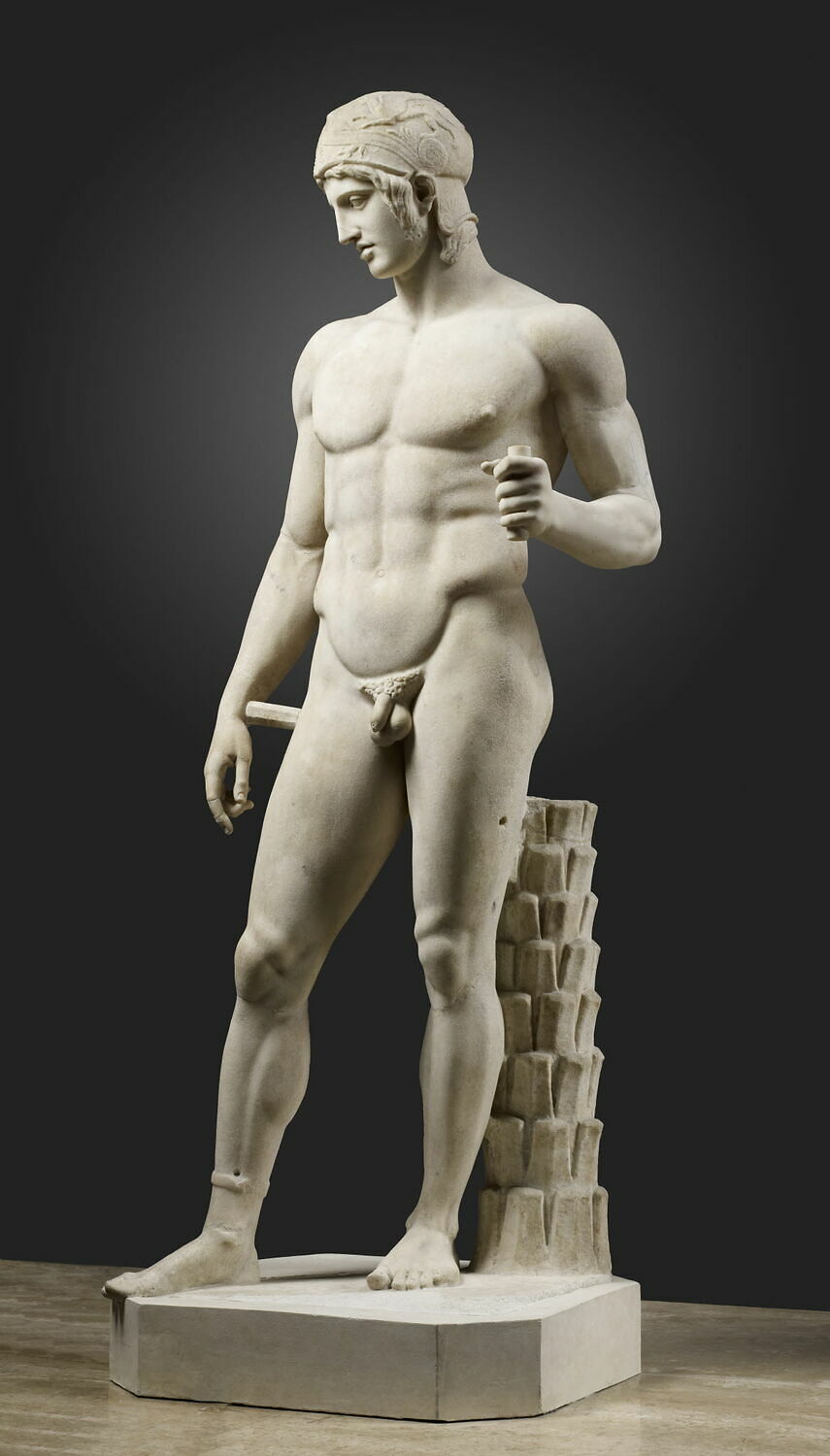
Ares
Physically, the God is Handsome and Warlike, Fair of Manly Form ;
Spiritually, the God is Blessed, He's Sanctified.
Christian sculptors cannot.

Ares Beatified









THE GIFTS OF FORTUNE



Bill Weintraub



![]()
Ares Beatified
God of Fight
God of Manhood
God of Fighting Manhood
Mighty and Blessed
THE SUBJECTIVE WORK OF ART
Manhood Hypostatized
A God in Human Shape

where the formula of the mean is felt to be inadequate, it is supplemented by the proviso that virtuous actions, to spring from a true habit of virtue, must be done του καλου ενεκα -- for the sake of the moral beauty and rightness of the act itself
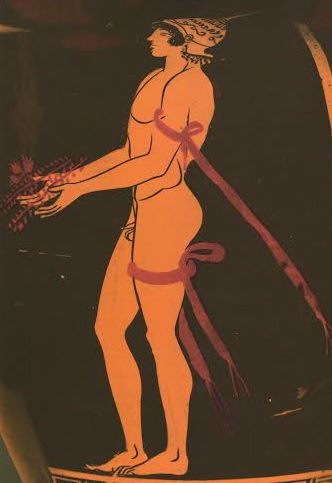
A Nude Boy Victor wears woolen bands and holds
a wreath. The bands or fillets "signify the
consecration of the victor to the God."
The Victor is a living sacrifice
to his God.
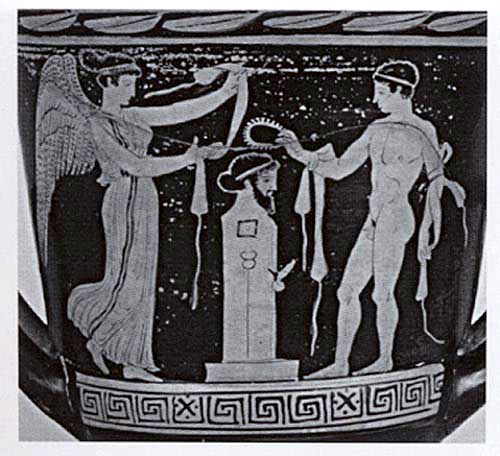





This bas-relief -- ca 525 BC -- of Combatant Youths locked in a Wrestling Tie-Up -- their eyes on each other's naked groins -- epitomizes the mix of Muscular Athleticism and Martial Homoeroticism which informed the Manly, and Romantic, Love of ancient Greece.
early Greek society quickly acquired distinctive features and institutions ... Among these were athletics and religiously based athletic events like the Oylmpian Games ; the palaestra, which provided training for both athletics and its elder brother, warfare ; the symposium [all-male drinking party], at which aristocratic values were inculcated ; and homosexuality, which was related to all the other phenomena just mentioned.
When there is a coincidence of a beautiful disposition in the soul and corresponding and harmonious beauties of the same type in the bodily form -- is not this the fairest spectacle for one who is capable of its contemplation?

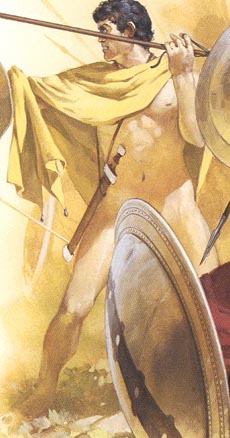
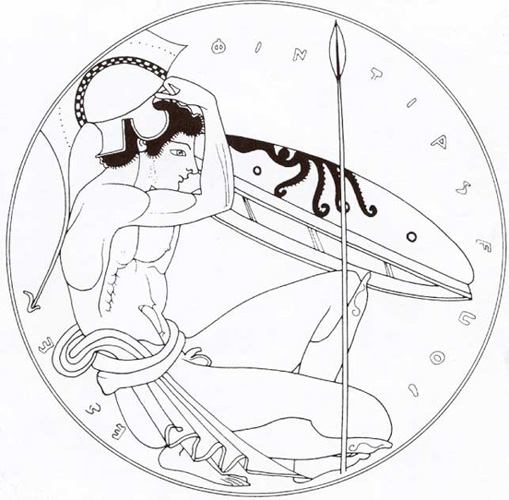
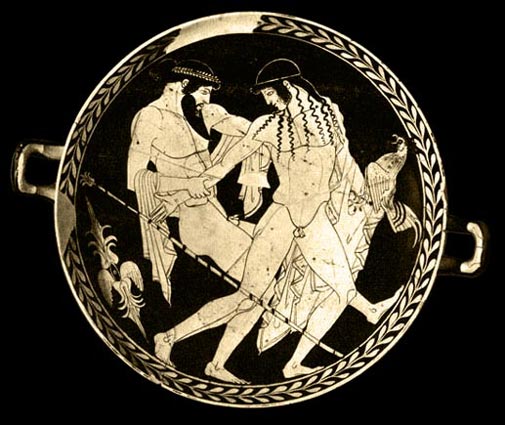

The ephebe standing second from the left
holding an octopus shield
is modeled upon the
ephebe in this kylix :
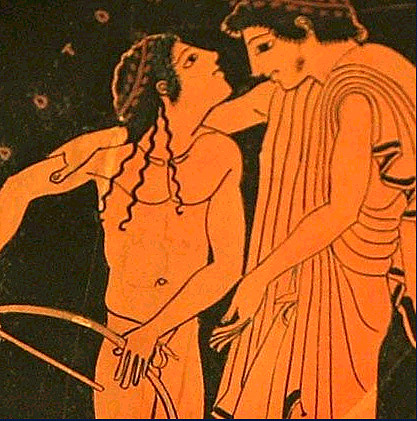

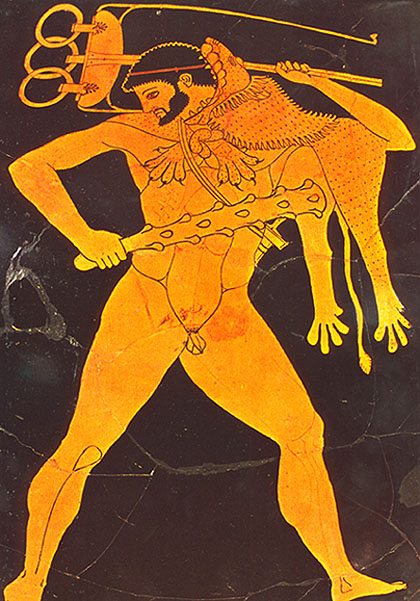
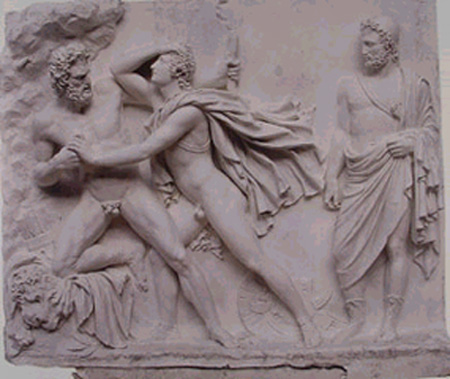
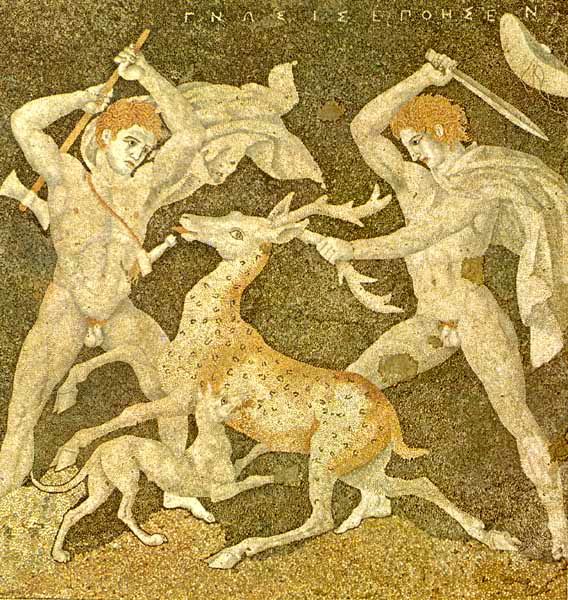

Kouros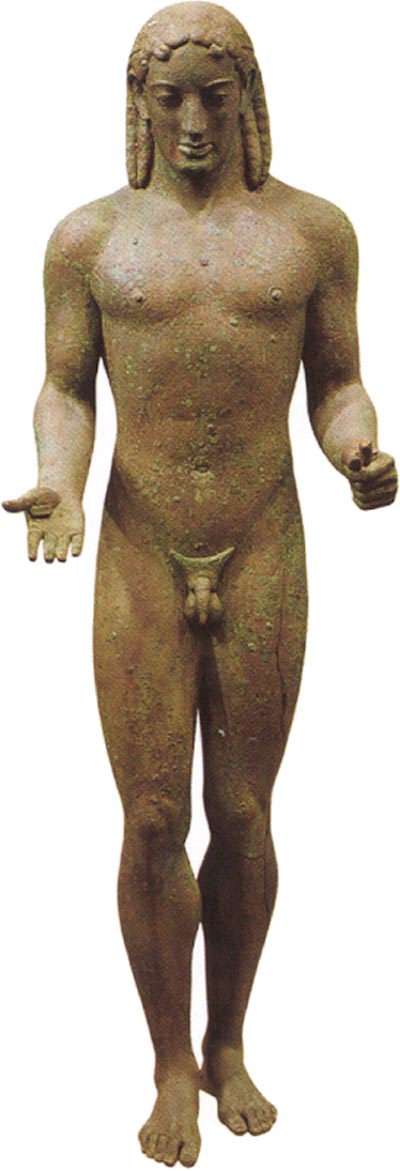
Apollo
Agias of Pharsalos, Panktratiast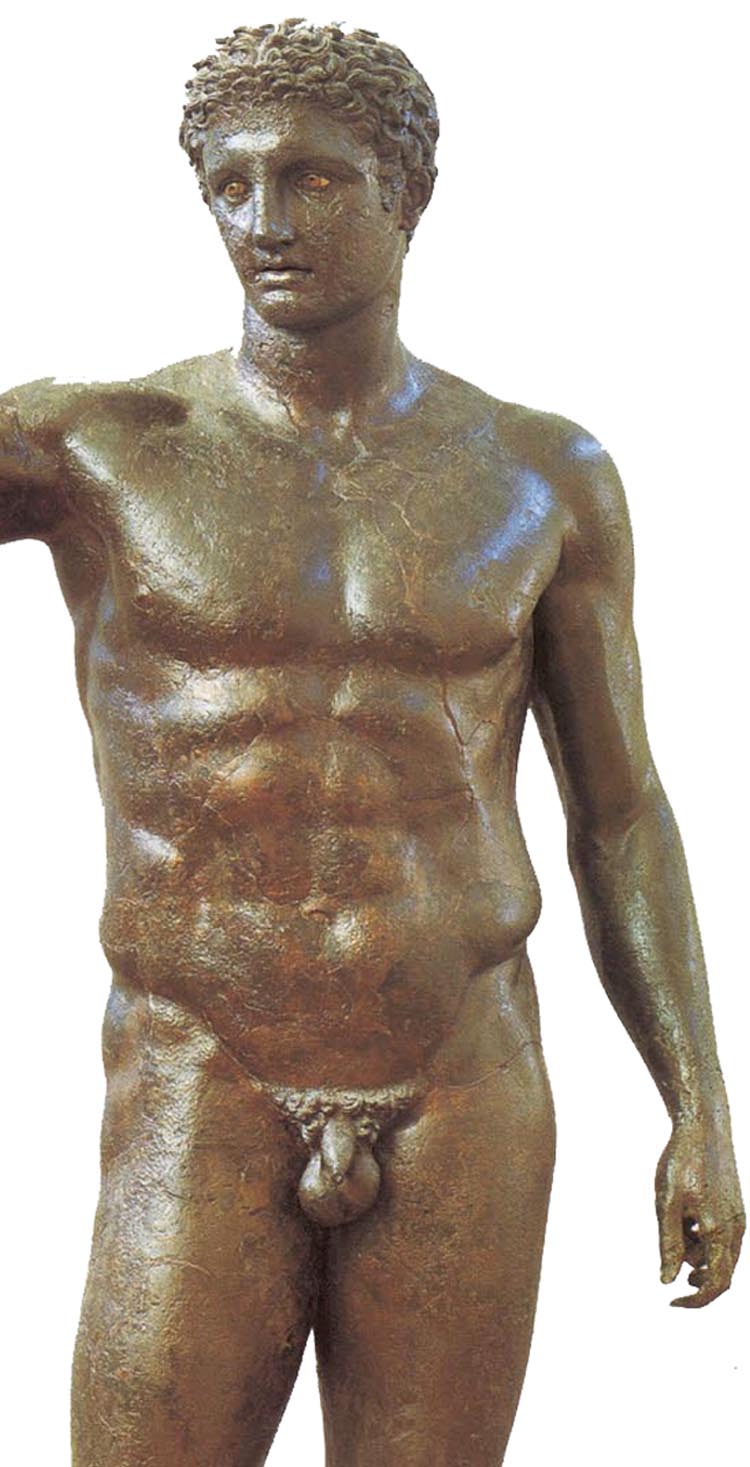
Hero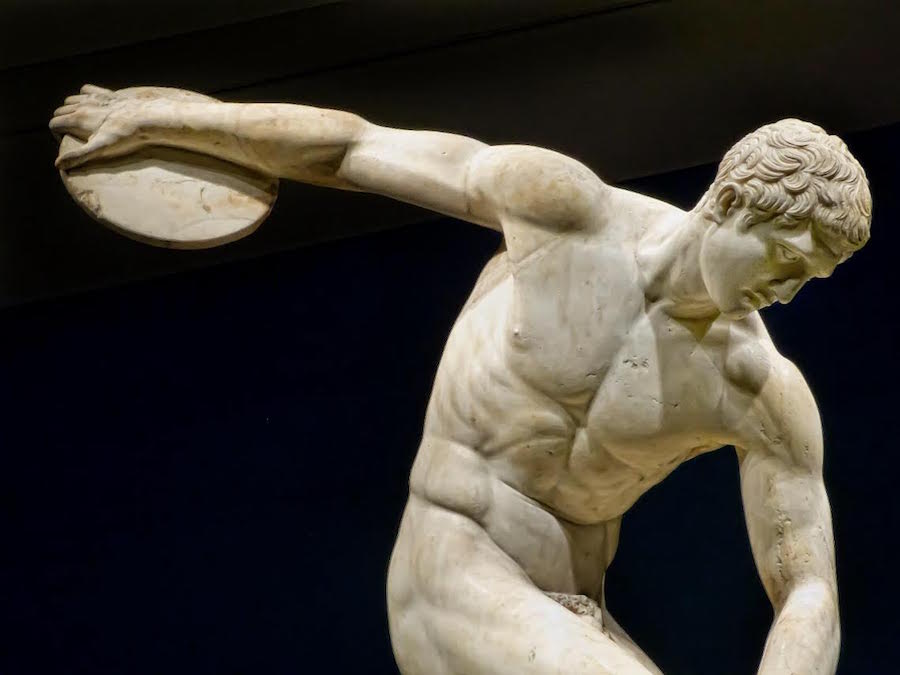
Discus Thrower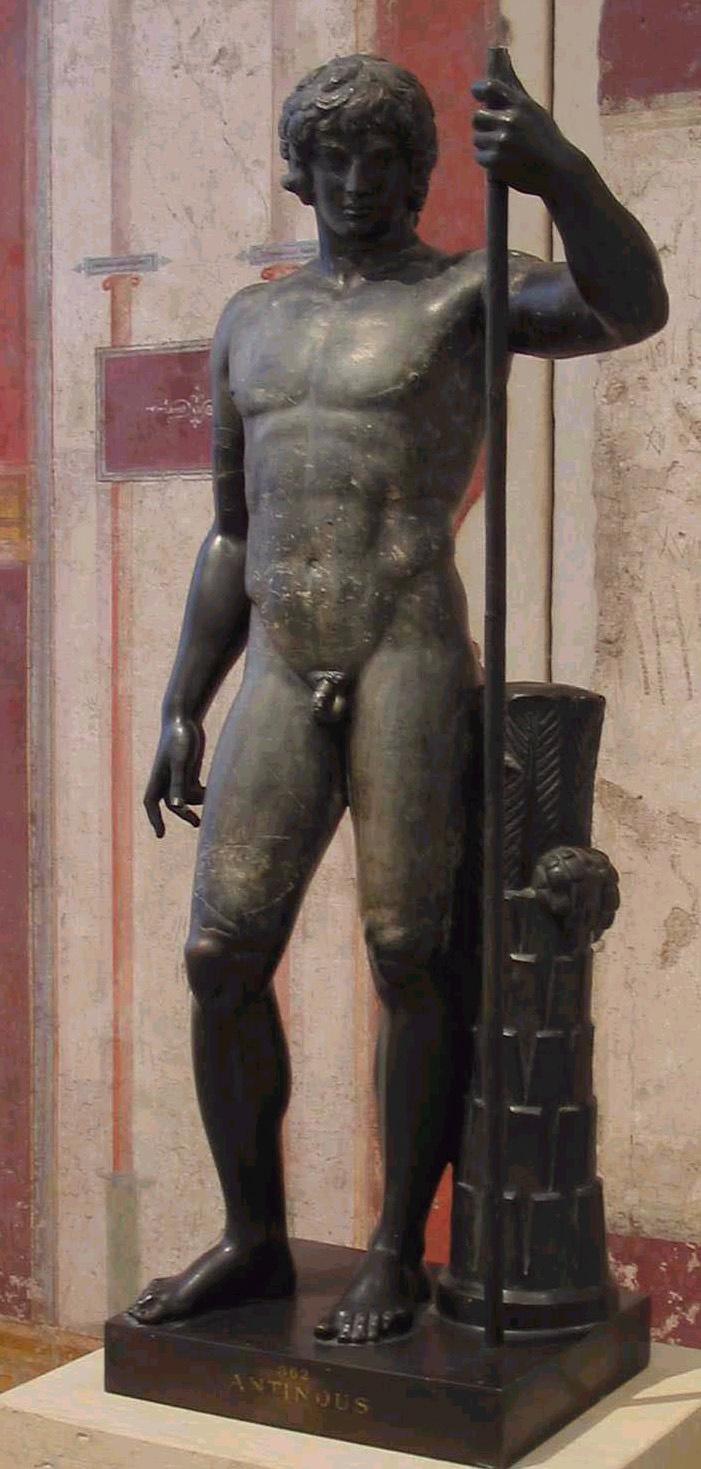
Antinous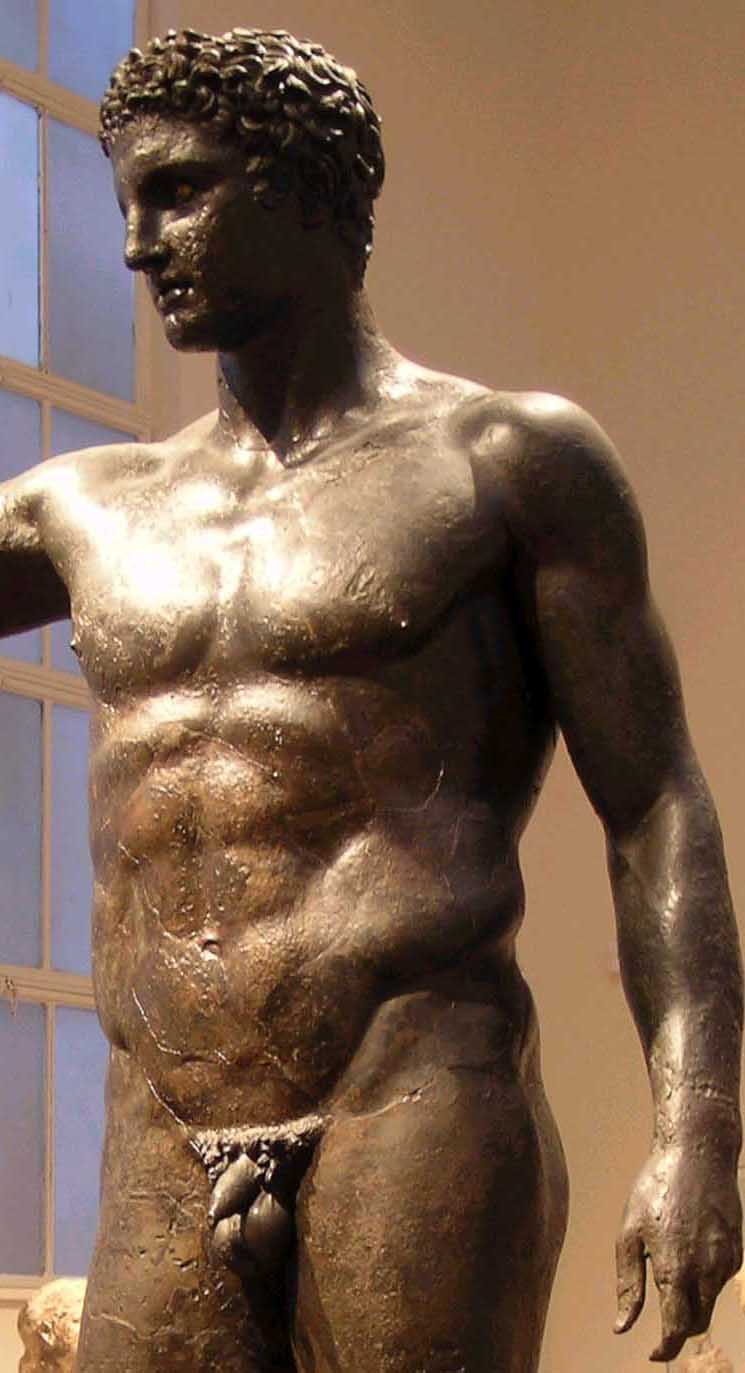
Hero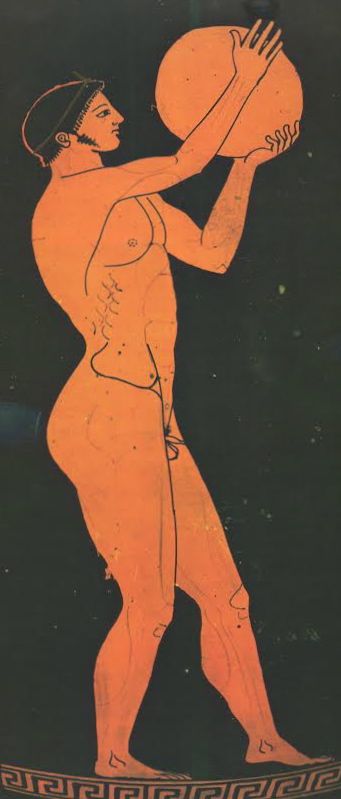
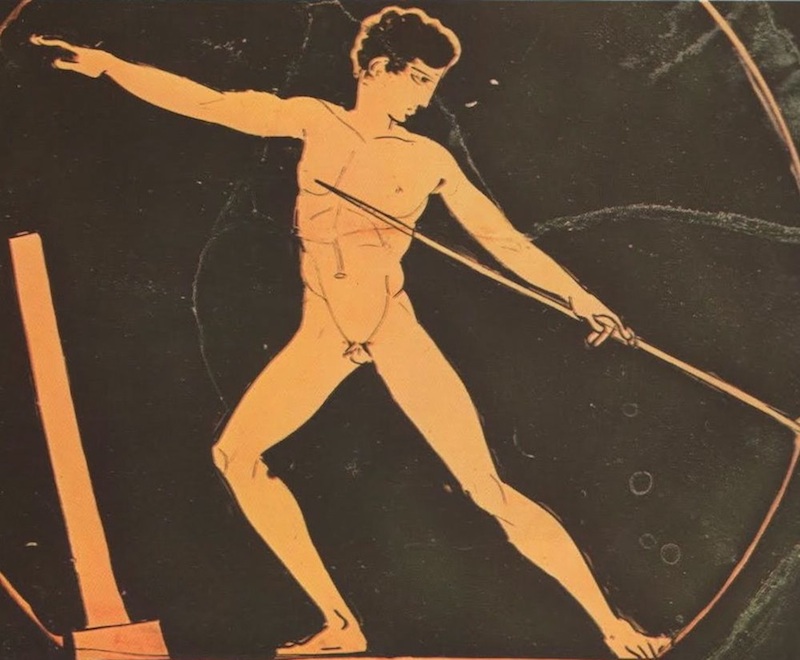
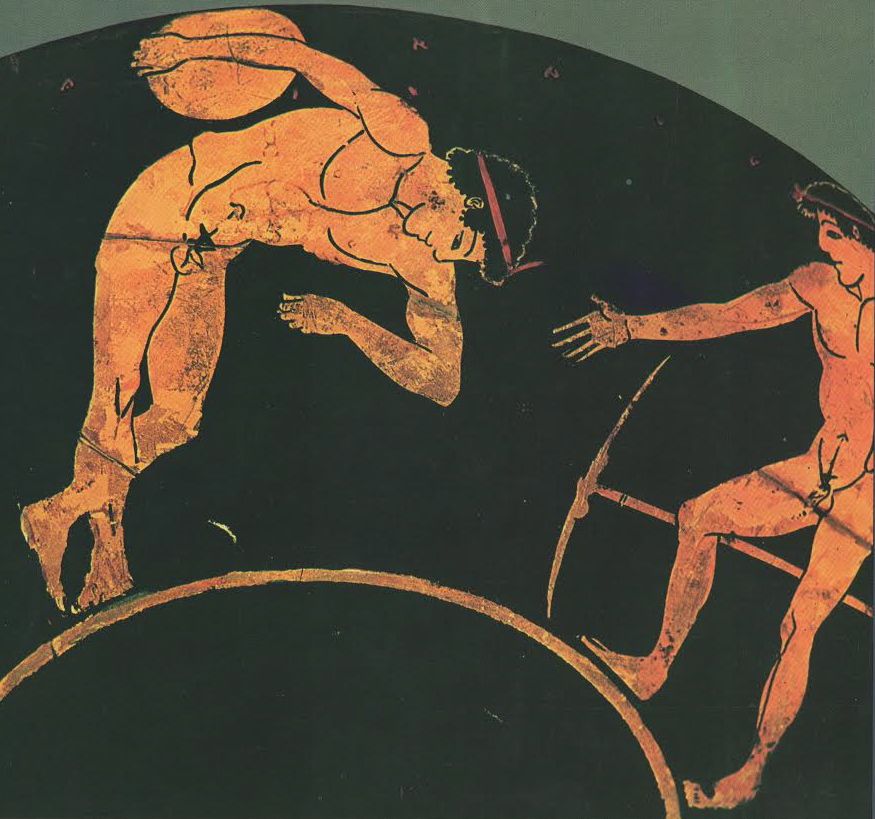



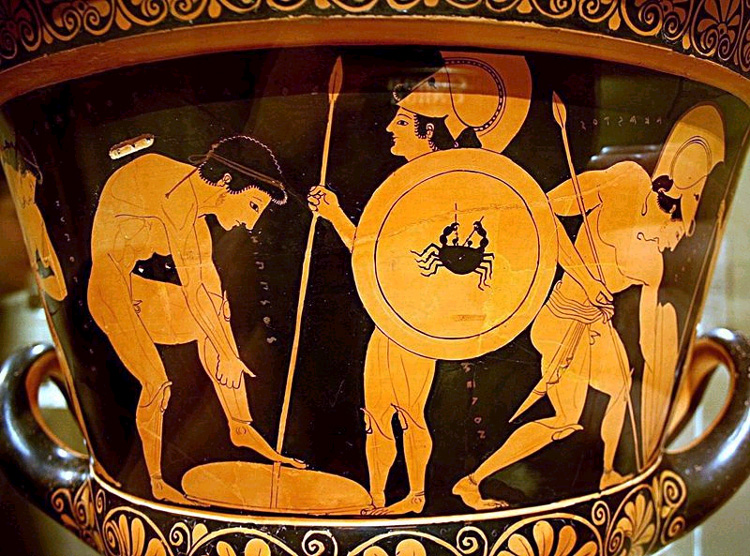
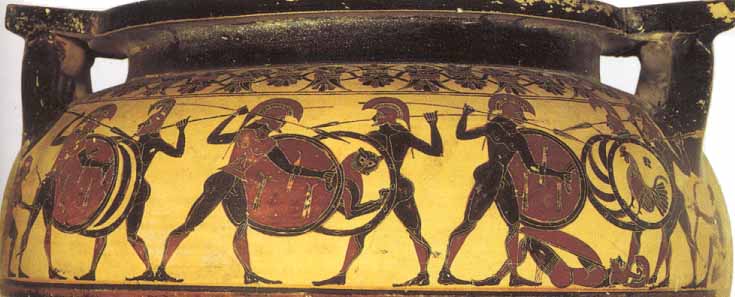
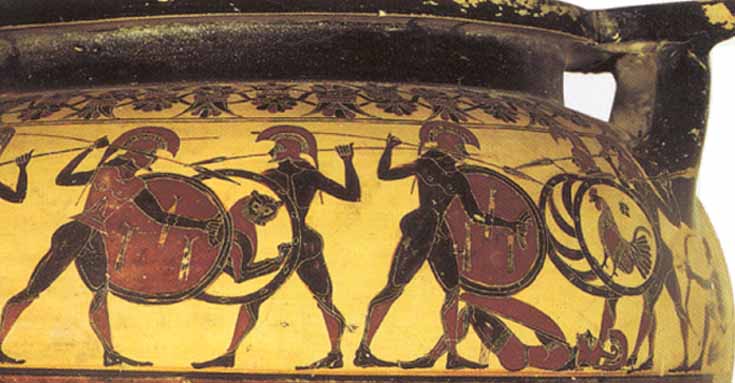

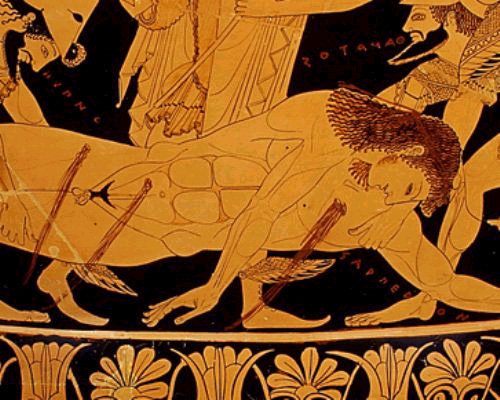
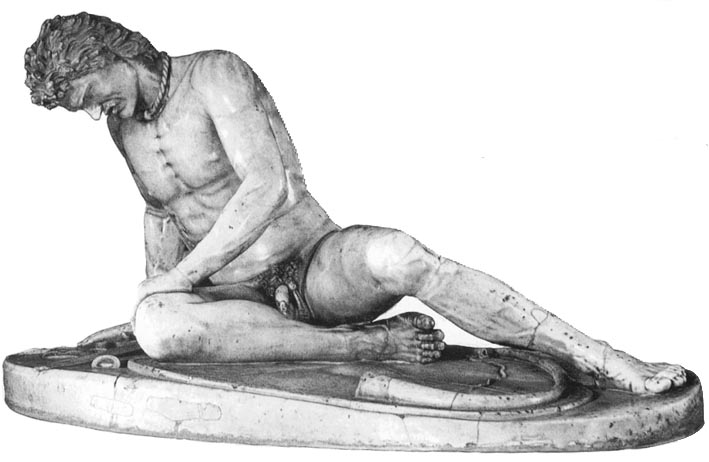
Kelts too Fought Nude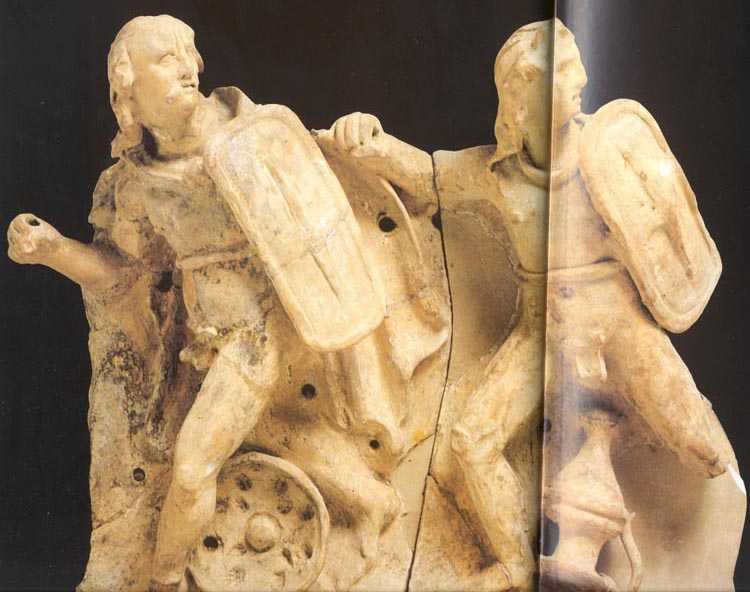
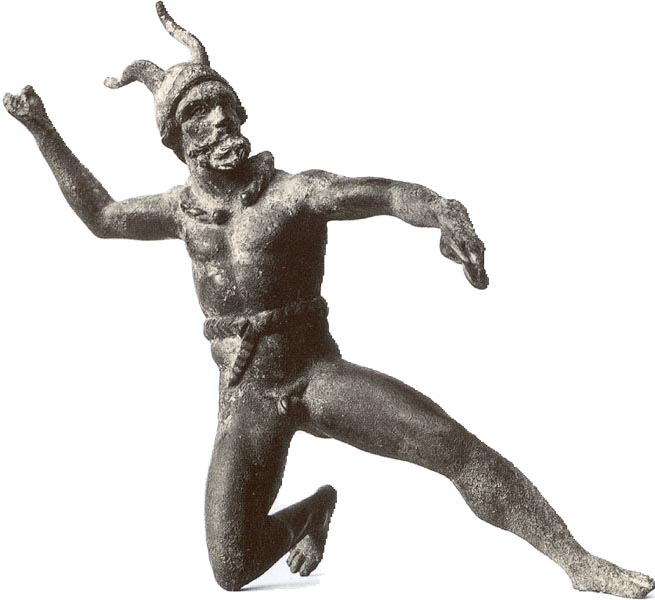
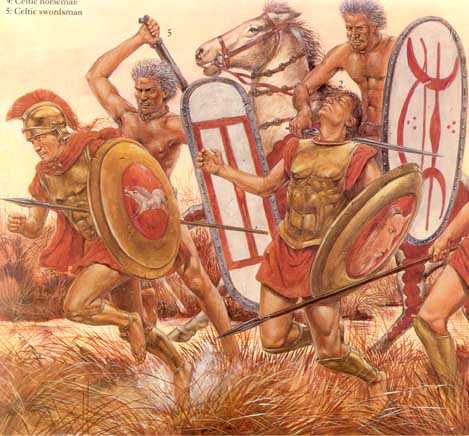
Nude Kelts kill armored Romans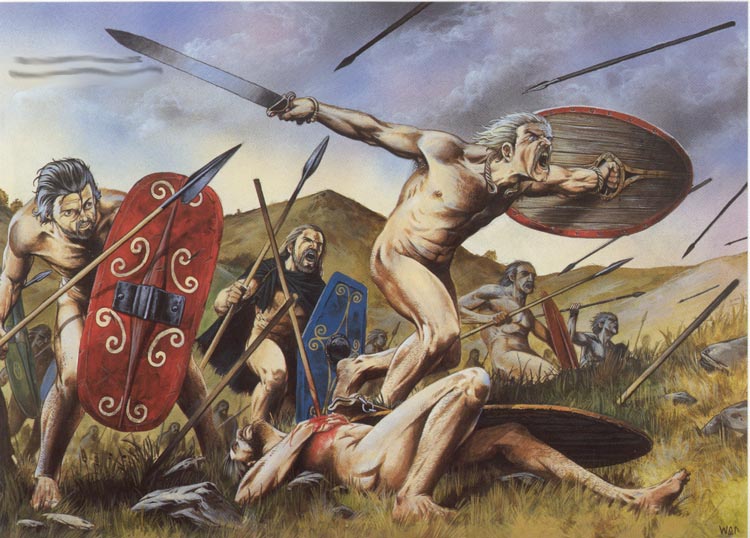
Nude Kelts seeking duels
suffer under a barrage
of Roman Pila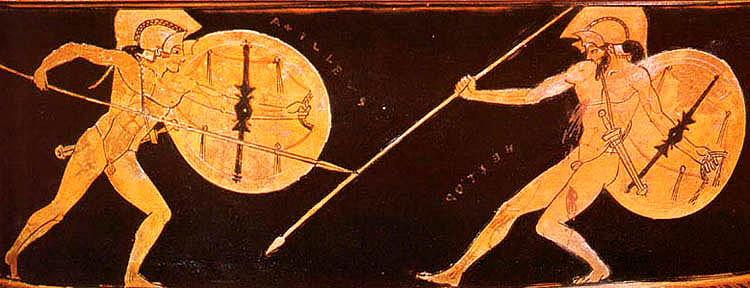
Achilleus slays Hektor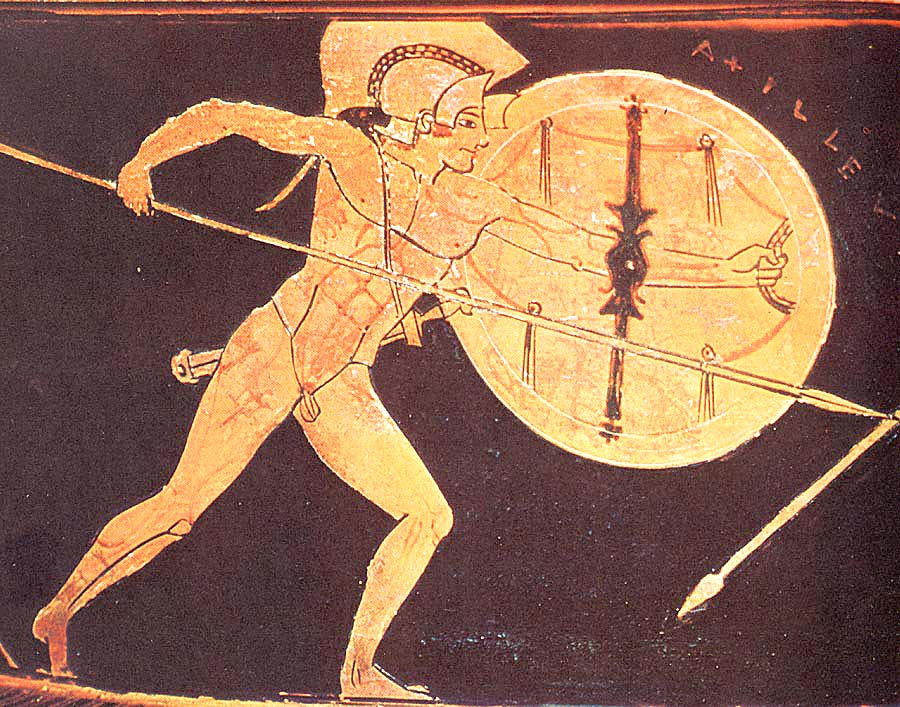
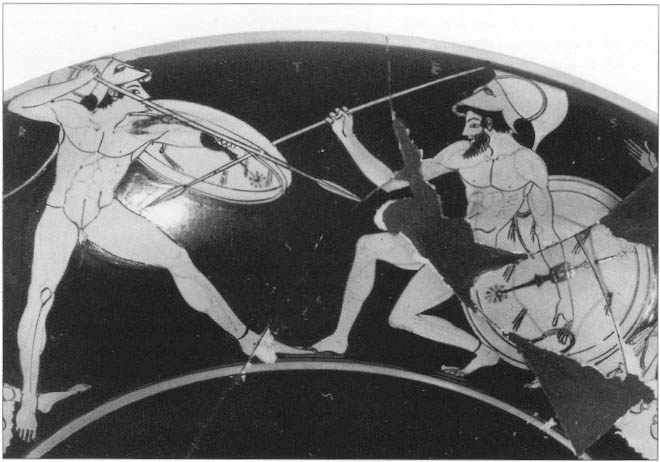
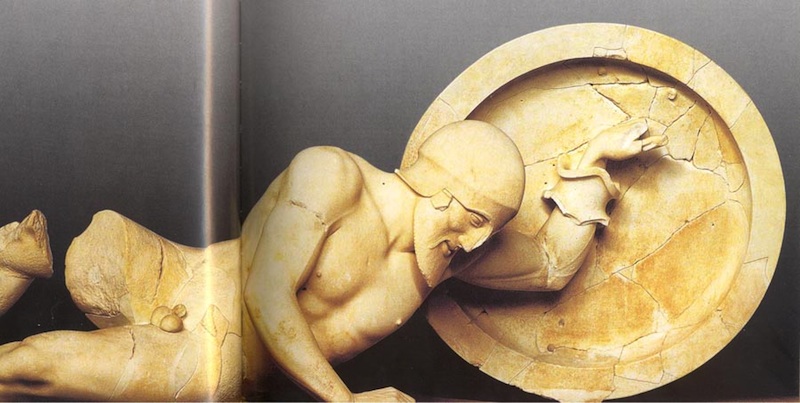
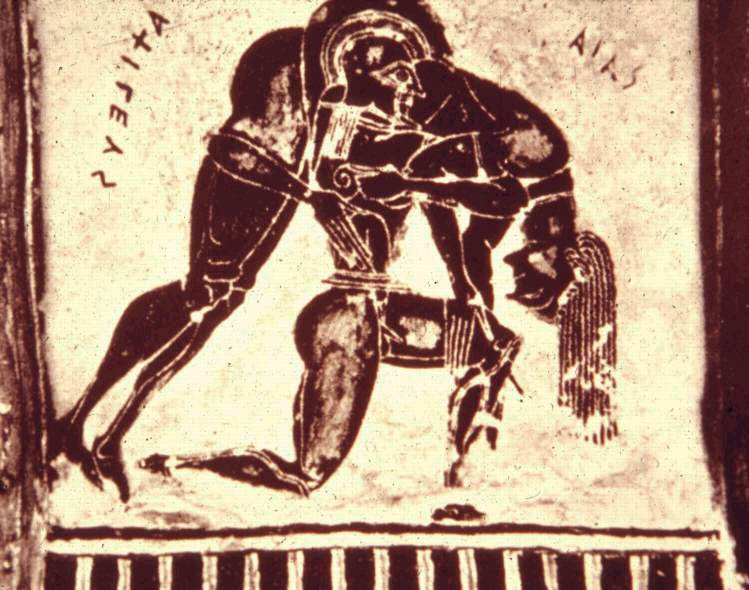
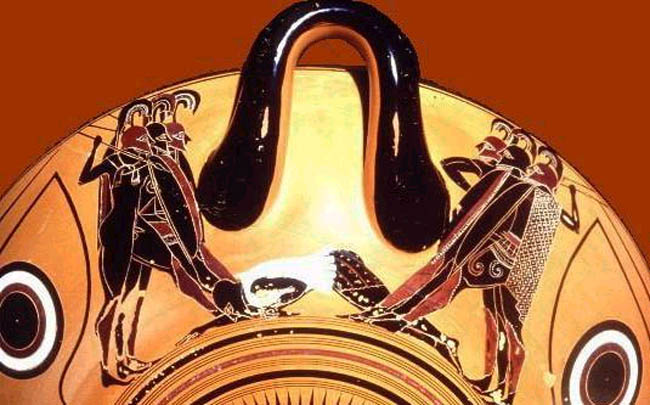
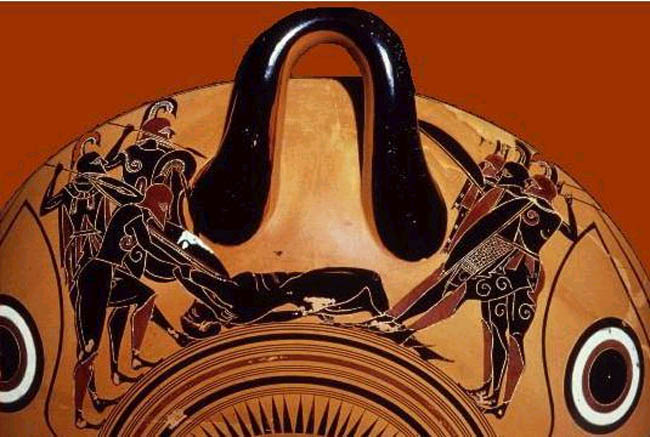
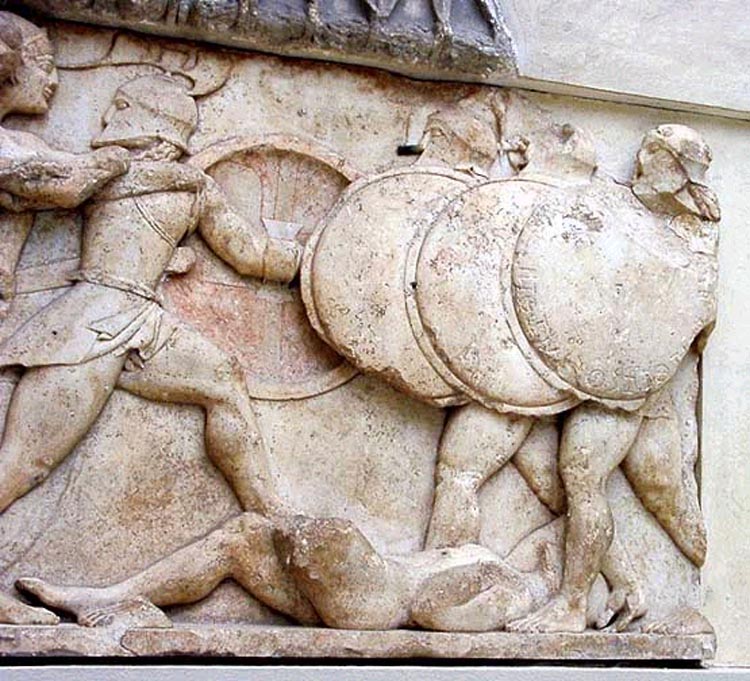









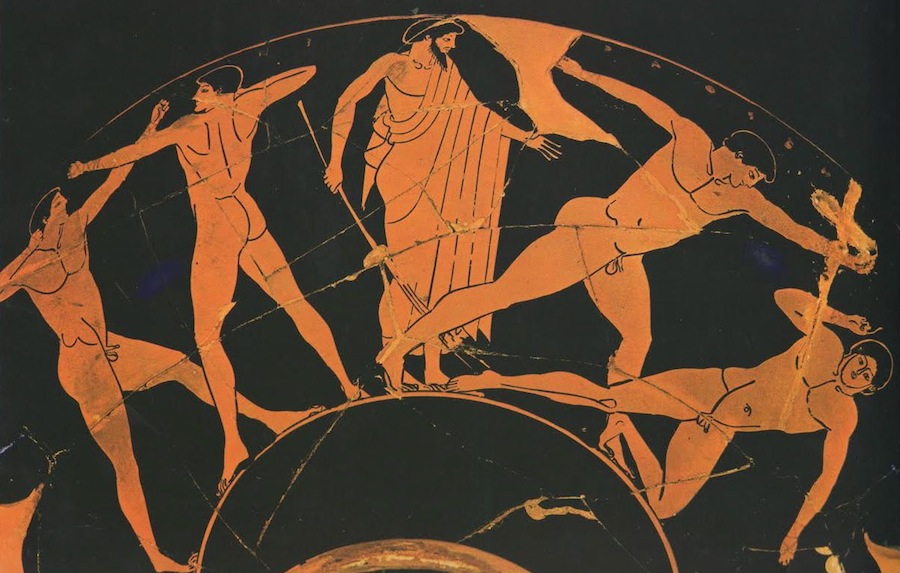







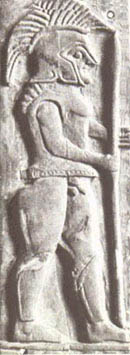 12345678910
12345678910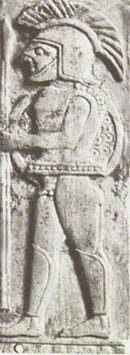
Spartan Hoplites

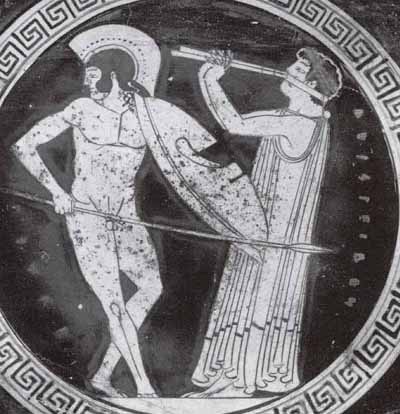
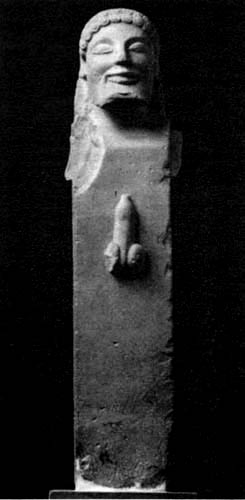
Himself had reared them in the Dusty Ring
And trained them in the ways of Angry War
And Naked Valour...

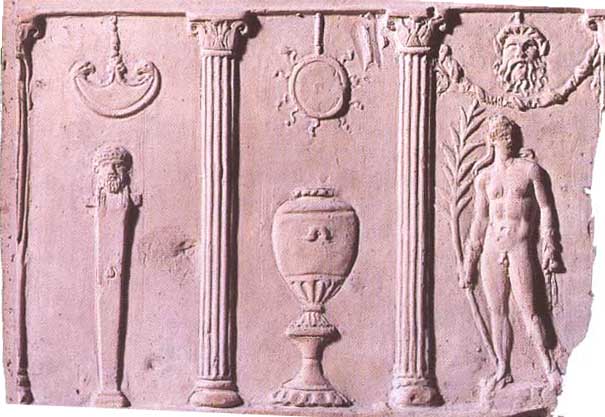
Palaestra: Herm on the left, Victorius Boxer on the right
Note the symmetry of the genitals
Palestra: Herm on the left, Victorius Boxer on the right
Note the symmetry of the genitals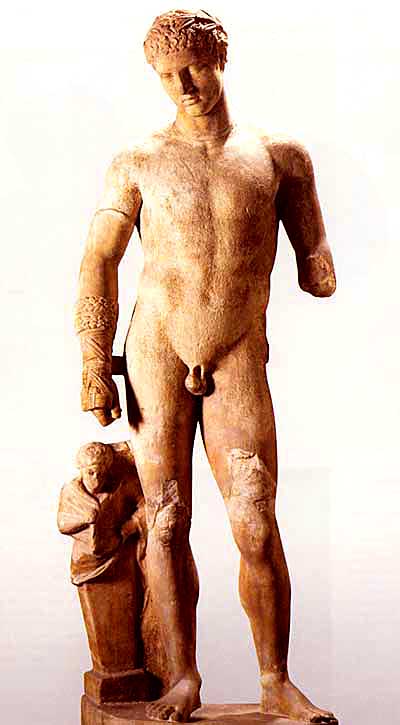
Victorious Boxer with Herm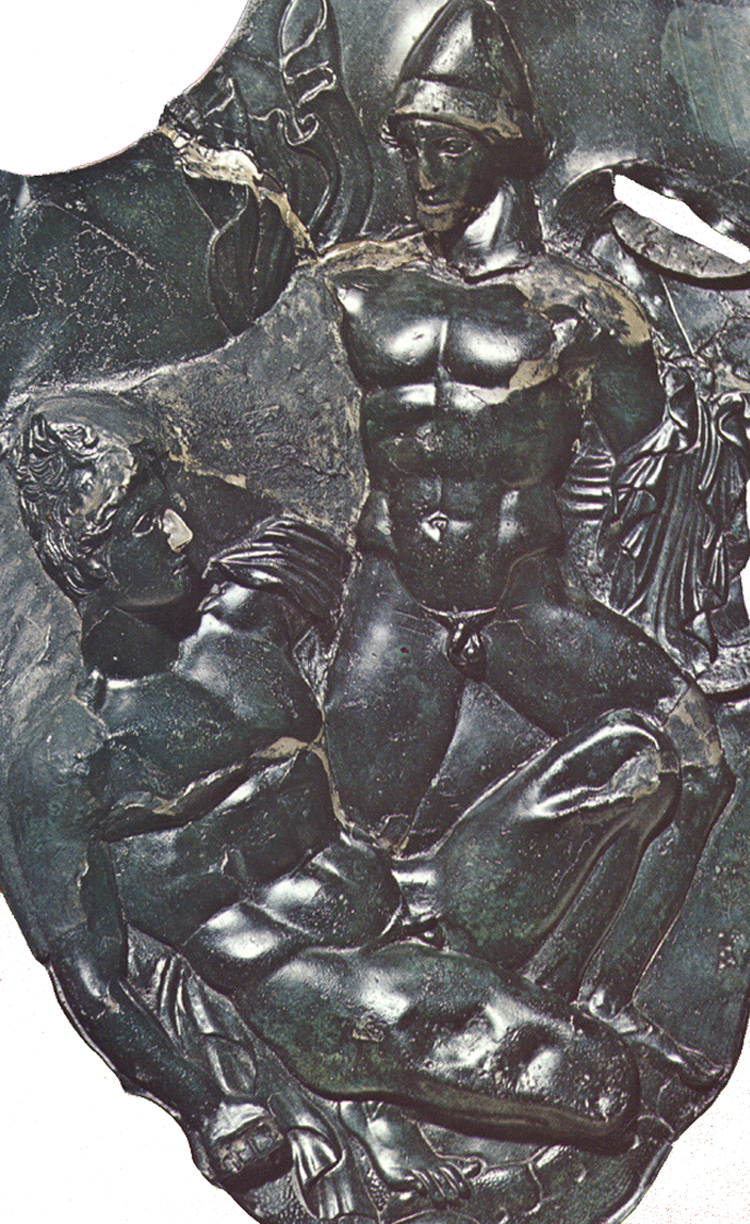
Helmet found at Dodona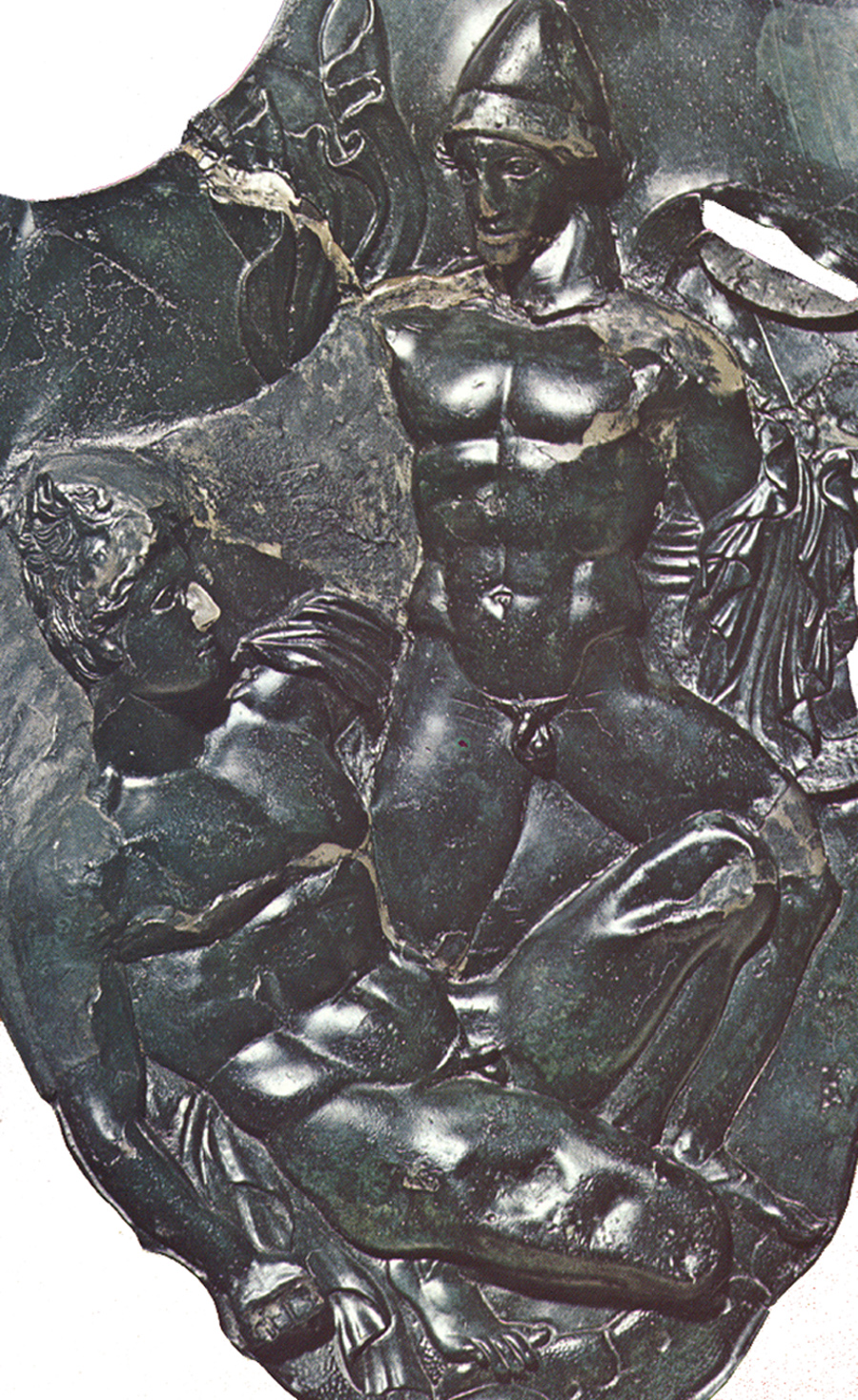
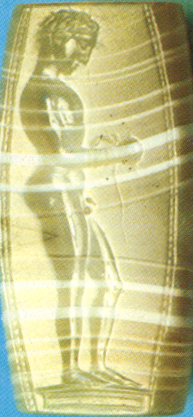

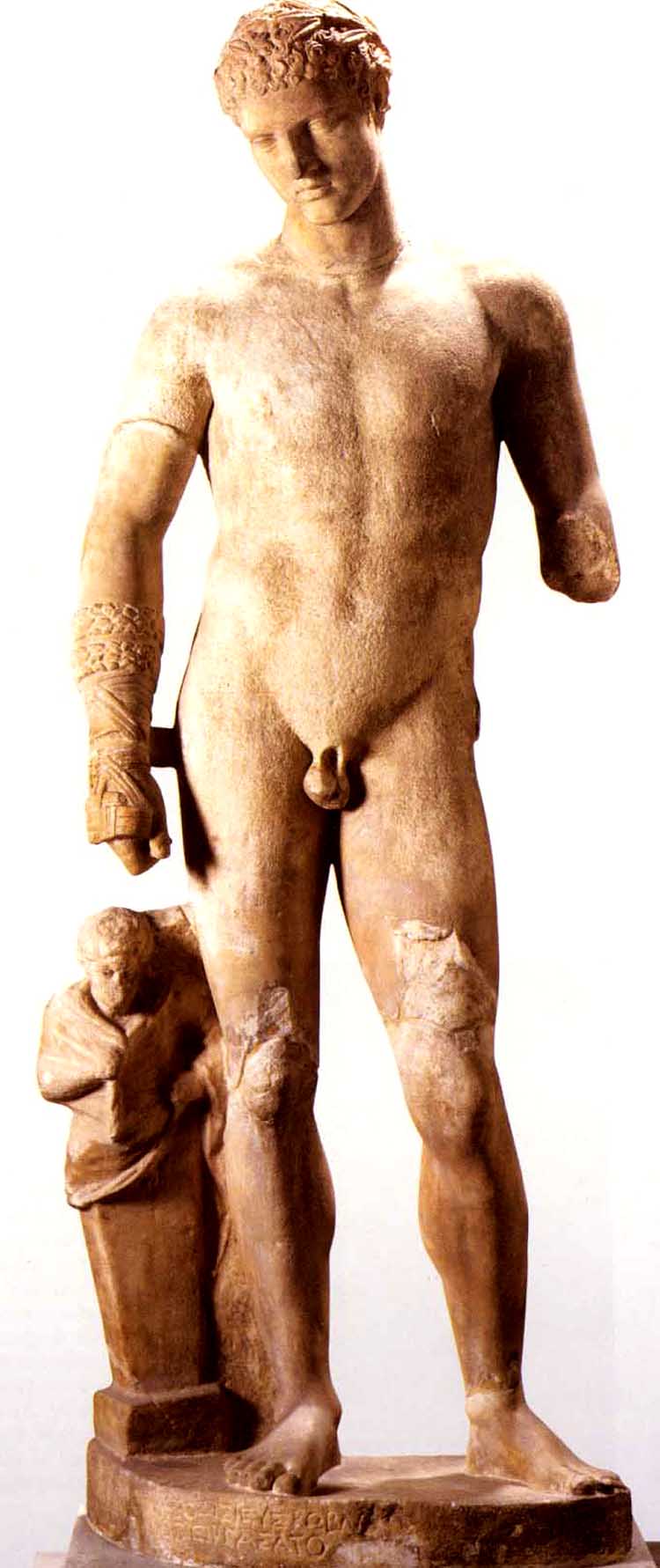
Victorious Boxer with Herm
and Sacred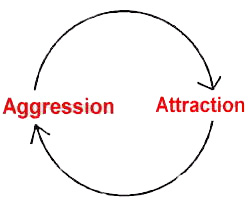
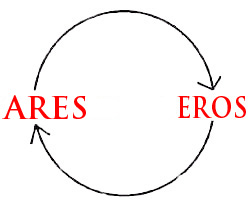
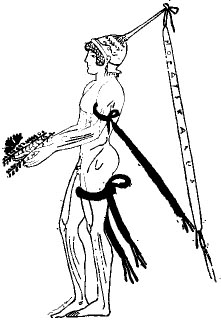
Each Nude Fighter is, as we saw in The GOD Within, consecrated to the Gods, or, more properly, to a God, his God, and in Basil Gildersleeve's memorable words, is "a living sacrifice to his Deity, the fresh bloom of young manhood, the rich efflorescence of the gifts of fortune." :

A Nude Boy Victor wears woolen bands and holds
a wreath. The bands or fillets "signify the
consecration of the victor to the God."
The Victor is a living sacrifice
to his God.
The Spear-Points of Young Men Blossom There [that is, in Sparta],
And Justice is done in open air
The stuff of gallant enterprise.
And Ares too blossoms
With the Young Men's
Deadly Spears.
with Kalliope, who is dear to them,
as also mail-clad Ares [0 10]
Ares with his embattled hosts of youthful warriors
are both at home in Korinth [0 13]





This exquisite kylix or drinking cup,
made to be passed around at a Symposion,
constitutes a very powerful cultural message
about the ideal ephebe.

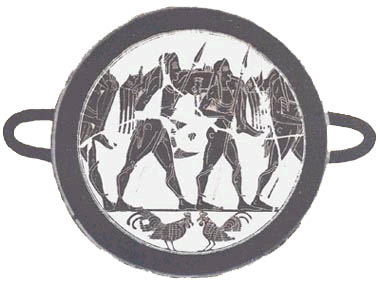
And Justice is done in open air
The stuff of gallant enterprise.

Himself had reared them in the dusty ring
And trained them in the ways of angry war
And naked valour; hence their high resolve
And sweat the sacrament of glorious death.
Combat, and implants in them the ways of Naked
Valour and Warlike Temper ; hence Dauntless Courage
and the welcome consecration of a Glorious Death.

Other numina, of more constant presence, acquired more substantial character, as Jupiter, lord of the brilliant heavens and of storm, later identified with Zeus ; Mars, the War God, equated with Ares ; Neptune, the God of Waters, identified with Poseidon ; Faunus, the patron of animal life ; Silvanus, the God of the Woods.

Pugnus Victus
The Unconquered Fist
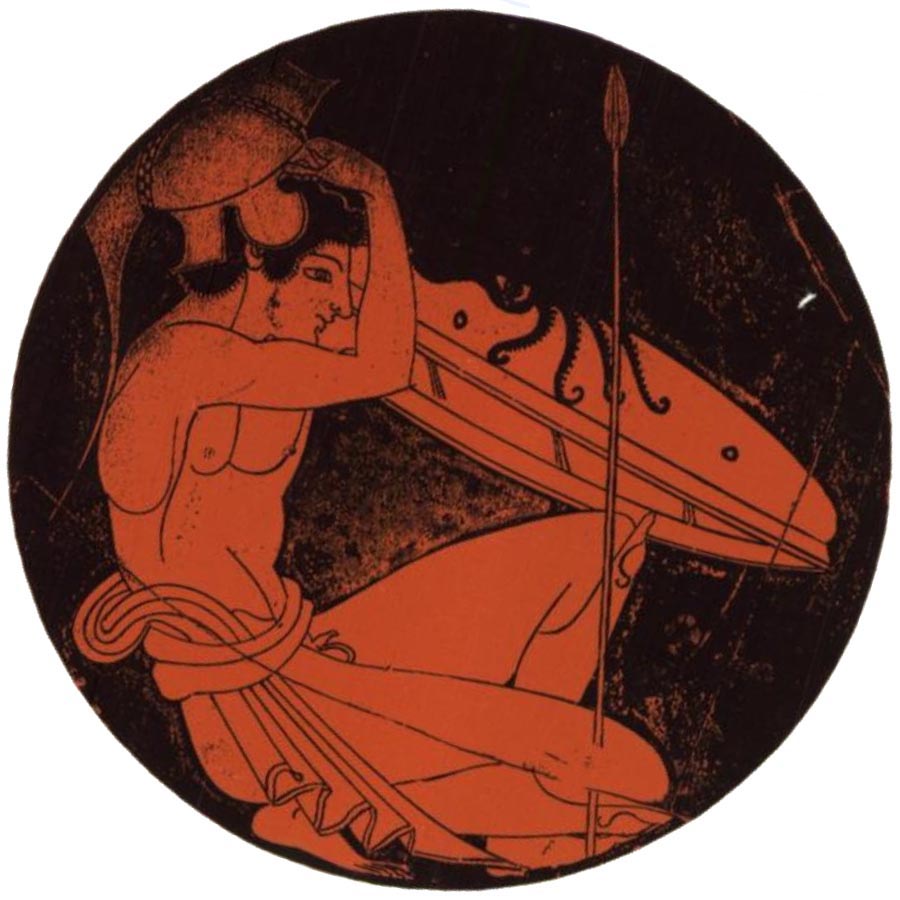







Bill Weintraub
From the same root [ΑΡΗΣ] come areté, areta, ari-, areion [better, more Manly], aristos [best, most Manly], the first notion of goodness being that of manhood, bravery in war; cf. Lat. virtus







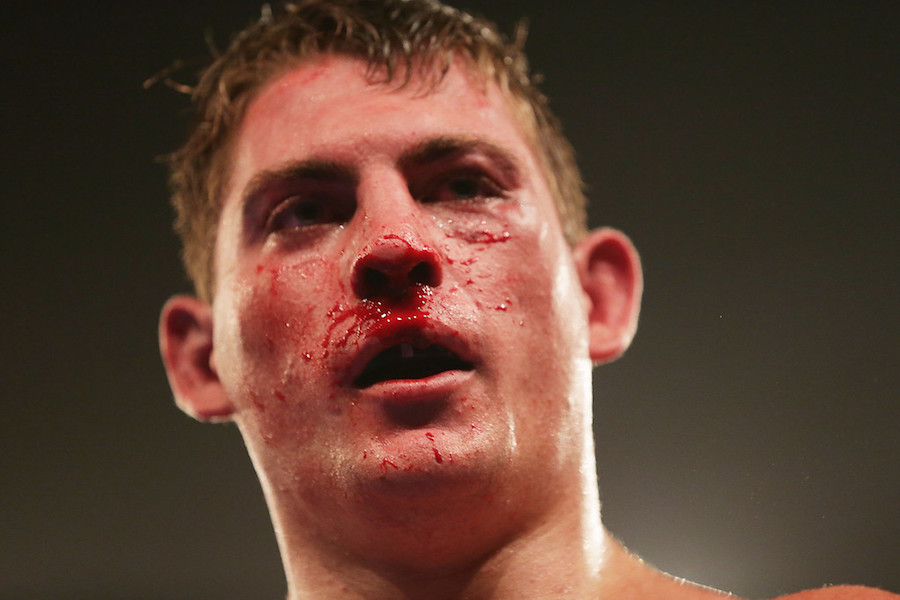













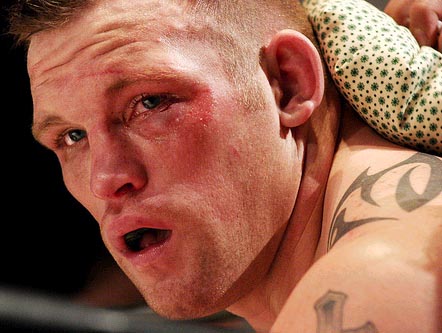
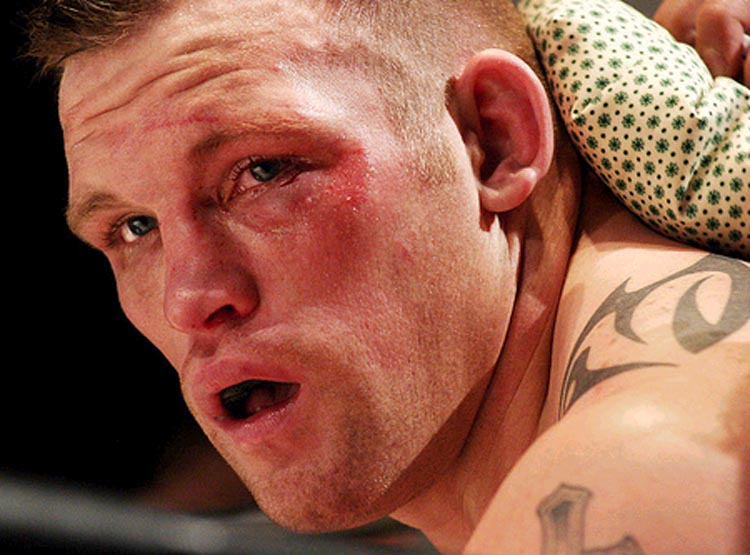
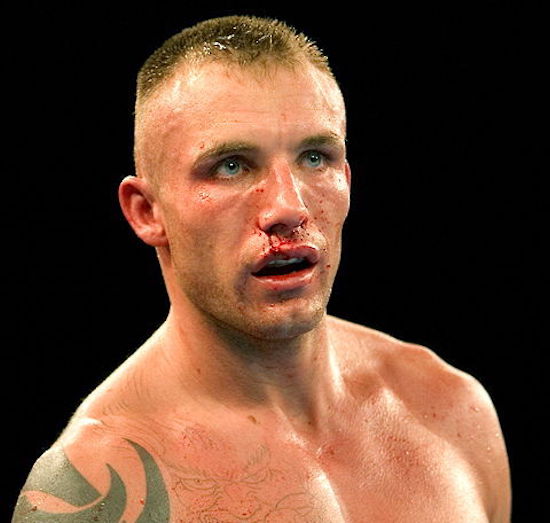
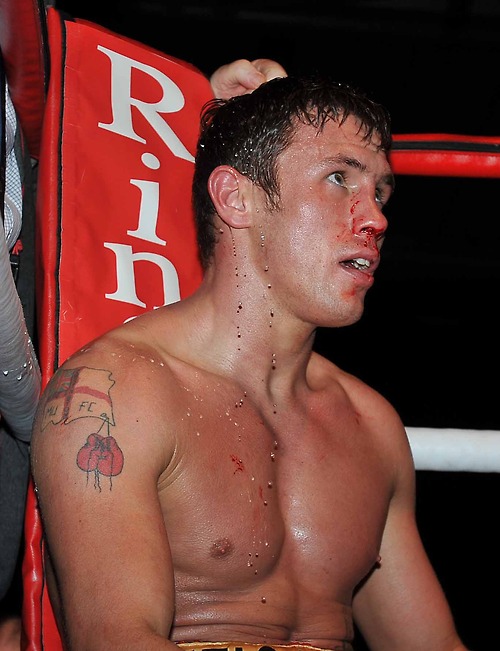
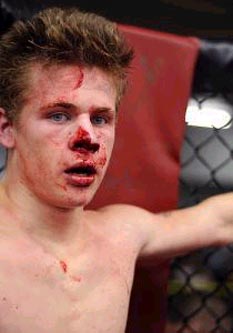






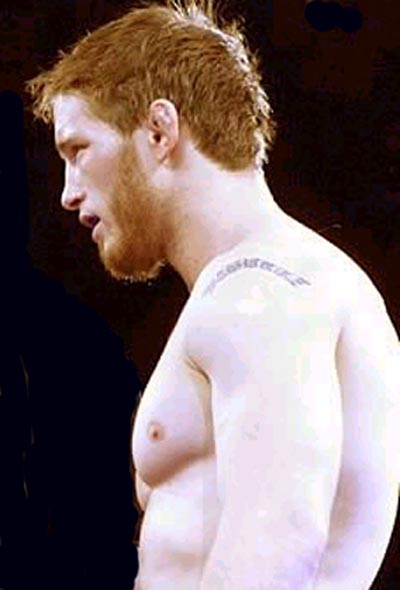

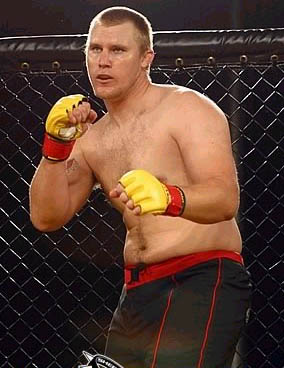

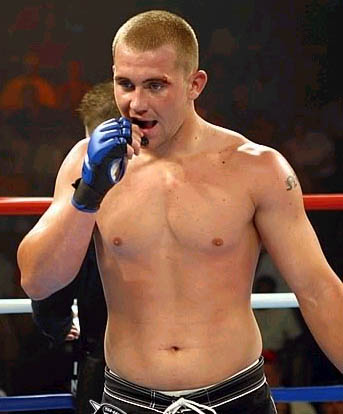

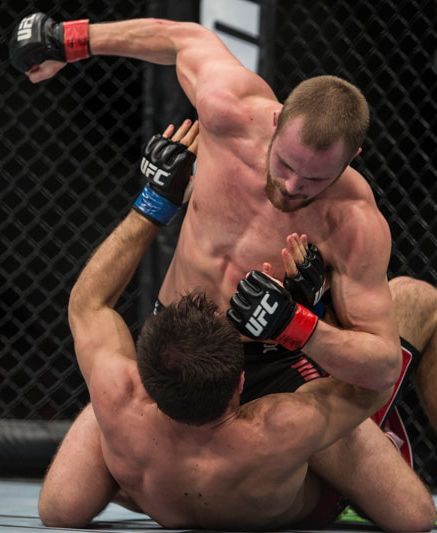

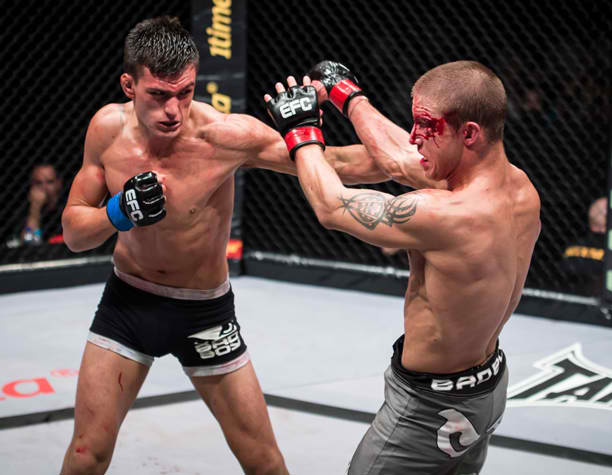





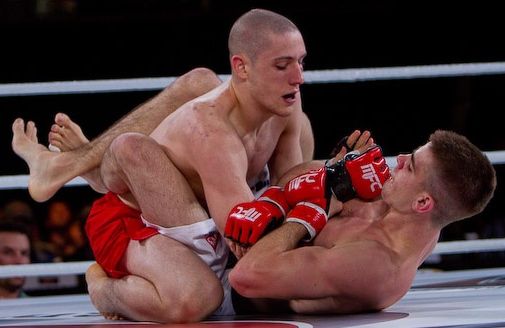






























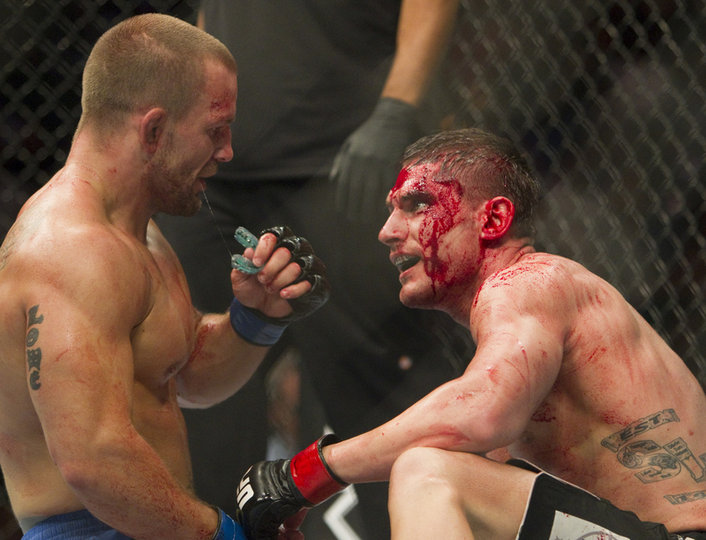

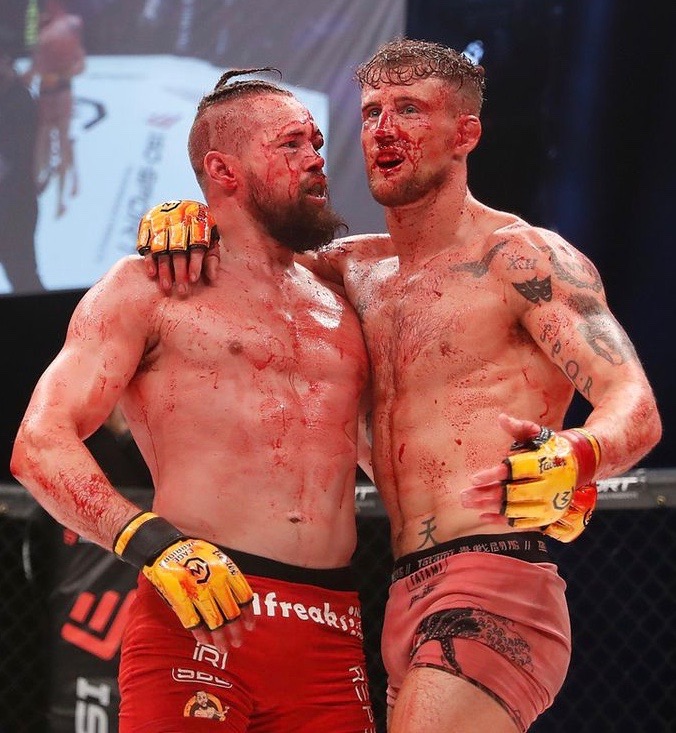
The Fighter on the left has his hair tied in a Roman pugnator's knot
The Fighter on the right has Senatus Populusque Romanum
and a Roman helmet tattooed on his arm
Their embrace is natural and relaxed
ManFight Enables
Men to Remember
What it means
To be a Man

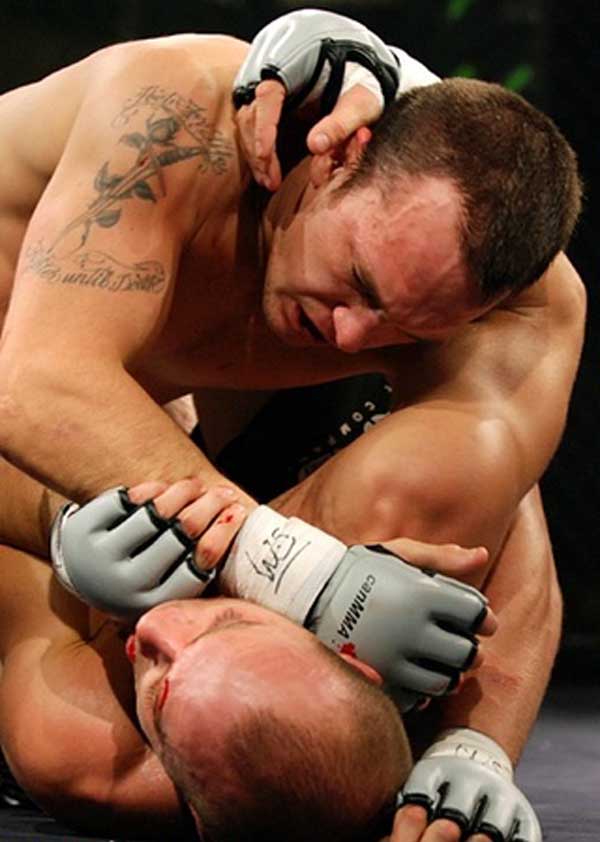
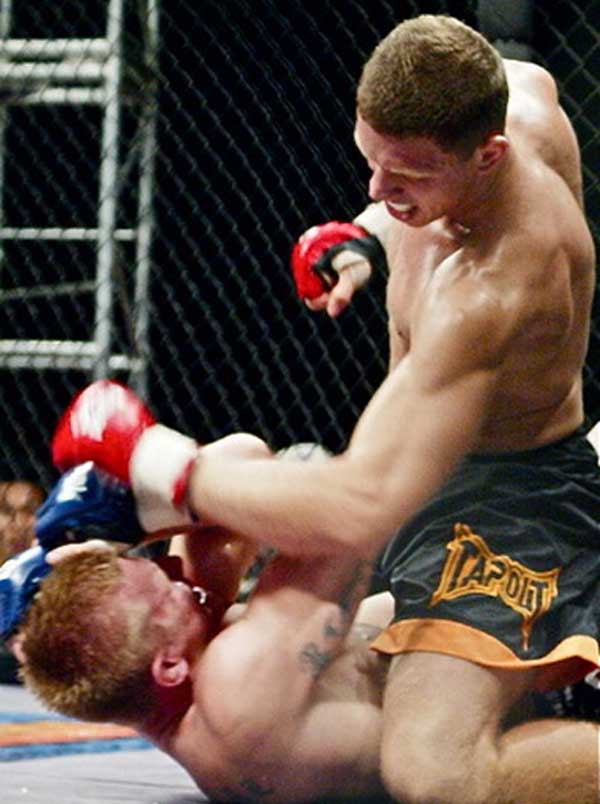

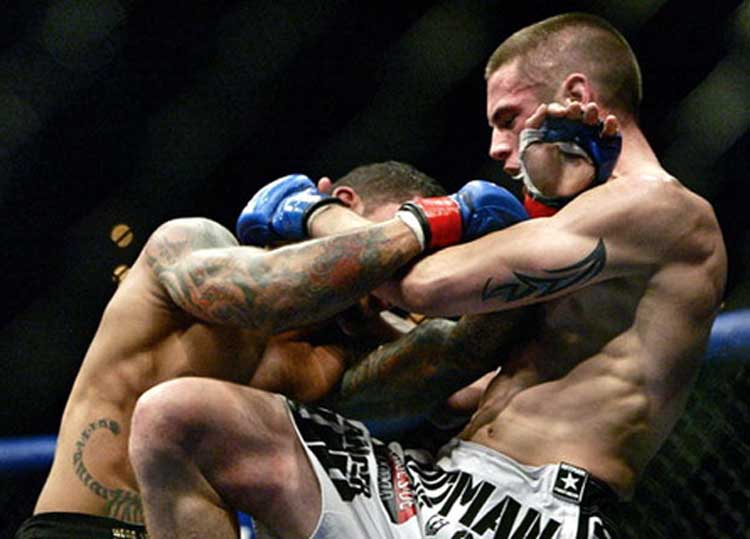





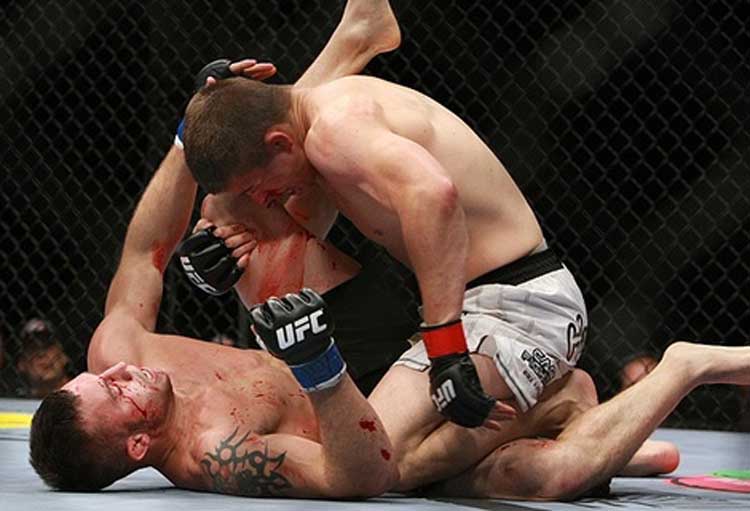
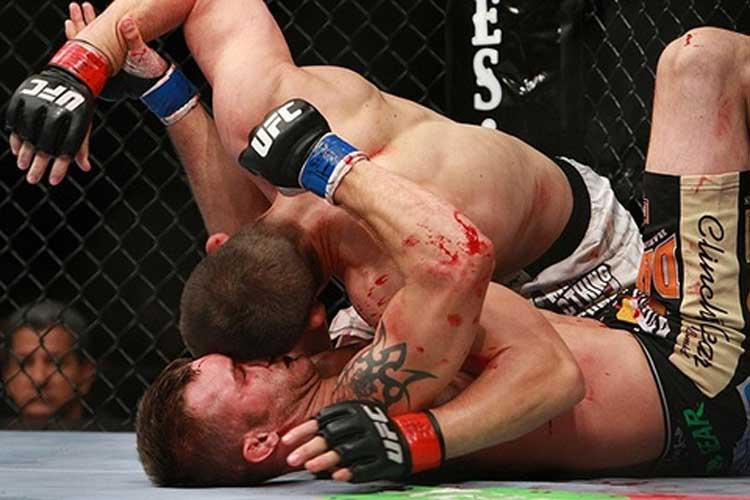
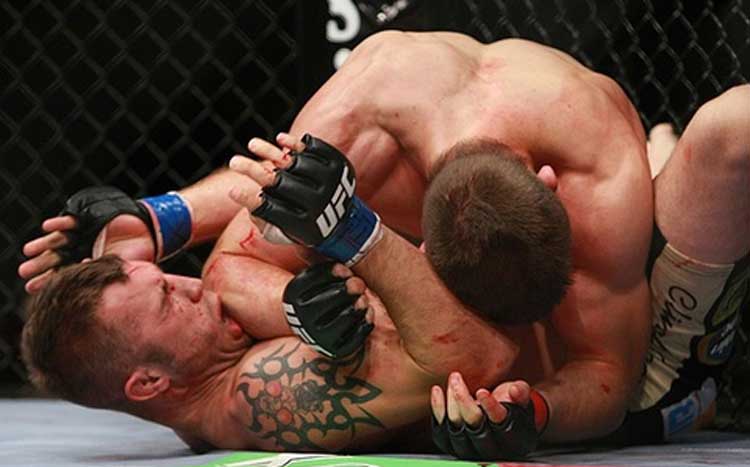
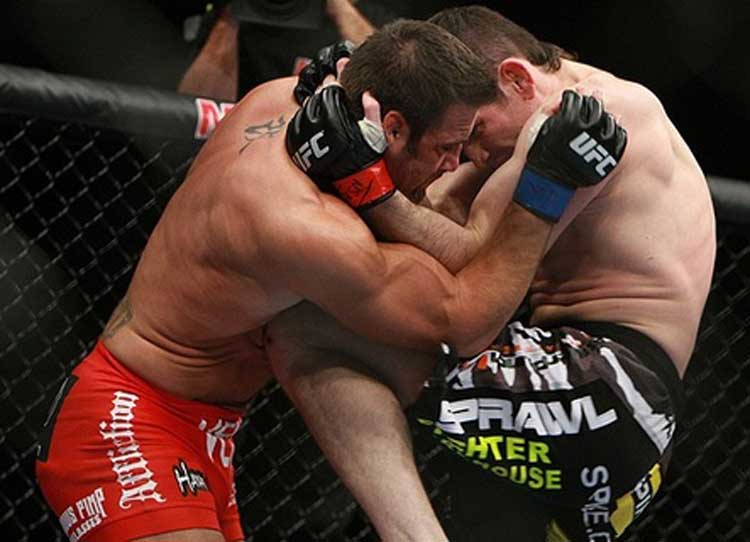
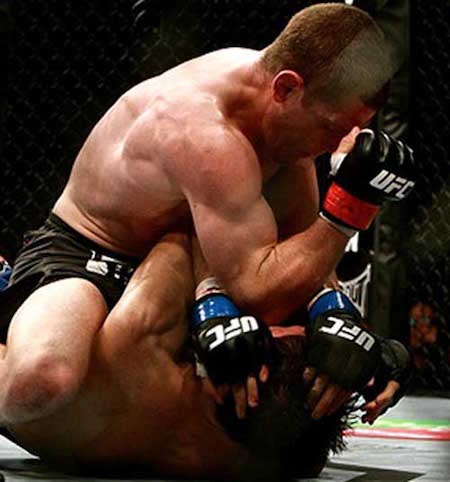

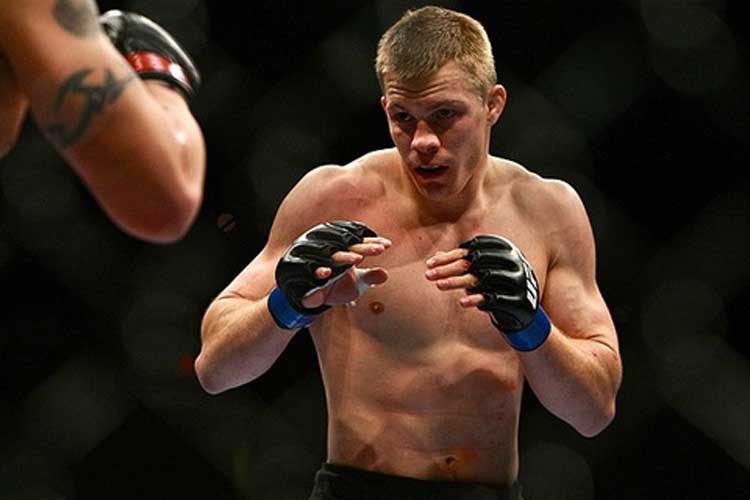
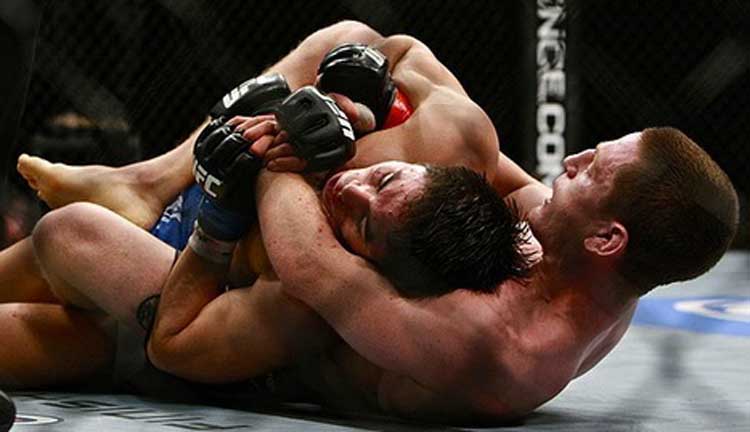
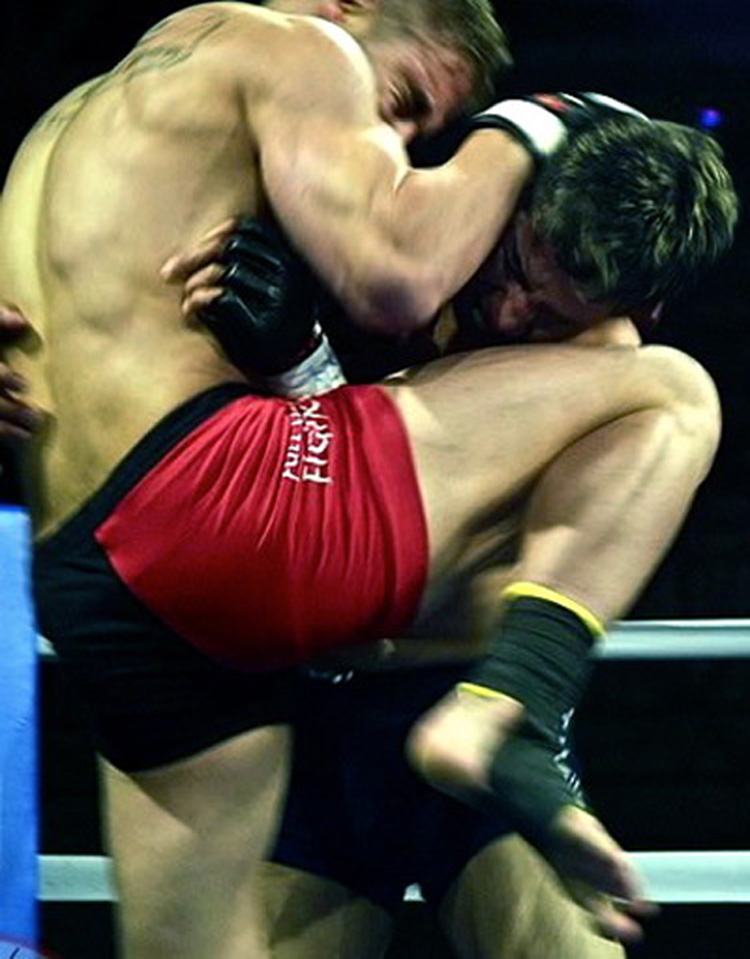
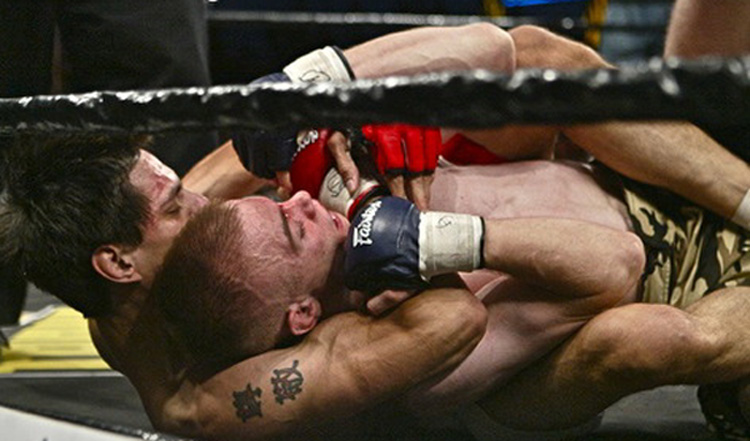

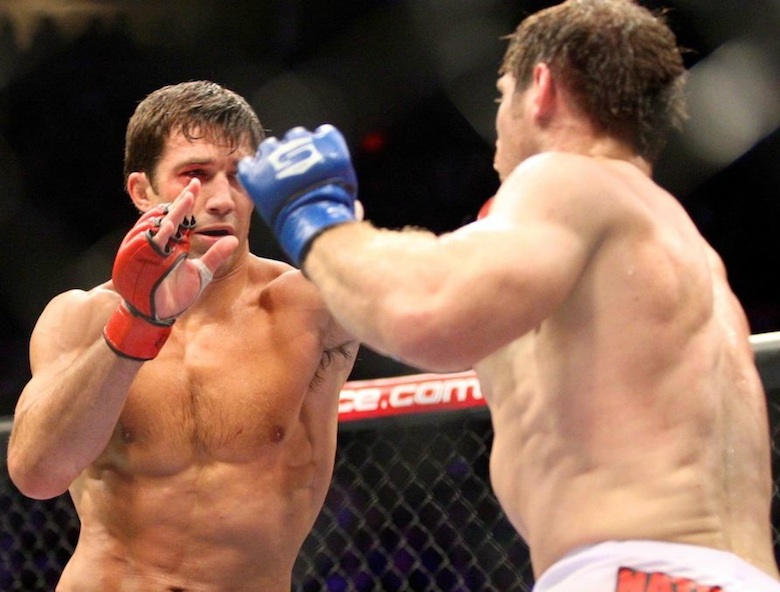
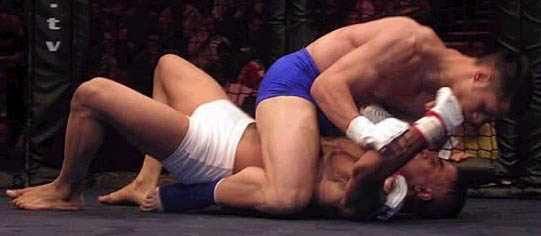
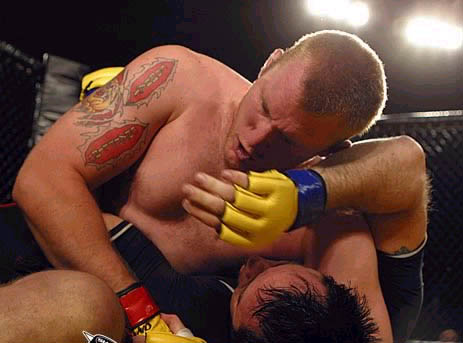

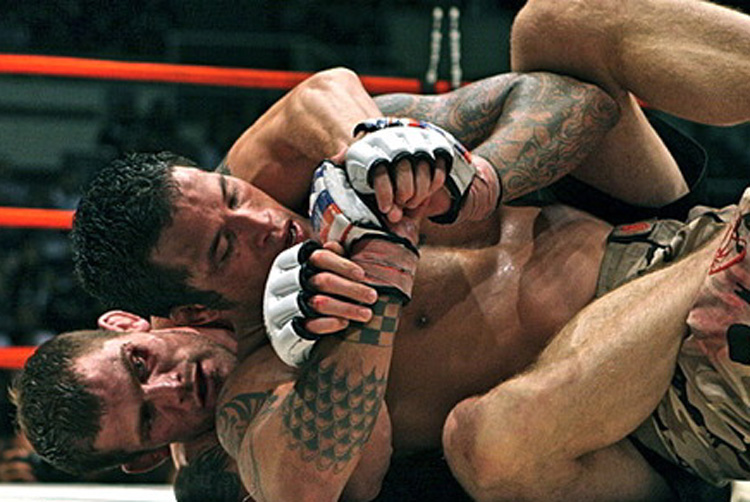
























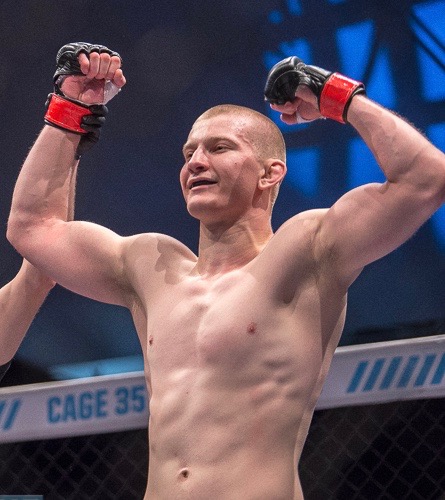



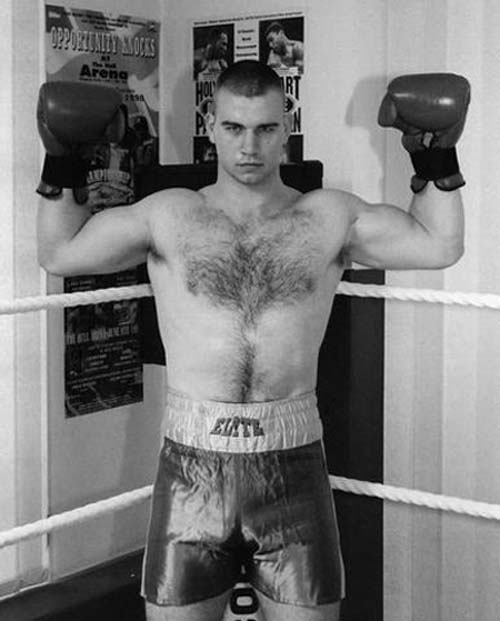
















Far the best for Man is that which is desirable in and for itself, has its source in virtue or rather is based on virtue, is of itself praiseworthy, and in fact I should prefer to describe it as the only rather than the highest good.


This Man is a Fighter
His nose is broken, his ears battered, his knuckles bruised
This MAN is a FIGHTER





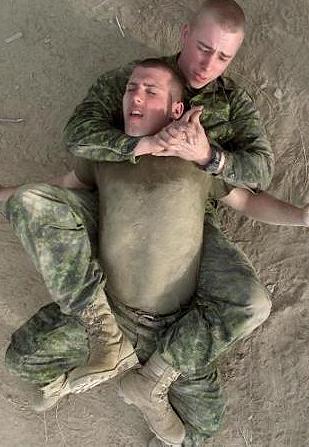



Wrestling Team
USS California
1921-22
Καλος
At Pearl Harbor, 102 Fighting Men
died aboard the USS California,
and 62 more were wounded

The Fighter on the left has his hair tied in a Roman pugnator's knot
The Fighter on the right has Senatus Populusque Romanum
and a Roman helmet tattooed on his arm
Their embrace is natural and relaxed
ManFight Enables
Men to Remember
What it means
To be a Man



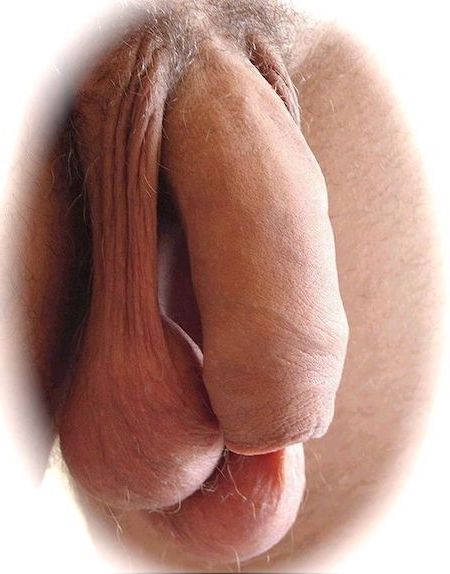
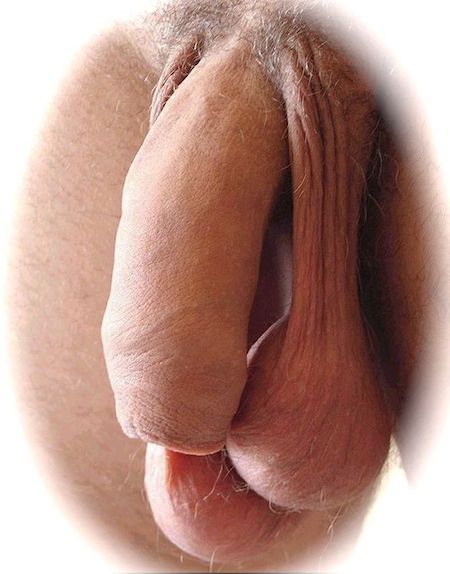




Bill Weintraub

























BONERS AND FISTS



Sex is not independent of Biology.
And neither is Fighting.
Boners and Fists originate in the Testicles.
All Fighting is Man Against Man, Phallus Against Phallus,
Manhood Against Manhood, and Balls Against Balls.


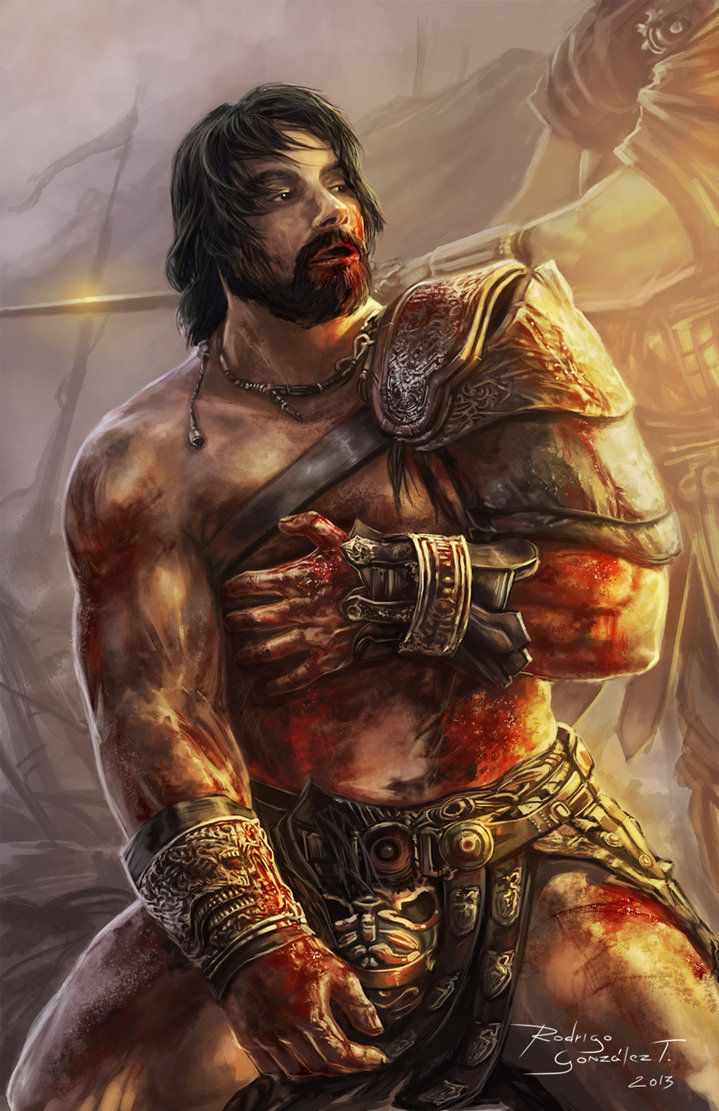
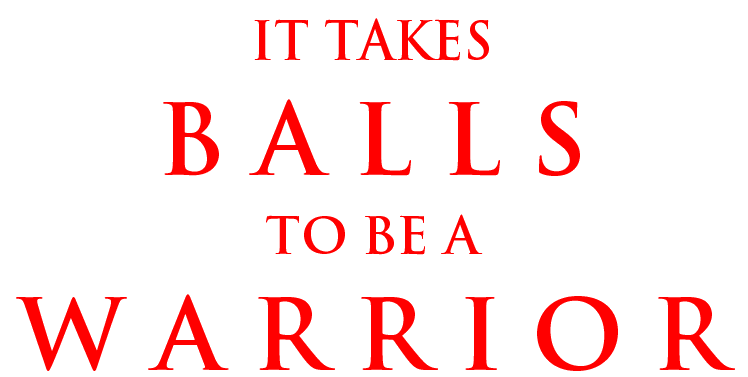















Soldier Balls
It takes ManBalls to ManFight
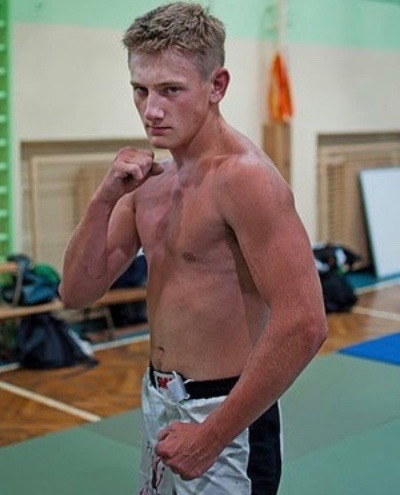
Tymo Balls
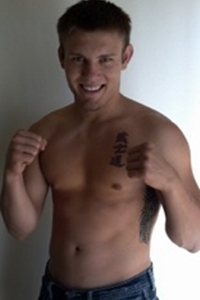
Iron Balls







It takes ManBalls to ManFight

Godly Fighter ManBalls
Manliness and Manhood
Strength and Violent Force
Lord Ares' Sons
Damos and Phobos
Terror and Fear




ManFight : Its Strength and Force
ManFight : Balls against Balls








All rights reserved.

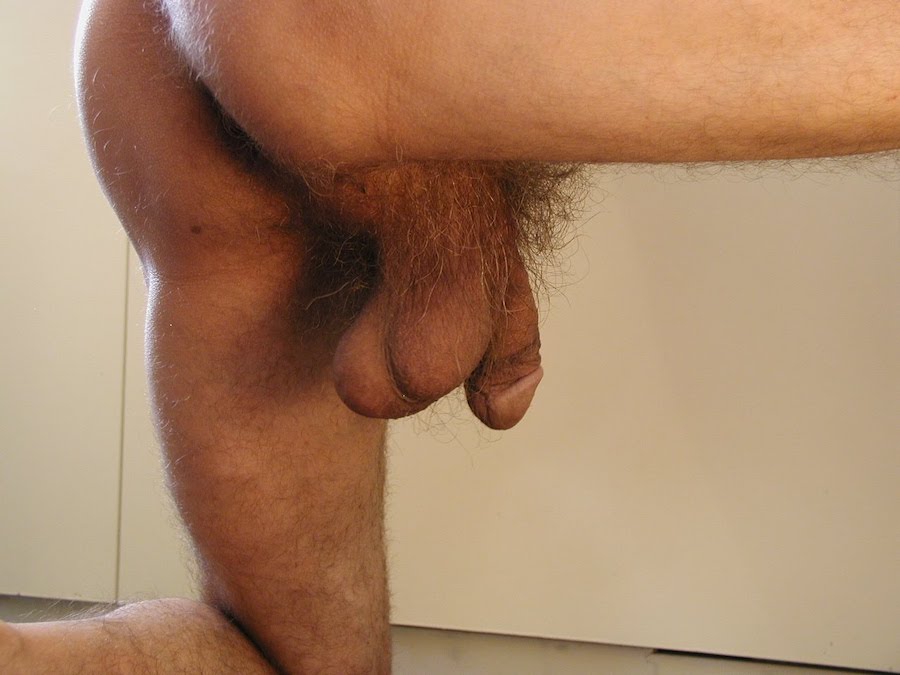


















All rights reserved.


Valorous, Violent, Beautiful

![]()
Manhood Hypostatized
Ares Beatified
God of Fight
God of Manhood
God of Fighting Manhood
Mighty and Blessed




Bill Weintraub



![]()
Ares Beatified
Manhood Hypostatized
A God in Human Shape
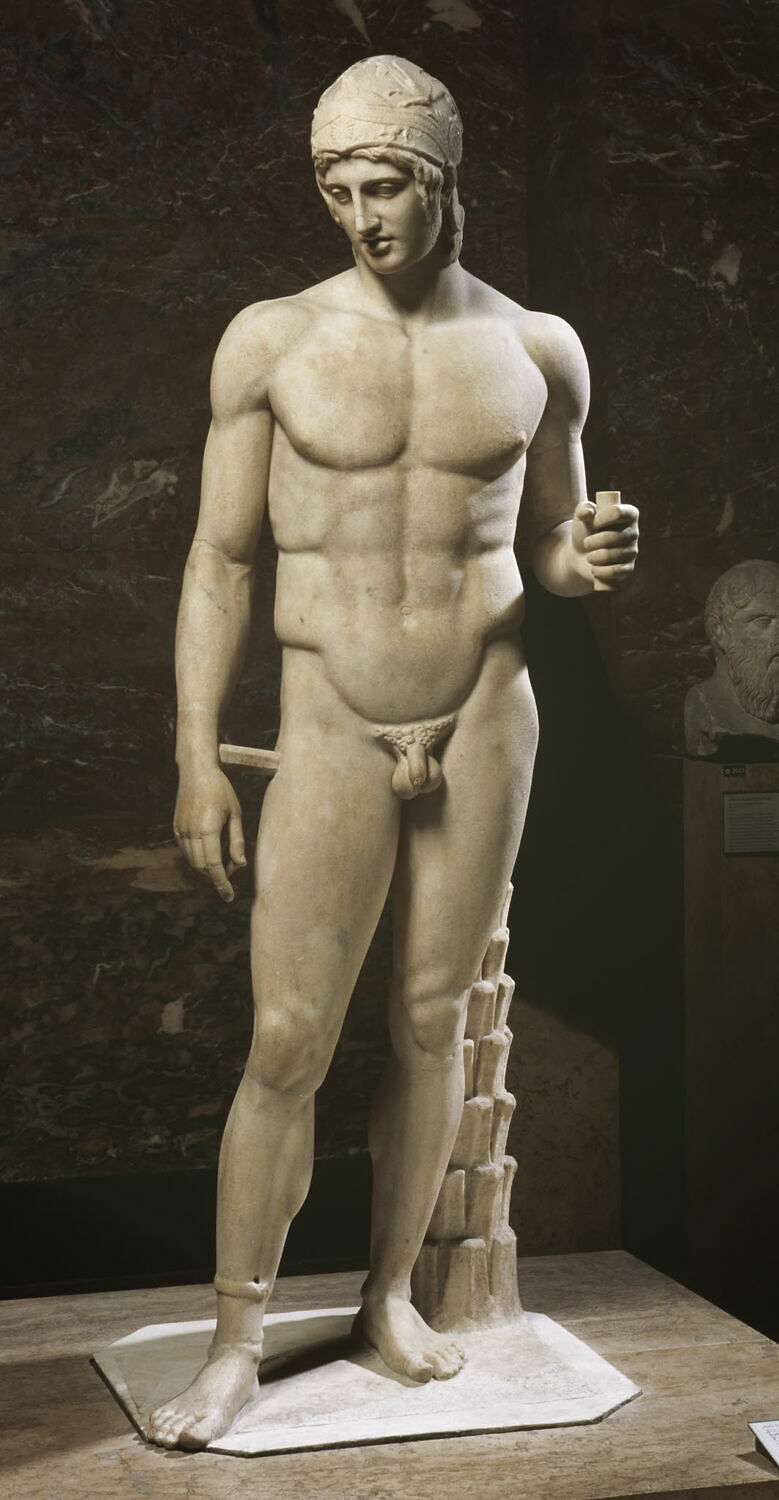
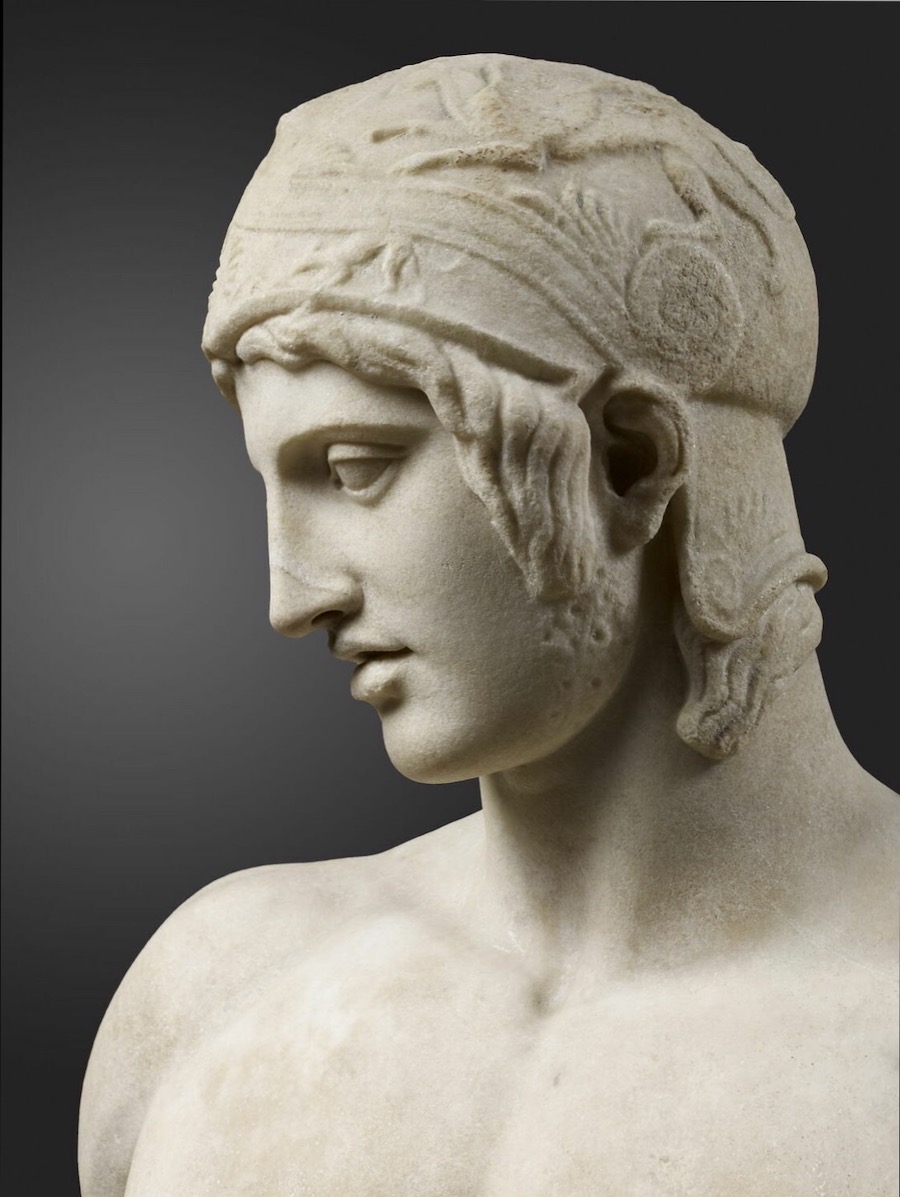
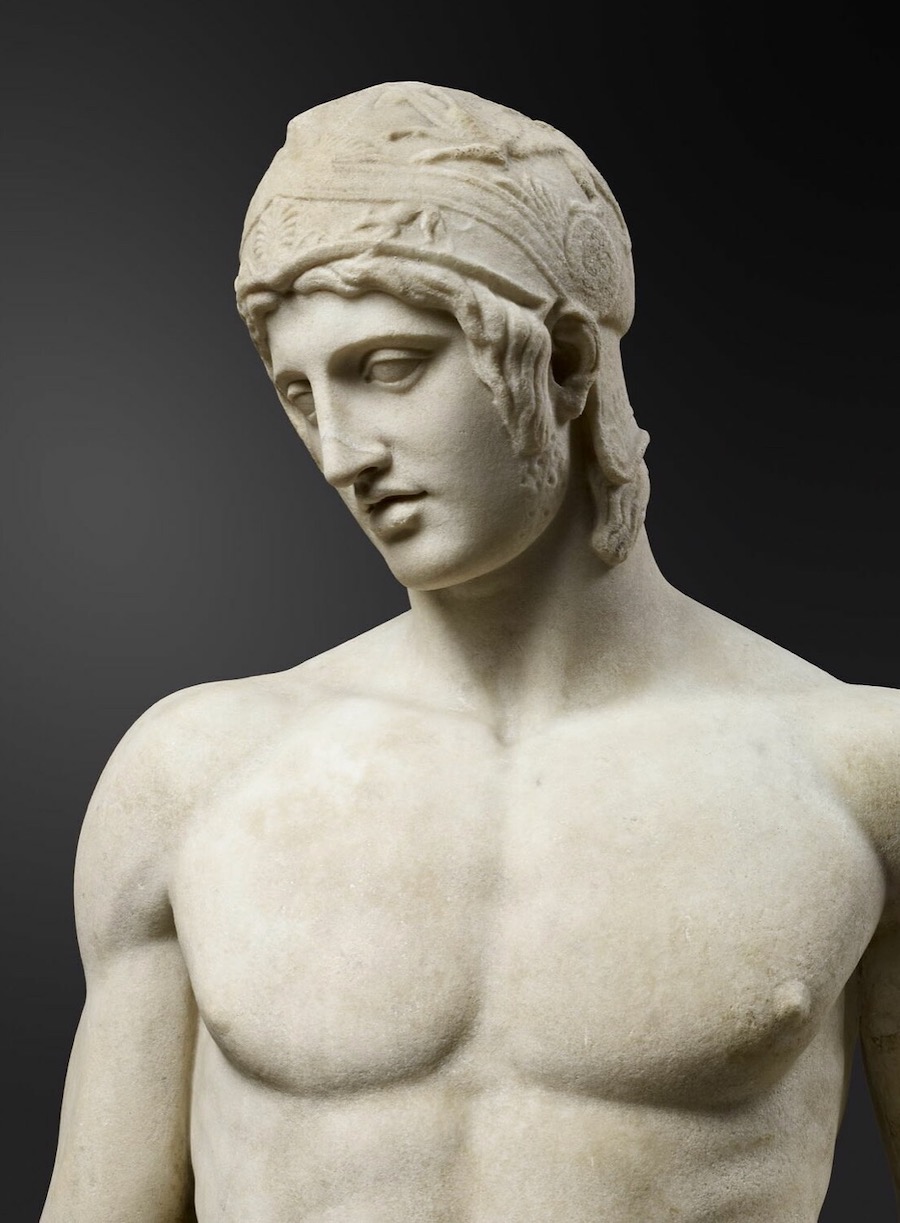
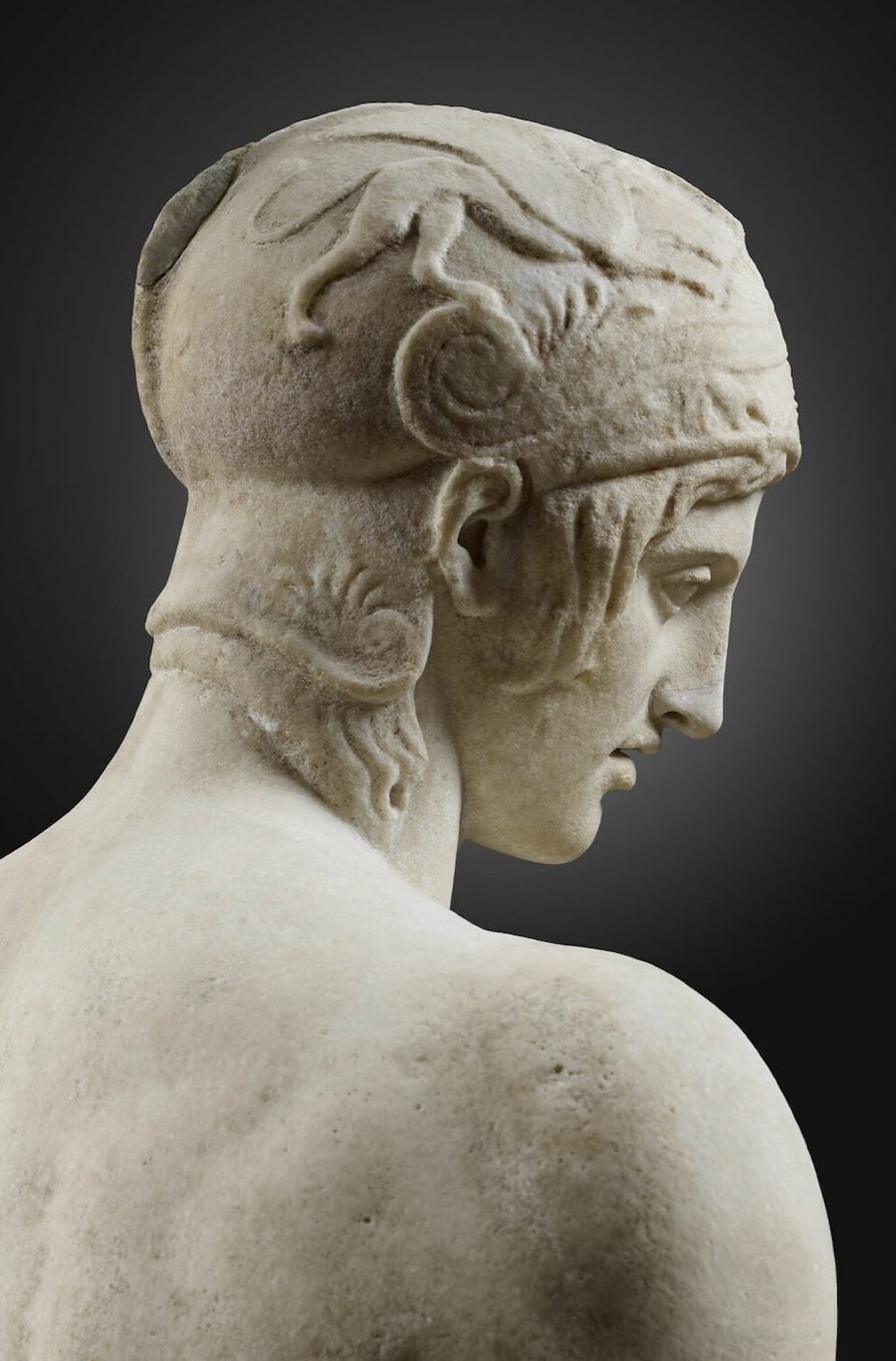
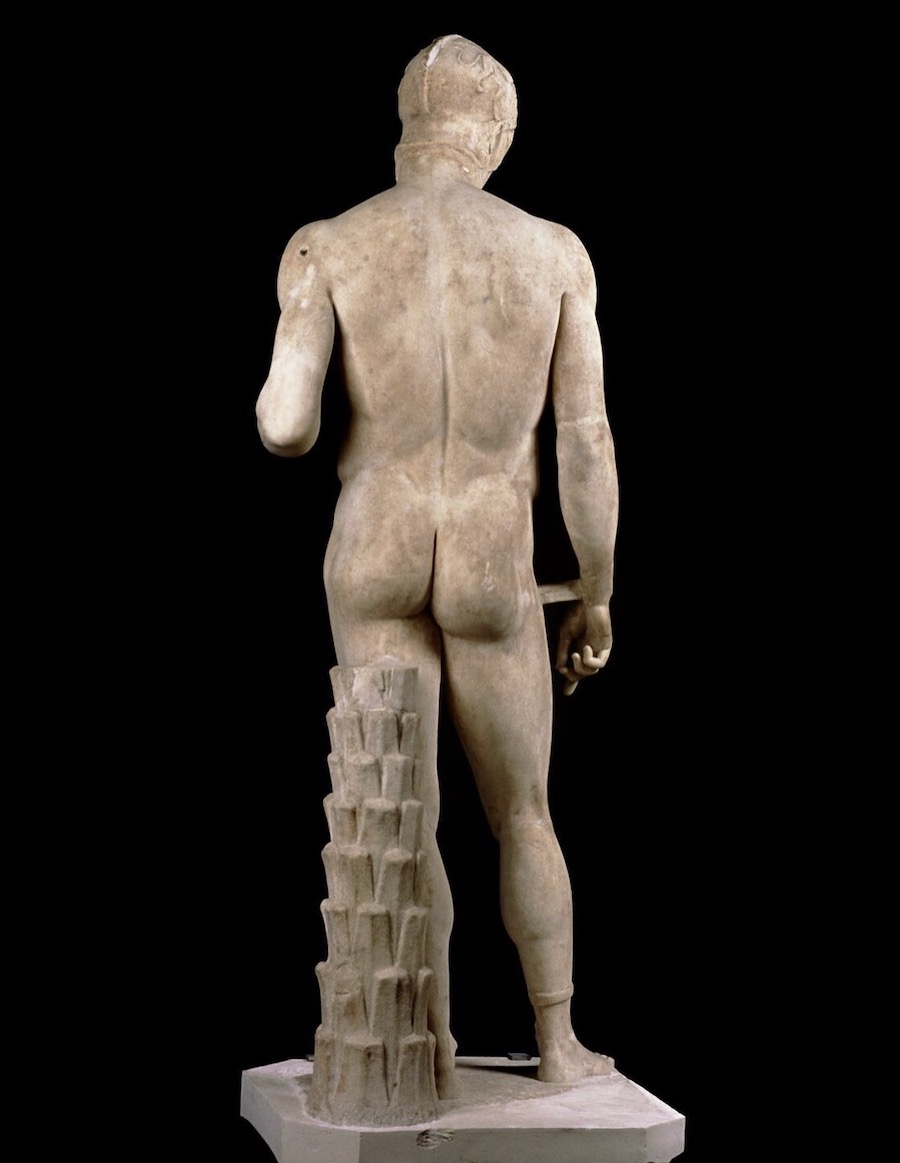
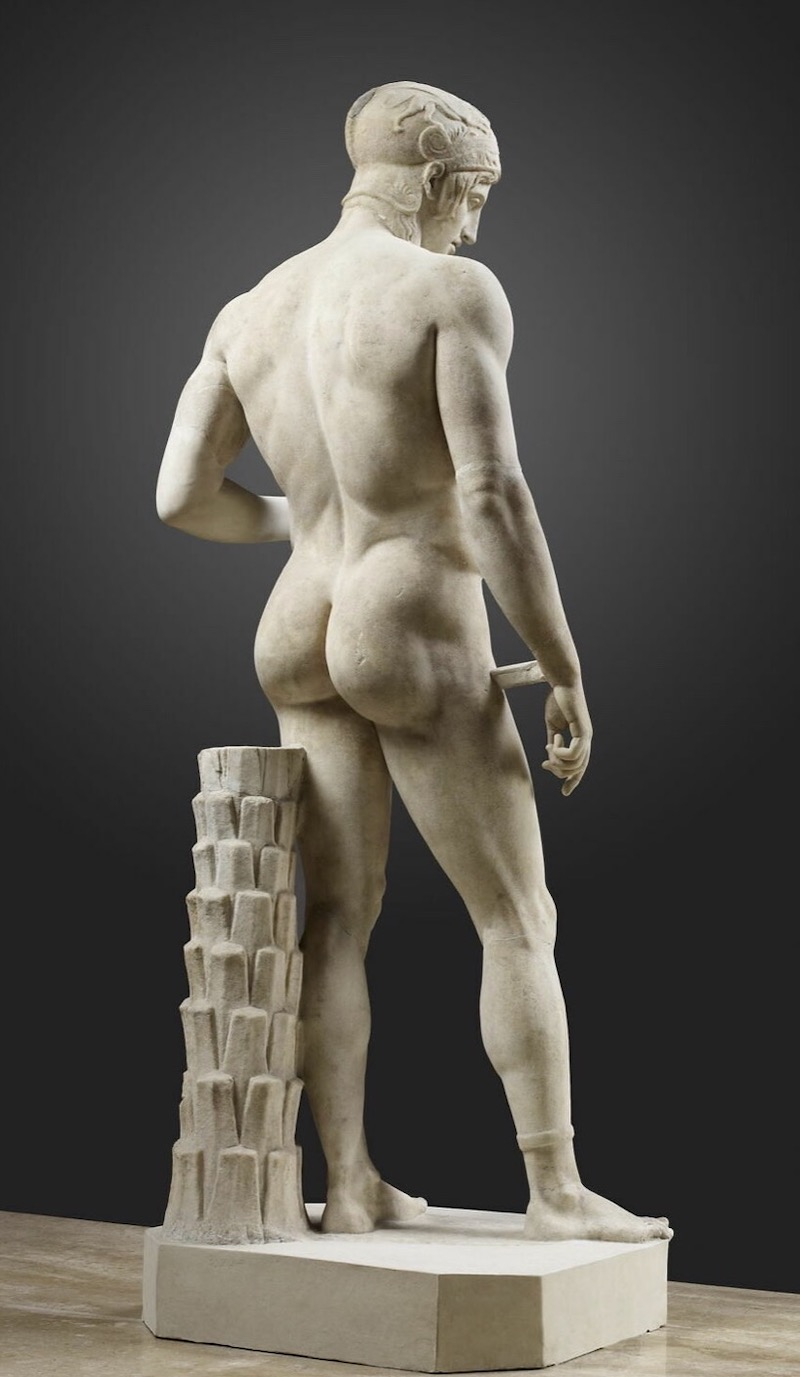

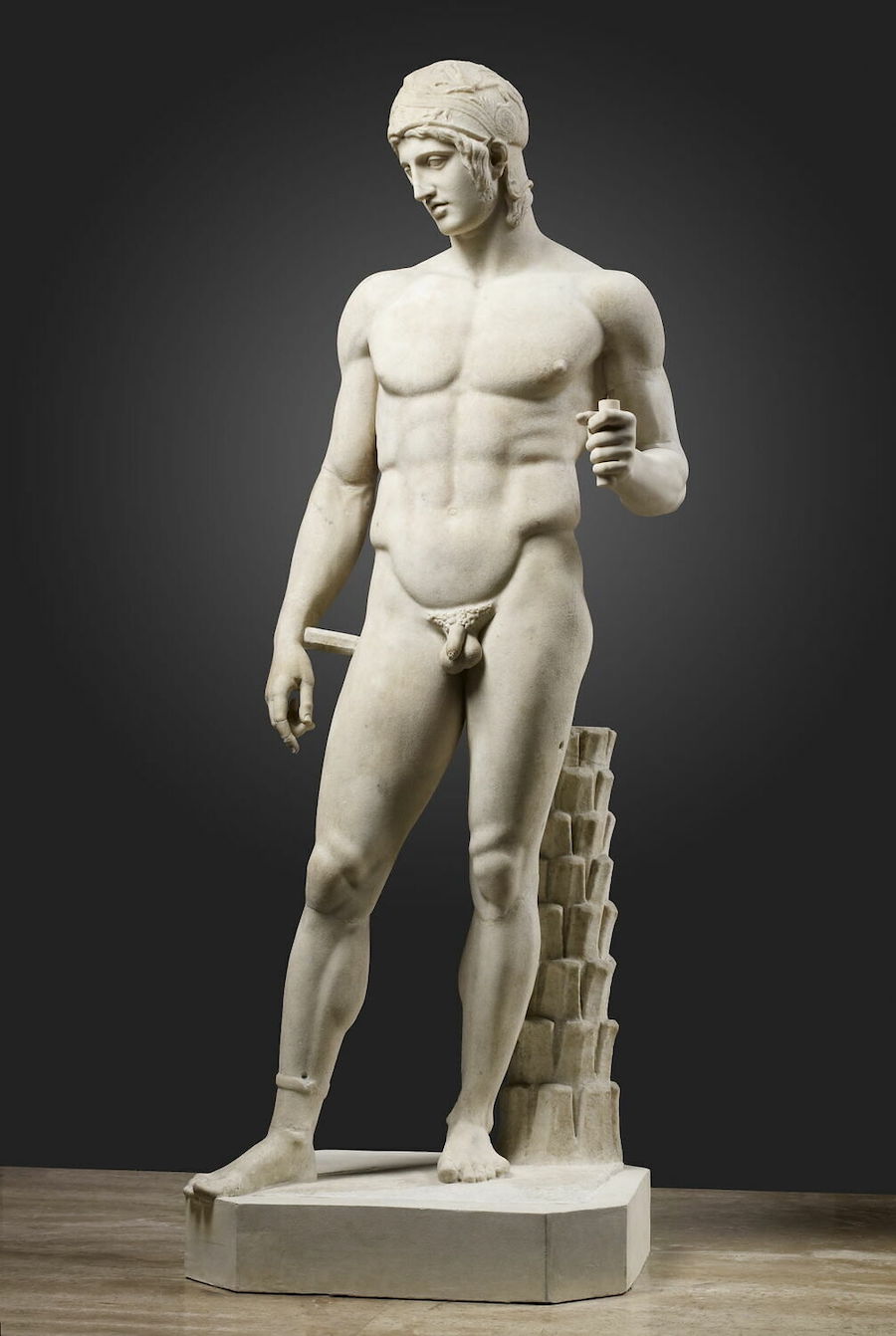
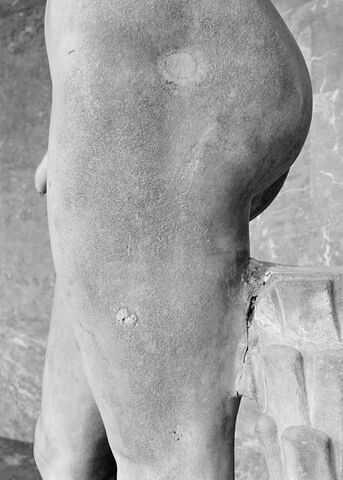













PERFECT SYMMETRY
Lucian :
We [Greeks] have thought up different kinds of athletics and have appointed coaches for each type. We teach one how to box, another how to compete in the pankration, so that they can become used to hard work, to stand up to blows face to face, and not to yield through fear of injury.
Lucian : Our troops have skin of high color, darkened by the sun, and faces like real men; they display great vigor, fire, and virility. They glow with good health, and are neither shriveled skeletons nor excessively heavy, but they have been carved to perfect symmetry ; they have used up and sweated off useless and excess flesh, and that which is left is strong, supple, and free, and they vigorously keep this healthy condition.
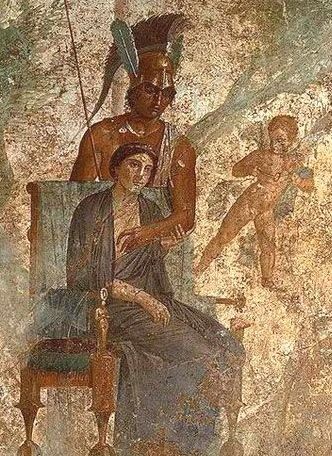
Ares and Aphrodite
with their son Eros
at Pompeii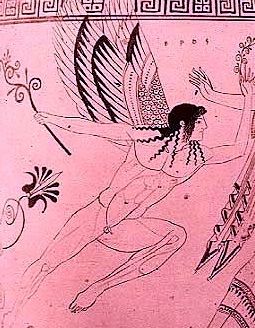
EROS
To the Greeks,
Eros was a muscular adolescent ;
To the Romans,
he was Cupid, a pudgy little boy
How small a percentage of handsome people there are! When I was at Athens, there was scarcely one to be found in each platoon of the training-corps [the epheboi, the ephebes, who were 18 when they started their military training -- a platoon could have been as few as 20, and as many as 50, guys]. I see why you smile, but the fact is so all the same. Another point : we, who with the sanction of the philosophers of old are fond of the society of young men [adulescens -- young men, youths], often find even their defects agreeable. Alcaeus 'admires a mole upon his favourite’s wrist' ; of course a mole is a blemish, but Alcaeus thought it a beauty. Quintus Catulus, the father of our colleague and friend to-day, was warmly attached to your fellow-townsman Roscius, and actually wrote the following verses in his honour :
~ Translated by Rackham.
To the uprising Deity of day ;
When lo! upon my left -- propitious sight --
Suddenly Roscius dawned in radiance bright.
Meseem'd the mortal than the God more fair.





INTRODUCING
DEINOMACHOS
an anticipation of the future areté -- the future Manly Excellence, the future Fighting Manhood -- of its bearer ; it set, as it were, the ideal pattern for his whole life.










Achilleus slays Hektor
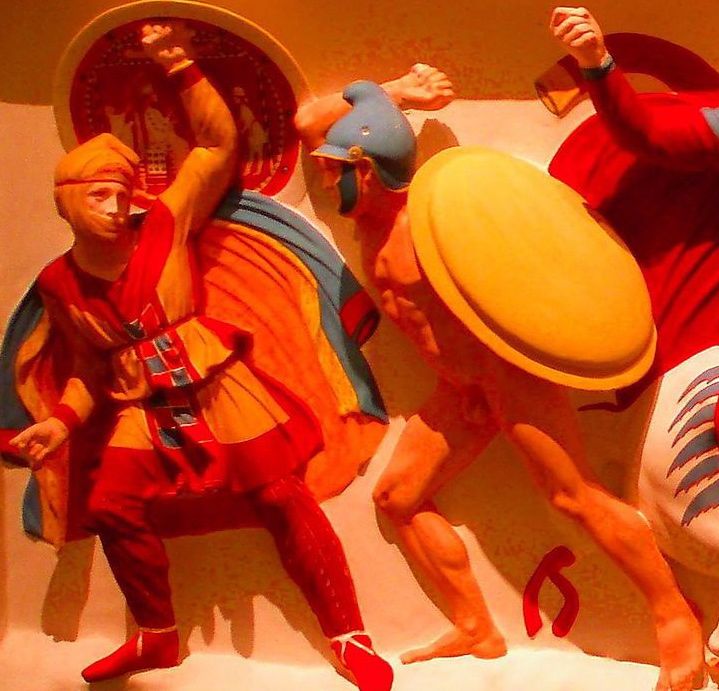


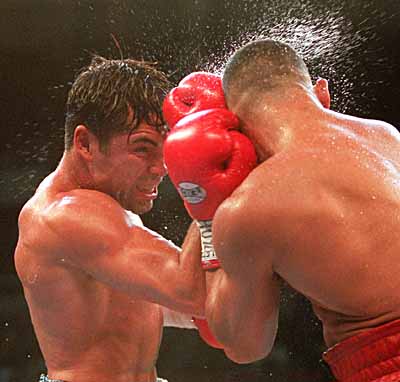
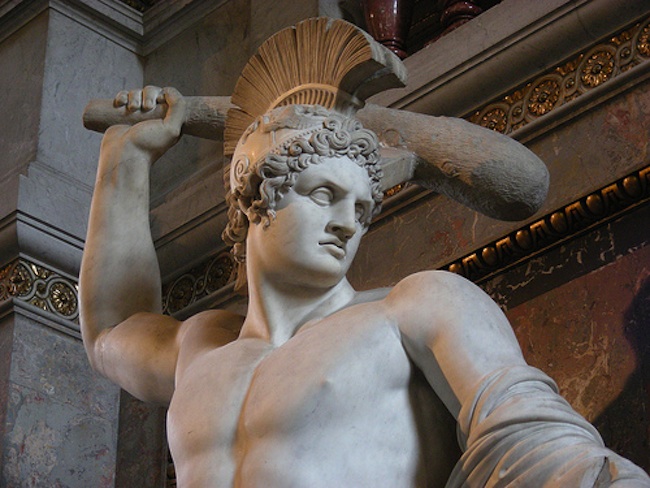

The body of
Sarpedon, killed in battle,
is collected by Sleep and Death,
and accompanied by the God Hermes
I bid you sing the reward for the four-horse chariot,
For a father's [Hieron's] victory is is no alien joy.
For whom Hieron founded that city with divinely fashioned freedom under the laws of Hyllos' rule,
Because the descendants of Pamphylos,
And indeed of Herakles' sons, who dwell under the slopes of Taygetos [ie, the Spartans],
Are determined to remain forever in the institutions of Aigimios
as Dorians.
Blessed with prosperity, they came down from Pindos and took Amyklai [home to the Hyakinthia],
To become much acclaimed neighbors of the Tyndaridai with white horses,
And the fame of their spears flourished and blossomed.
There were three Dorian tribes ; one was descended from Hyllos, Herakles' son, the other two from Pamphylos and Dymas, Aigimios' sons. Mt. Taygetos overlooks Sparta.
of the Phoenicians [ie, the Carthaginians] and the Etruscans may remain quietly
at home, now that they have seen it bring woe to their fleet before Kyme,
of the Syracusans [Hieron], who cast their youth
from their swiftly sailing ships into the sea,
and delivered Hellas from grievous slavery. I shall earn
from Salamis [where the Persian navy was defeated in 480 BC] the Athenians' gratitude
as my reward, and at Sparta I shall tell of the battle before Kithairon [ie, the b. of Plataia, where the Persian army was defeated in 479 BC]
in which battles the curve-bowed Medes [ie, the Persians] suffered defeat ;
but by the well-watered bank of the Himeras [the b. of Himera, where Gelon defeated an army of 100,000 Carthaginians in 480 BC] I shall pay
to Deinomenes' sons [Gelon and Hieron], the tribute of my hymn,
which they won through Areta -- Fighting Manhood -- when their enemies were defeated.
an anticipation of the future areté -- the future Manly Excellence, the future Fighting Manhood -- of its bearer ; it sets, as it were, the ideal pattern for his whole life.

'Good men teach good ; society with bad
Will but corrupt the good mind that you had.' "

Is this the body of a Pankratiast ?
"a severe athletic contest involving a combination of boxing and wrestling,
and requiring on the part of the contestants unusual physique and condition"
"Muscles in your legs help power the rotation that occurs when you throw a punch.
Your glute muscles are not only the biggest muscles in your body,
but they're the largest muscles in your hip." -- FightCamp.com

The muscles in Deinomachos' left buttock are tensed because he's holding,
with his left hand and arm, a hoplon, a hoplite shield, which is very heavy.
The strength in Deinomachos' quads and hams enables him
to kick and punch with explosive and violent bodily force.
Deinomachos' pecs, delts, bi's, tri's, and forearms are beefy --
but not over-developed.
The muscles on the left side of Deinomachos' body
are tensed so he can hold the hoplon.
Is this the body of a Pankratiastes ?
This youth or boy victor holds a jar of olive oil, probably a prize in the Panathenaic Games
His nudity strongly suggests that he won in a combatant gymnikos agon --
boxing, wrestling, pankration


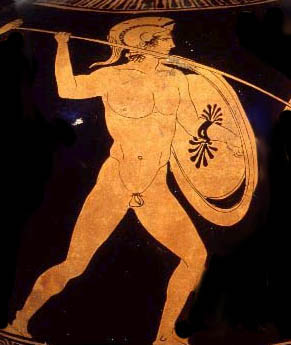




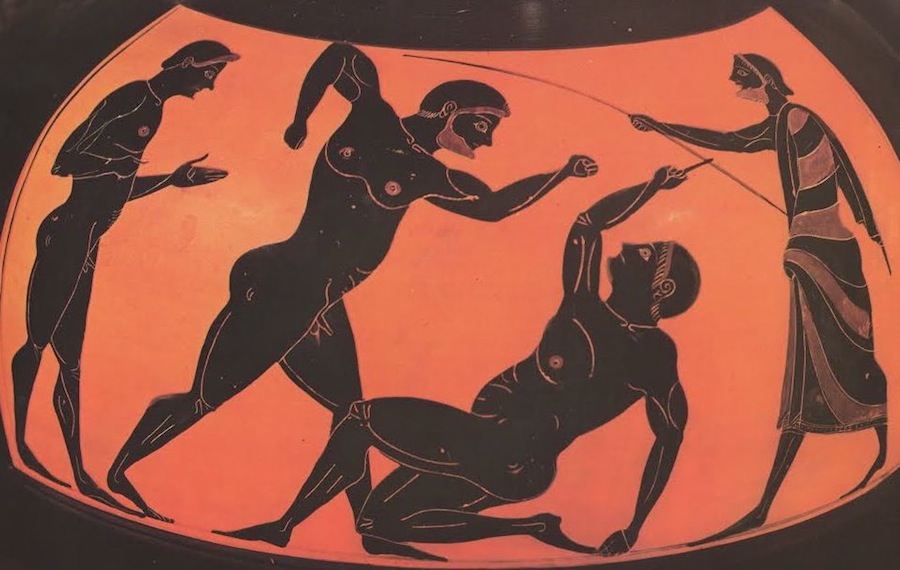





ADOLESCENT
EROS
Breadth of Chest
Strength of Lower Body
A Boy Victor
Broad Chest
Strong Glutes and Hams

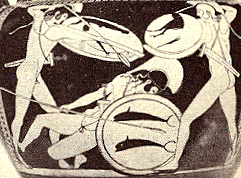








IRREDUCIBLE
MALENESS
OF HIS BODY














This is a so-called transsexual, a "trans" :






IRREDUCIBLE
MALENESS
OF HIS BODY

FIGHT
SCHOOL

ON
COMBATANT TRAINING

Palaistra Scene
The Palaistra is a simple, rectangular, colonnaded structure
with at its center, the skamma, which is variously translated,
usually as the exercise area, or Fight Pit, or Fight Pits.
At its most basic, the floor of the skamma is a mixture of sand and olive oil,
meant to cushion the landing of someone who is knocked down or thrown.
And we can see two young pankratiasts at center left,
of whom the one on the right could easily be
Deinomachos -- knocking down his opponent. 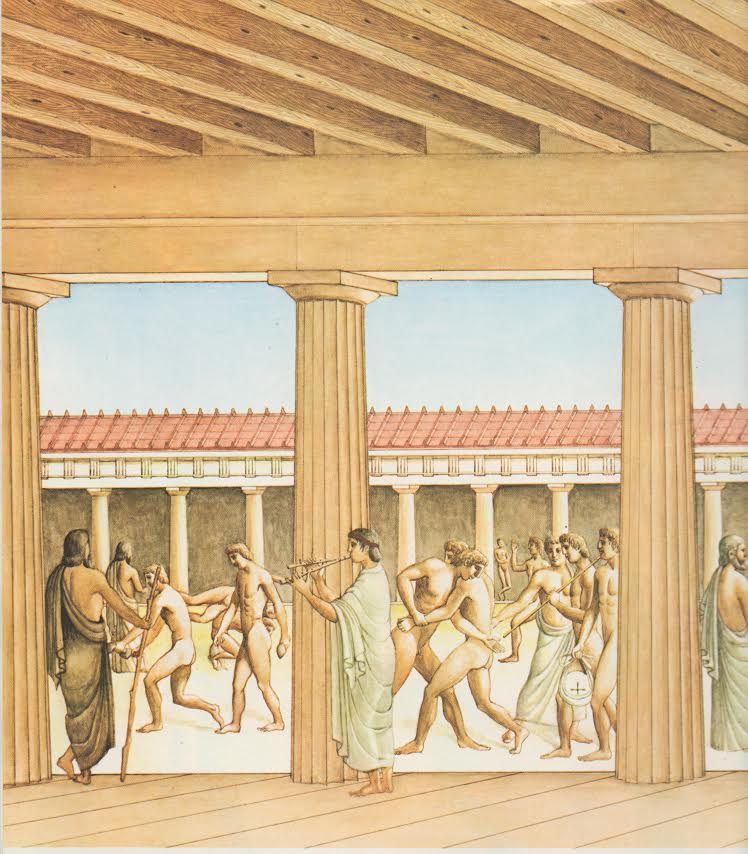
Second Palaistra Scene
On the right we can see two wrestlers tieing up,
and on the left, behind the standing youth, a wrestler is being thrown by his opponent.
In both of these scenes, we see other young Combatants happily doing their athletic exercises.
The Palaistra is crowded with Nude Young Men joyfully seeking to Perfect their Manhood.

Diskos Thrower ;
Youth with Pick-Axe
used to soften the skamma.
The Palaistra is communal,
the tasks are shared.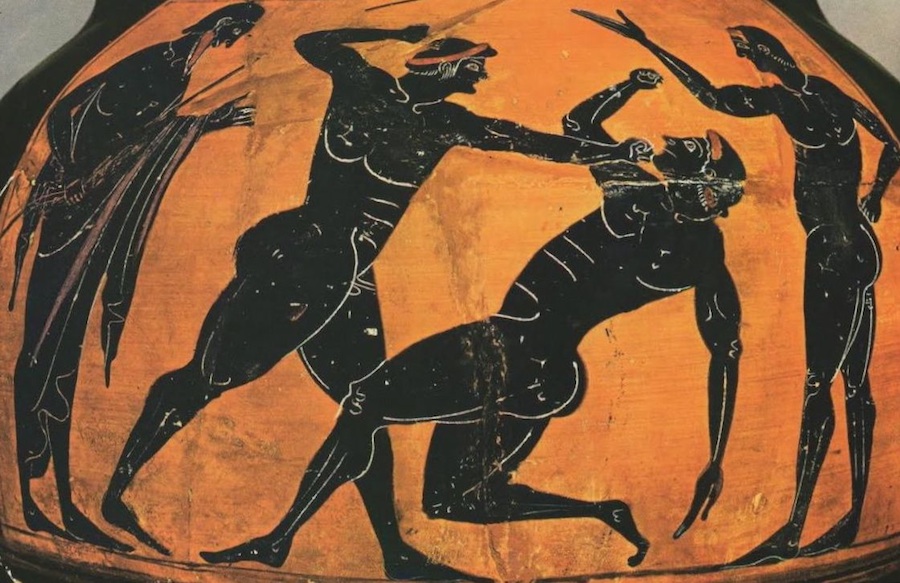
Pankratiasts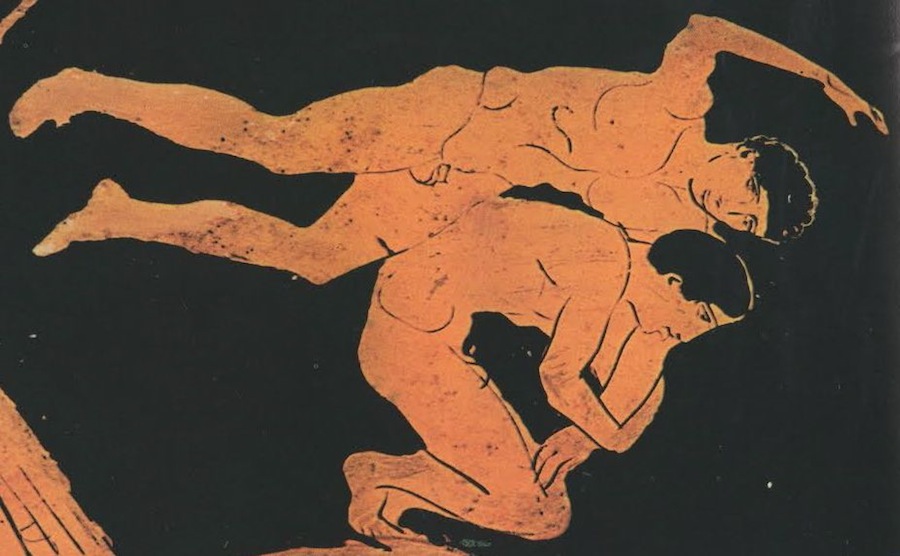
Wrestler being Thrown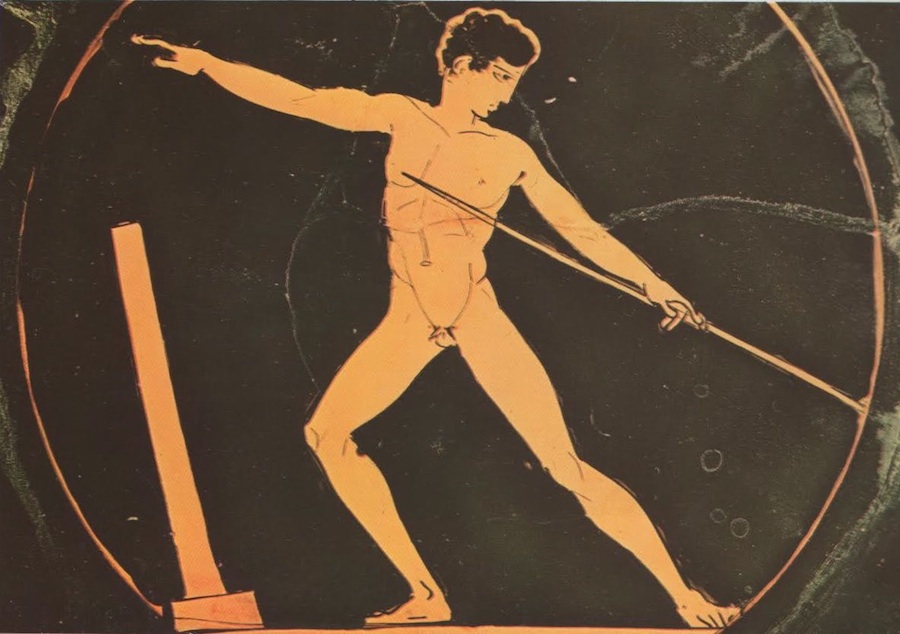
Youth with Javelin
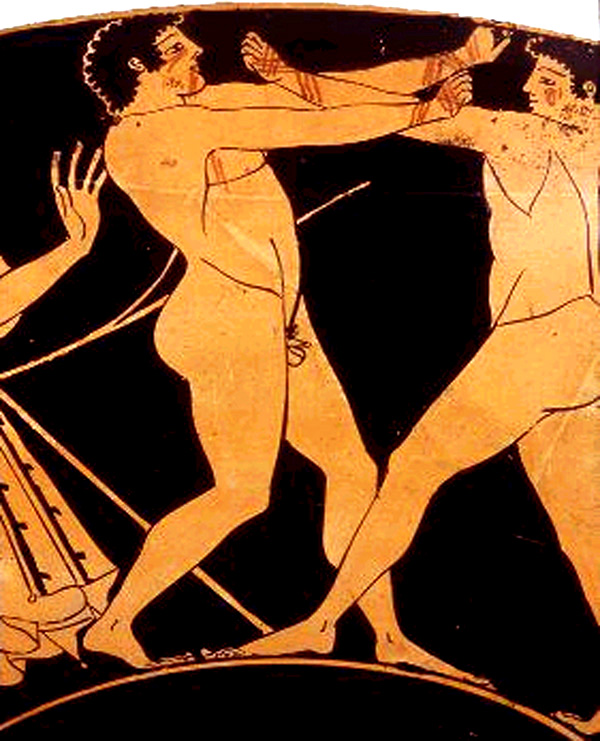
and requiring on the part of the contestants unusual physique and condition
~Classicist O J Todd, describing the pancratium in his 1921 edition of Xenephon's Symposium.



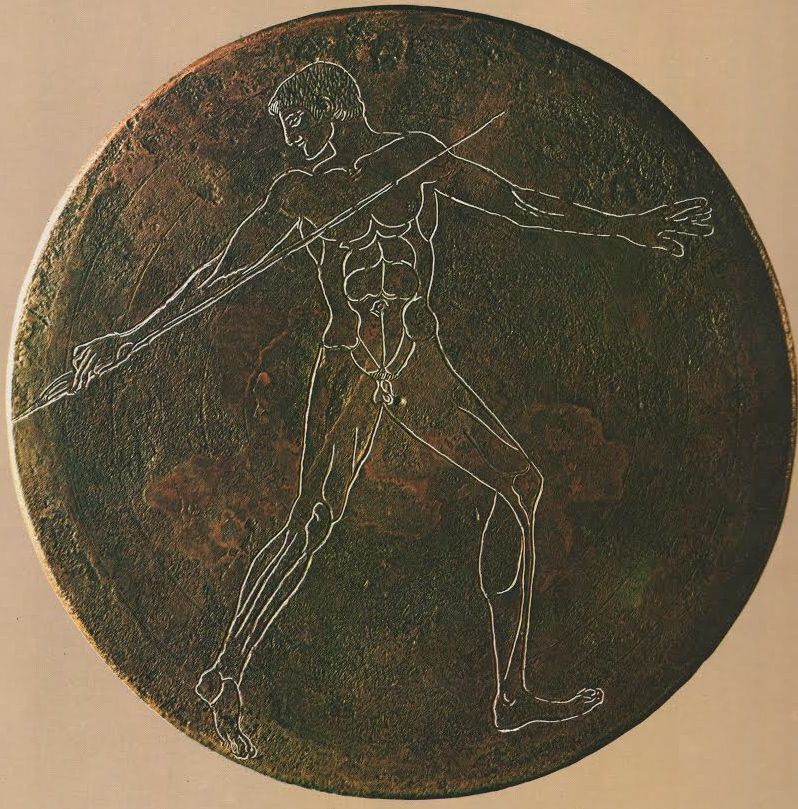
Diskos with etching
of Javelin Thrower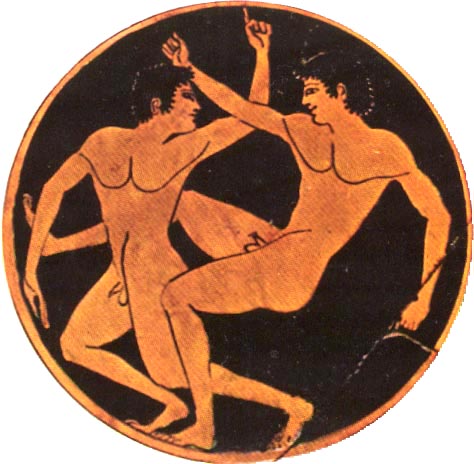
Kylix with Nude Combatants
Carved to Perfect
Symmetry
Lucian :
We [Greeks] have thought up different kinds of athletics and have appointed coaches for each type. We teach one how to box, another how to compete in the pankration, so that they can become used to hard work, to stand up to blows face to face, and not to yield through fear of injury.

We train them to run, getting them to endure long distances as well as
speeding them up for swiftness in the sprints. This running is not done on a firm springy surface but in deep sand, where it is not easy to place one's foot forcefully and not to push off from it, since the foot slips against the yielding sand. We train them to jump over ditches, if they have to, or any other obstacles, and in addition we train them to do this even when they carry lead weights as large as they can hold. They also compete in the javelin throw for distance. In the gymnasium you also saw another athletic implement, bronze, circular, like a tiny shield with no bar or straps. You handled it as it lay there and expressed the view that it was heavy and hard to hold on to because it was so smooth. Well, they throw this up in the air both high and out, competing to see who can throw the longest and pass beyond the others. This exercise strengthens the shoulders and builds up the arms and legs.


We [Greeks] have thought up different kinds of athletics and have appointed coaches for each type. We teach one how to box, another how to compete in the pankration, so that they can become used to hard work, to stand up to blows face to face, and not to yield through fear of injury.
[2] At the age of seven, Demosthenes was left by his father in affluence, since the total value of his estate fell little short of fifteen talents ; but he was wronged by his guardians, who appropriated some of his property to their own uses and neglected the rest, so that even his teachers were deprived of their pay.
Demosthenes,
Macedonian Ares.
As for physical training, which you particularly wanted to hear about, we proceed as follows. When the boys reach an age when they are no longer soft and uncoordinated, we strip them naked. We do this because first, we think they should get used to the weather, learning to live with different seasons, so they are not bothered by the heat nor do they yield to the cold.
The age of twelve fit perfectly, situated near the beginning of puberty and the youngest age sanctioned by society for a pederastic relationship ; in addition, twelve was the lower limit for competition, in the nude, in athletic events.

A Farmer Ploughs his Field -- Nude
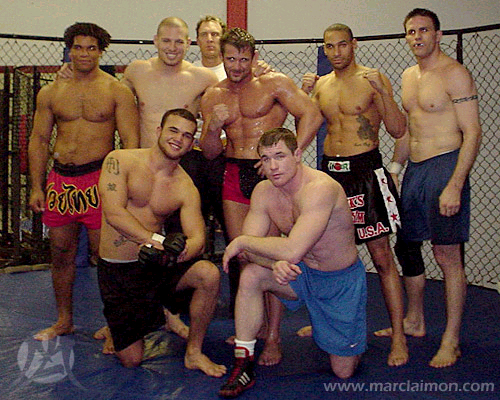
for the Men of Ares Is Lord and the Alliance.

I have seen with my own eyes Troops of Nude Adolescent Boys in Lacedaemon
Fighting with Inconceivable Obstinacy, using Fists and Feet and Nails and even
Teeth to the point of losing their lives rather than admit defeat.
FINDS EXPRESSION IN THE NUMBER OF INSCRIPTIONS HONORING EPHEBES FOR THEIR COURAGE,
A PARTICULAR ATTRIBUTE OF VICTORS IN THE ENDURANCE CONTEST."
WHICH FUNCTIONED AS HOT HOUSES FOR IDEOLOGIES OF PHYSICAL CULTURE AND MARTIAL VALOUR
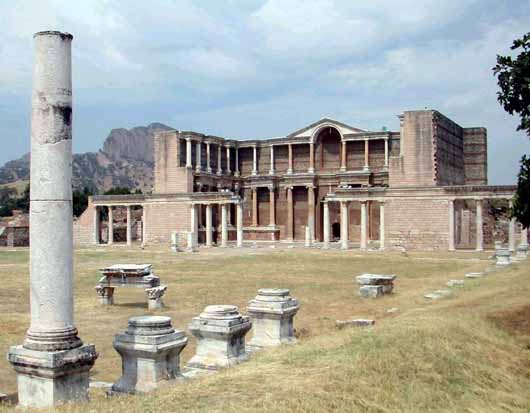
Gymnasion at Miletus
buildings in their cities' profiles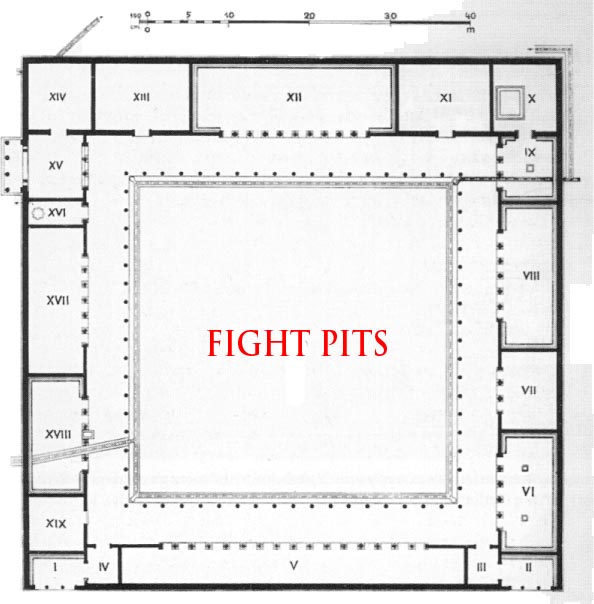
Classrooms grouped around Fight Pits
other Boys Excercising and Fighting Nude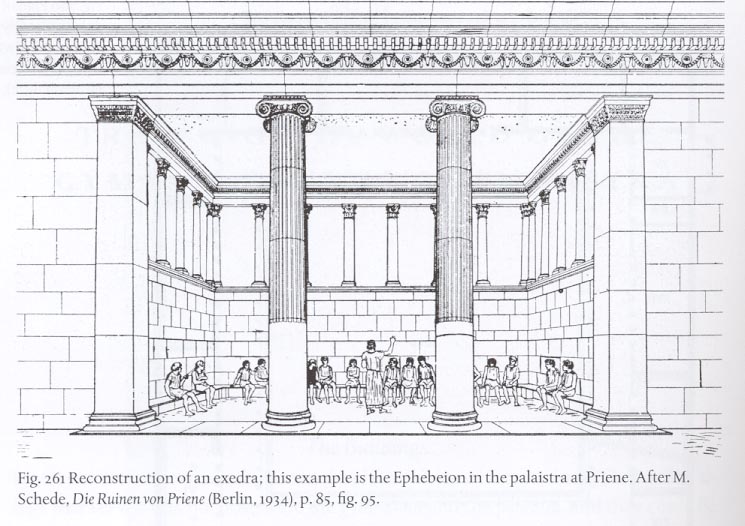
The Ephebeion in the Palaistra at Priene
and military exercises, but so were those of most other ephebic systems.
time of Homer, military preparedness was required of all ephebes everywhere
because they formed the military reserve force for their cities.
Lycurgus [the Spartan law-giver] would not put the sons of Spartans in charge of purchased or hired tutors, nor was it lawful for every father to rear or train his son as he pleased, but as soon as they were seven years old, Lycurgus ordered them all to be taken by the state and enrolled in companies [agela, herds], where they were put under the same discipline and nurture, and so became accustomed to share one another's sports and studies.

Pubertas
the age of manhood or maturity, puberty ;
the signs of puberty, the beard, pubic hair, body hair, etc ;
Manhood, virility : Tacitus -- inexhausta pubertas -- unimpaired virility
In Book VII of his Thebais, ll 621-22, the Roman poet Statius uses pubes in the sense of Youth coming to War, Youth thrown together in Fight : "so the Young Flower [pubes] of Argos and of Thebes were in sudden swarms locked . . . so great the War that from small bloodshed grows" (trans. by Melville)
















Pubes
and the
Young Bulls
This Man is a Fighter
His nose is broken, his ears battered, his knuckles scored
This MAN is a FIGHTER
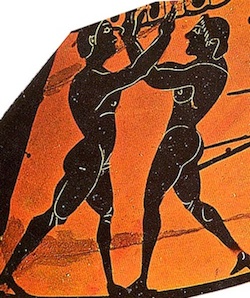
Combatants Fight -- Nude
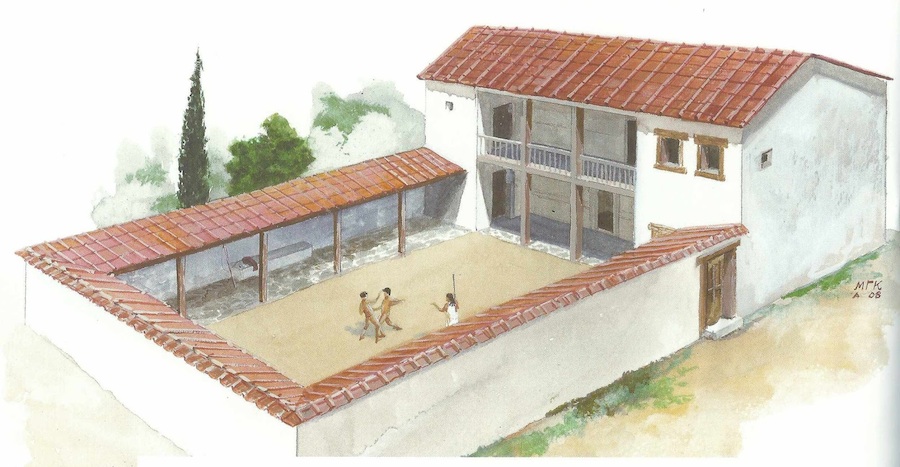



Carved to Perfect
Symmetry
Symmetry
In the forests of the night;
What immortal hand or eye,
Could frame thy fearful symmetry?
Burnt the fire of thine eyes?
On what wings dare he aspire?
What the hand, dare seize the fire?
Could twist the sinews of thy heart?
And when thy heart began to beat.
What dread hand? & what dread feet?
In what furnace was thy brain?
What the anvil? what dread grasp.
Dare its deadly terrors clasp?
And water'd heaven with their tears:
Did he smile his work to see?
Did he who made the Lamb make thee?
In the forests of the night:
What immortal hand or eye,
Dare frame thy fearful symmetry?







All rights reserved.






αγαπη
Discussion :

"orthon estin aidoion epi tou bathrou"
While the games were being held at Olympia, an old man was desirous of seeing them, but could find no seat. As he went to place after place, he met with insults and jeers, and nobody made room for him. But when he came opposite the Spartans, all the boys and many of the men arose and yielded their places. Whereupon the assembled multitude of Greeks expressed their approbation of the custom by applause, and commended the action beyond measure; but the old man, shaking "His head grey-haired and grey-bearded," and with tears in his eyes, said, 'Alas for the evil days ! Because all the Greeks know what is right and fair [ta kala -- Honourable, that which adheres to the Noble Warrior Way of Manly Moral Beauty], but the Spartans alone practise it.'
A passage in Plutarch's Life of Lykourgos which uses the word andragathia, and as translated by classicist Richard Talbert, is a good example of what I mean by "reduction," that is, "reducing a word to its essential meaning."
On other occasions the girls would rehearse in song the praises which they had composed [enkomiazo] about those worthy of them [axioo], so that they filled the young men [neaniskoi] with a great sense of ambition [PhiloTimia -- Love of Honour] and rivalry [zelos -- zeal, eager rivalry].
Manliness, Manhood : Vigor, strength, might, power, potency ; Valour, gallantry, fortitude ; Virtue, goodness, moral perfection, high character ; Value, worth, merit.
Manliness, Manhood : Vigor, strength, might, power, potency ; Valour, gallantry, fortitude ; Virtue, goodness, moral perfection, high character ; Value, worth, merit --
Manly -- that is, Willing and Able to Fight
Remember that the Greek for 'good' [agathos] does not merely have the narrow ethical sense we give it, but is the adjective corresponding to the noun areté, and so means 'excellent' in any way. From that point of view ethics is only a special case of the effort made by all things to achieve perfection.


![]()



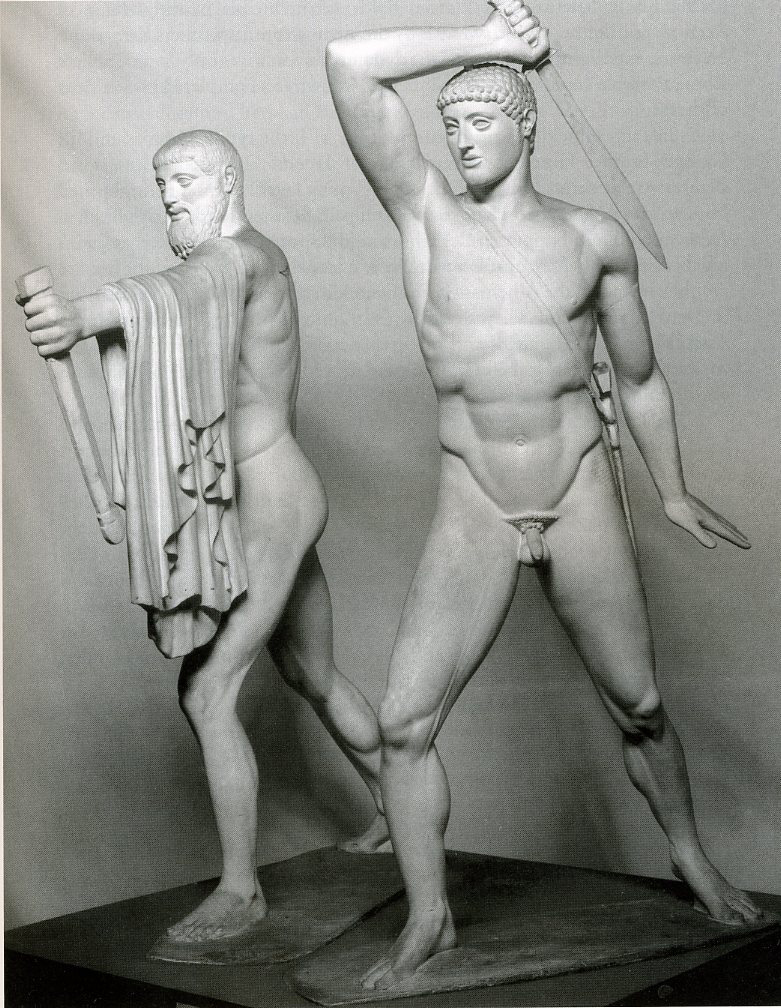
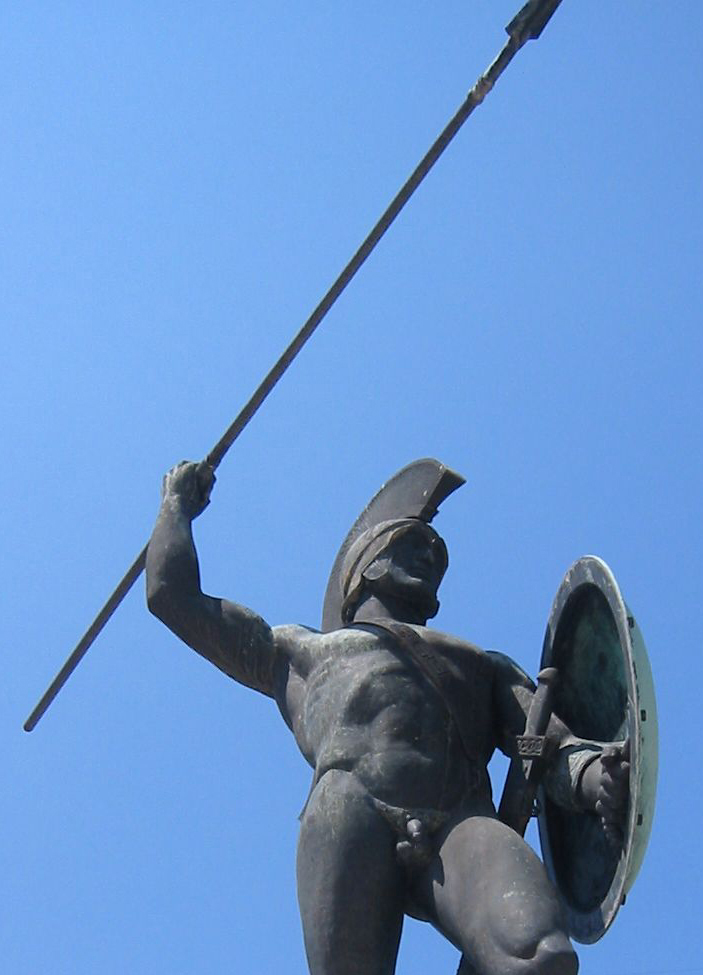
Plato, in the Kratylos :
Ares, then, if you like, would be named for his Manliness [arren] and Fighting Manhood [andreion], and for his hard and unbending nature, which is called arratos ; so Ares would be in every way a fitting name for the God of Battle, Fight, War [polemikos Theos].





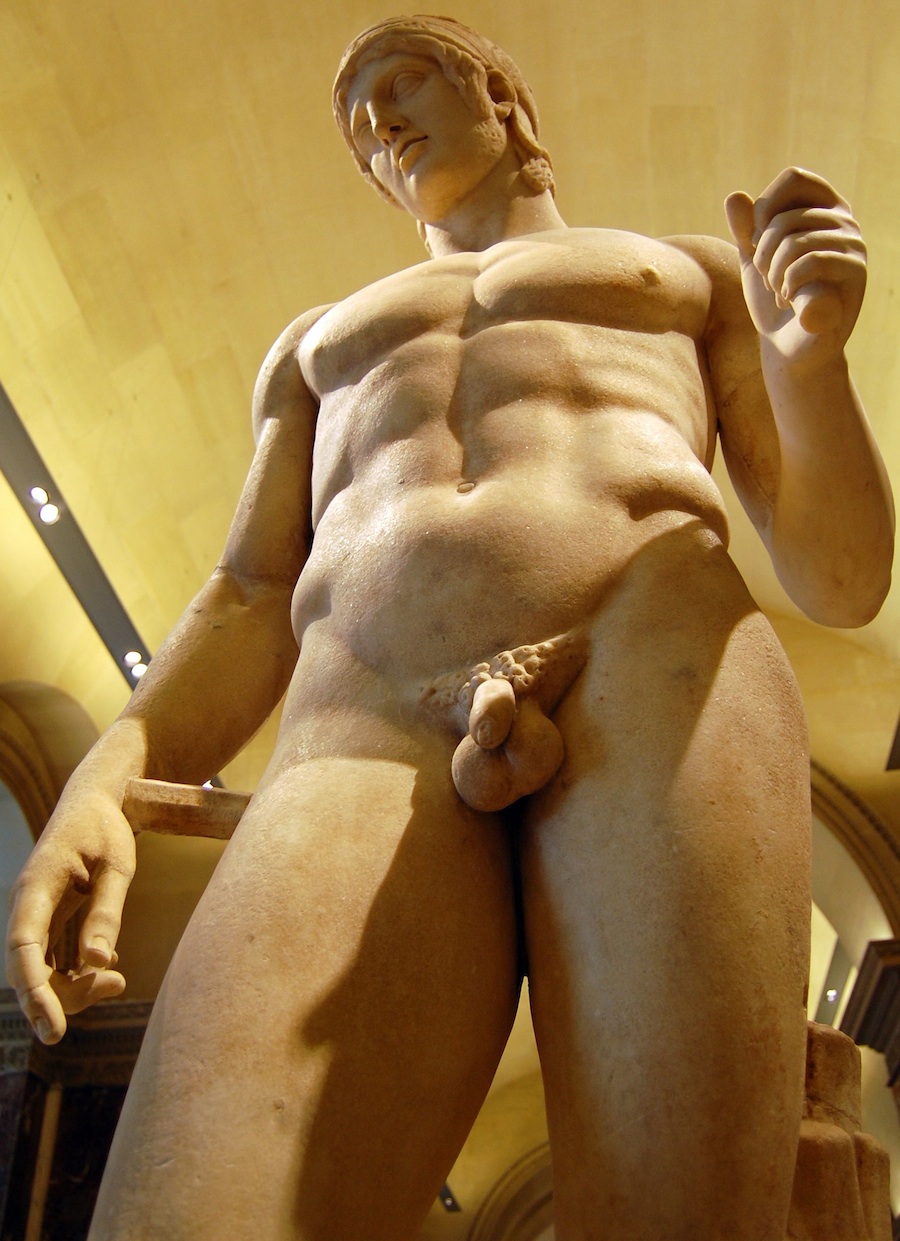











Πολεμιστης
Οβριμος
Θουρος
Χαλκεος
Βαθυπολεμος
Πολεμαδοκος
Βιατας
Stout and Strong
Plunged Deep in War
Fight-Sustaining










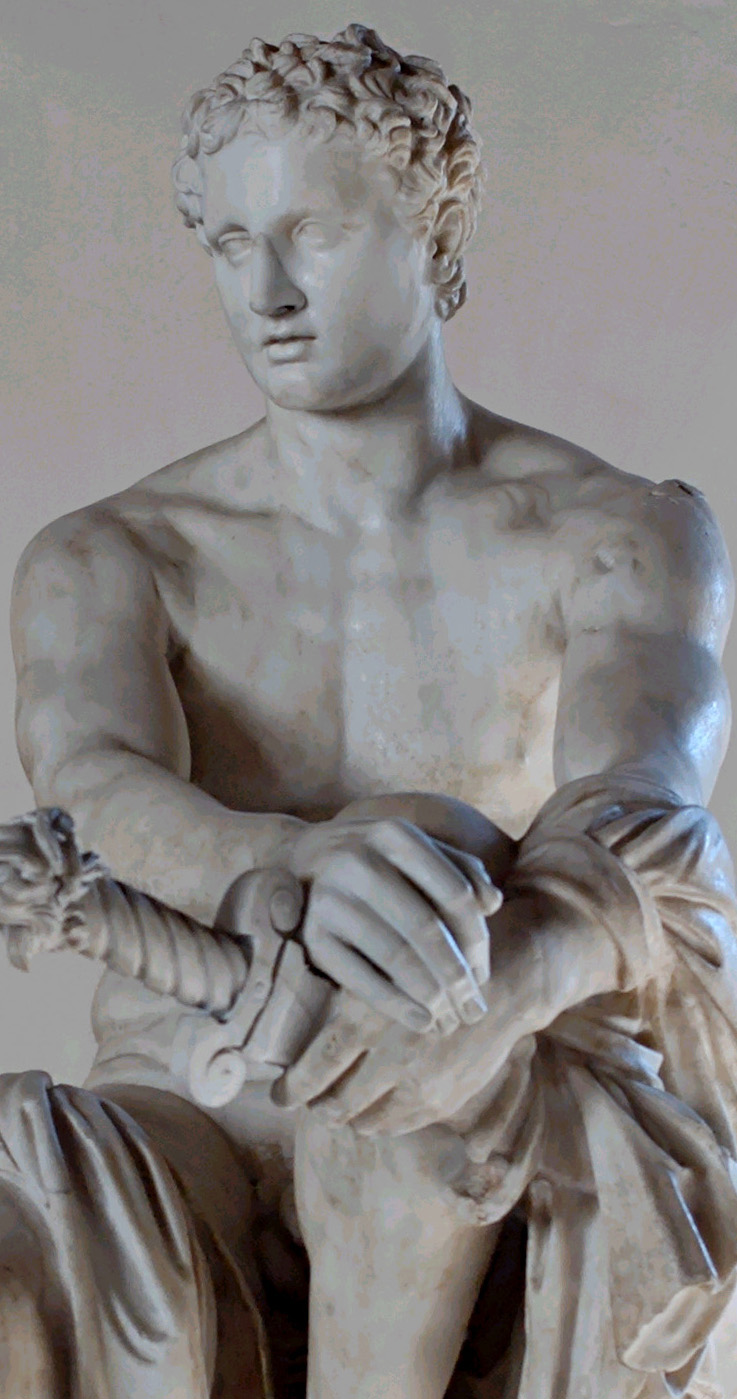





It's for facing what's painful
that Men are called Manly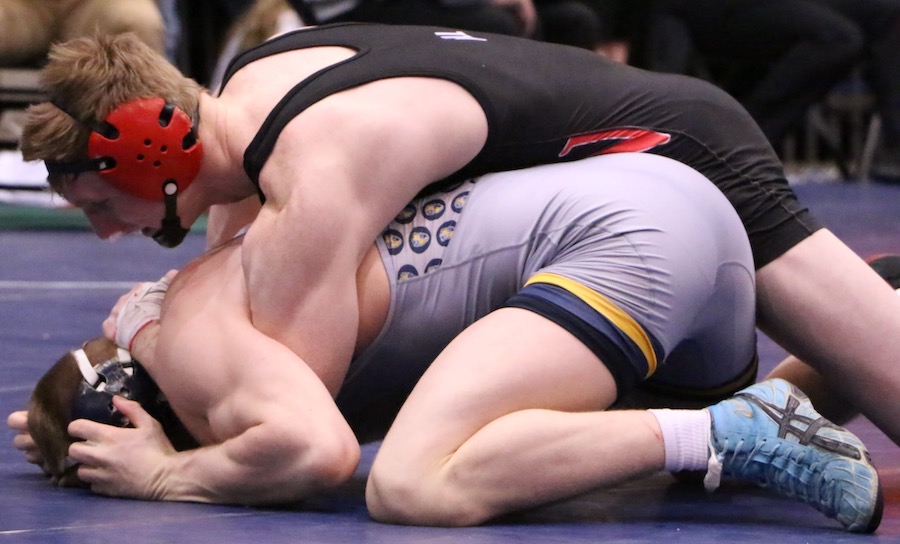
[I]f an eye [ophthalmos] is to see [eidon] itself [autos] it must look at an eye, and at that region [topos] of the eye in which the areté [excellence] of an eye is found to occur ; and this, I presume, is sight [opsis -- eyesight, vision].
[I]f, again, you asked me, "What becomes present in a better [ameinon -- irr. comp. of agathos, which is the adjectival form of Areté -- thus, more excellent] condition of the eyes?" -- I should answer in just the same way, "Sight [opsis] becomes present, and blindness [tuphlotes] absent." So, in the case of the ears [ous], deafness [kophotes] is caused to be absent [apo-gignomai], and hearing [akoe] to
be present [para-gignomai], when they are improved [beltio-o] and getting better treatment.
[Areté is] goodness, excellence, of any kind, esp. of manly qualities, manhood, valour, prowess (like Lat. virtus, from vir)
From the same root [ARES] come areté, ari-, areion [better -- stronger, braver, more Manly], aristos [best -- strongest, bravest, most Manly], the first notion of goodness being that of manhood, bravery in war; cf. Lat. virtus.
Vigor, strength, might, power, potency ; Valour, gallantry, fortitude ; Virtue, goodness, moral perfection, high character ; Value, merit, worth.
Manliness, Manhood : Vigor, strength, might, power, potency ; Valour, gallantry, fortitude ; Virtue, goodness, moral perfection, high character ; Value, merit, worth.



[Areté is] goodness, excellence, of any kind, esp. of manly qualities, manhood, valour, prowess (like Lat. virtus, from vir)
From the same root [ARES] come areté, ari-, areion [better -- more Manly], aristos [best -- most Manly], the first notion of goodness being that of manhood, bravery in war; cf. Lat. virtus.

Diomedes
the short but glorious aristeia [heroism] of the Greek spirit. The basic motive of Greek areté is contained in the words 'to take possession of the beautiful'. The courage of a Homeric nobleman is superior to a mad berserk contempt of death in this -- that he subordinates his physical self to the demands of a higher aim, the beautiful. And so the man who gives up his life to win the beautiful, will find that his natural instinct for self-assertion finds its highest expression in self-sacrifice.
Ares, then, if you like, would be named for his Manliness [arren] and Manhood [andreion], and for his hard and unbending nature, which is called arratos; so Ares would be in every way a fitting name for the God of Battle, Fight, War.




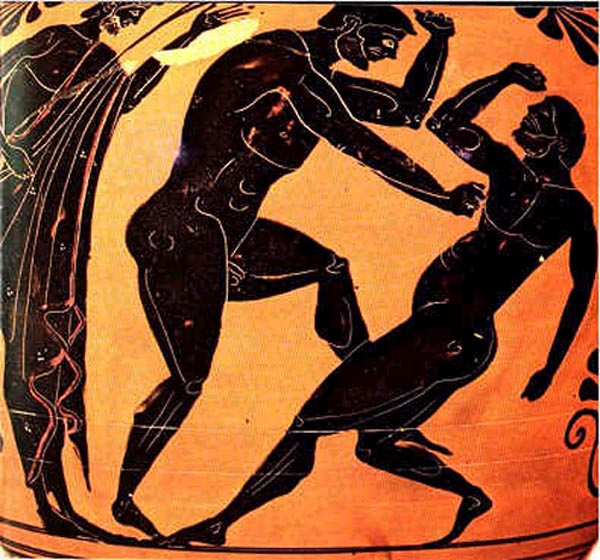

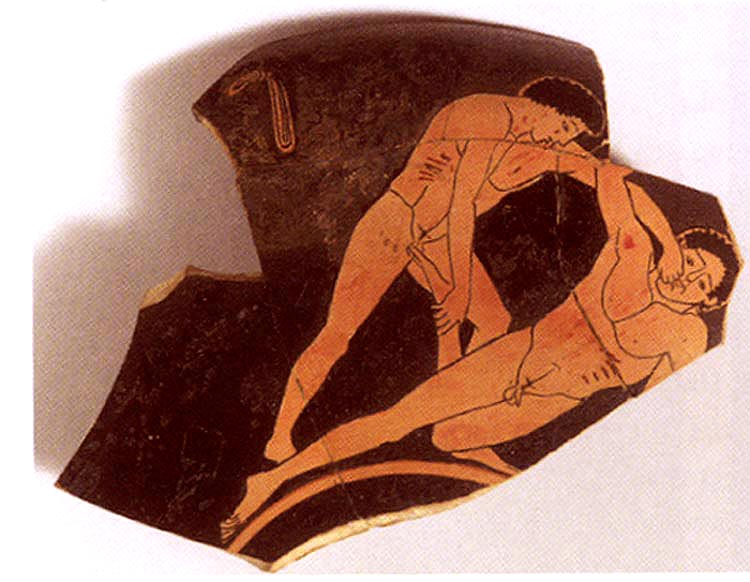

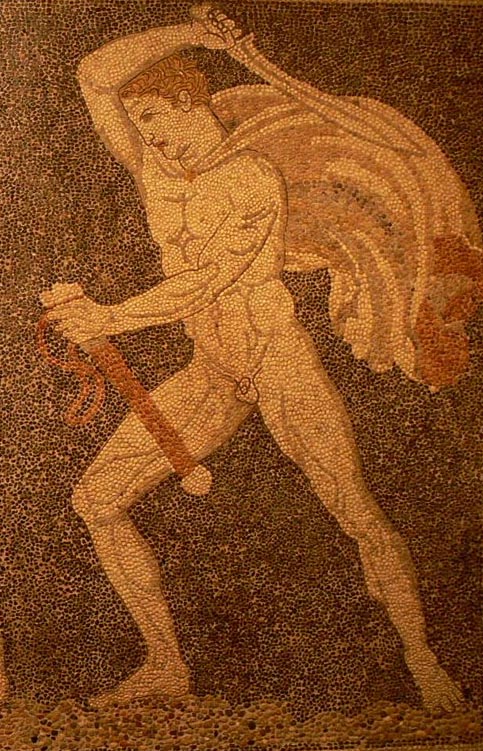
Please note:
Myth represents the active operations [energeiai] of the Gods.


Wrestling
The ephedros is on the right ;
he'll Wrestle the Victor of the bout
The definition of the modern English word "epideictic" is "characterized by or designed to display rhetorical or oratorical skill."
In Archaic and Classical Greece, Eros is, not always, but most often, the God of Male-Male Romance and Passion.
[Love -- Eros] is the cause of all our highest blessings. I for my part am at a loss to say what greater blessing a man can have in earliest youth than an honorable [euthus] lover [erastes], or a lover than an honorable [chrestos] favorite [paidika]. For the guiding principle we should choose for all our days, if we are minded to live a comely [kalos -- morally beautiful] life, cannot be acquired either by kinship or office or wealth or anything so well as by Love.
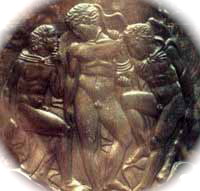
Two Spearmen
Iolaos and Herakles
United by Eros
Plato concludes by saying, in reference to Achilles' determination to avenge the killing of his Lover Patroklos, even though it will result in his own death, that
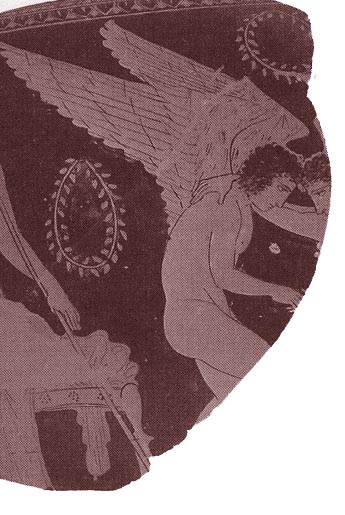
Eros and Anteros Wrestling
Eurybiadas was the name of the Spartan in over-all command of the Greek forces at the time of the Battle of Salamis ; historian JE Lendon says that the name Alkibiades means Son of Violent Strength
